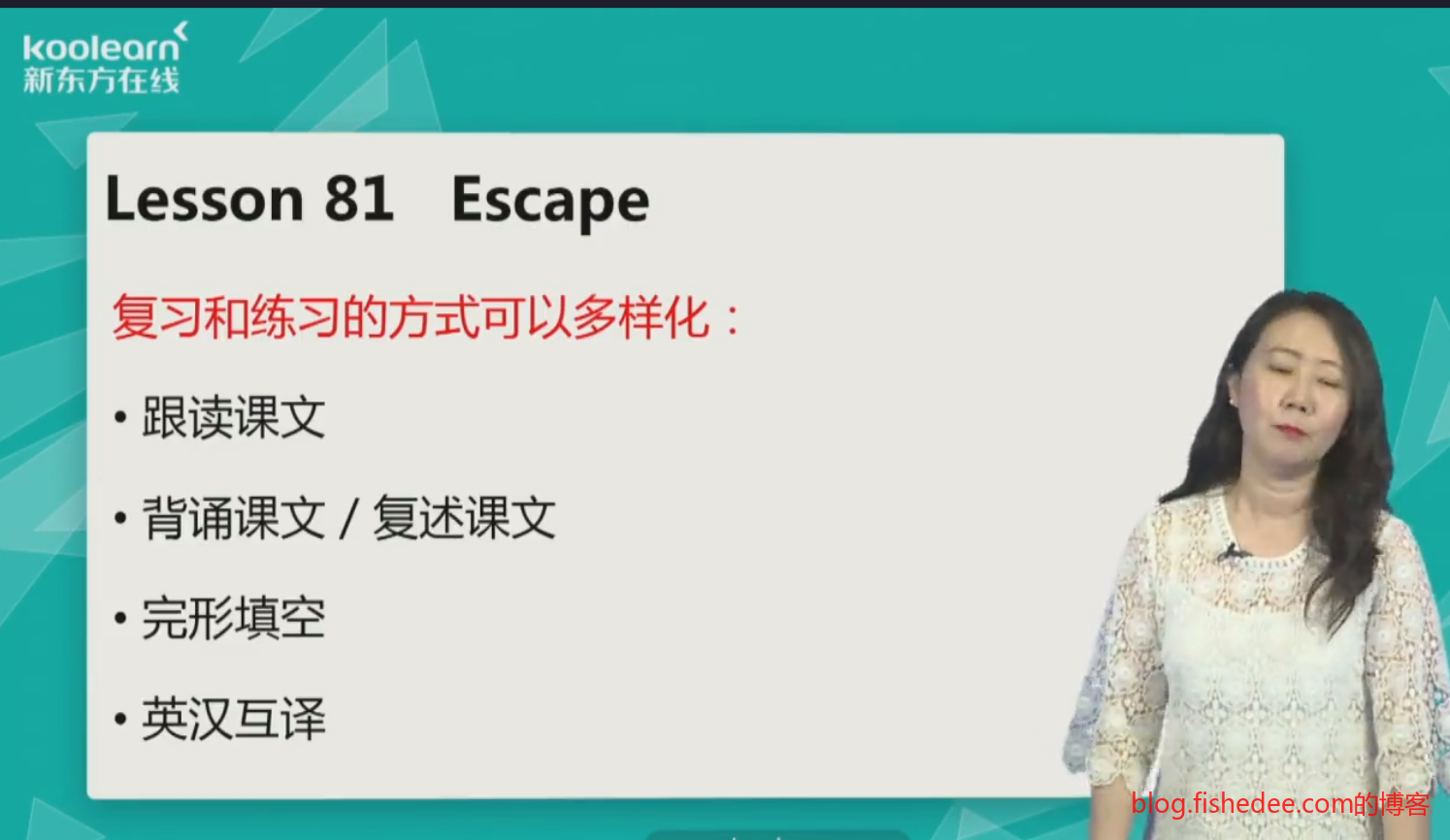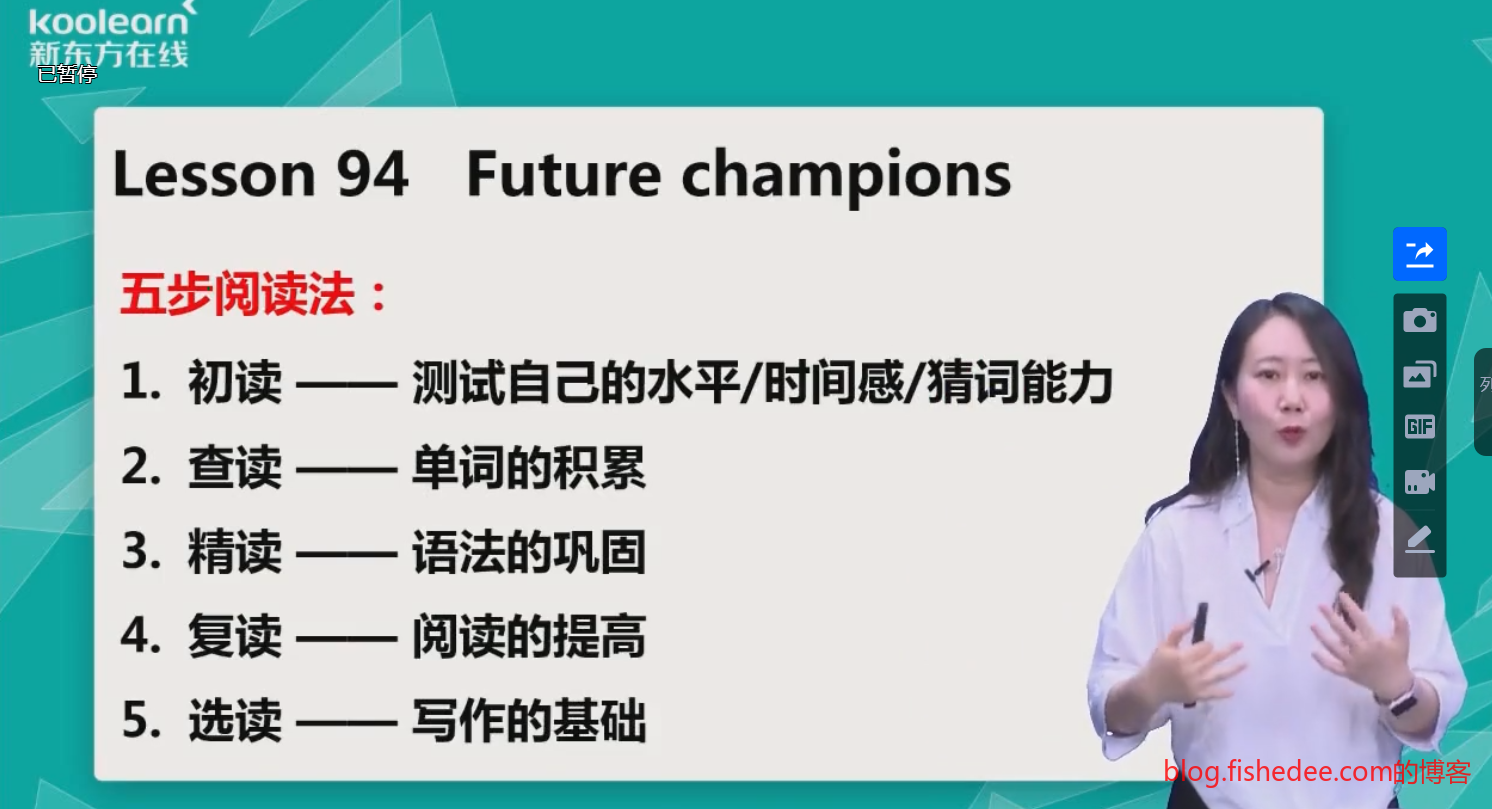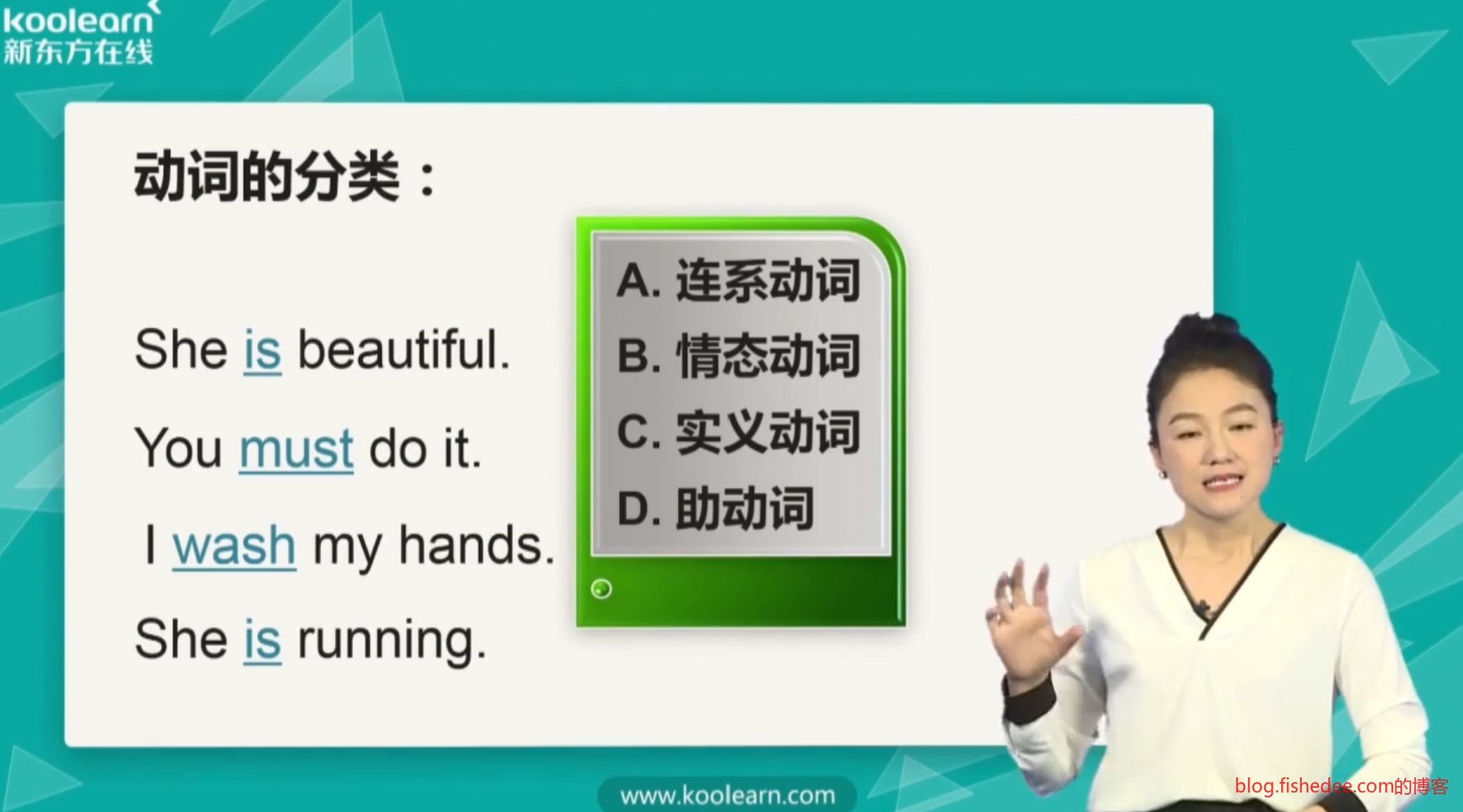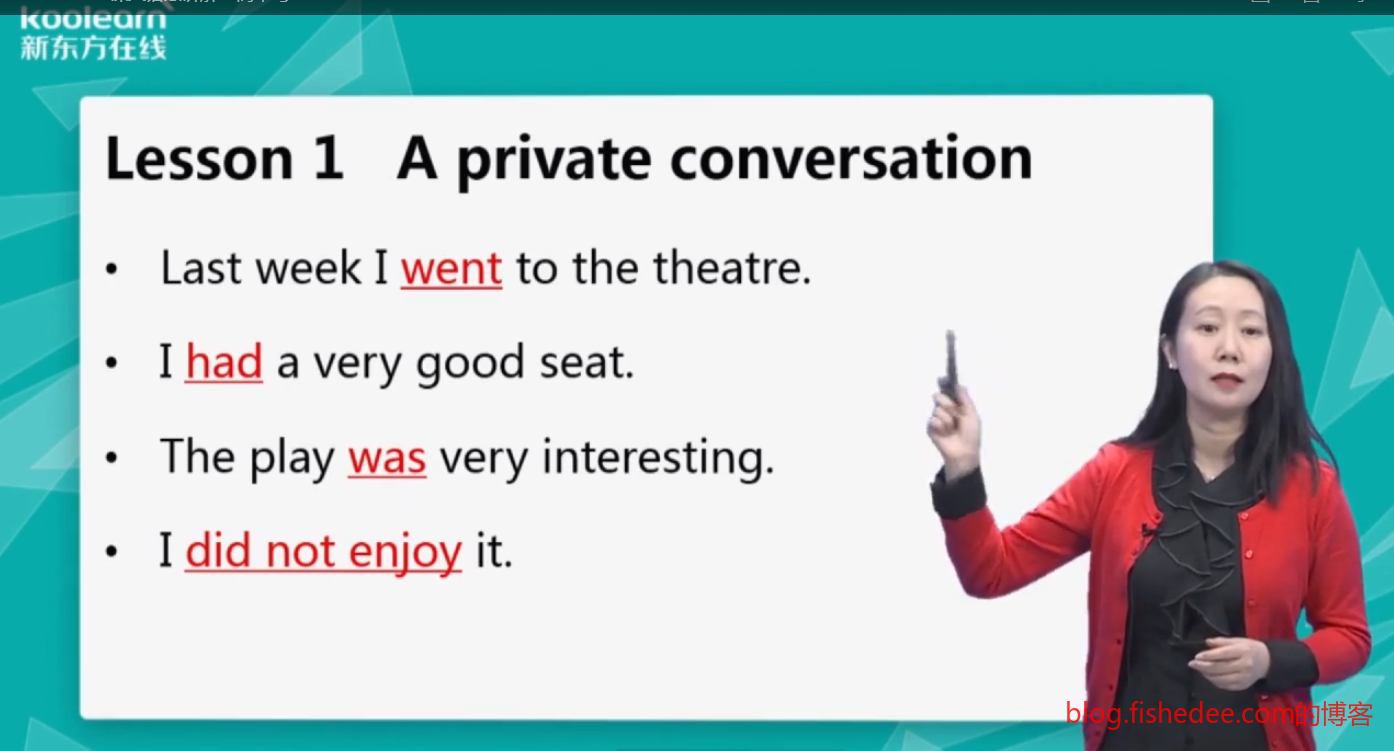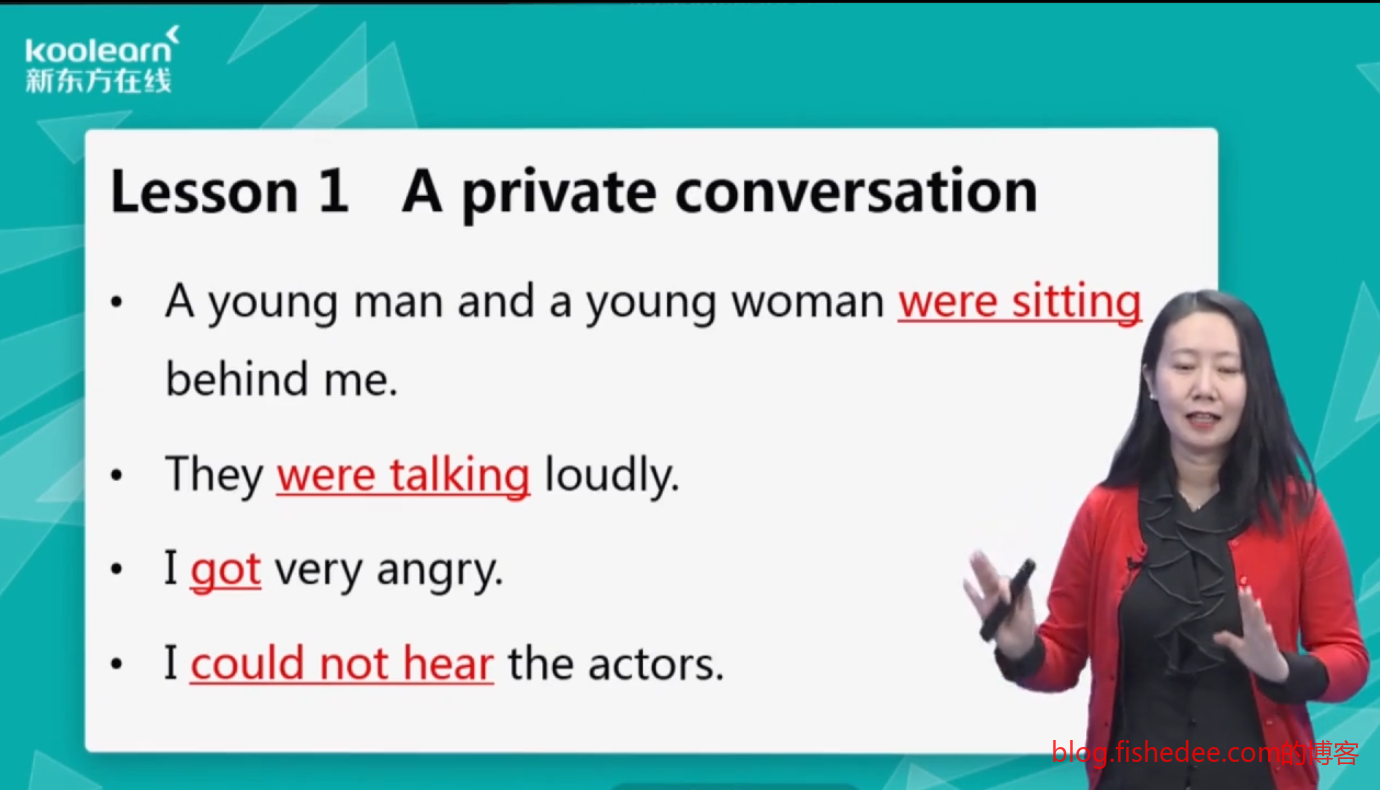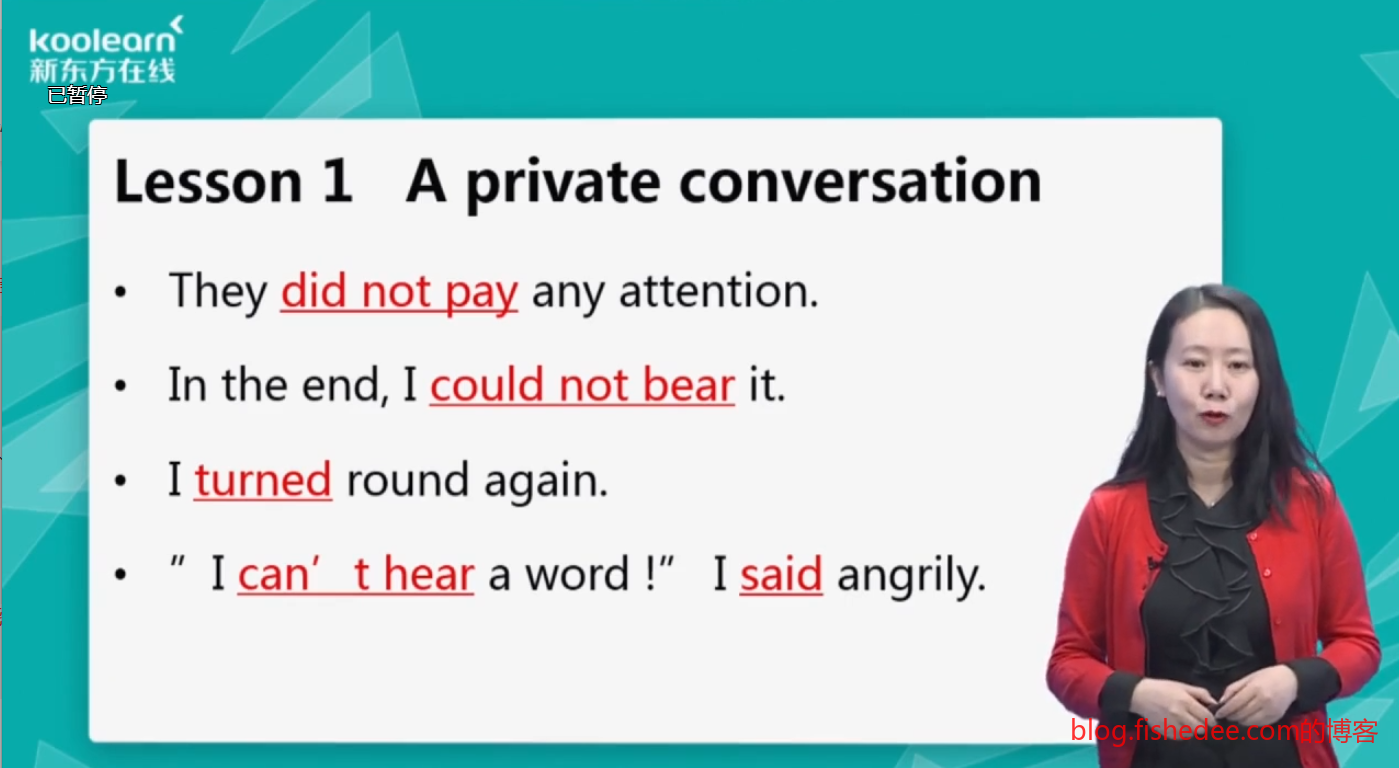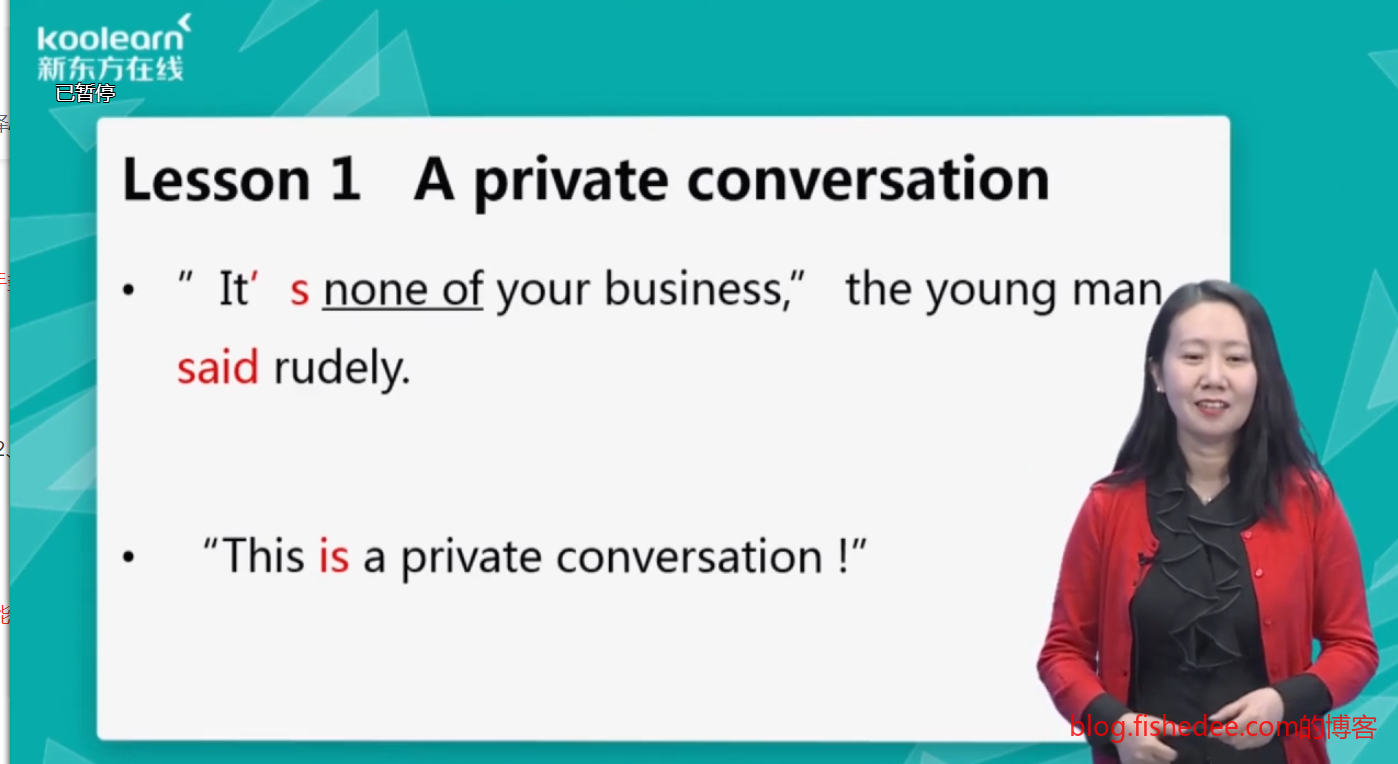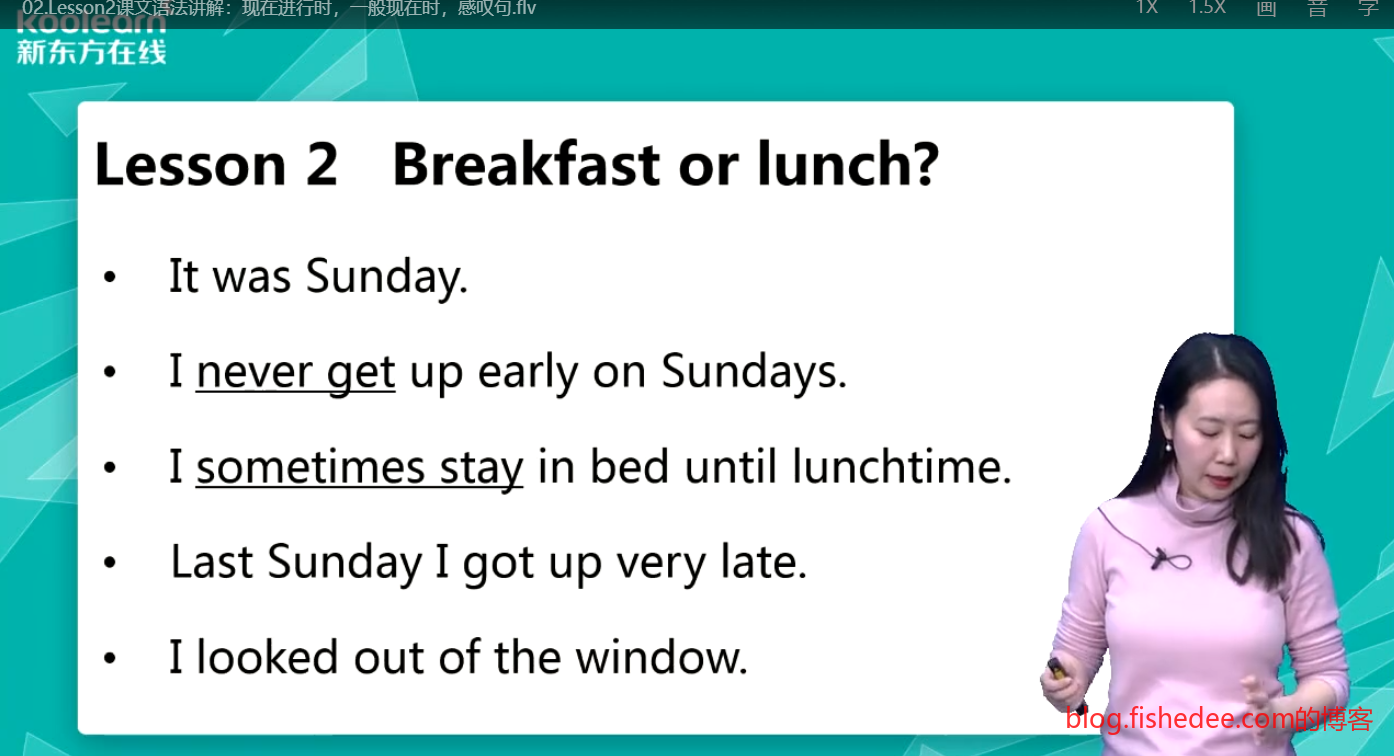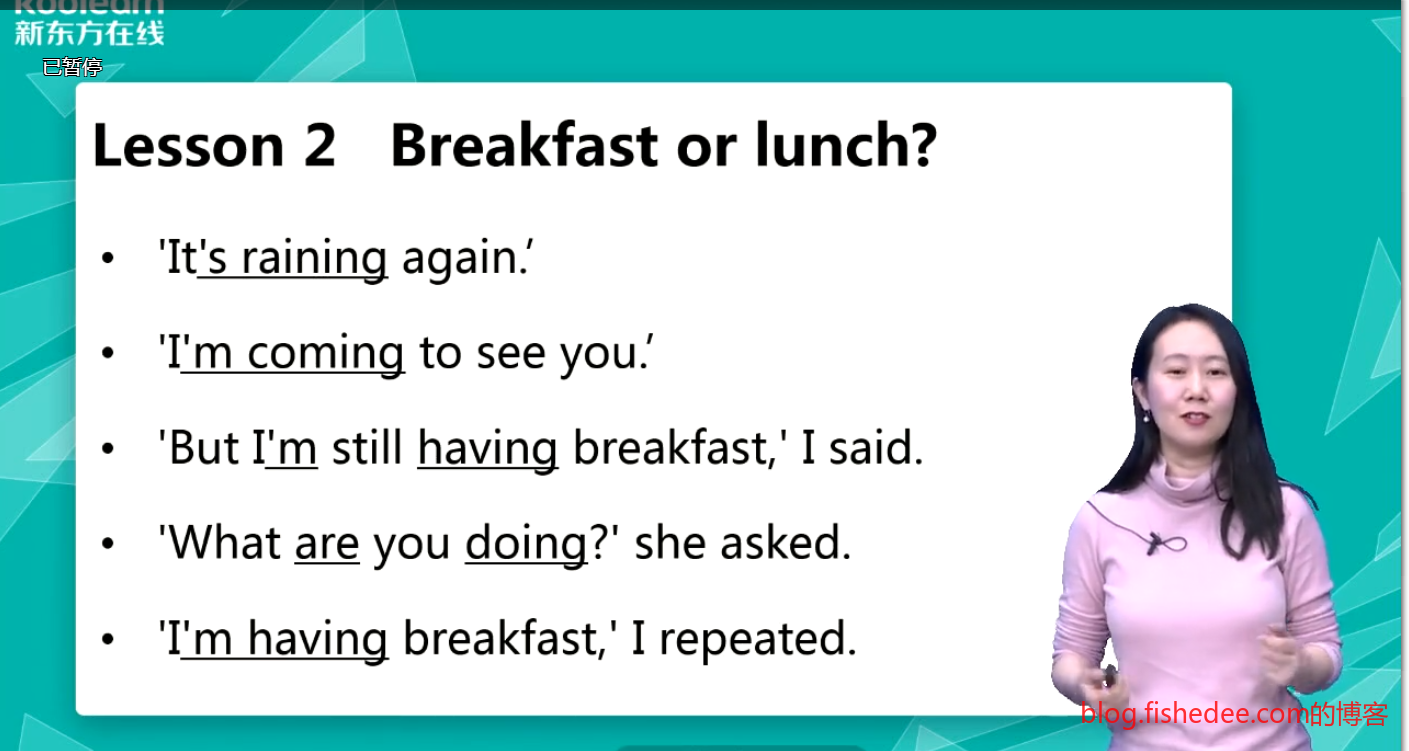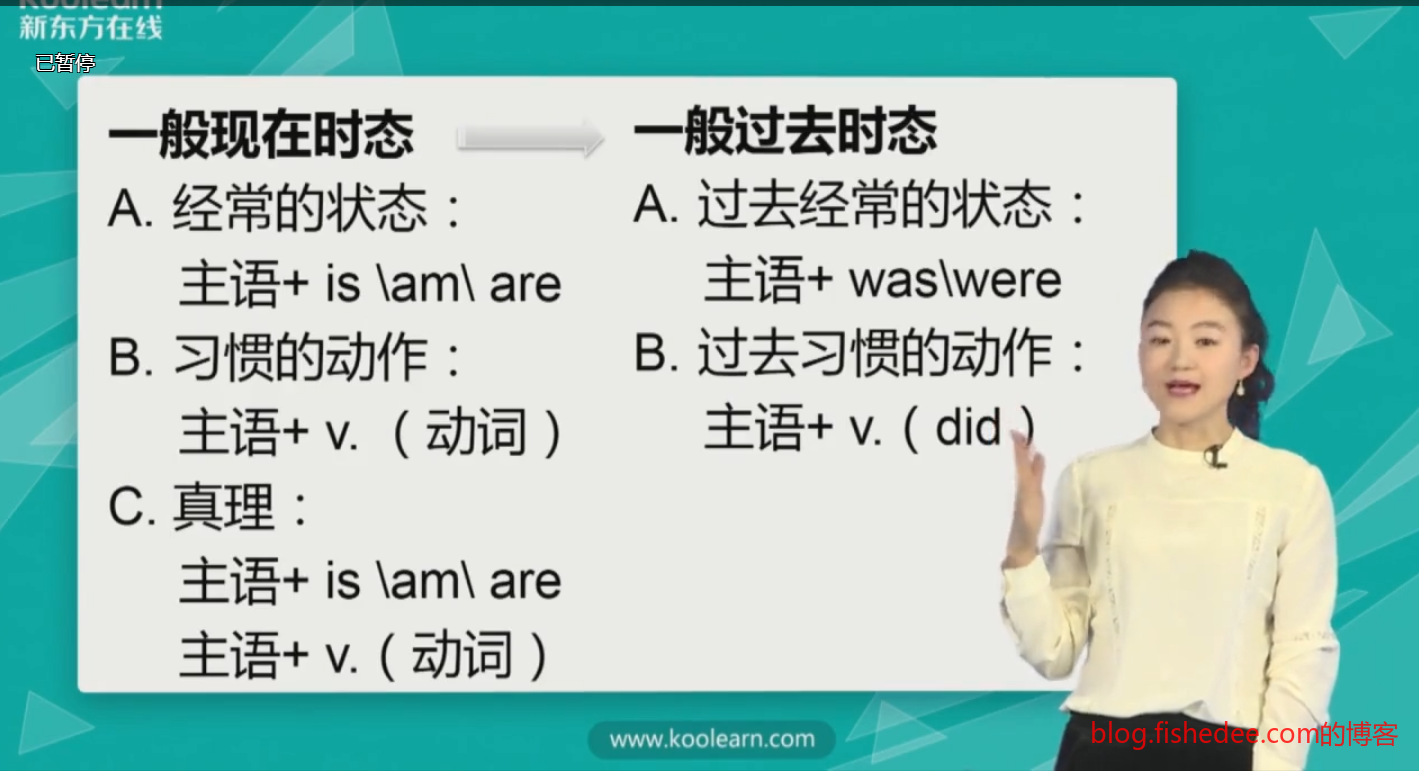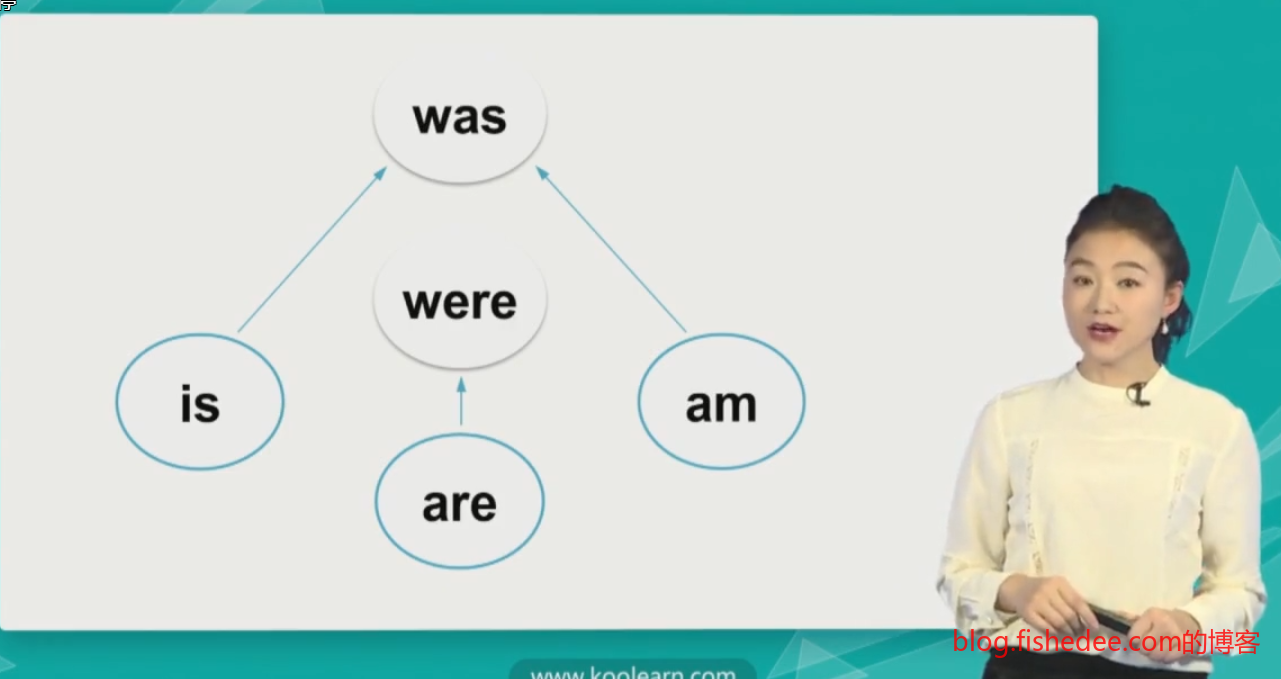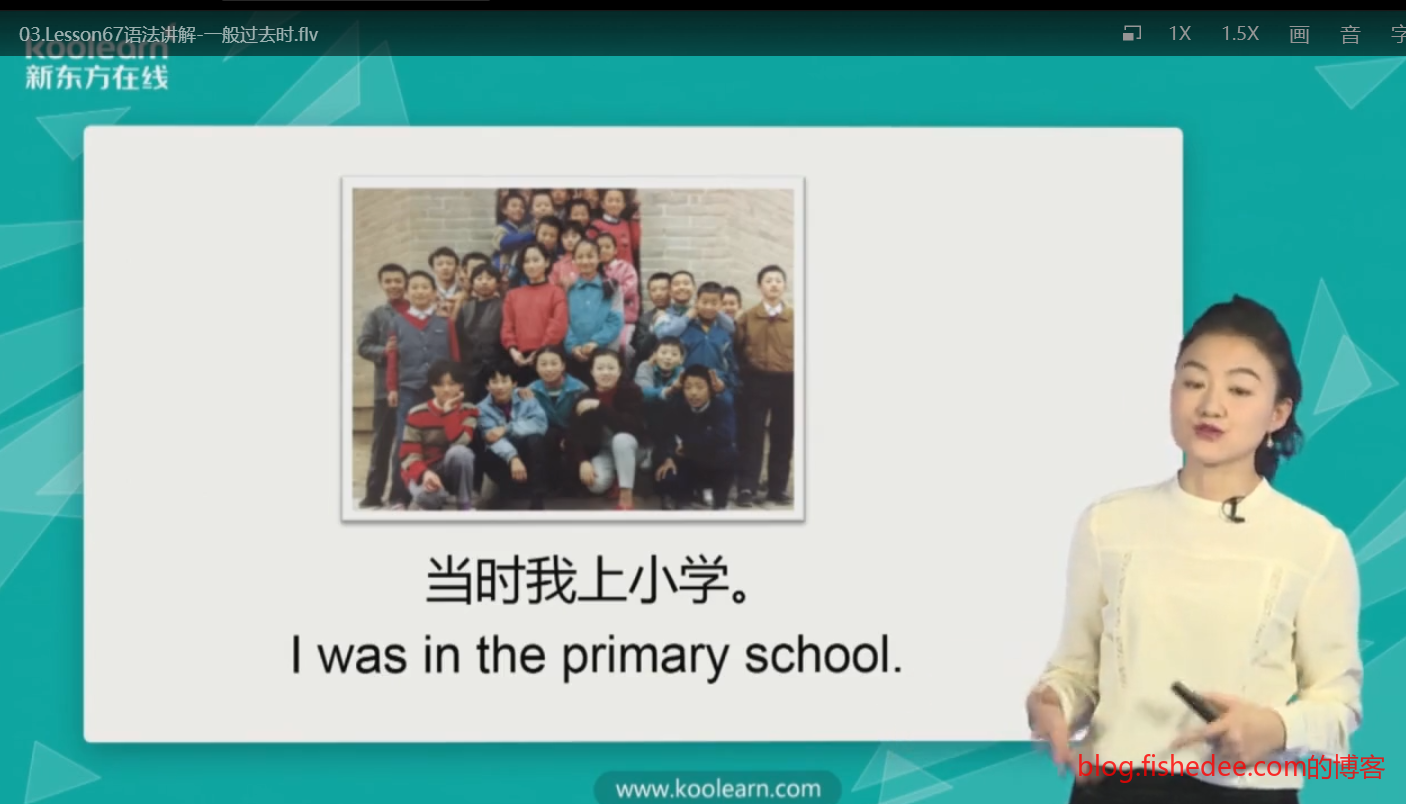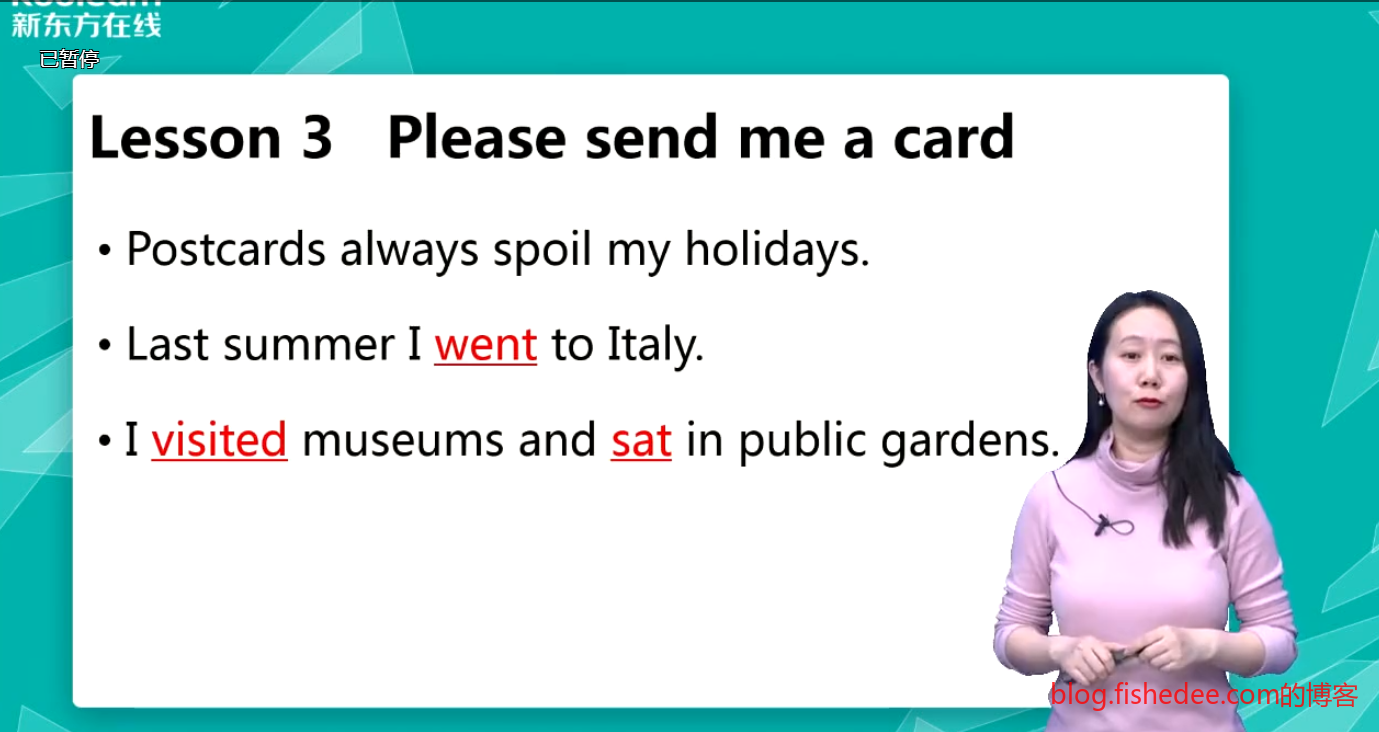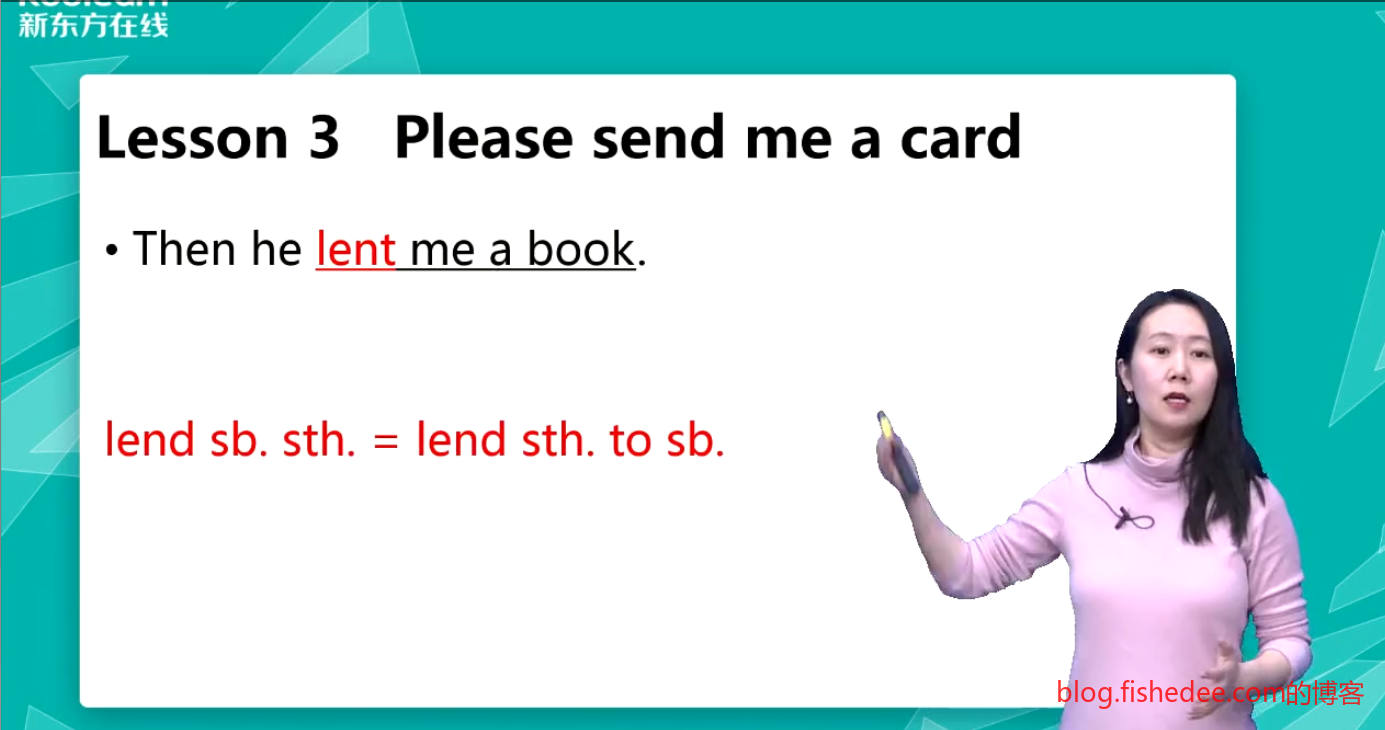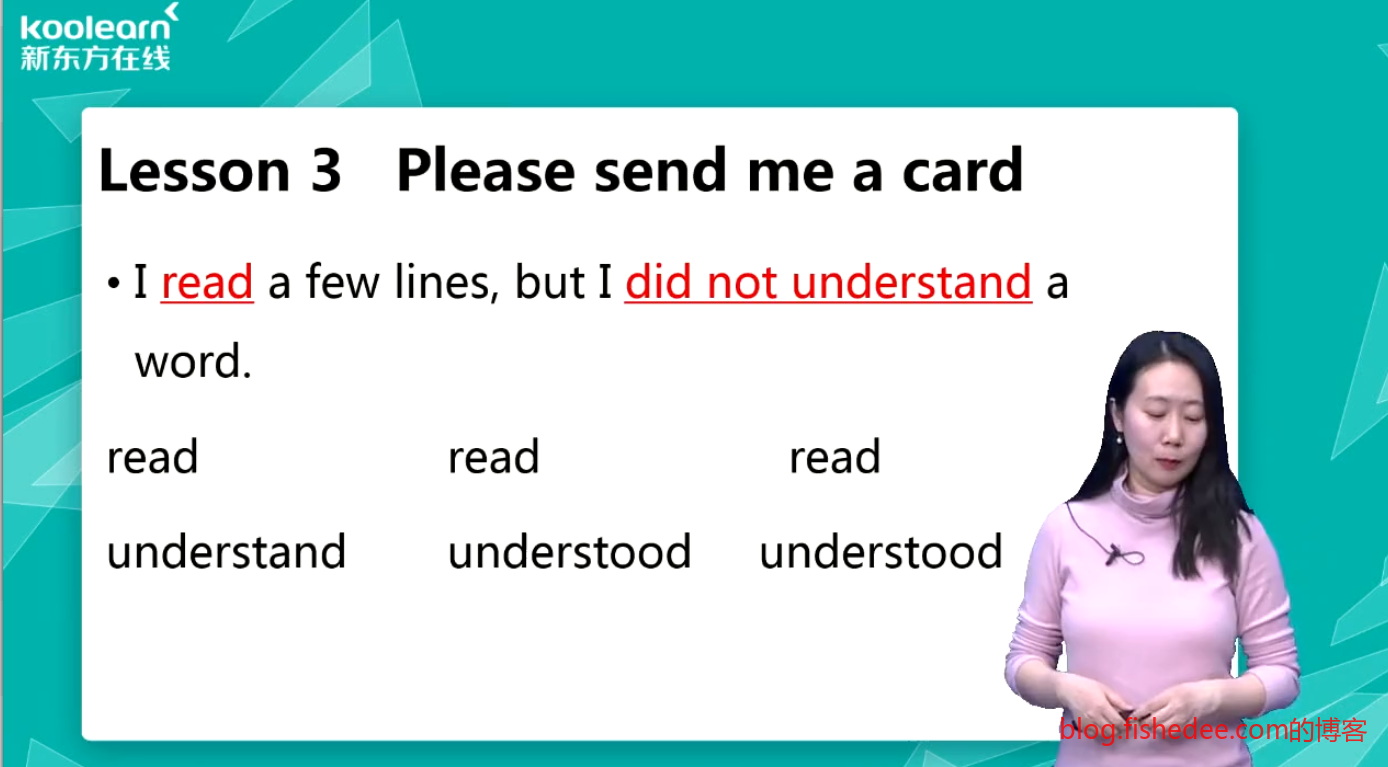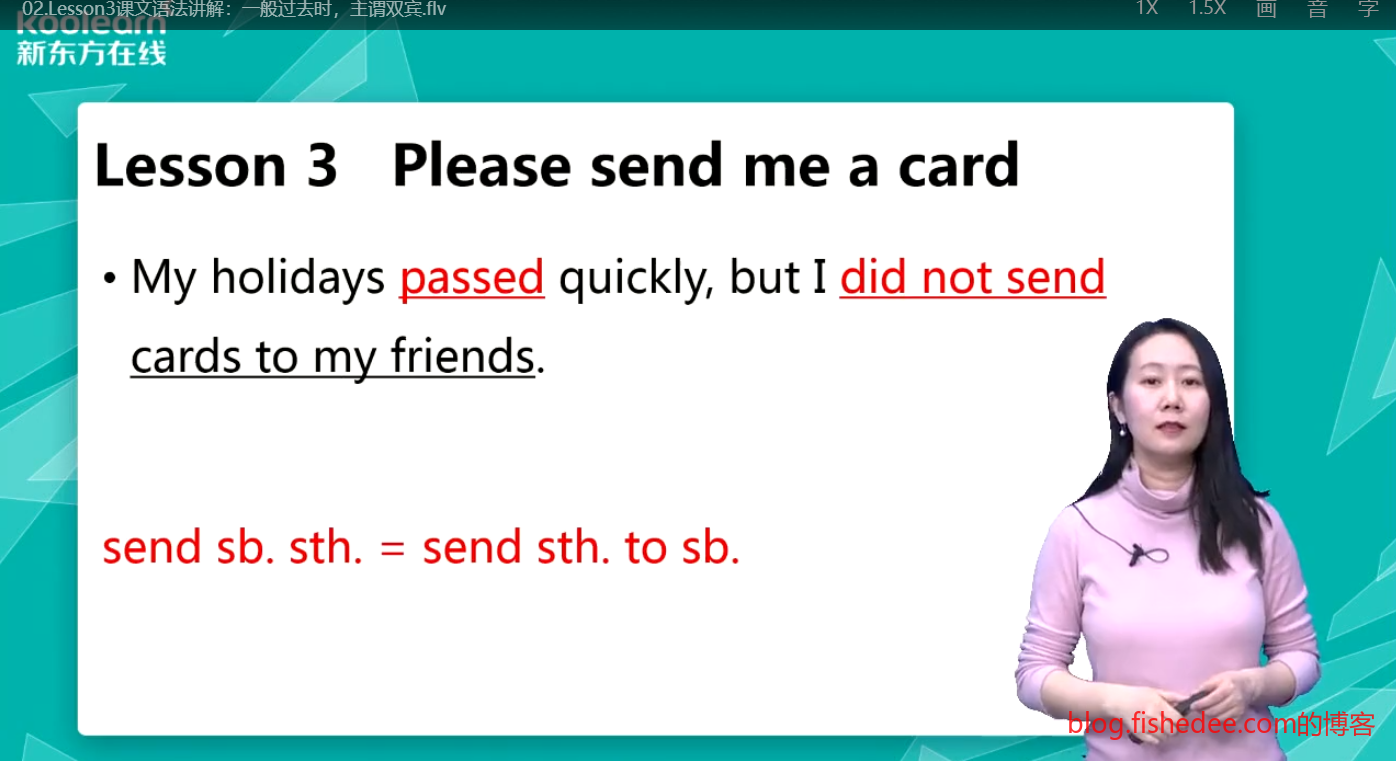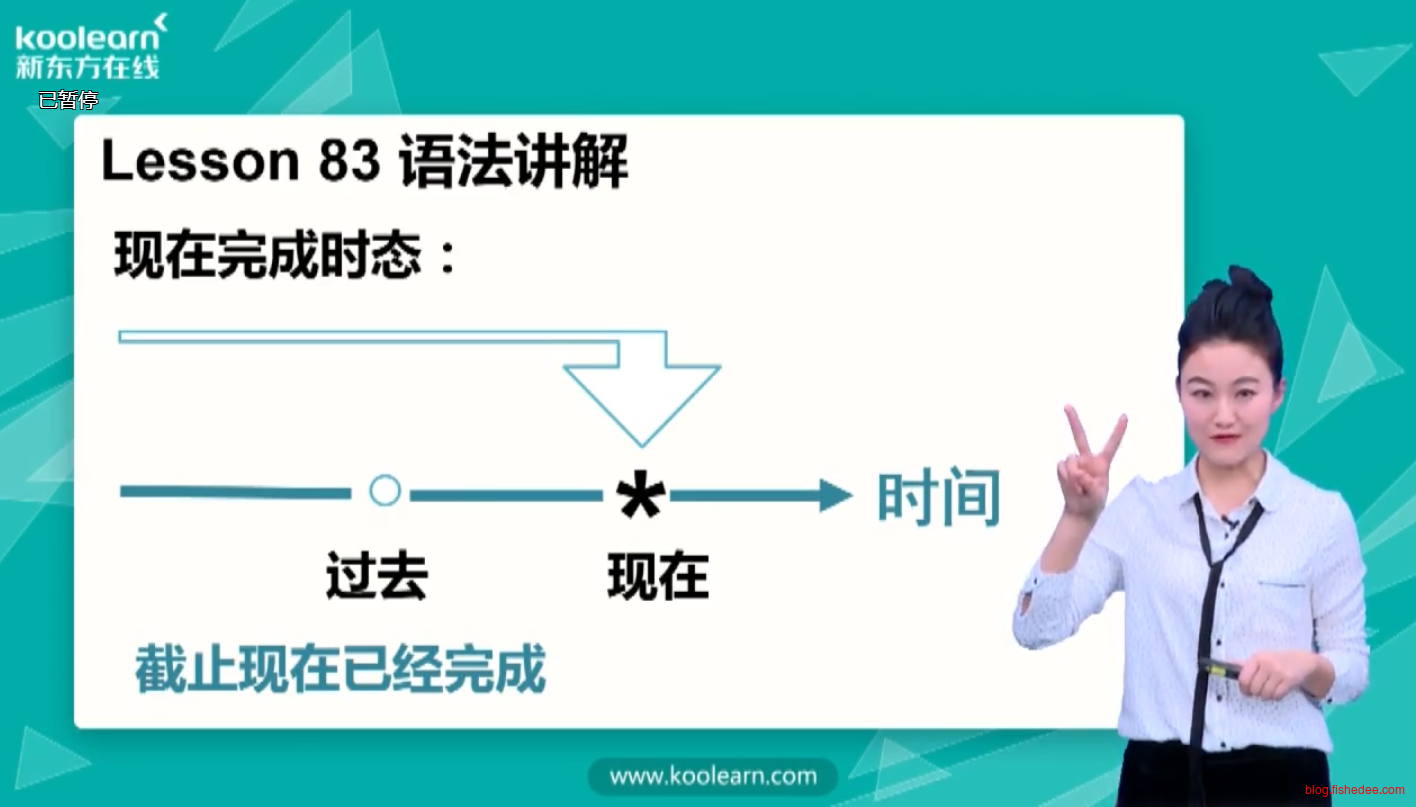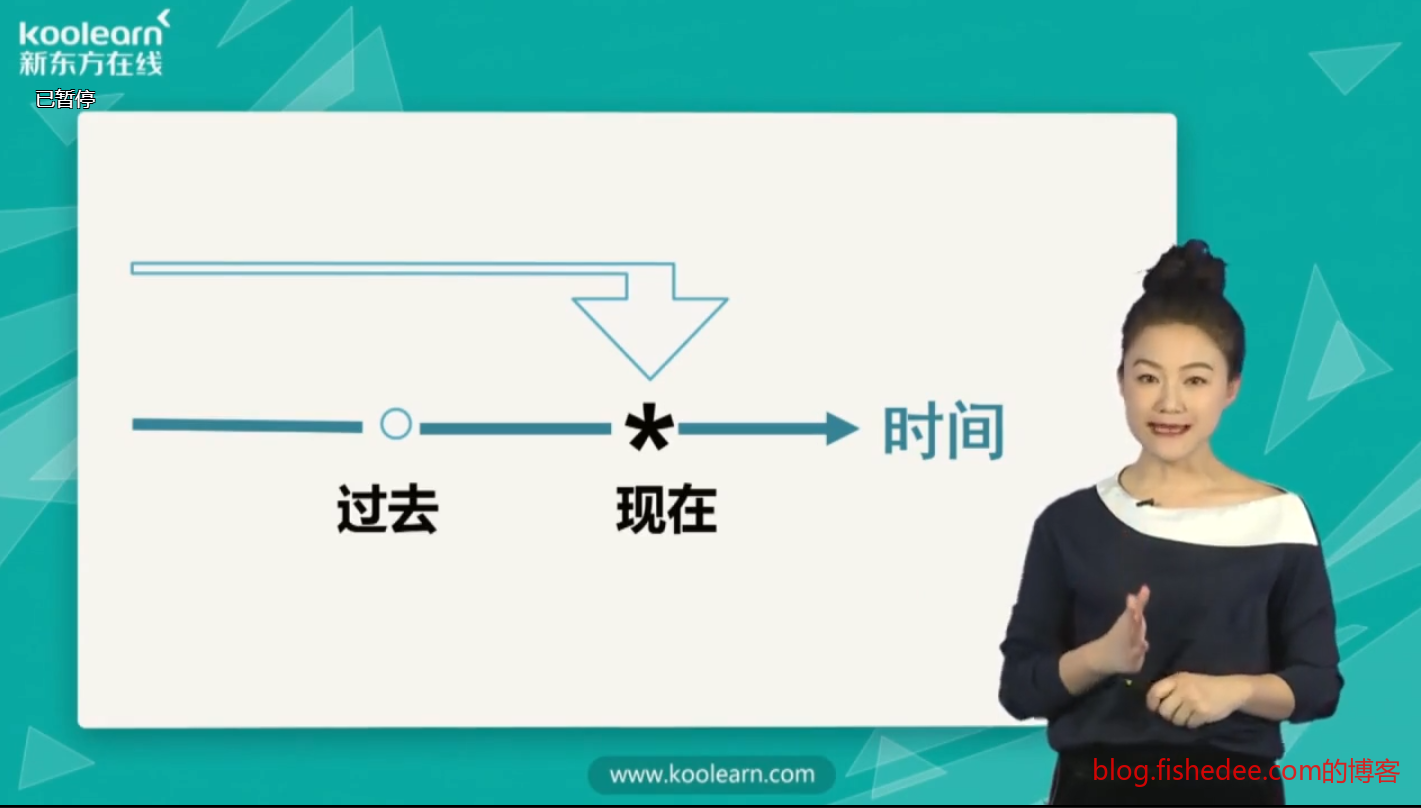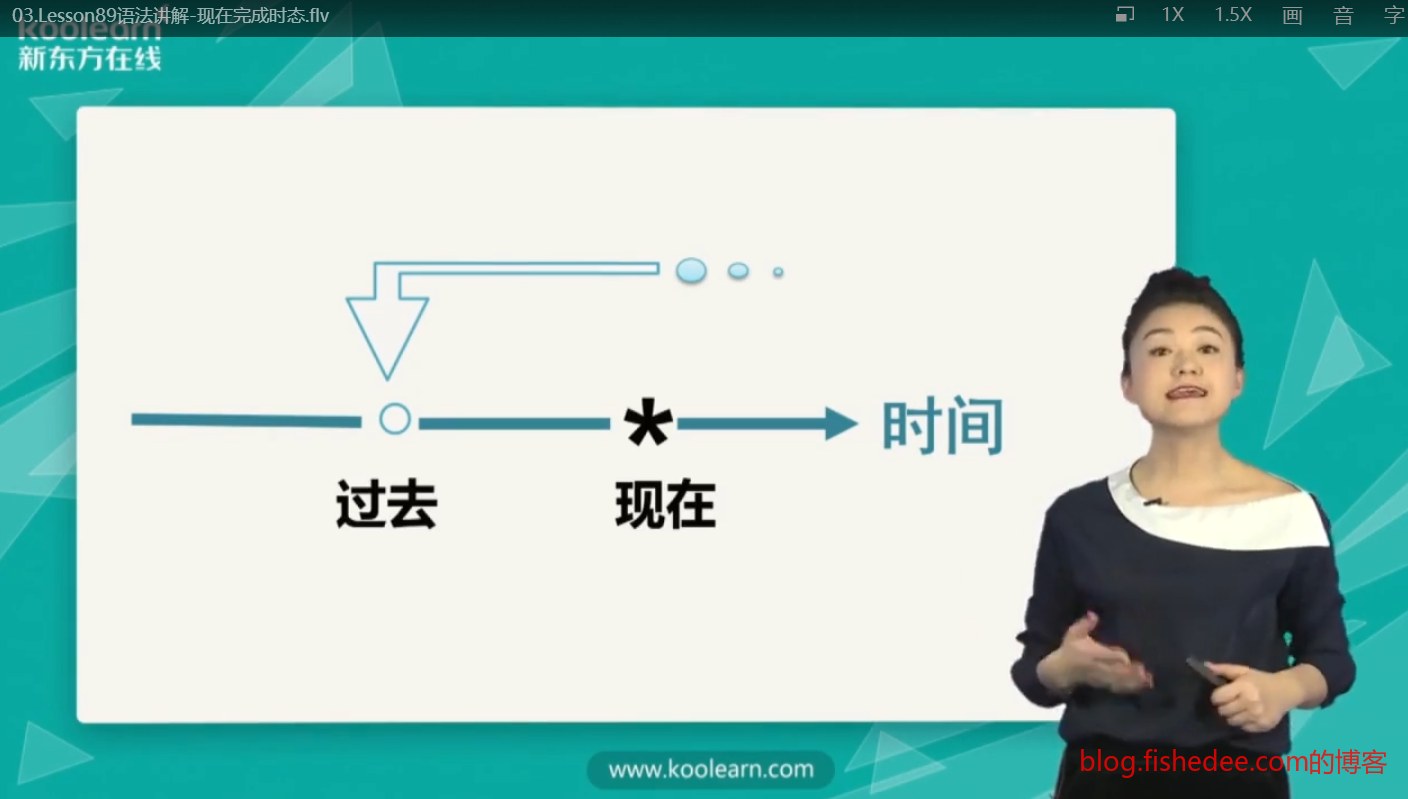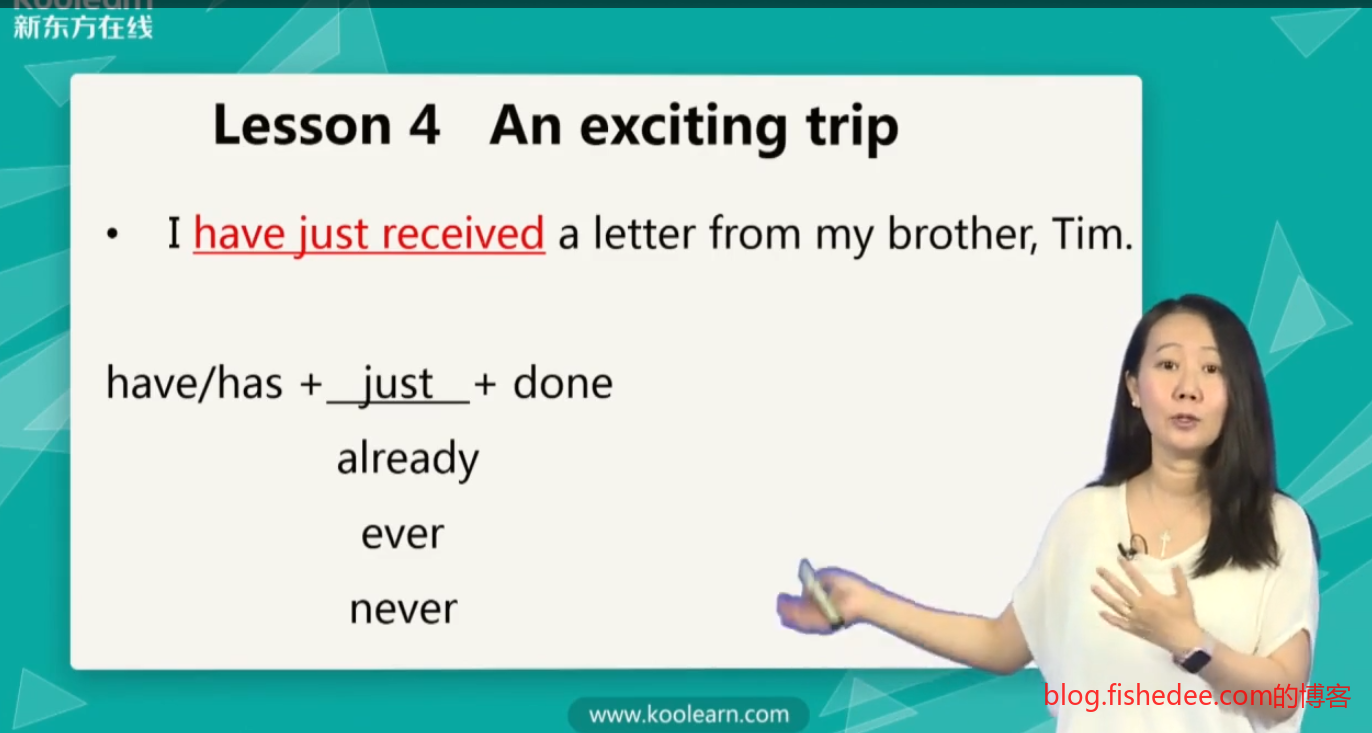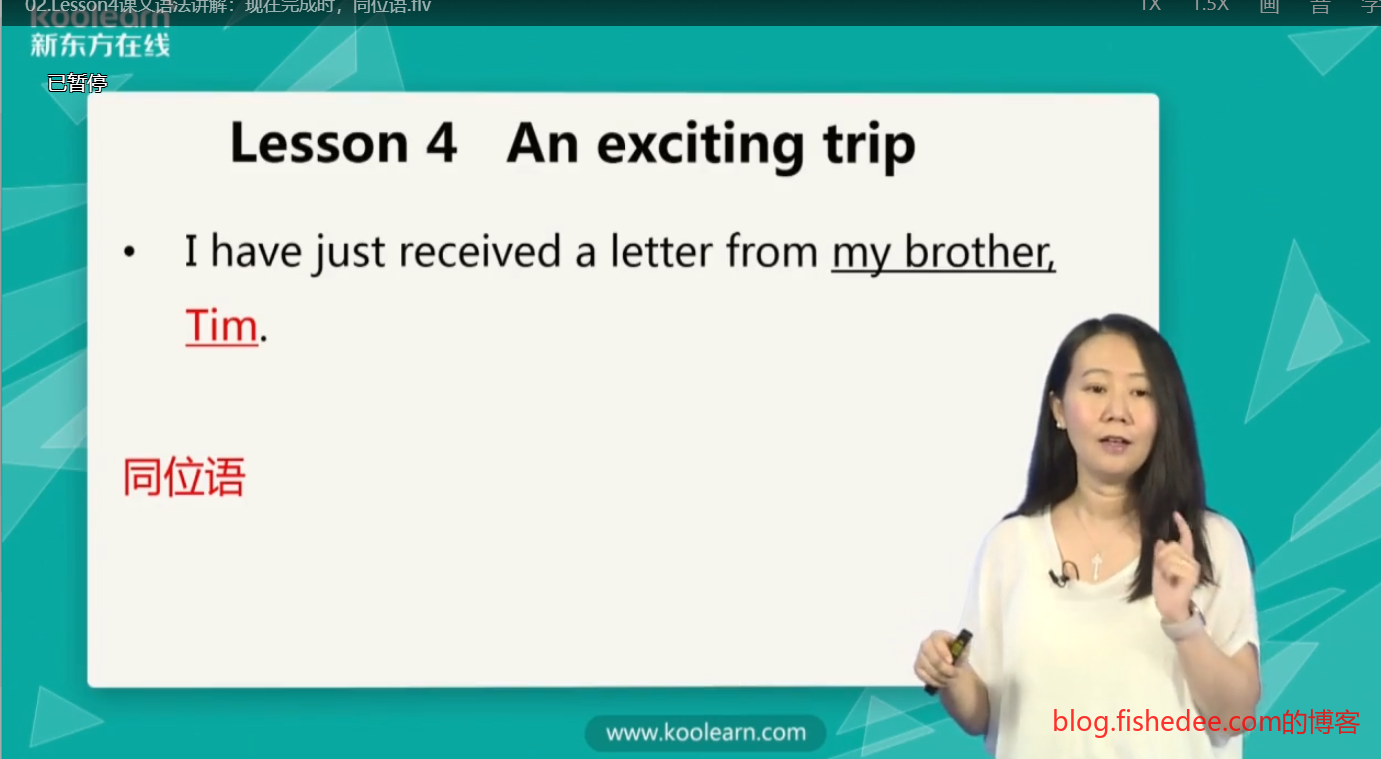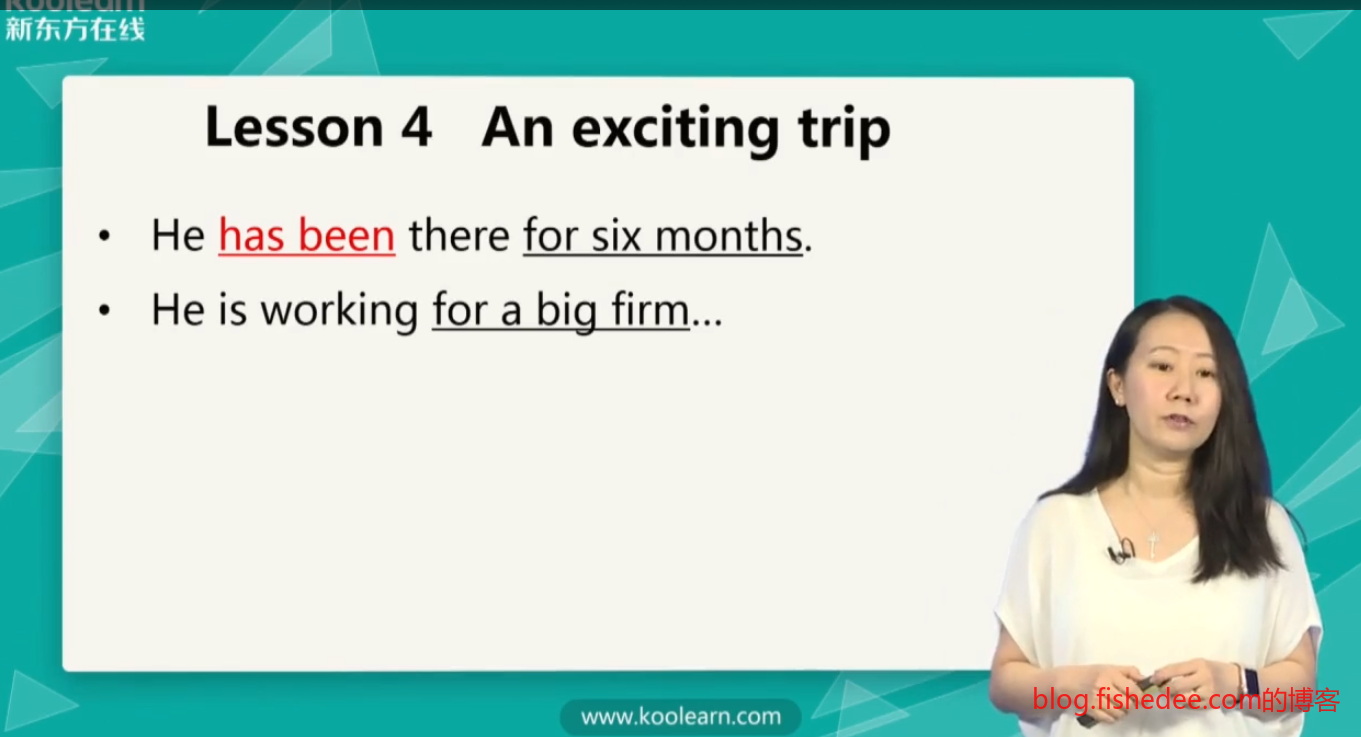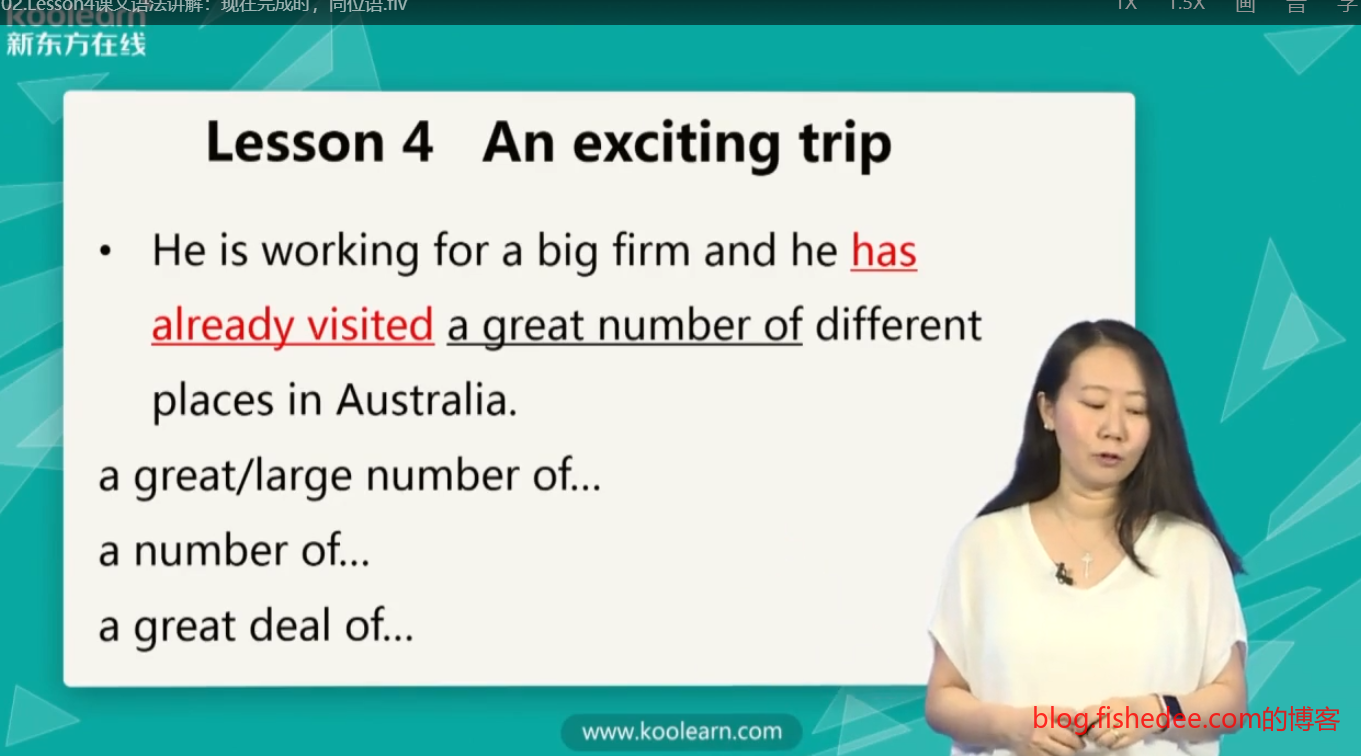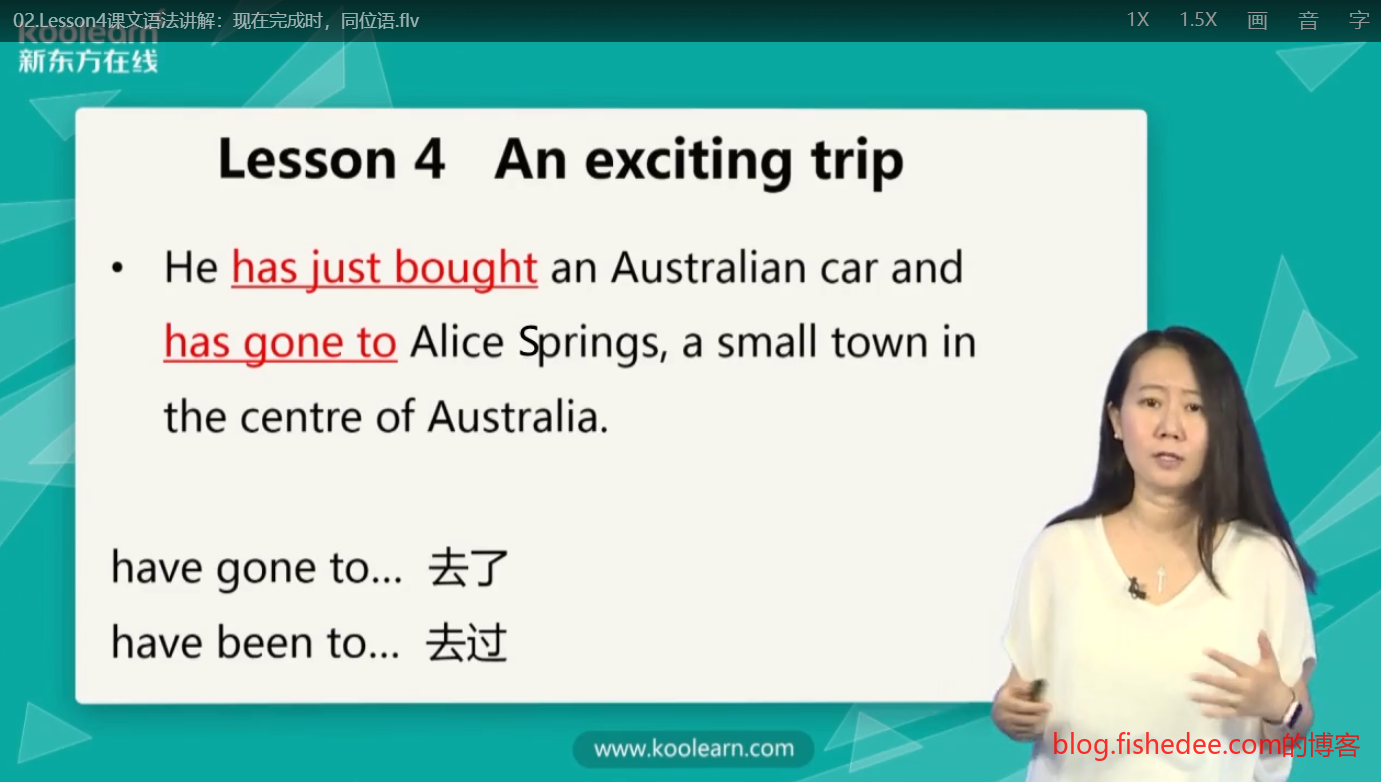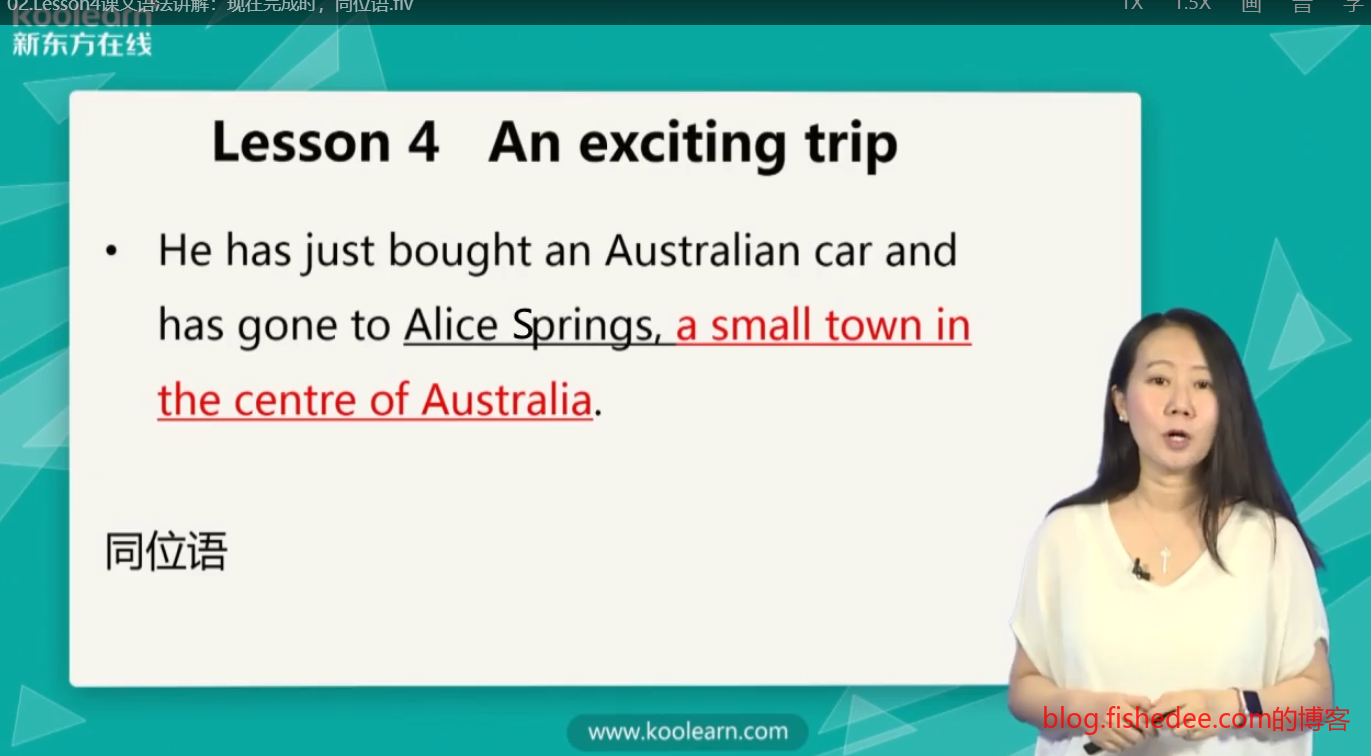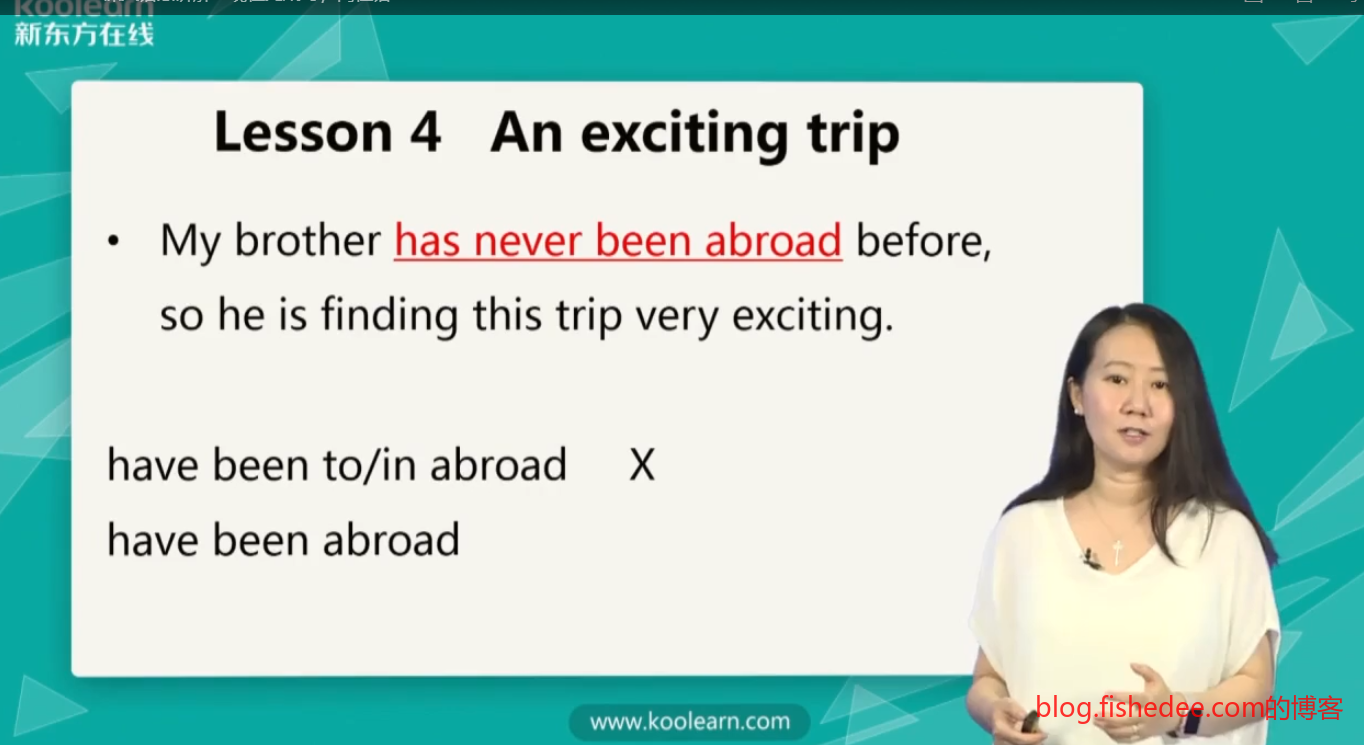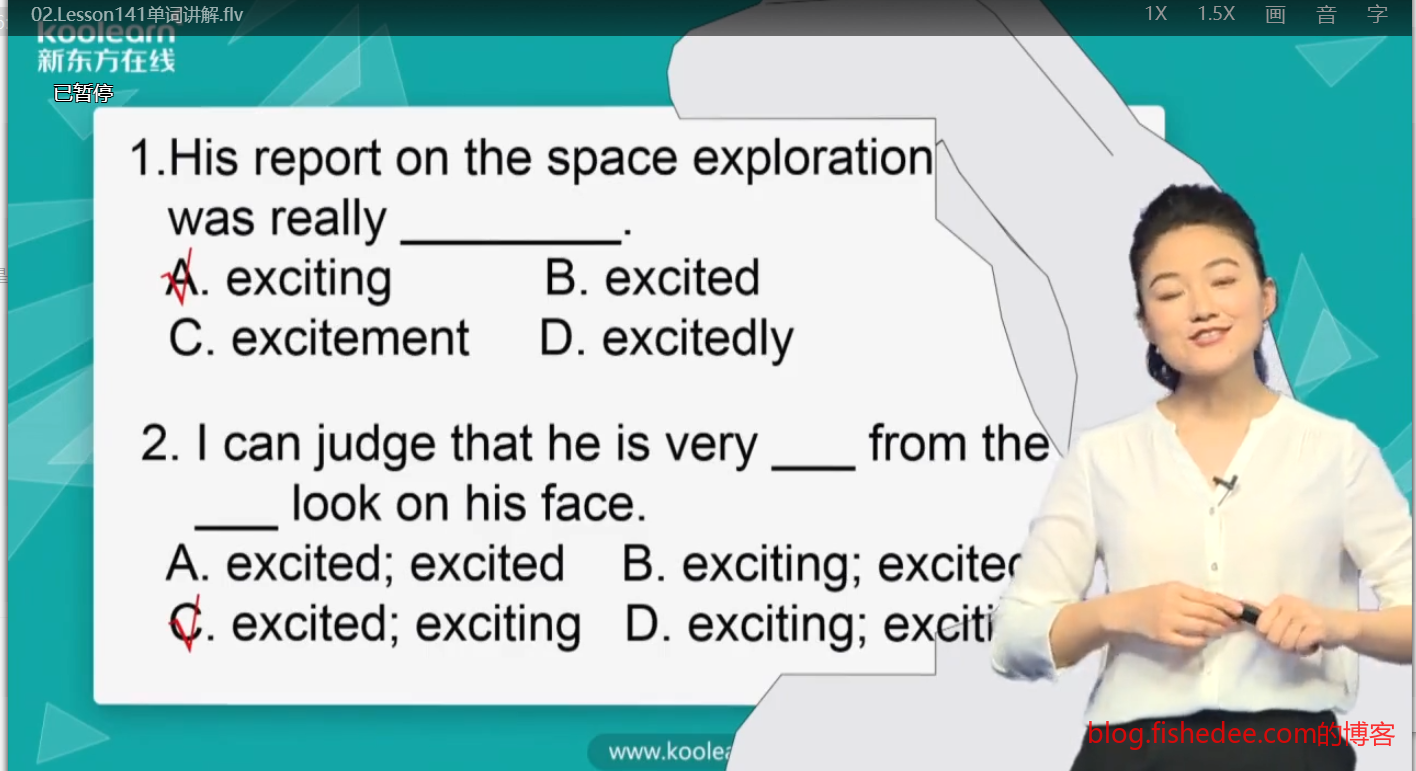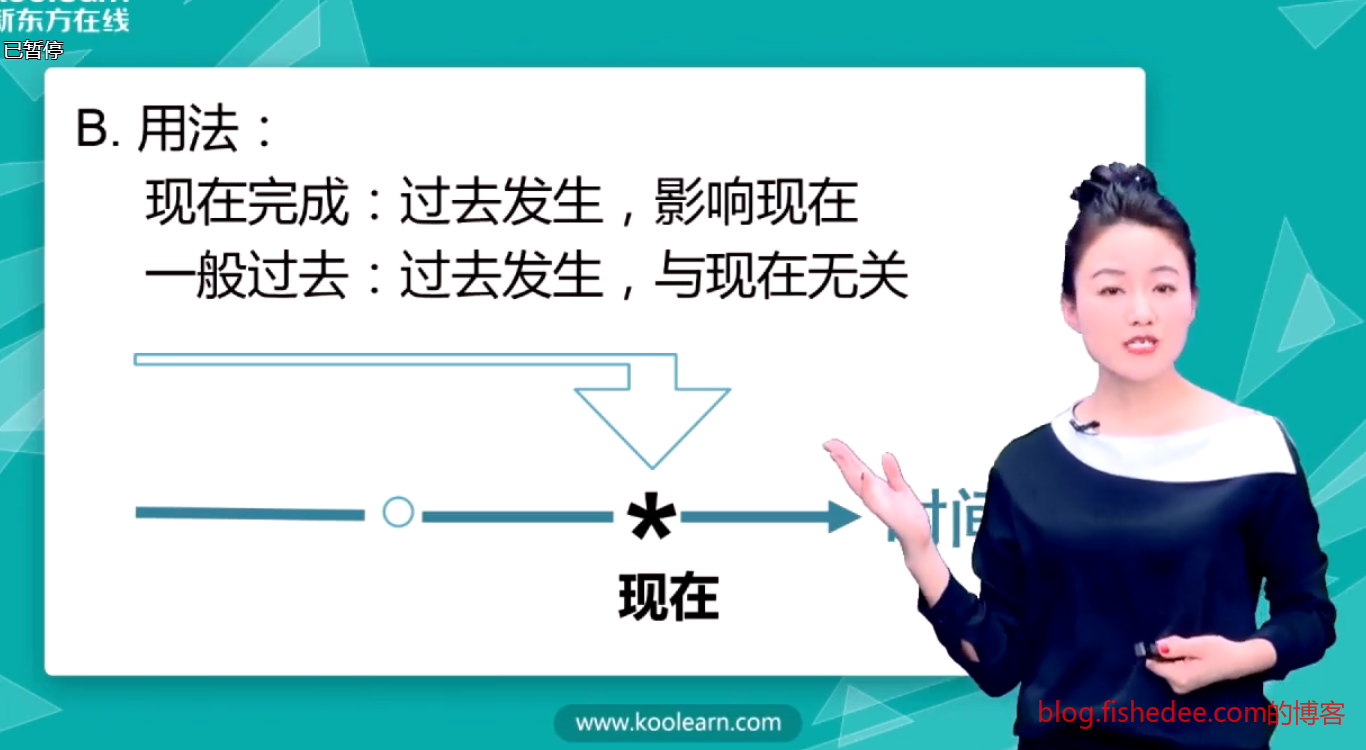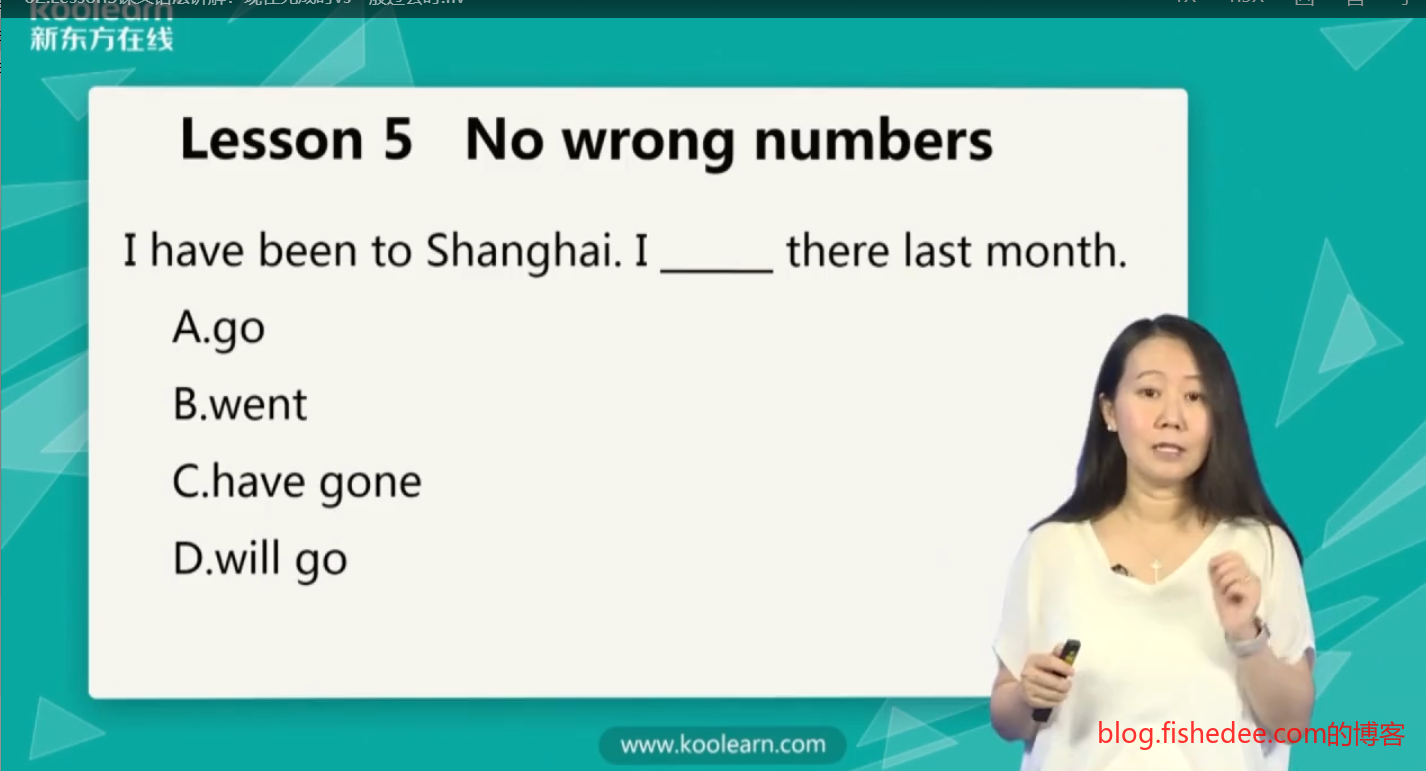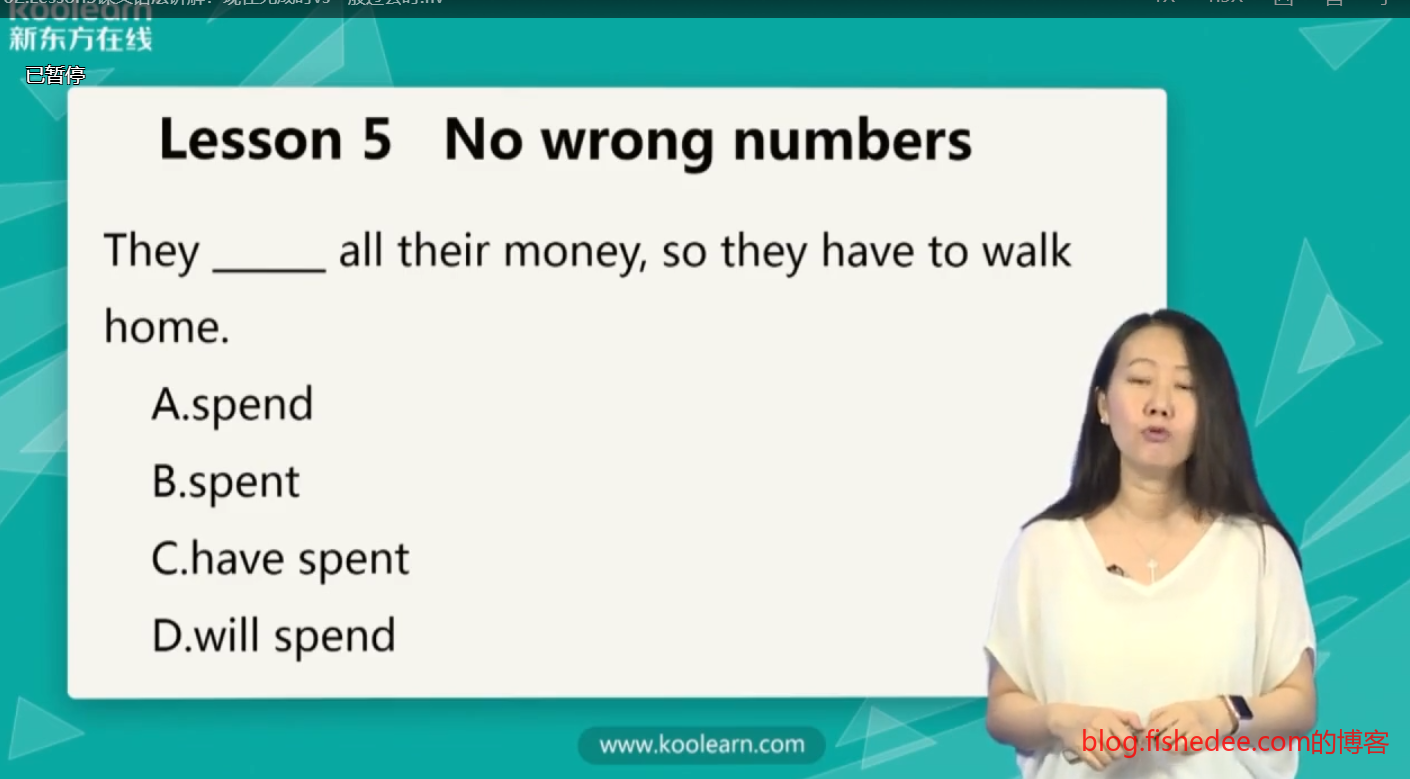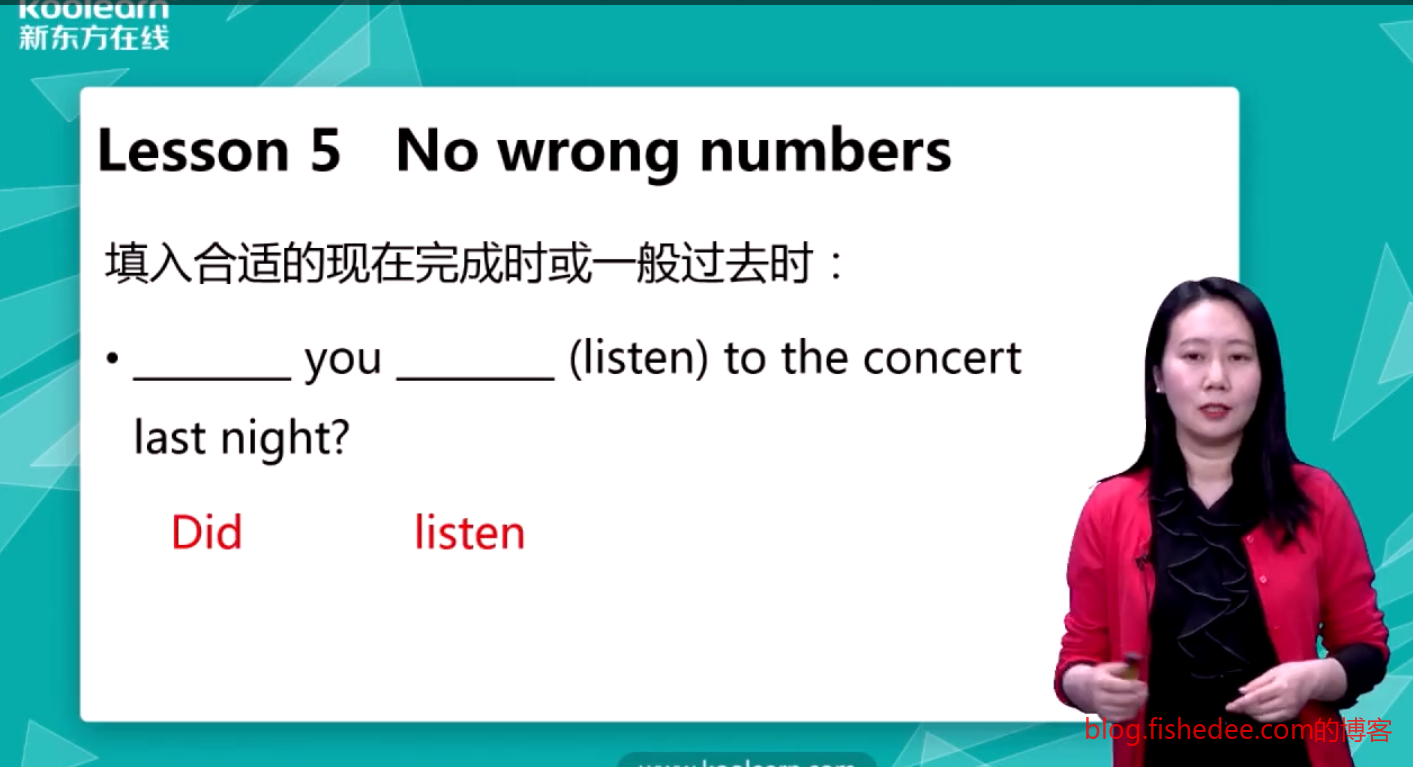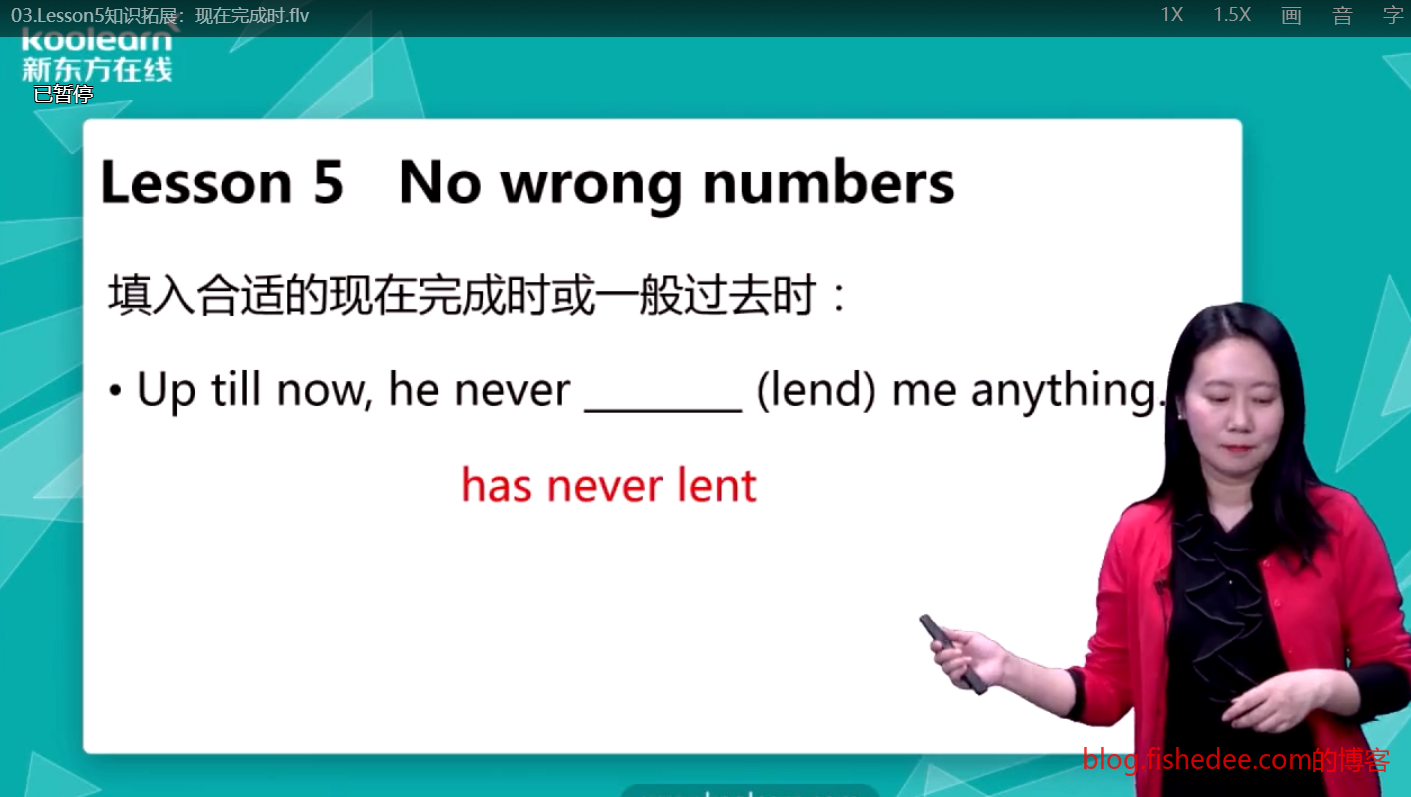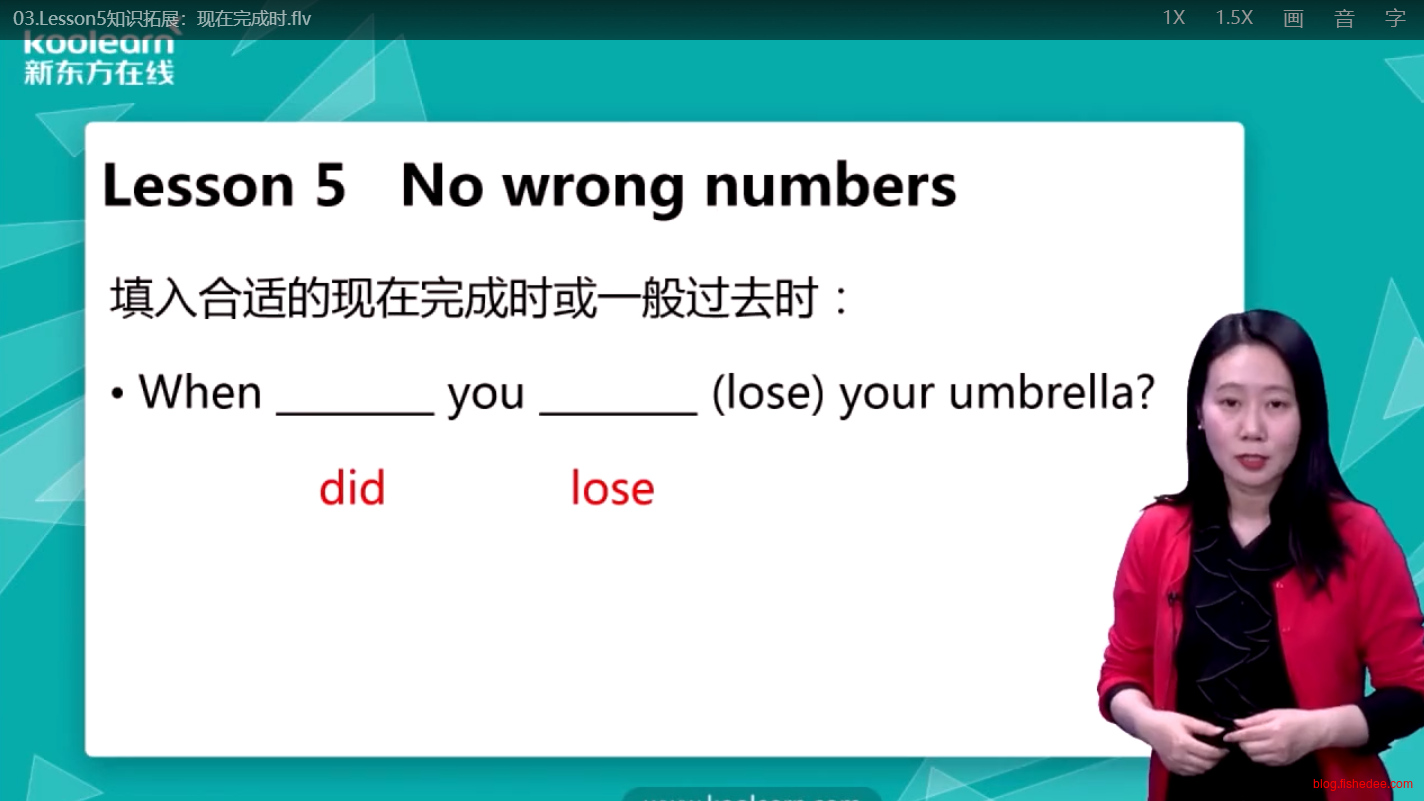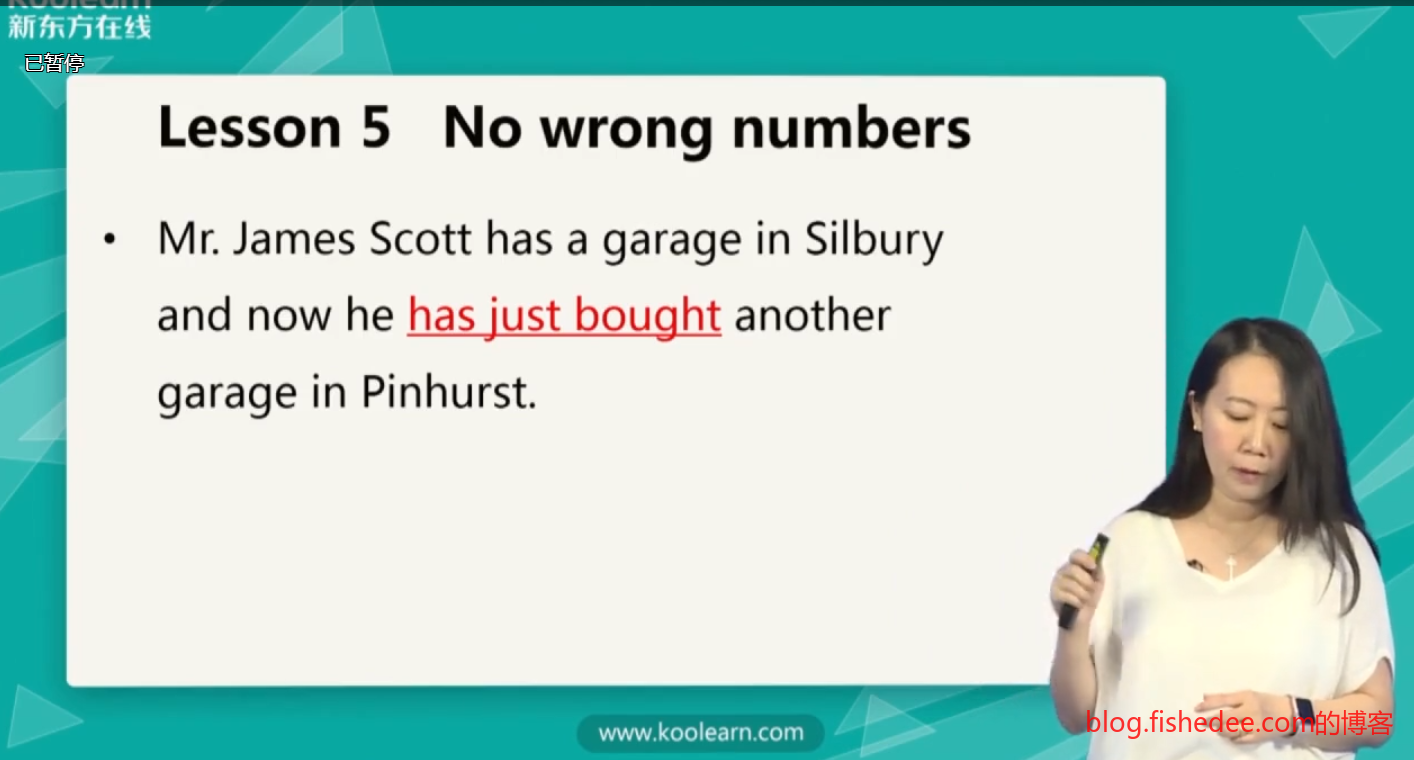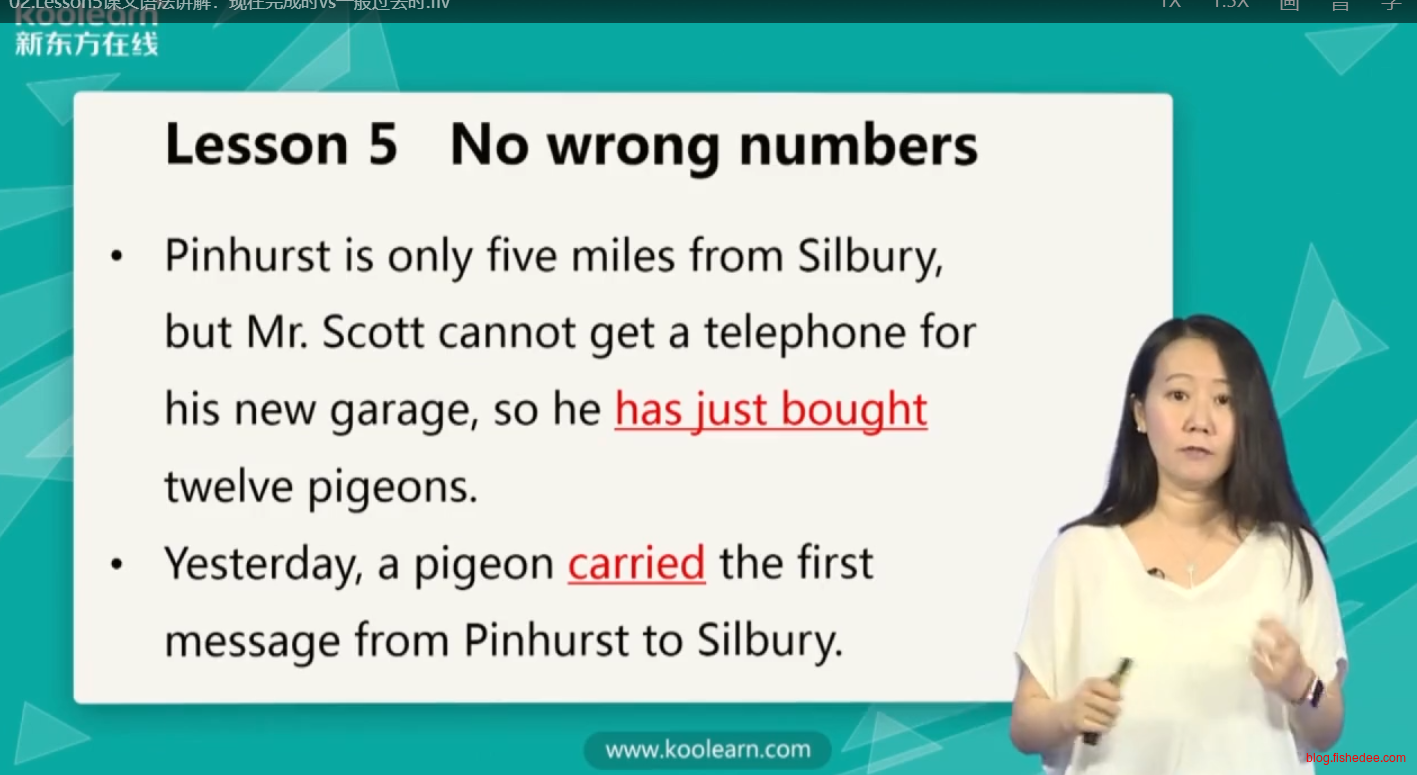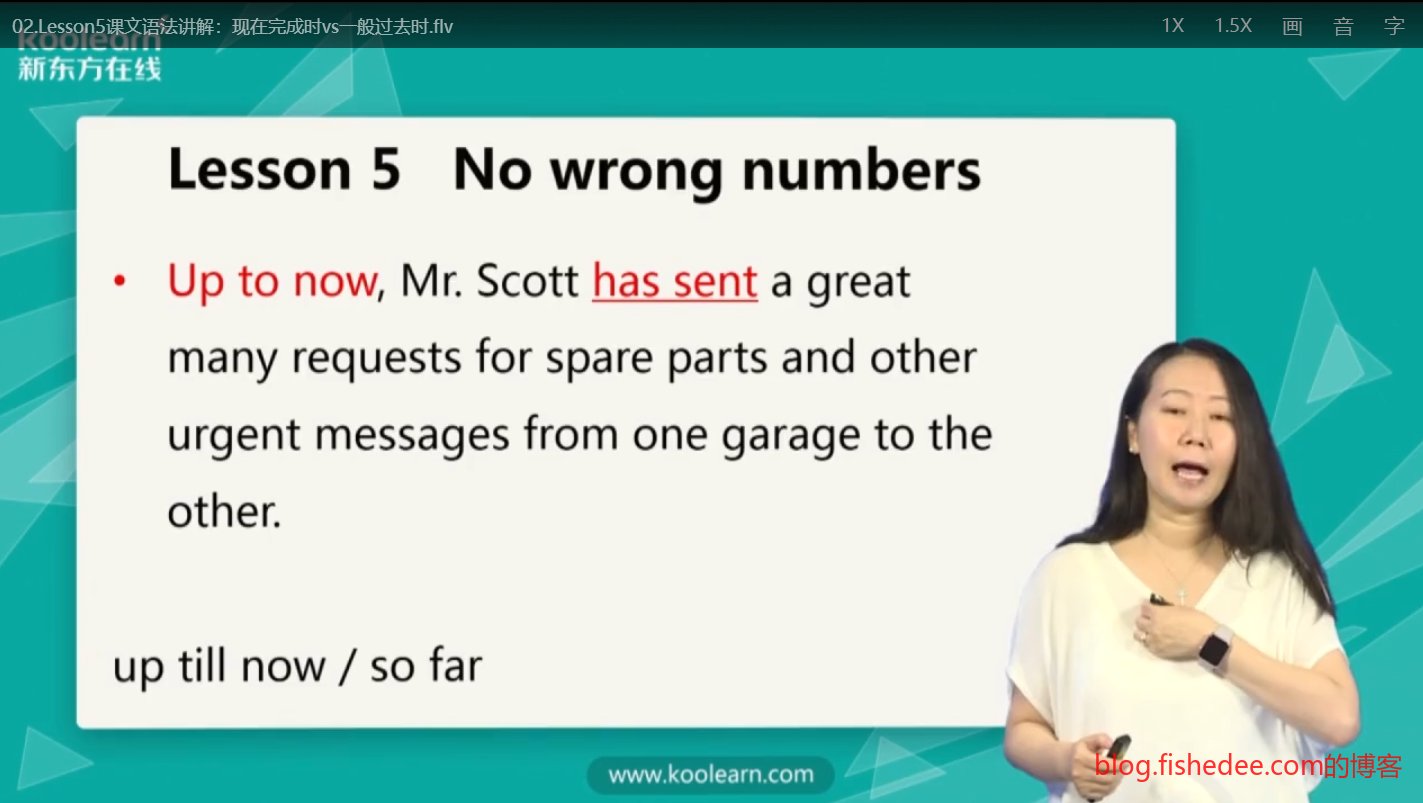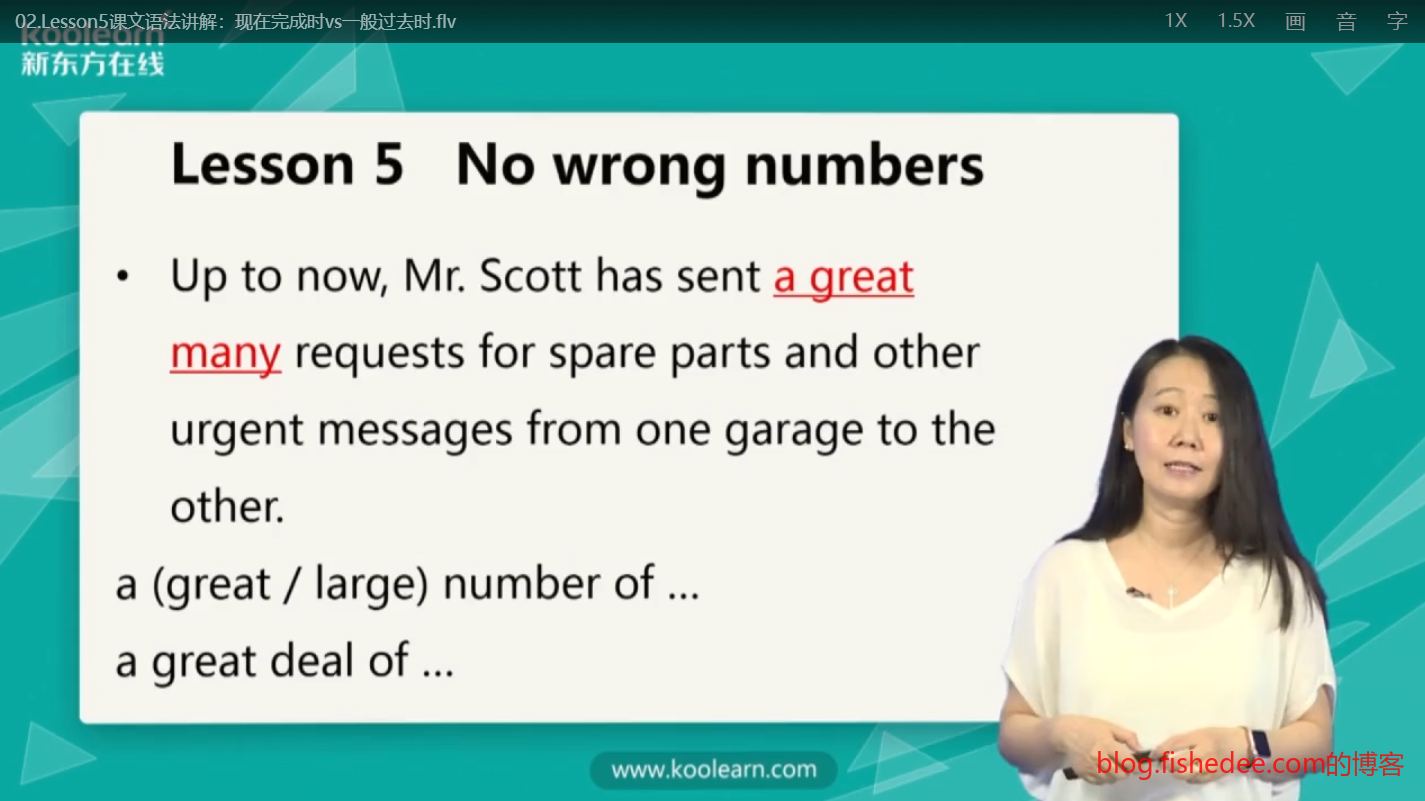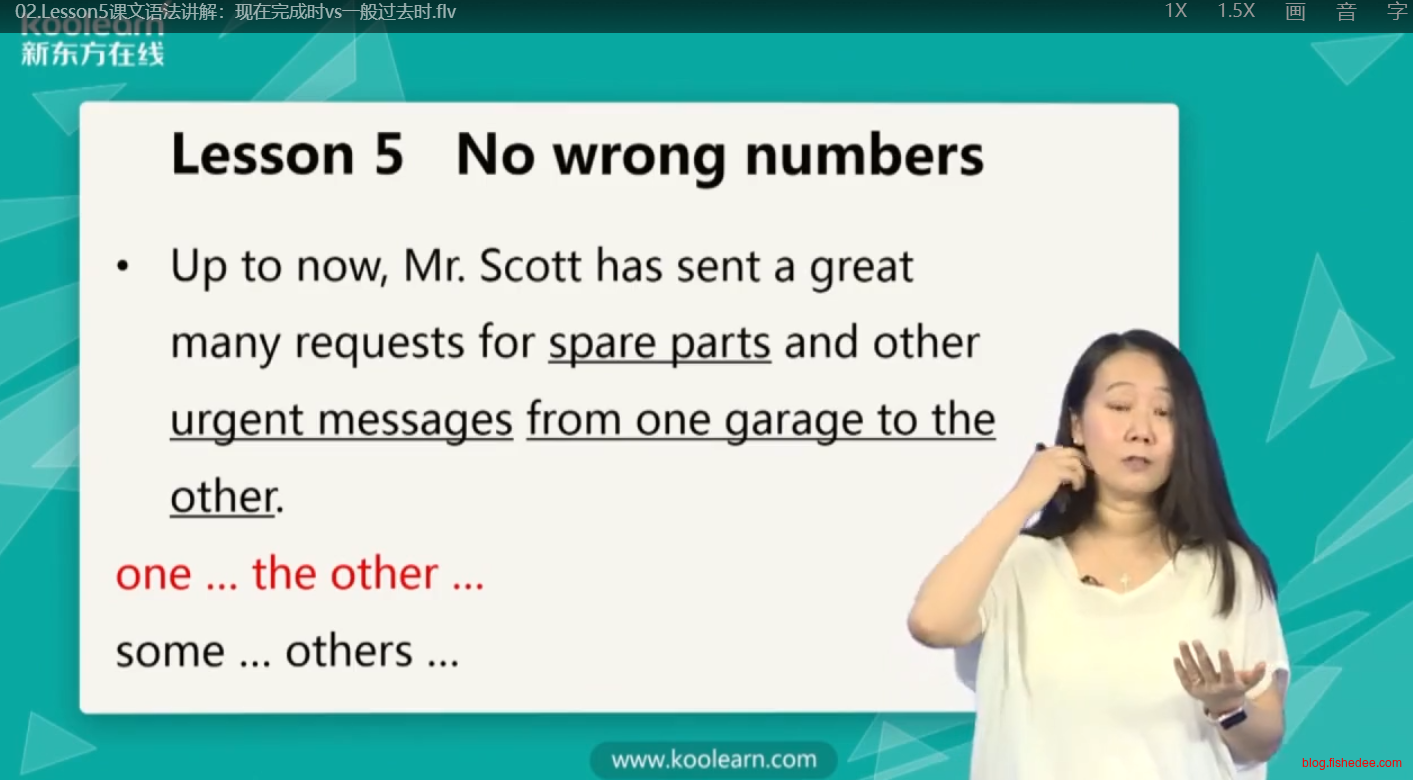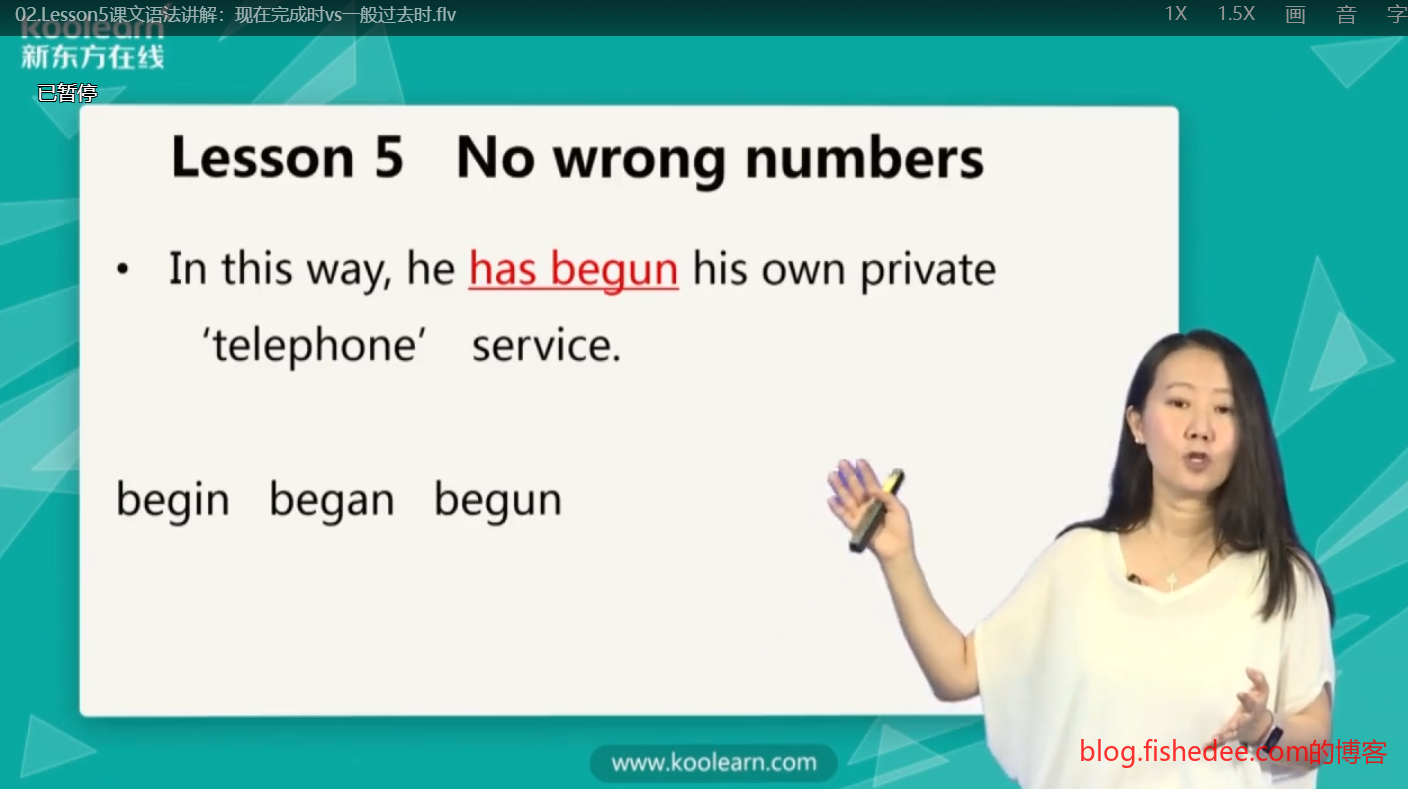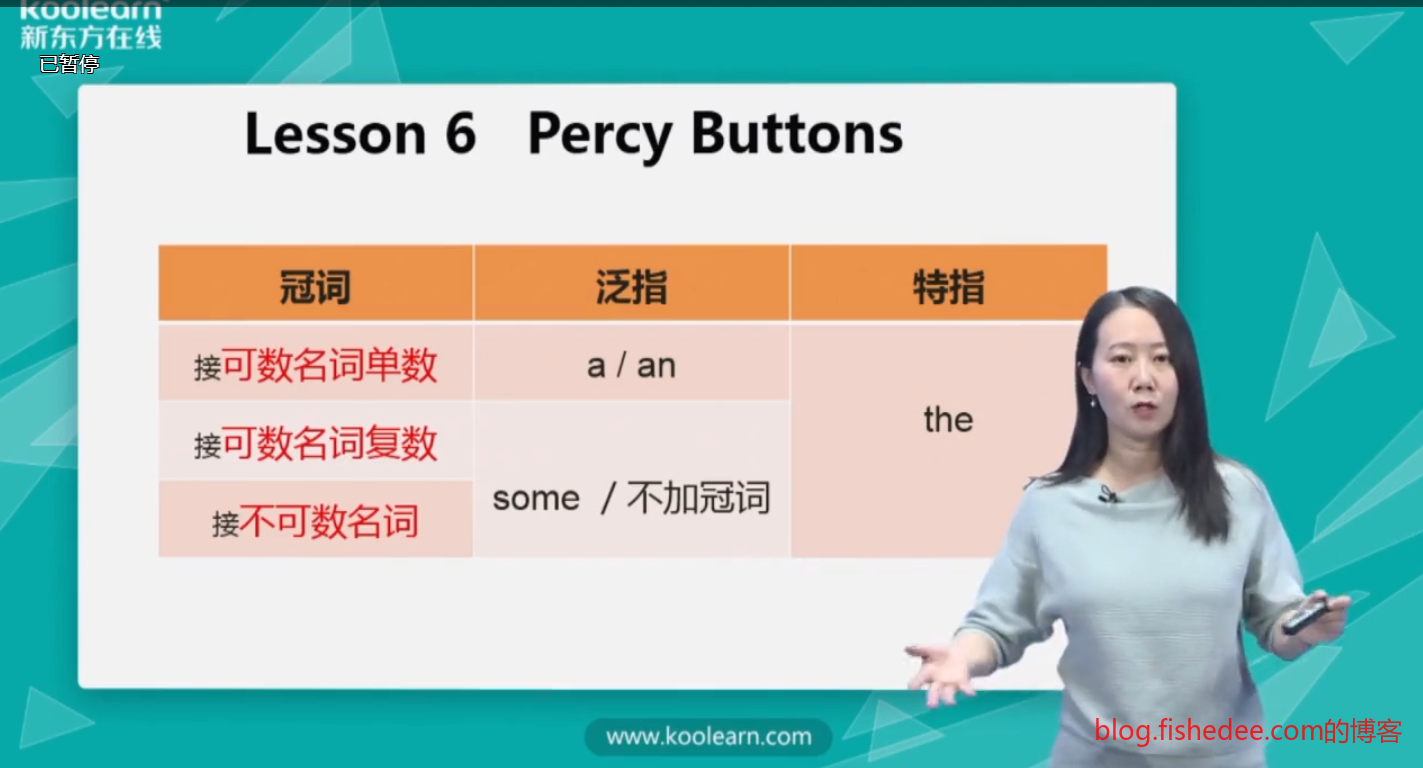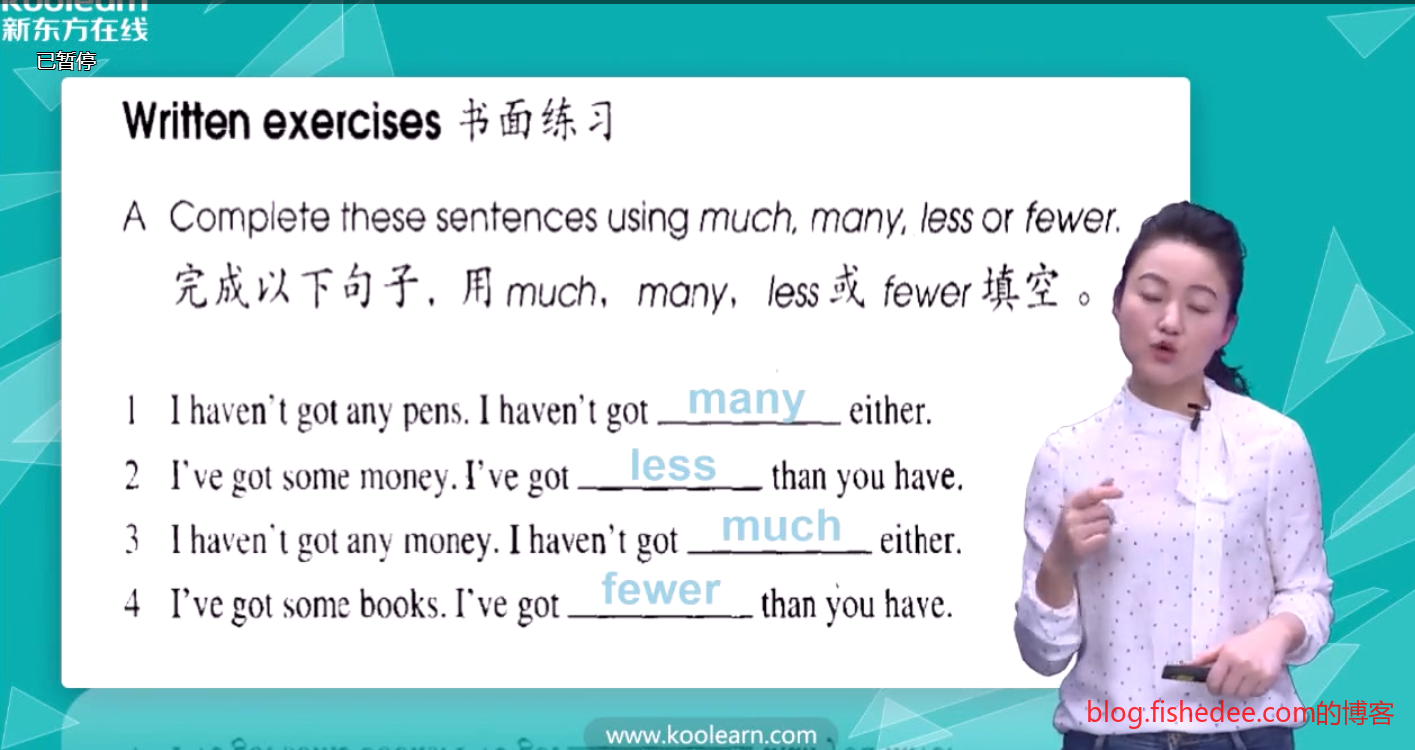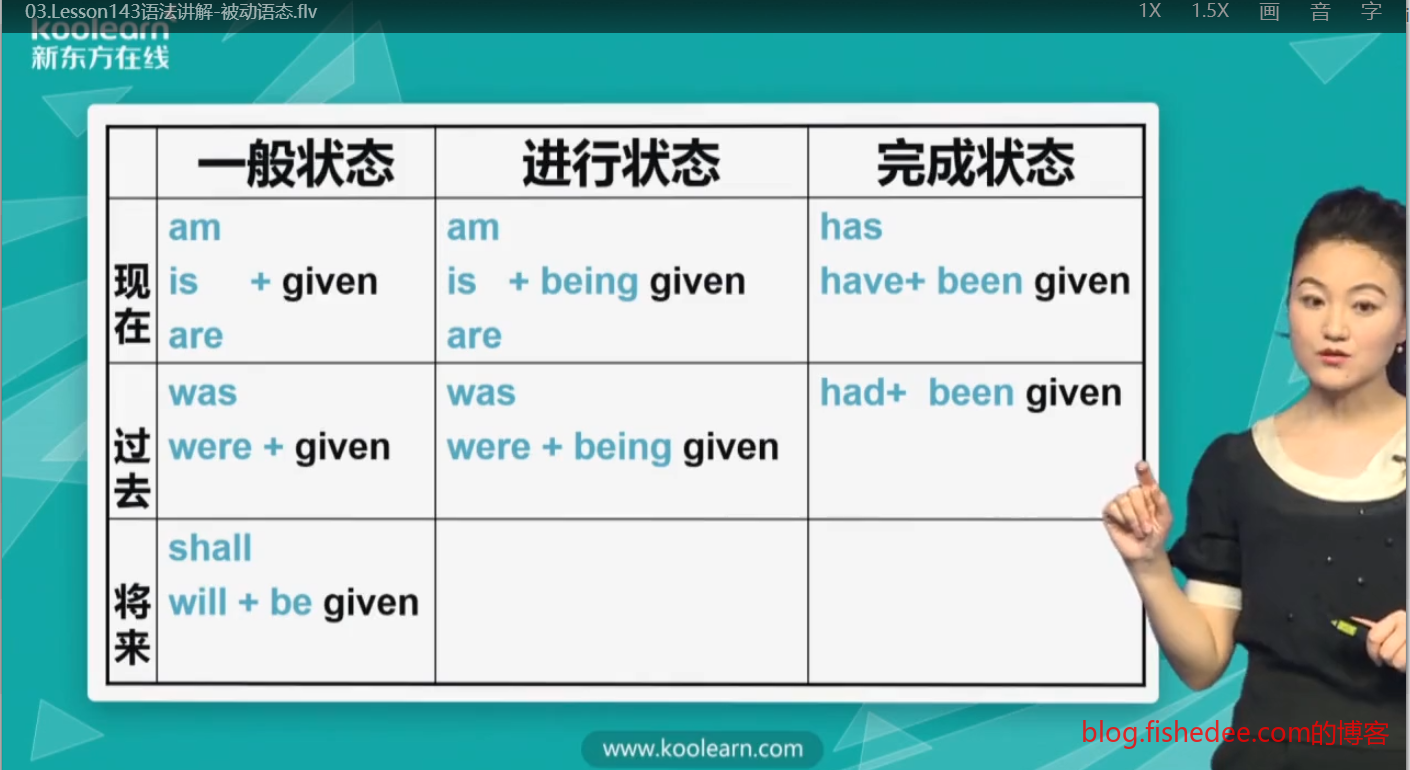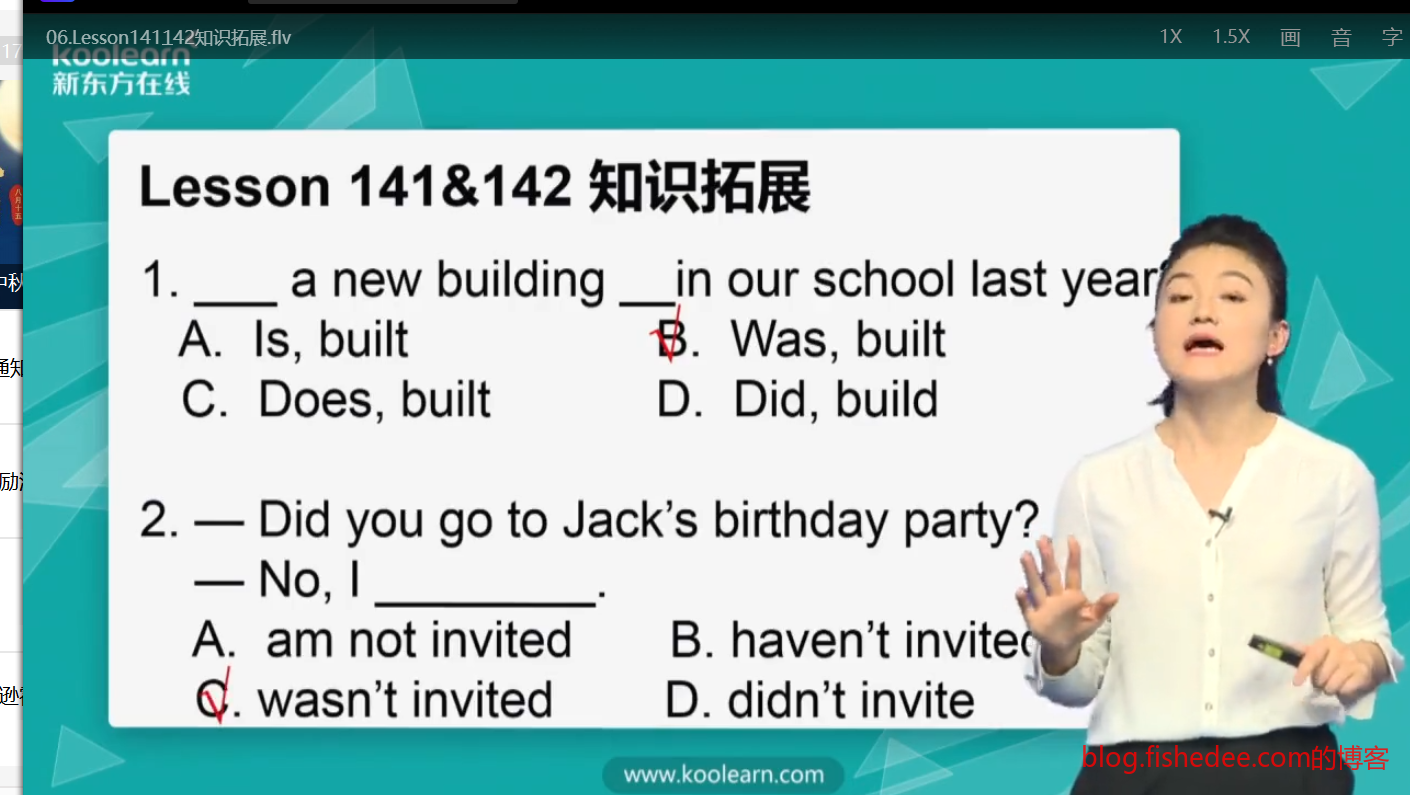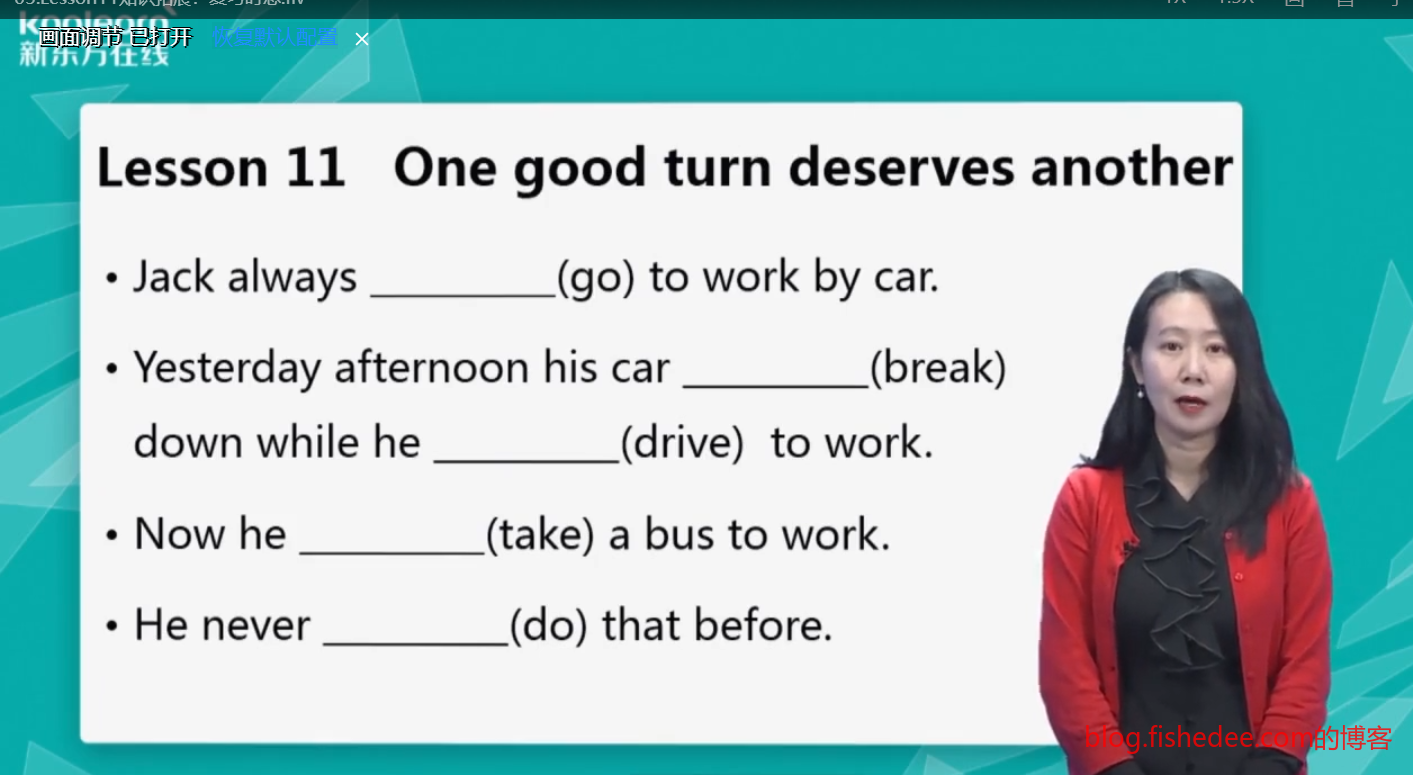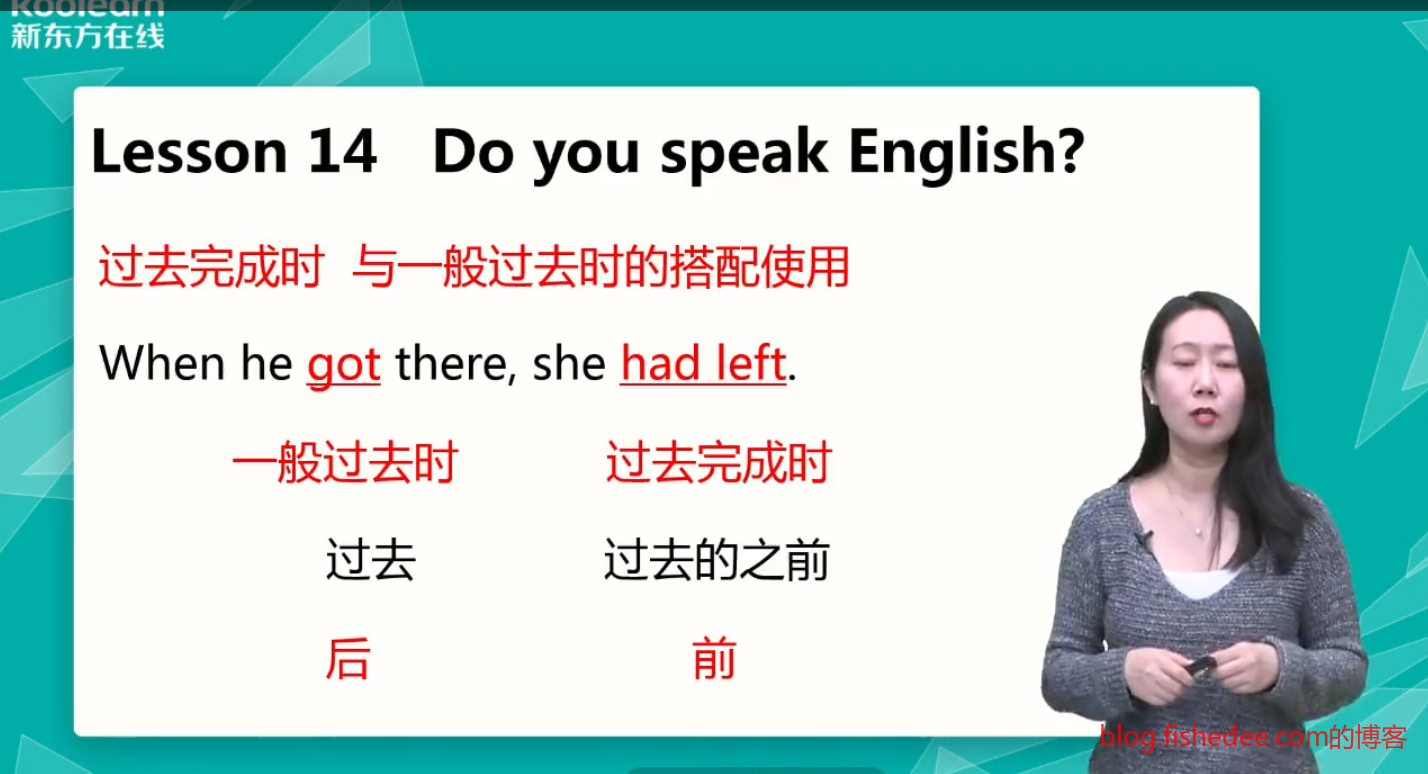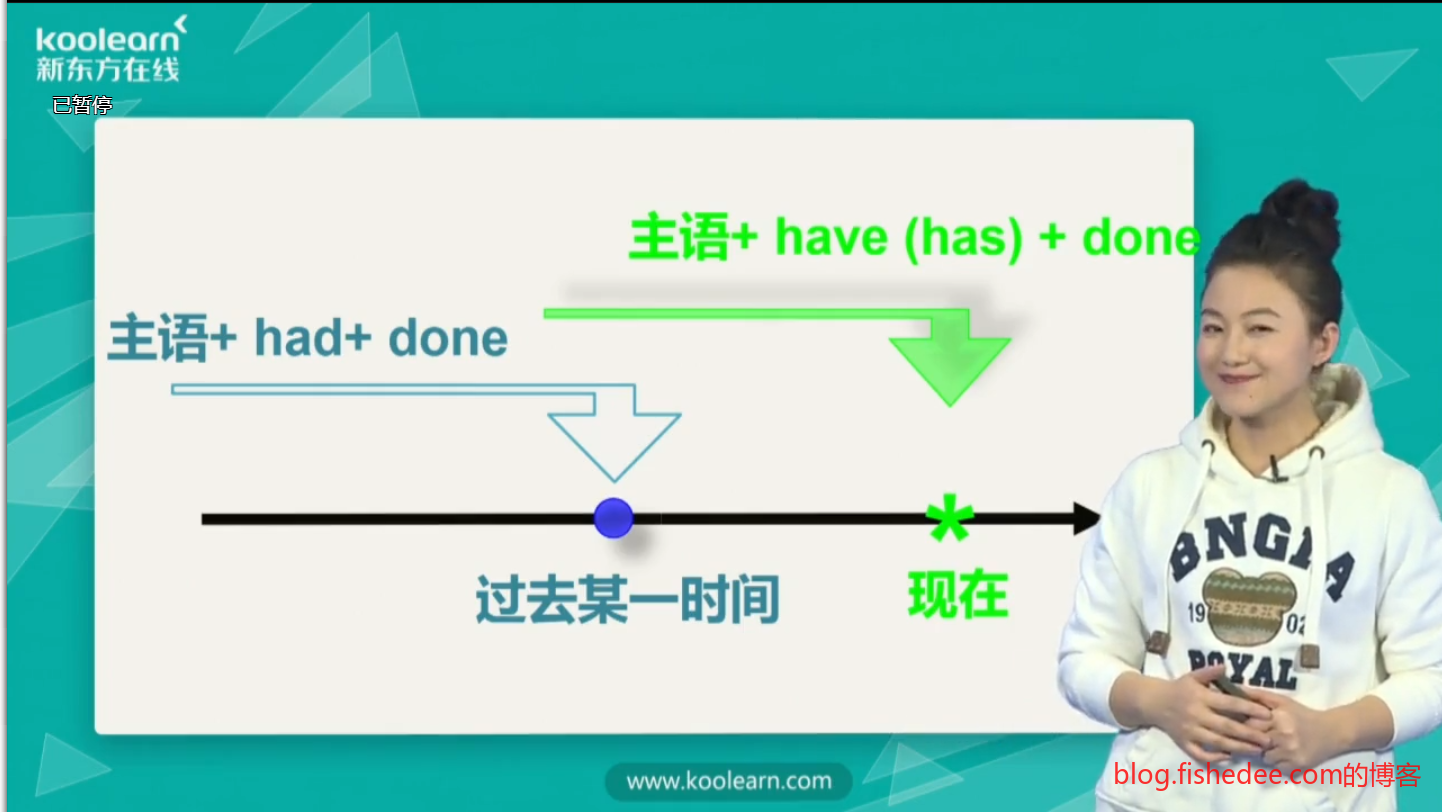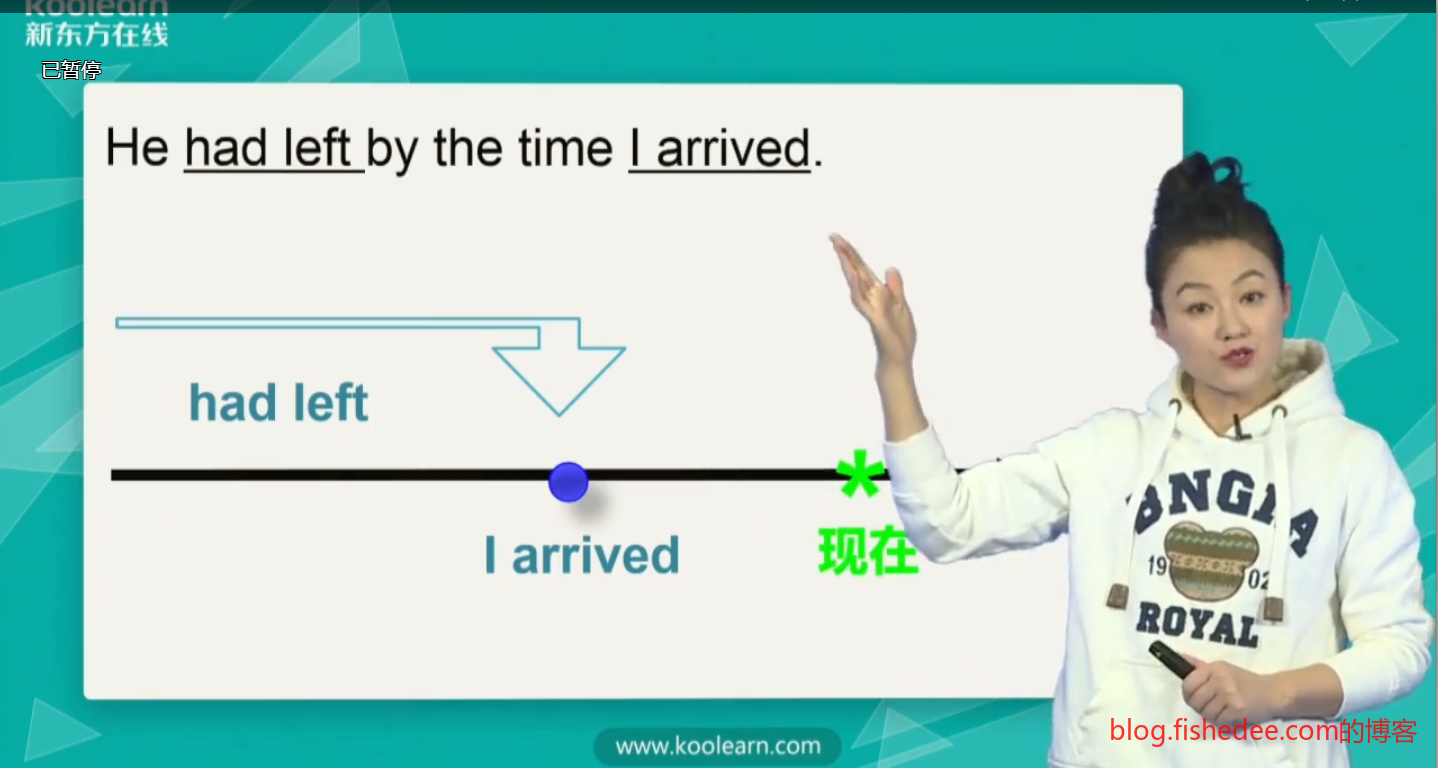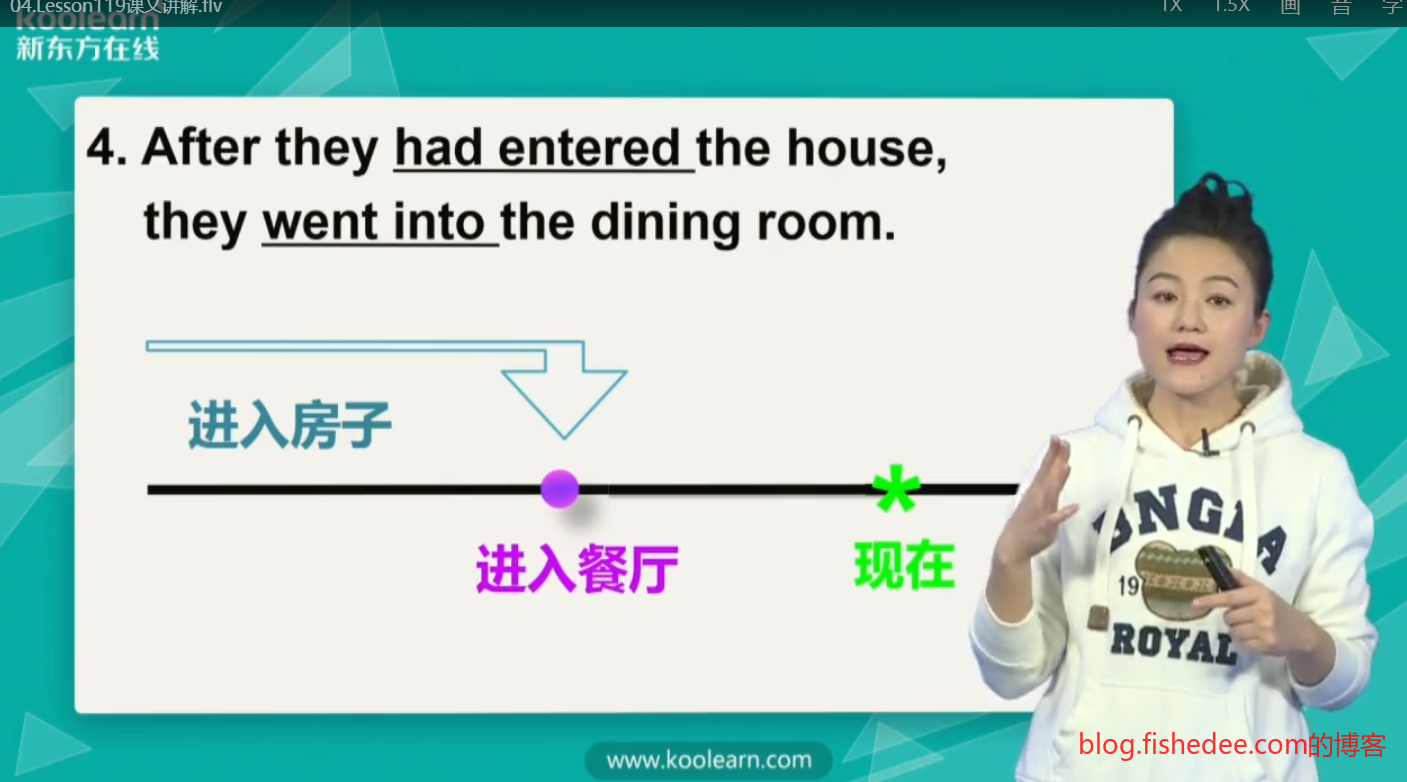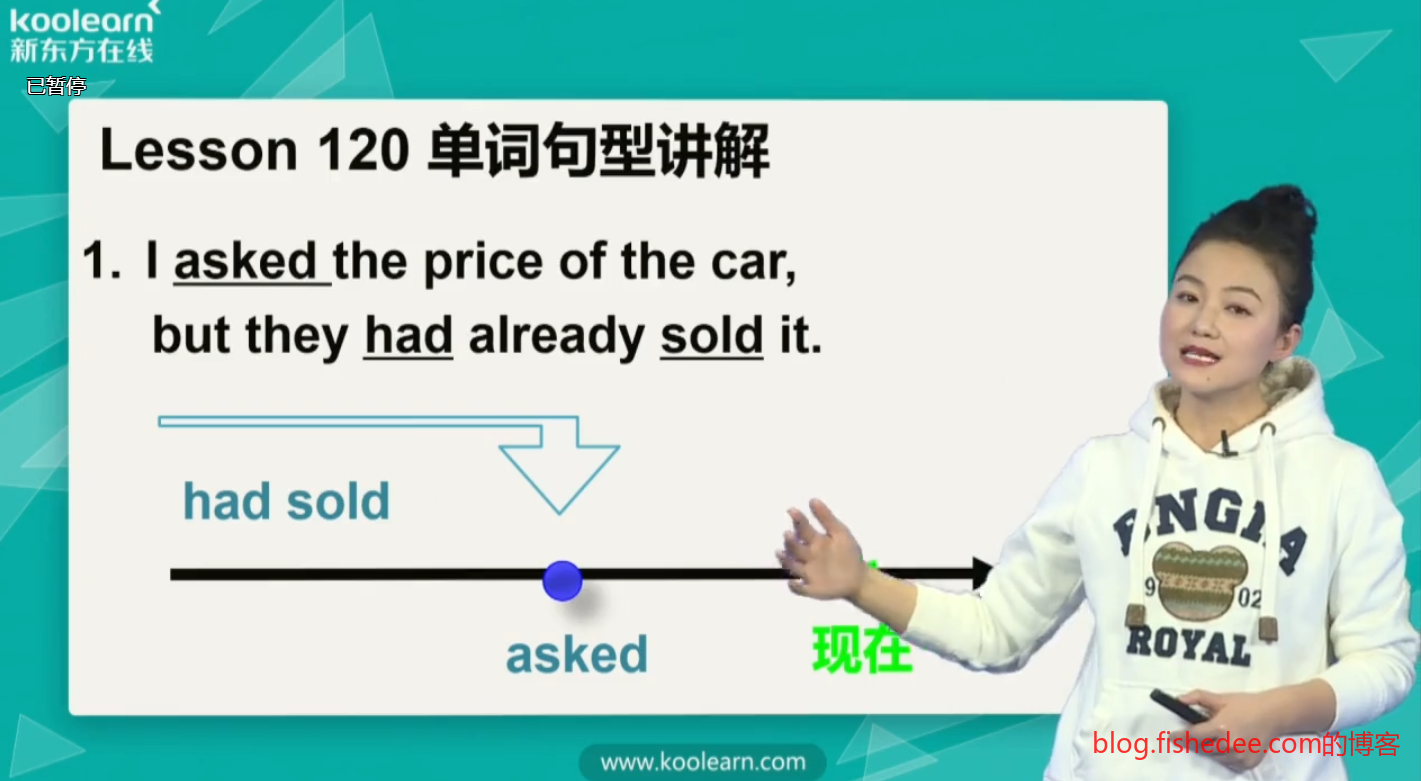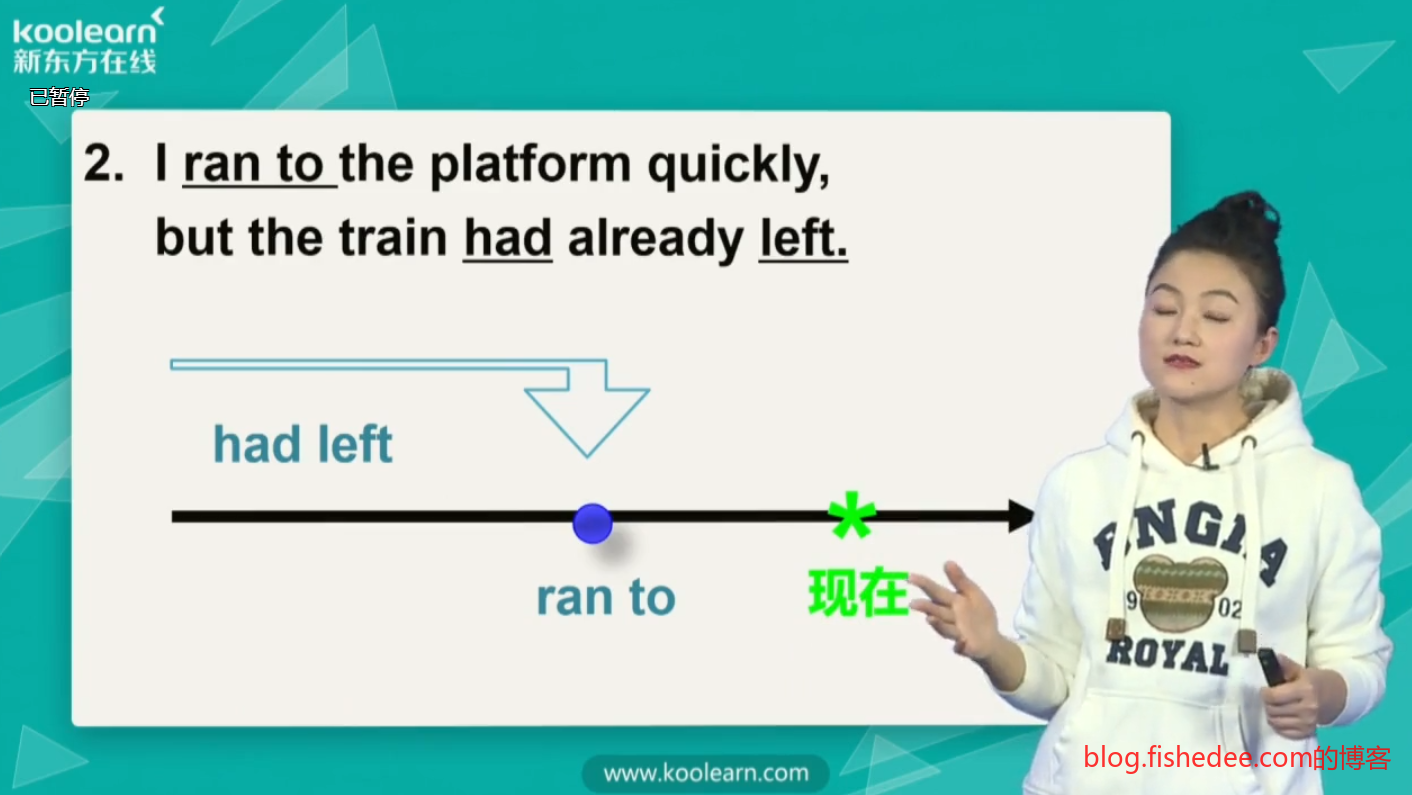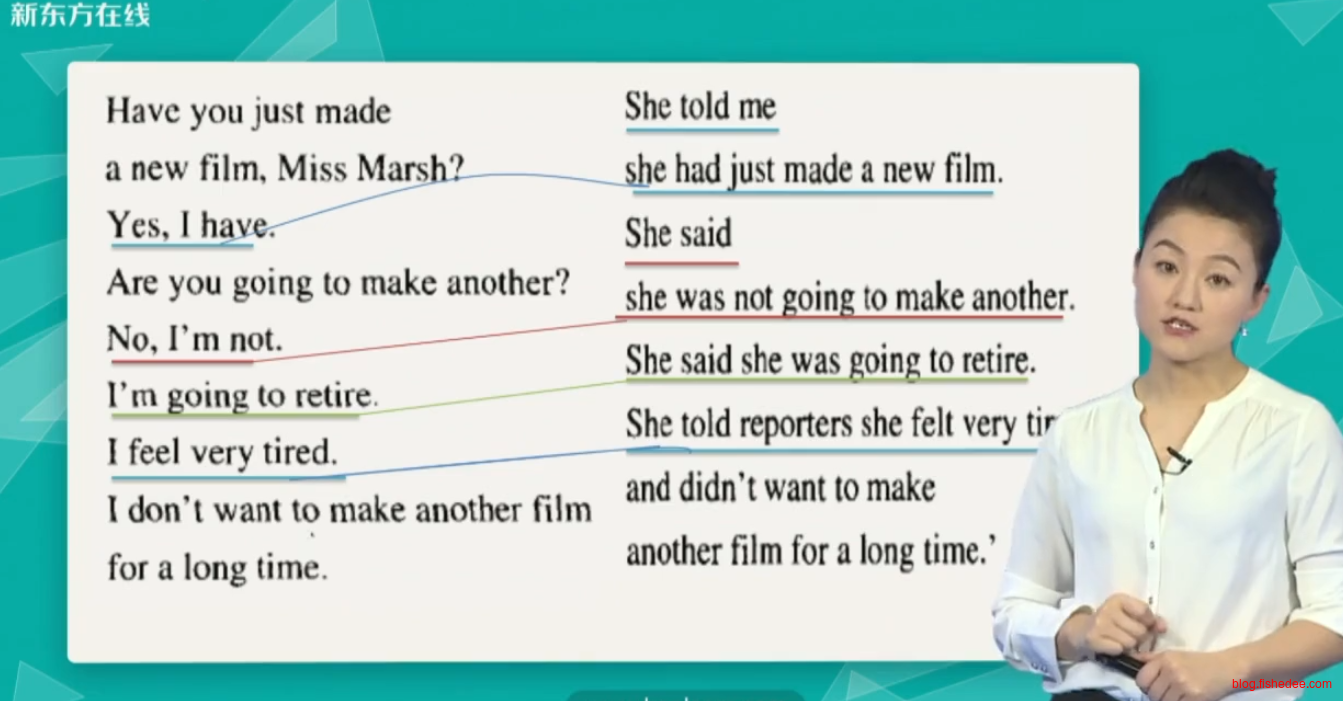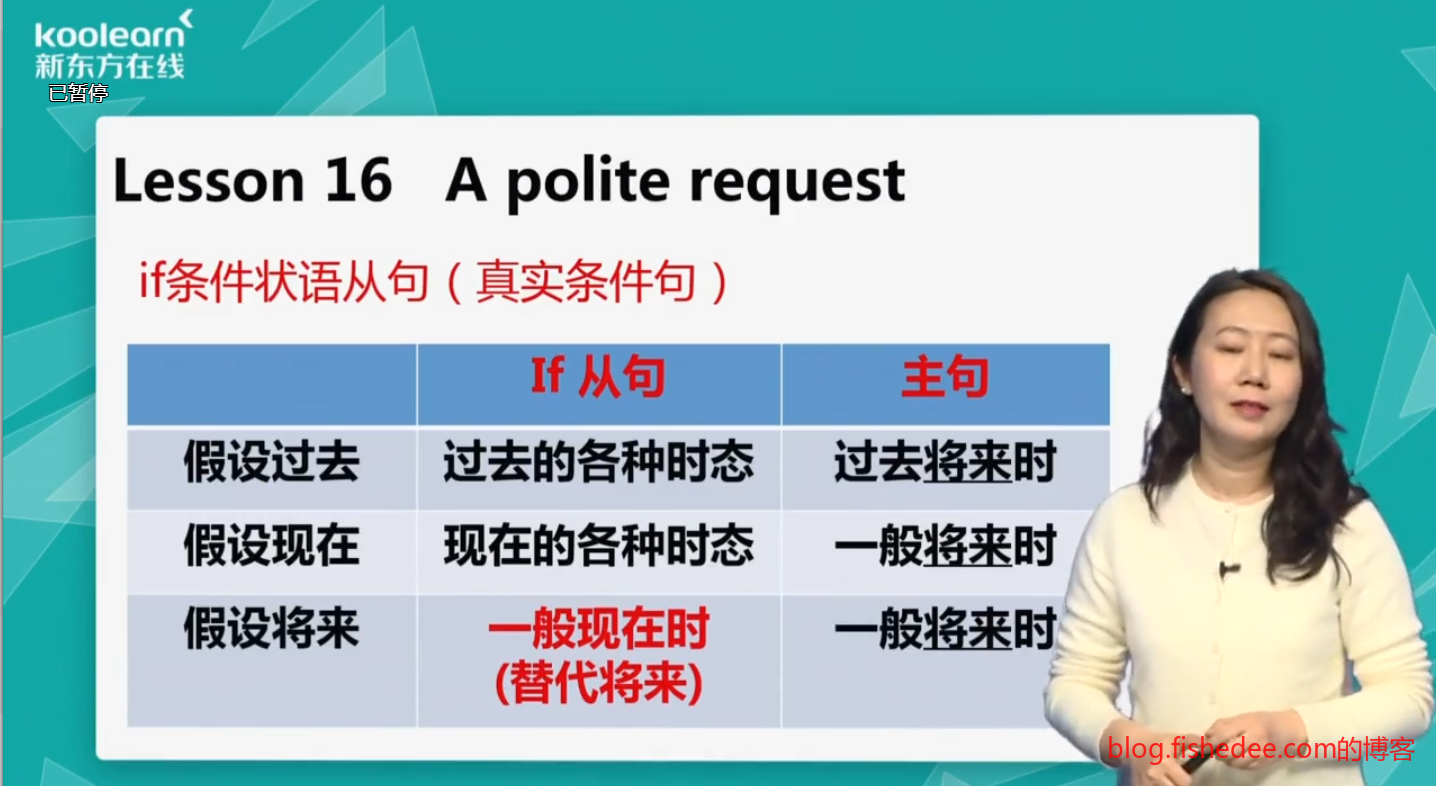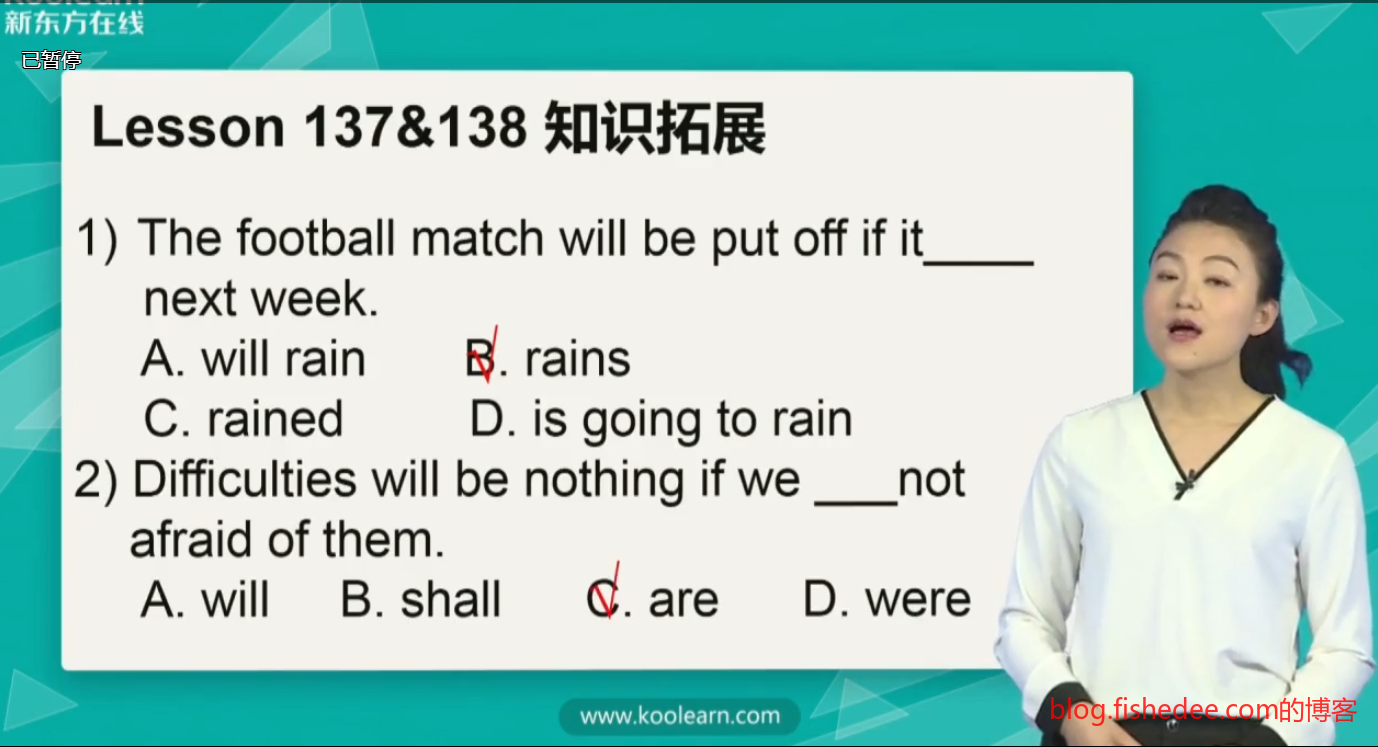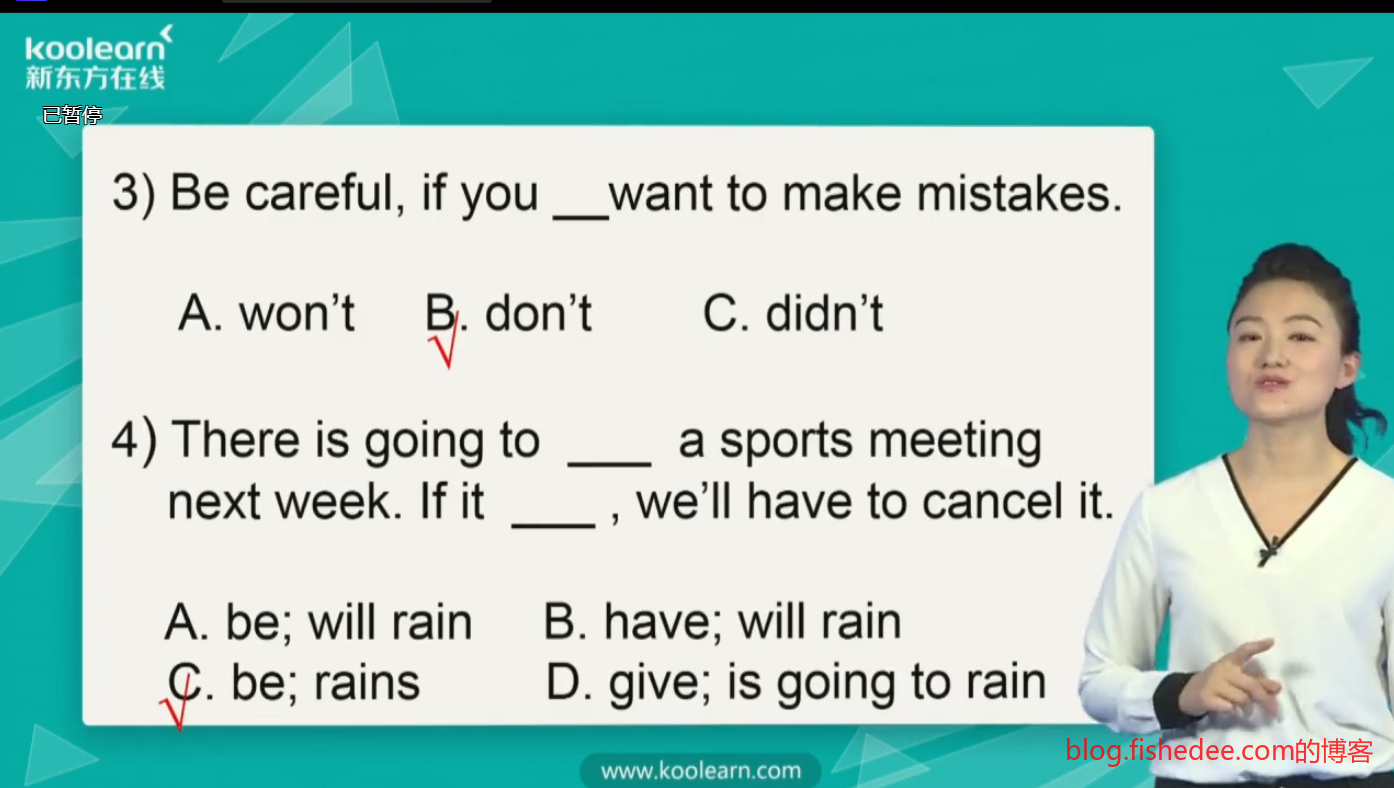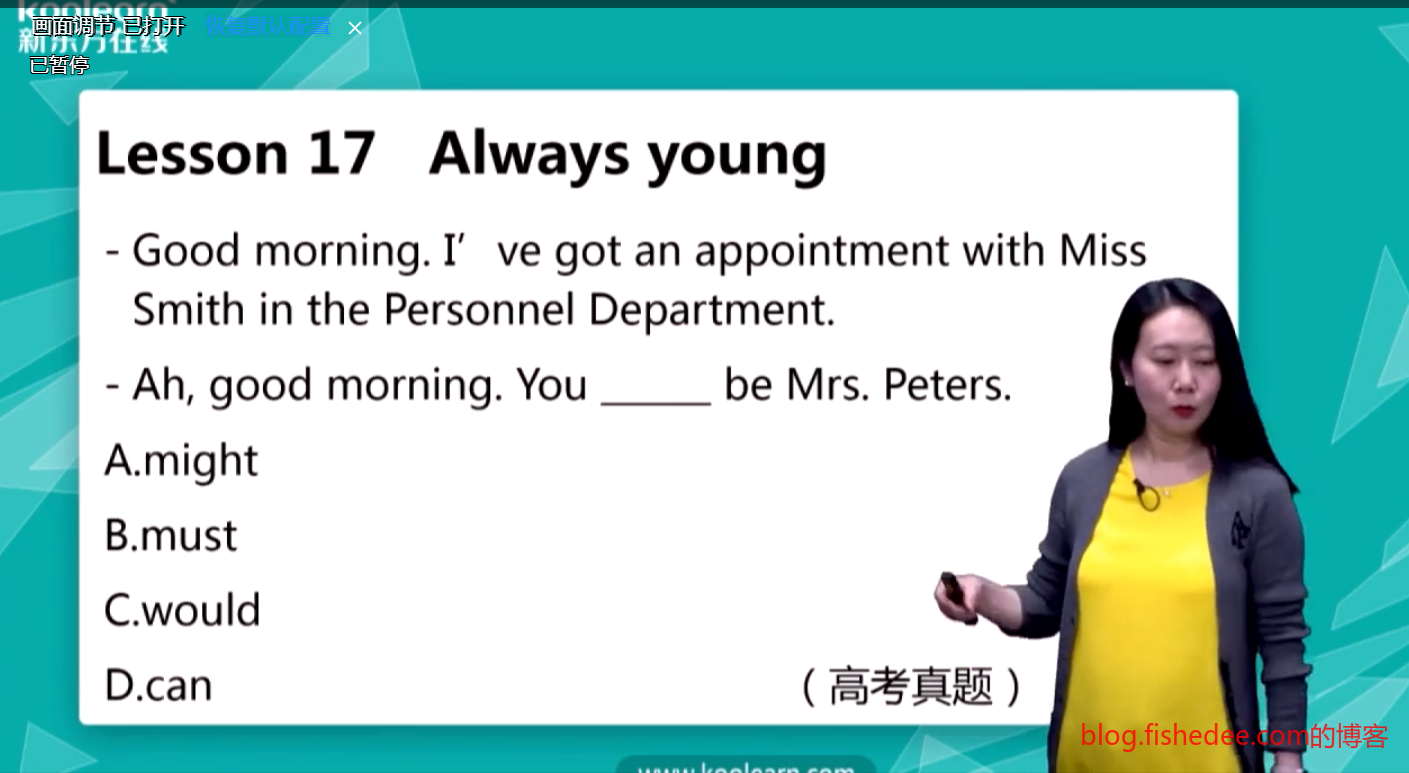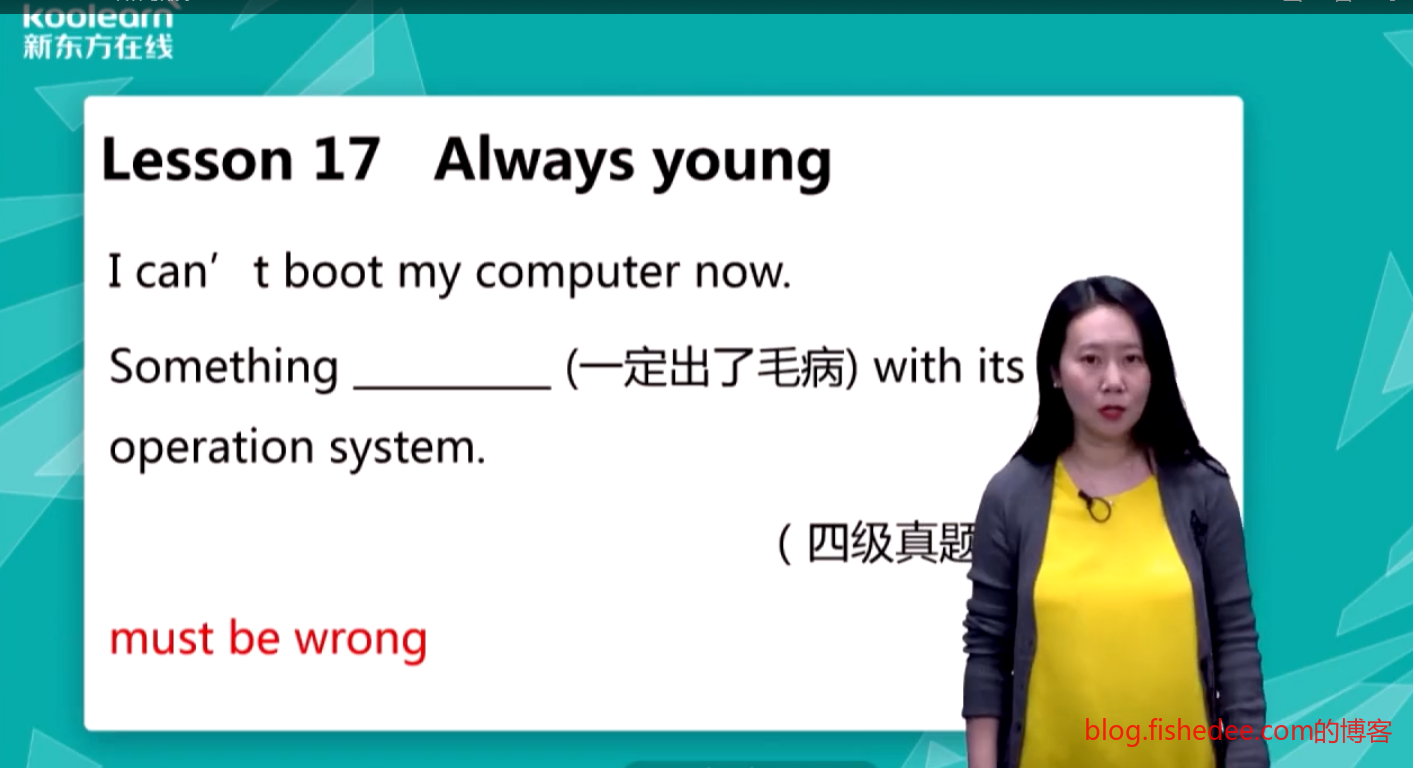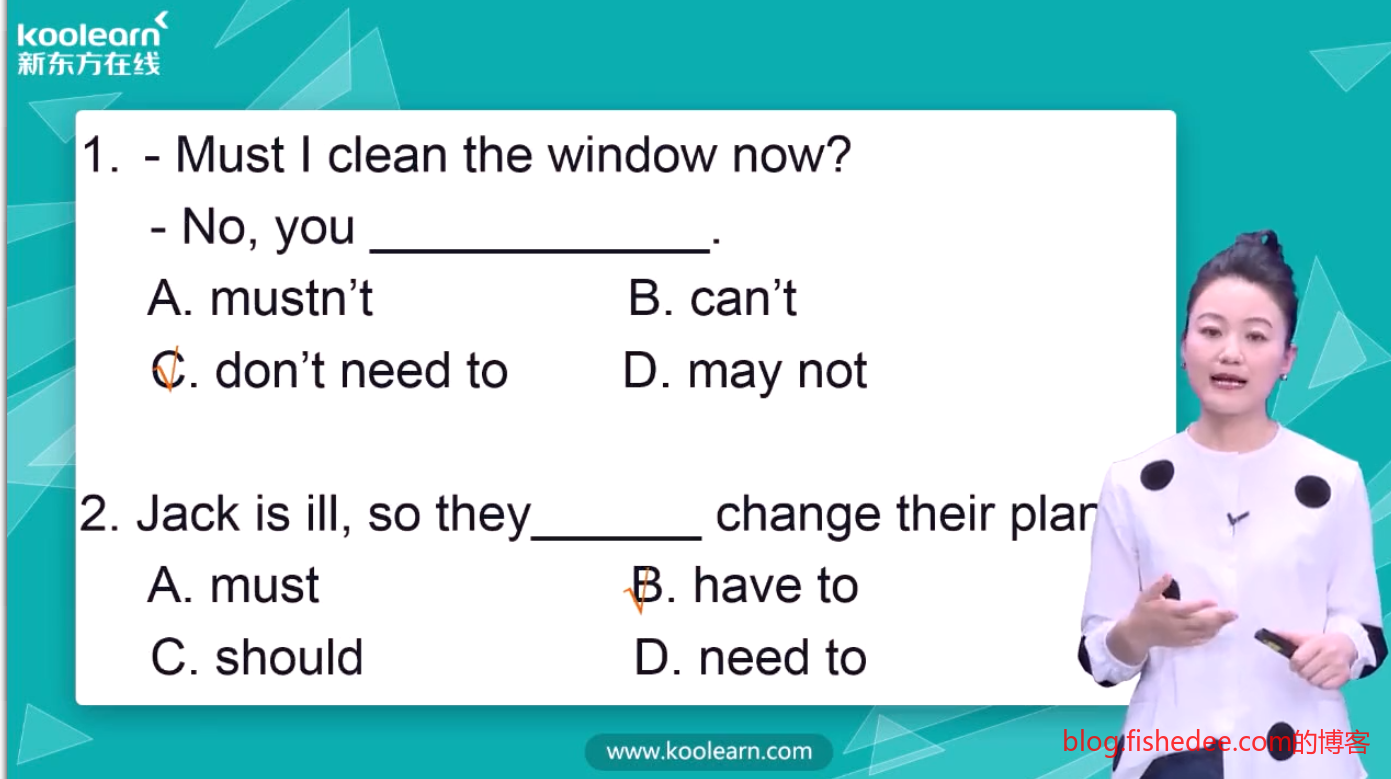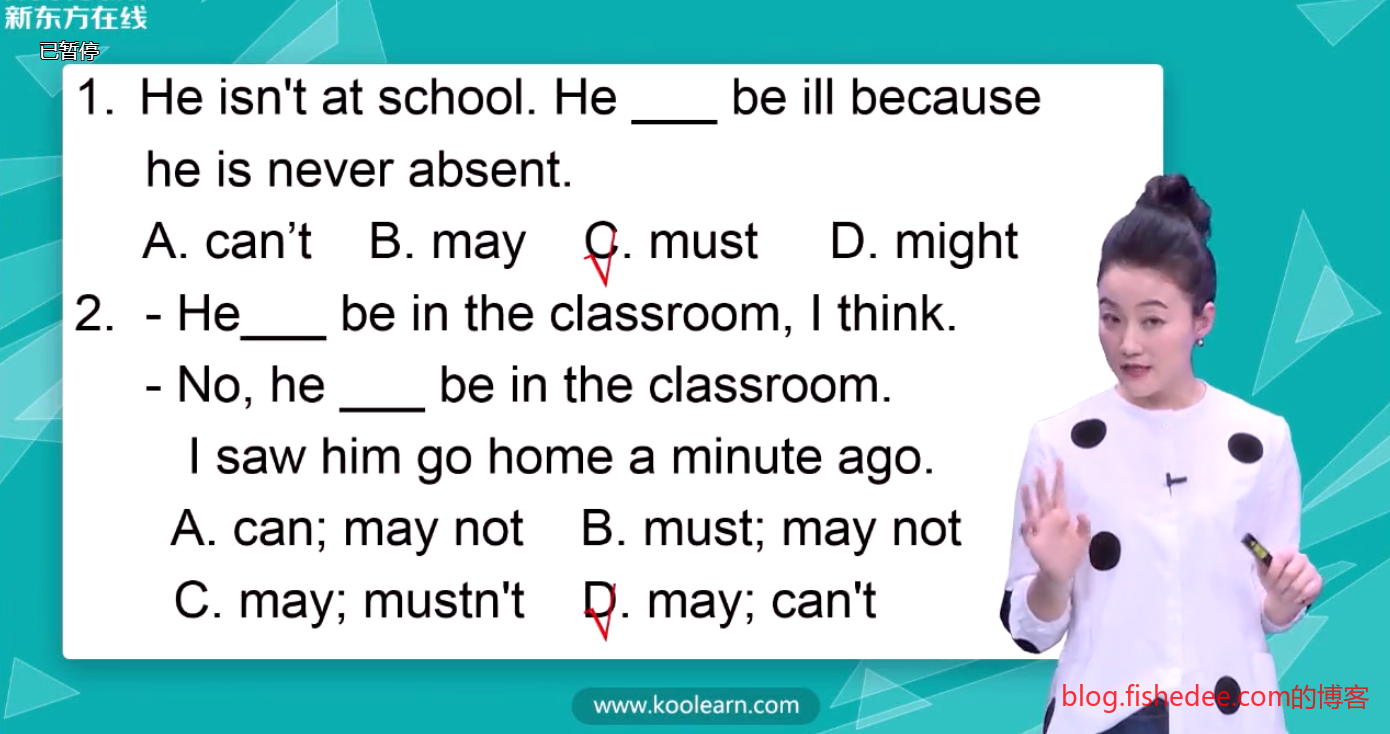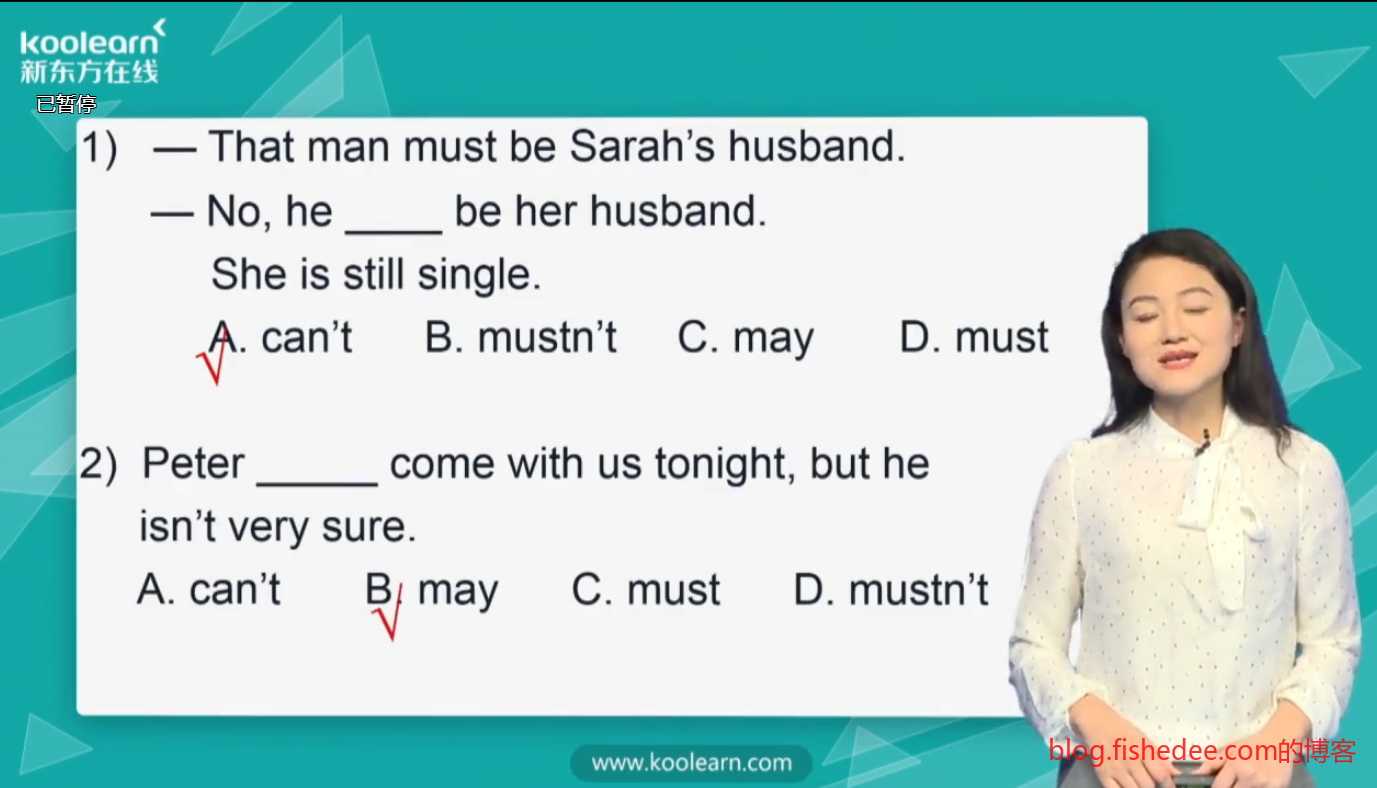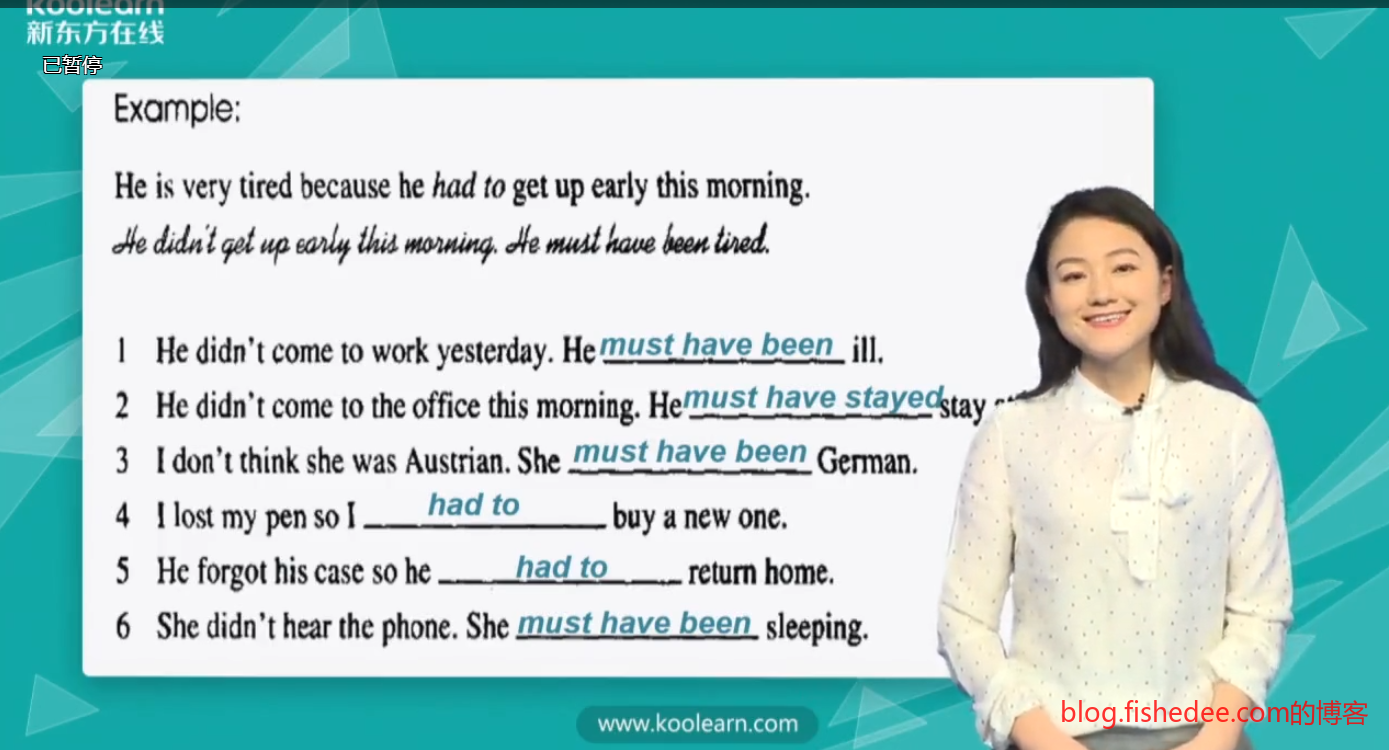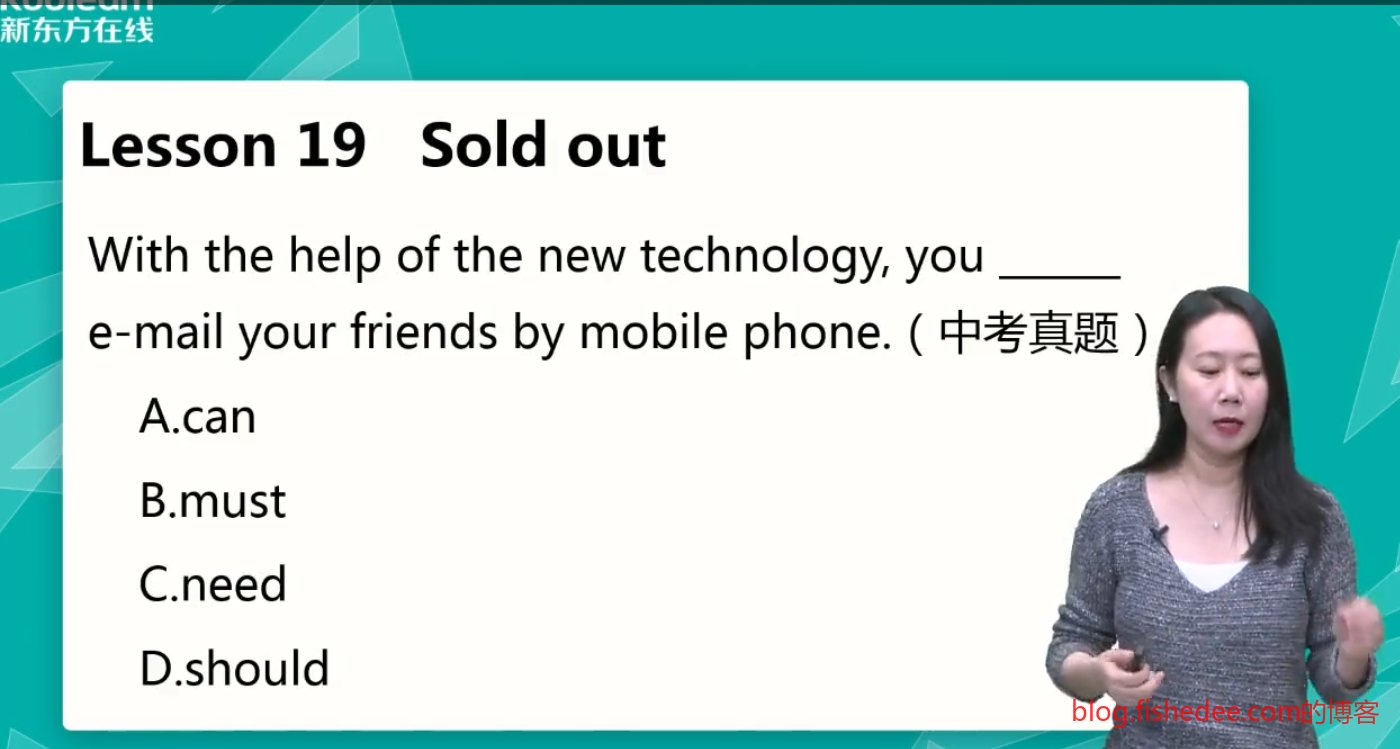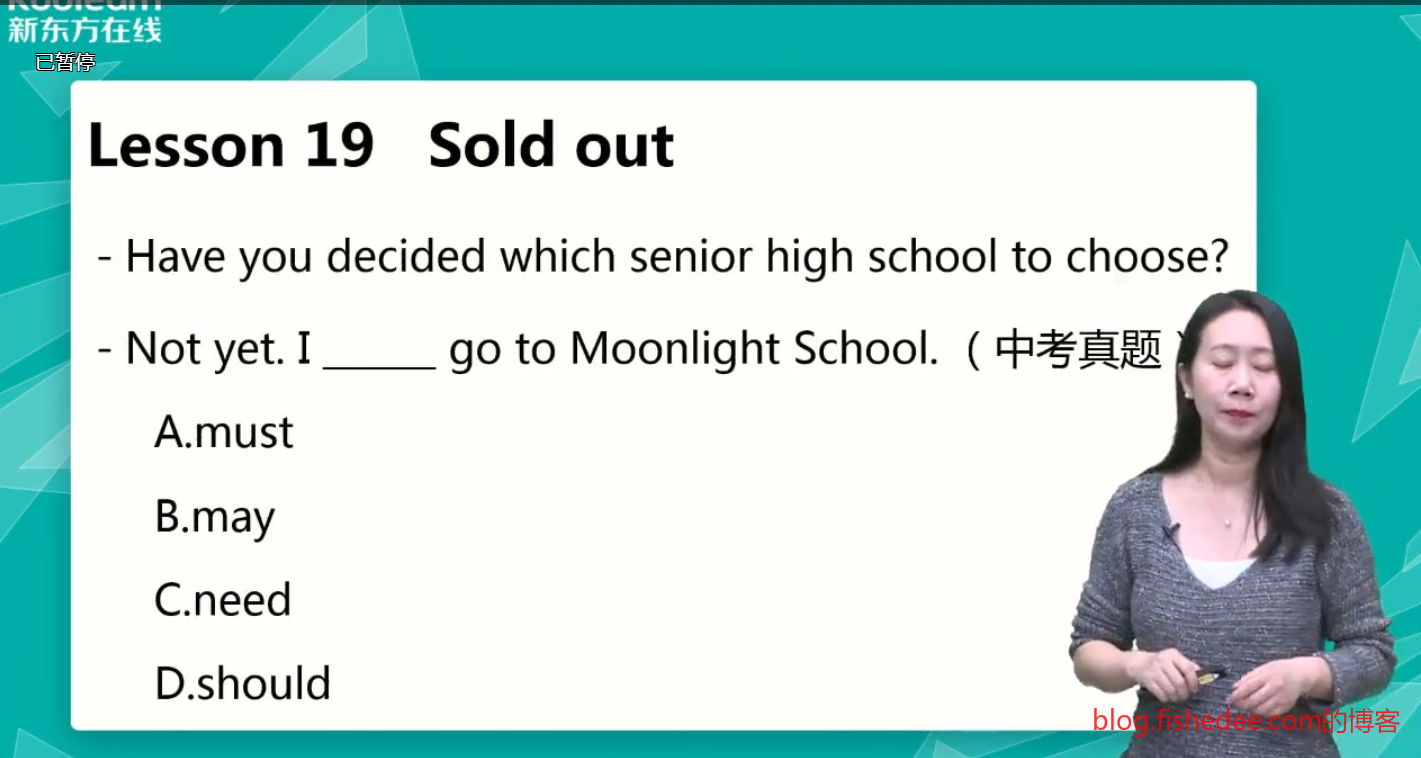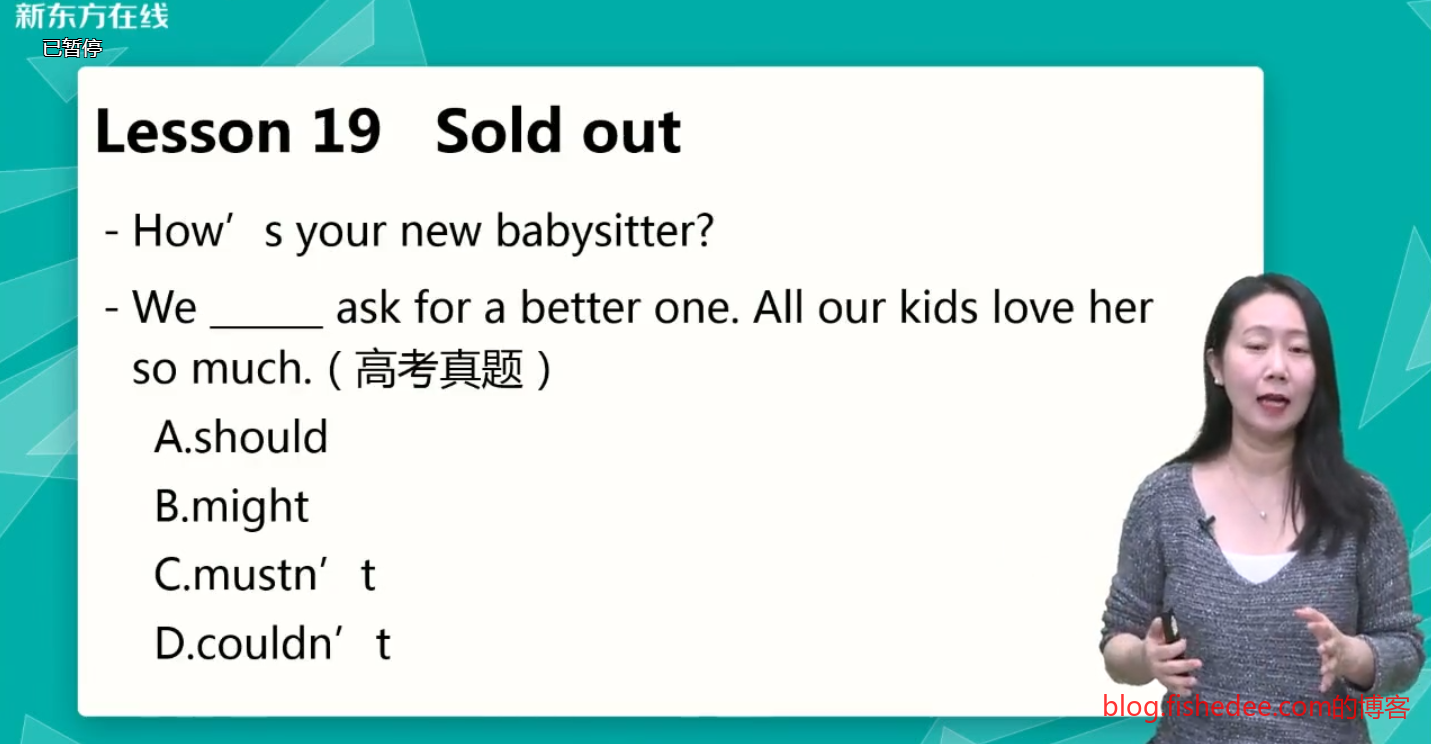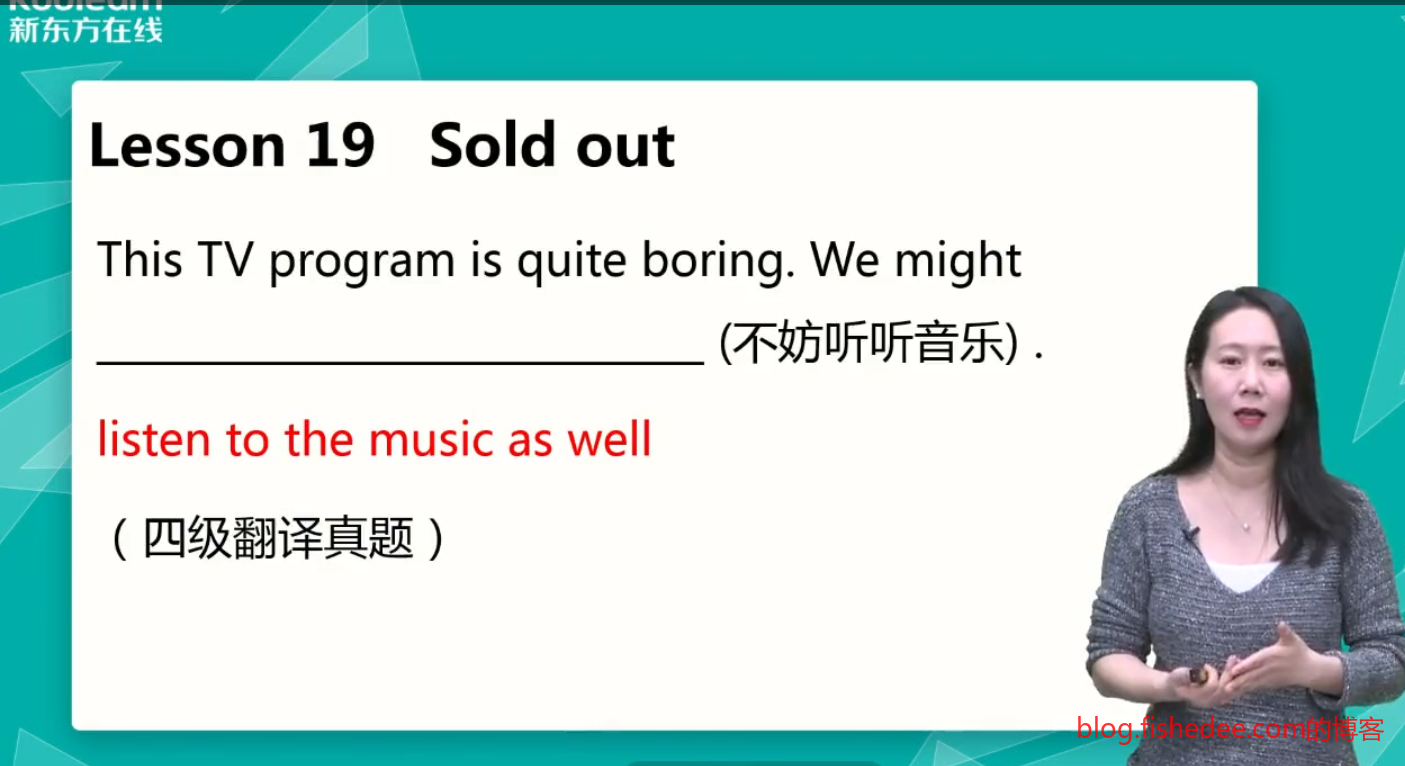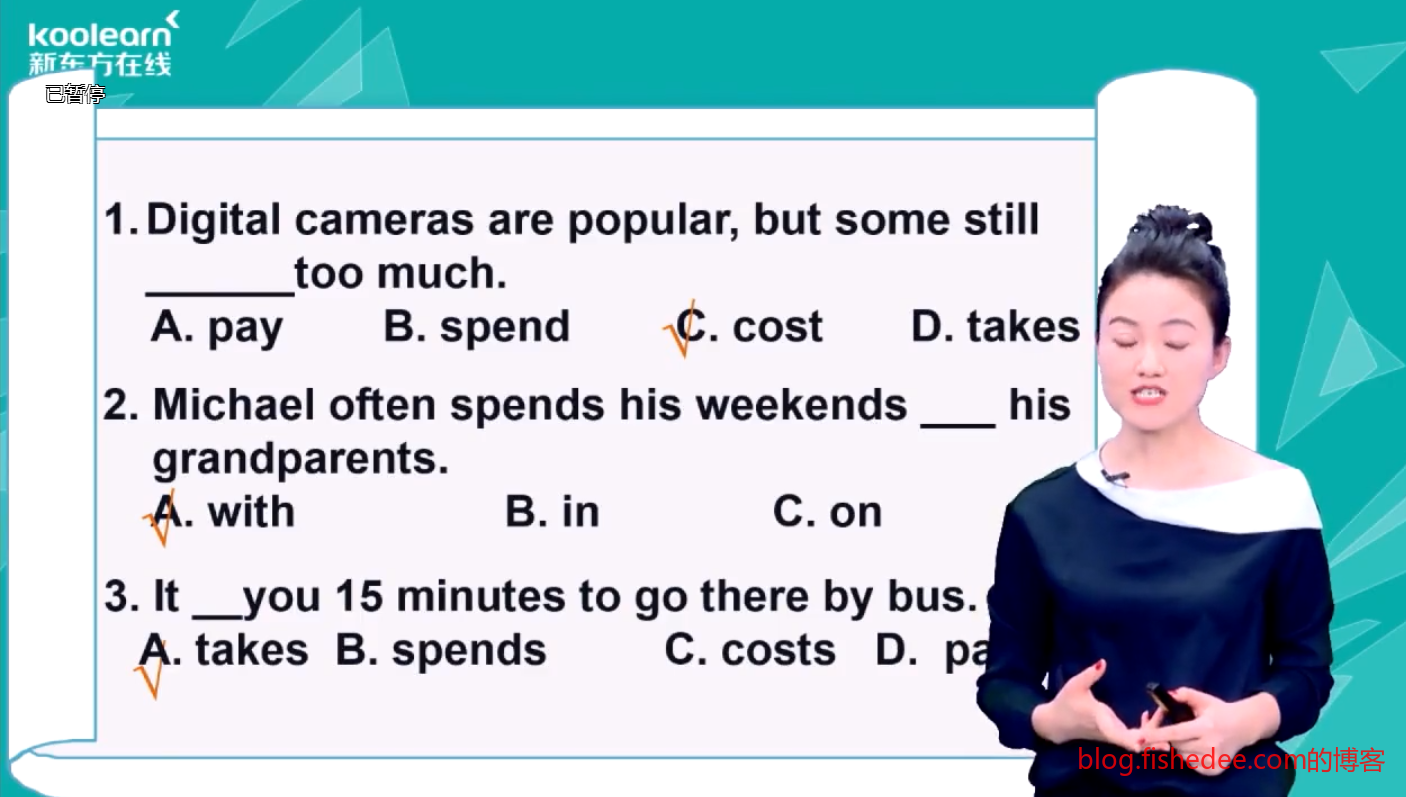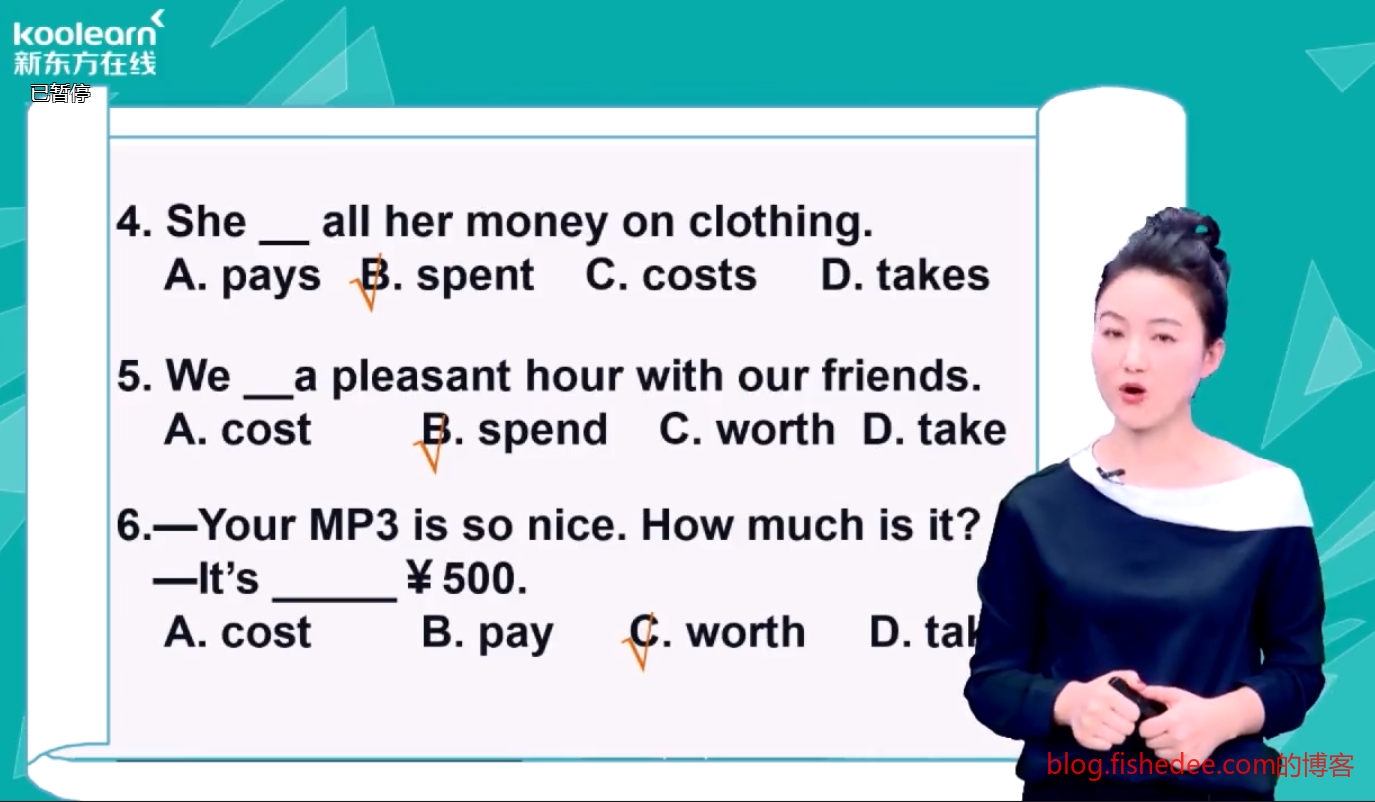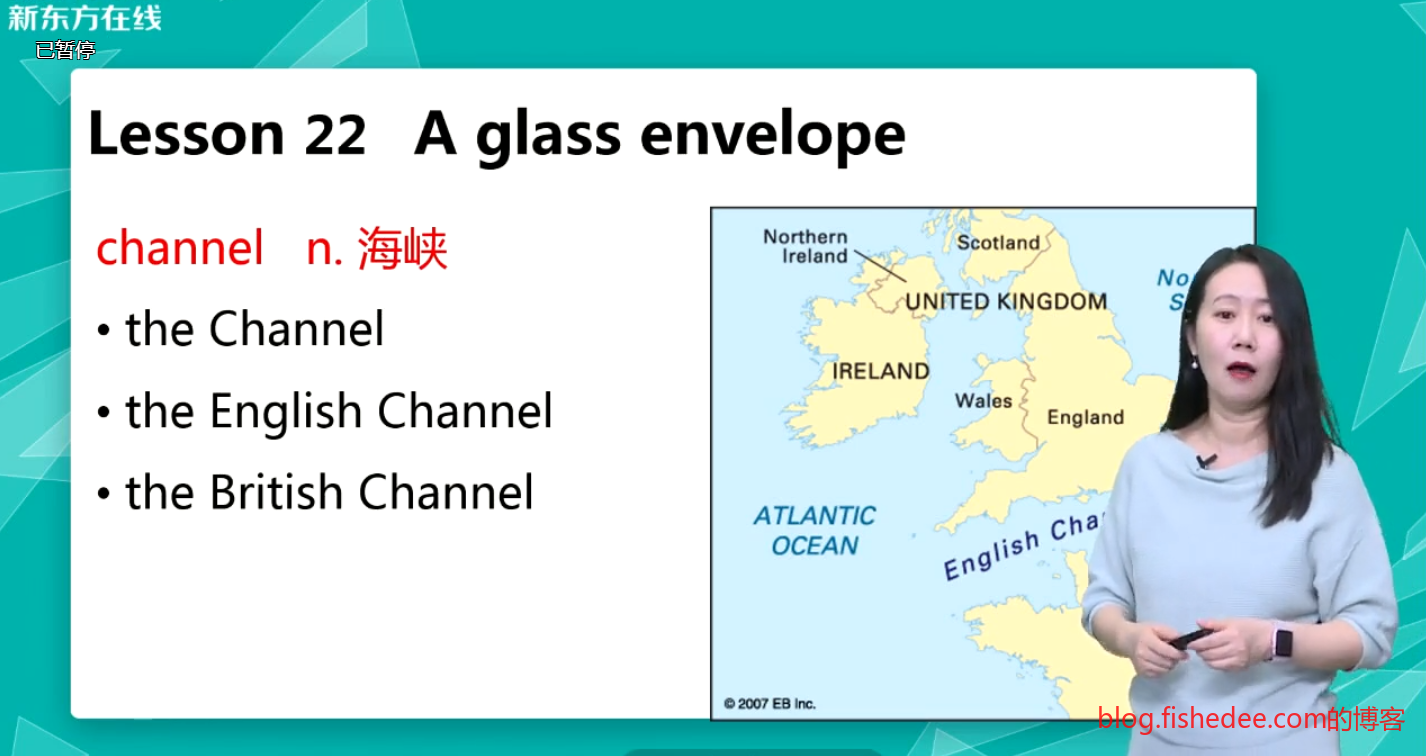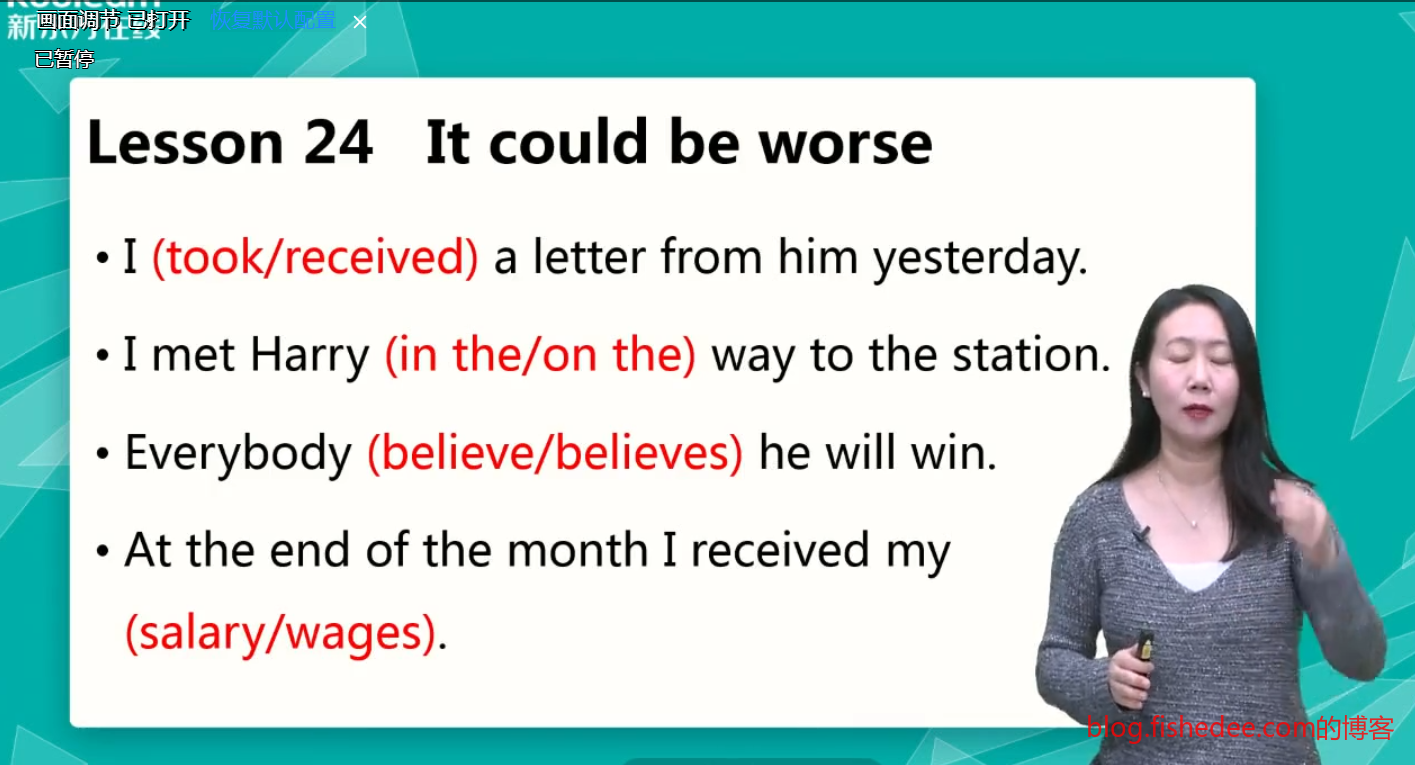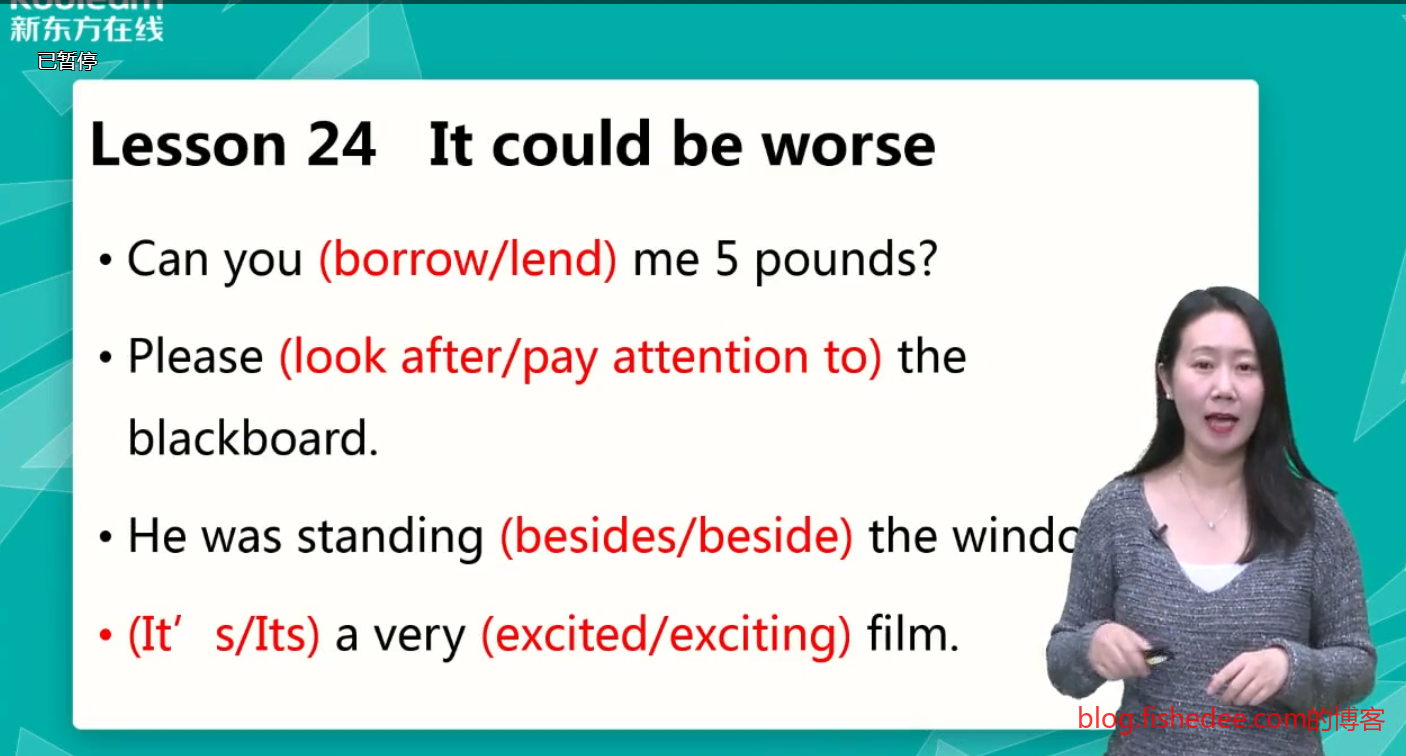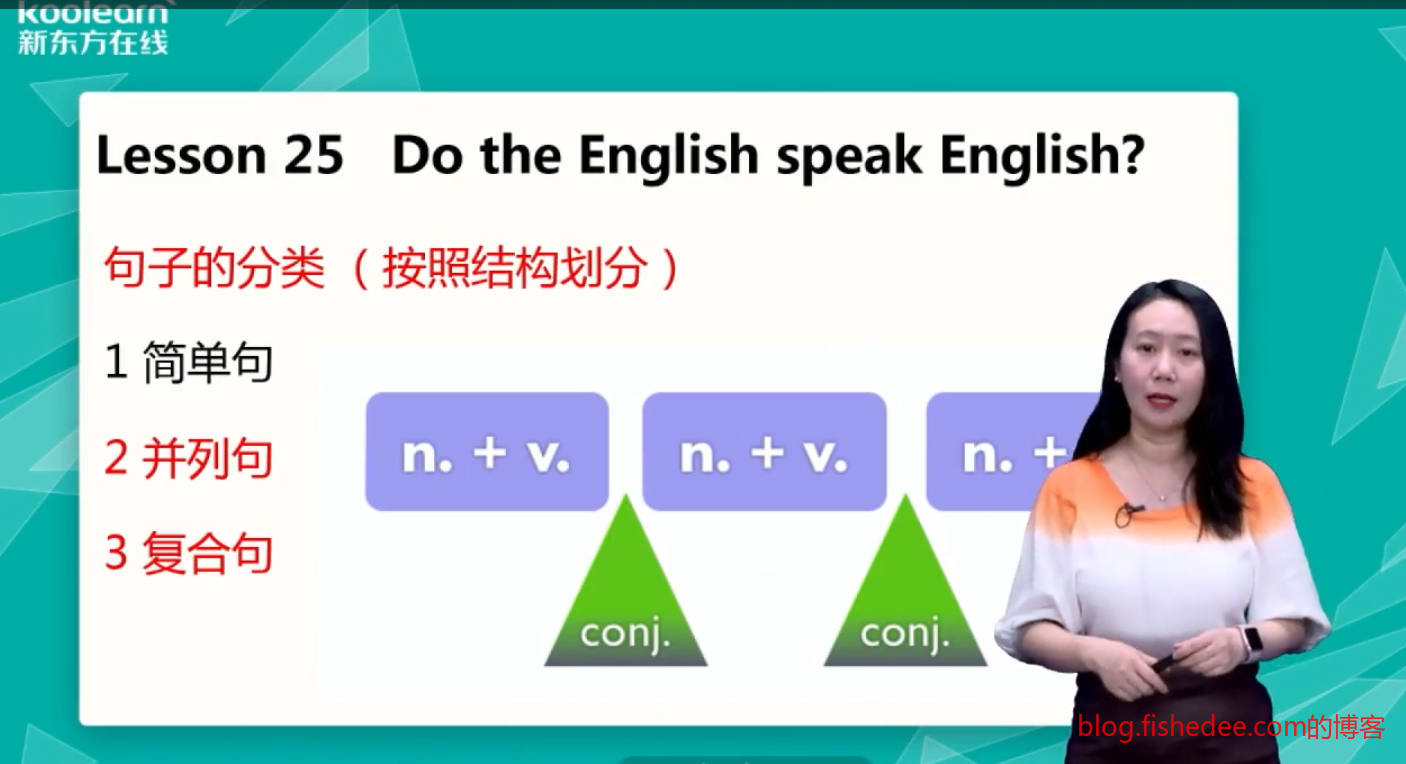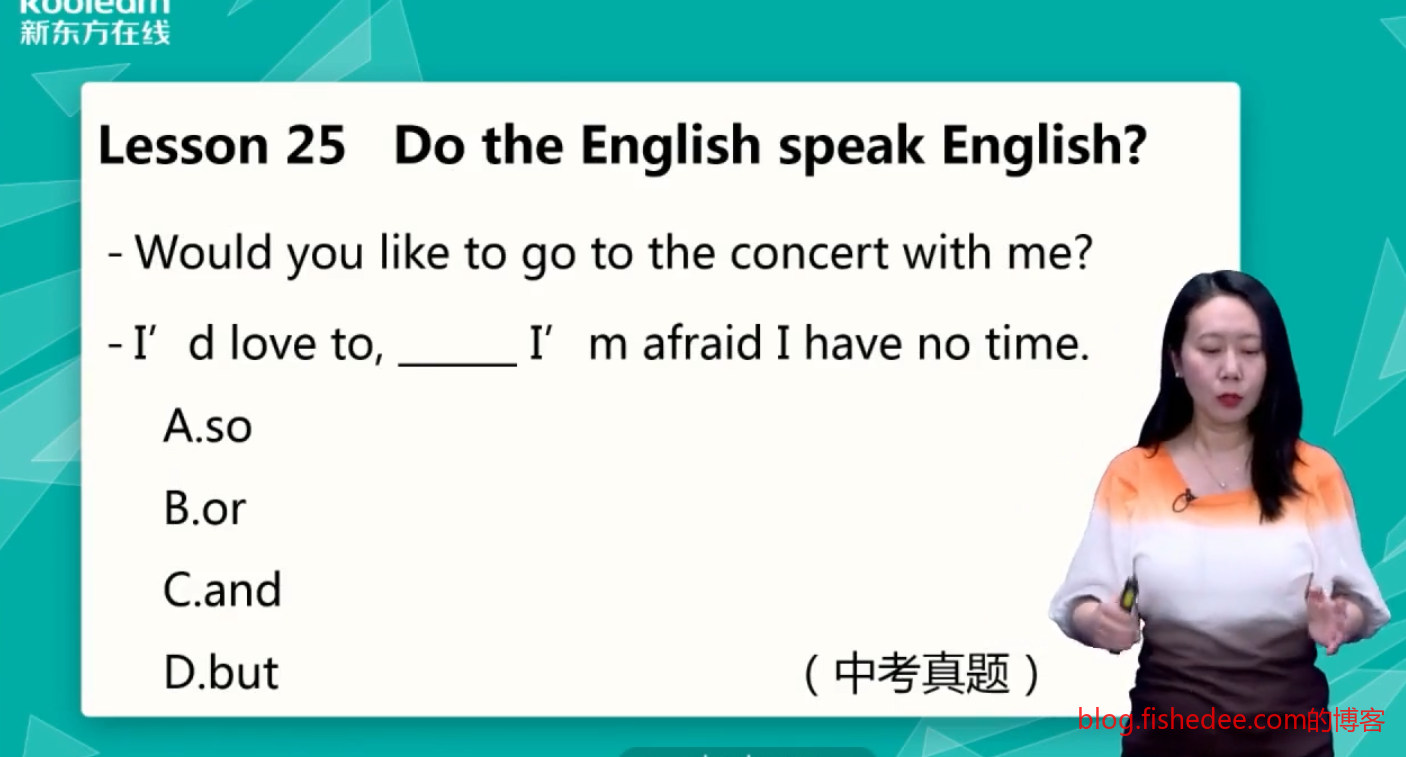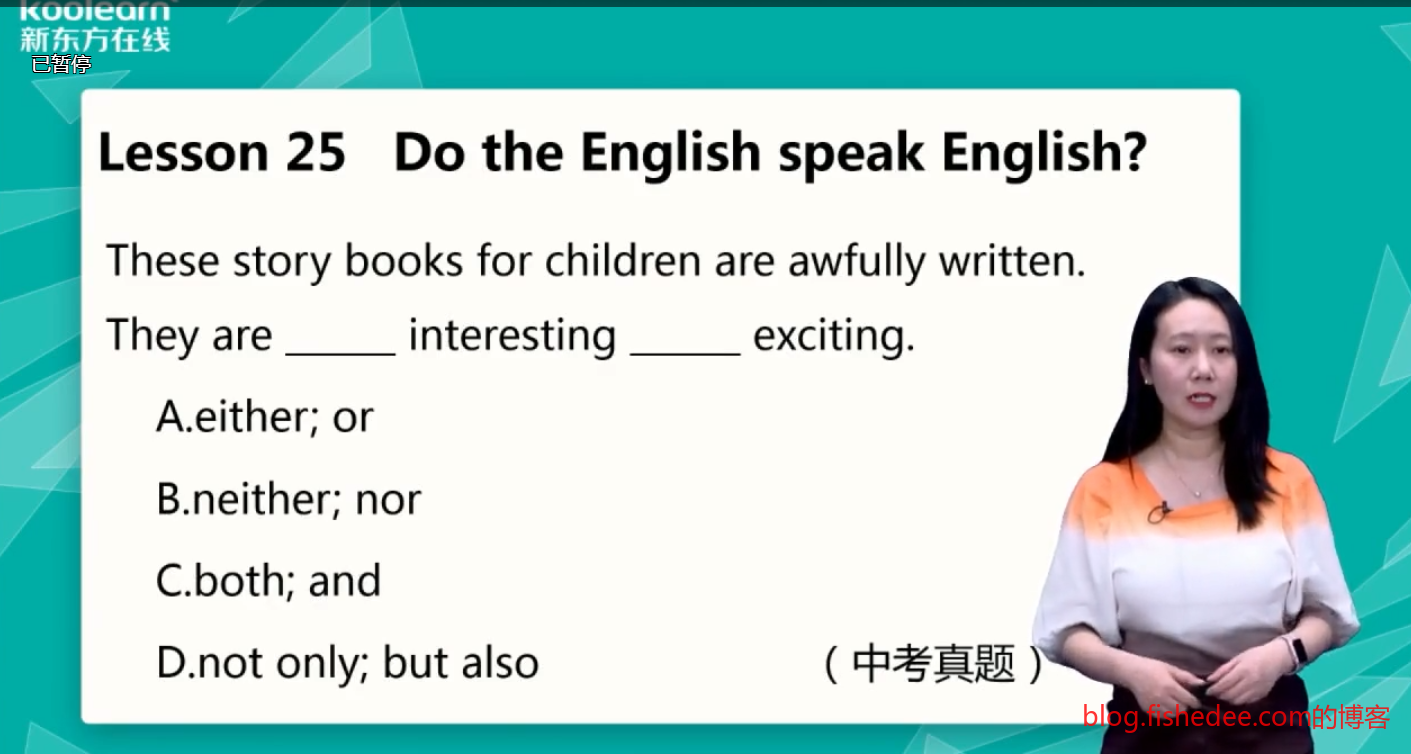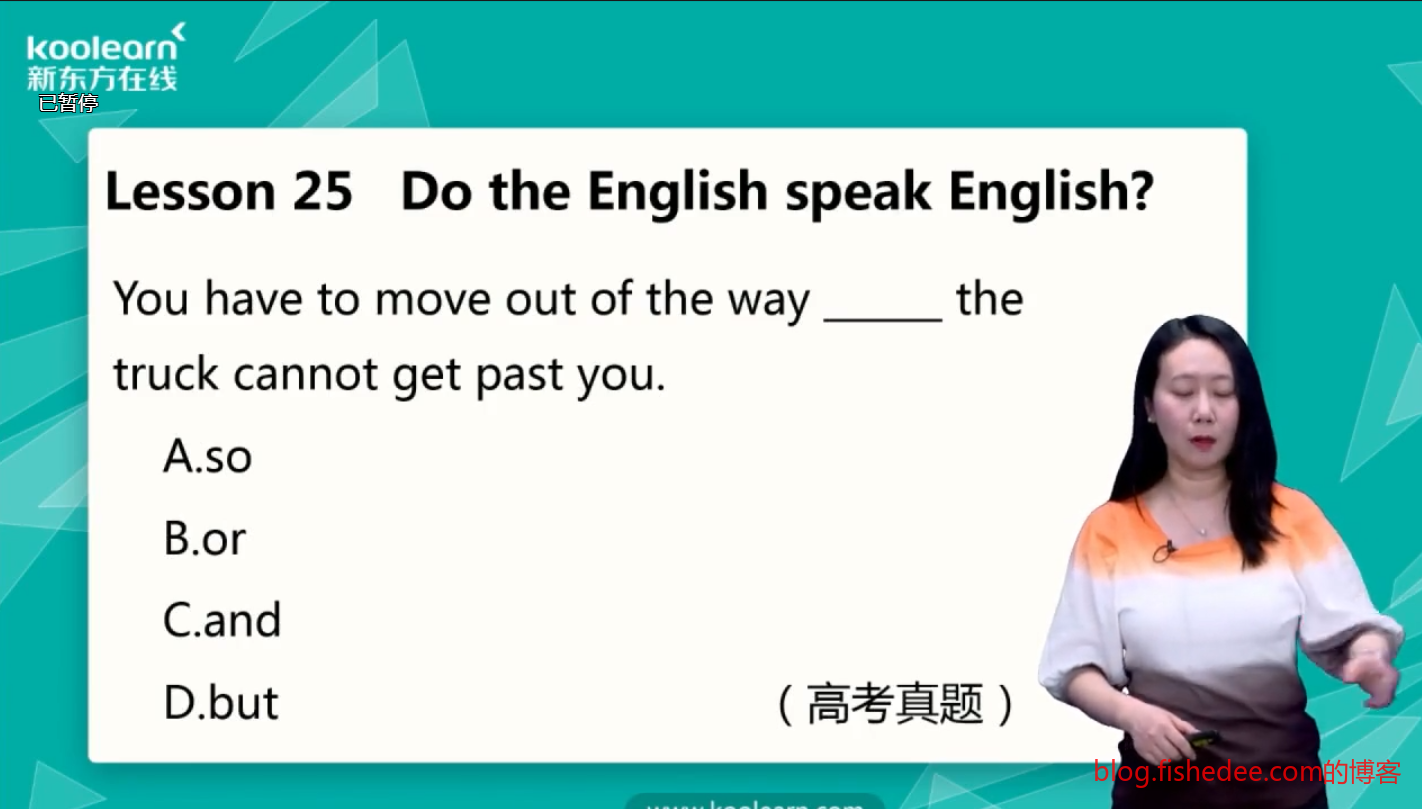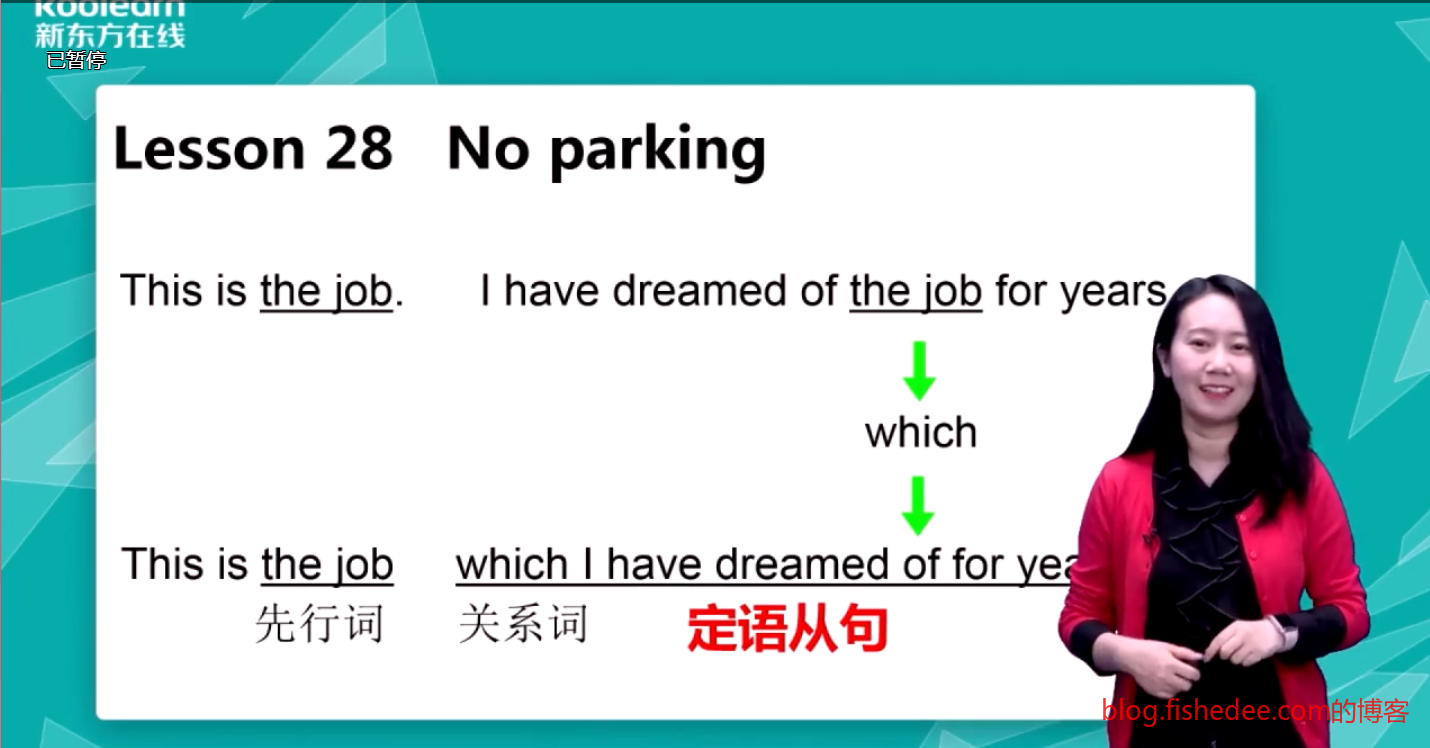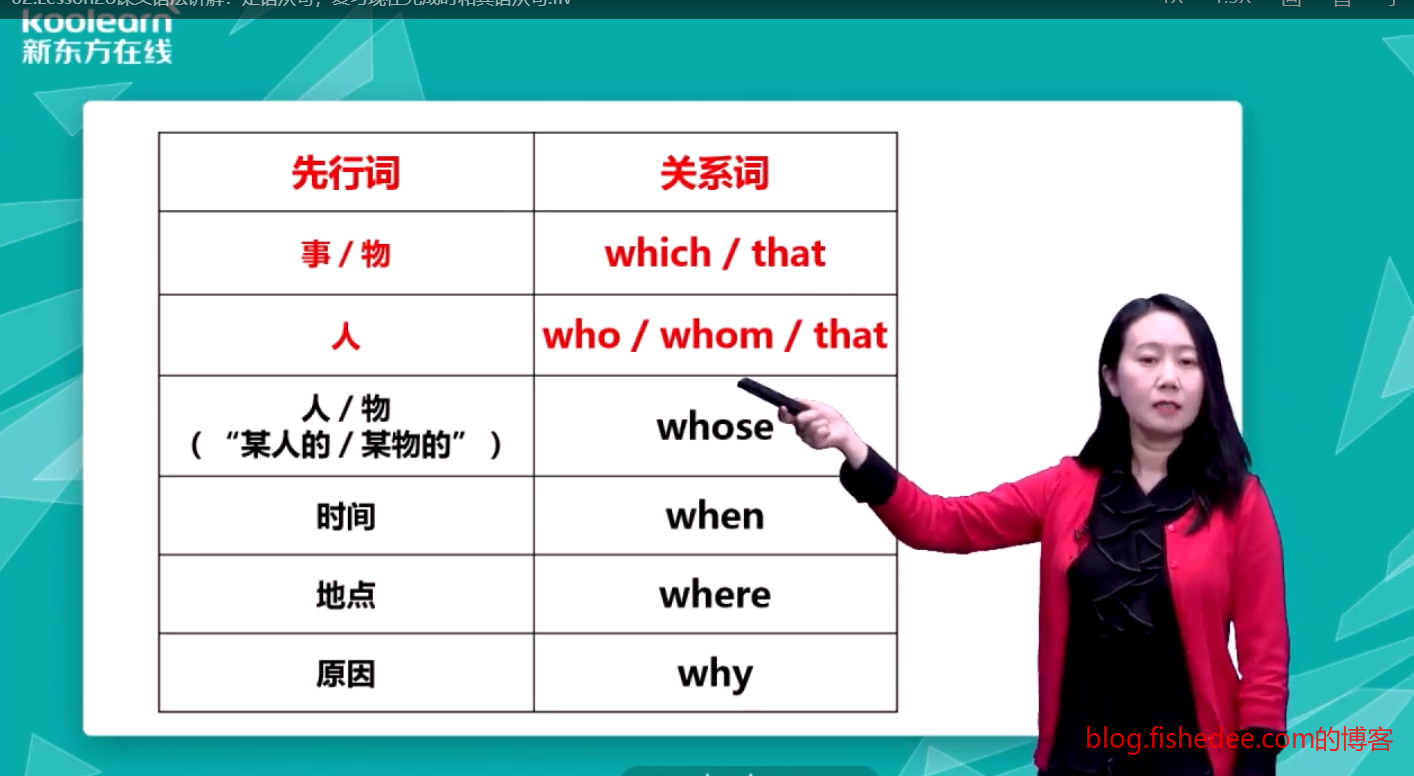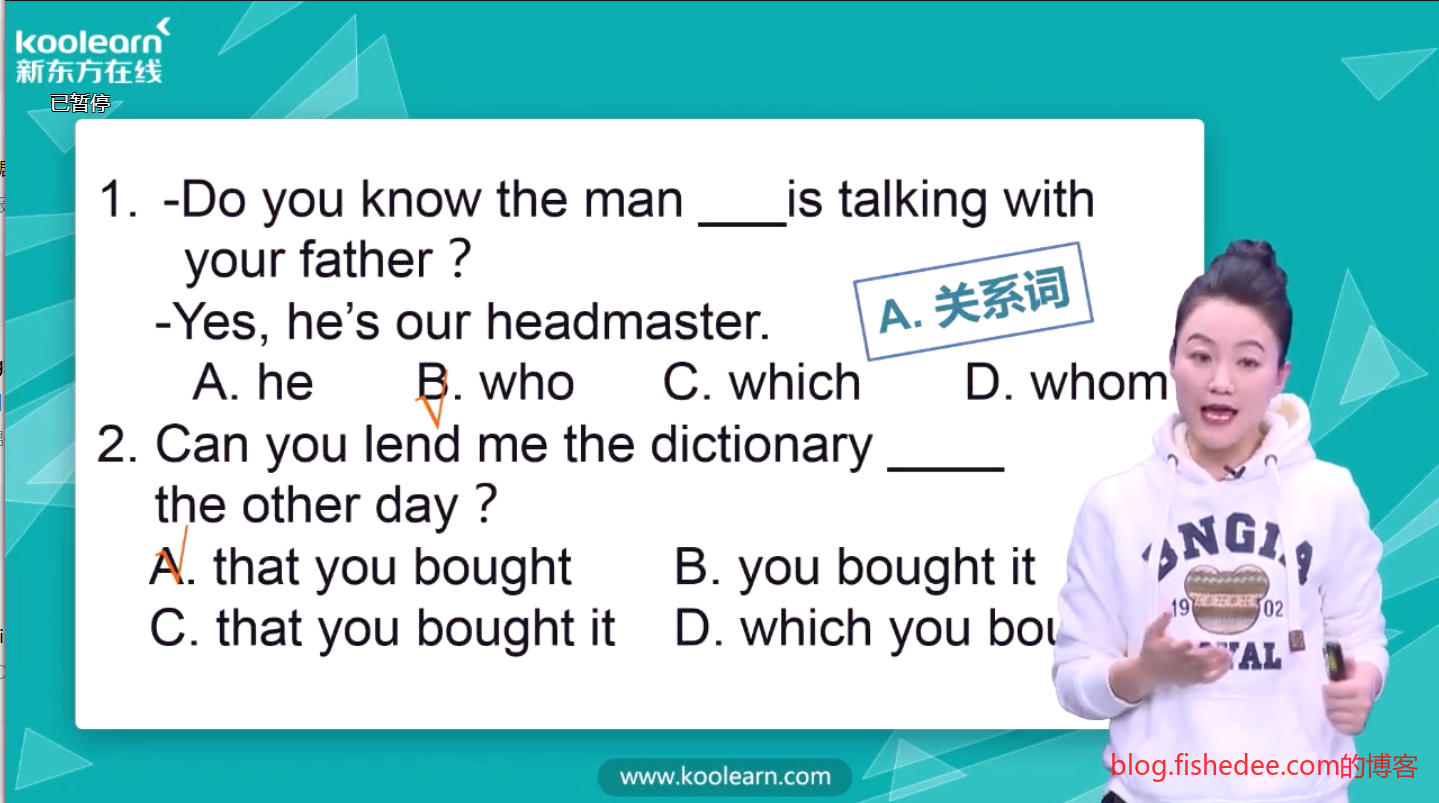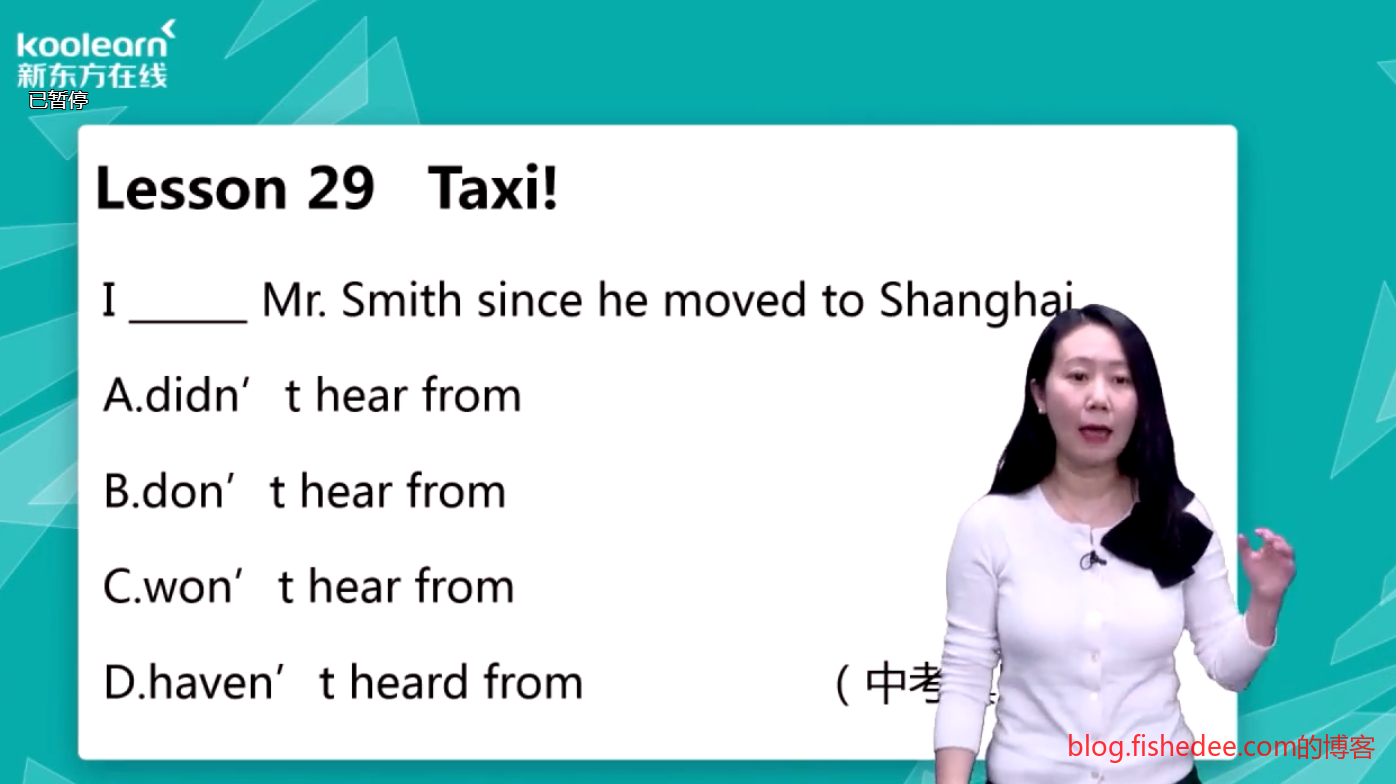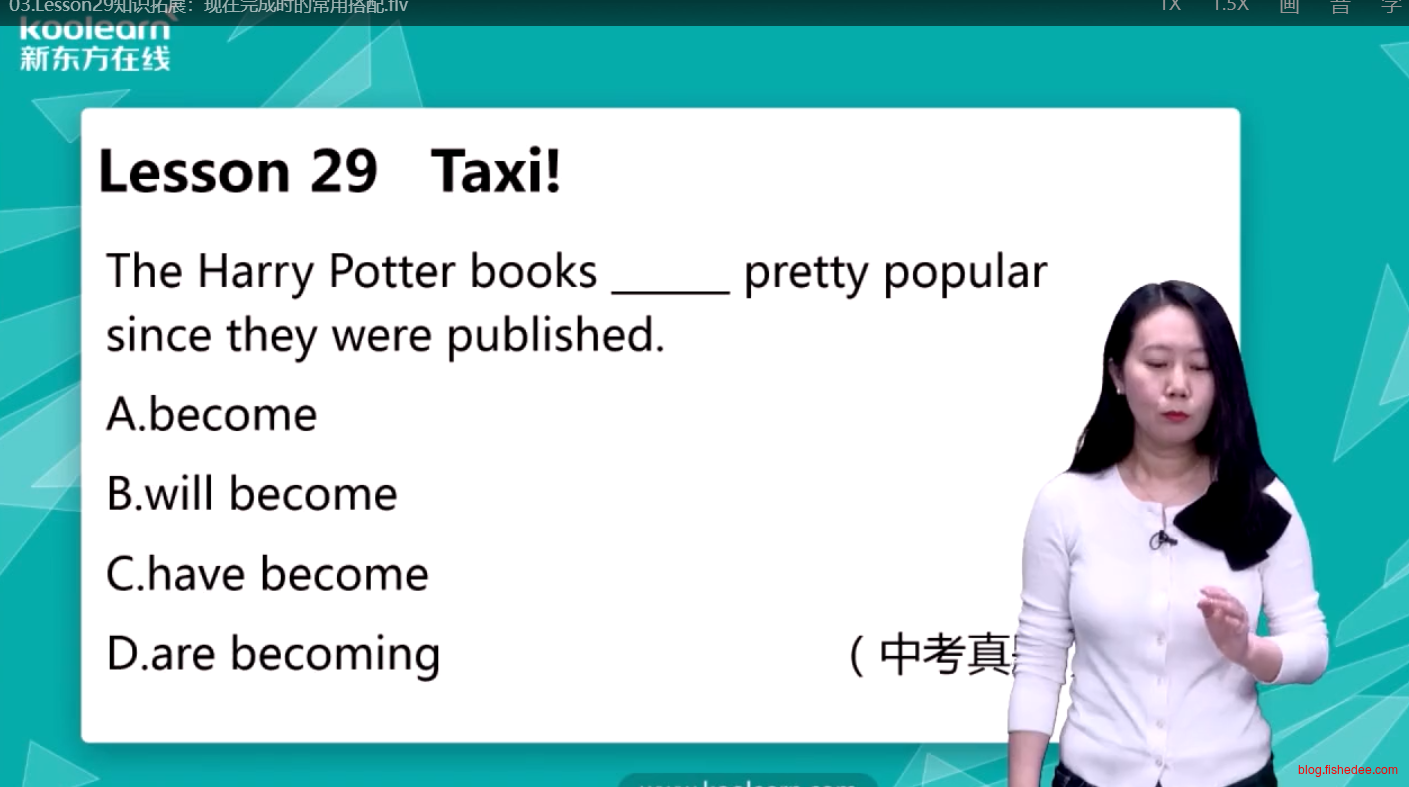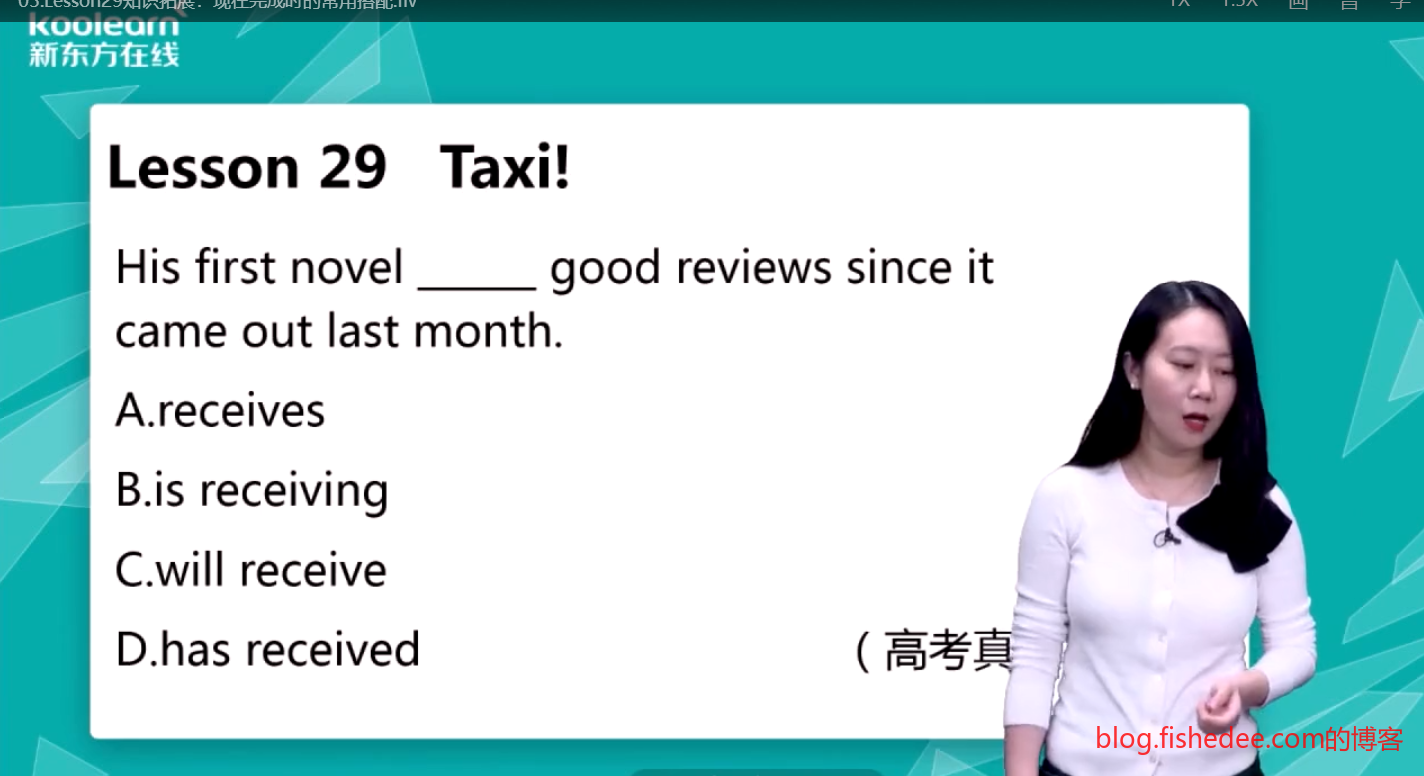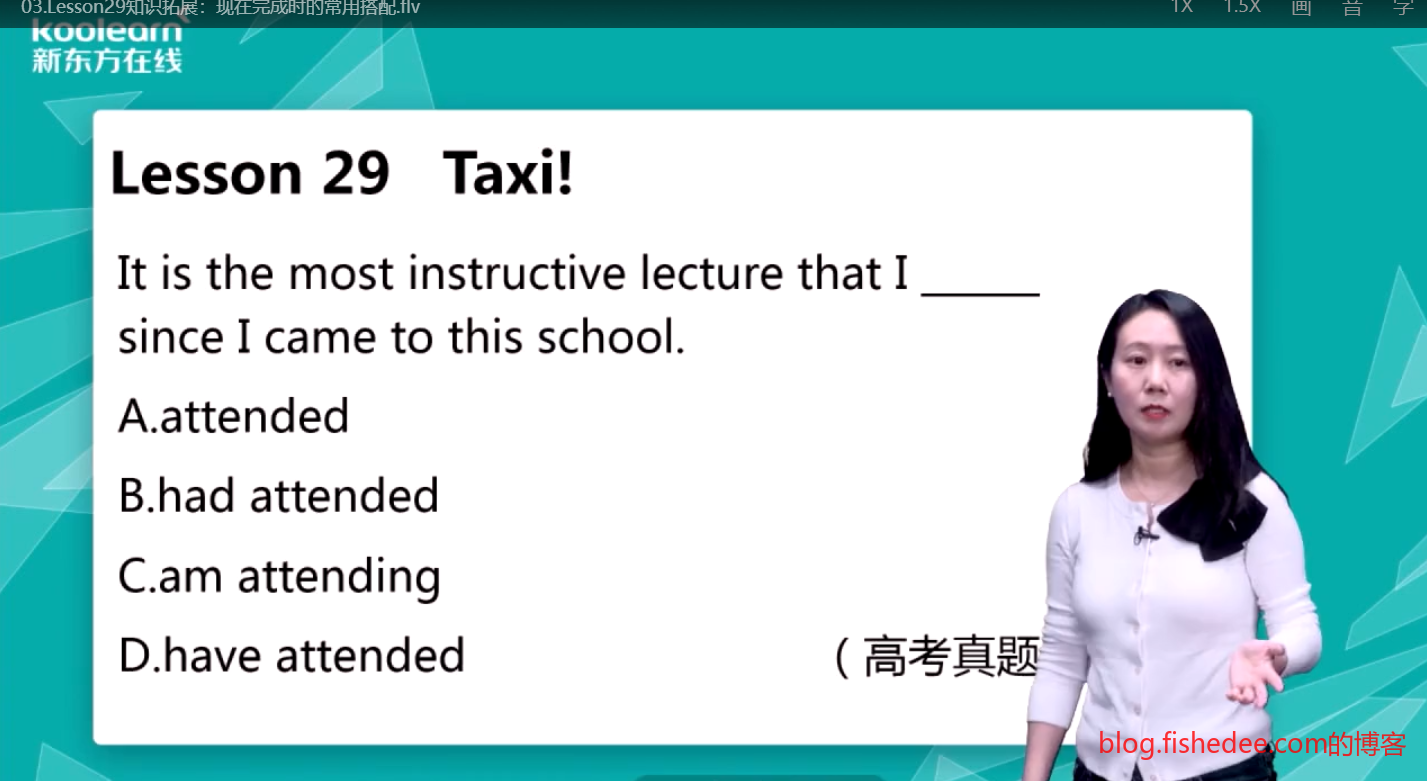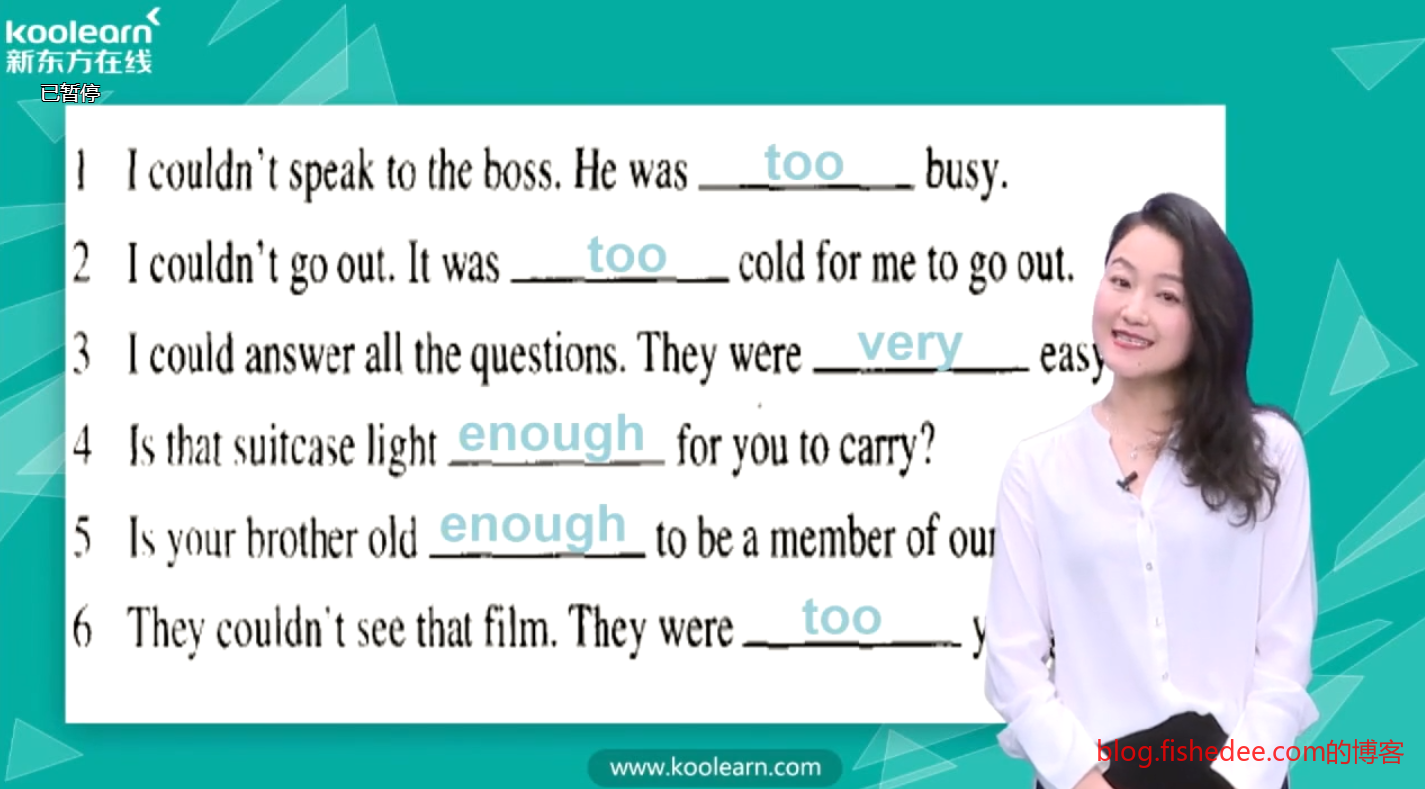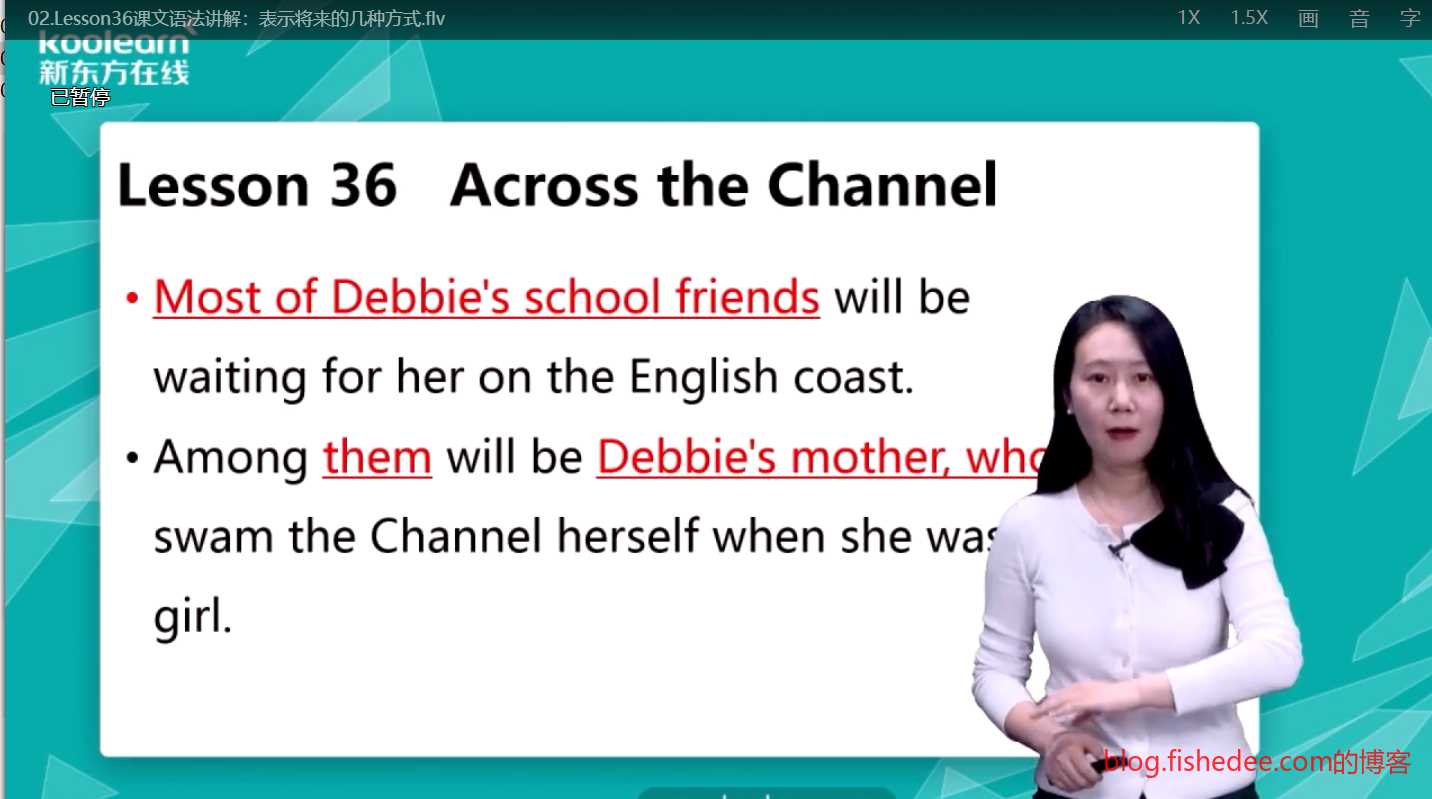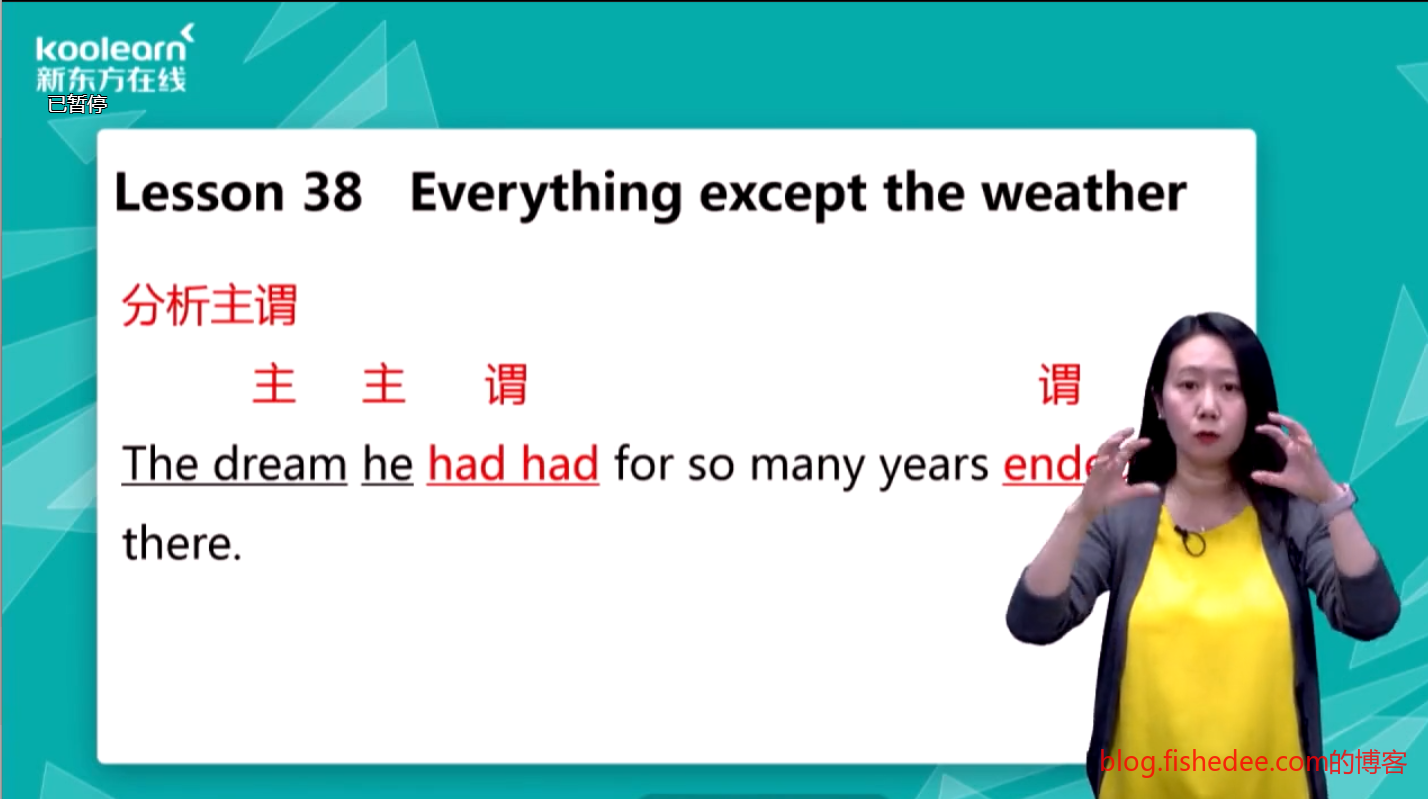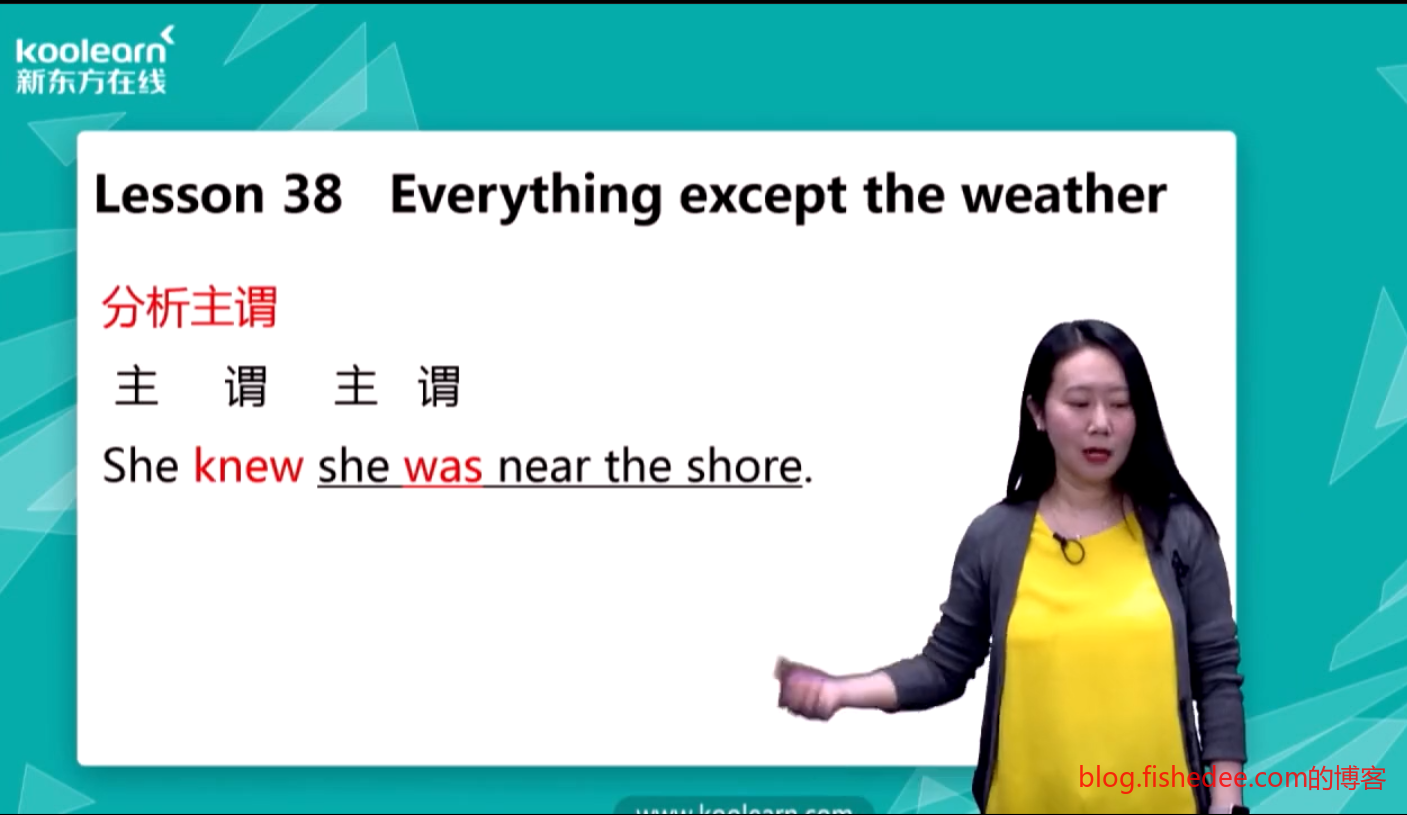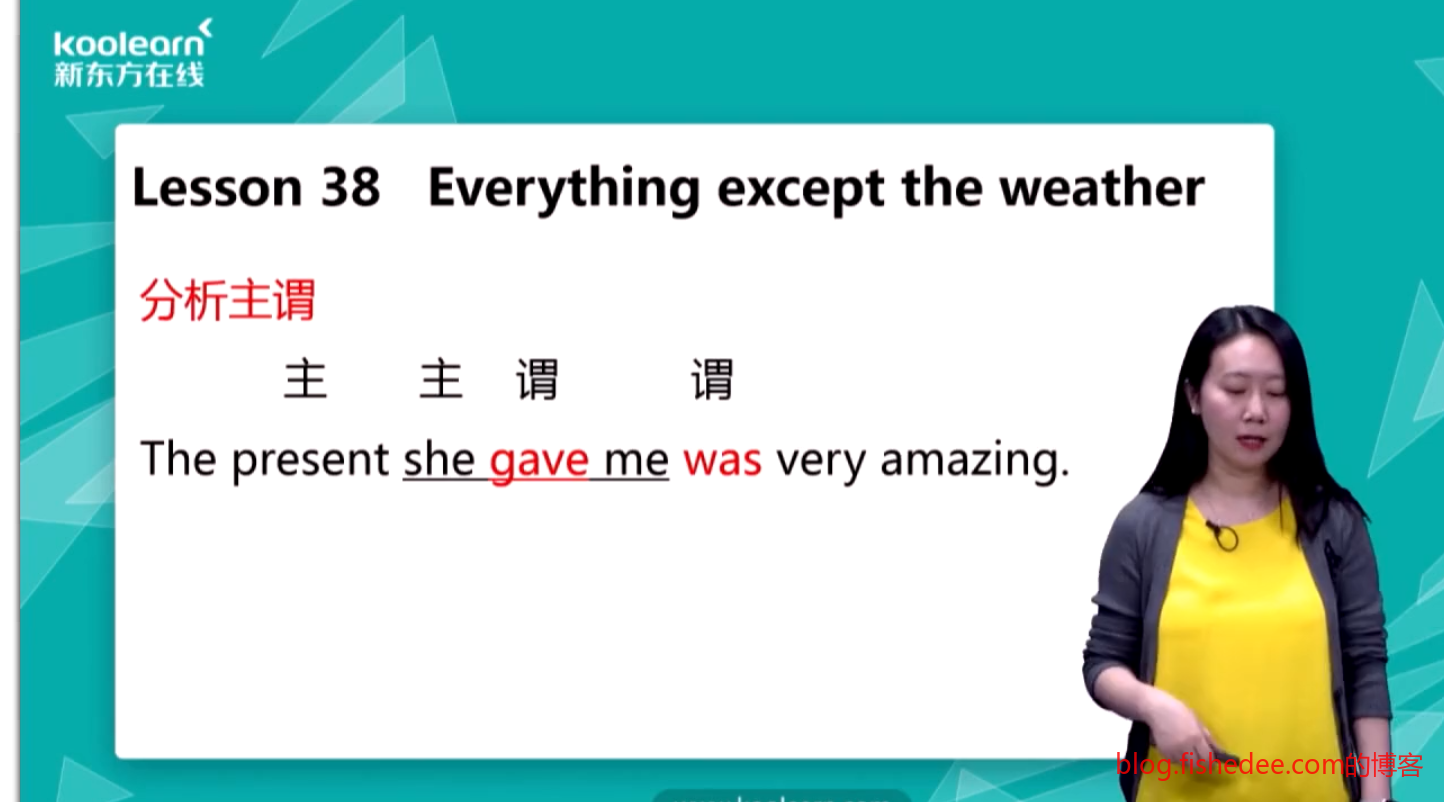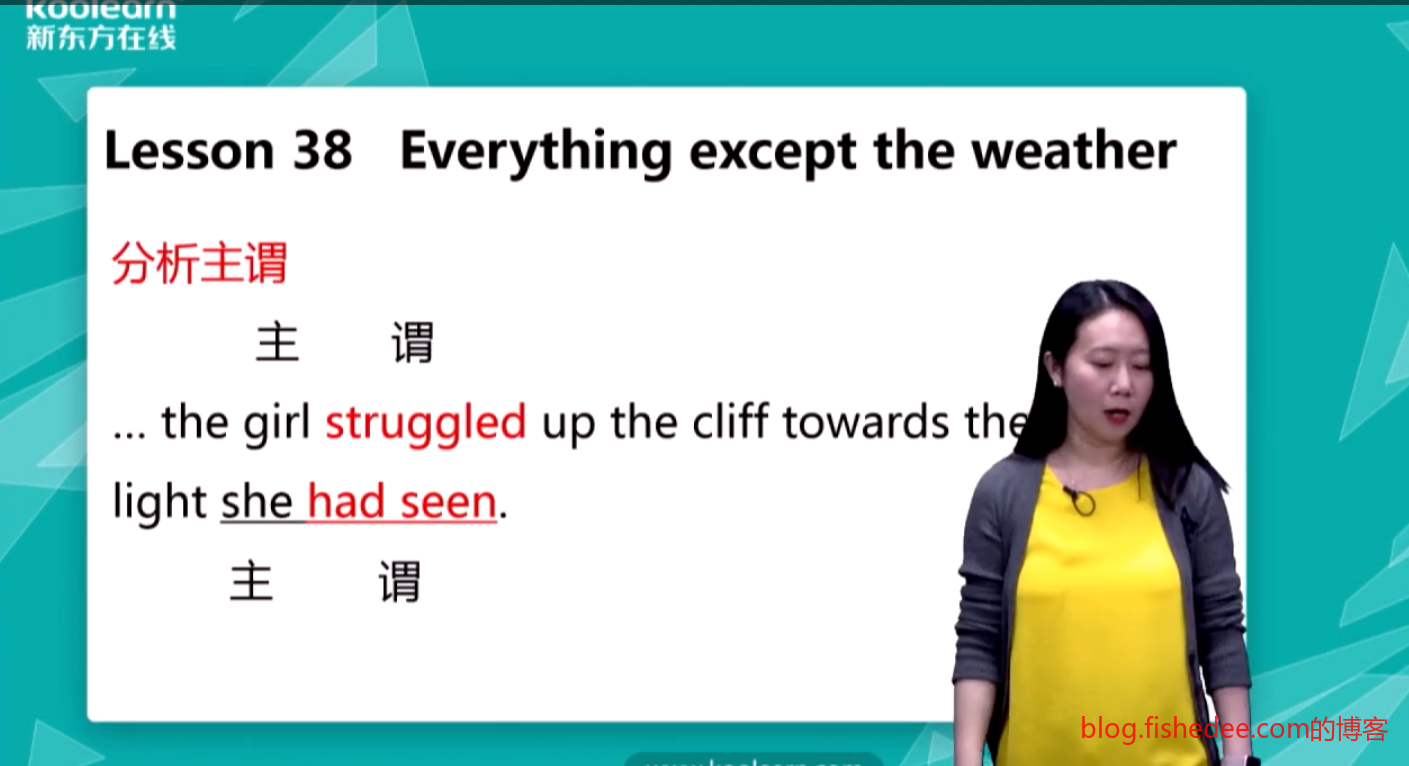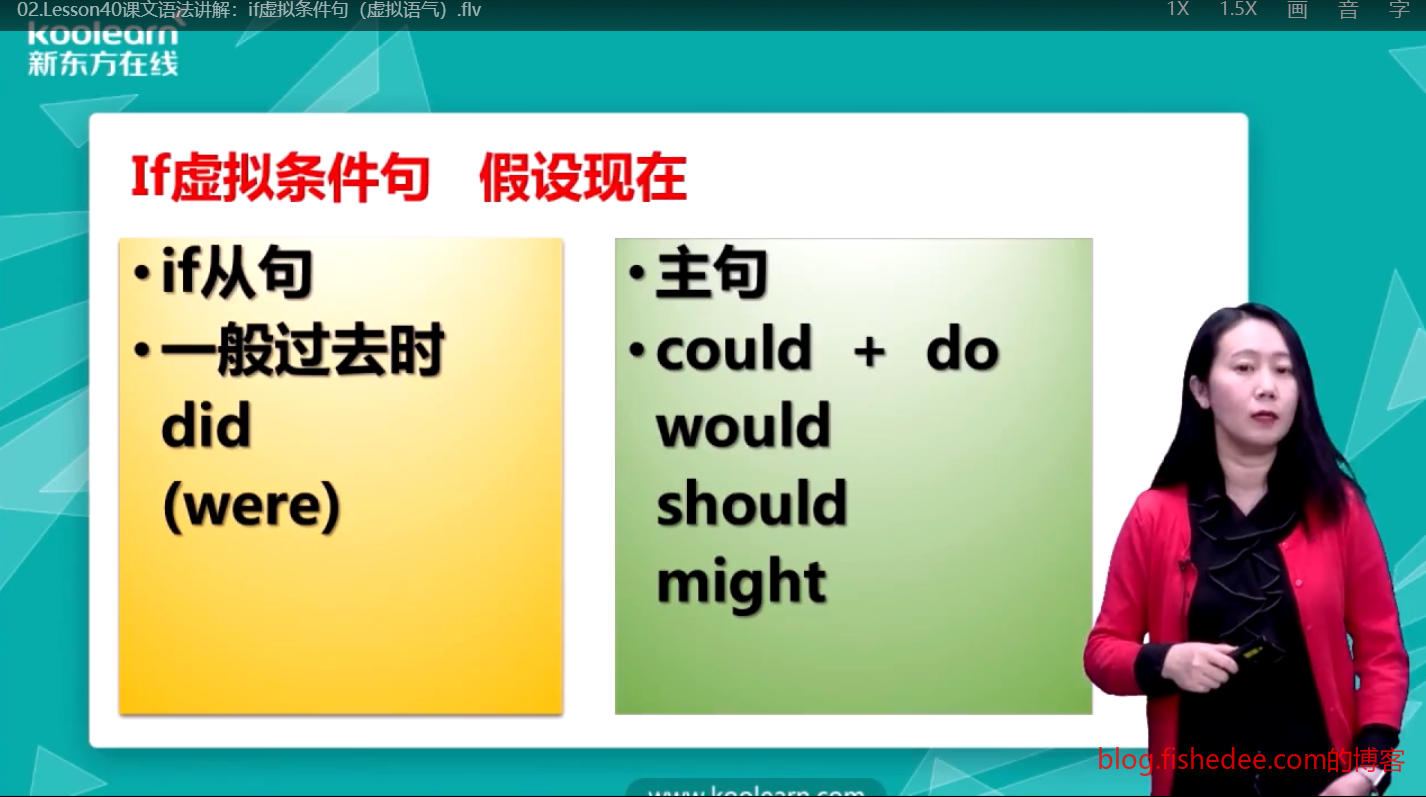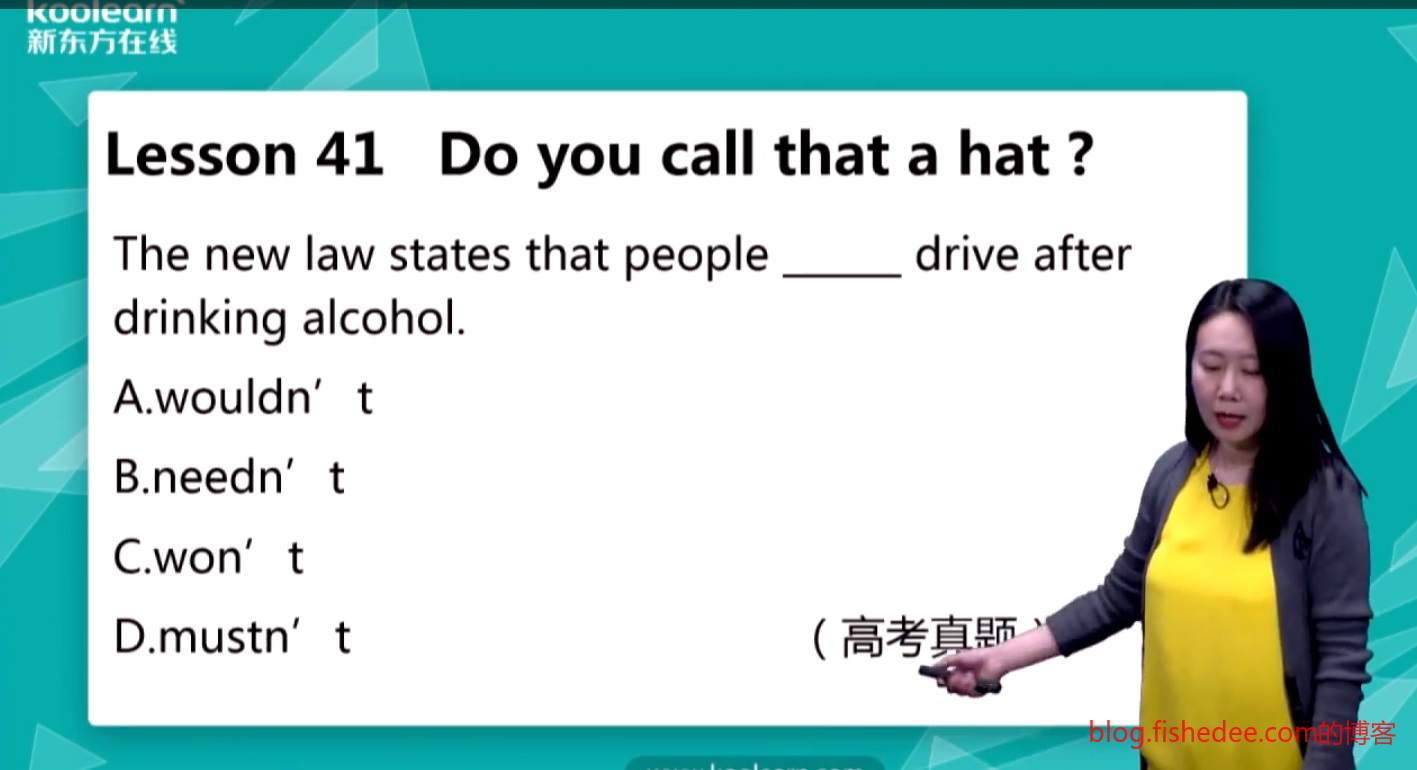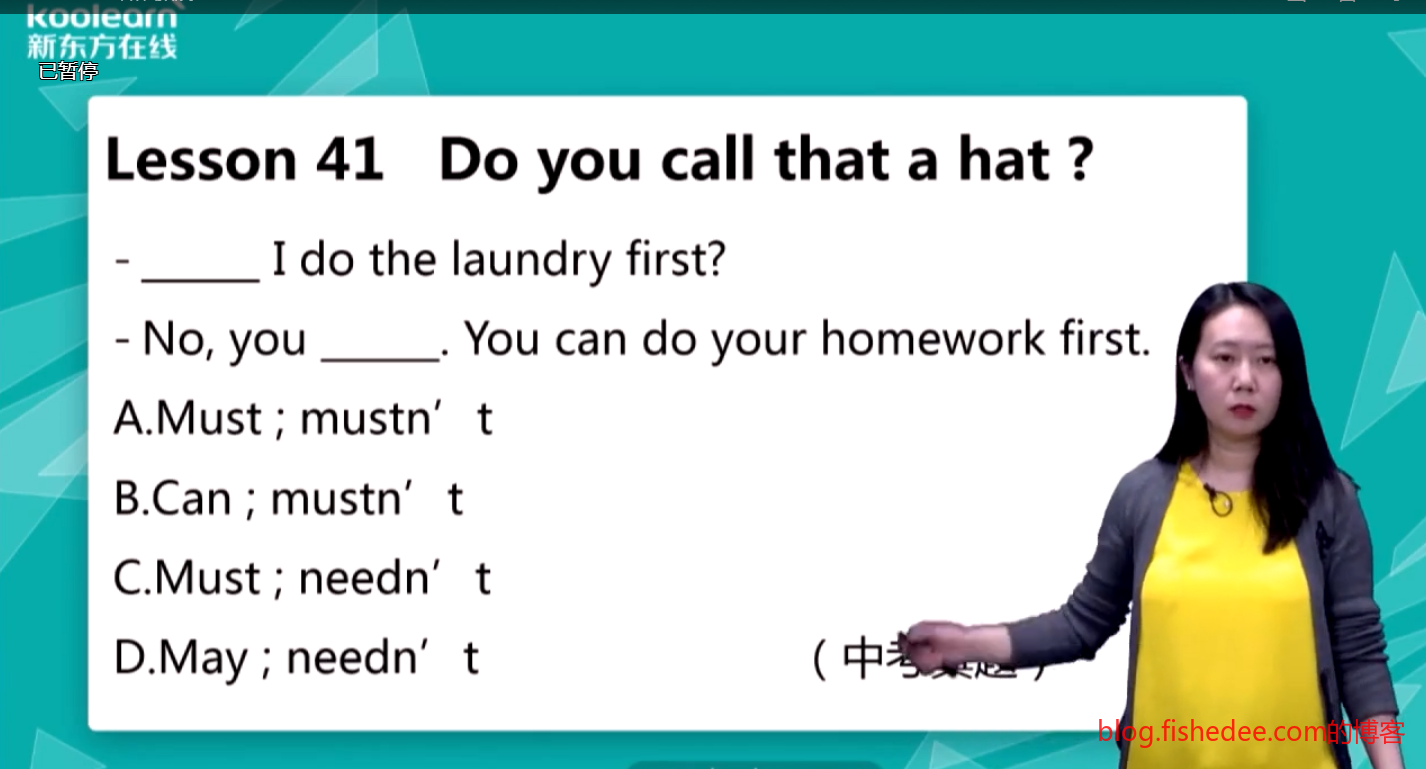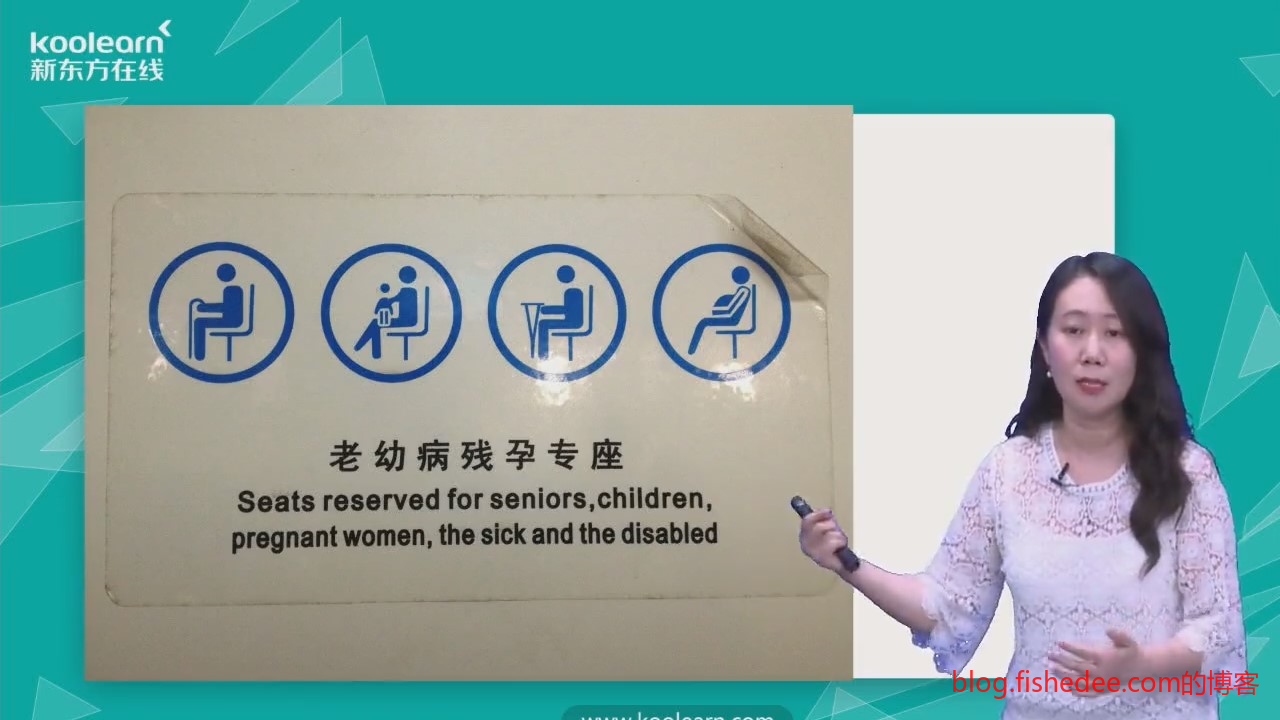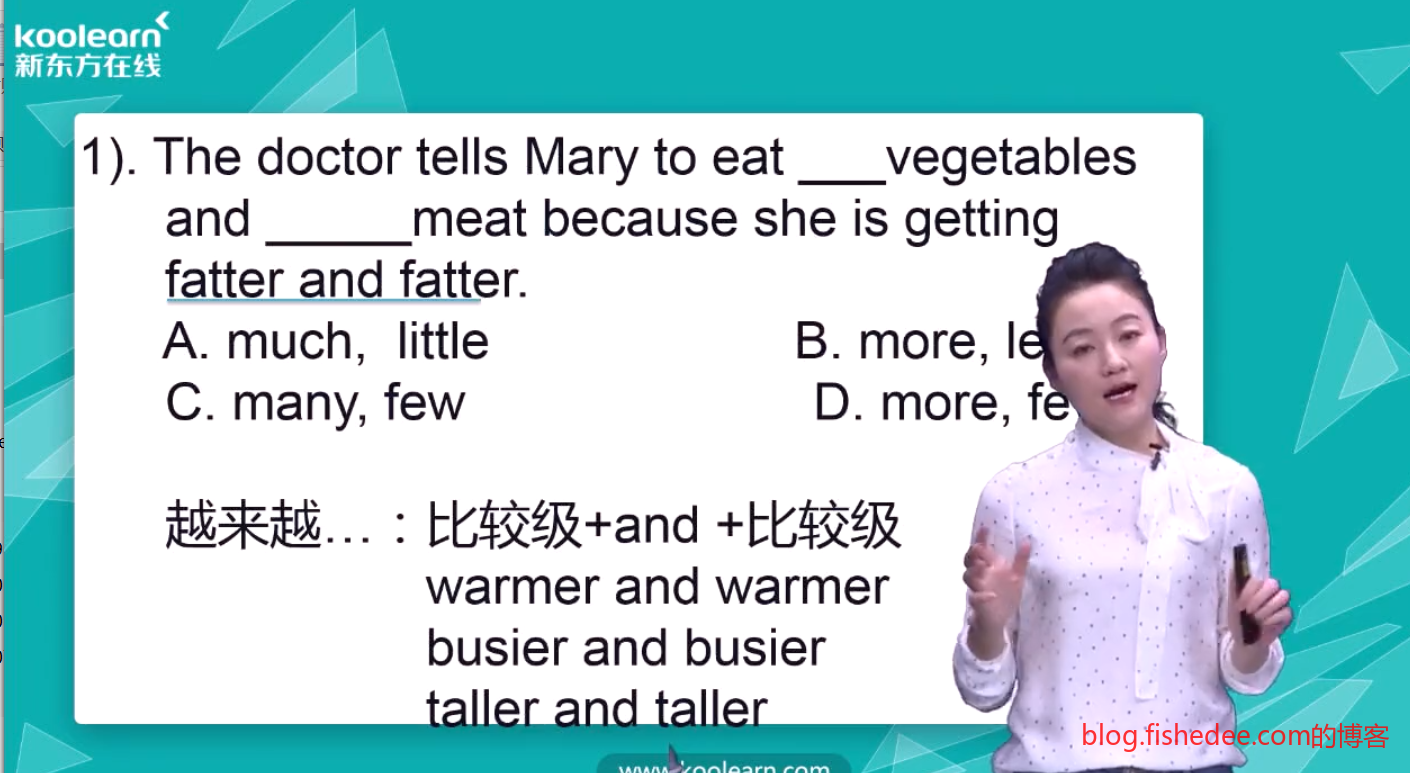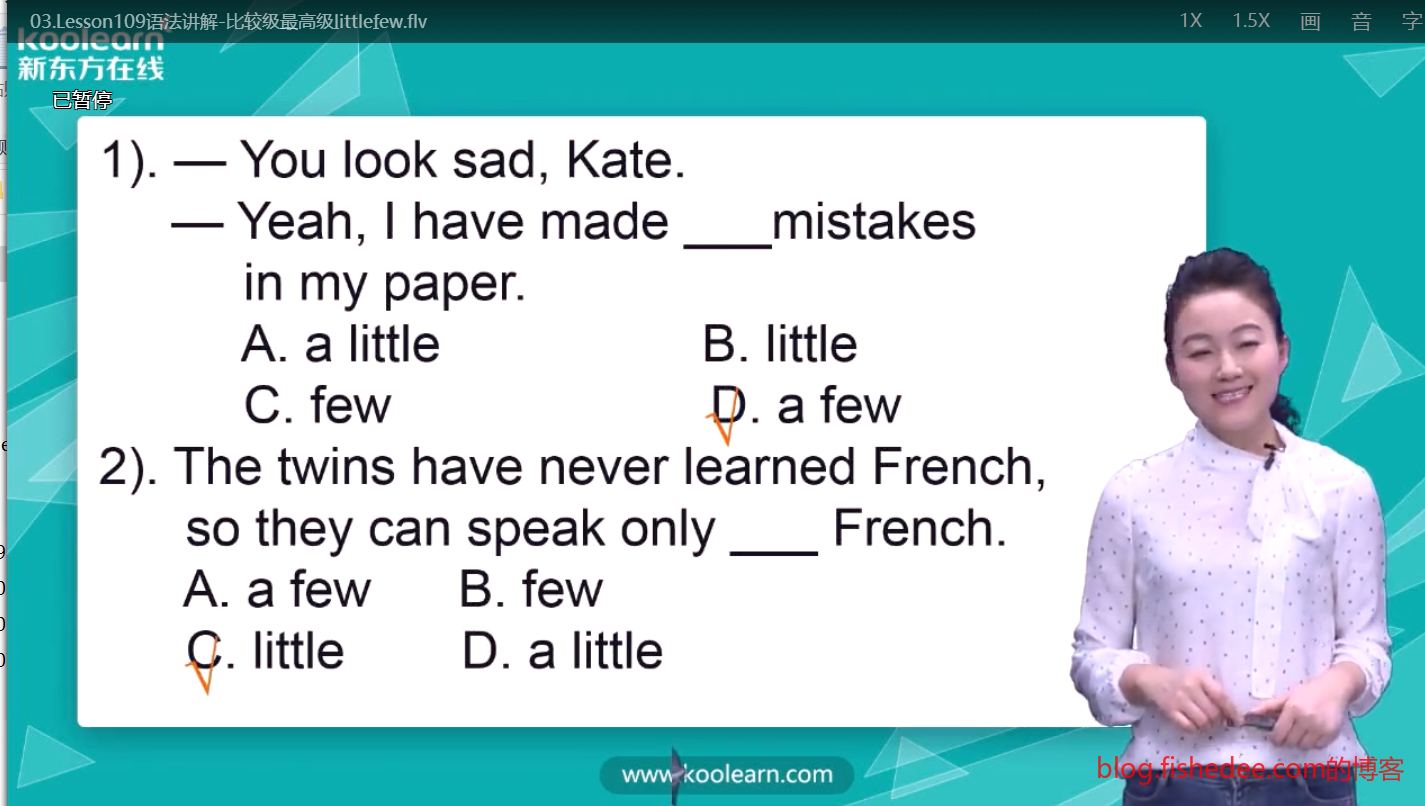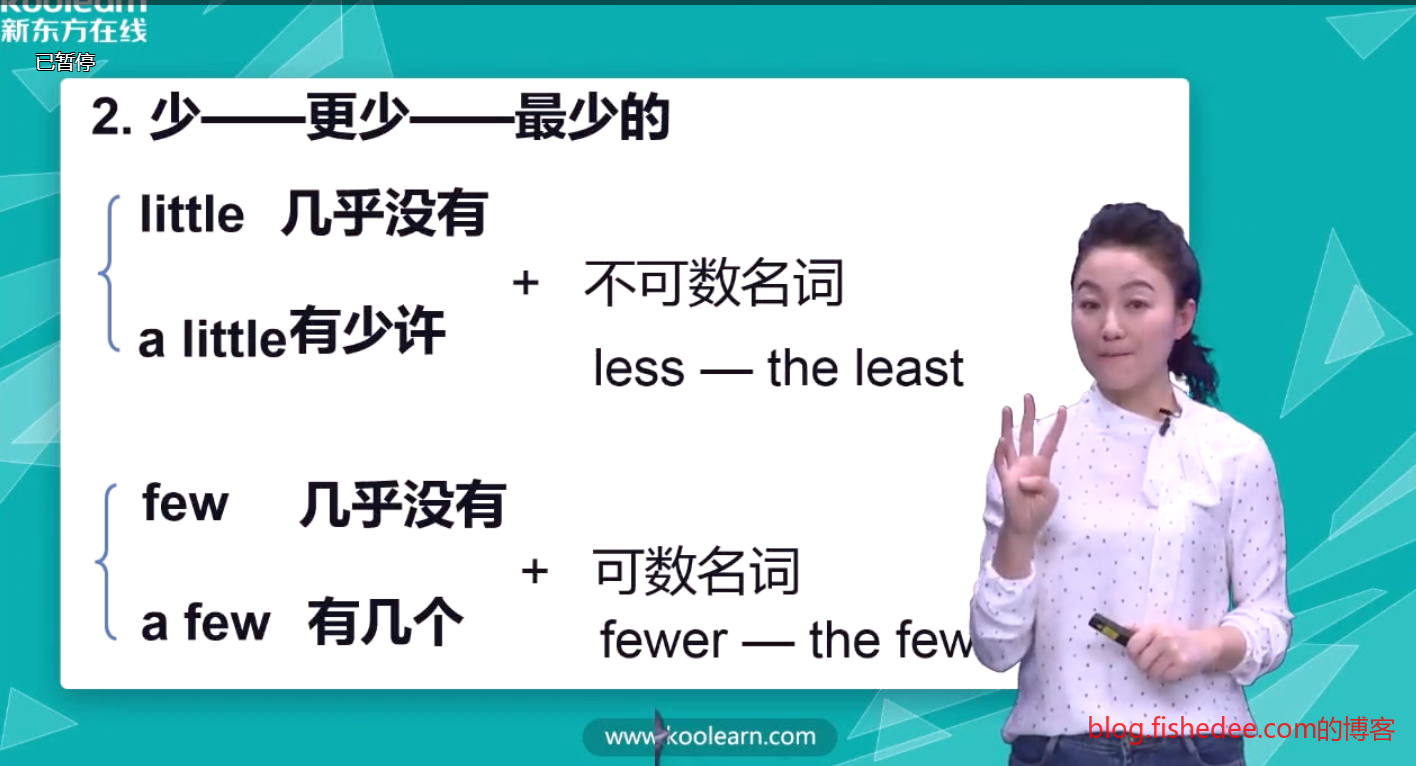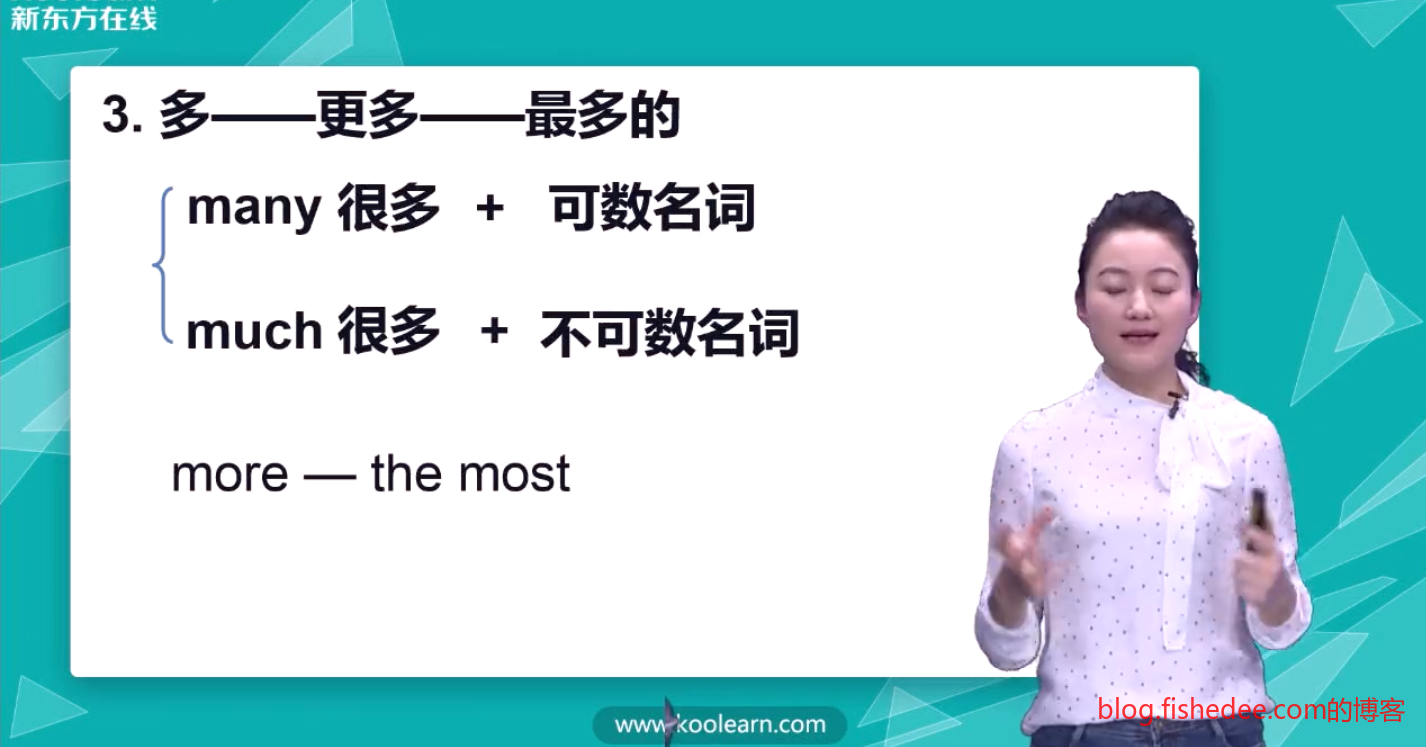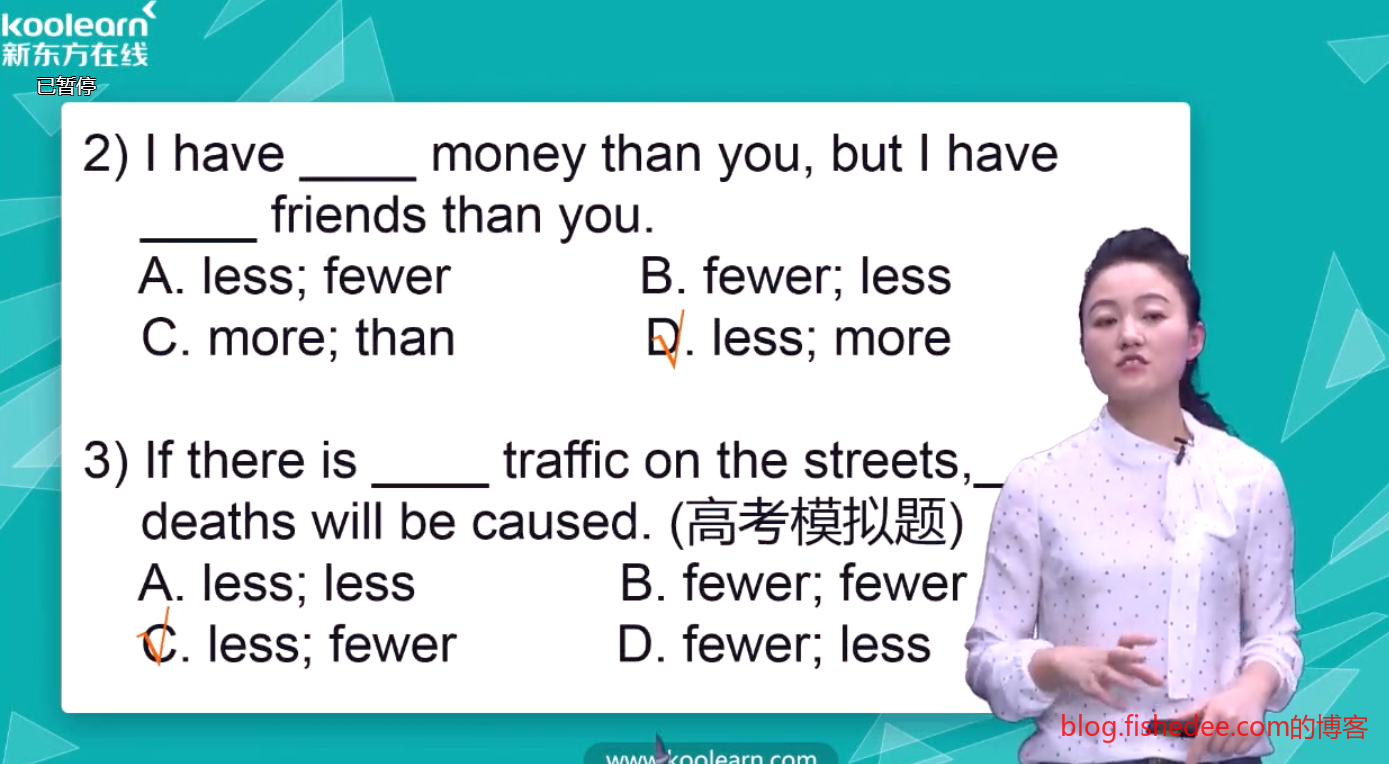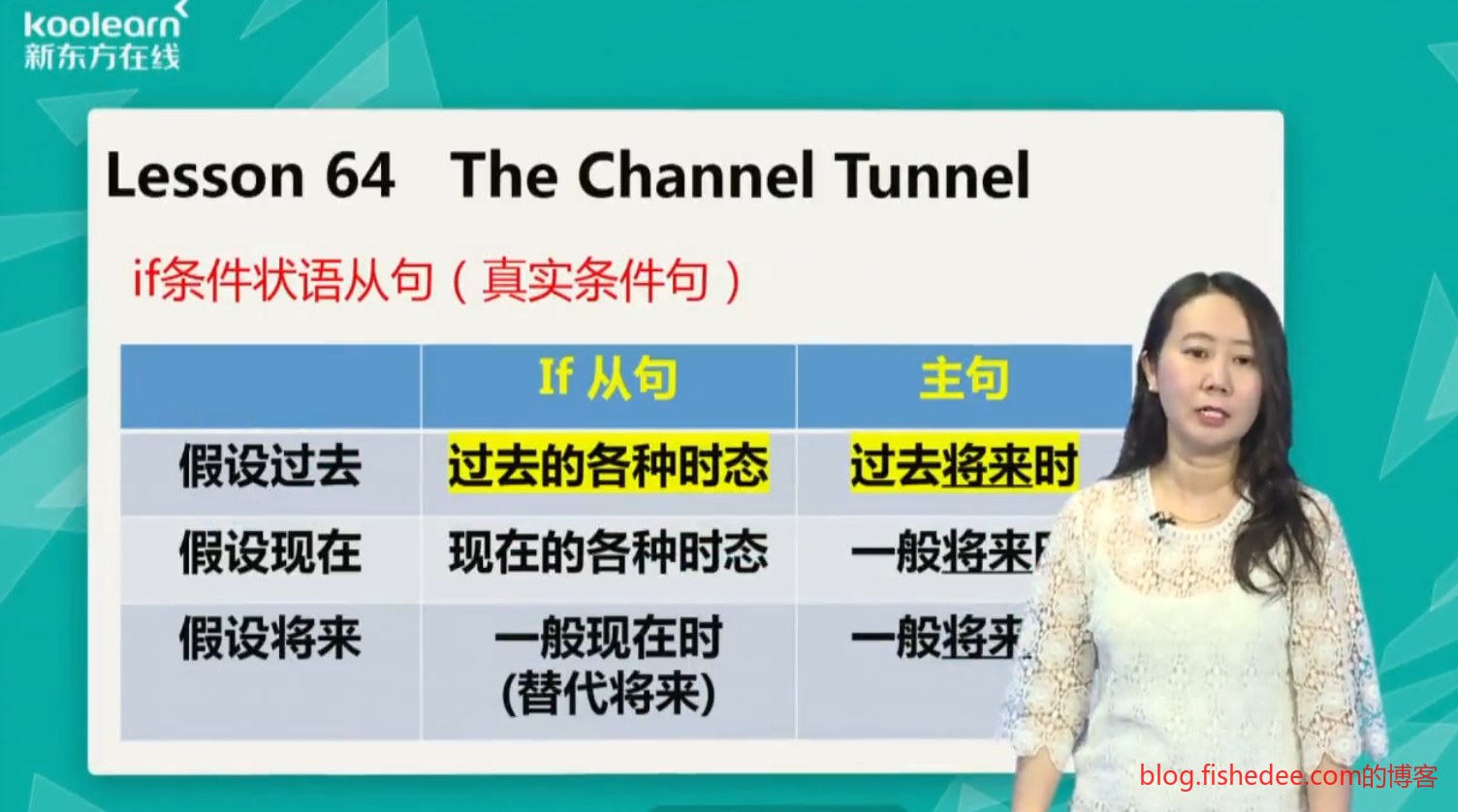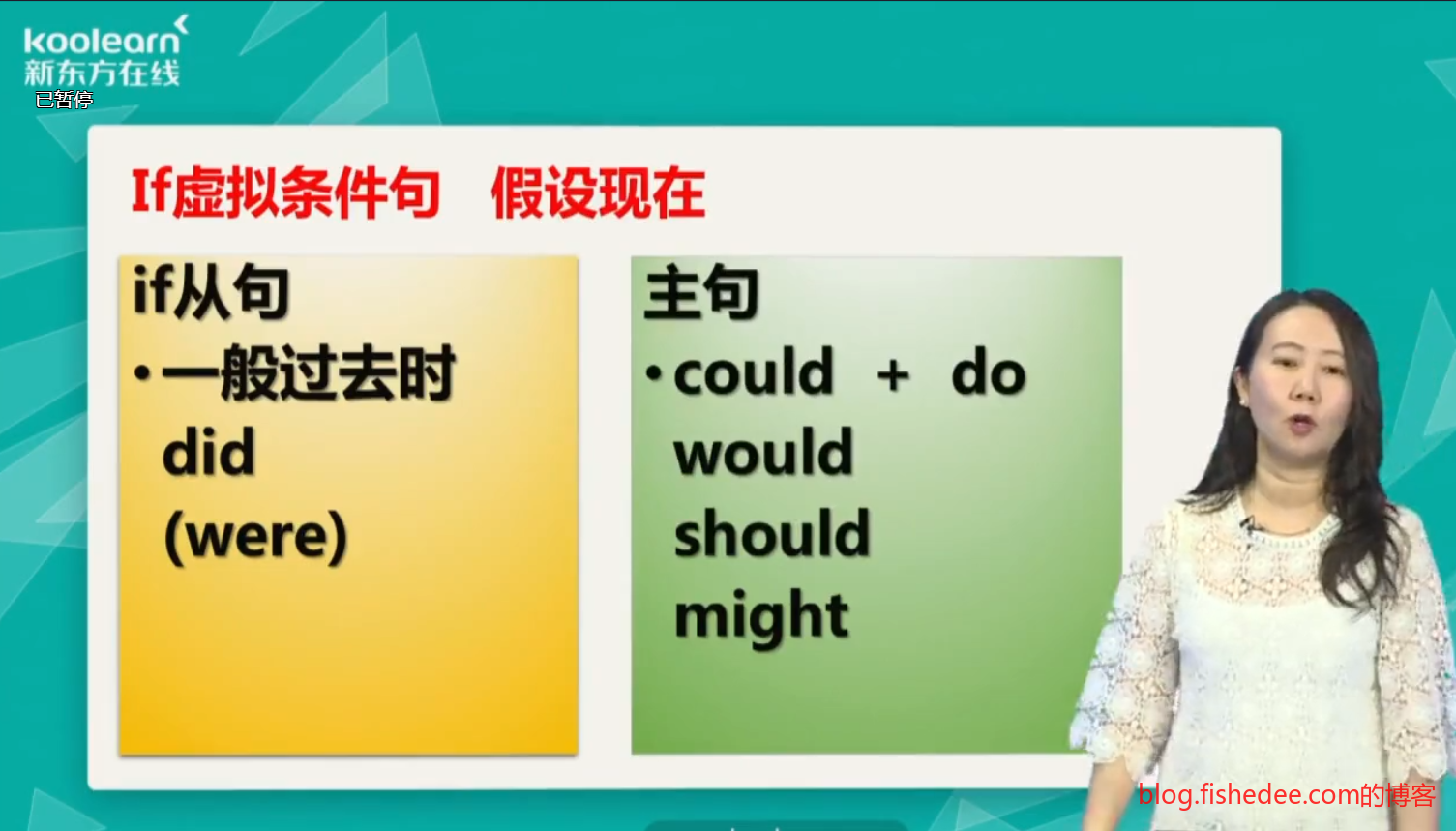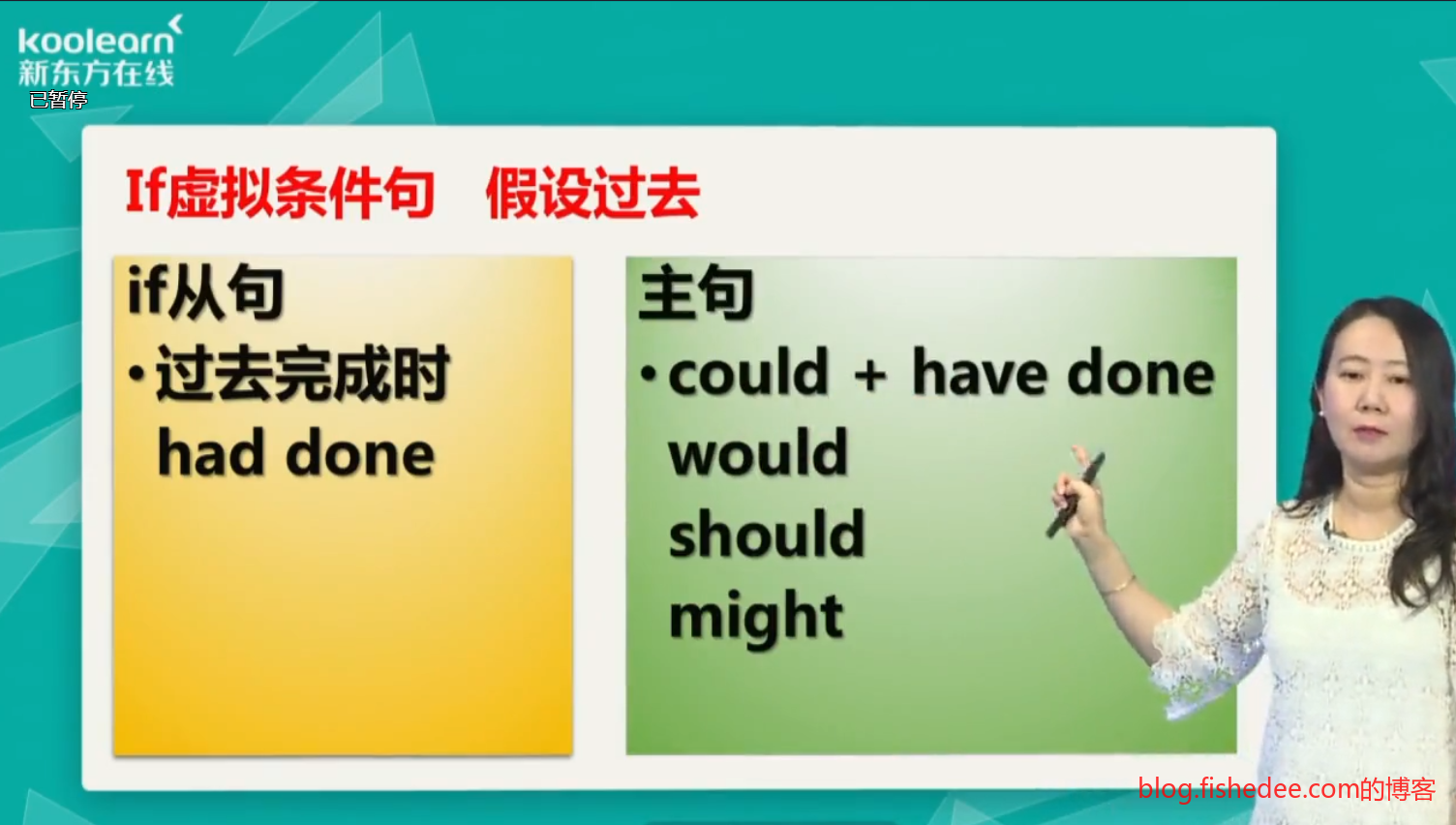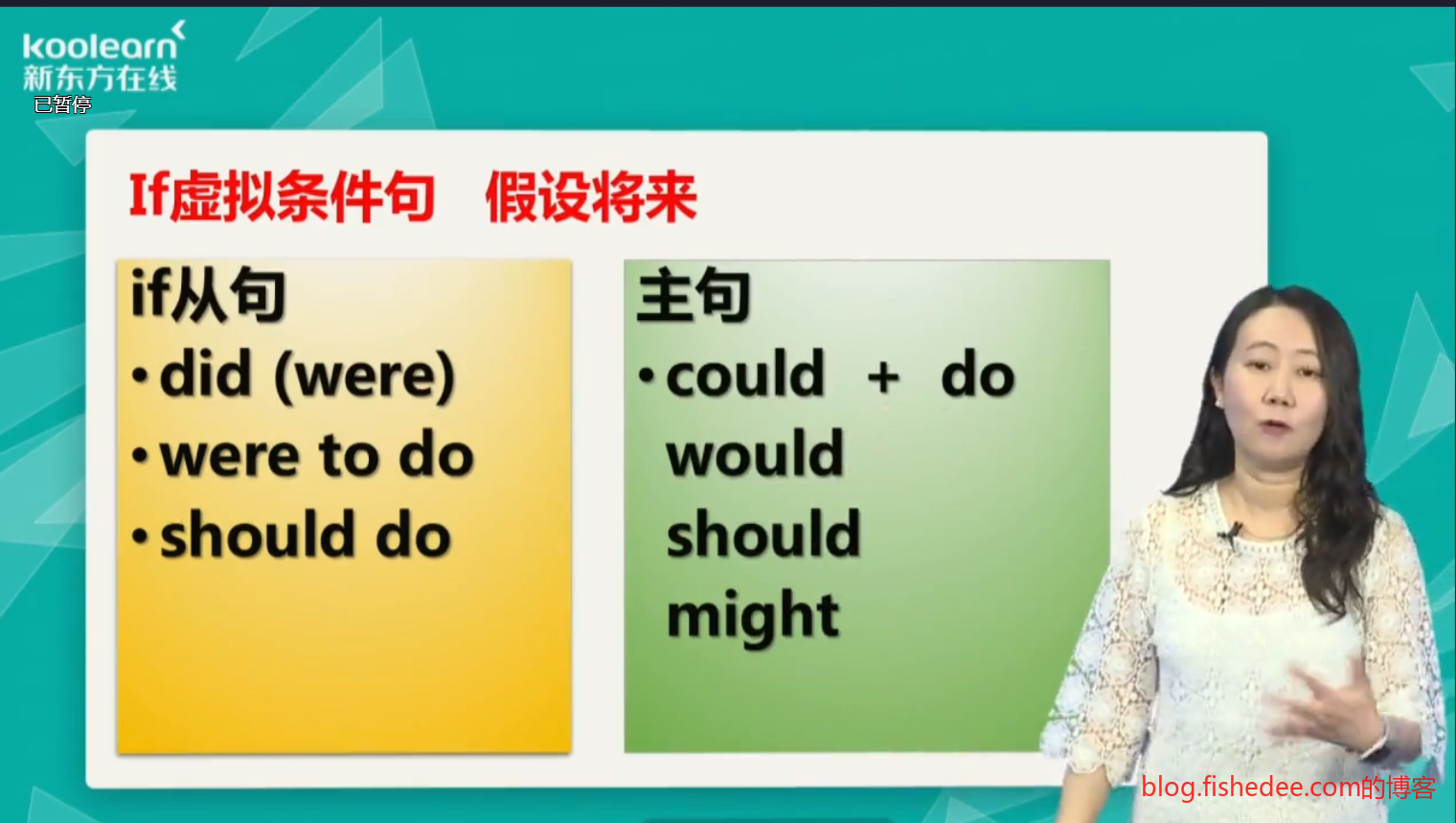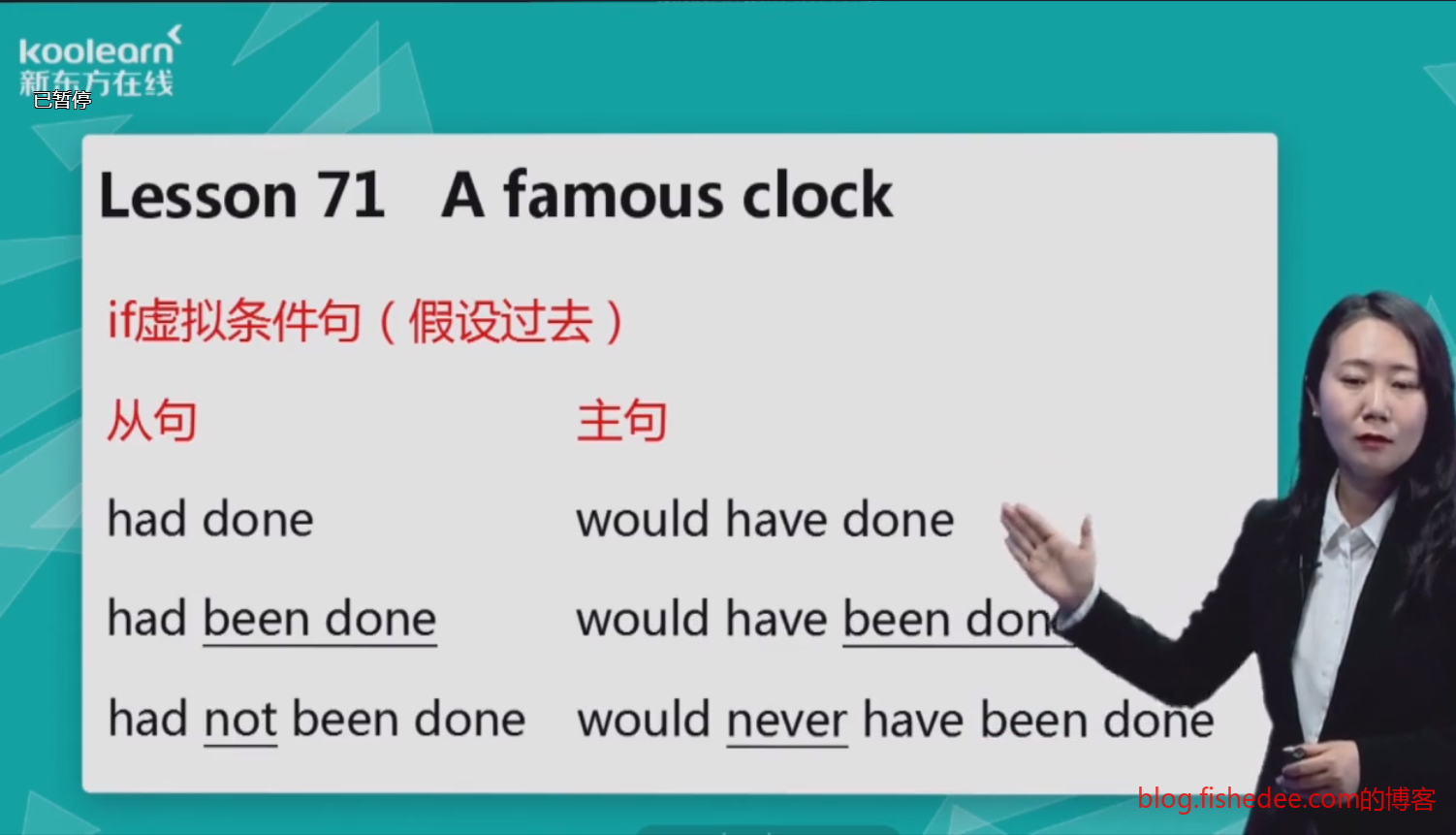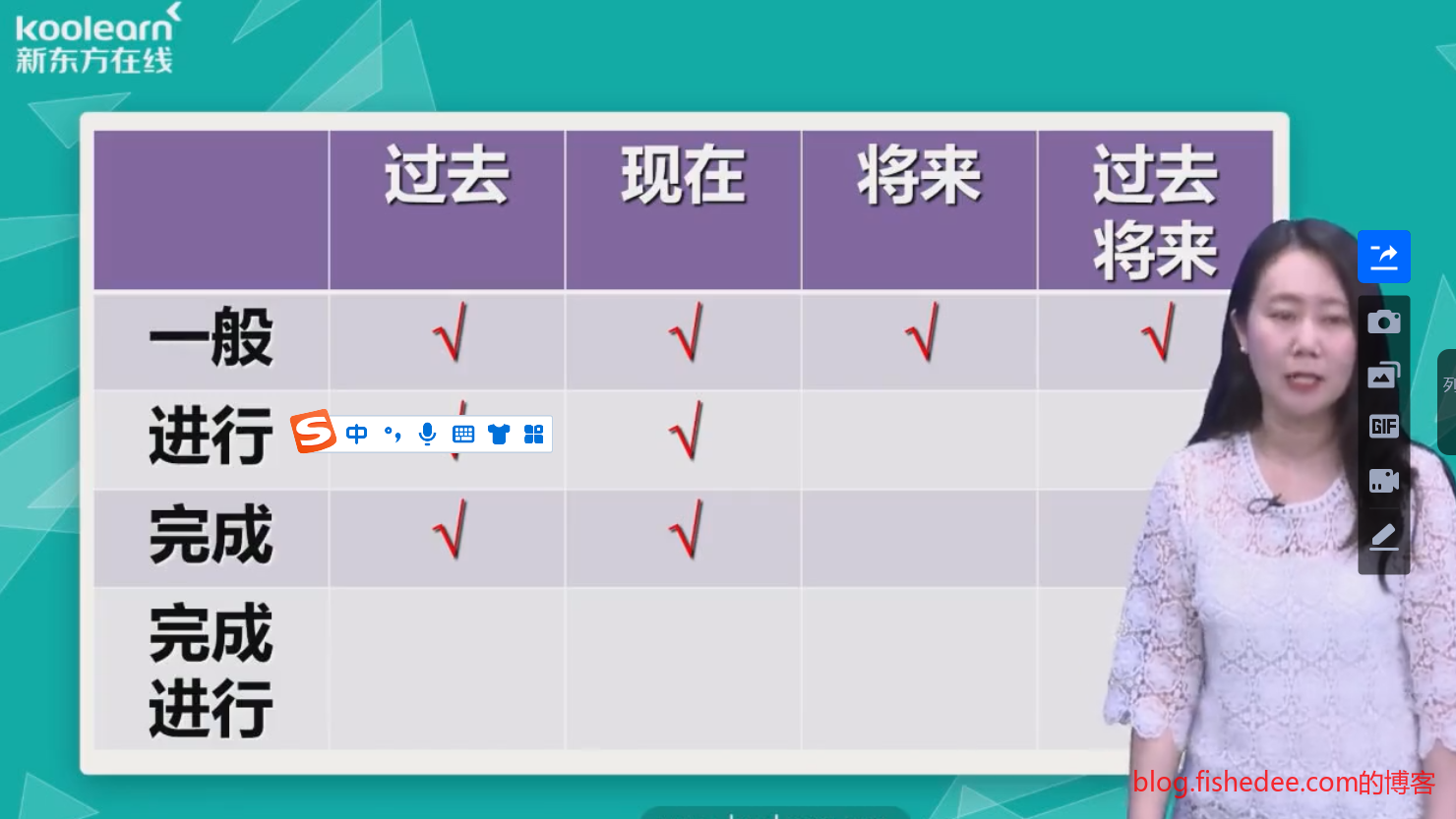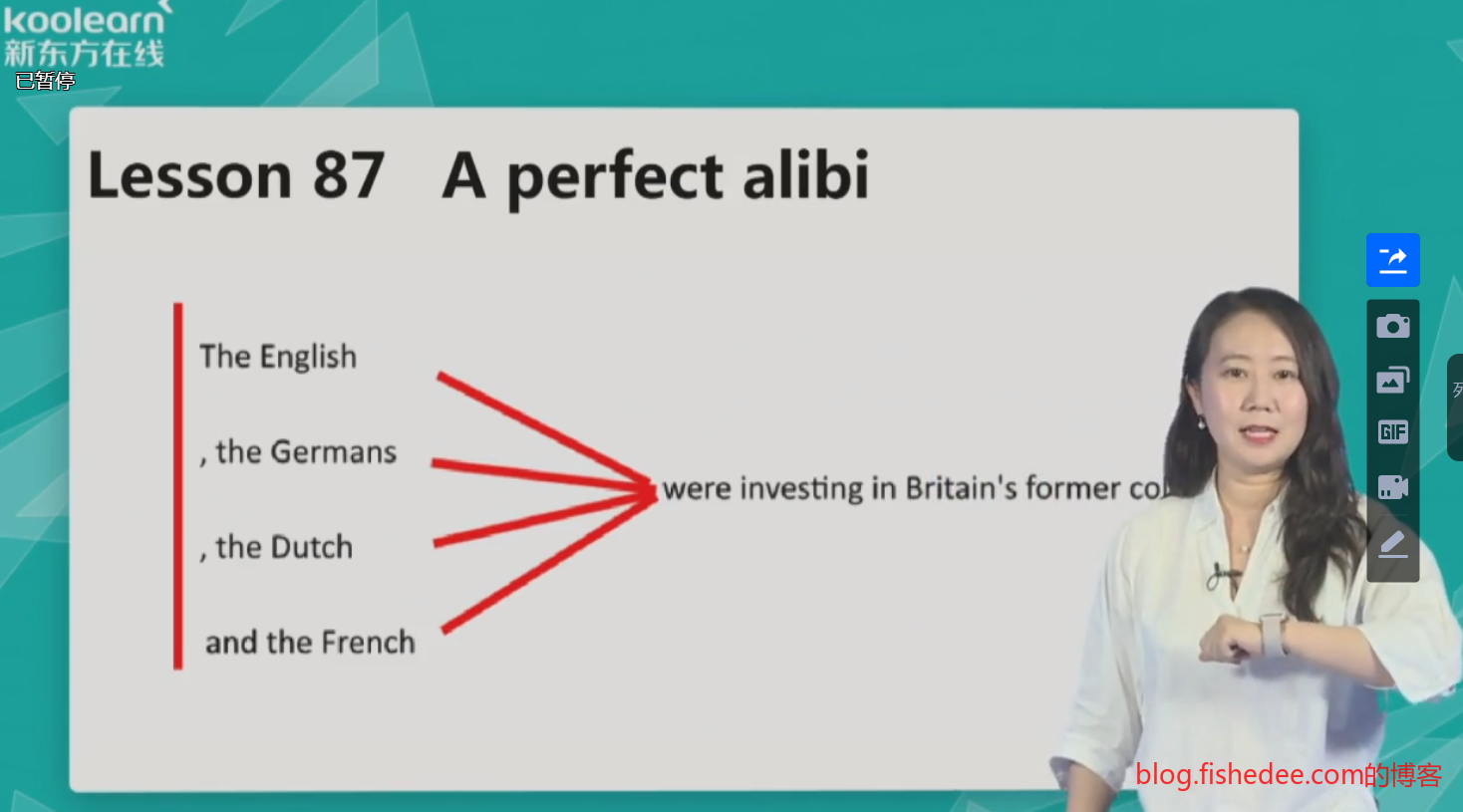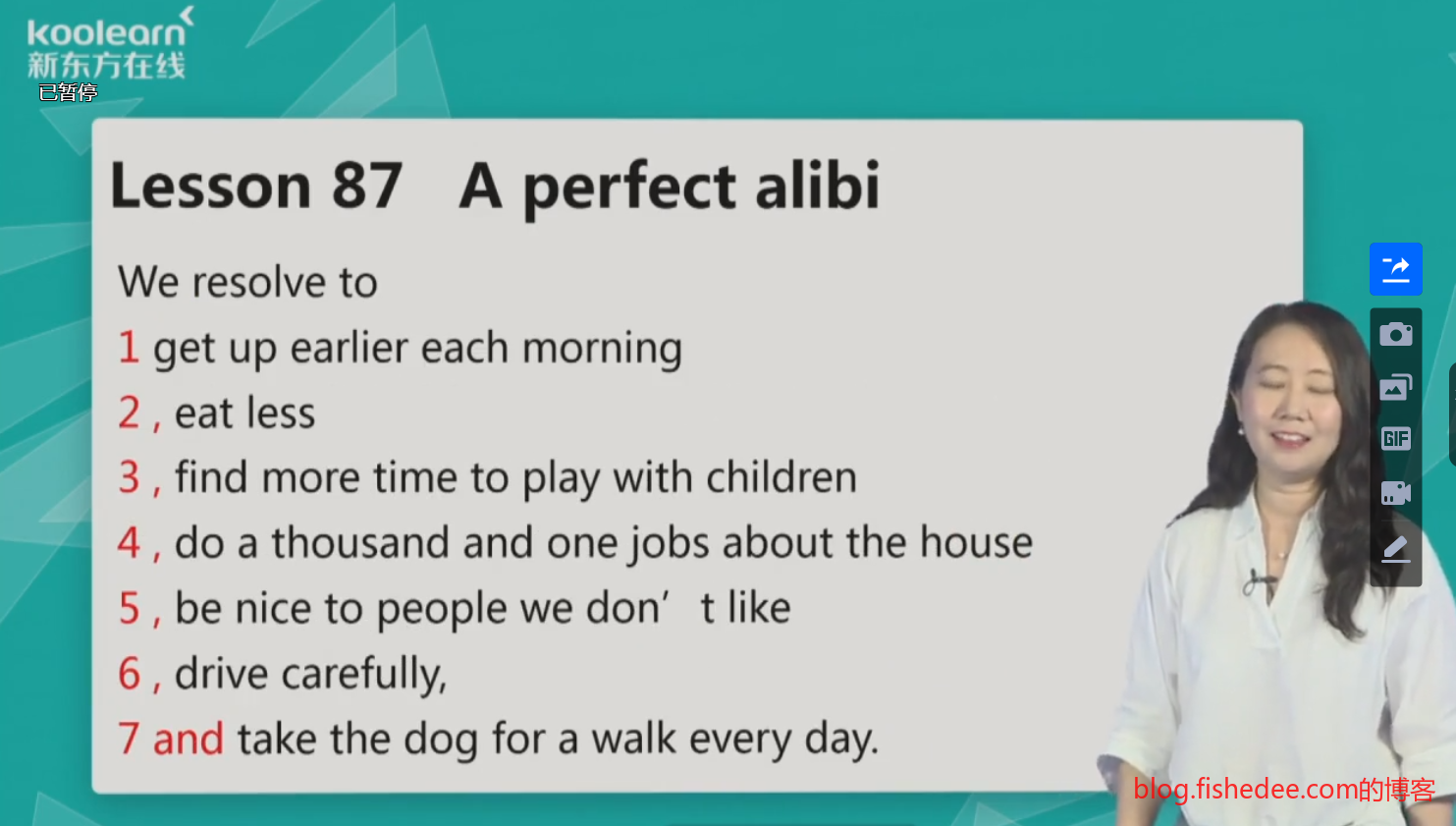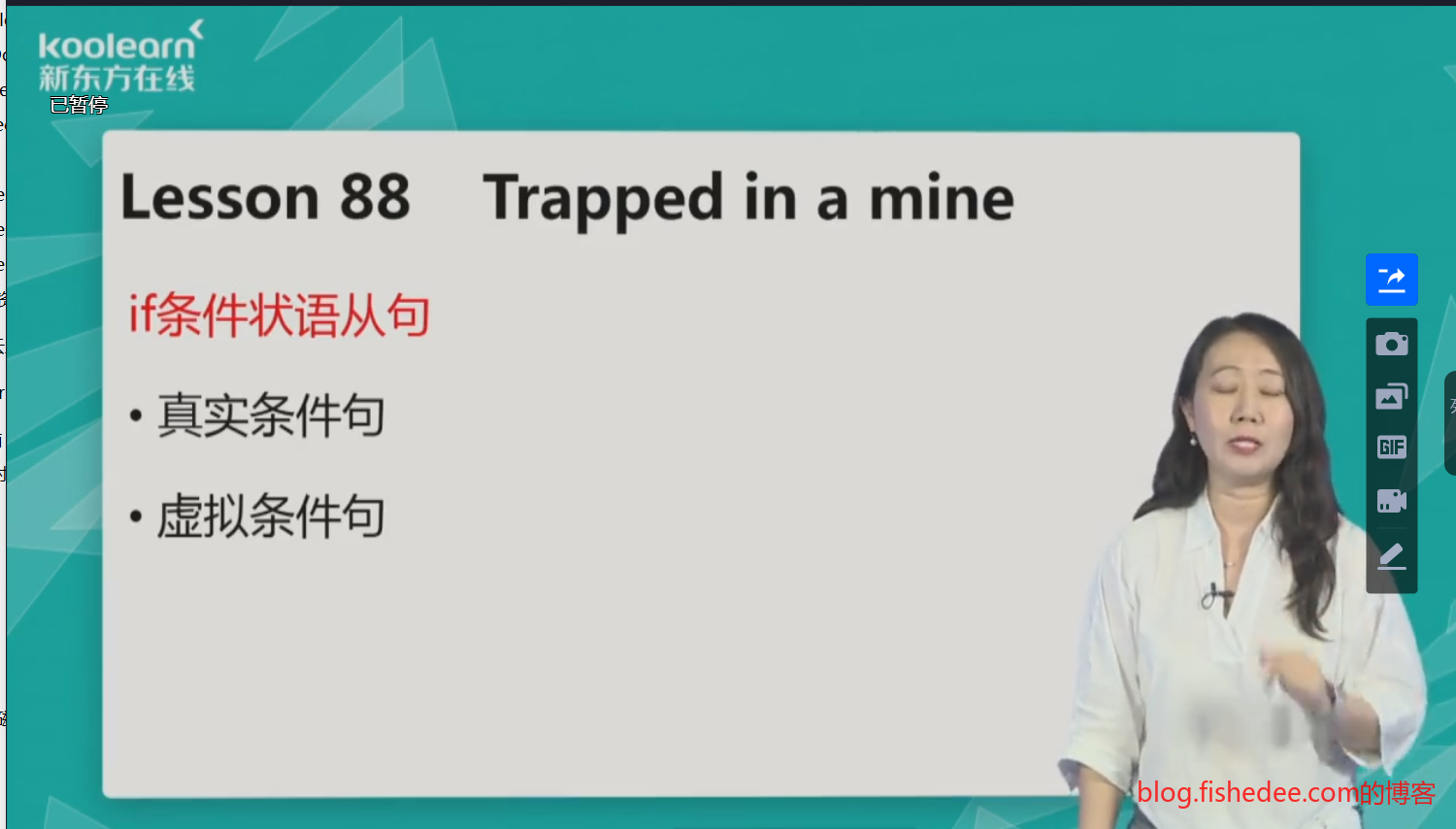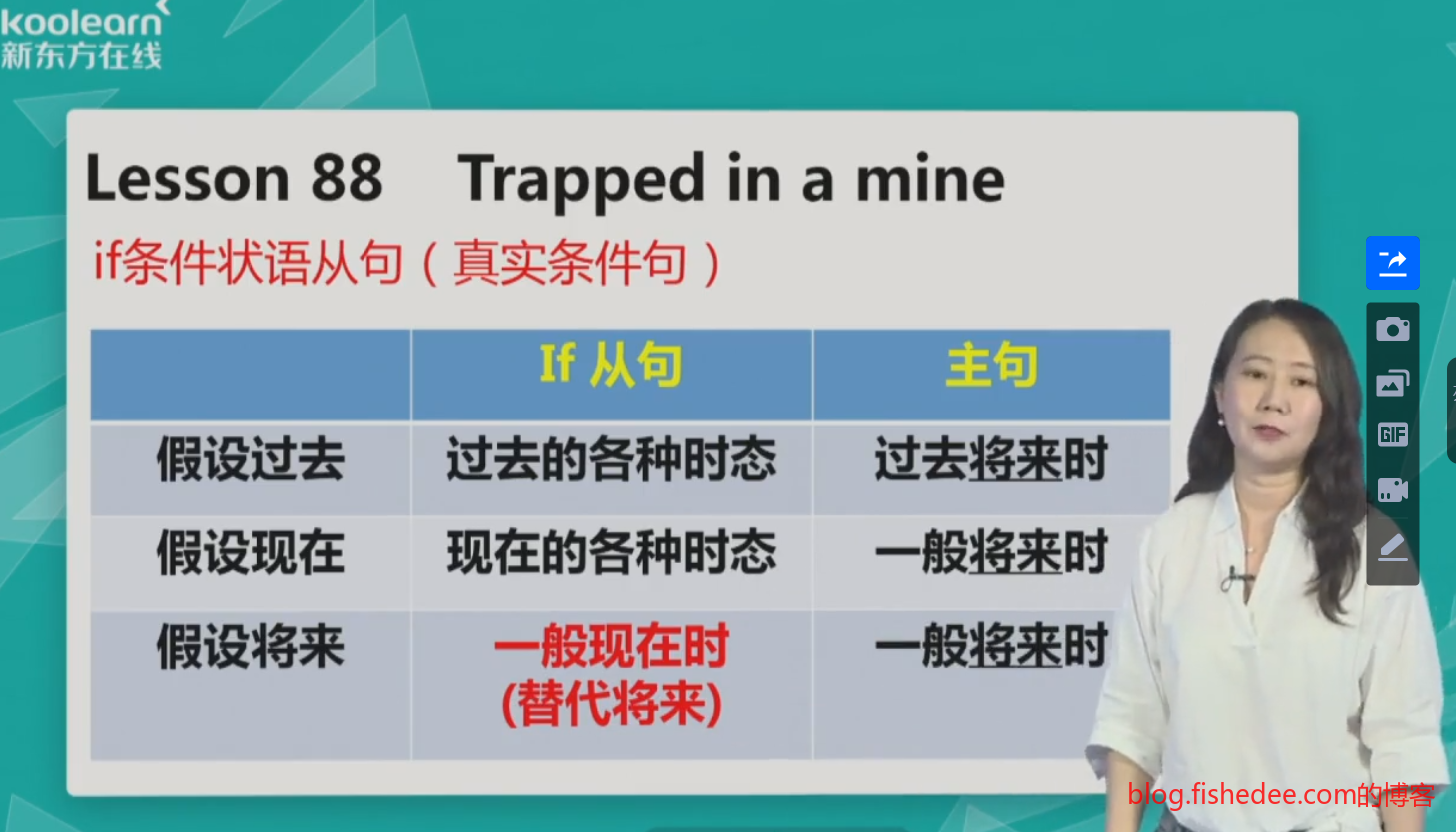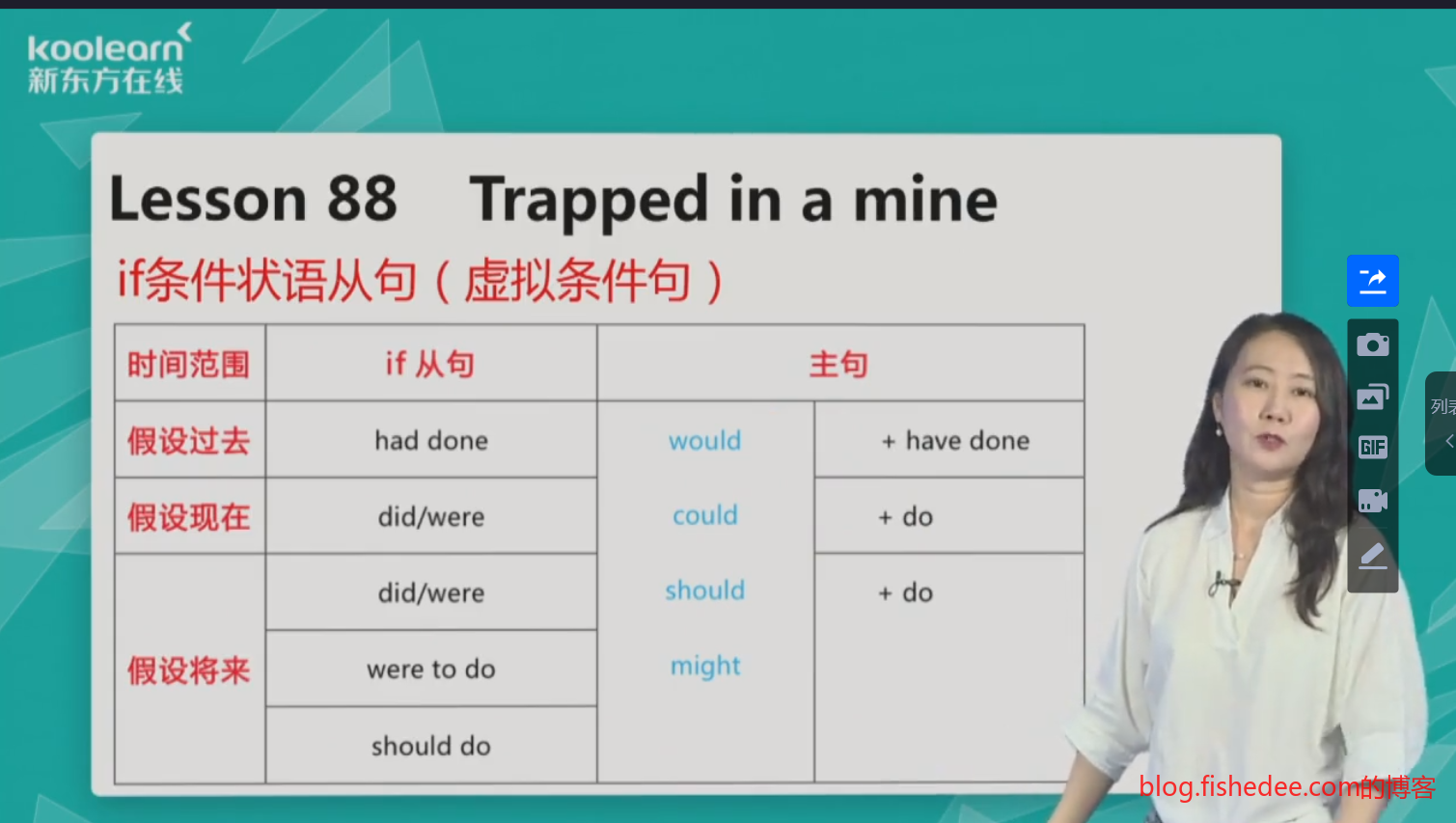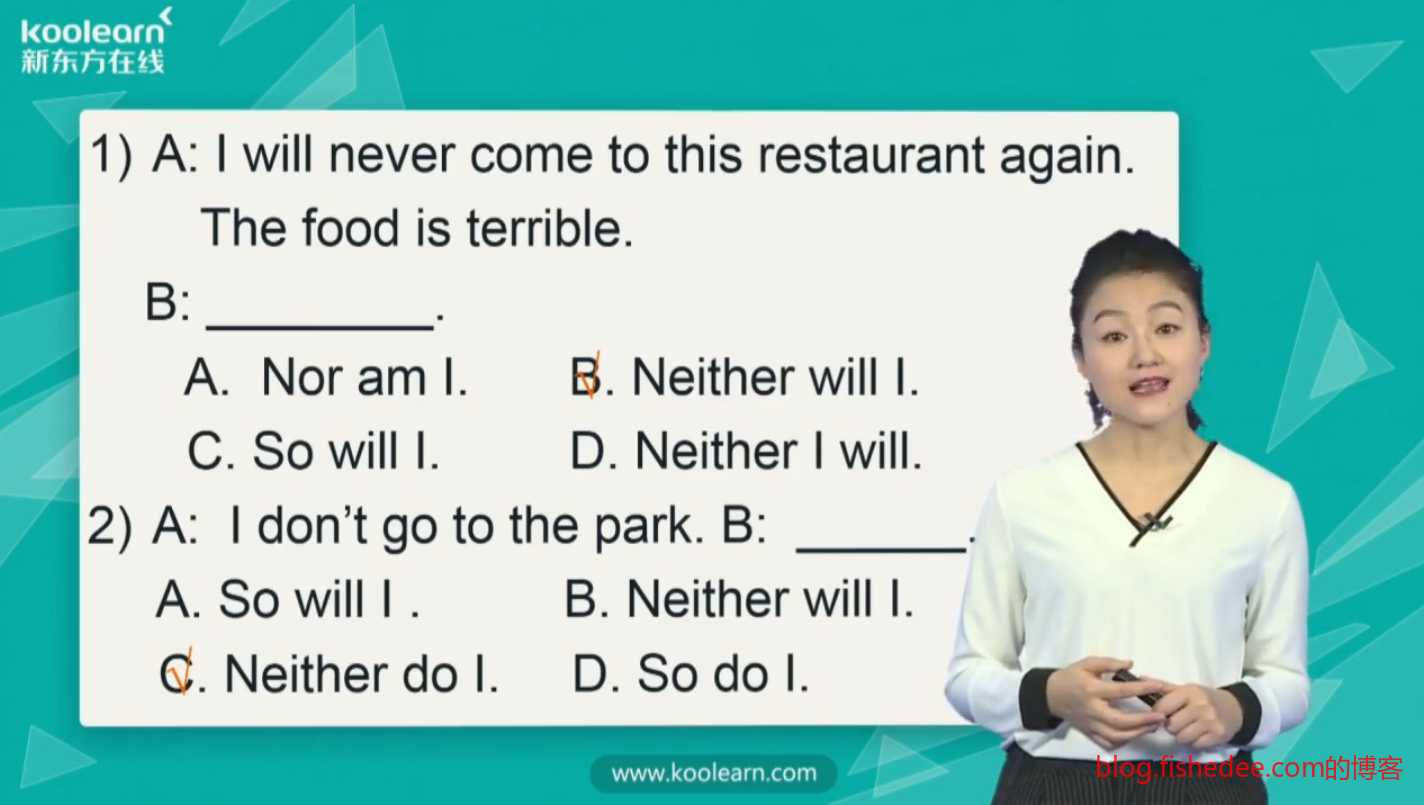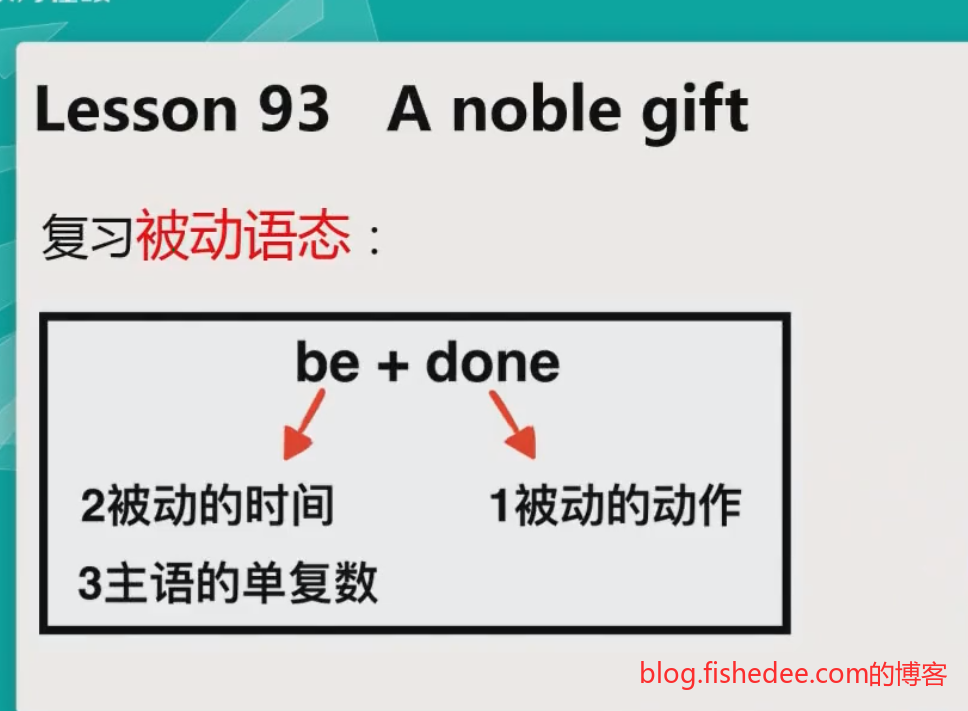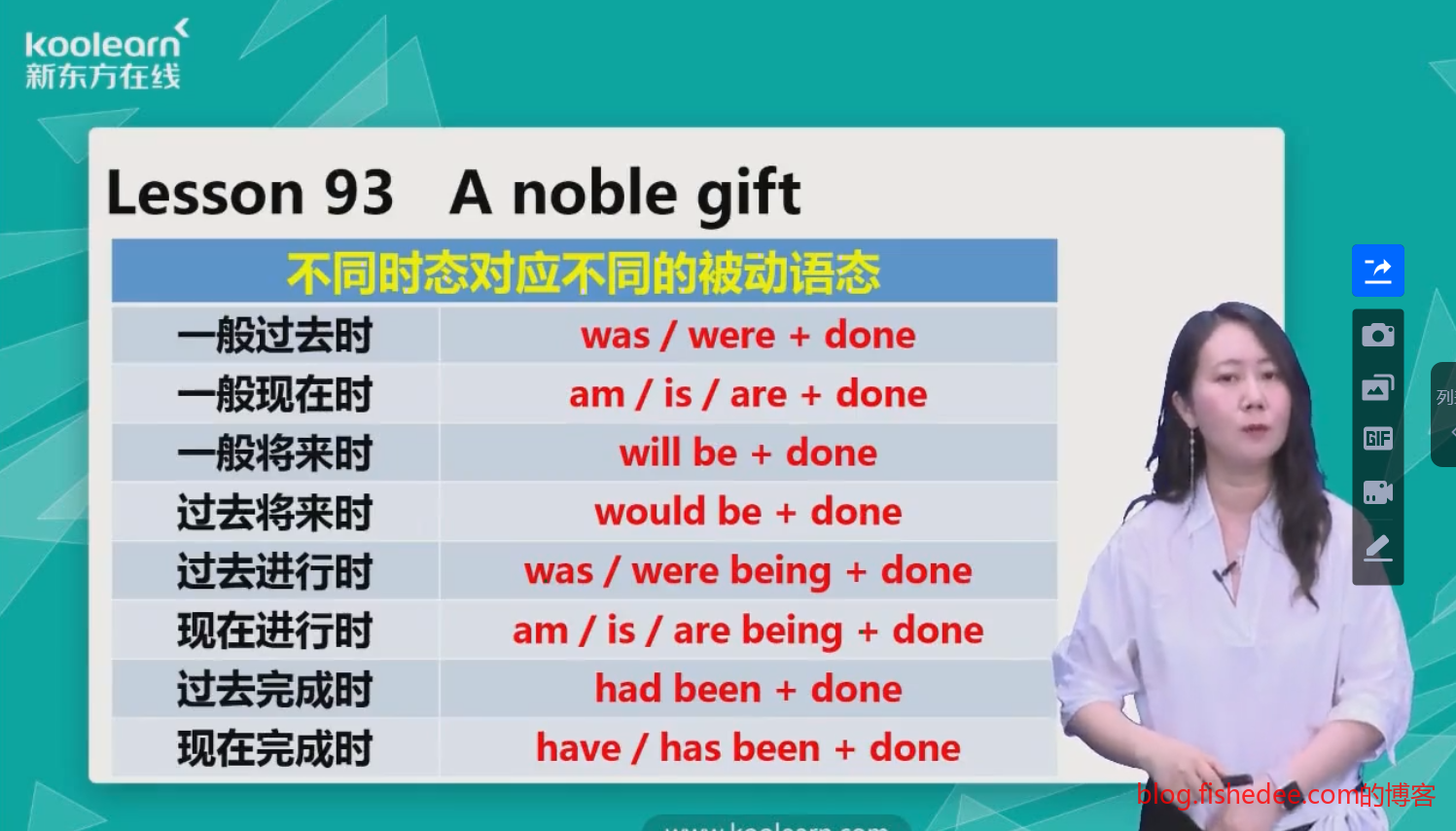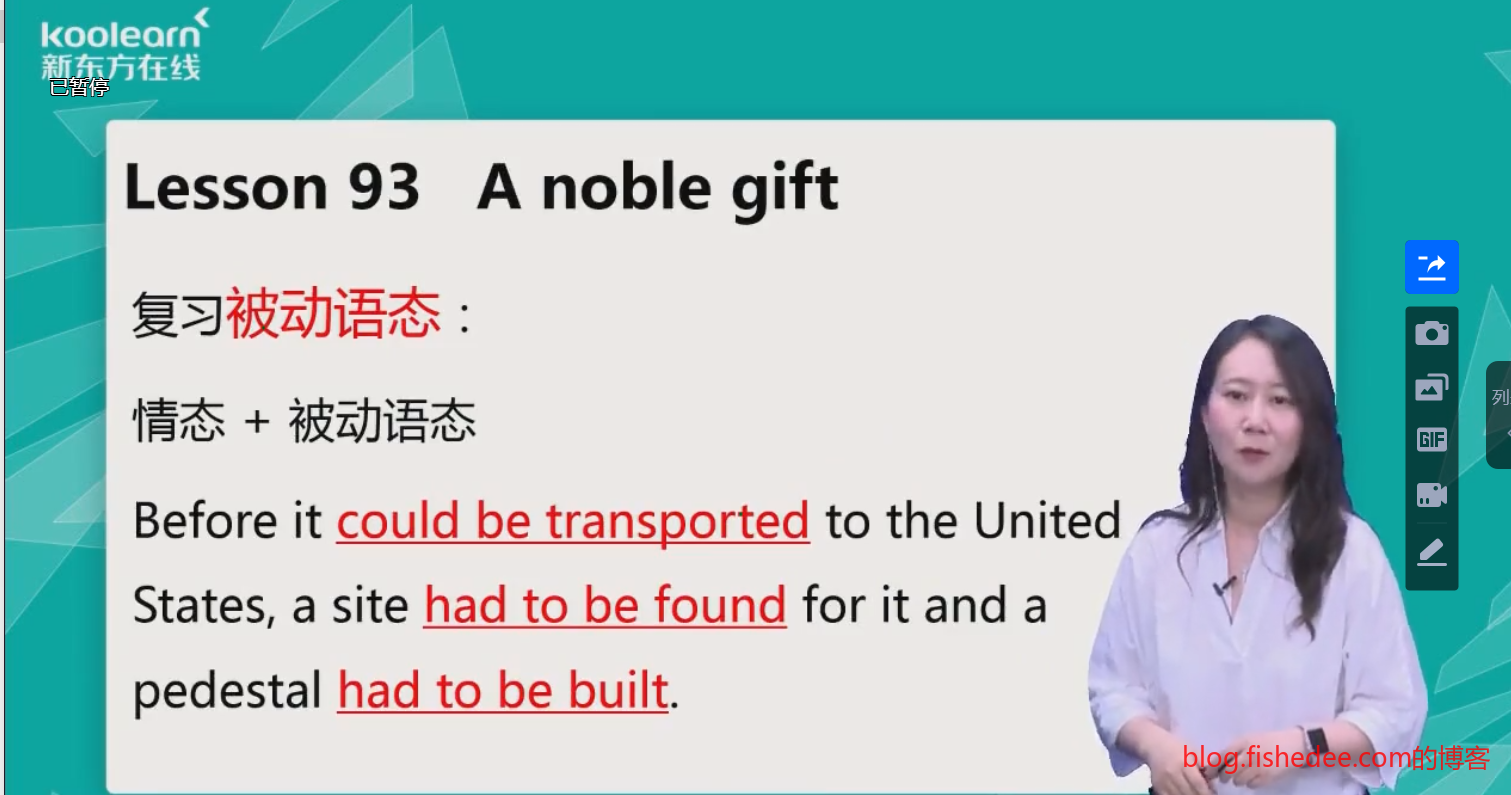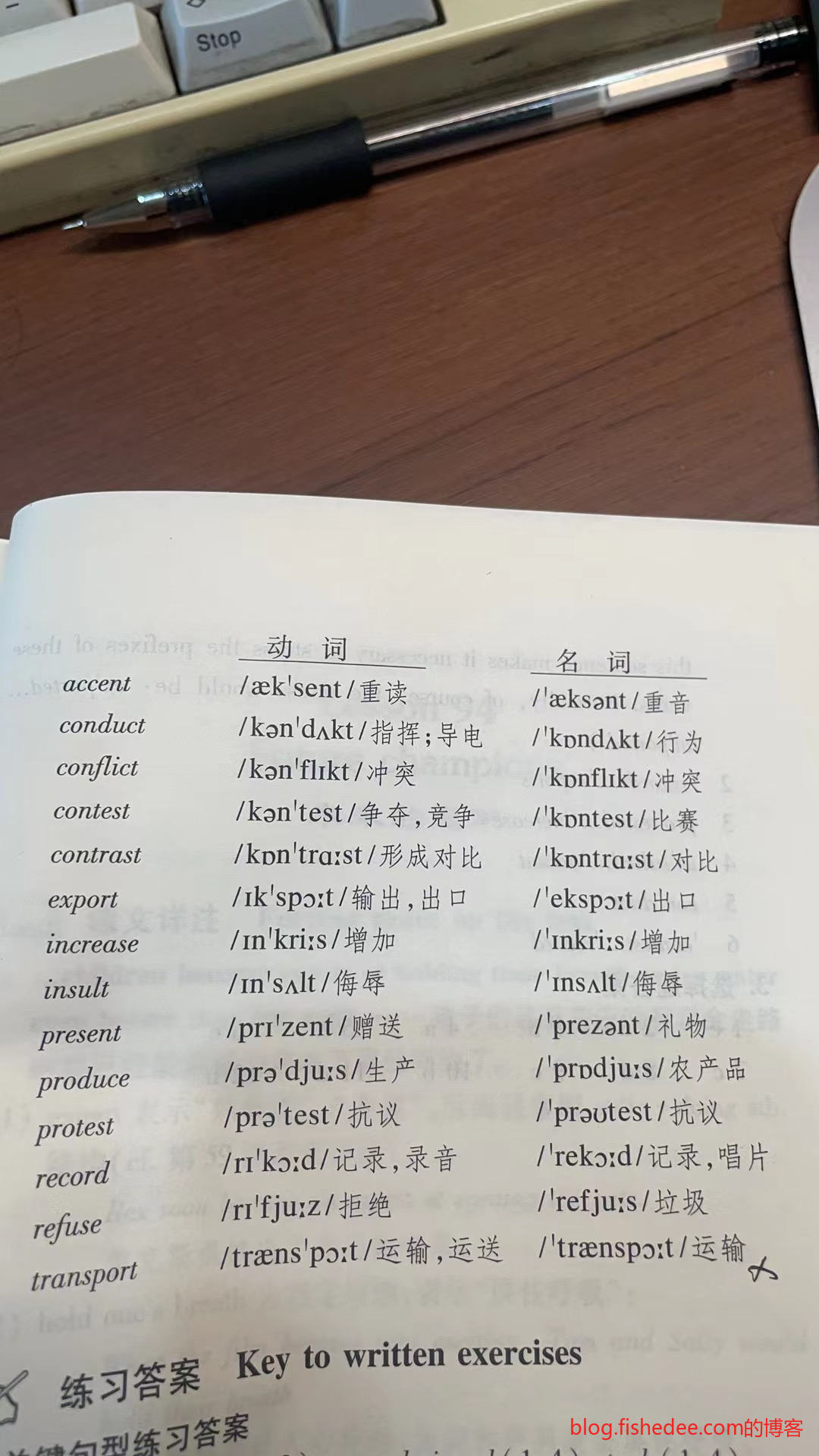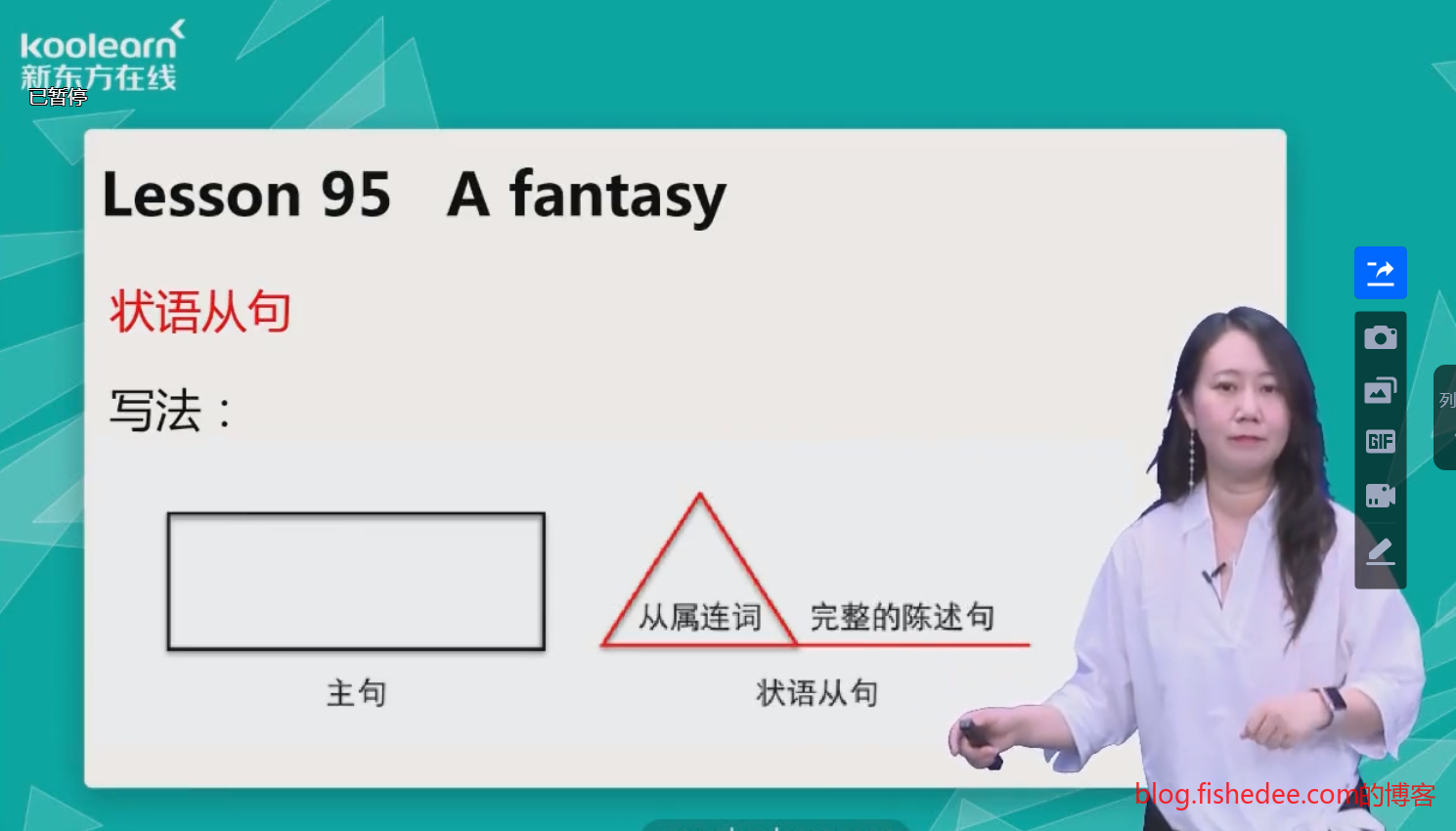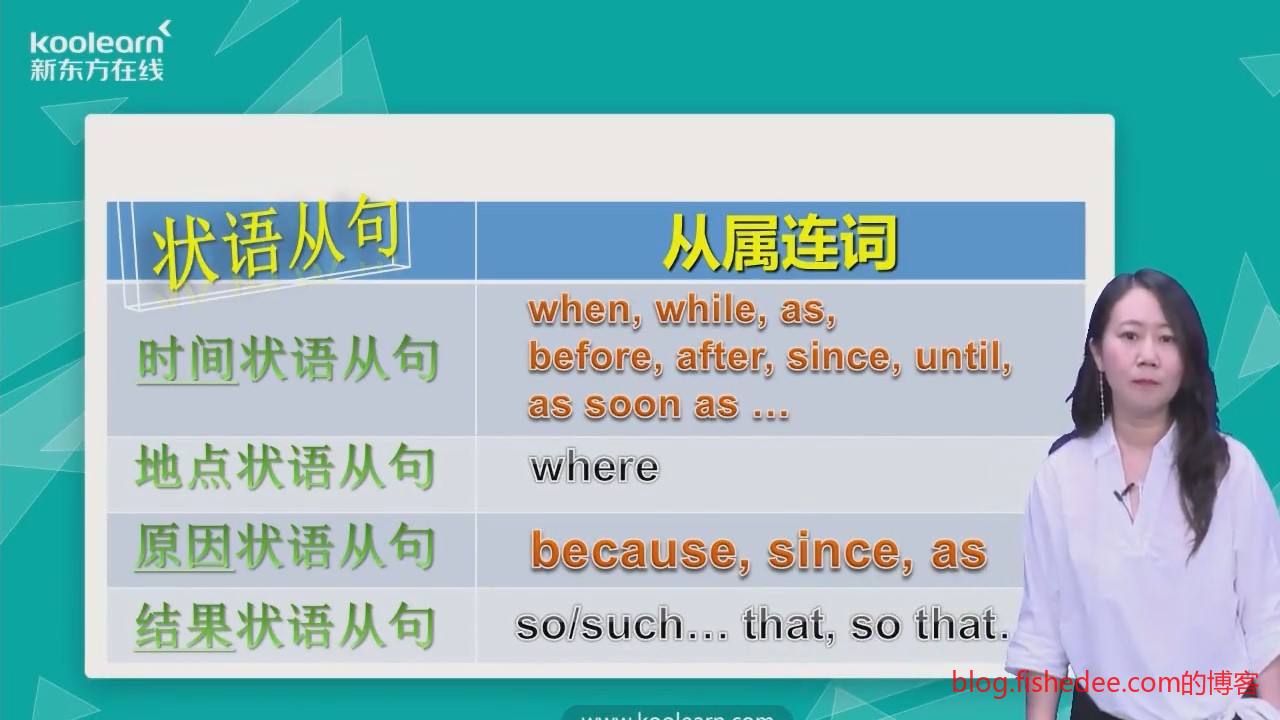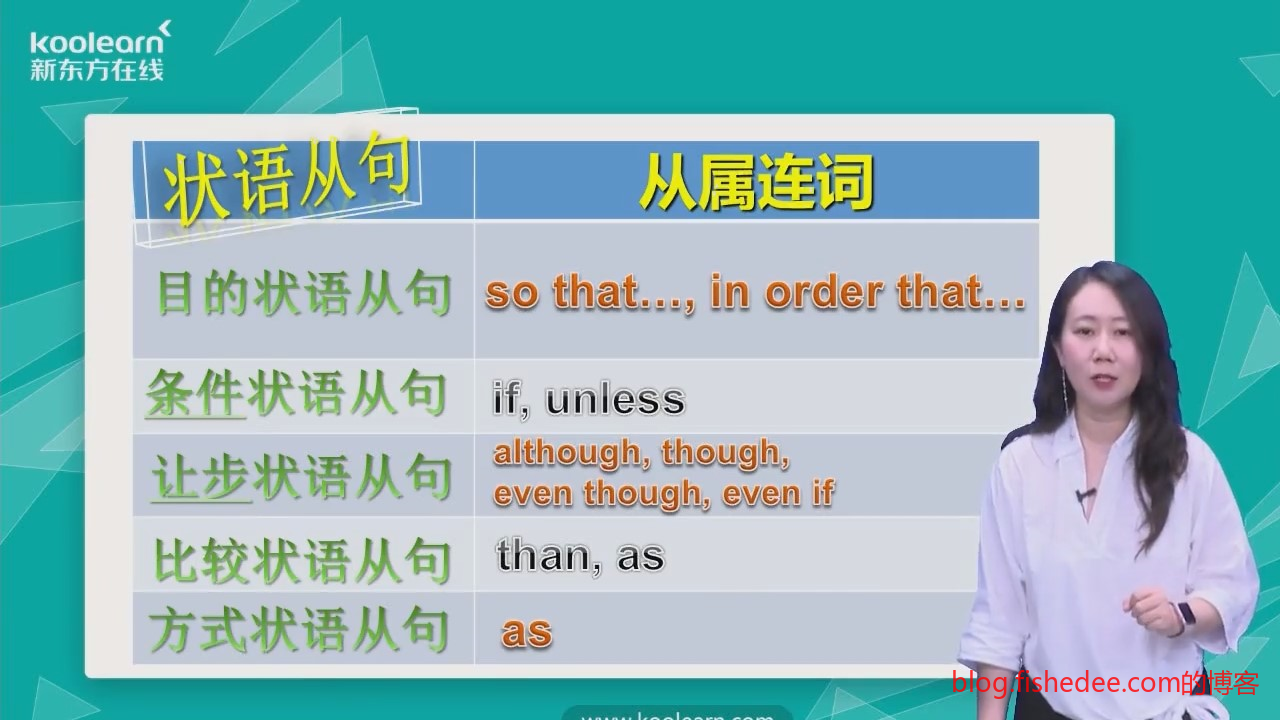0 概述
新概念二的内容是语法和词法的全面内容,教材内容主要参考新东方的内容,田静
0.1 官方方法
官方追求学习英语的目的是为了,运用英语。而运用英语的目标在于,听,说,写,读。
因此他采用的方法是:
- 带着问题听和读课文,听和读课文之前先了解课文的问题
- 交互式运用英语的口语和听力,使用教师提问题,和学生提问题(引导式)的方式,来在课堂中运用英语的口语。
- 重点句型和语法通过仿写来运用英语的阅读和写作,根据课文问题引导式写作出课文的摘要写作,并尽量使用课文的重点句型。最后,尝试复述故事。
0.2 新东方方法
0.2.1 宏观编排
新概念英语的编排:
- 一册,基础入门阶段,对于0基础的群众比较适合
- 二册,入门,讲解英语的所有基础知识
- 三册,提高,将英语的基础知识实际应用和组合起来
- 四册,高级,英语的赏析阶段
0.2.2 二册内容
英语的基础知识是所有提高能力的前提,也就是“听说读写译”的前提,而基础是什么,两点:
- 词汇
- 语法
那我们应该背诵所有的词汇和搭配,背诵语法知识点吗?不对,这样效率很低,而且知识点之间缺乏联系,关键在于:
- 词法,将单词划分为多个大类,了解每类词法的核心规则,通过以词法作为粗粒度来进行学习,从而避免以单词作为细粒度的死记硬背。
- 句法,语法的关键就两点,如何说好一件事,以及如何将多件事合并起来说成一件事。
词法+句法的学习方法,是突破词汇+语法的关键。
新概念二册总共分为4个单元,24课每单元,他们的特点是:
- 横向渐进
- 纵向加深
横向渐进体现在:
- 第一单元,如何说好一件事,简单句。
- 第二单元,如何将多件事合并起来说成一件事,并列句和复合句。
- 第三单元,巩固并且简化,并列句和复合句在部分情况下可以简化为非谓语动词
- 第四单元,融会贯通,串联知识点
纵向加深体现在:
- 形容词的比较级,第一单元讲了比较级和最高级,第二单元讲了平级,第三单元讲了比较级转换为最高级,难度逐步加深,但是都在讲同一个事情。
- 条件状语从句,第一单元讲了真实情况的条件状语从句,第二单元讲了虚拟情况的条件状语从句,难度逐步加深,但是都在讲同一个事情。
整个新概念英语的课文设计是科学完整的语法体系,是一本经典的英语教材。
0.2.3 学习方法
推荐的学习方式是:
- 先看生词的讲解
- 自学课文并寻找自己不太懂的结构和句子
- 看课文+语法的讲解
- 拓展和联系
注意,不要看完了全部讲解才看课文,这样就没意思了,缺少自省的过程。
要不要背诵课文:
- 熟读而且理解的情况下,能够背诵课文是一件自然而然的事情,如果背诵课文遇到了很大的困难,可能是理解词法和句法上出现了问题导致的。
- 最不可取的情况是,盲目背诵课文,而没有真正理解课文的知识点,那么,这种情况背诵课文没有意义。
- 关键依然在理解课文,熟读课文上。
0.2.4 学习方法2
Lesson 81,知识扩展
- 朗读课文,听读不分家。要想听力好,除了多听,还需要多读。读的方法是逐句模仿来朗读,听一句,然后模仿读一句。熟练以后,试着用影子跟读法。
- 背诵课文/复述课文,课文多背诵了才有语感
- 完形填空,每一课背后的完形填空的地方都是课文的重点,把答案盖住看能否做出来。
- 英汉互译,从汉语翻译为英文,然后与原文比较来学习仿写。
0.2.5 学习方法3
Lesson 94,五步阅读法
- 初读,不看生词,先猜词,在要求有限的时间内阅读
- 查读,将圈起来的生词查一遍,将生词归纳到生词本
- 精度,仔细分析句子结构和语法
- 复读,结合上下文,捋顺逻辑,看作者的表达方式
- 选读,将优秀的句子摘抄下来,进行仿写,吸收作为自己写作的基础。
0.3 我的方法
0.3.1 教材
- 先看课文生词,或者生词的讲解
- 来来回回盲听课文,尽量将每个单词都听清楚,听不清楚的地方做好记号,然后对照课文,将听力上的混淆点圈起来
- 看新东方的讲解,并做笔记
- 对照译文口头翻译英文,并熟读课文
- 听听力跟读课文,注意听力中停顿,重读,连读,弱读的地方
- 对照译文写课文
- 做习题,结束,习题是最省时间的一步
0.3.2 扩展
目标:
- 看原版书籍
- 无字幕无翻译听懂美剧和广播
- 能完成基础的口语表达,不追求演讲
- 不追求写作
参考方法:
方法论:
- 不背单词,单词缺乏语境难以理解和实际使用
- 不刻意学语法,新概念4册足够弥补中级别的语法知识了
- 透析阅读,坚持i+1的原著阅读,直奔主题更快锻炼技能。透是指海量阅读,分级依次向高级阅读,每页大概少于10个生词是最好的,这样既不会生词而不能理解内容,又能积累生词。生词均当天记录到“欧陆词典”或者“Vocabulary. com”,当天复习后,隔天能回忆的删掉,隔天不能回忆的继续保留。
- 坚持i+1的听力材料
- 英语学习的过程,是首先是有意识的外显知识积累,然后通过海量阅读,听写,交互口语来内隐知识,让语言不需要经过仔细思考就能脱口而出。6岁以下小孩可以直接跳过外显的部分,直接进入内隐学习。
分级原著书单如上
听力工具:每日英语听力
初级听力材料:
- 《赖世雄精准美国英语音标发音指南》
- 《American Pronunciation Workshop》
- 《The American Accent Course》
- 《Mastering the American Accent》
- 《American Accent Training》
中级听力材料:
- 《Peppa Pig》
- 《ESL Podcast》
- 《EnglishPod》
- 《狮子王》
- 《Friends》和《老友记》
高阶听力材料:
- 《TED》
- 《VOA常速》
- 《BBC》
- 《经济学人》
口语的关键在于:
- 精听,加强输入
- 倒迫输出,概述文章,英文复述当天事件
1 Lesson 1
1.1 单词
private[ˈpraɪvɪt],adj. 私人的(私密的,私立的)。privacy[ˈprɪvəsi],n. 隐私。注意,两者读音都是[praɪ]前缀,只是一个是[vite],另外一个是[vəsi]
- a private conversation
- a private school/car
反义词为,public[ˈpʌblɪk],adj. 公共的,公开的
theatre[ˈθɪətə(r)],n. 剧院,戏院
- go to the theatre
生气
- angry[ˈæŋɡri],adj. 生气的
- angrily[ˈæŋɡrəli],adv. 生气地
区分adj.与adv. 的一个例句为:
- The angry boy shouted angrily.
大声
- loud[laʊd],adj. 大声的
- loudly[ˈlaʊdli],adv. 大声地
粗鲁
- rude[ruːd],adj. 无礼的,粗鲁的
- rudely[ˈruːdli],adv. 无礼地,粗鲁地
attention[əˈtenʃ(ə)n],n. 注意。重点词汇。
- pay attention to sb./sth. 集中留意xxx,集中注意xx,We pay attention to the new words.
- not pay any attention. 没有理会,They did not pay any attention.
- have your attention,请注意这边,较礼貌的说法,例句,May I have your attention, please?
- Attention, please,请注意这边,较直接的说法
- attract/catch/draw one’s attention. 吸引某人的注意
bear[beə(r)],v. 容忍。n. 熊.
- vt. I could not bear it.
1.2 语法
1.2.1 简单陈述句
简单陈述句的含义:
- 陈述句,就是指只有陈述的句子,句型用处最多的,是疑问句,祈使句,感叹句等其他句型的基础。
- 简单句,就是指只描述一件事的句子,它是长难句的基础。
因此,我们可以看到,简单陈述句是最为基础的句子结构,它是其他高级句型的基础。
简单陈述句的学习要点:
- 核心,
- 语序
- 结构的变化,
- 谓语动词的变化
第一点,简单陈述句的核心,一主一谓
- Birds fly.
- We walk.
- I have a seat.
- The play was interesting.
第二点,简单陈述句的语序,主谓宾
中文语序
- 你吃苹果。对的
- 苹果吃你。错的
- 你苹果吃。错的
了解核心以后,还需要了解语序,才能组成一个正确的句子,例如在中文中,就只有第一个句子是对的。但是,在日语中,却只有第三个句子是对的。
英文的语序总体与中文语序是相似的,但依然有区别的地方:
- The policeman arrested the thief. 对的
- The thief arrested the policeman.错的
动词的分类:
- 连系动词,She is beautiful
- 情态动词,You must do it.
- 实义动词,I wash my hands.
- 助动词,She is running
第三点,简单陈述句的结构变化
- Boys talk.
- Boys were talking.
- Lovely bokys were talking loudly.
- Yesterday after class lovely boys were talking loudly about the exam in the classroom.
因此,我们需要了解结构,包括有,核心,时态,形容词,副词,介词短语表状语(时间,地点目的等等)
第四点,简单陈述句的谓语动词的变化,三态一否
- 时态
- 语态
- 情态
- 否定。
例如:
- They were talking loudly. 时态变化,谓语动词,were talking。
- It was bought by my grandfather. 语态变化,被动语态,谓语动词,was bought
- I could not hear the actors. 情态变化,情态动词,谓语动词,could not hear
- I did not enjoy it. 否定变化,谓语动词,did not enjoy
要注意的是,我们说的谓语动词,是指一个整体,而没有说仅仅一个单词,就像以上的例子一样
1.2.2 连词成句
the film I enjoyed yesterday.
I enjoyed the film yesterday.
或者,Yesterday I enjoyed the film.
games played yesterday in their room the children quietly.
The children played games in their room quietly yesterday.
或者The children played games quietly in their room yesterday.
1.2.3 简单陈述句的分类
分类:
- 主谓,They meet.
- 主谓宾,I love you.
- 主谓双宾,I tell you a secret. 第3课详细讲解
- 主谓宾宾补,I find you interesting. 第4课详细讲解
- 主系表,You are beautiful.
细分:
- 主谓,They meet. 动词是vi. 不及物
- 主谓宾,I love you. 动词是vt. 及物
动词是什么类型,决定了是什么句型(主谓还是主谓宾)。而动词是什么类型,由动词自身的意思来决定。例如:
- 游泳,swim,没啥动词承受者,所以是vi. I swim.
- 打,beat,显然需要有动词的承受者,所以是vt. I beat him.
主系表的来源:
你很漂亮。在中文中,主语“我”,可以直接加“很漂亮”,中间是不需要动词的。但是英文不行,因为简单陈述句的核心必须是“一主一谓”,“我”和“很漂亮”之间缺少了谓语,是无法成为句子的,因此:
- I very pretty. 错误!
- I am very pretty. 正确!
其中的be动词,am就成为了连系动词,它的意义在连系主语,和表语,作谓语成分,没有具体的实际意思。
系动词的情况有:
- be动词(单独出现),例如,be doing(进行时),be done(被动语态),be going to(将来时)里面的be都不算是系动词,因为它们不是单独出现的。
- get,become,turn,go,grow,这几个表达“变得”语义的时候。例如,He go to school里面的go表达的是“到”的含义,这个时候它不是连系动词。Something go wrong里面的go表达的是“变得”的含义,这个时候它是连系动词。
- 感官动词,look/sound/smell/taste/feel,表达看起来/听起来/闻起来/品尝起来/感觉起来的时候,它是连系动词。
- 其他
例句:
- The play was very interesting.
- 主系表结构,be动词单独出现
- They were talking loudly.
- 不是主系表结构,be动词非单独出现,were talking才是谓语
- I got very angry.
- 主系表结构,got是“变得”的意思。
- China won the match and the crowd went wild!
- 主系表结构,go是“变得”的意思
- Her face went red.
- 主系表结构,她的脸变红了,go是“变得”的意思
其他的系动词
- lay,处于…状态,Snow lay thick on the ground. Lesson 75
- prove,显示出,However, rescure operatios are proving difficult. Lesson 88
1.3 课文
1.3.1 重点句型
要点句子:
I got very angry.
got翻译为,变得。相对于was,强调了变化的过程。
I turn round. = I turn around.
1.3.2 none of
- It’s none of your business.
- none of sth. = no sth.
none of的例子积累
None of the money is mine.
这些钱中没有一分是我的。
None of the students knows of the exam.
学生们谁都不知道考试的事
It’s none of you business.
It’s no your business.
It isn’t your business.
I found none.
I found none of the students.
I found no one.
I didn’t find anyone.
I haven’t got any chocolate.
I don’t have any chocolate.
I’ve got no chocolate.
I’ve got none of the chocolate.
I’ve got none.
There aren’t any books on that shelf.
There are no books on that shelf.
There are none of the books on that shelf.
There are none on that shelf.
1.4 扩展
1.4.1 词性的重要性
在中文中,词性是弱化的。在英文中,词性是强化的,每个词语都有自己的词性,不能乱用。
- 这是一次私密的对话
- 他们之间用英语来对话。
“对话”这个词,在中文里面,既可以作名词,也可以作动词。
但是,在英语中,
- conversation[ˌkɒnvəˈseɪʃ(ə)n],n. 名词
- converse[kənˈvɜːs],v. 动词
“对话”这个意思,在不同的词性下有不同的单词。组句为:
- It is a private conversation.
- They converse with each other in English
1.5 积累
1.5.1 不规则变化的动词
不规则变化的动词,变化形式有:
- 原形
- 过去式,只有一般过去时的时候使用
- 过去分词,在完成时,被动语态,非谓语动词都有使用
- 现在分词,在进行时,非谓语动词都有使用
第一组,过去式不变:
- cut[kʌt] - cut - cut - cutting,切,割
- let[let] - let - let - [letting],让
- put[pʊt] - put - put ,放
- cost[kɒst] - cost - cost,花费,值
- hurt[hɜːt] - hurt - hurt,使…伤痛
- read[riːd] - read - read,读。注意,过去式和过去分词的读音不同了,读为[red]
- set[set] - set - set - setting,落下,安置
- burst[bɜːst] - burst[bɜːst] - burst[bɜːst],爆裂
第二组,过去式是ew结尾
- fly[flaɪ] - flew[fluː] - flown[fləʊn],飞
- blow[bləʊ] - blew[bluː] - blown[bləʊn],吹
- draw[drɔː] - drew[druː] - drawn[drɔːn],画
- grow[ɡrəʊ] - grew[ɡruː] - grown[ɡrəʊn],生长
- know[nəʊ] - knew[njuː] - known[nəʊn],知道
- throw[θrəʊ] - threw[θruː] - thrown[θrəʊn],扔
第三组,过去式是变i为a的
- begin[bɪˈɡɪn] - began[bɪˈɡæn] - begun[bɪˈɡʌn],开始
- drink[drɪŋk] - drank[dræŋk] - drunk[drʌŋk],喝
- sing[sɪŋ] - sang[] - sung[],唱
- swim[swɪm] - swam[swæm] - swum[swʌm] - [swimming],游泳
- ring[rɪŋ] - rang[] - rung[],打电话
- forbid[fəˈbɪd] - forbad[fəˈbæd] - forbidden[fəˈbɪd(ə)n] - forbidding[fəˈbɪdɪŋ],禁止
第四组,过去式是t结尾的
- feel[fiːl] - felt[felt] - felt[felt],感到
- keep[kiːp] - kept[kept] - kept[kept],保持
- leave[liːv] - left[left] - left[left] - [leaving],离开
- sleep[sliːp] - slept[slept] - slept[slept],睡
- sweep[swiːp] - swept[swept] - swept[swept],扫
- send[send] - sent[sent] - sent[sent]
- spoil[spɔɪl] - spoiled[spɔɪld]/spoilt[spɔɪlt] - [spoiled]/spoilt[spɔɪlt]
- build[bɪld] - built[bɪlt] - built[bɪlt],建造
- spend[spend] - spent[spent] - [spent],花费
- burn[bɜːn] - burnt[bɜːnt] - burnt[bɜːnt],燃烧
- creep[kriːp] - crept[krept] - crept[krept],爬行
- smell[smel] - smelled[smeld]/smelt[smelt] - smelled[smeld]/smelt[smelt],闻起来
- sleep[sliːp] - slept[slept] - slept[slept],睡眠
- leap[liːp] - leaped[liːpt]/leapt[lept] - leaped[liːpt]/leapt[lept],跳跃
- rebuild[ˌriːˈbɪld] - rebuilt[ˌriːˈbɪlt] - rebuilt[ˌriːˈbɪlt],重建
第五组,过去式是ht结尾
- catch[kætʃ] - caught[kɔːt] - caught[kɔːt],抓
- teach[tiːtʃ] - taught[tɔːt] - taught[tɔːt],教
- buy[baɪ] - bought[bɔːt] - bought[bɔːt]
- think[θɪŋk] - thought[θɔːt] - thought[θɔːt]
第六组,过去式是变e或变i
- meet[miːt] - met[] - met[],遇见
- get[ɡet] - got[ɡɒt] - got[ɡɒt]/gotten[ˈɡɒtn] - getting[ˈɡetɪŋ],得到
- sit[sɪt] - sat[sæt] - sat[sæt] - sitting[ˈsɪtɪŋ],坐
- win[wɪn] - won[wʌn] - won[wʌn] - [winning],赢
- hold[həʊld] - held[held] - held[held],举行
第七组,过去式是d结尾的
- make[meɪk] - made[meɪd] - made[meɪd] - [making],制造
- hear[hɪə(r)] - heard[hɜːd] - [heard],听见
第八组,其他
- go[ɡəʊ] - went[went] - gone[ɡɒn]
- have[hæv; həv] - had[hæd; həd] - had[hæd; həd] - having[ˈhævɪŋ]
- do[duː; də] - did[dɪd] - done[dʌn]
- be[biː; bi] - was[wɒz; wəz]/were[wɜː(r); wə(r)] - been[biːn]
- pay[peɪ] - paid[peɪd] - paid[peɪd]
- bear[beə(r)] - bore[bɔː(r)] - borne[bɔːn]
- say[seɪ] - said[sed] - said[sed]
- come[kʌm] - came[keɪm] - come[kʌm] - coming[ˈkʌmɪŋ]
- write[raɪt] - wrote[rəʊt] - written[ˈrɪt(ə)n] - writing[ˈraɪtɪŋ]
- find[faɪnd] - found[faʊnd] - found[faʊnd]
- stand[stænd] - stood[stʊd] - stood[stʊd]
- give[ɡɪv] - gave[ɡeɪv] - given[ˈɡɪv(ə)n] - giving[ˈɡɪvɪŋ]
- eat[iːt] - ate[et; eɪt] - eaten[ˈiːt(ə)n]
- tell[tel] - told[təʊld] - told[təʊld]
- try[traɪ] - tried[traɪd] - tried[traɪd] - trying[ˈtraɪɪŋ]
- steal[stiːl] - stole[stəʊl] - stolen[ˈstəʊlən]
- take[teɪk] - took[tʊk] - taken[ˈteɪkən] - taking[ˈteɪkɪŋ]
- strike[straɪk] - struck[strʌk] - struck[strʌk]
- break[breɪk] - broke[brəʊk] - broken[ˈbrəʊkən]
- drive[draɪv] - drove[drəʊv] - driven[ˈdrɪvn] - driving[ˈdraɪvɪŋ]
- speak[spiːk] - spoke[spəʊk] - spoken[ˈspəʊkən]
- learn[lɜːn] - learned[ˈlɜːnɪd]/learnt[lɜːnt] - learned[ˈlɜːnɪd]/learnt[lɜːnt]
- sell[sel] - sold[səʊld] - sold[səʊld]
- dream[driːm] - dreamed[driːmd]/dreamt[dremt] - dreamed[driːmd]/dreamt[dremt]
- travel[ˈtræv(ə)l] - traveled[ˈtræv(ə)ld]/travelled[ˈtrævld] - traveled[ˈtræv(ə)ld]/travelled[ˈtrævld] - traveling[ˈtræv(ə)lɪŋ]/travelling[ˈtrævəlɪŋ]
- lose[luːz] - lost[lɒst] - lost[lɒst] - losing[ˈluːzɪŋ]
- hang[hæŋ] - hung[hʌŋ] - hung[hʌŋ],悬挂,吊。
- hang[hæŋ] - hanged[hæŋd] - hanged[hæŋd],绞死。
- wake[weɪk] - woke[wəʊk] - woken[ˈwəʊkən],唤醒
- wind[wɪnd] - wound[wuːnd] - wound[wuːnd],蜿蜒
- fall[fɔːl] - fell[fel] - fallen[ˈfɔːlən],落
- run[rʌn] - ran[ræn] - run[rʌn] - running[ˈrʌnɪŋ],跑步
- become[bɪˈkʌm] - became[bɪˈkeɪm] - become[bɪˈkʌm]
- choose[tʃuːz] - chose[] - chosen[ˈtʃəʊzn],选择
- regret[rɪˈɡret] - regretted[] - regretted[] - regretting[],后悔
- wear[weə(r)] - wore[wɔː(r)] - worn[wɔːn],穿着
- rise[raɪz] - rose[rəʊz] - risen[ˈrɪz(ə)n] - rising[ˈraɪzɪŋ],升起
- hide[haɪd] - hid[hɪd] - hidden[ˈhɪd(ə)n] - hiding[ˈhaɪdɪŋ],藏匿
- shake[ʃeɪk] - shook[ʃʊk] - shaken[ˈʃeɪkən] - shaking[ˈʃeɪkɪŋ],摇晃
- forget[fəˈɡet] - forgot[fəˈɡɒt] - forgotten[fəˈɡɒtn] - forgetting[],忘记
- lead[li:d; led] - led[led] - led[led],带路
- dig[] - dug[dʌɡ] - dug[dʌɡ] - digging[ˈdɪɡɪŋ],挖
- speed[spiːd] - sped[sped] - [sped],飞速
- seek[siːk] - sought[sɔːt] - sought[sɔːt],搜寻
- fight[faɪt] - fought[fɔːt] - fought[fɔːt],斗争
- ride[raɪd] - rode[] - ridden[ˈrɪdn] - riding[ˈraɪdɪŋ],骑马,骑单车
- stick[stɪk] - stuck[stʌk] - stuck[stʌk],粘
- show[ʃəʊ] - showed[ʃəʊd] - showed[ʃəʊd]/shown[ʃəʊn],显示,表明,出示
- light[laɪt] - lighted[ˈlaɪtɪd]/[lit] - lighted[ˈlaɪtɪd]/lit[lɪt],照亮,点燃
双写:
- nod[nɒd] - nodded[] - nodded[] - nodding[ˈnɒdɪŋ],点头
- wrap[ræp] - wrapped[ræpt] - wrapped[ræpt] - wrapping[ˈræpɪŋ],包裹
- drop[drɒp] - dropped[drɒpt] - dropped[drɒpt] - dropping[ˈdrɒpɪŋ],扔,丢
- prefer[prɪˈfɜː(r)] - preferred[prɪˈfɜːd] - preferred[prɪˈfɜːd] - preferring[],偏爱
- grab[ɡræb] - grabbed[ɡræbd] - grabbed[ɡræbd] - grabbing[],抓取
1.5.2 说的说法
说的说法有:
speak[spiːk],v. 讲话,说话。过去式为spoke。意思有,说话的能力,或者语言。短语有speak to sb./speak to sb. about sth.
- 这孩子很小,还不会说话。
- The baby is too young, he can’t speak。强调的是说话的能力,用speak
- 我会说法语
- I can speak French。强调的是说话的语言,用speak
- 她正在打新,不能和你讲话
- She is typing letters. She can’t speak to you now!。强调的是说话的能力,用speak
- The doctor refused to speak to him about his operation.
talk[tɔːk],v. 谈话。强调人与人之间互相交谈,短语有talk about sth./talk to sb.
- 他和你说了什么?
- They are talking and laughing. 强调人与人之间的谈话,用talk
- 他们有说有笑
- The woman will talk for hours about nothing.强调人与人之间的谈话,用talk
- 那个女人就会哇啦哇啦一连胡说上几个小时
- I don’t know what you are talking about. FIXME,为什么不用say
- 我不知道你在说什么
- I don’t know what you are talking about.
- Don’t talk to me like that!
- Don’t talk to strangers.
say[seɪ],v. 说话的具体内容。过去式为said。短语有say to sb. / say sth. to sb./say sth. 但是没有say to sb. sth. 搭配有say something/anything/nothing/so/no more/goodbye/a good word/prayer
- 他说这是对的
- He said,“It’s right”。强调的是说话的内容,用say
- What did he say to you. 强调的是说话的内容,用say
- 学会说话
- To lean how to say. 强调的是说话的内容,用say
- 那好吧,那请让他一会给我打过来好吗?
- What did your boss say to him? 强调的是说话的内容,用say
- 你的老板是怎么对他说的?
- He said good-bye to me yesterday.强调的是说话的内容,用say
- 他昨天向我道别了
- I regretted saying it almost at once. Lesson 41
tell[tel],v. 说话的概要内容,让某人做某事,分辨。短语有tell sb. /tell sb. sth(way/story/it)/tell sb. about sth./ tell sb. to do sth./tell a story. 搭配有tell story/secret/truth/lies
- OK, tell him to call me later. 强调的是让某人做某事,用tell sb. to do sth.
- 天知地知,你知我知
- Just between you and me。Don’t tell others。强调的是说话的对象。用tell sb.
- 你能告诉我到国王街的路吗?
- Can you tell me the way to King Street. 强调的是说话的对象。用tell sb. sth.
- 他昨天告诉了我那个故事
- He told me that story yesterday. 强调的是说话的对象。用tell sb. sth.
- He told me about the man yesterday. 强调的是说话的对象。用tell sb. about sth.一般about后面的不是story,不是way,不是it,而是模糊的关于某物的事情。
另外,只有It’s what he said to me. 和It’s what he told me. 没有,It’s what he told to me.FIXME. Lesson 47的例题5
在67.4.1有扩展
2 Lesson 2
2.1 单词
until[ʌnˈtɪl],prep. 直到
- until lunchtime. 直到午饭时候
- until now. 直到现在
- until recently. 直到最近
- until the last moment. 直到最后一刻
注意,until不是现在完成时的时间状语,例如:
- I sometimes stay in bed until lunchtime.
应该将until xxx看成一个时刻,就像at xxx是一样的,它只是可以跟名词,而不是跟数词而已。
outside[ˌaʊtˈsaɪd],adv. 外面
- inside
- upside
- upside down,上下翻滚
ring[rɪŋ],v. (铃,电话等)响,n. 圈,环
- aunt[ɑːnt],n. 阿姨。和妈妈同一辈,但又不是妈妈的女性亲戚。
- uncle[ˈʌŋk(ə)l],n. 叔叔。和爸爸同一辈,但又不是爸爸的男性亲戚。
repeat[rɪˈpiːt],v. 重复
-re前缀的单词有:
- retell[ˌriːˈtel],复述
- rewrite[ˈriːraɪt],重写
- rediscover[ˌriːdɪˈskʌvə(r)],重新发现
- rebroadcast[ˌriːˈbrɔːdkɑːst],重播
再说一次,的说法有:
- Repeat,错误,这样说太粗鲁了
- Pardon?
- I beg your Pardon?
- Sorry?
- Excuse me?
- Say it again?
2.2 语法
2.2.1 时态
时态的意思是,时间+状态。注意,不是时间 + 语态
时间有:
- 现在
- 过去
- 将来
- 过去将来
状态有:
- 一般
- 进行
- 完成
- 完成进行
因此:
- 理论上有16种时态
- 实际上只有13种的时态
- 重点日常使用只有8种的时态
时态在英语中,是通过“谓语动词”的变化来体现,不是通过修饰用的单词来体现。
2.2.2 一般现在时
何时使用:
- 现在经常性习惯性的动作,起床,唱歌,跳舞,下班。
- 现在经常的状态,美,忙,闲,挺好的。
- 永恒,科学事实,客观真理,名言警句。
注意状态与动作的区别,动作通常是实义动词,状态通常是形容词,名词,副词等。
第一种用法的例句有:
- I usually get up at six o’clock
- We have the English class every day.
- I never get up early on Sundays. 使用了Sunday的复数,意思是每逢周日
- I sometimes stay in bed until lunchtime.
第二种用法的例句有:
- This is my handbag.
- I am a teacher.
- It’s one o’clock
第三种用法的例句有:
- The earth is round.
- The earth moves around the sun.
- Practice makes perfect.
结构:
- 经常的状态;主语+ is/am/are + 非动词。
- 习惯的动作;主语+ v. (动词)。三单后面
- 表示永恒。两种都有。主语 + is/am/are + 非动词。 主语 + v. (动词)The earth is round. The sun rises in the east.
在第二种结构: 主语+ v. (动词) ,我们常常搭配实义动词。而实义动词,在一般现在时中是需要变化的,变化的规则有:
- 主语为非三单 + 动词原形。
- 主语为三单 + 动词s/es。动词末端加s,还是es的规则和名词变复数的规则一致,看8.4.1节
非三单和三单的意思是:
- 非三单,包括有第一,第二,第三人称复数,可数名词单数,不可数名词,例如I,we,you,they,Lucy and Lily
- 三单,包括有第三人称单数,例如,she,he,it
三单:第三人称单数,she/he/it,包括有:
- Lucy,Sam,Mr.Lee,his sister,
- this book,that student,Beijing,
- my uncle, her dog,
- Persident Trump
- the teacher, her husband
- the moon
例句有:
- He loves his grilfriend very much.
- Jim and Lily walk to school every day.
- They drink beer every night.
- My dog watches TV at night.
- THe student goes to school on foot.
- Sam and I eat together.
2.2.3 一般现在时的否定和疑问
简单,直接看例句
He is happy.
He is not happy.
Is he happy?
How is he?
You like English.
You do not like English.
Do you like English?
What do you like?
He likes English.
He does not like English.
Does he like English?
What does he like?
2.2.4 现在进行时
主语 + is/am/are + doing陈述句的方式比较简单,就是be动词 + 现在分词。在这里,be动词不能称为be动词,而是称为助动词。因为句子结构中只有一个动词,这个动词是doing,is/am/are仅仅是在于辅助的作用而已,所以它不能称为be动词,而是作为“助动词”。
助动词的意义在于:
- 帮助现在分词的形式
- 自身没有语义
- 不能省略,必须存在,是语法结构的必须成分
最后,谓语是 is/am/are + doing,两者结合为谓语成分。例句有:
- He is reading
- He is eating
- He is playing
- They are singing
- He is running
- She is writing
现在进行时的场景:
- 表示现在正在进行的事情,此时此刻,或者现阶段,重点!
- 表示将来确定要发生的事情,重点!
第一种的例句有:
- I am having breakfast now.
- He is now working in a bank.
- J.K. Rowling is writing another book this year.
第二种的例句有:
- I am coming to see you.
- We are arriving at …
- The old man is dying.
- Though they are running out of food and drink, the men are cheerful and confident that they will get out soon. Lesson 88. 表示即将耗尽,而不是已经耗尽。
现在进行时常有now的陪伴
- Do you have any books about the UK? Yes, quite a lot, I am looking for a special one for you right now.
- ‘Do you want something, or are you just looking?’ said the shop assistant. 其中,want不会用于进行时
- The police are now investing the matter. P348 课文
2.2.5 现在进行时的否定和疑问
简单,看例句:
- He is listening.
- He is not listening.
- Is he listening?
- What is he doing?
2.2.6 频率副词
频率副词有:
- always
- usually
- normally,相当于generally. This god which has the head of a cow was normally placed inside a mummy. Lesson 77
- frequently, 相当于often,
- sometimes
- seldom
- rarely
- hardly
- never
- ever
频率副词常见用于一般现在时,但也可以用在其他时态中。
反义词关系有:
- rarely - often
- never - always
频率副词的位置比较特别,情系后实义前。
2.2.7 感叹句
感叹句的两种句型
- How + adj..
- What + n.
感叹句的How与What是不需要翻译的,仅是用来支撑感叹句的语法结构而已。相对于What,How的特点是,缺少感叹的对象,只有感叹的感情色彩。
例如:
- How beautiful. = What a beautiful day.
- How busy. = What a busy day.
- How hot. = What a hot room.
- How pretty. = What a pretty girl.
- How lovely. = What a lovely flower.
- How expensive. = What an expensive bag.
- How interesting. = What an interesting story.
感叹句的a/an,不是用a/an的规则和单复数一样,不可数名词和可数名词复数没有a/an
- What cold water. 其中,water是不可数名词,没有a/an
- What lovely girls. 其中,girls是复数名词,没有a/an
- What a beautiful ship. 其中,ship是可数名词单数,需要用a/an
我们探讨一下,感叹句是怎样演变过来的。
- It’s a terrible day! 我们在书面上在简单陈述句用感叹号来表达感叹,但力度不高。
- What a terrible day it is! 将主谓挪到后面
- What a terrible day! 省略主谓
- What a day! 根据上下文,我们甚至可以省略形容词
例句有:
- This is a wonderful world. = What a wonderful world (this is)!
- It is a surprise. = What a surprise (it is)!
- He is causing a lot of trouble! = What a lot of trouble he is causing!,注意,不能省略主谓
- What a pity. 多么遗憾
2.3 课文
2.3.1 重点句型
注意翻译:
- 我刚下火车
- I’ve just arrived by train.
- 天啊
- Dear me.
stay[steɪ],v.,呆在,停留(短暂停留),组合有:
- stay + at,较小的地点
- stay + in,较大的地点,城市或者国家
- 但是,stay in bed,躺在床上,stay就不再是停留的意思,而是躺的意思。
2.4 扩展
2.4.1 现在进行时和一般现在时的对比
范文感受:
- I am looking out of the window.
- I can see some children in the street.
- The children are playing football.
- They always play football in the street.
- Now a little boy is kicking the ball.
- Another boy is running after him but he can’t catch him.
2.4.2 It的用法
It 的用法有:
- 时间,It was Sunday. / It’s one o’clock./ It will be years before it can recover. 练习册P177
- 天气,It was dark outside. / It’s raining again.
- 不确定的对象,常用在打电话,和敲门的时候。 Who is it? It’s my aunt Lucy.
- 抽象事物,例如长度,重量,距离
- 形式主语,形式宾语
2.5 积累
2.5.1 地点副词
地点副词有:
- overseas[ˌəʊvəˈsiːz],adv. 在海外。adj. 海外的
- overhead[ˌəʊvəˈhed], adv. 头上。Early next morning, she heard planes passing overhead and wondered how she could send a signal. Lesson 75
- abroad[əˈbrɔːd],adv. 国外
- home[həʊm],adv. 家里。单独的home是副词,有所有格的home是名词。This festival is a cheerful occasion, for on this day, the dead are said to return to their home and they are welcomed by the living. Lesson 96
- outside[ˌaʊtˈsaɪd],adv. 外面
- inside[ˌɪnˈsaɪd],adv. 里面
- there[ðeə(r)],adv. 那里。He informed the station at once, but no one there was able to explain the mystery. Lesson 91
- here[hɪə(r)],adv. 这里
- downhill[ˌdaʊnˈhɪl; ˈdaʊnhɪl],adv.下坡。It sped downhill at the end of the race and its driver had a lot of trouble trying to stop it. Lesson 56
- nearby[ˌnɪəˈbaɪ], adv. 附近。A pilot noticed a ballon which seemed to be making for a Royal Air Force Station nearby. Lesson 91
地点副词的特点是:
- 副词可以直接修饰动词,副词前面不需要in,at等任何介词
- 错误用法,go to abroad/live in abroad.
- 正确用法,go/live/travel/study + abroad. 到国外,be abroad,在国外
2.5.2 不可思议的可数名词
可数名词:
- An interesting climate,climate是可数名词
- A terrible/bad toothache. toothache是可数名词
- A vegetable,一个蔬菜
- instalment,分期付款
- note,纸币
- story,故事
- beard,胡子,一个人的所有胡子,单数。几个人的胡子,复数。
- holidays,复数,Postcards always spoil my holidays./ I would love to come to Australia for a holiday.
- meal,可数名词,He asked for a meal and a glass of beer./After a wonderful meal, they told stories and sang songs.
- salary与wage都是可数名词,复数形式为salaries和wages,一个人的工资是单数,多个人的工资是复数。He gets a good salary.
- performance,n. 演出,可数名词。give five performances. 举行5场演出
- occasion,n. 场合,可数名词。on these occasions, 在这些场合。
- rise,n. 工资增长,可数名词。I promised the workers a rise last month.
- reason,n. 原因,可数名词。There are many reasons why I encourage people to travel.
- dream,n. 梦想。I have a dream.
- field,n. 田野。The boys put up their tent in the middle of a field.
- experience,n. 经历。Yesterday afternoon Frank Hawkins was telling me about his experiences as a young man.
- fright,n. 惊恐。The one with the money got such a fright that he dropped the bag.
- rest,n. 休息。Debbie intends to take short rests every two hours.
- plain,n. 平原。The aircraft[ˈeəkrɑːft] was able to fly over the endless white plains without difficulty.
- fires,火,可数名词,Forest fires are often caused by broken glass and by cigarette ends which people carelessly throw away. Lesson 53/When it did so, it sent sparks down to the ground and these immediately started a fire. Lesson 53
- ends,尾端,可数名词,Forest fires are often caused by broken glass and by cigarette ends which people carelessly throw away. Lesson 53
- sparks,火花,可数名词,When it did so, it sent sparks down to the ground and these imeediately started a fire. Lesson 53
- explosions,爆炸声,可数名词,After a great many loud explosions, the race began. Lesson 56
- flood,洪水,可数名词,Winter was coming on and the hills threatened the surrounding villages with destruction, for heavy rain would not only wash away the soil, but would cause serious floods as well. Lesson 62
- precaution,预防措施,可数名词,Dressed in dark glasses and old clothes, they had taken special precautions so that no one should recognize them. Lesson 74
- picnic,野餐,可数名词,‘This is a wonderful place for a picnic,’ said Gloria Gleam.
- Disguise,伪装,可数名词,But as they soon discovered, Disguises can sometimes be too perfect.
- holidays,假日,表示次数,可数名词,My parents used to live in South America and I used to fly there from Europe in the holidays.
- winter,冬天,表示次数,可数名词,My friend is used to swimming in winters.
- Lights,灯火,表示数量。Lights were blazing and men were running here and there: they had just discovered that a prisoner had escaped. Lesson 81
- explosives,炸药,表示次数。If explosives are used, vibrations will cause the roof of the mine to collapse. Lesson 88
- vibrations,震动,表示次数。If explosives are used, vibrations will cause the roof of the mine to collapse. Lesson 88
不可数名词:
- What terrible weather,weather是不可数名词
- furniture,不可数名词
既可以是可数名词,也可以是不可数名词:
- Please give me a chicken. 一整只鸡
- Please give me some chicken. 鸡肉
- Coffee is expensive. I like coffee. 咖啡这个抽象名词
- I’d like a coffee, please. 一杯咖啡
- cake,整个的时候是可数的,切开的时候是不可数的
- Mother bought three cakes of soap yesterday.
- I gave him a piece of cake.
- food,强调食物种类的时候,是可数名词。强调是“食品,食物”的时候,是不可数名词。
- First of all, he wrote out a long list of all the foods which were forbidden.
- repair,表示抽象的“修理行为”时是不可数名词,表示具体的“维修工作”或“维修的地方”时是可数名词。
- A robot-arm from the Endeavour will grab the telescope and hold it while the astronauts make the necessary repairs. Lesson 61
- seed,种子数量的时候,是可数名词,泛指种子的时候,是不可数名词。
- The seed was sprayed over the ground in huge quantities by aeroplanes.
- success
- He had included a large number of funny stories in the speech and, of course, it was a great success.
工作的说法有:
- job[dʒɒb],n. 工作。职业,可数。
- work[wɜːk],n. 工作。活儿,不可数。但是,work表示“著作,作品,工厂件”的时候,是可数名词。
例如:
- 他有一份很好的工作
- He has a good job.
- 我有很多工作要做
- I have a lot of work to do.
| every | no | some | any |
|---|---|---|---|
| everyone | no one | someone | anyone |
| everybody | nobody | somebody | anybody |
| everything | nothing | something | anything |
| everywhere | nowhere | somewhere | anywhere |
最后一排,准确来说,不是不定代词,而是副词,他们有,everywhere,nowhere,somewhere,anywhere。另外,注意,no one之间是有空格的,one与body经常是可以混用的。
大概语义上有:
- every-,意思是“每一个”
- no-,意思是“没有”
- some-,意思不再是“一些”,而是“某一”
- any-,意思不再是“一些”,而是“任一”
不定代词都是单数,FIXME
- None of my friends是复数,看练习册Lesson 4,P8
- None of是单数,看课文的Lesson 28. But none of them has been turned to stone yet.而且,1.3.2节的例子也是单数形式
3 Lesson 3
3.1 单词
send[send],v. 寄,送。过去式和过去分词为,sent[sent],sent[sent]
- send a card/ a message/ a letter.
- send me a card = send a card to me.
- send sb. sth. = send sth. to sb.
spoil[spɔɪl],v. 使索然无味,损坏(精神上的)
- Postcards always spoil my holidays.
- damage[ˈdæmɪdʒ],可修复的损坏,例如钢笔
- destory[],不可修复的损坏,猛烈的,大范围的损坏。
- ruin[ˈruːɪn],不可修复的损坏,一点点的,日积月累的损坏
- adj. 公共的。public gardens/schools/opinions.
- 公众,大众。The museum is open to the public on Sundays.
- private,adj. 私人的
friendly[ˈfrendli],adj. 友好的
- a friendly waiter
- be friendly to. He is friendly to all of us.
waiter[ˈweɪtə(r)],n. 男性服务员。waitress[ˈweɪtrəs],n. 女性服务员
lend[lend],v. 借给,借出。
- lend sb. sth. = lend sth. to sb.
- lend me a book = lend a book to me.
- Can you lend me 200 dollars.
borrow[ˈbɒrəʊ],v. 借入。注意,没有双宾结构
- borrow sth. (from sb.)
decision[dɪˈsɪʒ(ə)n],n. 决定
- It is my final decision.
- make a decision. I made a big decition.
decide[dɪˈsaɪd],v. 决定。可以接动词不定式
- decide to do sth.
- I decided to go abroad for further education.
3.2 语法
3.2.1 一般过去时
一般过去时的用处有:
- 过去经常的状态,主语 + was/were + 非动词
- 过去习惯的动作,主语 + v. (实义动词)
- 真理是没有过去时的说法,真理只有现在时
中文中用“当时”表达过去式,英文用结构来表达过去式。
- am/is/are,be动词的现在式
- be,be动词的原形
- was/were,be动词的过去式
例如:
- She is beautiful
- She was beautiful
- He is a boy
- He was a boy
- You are at home
- You were at home
描述过去的一个例子:
- 当时我上小学
- I was in the primary school
- 当时我穿着红色衣服
- I was in red
- 当时我在最前面
- I was in front
- 当时我左手托着腮帮
- My chin was in my left hand
暗示用一般过去时的线索:
- 时间状语,xxx ago,yesterday,
- 上下文动作,when xxx was …
- 上下文的意思,这点就较难了
例如:
- Last summer I went to Italy.
- Mary and I talked about your book hours ago.
- They had a meeting yesterday.
- Tom was a student when he was ten years ago.
- Paul and I played tennis yesterday. He did much better than I.
- The three of us travelled around Europe for about a month last summer.
- Did you ask Sophia for help? I didn’t need to - I managed perfectly well on my own.
- Kevin, you look worried. Anything wrong? Well, I took a test and I’m waiting for the result. 这里有难度,需要用上下文来推测用take的过去式,took.
一般过去时的另外一个重点是,他的动作都是完全发生在过去的,也就是开始于过去,结束也在于过去,跟现在的情况毫无关系。
- She had a boyfriend. 她过去有男朋友,但是现在可能有,可能没有
- I loved you. 我爱过你,但是现在可能爱,可能不爱
FIXME,一个人如果挂了,那么他生前的事情都需要用一般过去时,即使带有every week,often,这些单词。
- My friend, Roy, died last year. He left me many CDs. He bought one or two CDs every week.He often lent CDs to his friends.Sometimes they kept them. He lost many CDs in this way.
一个明信片的范例,注意时态:
I arrived here in Beijing on Wednesday. I am staying(非完全发生在过去,现在还在呆着,用现在进行时) at the Magna Hotel in the centre of the town. I visited two museums on Thursday and I went to the zoo on Friday.People here are (经常的状态,非完全发生在过去)very friendly. I have made(非完成发生在过去,非持续性东西不能用进行时,影响现在,所以非常快乐) a lot of new friends. I am enjoying myself very much.
3.2.2 一般过去时的否定和疑问
看例子:
You were happy.
You were not happy.
Were you happy?
They had a meeting.
They didn’t have a meeting.
Did they have a meeting?
3.2.3 主谓双宾
主谓双宾的要点:
- 宾语总是人+物,不要纠结哪个是直接宾语(物),哪个是间接宾语(人)
- 及物动词的意思是可以同时接人+物的,那么这个及物动词就可以接双宾语
- 及物动词可以接双宾语,不代表它必须要接双宾语,它仍然可以接单宾语
- 转换为物+人的要点,往方向性的用to,往目的性的用for
第一点:
- He lent me a book.
第二点:
- lend,借可以同时人+物
- eat,吃就不能同时人+物了,这个动作没有涉及到两个动作承受者
第三点:
- tell sb. sth. ,I told him the story.
- tell sb. ,Don’t tell others.
- buy sb. sth. ,She bought me a tie.
- buy sth,She buys a tie every week.
第四点,用to还是for,主要看意思,往方向性的用to,往目的性的用for。
双宾动词 + sb. + sth. = 双宾语 + sth. + to/for + sb.
- She gave me a book. = She gave a book to me.
- I cooked him a meal. = I cooked a meal for him.
3.3 课文
3.3.1 重点句型
简单,都没啥好说的
- a few words of Italian. 一些意大利语
- think about sth. 考虑某事
- On the last day. 最后一天
- write a single card. single作为强调a.
3.4 扩展
3.5 积累
3.5.1 主谓双宾的动词
可以使用双宾语的动词很少,包括有
- give/show/take/teach/send/offer/charge/buy/ask
- lend/cook/tell/get/make/write/bring/leave
- pay/hand/sell/find/do/promise/leave/read/order/owe/pass
- name
例句有:
- I give him a book. = I give a book to him.
- 我向他展示了我的新车
- I show my new car to him.
- I show him my new car.
- 我带给了他生日礼物
- I take the birthday present to him.
- I take him the birthday present
- 我教她英语
- I teach English to her.
- I teach her English
- 我寄给他一封信
- I send a letter to him.
- I send him a letter
- They are very bad at doing jobs, but very good at giving/sending us their bills. 练习册P180
- 我提供他一份工作
- I offer him a job.
- I offer a job to him.
- 那个警察罚款他$100
- The police charged him $100.
- 我给你买件貂皮大衣
- I will buy you a mink coat.
- I will buy a mink coat for you.
- 我妈妈问我理由
- My mother ask me the reason.
- My mother ask the reason to me. FIXME,用to还是for.
- 汤姆请求她的宽恕
- Tom ask her pardon.
- He lent me a book. = He lent a book to me.
- He cook me a meal. = He cook a meal for me.
- He told me the story. = He told the story to me.
- I get him a car. = I get a car for him.
- I make him a cake. = I make a cake for him.
- I write him a letter. = I write a letter to him.
- I bring him a book. = I bring a book to him.
- He left me a CD. = He left a CD to me.
- He paid the shopkeeper some money. = He paid some money to the shopkeeper.
- Yesterday I paid him a vist.= Yesterday I paid a visit to him.
- He handed me the prize. = He handed the prize to me.
- Hand me the key. = Hand the key to me.
- He sold me a book. = He sold a book to me.
- He found me some material. = He found material for me.
- He did me a big favour. = He did a big favour for me.
- He promised the finder a reward. = He promised a reward to the finder.
- He left her some money. = He left some money to/for her.两个都行,to/for
- He read me the paragraph. = He read the paragraph to me.
- I ordered you some soup = I ordered some soup for you.
- I owe you a lot of money = I owe a lot of money to you. 欠
- Pass your fater a book. = Pass a book to your father.
- name sb. Kituro,双宾结构
- In 1948, he went to Lake Kivu in the Congo to observe a new volcano which he later named Kituro.
- present sb. sth. 赠送某人某物
- One of the most famous monuments in the world, the Statue of Liberty, was presented to the United States of America in the nineteeth century by the people of France. 被动语态的形式
send与give是相似的,不同在于:
- give是直接的面对面给
- send是通过第三者递给别人,包括寄送,派遣等。
3.5.2 名词转形容词+ly
名词转形容词一般是+ly的,例如:
- lovely[ˈlʌvli],adj. 可爱的
- lonely[ˈləʊnli],adj. 孤独的
- timely[ˈtaɪmli],adj. 及时的
- brotherly[ˈbrʌðəli],adj. 兄弟般的
- friendly[ˈfrendli],adj. 友好的
- deadly[ˈdedli],adj. 致命的
- friendly[ˈfrendli],adj. 友好的
- manly[ˈmænli],adj. 男子气概的
- motherly[ˈmʌðəli],adj. 慈母般的
3.5.3 of的用法
其他扩展有,55.4.1,77.4.2
表达年龄:
- 十七岁的少女,a girl of seventeen.
- 和她同样年龄的少女,a girl of her own age.
- 两个月大的婴儿,Babies of two months old. Lesson 94
- It was stolen twenty years ago when Dan was a boy of fifteen. Lesson 34
表达其中的..,看10.2.5,54.2.3
- I could answer sixteen of the question.
- He is a friend of her friends.
- He is one of her friends.
- He saved money for years and in 1958 he bought a small workshop of his own. Lesson 31
- The most annoying thing is that I’ve wasted most of the day on this job. 定冠词
表达量词,组成:
- A cup of coffee (一杯咖啡)
- A slice of pizza (一片披萨)
- They were expecting a valueable parcel of diamonds from South Africa. Lesson 7
- After so many years of sunshine, Harrison got a shock. Lesson 38
- When she heard the news, a river of tears came down her face.
- Rivers of blood flowed during World War II.
- He noticed that a river of liquid rock was coming towards him.Lesson 67
表达从属关系,表示某物或某人属于某个类别或群体,一部分,相当于大范围 + of + 修饰限制范围:
- The pride of lions (狮子群)
- The color of the sky (天空的颜色)
- It was not long before a helicopter arrived on the scene to rescue the survivors of the plane crash. Lesson 75
- I had all the usual symptoms of someone giving up smoking: a bad temper and an enormous appetite. Lesson 78
- He knows only few words of French. 法语单词的说法是,word of French.
- Perhaps the most extraordinary building of the nineteeth century was the Crystal Palace, which was built in Hyde Park for the Great Exhibition of 1851. Lesson 80. of 1851
- He has pointed out that the tree is a useful source of income, as tourists have been coming from all parts of the country to see it. Lesson 58
表达具体内容,同位语,来源,出处:
- First of all, he wrote out a long list of all the foods which were forbidden. Lesson 51
- He noticed the remains of a snake which was wound round the electric wires of a 16,000-volt power line. Lesson 53
- The mummy is that of Shepenmut who was once a singer in the Temple of Thebes. Lesson 77
- They also found something which the X-ray plates did not show: a small wax figure of the god Duamutef. Lesson 77
- Dreams of finding lost treasure almost came true recently. Lesson 55
- The tiny village of Frinley is said to possess a ‘cursed tree’. Lesson 58
抽象的同位语
- During that time,she covered a a distance of eight miles. Lesson 33
- The winning car reached a speed of forty miles an hour - much faster than any of its rivals. Lesson 56
- Although Campbell reached a speed of over 304 miles per hour, he had great difficulty in controlling the car because a tyre burst during the first run. Lesson 73
- What is the special importance of a telescope in space. Lesson 61
- The Hubble telescope was launched into space by NASA on April 20, 1990 at a cost of over a billion dollars. Lesson 61
- So far, ten countries have given money towards the cost of rebuilding after the earthquake. 重建成本
- It is a curious coincidence that the day before his retirement, Mr. Page will have been teaching for a total of forty years. Lesson 85
- This would solve the problem of ventilation, for if a train entered this tunnel, it would draw in fresh air behind it. Lesson 64
- It rose out of the basket and began to follow the movements of the pipe. Lesson 42
- Then in 1989, twenty-six years after the crash, the plane was accidentally rediscovered in an aerial survey of the island. Lesson 66
- Tom accquired a habit of smoking.
- Ever since then, the great monument has been a symbol of liberty for the millions of people who have passed through New York Harbour to make their homes in America. Lesson 93
- Big Ben takes its name from Sir Benjamin Hall who was responsible for the making of the clock when the new House of Parliament were being built. Lesson 71. making of,关于…的建造
固定搭配:
- As there were strange marks on the X-ray plates taken of the mummy, doctors have been trying to find out whether the woman died of a rare disease. Lesson 77,died of
最高级的范围,8.2.5
- 我们所有人中,of us all
- 他们所有人中,of them all,This is the finest picture of them all.
- 所有物品中,This stereo is the most expensive of all the ones in the shop.
- 19世纪中,Perhaps the most extraordinary building of the nineteeth century was the Crystal Palace, which was built in Hyde Park for the Great Exhibition of 1851. Lesson 80
- 有史以来,It was one of the biggest buildings of all time and a lot of people from many countries came to see it. Lesson 80
4 Lesson 4
4.1 单词
exciting[ɪkˈsaɪtɪŋ],adj. 令人兴奋地。excited[ɪkˈsaɪtɪd],adj. (自己)兴奋的
- an exciting trip.
- exciting news.
receive[rɪˈsiːv],v. 接收,收到。accept[əkˈsept],v. 接受。
- receive强调的是客观上接收
- accept强调的是主观上想要
- I received a invitation, but I didn’t accept it.
firm[fɜːm],n. 商行,公司。company[ˈkʌmpəni],n. 公司。两个词用法一样。
different[ˈdɪfrənt],adj. 不同的。difference[ˈdɪfrəns],n. 不同。词性不同。
centre[ˈsentə(r)],n. 中心。也可以拼写为center[ˈsentə(r)]
- business centre.
- the city centre.
- in the centre of xxx,地点的中心
abroad[əˈbrɔːd],adv. 在国外。词性是副词。
4.2 语法
4.2.1 现在完成时
现在完成时的含义是:
- 以前做的事情
- 对现在产生影响的
含义要点:
- 现在完成时同时包含了,现在全部完成,现在和部分完成。所以,当别人说,现在完成时就是指过去已经全部完成的事情,这个说法是肯定错误的。因为部分完成也是完成时的一种说法。
- 关键用法在于,现在完成时,描述的是“现在的之前”,就是从现在的角度看过去。
结构为:主语 + has+ done。三单用has,非三单用have。在这里,has/have是一个助动词,没有实际含义,纯粹是辅助完成时语法需要的单词。因为,我们会说has/have有两个作用,实义动词和助动词。
动词中心说:
- 动词原形,do
- 现在分词,doing
- 三单形式,does
- 过去式,did
- 过去分词,done
现在完成时,需要使用过去分词,为什么现在完成时借用的是过去分词,因为完成时包含了过去完成的时候,对现在产生了影响,动作肯定是过去完成的。
例句有:
- 我已经给房间通过风了
- I have aired the room.
- 他已经看完这部电影了
- He has watched the movie.
- 我们已经到达北京了
- We have arrived in Beijing.注意,arrive搭配at或者in,不能在后面直接加地点,除非是副词home,here这种
- He has finished the homework.
- We have learned English for ten years.
复杂一点的:
- 我已经吃过早饭了
- I have had breakfast. 第一个have是助动词,第二个had是实义动词,吃。
- 他已经度过假了
- He has had his holiday. 第一个has是助动词,第二个had是实义动词,度假
- 她已经理过发了
- She has had a haircut. 第一个has是助动词,第二个had是实义动词,理发
4.2.2 现在完成时的否定和疑问
简单,看例句:
- He has finished the homework.
- He has not finished the homework.
- Has he finished the homework?
- What has he done?
4.2.3 现在完成时的两个语义
现在完成时的两个语义(或用法)
- 用法1,到目前为止已经完成(过去发生,影响现在)。主要强调对现在的影响。例如,I have finished Book 1.过去开始并完成了,到目前影响是,言下之意是,有资格看第二册,第三册等等。
- 用法2,表持续(未完成),表总结,强调一直都是。主要强调过去发生了,到现在仍在持续。She has lived in Beijing for ten years. 过去开始了,目前还没完成,到现在还在持续。
用法1的图示,空心点是指动作发生在过去,箭头是指动作的时间段,只知道结束点是现在而已。
用法2的图示,空心点是指动作发生在过去,箭头是指动作的时间段,只知道起始点在过去,结束点是跨过现在的,未知道什么时候结束。
时间状语上的区别:
- 用法1,just, already, before, never, ever, yet…
- 用法2,since,for …
用法2的时间状语
- since + 时间点,自从…
- for + 时间段,长达…
例如:
自从2010年他就在这了
He has lived here since 2010
她学英语已经长达10年之久了
She has studied English for ten years.
他们在一起已经两年了
They have been together for two years.在这里,together是副词。
你们结婚多久了?
How long have you been married?
一个月了
For a month 或者Since a month ago.
I’ve lived here for twenty years.
I have been here since 1976
4.2.4 现在完成时的搭配单词
- just
- already,可以放句中,也可以句末,主要用在肯定句中。
- ever
- never
- yet,只能放句末,用在疑问句,和否定句中
- so far,只能放句末
- up to now,只能放句末
- before,只能放句末
- lately,只能放句末
- for + 一段时间
搭配单词中,只有so far/up to now/before是仅用在完成时中,其他的可以用在其他时态中
例句有:
- I have just had breakfast.
- He has been in prison for six months.
- Have you ever met him before?
- The police have not caught the thief yet.
考题:
- Would you like to go and see Avatar with me tonight? Thank you very much, but I have seen it already.
- Up to now, the program have saved thousands of children who would otherwise have died.
- Miss Gao isn’t here. She has gone to the bus station to meet Mr. Brown.
- Look! Somebody has cleaned the sofa. Well, it wasn’t me. I didn’t do it. 这里比较迷惑,Look后面一般用的是进行时。但是用进行时是不准确的,因为后续说了没人知道谁clean的,那证明看到的是clean的结果,而不是clean的动作,所以是现在完成时。
4.2.5 同位语
同位语
功能:解释名词,或者强调名词的数量。
结构:
- 名词 + 名字。
- 名字 + 名词。
- 名词 + 代词(both/all)。
在同位语结构中,同位语的其中一个词拿走都不影响句子结构。
- While we were having breakfast, our little boy, Tommy found two small coins on the floor.
- our little boy与Tommy是同位语,这两个词任意拿走其中一个都不影响句子结构,这里的同位语结构为名词 + 名字。
- I have just received a letter from my brother, Tim.
- He has just bought an Australian car and has gone to Alice Springs, a small town in the center of Australia.
例如:
China, an ancient country in Asia.
Linshuhao, a popular basketball player from Taiwan.
Haidian, a well-known district in Beijing. 其中,famous有闻名,而且好名声的意思。well-known有闻名,但是名声不一定好坏的意思。
Yangmi, a pretty film star.
我来自中国,一个亚洲古老的国家
I am from China, an ancient country in Asia.
我居住在海淀,北京的一个知名的区。
I live in Haidian, a well-known district in Beijing.
自我介绍的进阶
- Hello, I’m Venus, I’m a teacher. I’m from Shan’xi province. I live in Beijing now.
- Hello, I’m Venus, an English teacher. I’m from Shan’xi province, a nice place in the west of China. I live in Beijing, the capital city of China.
名词 + 代词形式的同位语
- He put them both into his mouth. 其中,them与both是同位语。
- We could not find them all. 其中,them与all是同位语
4.3 课文
4.3.1 重点句型
要点有:
- a great/large number of … / a number of,只能加可数名词复数
- a great deal of …/ a large sum of,只能加不可数名词
- Spring,除了春天,还有,泉水,弹簧的意思。
- He will soon visit Darwin. = He will visit Darwin shortly.
4.4 扩展
4.4.1 -ed与-ing的形容词
-ed与-ing的形容词:
- interested[ˈɪntrəstɪd],感兴趣的,interesting[ˈɪntrəstɪŋ],令人感兴趣的
- excited[ɪkˈsaɪtɪd],激动的,exciting[ɪkˈsaɪtɪŋ],令人激动的
- moved[muːvd],感动的,moving[ˈmuːvɪŋ],令人感动的
- surprised[səˈpraɪzd],惊讶的,surprising[səˈpraɪzɪŋ],令人惊讶的。
- amused[əˈmjuːzd],有趣的,amusing[əˈmjuːzɪŋ],令人有趣的
- embarrassed[ɪmˈbærəst],尴尬的,窘迫的,embarrassing[ɪmˈbærəsɪŋ],令人尴尬的
amused强调的是有意思,有快乐,interested强调的是感兴趣,想学习和研究的
区别在于:
- -ed结尾只能描述他自己感到的情感,只能描述人,因为物体自己是不能感到情感的。
- -ing结尾只能描述让其他人,令其他人感到的情感,既可以描述人,也可以描述物体。
例如:
- He was excited.
- It was surprising.
- a moving moment
- moving pictures.
- 这部电影真让人感动啊。
- This movie is moving.
- 她感到特别惊讶
- She is surprised.
- 这个人真有趣
- This man is interesting. 其中,-ing也是可以描述人的。
难度不高,要注意的是,look,expression要用-ing,而不能用-ed
4.4.2 gone to与been to
现在完成时的去有两种说法:
- has/have been to,去过,现在人回来了,往返票。只能接瞬间时间
- has/have gone to,去了,现在人还没回来,单程票。可以接瞬间和持续时间
例如:
Where is Jim?
He has gone to England. 去了,人还没回来
Have you ever been to Japan.
Yes, I have been to Japan twice. 去过,人回来了(回来了才能面对面说话)
I heard the Great Wall is a very exciting place.
But I have never been there. 去过,人从未去过那里
He has gone to live abroad. He has been abroad for some time now. 其中,for some time是持续时间,只能用has been,不能用has gone. 课文P385,例题7
4.5 积累
4.5.1 介词for
介词for的含义:
- for + 时间,表持续多长时间,可以用在多个时态,不一定是完成时。
- for + 名词,表目的。
- for + 句子,原因状语从句,常用于句末,而不是句首,表达说话对象可能不知道的原因。可以看38.2.2
第一点:
- The woman will talk for hours about nothing. 一般将来时
- The three of us travelled around Europe for about a month last summer. 一般过去时
- We have learned English for ten years. 现在完成时
第二点:
- He is working for a big firm.
- I decided to go abroad for further education.
- In 1858, a French engineer, Aime Thome de Gamond, arrived in England with a plan for a twenty-one-mile tunnel under the English Channel. Lesson 64
第三点:
- He had had a long and uncomortable trip,for he had been confined to the wooden box for over eighteen hours.
5 Lesson 5
5.1 单词
pigeon[ˈpɪdʒɪn],n. 鸽子。dove[],n. 鸽子。两种说法都可以。
message[ˈmesɪdʒ],n. 信息。
- urgent messages, 紧急信息
- short messages, 短信
- send/receive/get + a message,发送/接收/获得一条信息
- leave a message,留下一条信息
distance[ˈdɪstəns], n. 距离。 distant[ˈdɪstənt],adj. 遥远的
request[rɪˈkwest],n. 要求,请求
- send requests,发出请求
- refuse a request,拒绝请求
- request for sth.,需要什么的请求,Up to now, Mr.Scott has sent a great many requests for spare parts and other urgent messages from one garage to the other. Lesson 5
- request from sb. 来自某人的请求,Captain Fawcett has just refused a strange request from a businessman. Lesson 29
spare[speə(r)],adj. 空余的,空闲的。v. 节省下来,空余下来,饶恕
- spare time,空余的时间
- a spare room,空置的房间
- What do you do in your spare time? 你空余的时间都做什么?
- I can’t spare the time. 我不能把时间空余下来
- He spared the slave’s life. 他饶了奴隶一命
5.2 语法
5.2.1 现在完成时与一般过去时,微观角度
现在完成时与一般过去时的区别在于:
- 一般过去时强调的是时间,它强调是过去的某个时间执行动作,句子中有具体时刻或者时间的肯定是一般过去时。一般过去时是强调过去的事情,所以有具体的过去时间。
- 现在完成时强调的是完成,它强调的是动作完成了,在过去完成了的,但不强调在过去哪个时间完成的,具体是过去哪个时间做的。现在完成时是强调现在的影响,过去发生在什么时间并不重要,所以没有具体的过去时间。
用法:
- 现在完成时:过去发生,影响现在
- 一般过去时:过去发生,与现在无关
时间状语:
现在完成时:时间状语是含糊的,just, already, never, ever, yet,so far,up to now,before, lately,for + 一段时间
一般过去时:时间状语是具体的,yesterday/this morning, last year/month …, ten years/… ago, just now…
He fought in Flanders in the First World Cup.
I applied for a telephone over a year ago. I filled in a form and paid a deposit. You promised to install a phone at once , but I am still waiting.
现在完成时的两种情况:
- 全部完成,He has finished the homework. 动作发生在过去,并且在过去已经结束了。这种情况下是可以转换为一般过去时的。He finsihed the homework. 但是两者的强调点不同,一般过去时强调过去发生了,现在完成时强调过去发生了,且影响持续到现在。这种情况下,现在完成时和一般过去时动作自身表达的意思是相同的。
- 部分完成,We have learned English for ten years. 动作发生在过去,但只是部分完成,直到现在还没结束。这种情况下,是不可以换成一般过去时的。We learned English for ten years. 一般过去时的意思是,在过去开始学习,而且也在过去结束了。这种情况下,现在完成时和一般过去时动作自身表达的意思是不同的。
以上的结论也说明了,一般过去时,总是开始于过去,结束也在于过去。
有last month,肯定是B. went
有因果关系,强调了前因影响(导致)了现在的结果,肯定是C. have spent.
挺简单的,没啥好说
5.2.2 现在完成时与一般过去时,宏观角度
我们从宏观角度,理解为什么需要现在完成时:
- 他在那里迄今为止呆了6个月
- He was there for six months. 错误,因为一般过去时动作是开始于过去,结束于过去,但是中文翻译是持续到现在。
- He is there for six months. 错误,因为一般现在时是动作是开始于现在,结束于现在,他表达了这六个月可能是前3个月在今天之前,后3个月在今天之后的意思。
可以看出,一般现在时和一般过去时,都没有准确表达迄今为止呆了6个月的意思。因为我们缺乏一个开始于过去,结束(持续)于现在的时态。而这个时态就是现在完成时。
- He has been there for six months.
- 发生于过去,结束(持续)于现在,表达了部分完成的动作。
我们进一步扩展现在完成时的功能,有些时候,我们需要表达开始于过去,但是影响持续到现在。注意,是影响,不是动作持续到现在,动作在过去已经结束了。这显然是全部完成的情况。
- They have spent all their money, so they have to walk home.
- spent的动作开始于过去,结束也在于过去,但是影响持续到现在,所以他们现在需要走路回家。
以上,就是现在完成时的宏观意义。
5.2.3 现在完成时的语用功能
现在完成时的语用功能:
- 引起具体话题,例如你考过雅思吗?你去过纽约吗?Have you been to New York?
- 阶段性的总结,He has always been a good neighbour.
- 因果关系,They have spent all their money, so they have to walk home.
现在完成时的生动用法:
- I love you.
- Always have. always will.
- I always have loved you, and I always will love you.
5.3 课文
5.3.1 重点句型
要点:
- his private servie,他的私人服务,服务是他的,但可能不是他一个拥有的。his own private servie. 他的私人服务,而且仅仅只有他一个拥有。own强调了仅有他一个人拥有。
- 这个,那个…,from one … to the other,注意other后面没东西
- 这些,那些…,from some … to the others,
- cover the distance,走完全程
- sp. be xxx from sp. 例如,Pinhurst is only 5 miles from Silbury.
- begin sth. 开始了xxx,He has begun his own private servie.
5.4 扩展
5.4.1 许多的说法
- a lot of,可数和不可数名词
- many,a great/large number of, a number of,a great many,large amounts of,可数名词
- much, a great/large deal of, a great/large sum of,a great much, a large amount of,不可数名词
- plenty of,可数和不可数名词,还带有言下之意,许多,而且保证足够使用
5.5 积累
5.5.1 名词转形容词ce改t
- distance[ˈdɪstəns],n. 距离。distant[ˈdɪstənt],adj. 遥远的
- difference[ˈdɪfrəns],n. 不同,差异。different[ˈdɪfrənt],adj. 不同的
- importance[ɪmˈpɔːt(ə)ns],n. 重要。important[ɪmˈpɔːt(ə)nt],adj. 重要的
- confidence[ˈkɒnfɪdəns],n. 信心。confident[ˈkɒnfɪdənt],adj. 有信心的
- convenience[kənˈviːniəns],n. 方便。convenient[kənˈviːniənt],adj. 方便的
5.5.2 短语way
- In this way, he has begun his own private ‘telephone’ servie. 以这种方式,就这样,in this way.
- Please move this chair. It is in the way. 挡路了,in the/one’s way,没挡路,out of the/one’s way.
- You can make the cake in the way I have told you. 以…方式,in the way
- On the way to school, he bought a pen. 在…路上,on the/one’s way …
- By the way, have you seen Harry recently. 顺便说一下,by the way
- In a way, it is an important book. 某种程度上,in a way
5.5.3 单词cover
这里主要表达单词只有一个基本含义,其他含义都是由基本含义在不同上下文衍生出来的。我们在记忆单词的时候,仅需要记忆单词的基本含义就可以了。在实际上下文中,由基本含义代入自动推断出实际含义即可(代入,然后说人话)。
cover[ˈkʌvə(r)],v. 覆盖。覆盖就是它的基本含义。
- Snow covered the ground.覆盖
- We covered five miles on foot yesterday. 覆盖->越过
- The bird covered five miles. 覆盖->越过
- The book covered 10 chapters. 覆盖->包含
- I laughed to cover my nervousness. 覆盖->掩盖
- Cover me! I’m going in! 覆盖->掩护
词本无意,意由境生
越过的用法:
- We covered five miles on foot yesterday.
- The bird covered the distance in three minutes.
- During that time,she covered a a distance of eight miles.
6 Lesson 6
6.1 单词
beggar[ˈbeɡə(r)],n. 乞丐。beg[beɡ],v. 乞讨;乞求,恳求。
- beg for food/help.
- I beg your Pardon? = Pardon? Pardon的原意是原谅。
food[fuːd],n. 食物。不可数名词。
pocket[ˈpɒkɪt],n. 衣服口袋。
- pocket money, 零钱。
call[kɔːl],v. 呼喊。引申为,打电话,拜访,光顾
- call on sb. / call at sp. 注意,根据后面不同名词使用不同介词
- He calls on his grandfather every week.
- He calls at every house in the street once a month.
- 相当于visit sb./sp.,但visit不需要介词。
6.2 语法
6.2.1 冠词
冠词的分类:
- 定冠词,the,表示特指
- 不定冠词,a/an,表示泛指
- 零冠词,不加冠词
我们本节着重介绍定冠词和不定冠词,零冠词暂时不讨论
不定冠词的场景:
- 不明确的对象,I am hungry. I want an apple.
- 首次提到的对象,I saw a dog in Bridge Street yesterday.
定冠词的场景:
- 明确的对象,I want the apple in your hand.
- 再次提到的对象,The dog was really cute.
指示代词this,that,these,those的场景:
- 绝大部分情况下,英语很少使用this dog is very cute的用法,指示代词+名词的用法很少,虽然语法没错。更多时候用的是,The dog is very cute,这种定冠词的用法。
- 仅在手指指的情况下,才使用指示代词 + 名词
对象与可数名词的特性:
- 可数名词单数,泛指用a/an,特指用the
- 可数名词复数,不可数名词,泛指用some/不加冠词,特指用the
例句:
- air pollution is a serious problem.
- The air pollution of Beijing must be solved at once.
- Lisa gave me tea as a gift. 不可数名词泛指,不加冠词
- The tea tasted good.
- Last month I bought a CD.
- The CD is about the Civil War, and I found the CD very interesting.
- I knock at the door and ask for a meal and a glass of beer. 只能用knock at the door,不能用knock at a door.
6.3 课文
6.3.1 重点句型
全文的重点句子有:
- Yesterday a beggar knocked at my door.
- He asked for a meal and a glass of beer.
- I gave him a meal.
- He ate the food and drank the beer. 注意,这里的food与beer是用the,因为不仅是二次出现,而且在语义上和ask for的东西是相同东西
- In return for this, the beggar stood on his head and sang songs.
- He calls at every house in the street once a month and always asks for a meal and a glass for beer. 注意,这里的food与beer用a/an,因为虽然是二次出现,但是在语义上和ask for的东西不是相同东西,意思就是任意的一顿饭和一瓶啤酒即可。
要点:
- knock at 或者knock on,后面接my door.
- meal是可数名词,因此是a meal
- ask sth. 或者ask sb. for sth.
- move to. 搬家。Has Ian moved to his new house yet?
- later,后来
6.4 扩展
6.5 积累
6.5.1 短语动词look
look,看
look,看,at,在,所以look at是看着
Come and look at my photograph album.
look,看,for,为了,所以look for是“寻找”
I am looking for my pen. I lost it this morning.
look,看,after,在…后面,所以look after是“照顾”
Will you look after the children for me please?
6.5.2 短语动词put
put,放
put,放。
I put your book on the shelf.
put,放,on,在…上面,所以put on是穿上
I put on my hat and left the house.
6.5.3 短语动词knock
knock,敲
knock,敲,at,在,所以knock at是敲在
A beggar knocked at my door.
可以搭配on
They stood outside the restaurant for about five minutes knocking on the window.
knock,敲,over,翻滚,所以knock … over是撞翻。注意,over是短语搭配的第二个单词over是往前修饰,不是往后修饰的
A car knocked the boy over.
knock,敲,out,外面,policeman out,警察在外面,所以knock … out是撞晕
In the fight, the thief knocked the policeman out.
The match ended when the champion knocked out the other boxer.
knock off,撞倒,下班,折扣
I knocked the vase off the table and broke it.
knock,敲,off,脱离,所以knock … off是碰掉了,撞倒了
He finishes his work and always knocks off at 6:00
knock,敲,off,脱离,所以knock off是下班
The shop assistant knocked 10% off the bill.
knock,敲,off,脱离,所以knock 10% off是打10%折扣
knock down,撞倒(人),拆除(建筑)
Sometimes I think this house wil be knocked down by a passing plane.
7 Lesson 7
7.1 单词
detective[dɪˈtektɪv],n. 侦探。detect[dɪˈtekt],v. 侦测
airport[ˈeəpɔːt],n. 机场。air是空中,port是港口,空中港口就是机场了
- at the airport.
- on the airfield
airfield[ˈeəfiːld],n. 飞机起落的场地
valueable[],adj. 贵重的。强调的是物质上的宝贵。value[ˈvæljuː],n. 价值。
precious[ˈpreʃəs],adj. 珍贵的。强调的是精神上的宝贵。例如,千里送鹅毛,就可以称为precious,因为鹅毛物质上不贵重,但是千里送这个精神就很贵重。
expect[ɪkˈspekt],v. 期待,等待。
- expect sth. 等待/期待某事。相当于wait for sth.
main[meɪn],adj. 主要的
- the main building. 主楼
- the main mirror. 主镜(例如,哈佛望远镜有多块镜子,其中主要的镜子)
- main streets/ side streets. 主道/辅道
- main idea. 中心思想
guard[ɡɑːd],n. 警戒,守卫。注意,这是一个名词。
- keep guard,保持守卫,动词词组。
7.2 语法
7.2.1 过去进行时
过去进行时态
功能,过去某一时刻、时段正发生的动作
结构:主语 + was/were + doing,其中,was/were是助动词,不是系动词。
过去进行时的含义有:
- 对时间有持续的要求,开始于过去,结束于过去。时间状语可以是在原句中,也可以是隐含在上下文语境中。
- 强调了动作的持续发生,这过去的整个时间段,动作没有停下来,一直在发生。
场景:
- 铺陈故事背景,常搭配when/while/as来使用。Yesterday afternoon Frank Hawkins was telling me about his experiences as a young man. Lesson 31.
- 强调动作的不停歇,增强了故事的描述性,细致描述过去的那个时段发生的事情,让读者有身临其境的感觉
第一种场景:
- When the plane arrived, some of the detectives were waiting inside the main building while others were waiting on the airfield.
- While two detectives were keeping guard at the door, two others opened the parcel.
- He was still smiling when the door opened and his wife came in. 这是一个常用法,用过去进行时铺陈故事背景,然后用when和一般过去时,表达突然发生的事情。Lesson 31
- We were talking about you just before you appeared. 练习册P158
第二种场景:
- Karen Marsh arrived at London Airport today. She was wearing a blue dress and a mink coat.
- was wearing隐含在了当时的today.
- The plane was late and detetives were waiting at the airport all morning.
- were waiting在all morning里面不停歇
- They were expecting a valueable parcel of diamonds from South Africa.
- were expecting隐含在了上一句的all morning中
例如:
- She was doing her homework at 10:00 last night.
- They were having a date from 7:00 - 9:00 yesterday.
- Someone knocked at the door when I was having breakfast.
- When I was leaving the house, the postman arrived.
- Just as I was opening the front door, the telephone rang.
- She slipped and hurt herself, while she was getting off the bus.
- He cut himself while he was shaving.
- My wife was cooking the dinner while I was working in the garden.
7.2.2 过去进行时的否定和疑问
简单:
- She was reading a book at 11:00 last night.
- She was not reading a book at 11:00 last night.
- Was she reading a book at 11:00 last night?
7.2.3 动作的可持续性
并不是所有的动作都能做进行时,因为进行时总是强调了动作在一段时间内是持续发生,不停歇的。但是有些动作在语义上只有一瞬间的开始和结束,不存在持续发生的动作,它们是没有过去和现在进行时时态的。
- When the plane arrived, some of the detectives were waiting inside the main building while others were waiting on the airfield.
- arrive没有持续性。
- While two detectives were keeping guard at the door, two others opened the parcel.
- open没有持续性
- While/as/When they were sleeping, a thief sneaked in.
- sneak没有持续性
- While he was reading the letter, he heard a knock at the door.
- hear没有持续性
7.2.4 when/while/as
它们的区别很简单:
- while引导的时间状语从句,从句里面只能使用进行时态,主句无限制。
- when/as引导的时间状语从句,主句和从句没有时态限制。
例如:
When the plane arrived, some of the detectives were waiting inside the main building while others were waiting on the airfield.
第一个when不能改为while/as,但是后面的while可以改为when/while/as
While two detectives were keeping guard at the door, two others opened the parcel.
第一个while可以改为when/while/as
I was having breakfast when the telephone rang.
when不能更改为while/as
when I was having breakfast, the telephone rang.
when可以改为while/as
He was reading a book while his wife was cleaning the house.
从语法角度,while改为when/as都可以,语义上主句和从句都是进行时,会稍微倾向于用while/as
另外,when/while/as的主句和从句并不明显,一般可以交换使用。
While two detectives were keeping guard at the door, two others opened the parcel.
相当于
Two detectives were keeping guard at the door, when two others opened the parcel.
when I was having breakfast, the telephone rang.
相当于
I was having breakfast, when the telephone rang.
7.2.4 过去将来时
功能:表示过去的计划、打算或即将发生的事
结构:
- 主语 + would + v.
- 主语 + was/were + going to + v.
注意,would不仅是情态动词,还有可能是过去将来时的助动词。
含义:
- 一般将来时,是站在现在看将来。
- 过去将来时,是站在过去看将来。
因此,过去将来时都不能单独使用,总是有一个一般过去时的参照物,然后才能看将来,多用于宾语从句中。
例如:
He said that he would travel abroad next year.
a few hours eariler, someone had told the police that thieves would try to steal the diamonds.
那年他20岁了,三年后他是23岁
He was 20 years old at that time. In three years, he would be 23 years old.
他昨天告诉我他会来北京的
He told me he would come to Beijing.
7.3 课文
7.3.1 重点句型
a few hours eariler, someone had told the police that thieves would try to steal the diamonds.
sb. tell sb. sth. 这里使用从句代替了第二个宾语sth.,它是一个宾语从句。
Two men took the parcel off the plane and carried it into the Customs House.
Custom是顾客,Customs是海关,只差了一个s
take off有多个含义,He took off his coat/The plane will take off.
a parcel of = a bag of.
To their surprise, the precious parcel was full of stones and sand!
To one’s surprise, 使他们吃惊的是
be full of . 装的全是…
When the plane arrived, some of the detectives were waiting inside the main building while others were waiting on the airfield.
some of … others …,其中一些…剩余…
inside强调在里面,at强调的是“在”,但没有具体是外面还是里面
While two detectives were keeping guard at the door, two others opened the parcel.
two .. two others …,两个…两个…
7.4 扩展
7.5 积累
8 Lesson 8
8.1 单词
competition[ˌkɒmpəˈtɪʃn],n. 比赛,竞赛。compete[kəmˈpiːt],v. 比赛,对抗。
- race[reɪs],n. 比赛。特指比速度的竞赛,例如是赛车,跑步,划船
- competition[ˌkɒmpəˈtɪʃn],n. 比赛。任意类型的竞赛。
- 具象意思,n. 小路,小径。neat path,整洁的小路。a mountain path,山路。
- 抽象意思,n. 路线,途径。the path to success. 通往成功的道路。
wooden[ˈwʊdn],adj. 木头的
- wood[wʊd],n. 木头
pool[puːl],n. 水池
- a swimming pool,游泳池
grow[ɡrəʊ],v. 养殖,生长
- Joe grows more flower. More flowers grow in his garden
胜利
- win[wɪn],vi. 赢了。vt. win a game/match/battle/war
- beat[biːt],vt. beat sb.
工作的说法有:
- job[dʒɒb],n. 工作。职业,可数。
- work[wɜːk],n. 工作。活儿,不可数
例如:
- 他有一份很好的工作
- He has a good job.
- 我有很多工作要做
- I have a lot of work to do.
8.2 语法
8.2.1 形容词的用法
形容词的功能是,修饰名词。例如:
- a busy day
- a pretty girl
多个形容词的顺序,限定描绘大长高,形状年龄和新老,颜色国籍和材料
- 限定词,the,this,that,my,your,one,two …
- 描绘,beautiful,cold,pretty,good
- 形状,round,square …
- 材料,wooden,stone,leather…
例如:
- 一个蓝色的小箱子
- a small blue case.
- 一枚小的圆形英国硬币
- a small round British coin
- 一件崭新而漂亮的意大利黑皮夹克
- a pretty new black Italia leather jacket
形容词的两个位置:
- 修饰名词,放在名词的前面或者后面
- 作为主系表结构里面的表语。表语其实就是修饰主语的,不过作为句子,放在了系动词后面而已。
例句有:
- This is a wonderful world.
- We are living in a beautiful new house.
- Their sleeping bags were warm and comfortable.
8.2.2 副词的用法
副词的功能有三个:
- 修饰动词
- 修饰句子
- 修饰其他的形容词或者副词
副词的意义在于表示行为或者状态特征,例如:
修饰动词:
- I love you
- I love you very much
- I love you deeply
- Roy acted quickly.其中,quickly修饰动词act
修饰句子:
- Suddenly, one of the children kicked a ball. 其中,Suddenly,修饰整个句子
修饰形容词:
- I am tired
- I am very tired
- I am so tired
- I am too tired
- I am awfully tired
- It rained continually and it was often bitterly cold. 其中,bitterly修饰形容词cold
- The students from elite universities catch up very quickly. 其中,very修饰副词quickly.
副词的位置:通常情况下,形前动后
- I am very tired,very是副词,在形容词tired前面
- I swim well。我游泳很好,副词,在动词swim的后面
- I love you very much。我非常爱你,副词,在动词love的后面
- 错误的例子是,I very love you。love是动词,very不能在动词前面做修饰
8.2.3 形容词和副词的比较级别
- 原级比较
- 比较级
- 最高级
比较级 & 最高级 是针对于形容词和副词来说的
在中文中,在词语前面加一个“更”来表达比较级,在词语前面加一个“最”来表达最高级 在英文中,情况就比较复杂了,既可能和中文一样,在单词前面附加单词。也可能在单词上直接变化。 比较级 & 最高级
- old - older - the oldest
- big - bigger - the biggest
- fat - fatter - the fattest
- thin - thinner - the thinnest
最高级前面总是有一个the,用来表达这个唯一的最关系。
8.2.4 比较级和最高级
结构有以下几个:
- 比较级 + (than 比较的对象),通常用于两者之间的比较
- the + 最高级 + (介词短语表示比较的范围),通常用于三者或以上的比较
比较级和最高级是作为形容词和副词的变形,所以比较级和最高级的位置为:
- 与形容词一致,修饰主语或者宾语
- 与副词一致,修饰动词
第一种例句:
- 她比以前时尚。
- She is smarter than she was before。
- She is smarter than before. 当than后面的也是be动词的时候,可以省略be动词。当than后面的也是同一个主语的时候,可以省略主语。这一句话可以同时省略than后面的主语she,和be动词is
- 他比其他人都快
- He was faster than any other one was.
- He was faster than any other one. 省略了be动词,was。
- Bill Firth’s garden is larger than Joe’s garden.
- Bill Firth’s garden is larger than Joe’s. 这里没有省略Joe’s,因为Joe作为主语和前面一个是不同的,但所有格后面的都是一样的garden,可以省略garden。注意,不能将Joe’s省略为Joe,因为如果这样做,比较的对象就从Joe’s garden改为了Joe,是错误的。
- I am taller than you.
- Air tickets are more expensive than train ticket.
- Sometimes machines can perform better than human beings. 其中,better是作为副词的比较级
- Bill works harder than Joe and grows more flowers and vegetables, but Joe’s garden is more interesting. 其中,两个more的含义不一样。more flowers的more是many的比较级,修饰flowers。more interesting的more是interesting的比较级前缀,修饰的是garden.另外这里的grow more flower,比较级修饰的是宾语,而不是主语。
- Many of the cars broke down on the course and some drivers spent more time under their cars than in them! spent more sth. than ..,特别的比较方式,比较级修饰的是宾语time,more是many的比较级,但对象是状语under their cars和in them,Lesson 56
- I was at a party a few weeks ago which was more exciting than I had expected it to be. 习题册P191.
第二种例句:
- 这是全世界最大的一只兔子
- It was the biggest rabbit in the world.
- 他是全世界最矮的人。
- He is the shortest man in the world.
- 今天是这个月最忙的一天。
- It is the busiest day in this month.
- 他是我们当中个子最高的。
- He is the tallest of us all.
- My young sister is the tallest one in her class.
- The most serious problem of the project is the lack of power.
8.2.5 范围的说法
范围的说法有:
- 地域范围
- 时间范围
- 人物范围
- 个人认知范围
地域范围:
- 全世界,in the world.
- 全中国,in China
- 全北京,in Beijing
- 全班,in the (our) class
- 全商店,in the shop.
时间范围:
- 一年中,in a year
- 一季度中,in a season
- 一个月中,in a month.
- 19世纪中,Perhaps the most extraordinary building of the nineteeth century was the Crystal Palace, which was built in Hyde Park for the Great Exhibition of 1851. Lesson 80
- 有史以来,It was one of the biggest buildings of all time and a lot of people from many countries came to see it. Lesson 80
人物范围:
- 我们所有人中,of us all
- 他们所有人中,of them all
个人认知范围:
- 我所见过的,I have ever seen.
- 我所遇过的,I have ever met.
- 我所读过的,I have ever read.
- 我所考过的,I have ever done. This is the most difficult test I have ever done.
一般来说,时间范围,地域范围都用in,对象之间使用of,例如:
- He is the tallest of all the students.
- He is the tallest in our class.
- Which is the longest river in the world.
- This is the finest picture of them all.
- This stereo is the most expensive of all the ones in the shop.
- He is the best boxer in our town.
其他:
- Built in 1885, it was the oldest car taking part.Lesson 56. taking part做定语
8.3 课文
8.3.1 重点句型
Joe Sanders has the most beautiful garden in our town.
Nearly everybody enters for ‘The Nicest Garden Competition’ each year,but Joe wins every time.
enter for,报名参加
Bill Firth’s garden is larger than Joe’s
Bill works harder than Joe and grows more flowers and vegetables, but Joe’s garden is more interesting.
more flowers省略了than…,因为上下文可以知道是than Joe’s
Every year I enter for the garden competition too, and I always win a little prize for the worst garden in the town!
8.4 扩展
8.4.1 单音节词的比较级和最高级
比较级 & 最高级的规则变化
- 以e结尾,直接加r和st,例如,late - later - the latest.
- 辅+元+辅(汉堡包结构),双写最后一个辅音字母加er和est,例如,fat - fatter - the fattest
- 辅音字母加y结尾,变y为i,加er和est,例如,happy - happier - the happiest
8.4.2 多音节词的比较级和最高级
多音节词,是指一个单词里面里面有多个元音字母。它的比较级是,前面+ more。它的最高级是,前面+ the most。例如:
- beautiful - more beautiful - the most beautiful
- expensive - more expensive - the most expensive
- important - more important - the most important
- interesting - more interesting - the most interesting
例句有:
- 他的发型比从前时尚
- His hairdo[ˈheəduː] is more fashionable than before.
- 她比从前更漂亮
- She is more beautiful than before.
- 香港的写字楼是最贵的
- The office building in HK in the most expensive
8.5 积累
8.5.1 不规则变化的比较级和最高级
- 好,good/well - better - the best.
- 坏,bad/ill - worse - the worst.
- 多,many/much - more - the most.
- 少,little - less - the least,few - fewer - the fewest.
- 老,old - older/elder - the oldest/eldest.
- 远,far - father/further - the farthest/furthest
good/well的区别在于:
- good做形容词是“好的”,well做形容词是“身体好的”
- good没有副词,well有副词,是“好地”
older/elder的区别在于:
- elder,特指年龄老
- older,年龄老,或者东西旧都可以
father/further的区别:
- farther,特指距离远
- further,距离远,或者抽象意义的远(意义深远,更深远的学习)
习题如上
9 Lesson 9
9.1 单词
welcome[ˈwelkəm],注意,o发[ə]音,而不是come里面的[ʌ]音
- 欢迎。a cold/warm welcome.
- 欢迎。welcome you/the New Year. Welcome to Beijing.
- adj. 受欢迎的。You are welcome.
crowd[kraʊd],n. 人群。其实不一定指人群,只要是一群就可以了
- a crowd of people,人群
- a crowd of monkeys. 猴群
crowded[ˈkraʊdɪd],adj. 拥挤的
gather[ˈɡæðə(r)],v.聚集
- gather sp. They gathered under the Town Hall clock.
- gather sb. He gathered a large crowd of people round him.
- gather sth. It has taken me a lifetime to gather all these books.
- (表或机器的)指针,minute hand,hour hand,second hand.
- 传递,hand sth. to sb. = hand sb. sth.
refuse[rɪˈfjuːz],v. 拒绝
- refush. I offered to pay him for his help, but he refused.
- refuse sb./sth. She refused the gift.
- refuse to do sth. The clock refused to welcome the New Year.
笑的说法有:
- smile[smaɪl],微笑,n./v.
- laugh[lɑːf],大笑,n./v.
例句有:
- He said and smiled.
- They are talking and laughing. 他们有说有笑
- She is telling me a story with a smile.
- She is telling me a story with a laugh.
true[truː],adj. 真实的
truth[truːθ],n. 事实,真相
false[fɔːls],adj. 不真实的,错误的
people[ˈpiːp(ə)l],n. 人们。泛指人们,没有特指的概念。
- 单复数同型,谓语动词既可以用单数,也可以用复数。We are one people, with one will. 我们是一个民族,拥有一个意志。注意,这里的people是民族,一个民族当然是很多人用的是are,因此会出现既有谓语动词are,也有数词one的情况。
- 泛指人们,没有定冠词the,多用在真理上。People do not know the value of heath till they lose it. 直到失去健康,人们才直到健康的可贵。
- 人民,the people,有定冠词the,复数。My duty is to serve the people。我的责任是为人民服务。The people were under the Town Hall clock.或者,It was offically presented to the Amercian people by Bartholdi. Lesson 93
9.2 语法
9.2.1 时间介词
介词in:
- 年/季/月,in 1992/January/summer
- 早上/中午/晚上,in the morning/afternoon/evening.每..,in the mornings/afternoons/evenings.
- He ran a hundred metres in thirteen seconds.
介词短语“in + 时间” 的含义:
- 在将来时(一般将来时,过去将来时)中,表…之后,in twenty minutes’ time.
- 在非将来时中,表达什么时间范围里面,in 1992.
介词on,凡是时间中含有日期都用on:
- on Monday.
- on July 7th.
- on Wednesday evening.
- on the morning of July 7th. 其中,没有of July 7th,就要使用in the morning.
- on New Year’s Eve
- on afternoons. 每天下午,所以用on,Lesson 30
- on a fine afternoons. 一个晴朗的下午。
morning, afternoon, evening的情况列表:
- in the afternoon. 普通情况用in
- this/tomorrow/yesterday afternoon. 不需要介词
- on a fine afternoon./ on fine afternoons./on the afternoon of May 22. 有修饰词的都用on
介词at,具体的时刻和小时:
- at 8 o’clock/8:00
- at midnight/noon
- at night
- at the moment.
- at lunch/dinner time.
介词before.
- They got the news the day before yesterday.
介词after
- I will come back here after ten o’clock
介词since
- Since then, Captain Fawcett has flown passengers to many unusual places.
介词until
- I sometimes stay in bed until lunchtime.
- He finished reading his book. Then we spoke to him.
- 相当于We didn’t spoke to him until he had finished reading his book.
- I had always imagined it rained all the time in England, until I visited it. 习题本P110
- The young man did not wake up until the bed had struck the ground. Lesson 49,注意时态
介词during
- It rained heavily during the night.
- I met him sometime during the week.
- During the whole winter it never snowed.
- Neither of us spoke during the journey.
- During the time, they will give five performances.
介词for
- He has been there for six months.
介词by, 表示截止…为止
- Workers will have completed the new roads by the end of this year.
- You had better pay the money by the end of the month.
- 你月底前最好把钱付上,by的意思是截止…
- by the end of …,截止…的结尾
- by the end of last yearweekmonth.
- by the time sb. + 动词过去时,截止…动作的时刻
- by the time he arrived/I graduated.
by the end of与by the time sb.常常用在完成时的句子中。
介词from … till/to…,表示从…到…
- The shops are open from 9 till/to 5.
介词till/until,短暂动作的否定句
- I won’t leave till/until Monday.
介词over,相当于during
- The plane wasn’t too badly damaged, but over the years, the crash was forgotten and the wreck remained undistrubed. Lesson 66
- He worked very hard over the last two years.
9.2.2 介词的意义(简略)
为什么有介词:
- 让vi. 变为vt.
- 表达各种各样的状语,时间状语,地点状语,原因状语等等。
介词其实是一种强大的补充说明。
介词的要点:
- 它简写为prep. 不能单独使用,后面必须加上其他词语。
- prep.的后面只能加名词,代词,动名词。
- 介词+其他词语,构成了介词短语,介词宾语结构,也就是后面只能加代词的宾语形式,不能加代词的主语形式
第一点:
- I looked at my watch.
- look是不及物动词,at作为介词,是一种对look的补充说明,同时避免了对look的不及物性质的破坏。
第二点:
- On Wednesday evening, we went to the Town Hall.
- On Wednesday evening就是时间状语
9.2.3 没有
没有由以下的表达:
- haven’t got any
- don’t have
- no + n.
- none. 没有名词在后面
- none of the + n.
例如:
I thought there would be many students in the hall, but when I got in
I found none.
I found none of the students.
I found no one.
I didn’t find anyone.
I haven’t got any chocolate.
I don’t have any chocolate.
I’ve got no chocolate.
I’ve got none of the chocolate.
I’ve got none.
There aren’t any books on that shelf.
There are no books on that shelf.
There are none of the books on that shelf.
There are none on that shelf.
互相等价的
注意no后面依然是复数,no books.
9.3 课文
9.3.1 重点句型
On Wednesday evening, we went to the Town Hall.
It was the last day of the year and a large crowd of people had gathered under the Town Hall clock.
had gathered,过去完成时,表达,过去的之前。
It would strike tweleve in twenty minutes’ time.
It would,过去将来时
in + 时间,在将来时中表达,时间之后
strike[straɪk],敲,撞。strike + 数词,表示敲多少次
Fifteen minutes passed and then, at five to twelve, the clock stopped.
It’s two minutes past tweleve! The clock has stopped.
pass[pɑːs],是动词,past[pɑːst],不是动词,上一句里面是adv. 还能是adj./n./prep.
At that moment, everybody began to laugh and sing.
begin to do sth. = begin doing sth.两者是等价,原句可以改为At that moment, everybody began laughing and singing.
At that moment,此时
It was true.
果真
9.4 扩展
9.5 积累
10 Lesson 10
10.1 单词
musical[ˈmjuːzɪk(ə)l],adj. 音乐的。music是名词,+cal变为形容词。
instrument[ˈɪnstrəmənt],n. 仪器。
- musical instrument,乐器
recently[ˈriːs(ə)ntli],adv. 最近的。recent和recently常搭配在一般过去时和现在完成时
- By the way, have you seen Harry recently.
- I am sorry that I haven’t written recently.
- Recently it was damaged by a visitor. Lesson 10
- A public house which was recently bought by Mr.Ian Thompson is up for sale. Lesson 47.
- The former Prime Minister, Mr. Wentworth Lane, was defeated in the recent elections.
clavichord[ˈklævɪkɔːd],n. 古钢琴
使惊讶的:
- surprise[səˈpraɪz],v. 包括高兴的和不高兴的
- shock[ʃɒk],v. 特指不高兴的
这类动词,使…xxx,surprise/shock sb.,就是指使得sb.(宾语)是xxx,惊讶的/震惊的/生气的意思。在使用被动语态的时候,sb. be suprised/shocked,就是sb.被惊讶/震惊/生气。
allow[əˈlaʊ],v. 允许
- allow sb. to do sth.
key[kiː],n. 琴键,关键,钥匙
- key structure
- the key to the door.
- key point
strike[straɪk],v.敲,打.
- strike the keys,敲琴键。She struck the keys too hard and two of the strings were broken.
- strike sb. 撞到某人。The ball struck him so hard that he nearly fell into the water.
- strike sth. 撞到某物。Towards evening, the boat struck a rock and the girl jumped into the sea.
- sb be struck down. 某人杀死,生重病死了。So far, not one of them has been struck down by sudden death! Lesson 58
- strike twelve,敲12下, It would strike twelve in twenty minutes’ time
- on strike,罢工,The postmen are on strike again. They want higher wages.
strike,还有,突然侵袭的意思
- sth. strike. Twenty-hour hours later a storm struck.
- strike sth. The disease has struck the whole community, sometimes wiping out whole families.
make[meɪk],的被动语态搭配:
- made in,表示产地,It was made in Germany.
- made of,表示某种材料,The teapot was made of silver.
- made from,表示数种材料,Glass is made from sand and lime.
- made by,表示制造人,This cake was made by my sister.
10.2 语法
10.2.1 被动语态
语态分为两种,主动语态和被动语态。显然在英文中,绝大部分情况下,我们都是用主动语态,当我们需要强调客观事实,强调主语,强调宾语等情况下才会使用被动语态。被动语态的限制在于,动词本身是及物动词,它后面允许带有宾语的情况。这是因为被动语态总是将宾语提前在句首来表达,如果动词后面都不能跟宾语,那谈何被动语态呢。
要点有:
- 结构:be+ done
- 与时态的结合
- 使用场景
第一点,结构,be动词 + done
- be动词有,am,is,are,was,were,been,being
- done,动词的过去分词形式。这意味着过去分词的使用场景有:一般完成时,过去完成时,将来完成时和被动语态
要点:
- done,是被动语态中最为简单的部分,表达被动的动作。
- be,是被动语态中较为复杂的部分,表达了两点,被动的时间,主语的单复数。
探究:
- 在中文中,被动语态是通过“被”这个字来表达
- 在英文中,被动语态是通过结构来表达的,就像时态是通过动词变形的结构来表达的。
第二点,与时态的结合:
- 一般现在时,is/am/are + done
- 一般过去时,was/were + done
- 一般将来时,shall/will + be + done. The Games will be held just outside the capital and the whole area will be called ‘Olympic City’
- 现在进行时,am/is/are + being + done
- 过去进行时,was/were + being + done
- 现在完成时,has/have + been + done
- 过去完成时,had + been + done
与主动语态的进行时不同,被动语态的时态不是通过实义动词来表达,而是通过be动词来表达。
- 一般现在时,be动词用一般现在时,repair -> is/am/are repaired
- 现在进行时,be动词用being,is/am/are repairing -> is/am/are + being repaired.
- 现在完成时,be动词用been,have repaired -> have been repaired.
在被动语态中,时态的变化是通过be动词来表达
例如:
一般现在时
他被杀了
He is killed
Does anyone ever air this room?
This room is aired by someone regularly.
一般过去时
他昨晚被杀了
He was killed last night.
Did anyone water these flowers?
They were watered by someone regularly.
现在完成时
他已经被杀了
He has been killed.
He hasn’t been served.
一般将来时
他将要被杀了
He will be killed.
He will be served soon.
其中,一般将来时中,语法中允许使用am/is/are going to + be + done的形式,只是过于繁琐,实际使用较少
例如:
- 他每天被打。
- He is beaten every day.
- 他昨天被打
- He was beaten yesterday.
- 他明天被打
- He will be beaten tomorrow.
- 他现在正在被打。
- He is being beaten now.
- 他现在已经被打了
- He has been beaten
更多的例子:
- 手表坏了
- The watch is broken
- 她的钱包昨天丢了
- Her wallet was lost yesterday.
- 这几辆车是上周修好的
- The cars were repaired last week.
- 她儿子被送到学校去了
- Her son was taken to school. 注意,send也是可以的吗?It is now being sent to his home by train. Lesson 34
- 我昨天被邀请去参加了他的生日聚会
- I was invited to his brithday party yesterday.
- 没有人是生而知之者
- No man is born wise or learned. FIXME,后面的wise or learned是什么成分
- 这里每天迎接成百上千的游客
- It is visited by hundreds of people every day here. 其中,使用被动语态,是为了强调后面的by …
- 他已经被邀请了两次了
- He has been invited twice.
- 家务很快就被他做完了
- The housework will be finished by him soon.
- 地面已经被大雪覆盖了
- The ground has been covered with heavy now.
- 这座大楼马上就要建成了
- The building will be built soon.
- 一个新的机器现在已经被发明了
- A new machine has been invented.
- 人们现在正在被广告所影响
- People are being influenced by advertisements.
第三点,适用场景:
- 不知道动作的发出者,It is broken.
- 强调动作的发出者,强调by,He breaks it & It is broken by him.
- 没必要提出动作的发出者,A new building was built.
可以看到,被动语态有两点强调的:
- 强调动作的承受者
- 强调动作的发出者,通过It 和 by…的结构来表达
习题如上,难度不高
10.2.2 被动语态的否定句和疑问句
- 否定句:be + not + done
- 疑问句:be提前
例如:
- 屋子收拾干净了没?
- Was the room cleaned?
- 那封信还没有发出去.
- The letter was not sent out.
10.2.3 名词所有格
名词所有格,使用’s:
- Lucy的朋友,Lucy’s friend
- Lily的书,Lily’s book
- 我妈妈的包,my mother’s bag
- 我爸爸的手表,my father’s watch
- 学生们的书本,students’ books.
- 工人俱乐部,the Workers’ Club
- 孩子们的玩具,the children’s toys.
- 二十分钟的时间,twenty minutes’ time
名词所有格,使用of,倒着说:
- 我学校的照片,the photo of my school
- 这首歌的名字,the name of the song
- 我的车的颜色,the color of my car
- 这房间的窗户,the window of the room
- 房间的门,the door of the room.
- 数据的使用,the use of the data.
- 十七岁的少女,a girl of seventeen.
- 和她同样年龄的少女,a girl of her own age.
- 两个月大的婴儿,Babies of two months old. Lesson 94
’s与of的区别在于:
- ’s常用于拥有,时间’s+time,关系中
- of常用于属性,其中的xxx,关系中
- ’s为正序描述,of为倒序描述
省略of的情况有:
- half of the money,等价于,half the money,Lesson 45.
10.2.4 ’s的非生命用法
’s的非生命用法
- 时间
- a day’s work,
- a month’s salary
- a week or two’s time
- He will arrive in three hours’ time.
- They’re for next Wednesday’s performance.
- A quiet day’s fishing,无生命的所有格
- eight hours in an cinema,这里无所有格
- A quiet day’s fishing, or eight hours in an cinema seeing the same film over and over again, is usually as far as they get. Lesson 73
- 钱
- two pounds’ worth of bread
- I want ten pounds’ worth of minced meat.
介词in表达之后的例子:
- in five hours,五小时之后
- in five minutes,五分钟之后
- in two days,两天之后
- in three years,三年之后
完整的说法可以是:
- in five hours’ time,五小时之后时间里
- in one minute’s time,1分钟之后的时间里
- in five minutes’ time,五分钟之后的时间里
- in two days’ time,两天之后的时间里
- in three years’ time,三年之后的时间里
用time的话必须要用所有格形式’s或者s’,没有time的话不需要所有格,两种形式都是等价的。
10.2.5 其中的xxx
- I could answer sixteen of the question.
- 我能够做出其中的十六道题
- He is a friend of her friends.
- 他是她朋友中的其中一个。
- He is one of her friends.
- 他是她朋友中的其中一个。
要点有:
- can的过去式是could
- answer question除了可以翻译为回答问题,还可以翻译为做题。
其中的…
- 16道题,sixteen questions.
- 其中的16道题,sixteen of the questions.
- 两位老师,two teachers.
- 其中的两位老师,two of the teachers.
of除了有“…的”意思,还有“其中的”意思。用 数词+ of+名词的说法,表达了更多的意思
- 其中的16道题,说明总数不止16道,还有其他题目的存在。
- 其中的2位老师,说明总数不止2位,还有其他老师的存在。
10.2.6 名词所有格与and
- Jim的房间,Jim’s room
- Jack的房间,Jack’s room
- Jim与Jack的房间,共同所有的,Jim and Jack’s room
- Jim与Jack的房间,各自拥有,Jim’s and Jack’s room
例如:
- Lucy and Sara’s boyfriend,暗示她们的男朋友是同一个
- Lucy’s and Sara’s boyfriend,她们各自的男朋友
10.2.7 双重名词所有格
- It is being repaired by a friend of my father’s
- 等价于It is being repaired by a friend of my father’s friend.
- 等价于It is being repaired by one of my father’s friend.
- 双重所有格,of是一个所有格,my father’s是另外一个所有格
注意,这个句子使用a friend of my father是错误的,因为这里的of表达的是“其中的xxx”的意思,当of前面不是数词one,而是名词a friend的时候,那么of后面也应该是名词friend的词组。
等价说法有:
He is one of my father’s friends.
He is a friend of my father’s
Tom lent me one of his books.
Tom lent on a book of his.
He is one of my frineds.
He is a friend of mine.
注意,双重所有格后面要用名词性物主代词,类似mine.
Lesson 31,有其他的用法:
- He bought a small workshop of his own.
- 等价于,He bought a small workshop of his
- 等价于,He bought a small workshop of his workshops
- 等价于,He bought one of his workshops.
10.3 课文
10.3.1 重点句型
- We have an old musical instrument.
- It is called a clavichord.
- It was made in Germany in 1681.
- Our clavichord is kept in the living room.
- It has belonged to our family for a long time.
- The instrument was bought by my grandfather many years ago.
- Recently it was damaged by a visitor.
- She struck the keys too hard and two of the strings were broken.
- My father was shocked.
- Now we are not allowed to touch it.
- It is being repaired by a friend of my father’s
要点:
- call sb. sname. 是宾补结构,We call him a hero. 被动语态为,He is called a hero by us.
- we build the building. 被动语态为,The building is built.
- play jazz. 玩爵士乐
- on clavichord/piano,用介词on
- try to do sth. 尝试做某事,尽力做某事,有时候可以代替want to.
10.4 扩展
10.4.1 belong to
belong to是动词短语,所以,后面跟宾格。
These are their keys to the car.
These keys to the car are theirs.
These keys to the car belong to them.
It is his phone number.
The phone number is his.
The phone number belongs to him.
belong是实义动词,需要遵循一般现在时的三单规则
belong[bɪˈlɒŋ],v. 属于。过去式为belonged[bɪ'lɒŋd]。
- belong to me,都是加宾格形式,注意不是物主代词,是宾格。
- 自由属于我
- The freedom belongs to me.
- 幸福属于我们。
- The happiness belongs to us.
10.4.2 物主代词与belong to的疑问和否定
- 物主代词常与be动词组合出现,因此疑问句就是Be动词提前,否定句是Be动词+not。
- belong to是实义动词,所以,疑问句就是借用助动词do/does,否定句就是借用助动词don’t/doesn’t
例如:
The address is not mine.
The address doesn’t belong to me. 不要直接用not
Are these your address? 形容词物主代词
Are these letters yours? 名词性物主代词
Do these letters belong to you?
10.5 积累
10.5.1 惯用被动语态的动词
绝大部分的动词既有主动的语态,也有被动的语态,但是,有很少部分的单词,在日常生活中却只有被动语态的,例如:
- be born…,出生,bear-bore-born,He was born in 1984
- be hurt…,受伤,hurt-hurt-hurt,I am hurt.
- be burned down…,被焚毁,If the Houses of Parliament had not been burned down in 1834, the great clock would never have been erected. Lesson 71
- be wounded…,受伤,wound-wounded-wounded,I was wounded in the leg.Do you want to see my wound?
- be injured. 受伤,When a fire broke out in the cinema, several hundred people tried to leave the building and a number of them were injured. Lesson 73
- be dressed in …,打扮,dress-dressed-dressed,The lady is dressed in a large funny hat.
- be used…,使用,The airport was built years ago, but for some reason it could not be used then.
- be closed…,关闭,The shops must have been closed now.
- be completed…,完成,The house was completed five months ago
- be begun …,开始,The Taj Mahal,which was begun in 1632
- be held …,举行,The Olympic Games will be held in our country.
- be returned …,返还,Sam was sure that the wallet must have been found by one of the villagers, but it was not returned to him. Lesson 45
- be promoted to …,被提拔为..,He was delighted at being promoted to senior manager.
- be grown. 被种植,Macaroni has been grown in this area for over six hundred years. Lesson 76
两者都可以用的动词:
be begun = began
- Two of the leading growers tell me that they have been expecting a splendid crop this year and harvesting has begun earlier than usual. Lesson 76
10.5.2 被动形式
call sb. sname. 是宾补结构,We call him a hero. 被动语态为,He is called a hero by us.
sb. build sth. we build the building. 被动语态为,The building is built.
sb. begin sth. They began the park in 1632. 被动语态为,The park is begun in 1632
sb. complete sth. They completed the park in 1634. 被动语态为,The park is completed in 1634
be surrounded by … A 被B包围着,A是小的,B是大的
The village is surrounded by many tall trees.
be covered with… A被B覆盖,A是小的,B是大的。部分场景可以代替There be
The trees are covered with the heavy snow.
The litter basket was empty and the ground was covered with pieces of paper, cigarette ends. = There were pieces of paper, cigarette ends everywhere.
As soon as he saw us, he picked up a long pipe which was covered with coins and opened one of the baskets. Lesson 42
其中,cover还有书皮,涉及的意思。
be asked to do sth.. 被要求做某事。原来形式为,ask sb. to do sth.
Visitors have been asked to keep the woods clean and tidy.
11 Lesson 11
11.1 单词
- 行为,举止。One good turn deserves another
- 轮流的机会。My turn had come.
- 旋转。turn left/right/round
- 变得。Her face turned red.
deserve[dɪˈzɜːv],v. 应得到,值得。可以是好事情,也可以是坏事情。
- sb. deserve sth. 例如,He worked really hard, and he deserved the promotion. You deserved it.
- sth. deserve sth. 例如,One good turn deserves another. 一个好行为应得到再一个好行为
- 银行
- 河岸
工资的说法有:
- salary[ˈsæləri],n. 白领的工资,体面的,有规律发放的工资,按月发放
- wage[weɪdʒ],n. 蓝领的工资,计件性的工资,按周/天发放
- collect sallary/wage,领取工资
- salary与wage都是可数名词,复数形式为salaries和wages,一个人的工资是单数,多个人的工资是复数。
immediately[ɪˈmiːdiətli],adv. 立即。相当于at once
pay[peɪ],v. 支付
- pay sb. I offered to pay him for his help, but he refused.
- pay money./bill./salary. he always borrows money from his friends and never pays it back. 其中,这里的it就是指money. You had better pay the money by the end of the month. 或者I paid the bill.
- pay attention. We pay attention to the new words
- pay for sth. you can pay for my dinner
- pay it back. = repay it.归还 Tony must pay the money back. = Tony must repay the money.
good[ɡʊd],adj. 相当大/多的,相当客观的
- He gets a good salary.
- It takes me a good three hours to get there.
11.2 语法
11.3 课文
11.3.1 重点句型
I was having dinner at a restaurant when Tony Steele came in.
when搭配多用进行时态,背景是过去时,所以用过去进行时was having.
Tom worked in a lawyer’s office years ago, but he is now working at a bank.
后面可以用he now works,更准确的用法是he is now working,因为有now
He gets a good salary, but he always borrows money from his friends and never pays it back.
他的薪水很高,He gets a good salary.
一般现在时,没啥好说
Tony saw me and came and sat at the same table.
一般过去时,没啥好说
He has never borrowed money from me.
相比一般过去时,这句话更强调了到目前为止,他都没向我借钱。用一般过去时的话,只表达了过去没有借,到最近可能有借钱。
While he was having dinner, I asked him to lend me twenty pounds.
ask sb. to do sth.
To my surprise, he gave me the money immediately.
用一般过去时
“I have never borrowed any money from you,” Tony said, “so now you can pay for my dinner.”
11.3.2 例子
答案为:
- Jack always goes to work by car.
- Yesterday afternoon his car broke down while he was driving to work.
- Now he is taking a bus to work.
- He has never done that before.
11.4 扩展
11.5 积累
11.5.1 动词不定式做宾补
动词不定式做宾补的用法:
want
want to do.
He wanted to buy a new car.
want sb. to do.
I want him to move his car.
He wants me to ask you a question.
He wants his wife to wear this dress.
appear to do sth.似乎会做某事
Babies of two months old do not appear to be reluctant to enter the water.
tell
tell sb. to do. 让(吩咐)别人做某事,别人为你的权威或者事情较少一般都会去做
OK, tell him to call me later.
While we were waiting to land, a flight attendant told us to keep calm and to get off the plane quietly as soon as it had touched down. Lesson 79
ask
ask sb. to do. 请求别人做某事,别人做事的前提是他答应你
I asked him to lend me twenty pounds.
He asked his doctor to tell him whether his operation had been succssful but the doctor refused to do so.
ask to do sth.
I went to Ted’s house and asked to see him but he wasn’t it.
Though she hesitated for a moment, she finally went in and asked to see a dress that was in the window. Lesson 57
decide
decide to do.
I decided to take her by train.
However, they have decided to use the post office.
The woman walked out of the shop angrily and decided to punish the assistant next day. Lesson 57
Last Christmas, the circus owner, Jimmy Gate decided to take some presents to a children’s hospital. Lesson 65
mean
mean to do.
I mean to visit him tomorrow.
refuse
refuse to do.
The clock refused to welcome the New Year.
He asked his doctor to tell him whether his operation had been succssful but the doctor refused to do so.
Though Jimmy agreed to go at once, Jumbo refused to move. Lesson 65
begin
begin to do sth. = begin doing sth.两者是等价,
At that moment, everybody began to laugh and sing.
At that moment, everybody began laughing and singing.
start
start to do sth. = start doing sth. 两者是等价
Then he started to complain about this wicked world.
Then he started complaining about this wicked world.
Fortunately, the shouting woke up my wife who opened the window just as the policeman had started to climb towards me. Lesson 92
allow
allow sb. to do
He doesn’t allow us to touch the clavichord
They did not allow us to enter the museum before 9 o’clock
try
try to do
a few hours eariler, someone had told the police that thieves would try to steal the diamonds.
They had rushed up to her while she was having a picnic at the edge of a forest with her children and tried to steal her handbag. Lesson 44
help
help sb. to do,可以加to,也可以不加to,相互等价
Frank helped Tom to dig this hole.
A short while ago, my sister helped me to carry one of my old bookcases up the stairs. Lesson 52
Specially-made lanterns are hung outside each house to help the dead to find their way. Lesson 96
teach
teach sb. to do
She taught her son to read.
advise
advise sb. to do
We advised them to stay at home.
They have advised us to borrow some money from the bank.
order
order sb. to do
The officer ordered the men to fire at the enemy
Byrd at once ordered his men to throw out two heavy food sacks. Lesson 43
prefer
prefer sb. to do
I would prefer you to stay at home this evening.
prefer to do
I prefer to spend the weekend at home rather than go outside.
afford
afford to do
I can’t afford to buy that car.
fail
fail to do,没能/没法做某事
They fail to finish the work on time.
The pirates would often bury gold in the cave and then fail to collect it. Lesson 55
Once, however, it failed to give the correct time. Lesson 71
remind
remind sb. to do sth.
I reminded him to post my letter.
expect
expect sb. to do sth.
He was amused too, because he never expected the bicycle to be found.
I expected him to help me, but he let me down. Lesson 65
I was at a party a few weeks ago which was more exciting than I had expected it to be. 练习册P191
find
find sb. to do sth.
Someone found it to contain the chocolate.
see
see sb. do sth. 省略了to
When he was driving along Catford Street recently, he saw two thieves rush out of a shop and run towards a waiting car.
plan
plan to do sth.
He had often dreamed of retiring in England and had planned to settle down in the country.
need
need to do sth.
He needs to have a rest.
need sb. to do sth.
He needs friends to help him.
regret
regret to do sth. 没做
We regret to tell you that you are not welcome.
regret doing sth. 做了
I immediately regretted answering in the way I did, but I said, ‘I enjoy cleaning windows at night.’ Lesson 92
continue
continue to do sth. = continue doing sth.
The snake, however, continued to ‘dance’ slowly.
seem
seem to do sth.
Some people seem to do it as a hobby.
Even the bull seemed to feel sorry for him, for it looked on sympathetically until the drunk was out of the way before once more turning its attention to the matador. Lesson 70
She seemed to have cleaned the room.
There does not seem to be any hope that people will co-operate with each other all over the world to keep our planet clean. 练习册,P177
A pilot noticed a ballon which seemed to be making for a Royal Air Force Station nearby. Lesson 91
forbid
forbid sb. to do sth.
I forbid you to marry him!
He’s obviously really embarrassed about it because he forbade me to tell anyone.
hope
hope to do sth.
Armed with the new machine, a search party went into the cave hoping to find buried treasure. Lesson 55
train
train sb to do sth.
As the neighbours complained of the noise, my husband spent weeks training him to press his paw on the latch to let himself in. Lesson 59
threaten
threaten to do sth.
The USA threatened to break off diplomatic[ˌdɪpləˈmætɪk] relations.
command
command sb. to do sth.
The teacher was commanding her students to close their books.
warn
warn sb. to do sth.
Oh dear! His wife’s just warned me not to help him!
agree to do sth. 同意做某事
Though Jimmy agreed to go at once, Jumbo refused to move.
urge,怂恿
urge sb. to do sth.
When my old friend Brian urged me to accept cigarette, it was more than I could bear.
claim,声称
Fishermen and sailors sometimes claim to have seen monsters in the sear. Lesson 82
volunteer to,自愿做某事
Meanwhile, a number of university students have volunteered to drive buses while the strike lasts. Lesson 84
cause sb./sth. to do sth.引起某物做…
If explosives are used, vibrations will cause the roof of the mine to collapse. Lesson 88
enable sb. to do sth. 使得某人做某事
Meanwhile, a microphone, which was lowered into the mine two hours ago, has enabled the men to keep in touch with their closest relatives. Lesson 88
aim to do sth. 想做某事
She aimes to be a painter.
turn to do sth. 转身做某事
I turned to look at the children, but there weren’t any in sight: they had all run away! Lesson 30
12.5.2 形容词不定式
be due to do sth. 预定某事,其中,due是形容词,注意,主语是sth.
The strike is due to begin on Tuesday.
be determined to do
I’m determined to do stay here.
be sure to do.
She is a strong swimmer and many people feel that she is sure to succed.Lesson 36.
be surprised to do sth.
I rang the bell and was not surprised to see that Hugh was still as fat as ever. Lesson 51
be supposed to do sth. 应该做某事
Trains are supposed to run on time. 习题本P110
be disappointed to do sth. 失望地做某事
After his attempt, Campbell was disappointed to learn that his average speed had been 299 miles per hour. Lesson 72
描述感觉(eager,glad,pleased,sorry)的形容词作表语的时候,后面往往跟不定式,自学导读,P346
be eager to do sth.
The stranger was eager to help me.
Not realizing who she was, the assistant was eager to serve her this time. Lesson 57
be pleased to do sth.
I’m pleased to work with you.
be curious to do sth. 好奇去做某事
Everybody on board was worried and we were curious to find out what had happened. Lesson 79
be sorry to do sth.
I’m sorry to have taken up so much of your time.
be glad to do sth.
I’m glad to have met your family.
be hard to do sth.
Work can be hard to find. 练习册P181,有点被动语态的意味。感觉更像是,To find work can be hard 才是对的,to find只不过是后放了而已,FIXME
be reluctant to do sth. 不情愿地做某事
Babies of two months old do not appear to be reluctant to enter the water.
12.5.3 现在分词做宾补
be busy (in) doing sth. 没有to do的用法
Her eyes were fixed on her plate and in a short time, she was busy eating.
In a short time I was busy mixing butter and flour and my hands were soon covered with sticky pastry. Lesson 54
be worth doing,主动表被动的用法,其他还有want/need/require
These books are worth reading.
By this time, a Lancaster bombeer in reasonable condition was rare and worth rescuing.
admit doing sth. 承认做了某事,没有to do的用法。
The man admitted hiding in the box.
enjoy sb. doing sth. 享受做某事
She enjoyed herself making the assistant bring almost everything in the window before finally buying the dress she had first asked for. Lesson 57
enjoy doing sth. 只有doing用法,没有to do的用法
I never enjoy meeting Nigel Dykes
I immediately regretted answering in the way I did, but I said, ‘I enjoy cleaning windows at night.’ Lesson 92
excuse doing sth. 原谅做了某事,没有to do的用法
‘Excuse my interrupting you. I hate to interrupt a man when he’s busy working, but would you mind coming with me to the station?’ Lesson 92
spend + 时间/金钱 + (in) doing sth.
As the neighbours complained of the noise, my husband spent weeks training him to press his paw on the latch to let himself in. Lesson 59
suggest doing sth. 建议做某事,没有to do的用法
I suggested going in my car.
avoid doing sth. 坚持认为做某事,没有to do的用法.
I crossed the street to avoid meeting him, but he saw me and came running towards me. Lesson 68
I tried to avoid meeting him.
fancy doing sth. 想不到做某事,喜好,没有to do的用法.
‘Hello, Nigel,’ I said. ‘Fancy meeting you here!’ Lesson 68
I don’t fancy going for a walk in the rain.
mind doing sth. 介意做某事,没有to do的用法.
‘Would you mind my coming with you?’ he asked, before I had finished speaking. Lesson 68
Would you mind answering the phone for me.
‘Excuse my interrupting you. I hate to interrupt a man when he’s busy working, but would you mind coming with me to the station?’ Lesson 92
finish doing sth. 完成做某事,没有to do的用法.
‘Would you mind my coming with you?’ he asked, before I had finished speaking. Lesson 68
I haven’t finish speaking yet.
deny,否认做某事,没有to do的用法
Do you deny having taken the money.
stand,忍受做某事,没有to do的用法
You can’t stand doing your job anymore and changing employers hasn’t helped.
remain doing sth. 保持做某事。FIXME,是否没有to do用法
They all remained standing while the manager talked. 自学导读P489
12.5.4 动词不定式和现在分词
begin,两者一致
begin to do sth.
begin doing sth.
start,两者一致
start to do sth.
start doing sth.
continue,两者一致
continue to do sth.
continue doing sth.
I continued driving and after some time, the examiner tapped loudly. Lesson 69
like
like to do sth. 特定,一次性
I’d like to watch TV.
like sb. to do sth.
Would you mind coming with me? I’d like you to come with me. 课文P421
like doing sth. 一般,常常
I like watching TV.
love
love to do sth. 特定,一次性
‘I know,’ answered Patrick, ‘but I love to hear you say it.’ Lesson 83
love doing sth. 一般,常常,FIXME,缺少例句
hate
hate to do sth. 特定,一次性
‘Excuse my interrupting you. I hate to interrupt a man when he’s busy working, but would you mind coming with me to the station?’ Lesson 92
hate doing sth. 一般,常常
prefer
prefer to do sth,特定,一次性
I prefer to spend the weekend at home rather than go outside.
prefer doing sth. 一般,常常
I prefer reading books to doing sports
hear, Lesson 47
hear sb. do sth. 已经做了,强调结果
I heard you sing this song yesterday.
hear sb doing sth. 正在做,强调动作
I heard someone knocking at the door.
regret 41.4.1
regret to do sth. 表示对将来要做的事感到对不起,遗憾,比be sorry + 不定式更加正式
We regret to tell you that you are not welcome.
We regret to inform you that you needn’t come here next week. 自学导读P546
regret doing sth. 表示为做过的某件事感到后悔、懊悔
I now regret leaving my country.
I now regret that I have left my country.
He regretted having been rude to her.
Did he regret his mistake?
I immediately regretted answering in the way I did, but I said, ‘I enjoy cleaning windows at night.’ Lesson 92
send
send sb. to do sth. 将来要的事,派某人做某事
We decided to send a veteran surgeon to help them
send sb. doing sth. 过去做的事,使得某人做了某事
The rain sent everyone scurrying for shelter.
send sth. doing sth. 使得某物处于xxx状态,特殊用法
A gust of wind swept the bed off the roof and sent it crashing into the countryard below. Lesson 49
stop 42.4.4
stop to do sth. 停下来做其他事情
On the way to the station, I stopped to buy a paper.
stop doing sth. 停止当前动作
I’ve stopped buying newspaper.
How can we stop him complaining.
remember, 自学导读P546
remember to do do sth. 别忘记将来做某事,事情没做
I remembered to post your letter.
Remember to post the letters.
I remember to post the letters.
remember doing sth. 没忘记做了某事,事情做了
I remember posting/having posted the letters.
forget 50.3.4,自学导读P546
forget to do sth. 忘记做某事,事情没做
I forget to ask Tom.
Don’t forget to ask Tom.
forget doing sth. 忘记做了某事,事情做了,但是忘记了
Have you forgotten meeting/having met her at a party?
need Lesson 44
need to do sth./need sb. to do sth. 需要做某事,表示主动
He needs to have a rest.
He needs friends to help him.
need doing sth. 需要被做某事,表示被动
The windows need cleaning.
The strap needs mending.
want
want to do sth. 主动
I want to have a swim.
want doing sth.被动
Those windows are dirty. They want washing.
require
require doing sth. 被动
If the carpets require cleaning, we must have them cleaned. 练习册P180
12.5.5 感官动词和使役动词
要点:
- 感官动词和使役动词都能接to do和doing。接doing的时候强调动作,且已经做了,接to do的时候强调结果,或者还没做。
- 一些感官动词使用不定式做宾补的时候,可以省略to
例句:
see
I saw him climb through the window.
see sb. doing sth.
When the balloon was over the station, the pilot saw one of the men taking photographs. Lesson 91
feel
hear
smell
发现
notice sb. do sth. 强调结果
notice sb. doing sth.强调动作
I noticed her leaving the shop with a parcel.
A pilot noticed a balloon making for a Royal Air Force Station. 课文P417
watch sb. doing sth
I wached her making a birthday cake.
This is a moving spectacle, for crowds of people stand on the shore watching the lanterns drifting away until they can be seen no more. Lesson 96
find sb. doing sth.
We found them playing cards.
catch sb. doing sth.
The policeman caught him stealing vegetables from his neighbour’s garden.
被动语态,在believe,declare,find,say,see,know,think,understand的后面。see/find的主动语态时可以接doing,表达强调动作,而不是强调结果。
- She is believed/said/found to have gone to Australia.
- He is thought/believed to have been killed in an air crash.
使役动词使用不定式做宾补的时候,可以省略to
make sb. do sth.
She enjoyed herself making the assistant bring almost everything in the window before finally buying the dress she had first asked for
The teacher made the boy write the exercise again.
let sb. do sth.
Don’t let the children touch anything in the room please.
keep sb. doing sth.
He kept us working from eight till five.
leave sb. doing sth.
I left them listening to music.
send sth. doing sth. 使得某物处于xxx状态,特殊用法。send也是使役动词吗?FIXME
A gust of wind swept the bed off the roof and sent it crashing into the countryard below. Lesson 49
12 Lesson 12
12.1 单词
luck[lʌk],n. 运气,幸运。中性词,可以是好运气,也可以是坏运气。
- Good luck!
- Bad luck! 通常只对自己说,不会对别人说
lucky[ˈlʌki],adj. 幸运的。luckily[ˈlʌkɪli],adv. 幸运地
sail[seɪl],vi. 航行(船或者人),n. 帆,蓬
- sail across the Atlantic.
- The ship is sailing for New York.
- Captain Alison will sail from Portsmouth tomorrow.
- sailor,n. 海员,水手
- sailing,n. 航行,航海。go sailing,类似搭配还有go fishing.
harbour[ˈhɑːbə(r)],n. 港口
- at the harbour.在港口
- 英式和美式写法不同的:
- harbour[ˈhɑːbə(r)] - harbor[ˈhɑːbə(r)]
- colour[ˈkʌlə(r)] - color[ˈkʌlə(r)]
- neighbour[ˈneɪbə(r)] - neighbor['neɪbə]
proud[praʊd],adj. 自豪
- be proud of …
- I am proud of you.
- We are proud of him.
hear[hɪə(r)]的用法有:
- hear from sb,I am very glad to hear from you.
- hear about sth,Did you hear about Jade? She was in a car accident and broke her leg in three places.
- hear sth,Listen! Can you hear it?
12.2 语法
12.2.1 一般将来时
使用场景:预先计划和打算要做的事情
固定结构:
- 主 + shall + do sth. 只能用于第一人称,就是I和we,这种结构限制较多,实际使用较少
- 主 + will + do sth. 实际使用较多。
- 主 + is/am/are + going to,is/am/are是助动词,going to是固定结构,实际使用较多。
句式:
- 主 + is/am/are + going to + 动词原型,
- 主 + is/am/are + going to + 地点名词,其实这个句子的原来句式为主 + is/am/are + going to + go to + 地点名词。只是两个go to比较重复,所以省略了第二个go to。这个句式也属于一般将来时
- 主 + is/am/are + going to + be + 非动词,这个句式其实是从第一个句式衍伸过来的,going to后面只能加动词,对于副词adv.,形容词adj.,介词prep.等词性,只能加be形式。
要点:
- 一般将来时都是未来可能发生的事情,现在未发生的事情。
例如:
- 我打算周末去游泳
- I am going to swim this weekend.
- 他打算买辆新的
- He is going to buy a new car
- 我们打算去上海
- We are going to Shanghai
- 我打算2点去那
- I am going to be there at two.注意,there是副词
- 他打算成为一名医生
- He is going to be a doctor.
- 我打算下周开始忙起来
- I am going to be busy next week.
- 我计划这周末呆家里
- He is going to be at home this weekend
- 他们打算以后在北京
- They are going to be in Beijing
- I will study abroad.
- I am going to study abroad.
- He will be a teacher.
- He is going to be a teacher.
口语表达 going to = gonna,gonna仅仅是口语表达,不能用在书面语上
- I am going to be happy this year.
- I am gonna be happy this year.
12.2.2 一般将来时的疑问和否定
看例句:
He will not be a teacher.
Will he be a teacher?
He is not going to be a teacher.
Is he going to be a teacher?
12.2.3 一般将来时的双结构区别
一般将来时的两个结构:
- am/is/are going to + …
- will + …
两种结构在口语,语法和语义都是可以相互转换使用的。两者有一点细微的区别
am/is/are going to强调事先预兆,事先准备计划。(霍娜,强调“客观”,“马上”或者“预先计划”)
- Look at the black clouds! It’s going to rain. 客观与马上
- Look! Jim is going to fall into the river! 客观与马上
- They are going to get married next month. 预先计划
- It is so dark outside. It is going to rain. 事先预兆
- I have got an offer. I am going to study abroad next year. 事先计划
will强调临时发生,愿意做(情态动词would引申的意思)
- Be careful! The box is too heavy. I will help you. 临时
- Will you marry me. 愿意做
12.2.4 延续性和瞬时性动作
在英语中,动词不仅区分vt. 与vi.,还区分延续性的,和瞬时的
- leave,离开,瞬时的。away,adv. 离开的(状态),持续性的
- die,死亡,瞬时的。dead,adv. 死亡的(状态),持续性的。
瞬时性动作的特点在于,不能表达该动作持续一段时间。也就是说不能接for,也不能用在过去和现在进行时(参考7.2.3)中,但是可以用于将来进行时(表达将来确定要发生的事情)。例如:
He will leave for two months. 错误
He will be away for two months. 正确
He has died for ten years. 错误
He has been dead for ten years. 正确
12.3 课文
12.3.1 重点句型
Our neighbour, Captain Charles Alison will sail from Portsmounth tomorrow.
同位语Our neighbour, Captain Charles Alison
We’ll meet him at the harbour early in the morning.
early/late in the morning. 早上早些/晚些时候
He will be in his small botat, Topsail. Topsail is a famous little boat.
small都是体积,形状小,little除了small的意思外,还有可爱小,程度小的意思
It has sailed across the Atlantic many times.
现在完成时,the Atlantic Ocean,太平洋
Captain Alison will set out at eight o’clock,so we’ll have plenty of time.
set out = set off,出发。set,放置好,out/off,脱离离开,就是出发的意思。
plenty of,可以接可数或者不可数名词。plenty of time/ideas.
He will be away for two months.
away是延续性动作,leave是非延续性动作,不能接一段时间
We are very proud of him.
He will take part in an important race across the Atlantic.
take part in与enter for都是参与,有啥区别?FIXME
12.4 扩展
12.4.1 短语动词be
be away,离开,表示出远门或是离家较长时间
He will be away for two months.
be back,回来, 表示暂时不在家或短时出去了,但很快就会回来的
I’m going out now. I’ll be back at six o’clock.
be out,出去
I’ll be out all morning.
be in,在家或者时髦
I went to Ted’s house and asked to see him but he wasn’t it.
be over,结束
Why don’t you forget about it? It’s all over.
be on,上映
What’s on at the local cinema this week.
be up to it,胜任xxx
She is very ill. She can’t start work yet. She is not up to it.
be after,寻找,期望购买
I am after a special present for my wife.
be up,起床
He is not up yet, and it’s 11 o’clcok.
be up for sale,可供出售
A public house which was recently bought by Mr.Ian Thompson is up for sale. Lesson 47.
等价句子:
You can’t take the exam yet. You are not capable of it.
You can’t take the exam yet. You are not up to it.
When the concert ended, we went home.
When the concert was over, we went home.
12.4.2 短语动词set
set的短语
set,准备好
Please set the table for dinner tonight.
set out,出发。
Captain Alison will set out at eight o’clock.
set off,出发。
Tom and I set off early in the morning.
set up,创造记录。
Jansen set up a new record for the 400 metres.
set up,搭起
Late in the afternoon, the boys set up their tent in the middle of a field.
12.5 积累
12.5.1 瞬时性动作
leave
He will leave for two months. 错误
He will be away for two months. 正确
die
He has died for ten years. 错误
He has been dead for ten years. 正确
arrive
When the plane arrived, some of the detectives were waiting inside the main building while others were waiting on the airfield.
They will be arriving here tomorrow. 将来进行时
open
While two detectives were keeping guard at the door, two others opened the parcel.
sneak
While/as/When they were sleeping, a thief sneaked in.
hear
While he was reading the letter, he heard a knock at the door.
begin
He has begun to laugh and sing for ten minutes. 错误
He has tried to laugh and sing for ten minutes. 正确
P127 * appear * She often appears on the stage as a young girl. * In the play, she must appear in a bright red dress and long black stocking.
appreciate
I think young children often appreciate modern pictures better than anyone else.
be
believe
Do you believe that sugar makes us fat?
notice
You never notice what’s going on around you.
feel
If you feel better, you can get up.
find
If you park your car in the wrong place, a traffic policeman will soon find it.
forget
Why don’t you forget about it? It’s all over.
resemble,像,相似
Does he resemble his father?
An etching made by a process that makes it resemble a water color.
hear
I heard some voice.
know
Apart from a few words, I do not know any French at all.
like
He’s listening to that music! He must like it!
look like
I had a mental image of what she would look like.
remember
I remembered to post your letter.
see
Can you see any mistakes?
think
I think they’re watching TV.
understand
I can’t understand this picture.
13 Lesson 13
13.1 单词
group[ɡruːp],n. 小组,团体
- a group of …
- a group of people
pop[pɒp] singer,流行歌手
- pop music.
- pop songs.
club[klʌb],n. 俱乐部
- a football club
- a club manager
- a night club
performance[pəˈfɔːməns],n. 演出,可数名词。
- give a performance. 举行1场演出
- give five performances. 举行5场演出
occasion[əˈkeɪʒ(ə)n],n. 场合,可数名词
- on these occasions, 在这些场合。
- once .. and on another occasion. 一次…在另外一个场合是…
- occasional[əˈkeɪʒən(ə)l],adj. 某些场合的,偶然的
- occasionally[əˈkeɪʒnəli],adv. 偶尔
13.2 语法
13.2.1 现在进行时与过去进行时的回忆
现在进行时的场景:
- 表示现在正在进行的事情,此时此刻,或者现阶段,重点!
- 表示将来确定要发生的事情,重点!
第一种的例句有:
- I am having breakfast now.
- J.K. Rowling is writing another book this year.
第二种的例句有:
- I am coming to see you.
- We are arriving at …
- The old man is dying.
过去进行时的含义有:
- 对时间有持续的要求,开始于过去,结束于过去。时间状语可以是在原句中,也可以是隐含在上下文语境中。
- 强调了动作的持续发生,这过去的整个时间段,动作没有停下来,一直在发生。
场景:
- 铺陈故事背景,常搭配when/while/as来使用。
- 强调动作的不停歇,增强了故事的描述性,细致描述过去的那个时段发生的事情,让读者有身临其境的感觉
第一种场景:
- When the plane arrived, some of the detectives were waiting inside the main building while others were waiting on the airfield.
- While two detectives were keeping guard at the door, two others opened the parcel.
第二种场景:
- Karen Marsh arrived at London Airport today. She was wearing a blue dress and a mink coat.
- was wearing隐含在了当时的today.
- The plane was late and detetives were waiting at the airport all morning.
- were waiting在all morning里面不停歇
- They were expecting a valueable parcel of diamonds from South Africa.
- were expecting隐含在了上一句的all morning中
13.2.2 将来进行时
结构:
- will be doing.
- shall be doing.
- am/is/are going to be doing .语法正确,但是太长了,实际很少用
凡是进行时都有一个中心意思,正在进行的。
- 现在进行时,I am having breakfast now.
- 过去进行时,常搭配when/while/as来使用,While two detectives were keeping guard at the door, two others opened the parcel.
- 将来进行时,I will be waiting here at 10:00 tomorrow.
同时,进行时都有一个引申的含义:
- 现在进行时,马上确定要发生的事情,I am coming to see you. / We are arriving at …
- 过去进行时,动作不停歇,The detetives were waiting at the airport all morning.
- 将来进行时,确定要发生的将来,They will be coming by tain.在口语中,还能表达委婉客气的语气。‘A new play is coming to “The Globe” soon,’ I said ‘Will you be seeing it?’
因此,将来进行时有两个含义:
- 将来某时正在进行,I will be waiting here at 10:00 tomorrow.
- 将来确定要发生的事情,They will be coming by tain.
- 口语中表达委婉客气的语气,尤其是提出问题但又不想迫使对方作出明确答复时,Will you be seeing it? Lesson 40.
13.2.3 将来进行时的否定与疑问
- They will be coming by train.
- They will not be coming by tain.
- Will they be coming by tain?
13.2.4 将来进行时和一般将来时
结构不同:
- 一般将来时,will do/shall do/am,is,are going to do
- 将来进行时,will be doing/shall be doing.
含义不同:
- 一般将来时,将来可能要发生的事情,表示了主语的意愿、决心、许诺。
- 将来进行时,将来确定要发生的事情,将来某时正在进行的事情。表示了单纯的将来,只陈述事实。
例如:
When will you finish these letters? 上司对下属
When will you be seeing Mr.White? 下属对上司
What will you be doing this tomorrow. 不是问意图,只问事实
I’ll be playing tennis.
Mary won’t pay this bill. 她拒绝付账
Mary won’t be paying this bill. 将来的事实
Won’t you join us for dinner? 邀请
Won’t you be joining us for dinner? 将来的事实
13.3 课文
13.3.1 重点句型
At present, they are visiting all parts of the country.
present,n. 现在/礼物,adv.存在,现存
all parts of the country = all over the country.
all over 也可以搭配all over the world.
They will be arriving here tomorrow.
They will be coming by train and most of the young people in the town will be meeting them at the station.
Tomorrow evening they will be singing at the Workers’ Club.
The Greenwood Boys will be staying for five days.
将来进行时,强调了确定要发生的将来事情
During the time, they will give five performances.
As usual, the police will have a difficult time.
一般将来时,相对没有那么确定了
the police, 表示一个整体,复数形式
They will be trying to keep order.
keep order. 维持秩序
get sth. in order. 整理好东西,get my new room in order. 整理我的新房间
take order. 接受命令,May I take your order, please? 我可以帮你下单吗?
13.4 扩展
13.4.1 present
present[ˈprez(ə)nt], n. 现在/礼物.at present = now
- Yesterday is history.
- Tomorrow is a mystery.
- Today is a gift.
- That’s why it is called ‘the present’.
- present[ˈprez(ə)nt], v. 赠送
- She presented me with the album. 练习册P170
13.5 积累
14 Lesson 14
14.1 单词
funny[ˈfʌni], adj. 可笑的、滑稽的, 稍有贬义色彩
- He closed his speech with a funny joke.
- 他用一则有趣的笑话结束了演讲
amusing[əˈmjuːzɪŋ],adj. 有趣的,有意思的
experience[ɪkˈspɪəriəns],n. 经历,经验
- an amusing experience
- working experience
wave[weɪv],v. 招手。n. 波浪,海浪
- 拎着,lift a basket/box
- 电梯
- 搭便车,ask sb. for a lift.
reply[rɪˈplaɪ],v. 回答。reply的特点是vi. 不及物动词,后面需要加上to介词,才能搭配宾语
- reply to sb./sth.
- answer sb./sth.
language[ˈlæŋɡwɪdʒ],n. 语言
- the same language
- a foreign/native language
- body language
14.2 语法
14.2.1 过去完成时
- 功能,立足于过去某一时刻,在这时刻之前完成的动作、状态
- 结构,主语 + had + done(实义动词的过去分词),其中,had是助动词,没有现在完成时的人称变化。
- 场景,过去的之前
例如:
- When he got there, she was not there. She had left.
过去完成时,总是搭配着一般过去时来使用。因为要过去完成时总是要表达“过去的之前”,那首先要定义好“过去”是指什么时间,才能体现到“过去的之前”。在实际使用,我们总是用一般过去时来定义“过去”是指什么时间。
He finsihed work. He went home. (after)
正确,After he finished work, he went home. 都用一般过去时都可以,只是缺乏体现过去事件的先后顺序
正确,After he had finished work, he went home. 用现在过去时能更好地表达过去事件的先后顺序
正确,He went home, after he had finished work.
He finished lunch. He asked for a glass of water.(when)
正确,When he finished lunch, he asked for a glass of water. 都用一般过去时都可以,只是缺乏体现过去事件的先后顺序
正确,When he had finished lunch, he asked for a glass of water. 用现在过去时能更好地表达过去事件的先后顺序
The sun set. We returned to our hotel.(as soon as)
As soon as the sun had set, we returned to our hotel.
as soon as相当于时间更加紧密的after,相当于just after
on也可以相当于as soon as
On seeing the plane coming towards me, I dashed for cover.
If you had got ready sooner, we wouldn’t have missed the plane.
If you had given me the right time, we wouldn’t have missed the plane.
要点有:
- 过去完成时在语法角度有,had + been + 非动词的形式,但是实际场景中很少使用,
- 与现在完成时一样,完成时的表达不像中文需要一个“已经”来表达,而是通过have/has/had来表达,没有already也能表达完成时。
14.2.2 过去完成时的否定和疑问
- She had left.
- SHe had not left.
- Had she left.
- What had she done?
14.2.3 过去完成时的例子
例如:
- She had done her homework before 10:00 last night.
- 现在完成时,立足于现在,发生在过去的事情,影响在立足点。
- 过去完成时,立足于过去,发生在比过去更之前的事情,影响在立足点。
He had left by the time I arrived.
- I arrived,一般过去时,也是立足点
- He had left,过去完成时,发生在立足点之前的动作
因此,这句话的意思是,截止在我到了这个时刻之前,他已经走了。
After they had entered the house, they went into the dining room.
- they went into the dining room, 一般过去时,也是立足点
- they had entered the house. 过去完成时,发生在立足点之前的动作。
因此,这句话的意思是,他们先进入房子,而后进入饭厅
I asked the price of the car, but they had already sold it.
- I asked the price of the car, 一般过去时,也是立足点
- they had already sold it,过去完成时,发生在立足点之前的动作
因此,这句话的意思是我问了汽车价格,但是他们早就把车卖掉了
I ran to the platform quickly, but the train had already left.
- I ran to the platform quickly, 一般过去时,也是立足点
- the train had already left, 过去完成时,发生在立足点之前的动作
因此,这句话的意思,我飞快地冲向站台,但是火车早就开走了。
14.2.4 过去完成时 vs. 现在完成时
结构:
- 过去完成时,had done,过去的之前
- 现在完成时,have/has done,现在的之前
例子:
- It is 10:00. I have waited for 2 hours.
- It was 10:00. I had waited for 2 hours.
14.2.5 过去完成时 vs. 一般过去时 vs. 过去将来时
结构:
- 过去完成时,had done,过去的之前
- 一般过去时,did,过去
- 过去将来时,would do,过去的之后
例子:
The plane was late.
A few hours earlier, someone had told the police that thieves would try to steal the diamonds.
On Wednesday evening, we went to the Town Hall.
… a large crowd of people had gathered under the Town Hall clock.
It would strike twelve in twenty minutes’ time
14.3 课文
14.3.1 重点句型
I had an amusing experience last year.
After I had left a small village in the south of France, I drove on to the next town.
in the south/east/west/north of … ,在地点的东/南/西/北方
drive on,on是副词,表示继续做某事。该短语的意思,持续开车
drove是过去,had left是过去的之前
On the way, a young man waved to me.
on the way to …,去…(地点)的路上
on one’s way to …,某人去…(地点)的路上,on my way to work,我去工作的路上
As soon as he had got into the car, I said good morning to him in French and he replied in the same language.
get into,搭配小汽车(较小),get on,on the train/bus/plane,火车/飞机/巴士/公交都是用介词on,较大。get in the boat,小船用介词in。
in French,用…语言
Apart from a few words, I do not know any French at all.
Apart from,除了…。另外一个等价为Except for
not … at all,一点也不…
Neither of us spoke during the journey.
I had nearly reached the town, when the young man suddenly said, very slowly, “Do you speak English.”
said是过去,had reached是过去的之前
As I soon learnt, he was English himself.
learn,除了学习,还有了解,得知。
FIXME,As/while后面不是要用进行时吗,啥用法
14.4 扩展
14.4.1 介词in
用法有:
- 恋爱,in love。 He is in love。
- 三合一,three in one。
- 综合能力部,All in one。
- in + 语言,用….语言。Please speak in English。
- in + 颜色,穿着…颜色的衣服。The girl is in red。
- in cash,使用现金。pay in cash。
- in the rain,冒雨。They walk in the rain。
14.4.2 短语动词ask
- ask sb.,向某人请教
- ask sth.,问(问题,原因)
- ask for sth. ,要求(某样东西)
- I asked a question, I did not ask for an answer.
ask[ɑːsk],短语
- ask (sb.) for sth. He asked me for a lift.
- ask for sth. When he had finished lunch, he asked for a glass of water.
- ask sb. sth. My mother ask me the reason.
- ask sth to sb. My mother ask the reason to me.
- ask to do sth. I went to Ted’s house and asked to see him but he wasn’t it.
- ask sb. to do sth. While he was having dinner, I asked him to lend me twenty pounds.
14.4.3 neither of/none of/either of/which of/both of
- Neither of,of是介词,后面只能跟宾语,不能跟主语,表示两者都不
- None of,表示三者或者以上都不。除此以外,none of …还能表示no sth。I found none of the students. = I found no students.
例如:
- Neither of the soliders.
- Neither of them/you
- Neither of the twins liked sleeping during the daytime.
- None of the leaves can be green forever.
先说简单的:
- which of,用于询问两个或者三个,或者以上的偏爱哪一个或者选择哪一个。I like both of these bags, Which of the two do you prefer?
- both of,两者都,复数含义,代词前面必须用both of,名词前可以用both,也可以用both of。Both books/Both of books are interesting. / I love both of you. / Both of us/them left early.
- either of,两者任一, 单数含义,I like either of them, It doesn’t matter wich.
- neither of,两者都不,单数含义,I don’t like neither of them, I use a suitcase.
14.4.4 except for/apart from
except[ɪkˈsept],prep. 除…之外。
- 除了Sam,大家都来了。(Sam没来)
- Everybody is here except Sam.
- 除了Sam,还有很多人戴眼镜
- Besides Sam there are many who wear glasses.(Sam戴了)
中文的“除…之外”,同时包含了“减号”和“加号”的意思。但是英文的“除…之外”只包含了“减号”的意思,“加号”的意思是通过Besides来表达的。
except/except for/apart from,都表达“除…之外”,都是接短语,有时可以互相替代。唯一区别在于,except不能用于句首。
- Everyone has helped in some way apart from/except for/except you.
- I have no other books except/except for these.
- Apart from/Except for you, everyone has helped in some way.
14.5 积累
14.5.1 小品词
某些介词和副词,当动词搭配它们以后,意思会发生改变,这些介词和副词称为小品词。介词和副词的区别在于:
- 介词,总是构成介宾结构,后面有宾语,位置相对不可以调整。动词大部分是vi,可以是vt.
- 副词,没有介宾结构,位置相对可以调整,当有宾语的时候,动词必须是vt. 因为副词是可以从句子中删除的,只有vt.在删除副词后依然能带宾语,vi.不能。当没有宾语的时候,动词就是vt.和vi.都行
我们重点要区分那些词语是副词,以及这些词语作为小品词的时候表达了什么意思。
例子:
- I am looking for Tim. for是介词
- She looked after the baby. after是介词
- He put out the fire.
- He put the fire out. out是副词
- Mother woke up the children.
- Mother woke the children up. up是副词
- She took down the picture.
- She took the picture down. down是副词
- Please turn off the radio.
- Please turn the radio off. off是副词
- John turned on the TV.
- John turned the TV on. on是副词
- Put the cake on the table. on是介词
- She is walking up the hill. up是介词
14.5.2 副词on作为小品词
on是副词,表示继续做某事。该短语的意思,持续开车
- After I had left a small village in the south of France, I drove on to the next town.
- He talked on until everybody has gone.
15 Lesson 15
15.1 单词
secretary[ˈsekrətri],n. 秘书。secret[ˈsiːkrət],n. 秘密。
nervous[ˈnɜːvəs],adj. 精神紧张的
- feel nervous,be nervous
- nerve[nɜːv],n. 神经
- irritable[ˈɪrɪtəb(ə)l],adj. 易怒的
afford[əˈfɔːd],v. 付得起(钱)
- afford + n.
- afford to do.
例句:
- Students can afford the E-books.
- The firm can not afford to pay such large salaries.
afford常与情态动词can以及be able to一起使用,例如:
- I can afford the car.
- I can afford to buy the car.
- I can’t afford …
- I can’t afford all that money.
- I can’t afford it
- I’m not able to afford the car.
- I’m not able to afford to buy the car.
weak[wiːk],adj. 弱的
interrupt[ˌɪntəˈrʌpt],v. 插话,打断
- Don’t interrupt! 语气要粗暴一点,谨慎使用
inter- 是两者或两者以上的,相互之间的前缀
- internet[ˈɪntənet],n. 互联网。 相互之间的net
- interview[ˈɪntəvjuː],n. 采访。相互之间的view
- international[ˌɪntəˈnæʃ(ə)nəl],adj. 国际的。 相互国家之间的
- interaction[ˌɪntərˈækʃ(ə)n],n. 互动,影响。相互之间的行为(action)
rise[raɪz],n. 工资增长。
- I promised the workers a rise last month.
- I asked the boss for a rise the other day.
- To my surprise, he offered me a big rise in a salary.
15.2 语法
15.2.1 直接引语转间接引语
宾语从句从直接引语转换为间接引语时候的要点:
- 加that,转为宾语从句
- 人称变化,站在自己的角度看这个人称
- 时态变化,相应过去
- 时间状语要变
- 动作有些时候要改变,come变为go
当主句是过去时的时候,从句的时态变化:
- 原时态,一般现在,新时态,一般过去。
- 原时态,现在完成和一般过去,新时态,过去完成。
- 原时态,一般将来,新时态,过去将来。
- 原时态,现在进行,新时态,过去进行。
时间状语的变化例子:
- now变为then
- two days ago变为two days before/earlier
- today变为that day
- tonight变为that night
- tomorrow变为the next/following day
- last night变为the night before.
FIXME,缺少了一般进行时,以及将来完成时,将来进行时的转换规则。
例如:
He says, “I am a fool.”
He says that he was a fool.
He said, “I am a fool.”
He said that he was a fool.
He said, “I will go to Italy.”
He said that he would go to Italy.
He said, “I went to Italy”
He said that he had gone to Italy.
“Bussiness is very bad.”
He said that business was very bad.
“Mr. H will see you.”
The secretary told me that Mr.H would see me.
“You will receive a thousand pounds.”
He told me that I would receive a thousand pounds.
‘Come with me’, he suggested.
He suggested that I should go with him. 动作要变
15.2.2 间接引语的例子
一般现在,转换为,一般过去
Susan says:“I am still at home.”
Susan said she was still at home。
I’m busy - What did he say?
He said he was busy.
She’s cold - What did he say?
He said she was cold.
现在完成,转换为,过去完成
Susan says:“I have had breakfast.”
Susan said she had had her breakfast.
Miss Marsh:“Yes, I have just made a new film”
Miss Marsh told me that she had just made a new film.
I’ve met him. - What did he tell you?
He told me that he had met him.
I’ve lost it. - What did he tell you?
He told me that he had lost it.
It has stopped. - What did she tell you?
She told me that it had stopped.
一般过去,转换为,过去完成
Susan says:“I did my job well”
Susan said she had done her job well.
一般将来,转换为,过去将来
Susan says:“I am going to visit Xiamen”
Susan said she was going to visit Xiamen
Miss Marsh:“No, I am not going to make another”
Miss Marsh told me that she was not going to make another.
现在进行,转换为,过去进行。
I’m working - What did he tell you?
He told me that he was working.
She’s leaving - What did they tell you?
They told me that she was leaving.
They’re joking - What did she tell you?
She told me that they were joking.
间接引语的转换例子
15.3 课文
15.3.1 重点句型
- The secretary told me that Mr.Harmsworth would see me.
- I felt very nervous when I went into his office.
- He did not look up from his desk when I entered.
- After I had sat down, he said that business was very bad.
- He told me that the firm could not afford to pay such large salaries.
- Twenty people had already left.
- I knew that my turn had come. 非间接引语,是宾语从句
- “Mr. Harmsworth”, I said in a weak voice.
- “Don’t interrupt,” he said.
- Then he smiled and told me I would receive an extra thousand pounds a year.
要点:
- 这次该轮到我了,my turn had come
- 我无力地说,I said in a weak voice.
- 得到1000英镑的额外收入,receive an extra thousand pounds a year.
15.4 扩展
15.4.1 said与told
- tell sb. sth.或者tell sth.(way/story/it),接宾语从句的时候,只能接tell sb. that …
- say sth. 接宾语从句的时候,能接say sth.
例子:
- He told me that she would come (come) the next day.
- He said he could not (can not) understand me.
- I told you I had (have) never played tennis before.
- He said that he was working/worked/had worked (work) all day yesterday.
- Why did you say that you were/had been (be) busy.
15.4.2 such与so
区别在于:
- so是副词,修饰形容词和副词。
- such是形容词,修饰名词。
对象:
- so和such都可以修饰可数名词单数
- 只有such可以修饰可数名词复数,和不可数名词
- 只有so可以接上many/much
词序:
- so + adj. + a/an + n.
- such + a/an + adj. + n.
例如:
- so nice a coat = such a nice coat.
- so interesting a book = such an interesting book. I’ve never read so interesting a book. = I’ve never read such an interesting book.
- such beautiful flowers. 不能用so
- such clear children. 不能用so
- so much trouble. 不能用such. William caused the company so much trouble that the boss had to dismiss him.
- so many mistakes. 不能用such. You should not make so many mistakes.
such还能表达出“这样的,如此的”的意思。
- You should say such things.
- He often talks about such things.
15.5 积累
16 Lesson 16
16.1 单词
- 公园,停车场
- 停放(汽车)
搭配有:
- park your car in the wrong place.
- parking signs.
- “No Parking” areas.
ticket[ˈtɪkɪt],n. 票。交警开的票,引申为罚款单。
note[nəʊt],n. 便条
reminder[rɪˈmaɪndə(r)],n. 提示。er结尾的不一定是人,可能是提醒你的东西。
- This note is only a reminder.
- remind[rɪˈmaɪnd],v. 提示,提醒。
fail[feɪl],v. 无视,忘记;失败
- fail to do sth. 没能/无法去做某事。fail to obey it. They fail to finish the work on time.
- fail sb. 使得…不及格。The teacher said he would fail me if I don’t work harder.
16.2 语法
16.2.1 状语从句
状语从句
- 状语,是指表达描述和补充信息的
- 状语从句,以句子的形式表达描述补充信息的。
状语从句的一些例子:
- 条件状语从句,You will miss the train, if you don’t hurry.
- 时间状语从句,When he was driving …, he saw two theives.
- 原因状语从句,I can’t go with you, because I don’t have time.
条件状语从句,以句子的形式表达描述补充信息的,例如是,if如果,once一旦,等。
条件状语从句分为:
- 真实的,假设有可能成真的,例如,如果明天下雨,如果他现在很忙,这些假设都是有可能成真的。
- 虚拟的,假设是不可能成真的,例如,如果我是你,这个假设是显然不能成真的。
真实的条件状语从句:
- 假设在过去
- 假设在现在
- 假设在未来
我们这一节主要探讨真实的条件状语从句
16.2.2 真实的条件状语从句
条件状语从句,是带有假设性的,它的特点在于主从句的时态是有要求的,要点为:
- 假设过去,从句过去的各种时态,主句过去将来时
- 假设现在,从句现在的各种时态,主句一般将来时
- 假设将来,从句一般现在时(替代将来),主句一般将来时
为什么要这样要求,因为从句代表假设的条件,主句代表假设的结果,那么结果总是在假设之后发生的,因为主句总是用过去将来时和一般将来时。但是时态中不存在将来的将来的说法,所以,当我们在假设将来的时候,从句需要降级为一般将来时,表将来,主句继续使用一般将来时。
条件状语从句的主句形式是可以更加多变的,例如:
- 主句陈述句,If you don’t hurry, you will miss the train.
- 主句情态动词,If you feel better, you can get up. / If he finds something wrong, he may tell you.
- 主句祈使句,If you want something done, ask a woman. / If you make a mistake, correct it.
在实际应用中,超过90%的场景都是假设将来的,所以我们常用“主将从现”的说法。当然,对于假设过去的场景,这种说法是不太严谨的。
假设现在
If he is out, I will call him tomorrow.
If he is working, I won’t disturb him.
假设过去
If tall chimneys were built above sea level, the tunnel would be well-ventilated.
假设将来
正确,If it rains tomorrow, we will stay at home.
错误,If it will rain tomorrow, we will stay at home.
If you park your car in the wrong place, a traffic policeman will soon find it.
You will be very lucky if he lets you go without a ticket.
16.2.3 真实的条件状语从句的主句形式
当真实的条件状语从句,假设将来的时候,主句有三种形式:
- 主将从现
- 主情从现
- 主祈从现
例如:
时态1:主将从现
If there is anything you need, I will not be far away.
如果你需要,我就在你身边
If money is not your servant, it will be your master.
如果钱不是你的奴仆,它将成为你的主人
If it doesn’t rain tomorrow, we will start out. 注意,即使有tomorrow,从句也必须使用一般现在时,因为这是条件状语从句的要求。另外,出发需要翻译为start out.
如果明天不下雨,我们就出发
If he has enough time next week, he will come to see you. 注意,即使有next week,从句也必须使用一般现在时。
如果下周有时间,他就来看你。
If you break this window. you’ll have to pay for it!
If you don’t hurry, we’ll miss the train.
If he falls, he’ll hurt himself.
If it rains tomorrow, we won’t go to the seaside.
If he misses the bus, he will take a taxi.
If he doesn’t sell his old car, he won’t buy a new one.
If they offer you more money, you will work less.
疑问形式:
What will you do if you have a lot of money.
如果我有很多钱,我就去环游世界
I will travel round the world if I have a lot of money.
如果我有很多钱,我就什么都不做。
I will do nothing if I have a lot of money.
时态2:主情从现
If you are the smartest person in the room, you must be in the wrong room.
如果你是这个房间里最聪明的人,你一定呆错房间了。
If you promise to keep a secret, I can tell you the truth.
如果你能保守秘密,我可以告诉你真相
If you feel better, you can get up.
If he sells that car, he can buy a new one.
She can live abroad if she is rich.
He can travel round the world if he is rich.
He can buy a new house if he is rich.
时态3:主祈从现
If you want something said, ask a man.
If you want something done, ask a woman.
条件状语从句的从句总是一般现在时
16.3 课文
16.3.1 重点句型
- If you park your car in the wrong place, a traffic pliceman will soon find it.
- You will be very lucky if he lets you go without a ticket.
- However, this doest not always happen.
- Traffic police are sometimes very plite.
- During a holiday in Sweden, I found this note on my car:“sir, we welcome you to our city.”
- This is a “No Parking” area.
- You will enjoy your stay here if you pay attention to our street signs.
- This note is only a reminder.
- If you receive a request like this, you cannot fail to obey it.
要点:
- 他没给你罚款就放你走了,He lets you go without a ticket.
- policeman,单数,policemen,复数。police,只有复数形式
- enjoy one’s stay, 呆得很愉快
- street sign,街上的标牌
- welcome sb. to sp. 例如,we welcome you to our city.
16.4 扩展
16.4.1 真实的状语从句题目
- If it rains (rain) , I shall take an umbrella with me.
- You will never pass (pass) this exam if you don’t work hard.
- If he plays well, he will get (get) into the team.
- If he enjoys (enjoy) concerts, why doesn’t he come with us?
16.4.2 remember和remind.
- remind sb. to do sth. 例如,I reminded him to post my letter.
- remember to do do sth. 例如,I remembered to post your letter.
- remember sb. to sb. 例如,Remember me to your mother. 代我向你的母亲问好
16.5 积累
17 Lesson 17
17.1 单词
appear[əˈpɪə(r)], v. 登场,扮演。原意是,出现
- disappear[ˌdɪsəˈpɪə(r)],v. 消失
- appearance[əˈpɪərəns],n. 出现,外貌。
例句:
- She often appears on the stage as a young girl.
- In the play, she must appear in a bright red dress and long black stocking.
appear的几种用法:
- 出现,Suddenly, a car appeared.
- 当众露面;登场,I can’t appear in this dress at the party./ Miss Marsh will appear in tonight’s play.
- 似乎,与seem同义,She appears to know you./Now it appears you are wrong.
stage[steɪdʒ],n. 舞台
- on the stage,在舞台上
- stage fright[fraɪt],怯场
bright[braɪt],adj. 鲜艳的(光明的,聪明的)
- bright red/colour
- bright future/prospect[ˈprɒspekt]
- look on the bright side of things. 看向事情光明的一面
stocking[ˈstɒkɪŋ],n. 长筒袜。既包括女用的丝袜,也包括男用的踢球长袜。
sock[sɒk],n. 短袜
stocking与sock一般都是双腿的,都是通常以复数形式出现。
17.2 语法
17.2.1 情态动词
情态动词的常用集合
- must,have to/had to,否定引申有needn’t
- may,might
- can,could,引申有be able to
- will,would
- shall,should
情态动词的要点在于:
- 情态动词不能单独使用,后面必须跟上动词原形
- 一般没有人称的变化,只有有限的have to等情态动词有人称的变化
- 时态的变化很有限,只有现在和过去两种,没有将来的时态。must没有时态变化,may的过去式为might,can的过去式为could,will的过去式为would,shall的过去式为should,have/has to的过去式为had to
- 单一性,一个句子最多只有一个情态动词
- 否定的时候情态动词+ not,疑问的时候情态动词提前。
情态动词的四大场景:
- 表情态,must是必须,may是可能,can是能够
- 表推测,must是一定是,may是可能是,can’t是不可能是
- 表请求(疑问句),could/would/should不仅是can/will/shall的过去式,也是表婉转表达的方式
- 表允许(回答),
17.2.2 must情态动词
must的情景:
- 表情态,“必须”,不可避免的义务,只用于现在时和将来时
- 表推测,“肯定,一定是”
- 表请求(疑问句),没有
- 表允许(回答),没有
have to的场景:
- 表情态,“必须”,可用于所有时态
- 表推测,没有
- 表请求(疑问句),没有
- 表允许(回答),没有
must表推测,“肯定,一定”
- She must be 35 years old.
- You must be the new teacher.
- He looks pale. He must be ill.
must表不可避免的义务,“必须”
- I must do it now.
- She must do it now.
- You must do it tomorrow.
- They must do it yesterday.
改为have to的形式
- I have to do it now.
- She has to do it now.
- You will have to do it tomorrow.
- They had to do it yesterday.
have got to也可以做到have to的用法,也可以表达“必须”的意思,但是实际生活中,很少使用。
have to没有表推测的能力
但是,P77,在过去时的句子中,表“必须”的时候,我们只能使用had to,不能使用must。因为must只用于现在时和将来时
- 正确,She had to go shopping yesterday.
- 错误,She must go shopping yesterday.
选must,表推测
填must be wrong,表推测
17.2.3 have to情态动词
第一点,意思:
- have to,不得不,非得,被迫。往往表达了说话人主观上不愿意,或者说话人表示同情。
- must,必须,客观上需要做的事情,主观上也是愿意去做的事情。
第二点,词性:
- have to,情态动词
- must,情态动词
第三点,时态变化:
- have to - had to,有过去时的变化You had to,也有完成时的变化You have had to。
- must - must,无时态变化
第四点,人称变化:
- have to - has to(三单形式),有人称变化
- must - must,无人称变化
第五点,疑问句:
- have to - 借助do/does/did提前
- must - 提前must
第六点,否定形式:
- have to - don’t/doesn’t/didn’t have to
- must - don’t need to
站在语义的角度,don’t have to与don’t need to是等价的,毕竟must与have to都表达了必须的意思。
第七点,疑问句的回答:
Do you have to go now?
Yes, I have to.
No, I don’t have to. / No, I don’t need to.
Must I pass the exam?
Yes, please.
I’m afraid so.
I must water the garden first.
Do you have to water it now? (说话人主观不愿意对方去浇花)
I’m afraid I must.
最后,可以看到要点:
- 普通的情态动词may,can,must都没有人称变化,但是have to有人称变化
- 普通的情态动词may,can,must组成疑问和否定形式,都是借用自己本身,而have to则是将have看成实义动词来构造的,因此它包含了更多的时态变化,甚至允许放在完成时中。
have to是一个结构像实义动词的情态动词。
例句有:
Do you have to go now?
Yes, I have to leave immediately.
Do you have to get up tomorrow morning?
Yes. I’ll have to get up at six o’clock 。放在了将来时
Did you have to take a taxi?
I’m afraid I had to. I couldn’t get a bus.
Hasn’t your friend arrived yet? How long have you had to wait? 放在了完成时
I’ve had to wait for two hours.
Do you have to water the garden?
No, I don’t need to water it now. It’s going to rain.
Do we have to walk to the station?
No, We don’t need to. We can catch a bus.
习题如上,难度不高
17.2.4 must推测的时态
推测现在或者将来
- You must be the new teacher. 一般现在时
- They must be waiting for you. 现在进行时
推测过去
- It must have rained last night. 一般过去时
- She must have cried just now. 一般过去时
- You must have been driving at seventy miles an hour. 过去进行时
为什么结构是这样?
- must作为情态动词,后面必须跟原形,must + do,和must + be doing,能表达现在的两种时态
- must + have done,和must + have been doing,通过借用现在完成时的结构来表达过去的时态,既然既不违反后面必须情态动词必须跟原形的规则,又能表达过去的结构。这样,就引入了类似完成进行时的时态,来表达对过去进行的推测。
- 所有结构都用光了,表达将来的时态,只能与表达现在的时态完全一致,你总不能用must + will do,这样太难看了,will只是个助动词,不能在must情态动词后面。
在情态动词表推测的时态中,时态是通过实义动词来表达,和主动语态是一样的。唯一不同的是,借用了现在完成时来表达对过去的推测
- walks -> must walk
- am/is/are walking -> must be walking
- walked -> must have walked
- was/were walking -> must have been walking
17.2.5 情态动词表推测
情态动词表推测
第一种,三种用法:
- 一定是,must be
- 可能是,may be
- 不可能是,can’t be
第二种,只能加非动词,不能加实义动词,例如+ n./adj./prep./pron./num ….
例如:
- 他一定是一个教师吧。
- He must be a teacher. 其中,+n.
- 他女朋友一定很漂亮吧
- His girlfriend must be pretty. 其中,+adj.
- 他的书包可能在家
- His school bag may be at home. 其中,+prep.
- 这不可能是她的
- This can’t be hers. 其中,+pron.
- He can’t be ill. / He must be tired. 其中,+adj.
- It can’t be my new hat. / It must be my old one. 其中,+n.
- She can’t be Danish. / She must be Swedish. 其中,+adj.
- He can’t be a dentist. / He must be a doctor. 其中,+n.
- She can’t be forty. / She must be fifty. 其中,+num.
- It can’t be 20th. / It must be 21st. 其中,+num.
- He can’t be the youngest./ He must be the oldest. 其中,+adj.
- He can’t be reading. / He must be sleeping. 其中,特殊用法,+动词的现在分词形式
第三种,在少部分情况下,情态动词表推测也可以不用be的结构,这个时候,情态动词直接 +实义动词。情态动态的用法既可能是表推测,也可能是表必须,能够的原来的意思,需要按照上下文来推断,不能按照结构来推断。
- must + v.
- may + v.
- can’t + v.
例如:
- 你一定认识他吧
- You must know him.也可以翻译,你必须认识他,实际需要根据上下文来推断。
- 他不可能邀请你
- He can’t invite you. 也可以翻译,他不能够邀请你,实际需要根据上下文推断。
习题如上,较为简单
17.2.6 情态动词表推测的时态
情态动词表推测的时候,会推测对象的时态情况,例如:
- 他一定是周杰伦的儿子,一般现在时
- 他现在一定在打游戏机,现在进行时
- 他小时候一定很受欢迎,一般过去时
- 他刚才一定在走神,过去进行时
因此,情态动词在表推测的时候,考虑到时态的变化,其结构也应该有所变化。
第一点,一般现在时态的推测,有两种结构
结构:
- 肯定是,must be + 非动词
- 不可能是,can’t be + 非动词
- 可能是,may be + 非动词
例句:
- He must be Jay’s son
- She must be Zhouxun’s daughter.
- He may be Chenguanxi’s son
结构2;
- 肯定是,must + 动词原形
- 不可能是,can’t + 动词原形
- 可能是,may + 动词原形
该结构与原情态动词的用法一致,所以需要联系上下文,来确定,它是表推测,还是表必须,能够的意思。
例句2:
- He must know that.
第二点,现在进行时态的推测
结构:
- 此刻肯定正在,must be + doing(动词现在分词)
- 此刻不可能正在,can’t be + doing(动词现在分词)
- 此刻可能正在,may be + doing(动词现在分词)
例句:
- He must be sleeping now.
- He can’t be studying now.
第三点,一般过去时态的推测,有两种结构
结构:
- 那时肯定是,must have been + 非动词
- 那时不可能是,can’t have been + 非动词
- 那时可能是,may have been + 非动词
借用了have been的形式来表达一般过去时,同时恰好在推测语境中,基本不会出现现在完成时的情况,导致了该结构不会产生冲突的情况。
例句:
- 他小时候肯定很高
- He must have been tall when he was young.
- 以前他一定很富有
- He must have been rich before.
结构2:
- 那时肯定是,must have + 动词(过去分词)
- 那时不可能是,can’t have + 动词(过去分词)
- 那时可能是,may have + 动词(过去分词)
例句2:
- 他小时候篮球肯定打得很好
- He must have played basketball well when he was young.
- 以前他一定赚了很多钱
- He must have made a lot of money before.
第四点,过去进行时的推测
结构:
- 那时肯定正在,must have been + 动词(现在分词)
- 那时不可能正在,can’t have been + 动词(现在分词)
- 那时可能正在,may have been + 动词(现在分词)
例句:
- 我那时不可能在课室睡觉
- I can’t have been dreaming at class.
- 你当时一定是以70英里的时速开车的。
- You must have been driving at seventy miles an hour.
例题如上,比较简单
had to是不得不,被迫要做,must have been是一般过去时的推测。
第五点,一般将来时,和将来进行时,都采用和现在时对应的结构
- Where will he go?
- He may go to the cinema.
- I’m not sure.
一般将来时,采用和一般现在时相同的推测结构
17.3 课文
17.3.1 重点句型
- My aunt Jennifer is an actress.
- She must be at least thirty-five years old. 表推测,must be
- In spite of this, she often appears on the stage as a young girl.
- Jennifer will have to take part in a new play soon. 表必须,have to
- Last year in another play, she had to wear short socks and a bright,orange-coloured dress. 表必须,had to
- If anyone ever asks her how old she is, she always answers,“Darling, it must be terrible to be grown up.” 表推测,must be。if是条件状语从句,但是主句表示习惯性的行为用一般现在时,当主句表示没发生的动作就会用将来时。
要点:
- at least,至少
- In spite of,相当于Despite,两个都是介词,后面接短语。Although是连词,后面接句子
- grow up是不及物动词,因此be grown up也不是被动语态。be grown up是形容词词组,grown是长大的,成年的意思。其中,it是形式主语,to be grown up才是真正的主语。另外,改为to grow up的话,意思就变为“成长是可怕的”,而不是“成年是可怕的”
- 穿着,appear in a bright red dress. = wear a bright red dress.
- 扮演小姑娘,appear as a young girl = be a young girl.
- 演出时,In the play.
- 这一次,This time
- 也要参加一个新剧的演出,will have to take part in a new play
- 在舞台上扮演小姑娘,appear on the stage as a young girl.
- 这一次,她将扮演一个17岁的少女,this time, she will be a girl of seventeen.
17.4 扩展
17.4.1 as的用法
原因状语从句,because.
- I cannot come as I am busy.
- 由于忙,我不能来
- As a great many people will be visiting the country, the government will be building new hotels, an immense stadium, and a new Olympic-standard swimming pool. Lesson 37
时间状语从句,at the time when.
- As I was leaving the house,the postman brought a letter.
- 在我离开房子的时候,邮递员送来一封信,这里的As相当于while
- Tomorrow he will be watching her anxiously as she swims the long distance to England.
- 这里的As相当于when
- Yesterday afternoon, He was telling me about his experiences as a young man.
- But as a boy, he used to work in a small shop
方式状语从句,the thing that.
- Do as you are told.
- 叫你怎么做你就怎么做
比较状语从句,
- People are not so honest as they once were.
- He is as tall as you.
非限定性定语从句,修饰句子
- Anyway, as Brian pointed out, it is the easiest thing in the world to give up smoking. Lesson 78
- But as they soon discovered, Disguises can sometimes be too perfect. Lesson 74
介词,作为,as + 同位语/in the position of
- He works as an engineer.
- 他担任工程师的工作
- So it comes as a surprise to learn that giant fish are terrifying the divers on North Sea oil rigs. Lesson 90
17.4.2 grow vs. grow up
- grow,vi,成长,vt. 养殖
- grow up,vi. 心智成熟(成人),长大成人(小孩)
- be grow up, 长大成人了.
例句:
- Children grow quickly. The grass has grown very high
- 孩子们长得很快。草长得很高。
- Joe grows more flower. More flowers grow in his garden
- Joe养很多花。
- Some people never grow up.
- 有些人总是成熟不起来
- What do you do when you’re grown up?
- 等你长大了,你想干什么?
- Where did you grow up? I grew up in Beijing.
- 你在哪里长大的?我在北京长大的
17.5 积累
18 Lesson 18
18.1 单词
bill[],n. 账单,单据,清单/钞票/法案/广告
- pay the bill
- US dollar bills. 美元钞票
- a crime bill,犯罪法案
- a bill board,广告看板
landlord[ˈlændlɔːd],n. 店主
18.2 语法
18.2.1 have的用法
have的用法有两种:
- 实义动词,有/吃喝玩乐
- 助动词,完成时
变否定和疑问的规则
- 当have是实义动词的时候,需要借用助动词do/does/did来构成否定和疑问
- 当have是助动词的时候,直接在have后面+not构成否定,将have提前构成疑问
18.2.2 实义动词have,有
实义动词have来表达“有”,own/possess
I have a book.
I do not have a book.
Do I have a book?
She has a book.
She doesn’t have a book.
Does she have a book?
He had a surprise.
He didn’t have a surprise.
Did he have a surprise?
18.2.3 实义动词have,吃喝玩乐做
实义动词have来表达“吃喝玩乐做”
- have a meal
- have breakfast
- have some water
- have fun
- have a good time
- have a swim
例句:
- He had a good time.
- He didn’t have a good time.
- Did he have a good time?
18.2.4 助动词have,完成时
助动词have,用于完成时态(过去完成时,现在完成时)
I have received a letter.
I have not received a letter
Have I received a letter?
She has bought a gift.
She has not bought a gift.
Has she bought a gift?
He had left.
He had not left.
Had he left?
18.2.5 助动词+实义动词的have
have有两个词性,助动词+实义动词,两者可以同时使用
- have/has had a good time. 第一个have/has是助动词,表现在完成时。第二个had是实义动词,表“吃喝玩乐做”
- had had a good time. 第一个had是助动词,表过去完成时。第二个had是实义动词,表“吃喝玩乐做”
例句:
- I had had lunch at a village pub.
- We have had trouble with the plan.
18.2.6 助动词have got,有
- have/has something. 其中,have是实义动词,表达“有”
- have/has got something. 其中,have是助动词表完成时态,got是get的过去分词形式,两者合并表达“有”
have got与has got仅仅是实义动词have/has的一种等价形式而已,在使用上,注意也有had got的用法,语法上是没问题上,只是实际使用中较少。另外,注意否定句和疑问句的等价变化。
陈述句:
- have = have got
- has = has got
例如:
- I have two sisters. = I have got two sisters.
- She has a new boyfriend. = She has got a new boyfriend.
否定句:
- don’t have = haven’t got = have no
- doesn’t have = hasn’t got = has no
例如:
- I don’t have any time. = I haven’t got any time.
- She doesn’t have a good friend. = She hasn’t got a good friend.
疑问句:
- Do you have …? = Have you got …?
- Does she has …? = Has she got …?
例如:
- Do you have any money? = Have you got any money?
- Does she have a boyfriend? = Has she got a boyfriend?
课文中的等价说法有:
- We have a new house = We have got a new house.
- We haven’t got much tea or coffee = We don’t have much tea or coffee. 翻译为,我们的茶和咖啡不多了
- We haven’t got many tomatoes. = We don’t have many tomatoes.
- We’ve got a lot of potatoes. = We have a lot of potatoes. 单独的have不能缩写,have got的have可以缩写为’ve
- We haven’t got any meat at all = We don’t have any meat at all.
- Have we got any beer and wine? = Do we have any beer and wine?
- I haven’t got much. = I don’t have much.
- I haven’t got much either. = I don’t have much either.
等价说法:
- Mrs. Sullivan has a lot of money. 拥有,have = have got
- He has a farm. 拥有,has = has got
- He had to leave early. 情态动词,have to = have got to
- My mother have a headache. 生病,have = have got
- This sock has a hole in it. 从属拥有,has = has got
- This room has four windows. 从属拥有,has = has got
18.3 课文
18.3.1 重点句型
- I had left it on a chair beside the door and now it wasn’t there! 助动词,had
- As I was looking for it, the landlord came in.
- “Did you have a good meal?”, he asked. 实义动词,have
- “Yes,thank you”, I answered,“but I can’t pay the bill. I haven’t got my bag.” 助动词,have
- “I’m very sorry,” he said.
- “My dog had taken it into the garden. He often does this!” 助动词,had
18.4 扩展
18.4.1 短语动词give
give back,返回
He returned with my bag and gave it back to me.
give in,上交
Give in your exercise books to me.
give in,投降,无宾语
He can’t continue fighting. He will soon give in.
give away,赠送
I gave away my collection of stamps to the little boy.
give up,放弃
I have given up smoking.
give up,投降,有宾语
Three of our officers gave them up to the enemy.
例子:
- Will the person who took my ruler please give it (back) to me?
- When my children grew up, I gave all their toys (away)
- When do we have to give (in) our composition. 曲子
- We were losing the battle but we did not give (up)
18.5 积累
18.5.1 实义动词have
have的实义动词的用法要三种:
- 拥有,I have a close friend in Beijing。我在北京有一个亲密的朋友。这个时候的have等价于have got。
- 生病,have a cold,have a headache,have a toothache,have a fever,have a toothache。
- 吃、喝、玩、乐、做….
吃、喝、玩、乐、做….的例子有:
- have breakfast/lunch/supper/dinner,吃饭。或者用eat。
- have tea,喝茶,没有a。
- have trouble,遇到问题/麻烦,Lesson 28
- have a biscuit。吃块饼干吧。或者用take,eat。
- have a meal,吃大餐。或者用eat。
- have a glass of whisky,喝杯威士忌吧。或者用drink。
- have a medicine,吃药。或者用take。
- have a cigarette,吸烟
- have a bath,洗澡
- have a haircut,理发
- have a party,聚会
- have a holiday,度假(英式)。或者用go for。
- have a vacation,度假(美式)
- have a good time,玩的开心
- have a lesson,上课(学生)。教师上课,用give a lesson.
- have a seat,坐下
- have an appointment,约会
- have a blind date,相亲
- have an effect,有影响,效果。
- have a picnic,野餐
- have a glimpse of,We had our first glimpse of the snake.
have + a + n. = v. 的结构为:
- have a drink,喝饮料
- have a rest,休息一下吧
- have a swim,游泳
- have a sleep. 睡觉
- have a look,看一下
- have a walk,散步
- have a talk,谈话
- have a try,尝试一下
- have a ride,骑马
- have a wash,清洗
- have a fight,打架
- have a quarrel,吵架
- have a smoke,吸烟一下
- have a shower,洗澡
- have a bath,洗澡
18.5.2 实义动词take
- take a class,教学上课。She is the teacher who takes our class.
- take a rest,休息。I must take a rest for another ten minutes.
- take one’s advice,听取劝告。You’d better take my advice.
- take a holiday/vacation,度假
- take a photo,拍照片
- take a taxi,坐计程车。If he misses the bus, he will take a taxi.
- take the exam,参加考试。You can’t take the exam yet. You are not up to it.
- take order,接受命令,下单,May I take your order, please? 我可以帮你下单吗?
- take a rest,休息,Debbie intends to take short rests every two hours.
- take a seat,坐下,She did not even look up when I took my seat beside her.
- take a risk,冒险. Mr. Anne Sterling did not think of the risk she was taking when she ran through a forest after two men. Lesson 44 dressed搭配in
- take precautions. 采取预防措施,Dressed in dark glasses and old clothes, they had taken special precautions so that no one should recognize them. Lesson 74
吃药则用take,或者have,绝对不能用eat。因为吃药是按需吃药,吃饭是喜欢就吃,两种吃是不一样的。例如:
- take an aspirin
- take some medicine
18.5.3 实义动词,get
- get a fright,吓了一跳
19 Lesson 19
19.1 单词
hurry[ˈhʌri],v. 匆忙
- hurry to sp. 例如,hurry to the ticket office./hurry outside.
- Hurry up! 口语,赶快的
- hurriedly[ˈhʌrɪdli],adv. 匆忙地。do sth. hurriedly.
pity[ˈpɪti],n. 令人遗憾的事
- What a pity! 多么遗憾,感叹句
- 退回,返回。return the books. return home.
- 返回,回来。Sir, may I see your return ticket?
19.2 语法
19.2.1 情态动词may
- 表情态,可能(还没做决定),可以(凑合能行,退而求其次)
- 表推测,“可能是”
- 表请求(疑问句),只用用于第一人称,I
- 表允许(回答),可以用于任意的人称
第一种,表情态
- I might as well have them. 那我要不妨买下它吧。(凑合,退而求其次的意思)
- I might have them as well. 其中,as well也可以放后面
- Do you think he’ll pass the exam? He’ll never pass. He might as well give up.
- I haven’t decided which senior high school to choose. I may go to Moonlight School.
第二种,表推测:
- may do/ may have done.
- ‘The play may begin at any moment,’ I said.
- ‘It may have begun already,’ Susan answered.
第三种,表请求:
- May I come in?
第四种,表允许:
- You may come in and have something to drink
might是may的过去式,同时也可以用在现在时中,表达比may更婉转的方式。
19.2.2 情态动词can
- 表情态,“能,能够”
- 表推测,多用于否定形式,can’t,“不可能是”
- 表请求(疑问句),可以用于任意的人称
- 表允许(回答),可以用于任意的人称
第一种,表情态
- Trust yourself! you can do it.
第二种,表推测
- He is abroad. It can’t be him.
第三种,表请求
- Can I help you?
- What can I do for you?
第四种,表允许
- You can help me to find my size.
could是can的过去式,同时也可以用在现在时中,表达比can更婉转的方式。
19.2.3 情态动词的习题
选can,表情态,“能够”
选may,表情态,可能(还没做决定)
选couldn’t,表情态,不能够
We might listen to the music as well. 表情态,可以(凑合)
19.2.4 情态动词的等价说法
第一个:
- Will you let me use your phone, please?
- Can/Could/May/Might I use your phone, please?
第二个:
- Perhaps he will come tomorrow.
- He may/might come tomorrow. 暗含了将来时
第三个:
- Perhaps he telephoned last night, but I’m not sure.
- He may/might telephoned last night, but I’m not sure.
19.3 课文
19.3.1 重点句型
- ‘The play may begin at any moment,’ I said. 表推测,may
- ‘It may have begun already,’ Susan answered. 表推测,may
- ‘May I have two tickets please?’ I asked. 表请求,may
- ‘I’m sorry, We’ve sold out’ the girl said.
- ‘Can I return these two tickets?’ he asked. 表请求,can
- ‘Certainly,’ the girl said.
- I went back to the ticket office at once.
- ‘Could I have those two tickets please?’ I asked. 表请求,can
- ‘Certainly,’ the girl said, ‘but they’re for next Wednesday’s performance. Do you still want them?’
- ‘I might as well have them,’ I said loudly. 表情态,may
要点:
- 就在这时,Just then. 此时,At that moment.
19.4 扩展
19.4.1 performance vs play
- play,戏剧。It was a modern play with just two people on stage.
- performance,演出。Have you got any tickets for this evening’s performance?
19.5 积累
20 Lesson 20
20.1 单词
catch[kætʃ],v. 抓到
- catch fish,抓鱼
- catch fire,着火
- catch a bus,赶车
- catch a cold,感冒
fiserman[],n. 钓鱼人,渔民
boot[buːt],n. 靴子。和裤子一样,一般以复数形式出现。
- 浪费,It’s a waste of time/money/food
- 浪费,Don’t waste your time.
- 废物,垃圾。recyclable,可回收垃圾,other waste,其他垃圾
20.2 语法
20.2.1 动名词
动名词,将动词+ing的方式转换为名词。
来源:
- 过去的英语单词只有4000个,同时英语又是强调词性的语言,因此使用一词多个词性,例如,work既可以是n. 工作,也可以是v. 工作。
- 但是一词多词性的话,容易混淆,模糊了词性的存在。因此,逐渐衍生出在动词后面+ing,转换为名词的方式。例如,fish-fishing,play - playing.
场景:
- 作为主语
- 作为介词的宾语
例如:
- Fishing is my favourite sport. 作主语
- Playing basketball is my favourite sport. 作主语
- I often fish for hours without catching anything. without是介词,catching anything是动名词。
与普通的名词相比,动名词的特点:
- 动名词允许有自己的动作承受者(宾语),更可以有自己的补充修饰的部分(状语)
- 动名词甚至有自己的时态,可以表达现在的动名词(doing),也可以表达过去的动名词(having done)。
例如:
- Fishing is my favourite sport. 普通的动名词用法
- Playing basketball is my favourite sport. 动名词playing有自己的宾语,basketball.
- Playing basketball with my friends every Sunday is my favourite sport. 动名词playing有自己的状语,with my friends,和every Sunday.
- I must apologize you for interrupting you. 时态,现在的interrupt
- I must apologize you for having interrupted you. 时态,过去的interrupt
动名词的否定形式,not + doing.
- I must apologize. I did not let you know earlier.
- I must apologize for not letting you know earlier.
- I must apologize for not having let you know earlier.
- Not realizing who she was, the assistant was eager to serve her this time. Lesson 57
20.2.2 动名词的改写句子例子
- without
- He sat there. He did not say anything.
- He sat there without saying anything.
- before
- He turned off the radio. He left the room.
- Before lefting the room,He turned off the radio
- after
- I have spent whole mornings on the river. I always go home with an empty bag.
- After having spent whole mornings on the river, I always go home with an empty bag.
- for
- I must apologize. I interrupted you.
- I must apologize for interrupting you. 能用,但不太准确
- I must apologize for having interrupted you. 准确,表达了之前的interrupte
改写的要点:
- 前后都是相同的主语
- 使用介词来连接,介词后面用动名词,并根据时态来选择doing,还是having done.
20.3 课文
20.3.1 重点句型
- Some fisherman are unlucky.
- Instead of catching fish, they catch old boots and rubbish
- After having spent whole mornings on the river, I always go home with an empty bag.
- I’m not really interested in fishing.
- I am only interested in sitting in a boat and doing nothing at all.
要点:
- un- 前缀表达相反的,否定。例如,unhappy[ʌnˈhæpi],unpleasant[ʌnˈpleznt],unimportant[ˌʌnɪmˈpɔːt(ə)nt],uninteresting[ʌnˈɪntrəstɪŋ]
- instead of是介词短语,后面接名词
- After不仅可以是时间状语的连词,也可以是介词after+ sth. 例如,I will come back here after ten o’clock
- be interested in. 形容词短语,后面接宾语
- give up,短语动词,后面接宾语
- 他们往往连鱼钓不到,却钓上来些旧靴子和垃圾。
20.4 扩展
20.4.1 instead
两种用法:
- adv. 次优选择,另外一个选择
- instead of + n./pron. 表达没有的意思
第一种:
- Don’t marry her. Marry me instead.
- 不要和她结婚,和我结婚吧
- Shall we watch a movie instead?
- 咱能不能改看电影?
- Shall we use white instead?
- 可以改用白色吗?
- But my wife didn’t congratulate me . Instead she asked me, “Where did you get this fish?It’s not very fresh.”
第二种:
- Oops! I put in sugar instead of salt.
- 啊!我错把糖当盐放了。(没有放盐)
- I gave him advice instead of money.
- 我给了他忠告,而不是钱。(没有钱)
- I took your bag instead of mine.
- 我错拿了你的手提包。(没有我的)
20.4.2 at all
第一点:
- not … at all,一点也不…
- Apart from a few words, I do not know any French at all.
第二点
- nothing at all,强调nothing
- I am only interested in doing nothing at all.
20.4.3 even
表强调,修饰adj. 与次数
I am even less lucky.
Because of this, he has not been able to get his own car into his garage even once. Lesson 28
Some children can cover the whole length of the pool without coming up for breath even once.
表强调,修饰否定
She did not even look up when I took my seat beside her. Lesson 40
I never catch anything. - not even old boots.
He was so surprised at being discovered that he did not even try to run away. Lesson 46
让步状语
Even the bull seemed to feel sorry for him, for it looked on sympathetically until the drunk was out of the way before once more turning its attention to the matador. Lesson 70
Almost immediately he began to complain about the weather, for even though it was still summer, it rained continually and it was often bitterly cold. 可能不知道
He turned to me for help,even after I had quarrelled with him.
Even so, people are going to find it difficult to get to work.
At a special swimming pool in Los Angeles, children become expert at holding their breath under water even before they can walk. Lesson 94
20.4.4 每逢xxx
- 每逢周日
- on Sundays
- I never get up early on Sundays.
- every Sunday
- Playing basketball with my friends every Sunday is my favourite sport.
20.4.5 花费的说法
花费的说法有:
- take[teɪk],v.
- cost[kɒst],v.
- spend[spend],v.
- worth[wɜːθ],prep.
注意,worth是介词,其他的都是动词。动词的区别比较复杂:
结论1:
- 主语是人,用spend。
- 主语是物,用cost或者take。人/物也可以用take + time.
例如:
- 这件T恤衫花了我300元
- This shirt costs me ¥300.
- 我花300元买了这件T恤衫
- I spend ¥300 on this shirt.
结论2:
- sth. costs (sb.) + 金钱
- sth. takes (sb.) + 时间
例如:
- 这段旅程得用两小时
- This journey takes me two hours.
- 这双鞋30磅
- This pair of shoes costs me 30 pounds.
- 特殊用法,人/物 + takes + 时间 + to do sth.
- The planes took nearly a month to plant the seed. P287 Lesson 62
- It took him ten years to complete it. = That’s how long he took to do it. 课文P425,Lesson 93
- How long had the police taken to find his bicycle? Lesson 34
结论3:
- spend + 金钱/时间 + 名词/地点
- spend + 金钱/时间 + with sb.
- spend + 金钱/时间 + on sth/(in) doing sth,只有这个关于“金钱”的用法,另外两个是关于“时间”的
例如:
Will you be spending your holidays abroad this year?
spend + time + 地点(abroad)
他在纽约度过了两周的时间
He spent two weeks in New York.
他在北京度过了20年的时光
He spend twenty years in Beijing.
他花了整天在钓鱼
He spend the day fishing.
他和他的女朋友一起度假
He spent his holiday with his girlfriend. 度假也可以说是spend one’s holiday.
她和她男朋友一起度过了周末
She spent her weekend with her boyfriend.
她把所有的钱都花在买化脏品上了。
She spent all her money on cosmetics[kɒzˈmetɪks].
他把所有的钱都用来买书了
He spent all his money on books.
结论4:
- be + worth.
例如:
- 这套房子现在值300万
- This apartment is worth three million now.
- 你的车值多少钱啊?
- How much is your car worth?
- 就值这个钱
- It’s worth the money.
习题,都很直接
习题,最后一题,有be动词,用的是worth.
过去式与过去分词
- cost - cost - cost
- take - took - taken
- spend - spent - spent
20.5 积累
20.5.1 使得
- surprise/shock sb. 使得某人惊讶
- fail sb. 使得某人不合格
- worry sb. 使得某人担心(烦恼)
- frighten sb. 使得某人惊恐,He would never frighten anyone or cause them any harm.
20.5.2 时间状语的连词或者介词
After,连词和介词
After he had finished work, he went home. 连词
After having spent whole mornings on the river, I always go home with an empty bag. 介词
Only after she had taken off her coat and hat could I recognize her. 连词
After so many years of sunshine, Harrison got a shock. 介词, Lesson 38
Before,连词和介词
Before he left office, he had finished his work. 连词
Before lefting the room,He turned off the radio. 介词
We were talking about you just before you appeared. 练习册P158 连词
Before driving any buses, they will have to take a special test. 课文P389,介词
When,连词,不是介词,不能接动名词
正确,When he had finished lunch, he asked for a glass of water.
错误,When having killed the guard he dragged him into the bushes. P377
正确,On having killed the guard he dragged him into the bushes.
While,连词和介词
While two detectives were keeping guard at the door, two others opened the parcel.
They have all been put to shame by a boy who, while playing truant, travelled 1,600 miles. Lesson 73
Until,连词和介词
The young man did not wake up until the bed had struck the ground. Lesson 49,连词
We cannot have the meeting tonight. We shall have to put it off until tomorrow. 介词
As,连词
Just as I was opening the front door, the telephone rang.
Just as the same policeman was walking slowly past the entrance,Partick asked the same question. = The same policeman was walking slowly past the entrance, when Patrick asked him the same question. 课文P385
As I was looking for it, the landlord came in.
Oil rigs have to be repaired frequently and divers, who often have to work in darkness a hundred feet under water, have been frightened out of their wits by giant fish bumping into them as they work. Lesson 90
As soon as,连词,相当于时间更加紧密的after,相当于just after
As soon as the sun had set, we returned to our hotel.
had just done … when …,连词,相当于as soon as …,多用于过去完成时。自学导读P516
They had just had enough time to swim out of danger when the boat again compeleted a circle. Lesson 86
Jim had just left when you rang.
The patient had just died when the doctor arrived.
hardly … when …,连词,相当于as soon as …
Both man had hardly had time to realized what was happening when they were thrown violently into the sea.
no sooner … than,连词,相当于as soon as…,特别之处在于位置,不在句首,在助动词后面,常用于过去完成时+一般过去时
He had no sooner returned than he bought a house and went to live there.
since,连词,介词和副词,自从
He has just bought a new house in the city, but ever since he moved in, he has had trouble with cars and their owners. 连词
He has lived in Beijing since 1993. 介词
When he asked if Mr.Lane lived there, the pliceman on duty told him that since his defeat, the ex-Primie Minister had gone abroad. Lesson 83,介词
Yesterday my husband removed the gate and Rex got so annoyed we have not seen him since. Lesson 59,副词用法
By,连词和介词
By the time,连词
By the time you read this, the Hubble’s eage eye will have sent us thousands and thousands of wonderful pictures. Lesson 61
By,介词
He will have arrived by this time tomorrow.
Every time,连词,每次
Every time he wanted to come into the garden he would bark until someone opened the gate. Lesson 59,注意,主句用的是he would bark,这是规律吗?看59.2.3
The moment,连词,一…就…,相当于as soon as
The moment you leave this tent, you will get a big surprise.
The next time,下一次
The next time you visit me, I’ll take you for a drive.
On,介词,相当于As soon as,但是词性不同。
On seeing the plane coming towards me, I dashed for cover.
He was angry when he heard the news. = He was angry on hearing the news. 课文P417
During,介词
Neither of the twins liked sleeping during the daytime.
During a holiday in Sweden, I found this note on my car:“sir, we welcome you to our city.”
During that time, she covered a distance of eight miles.
over,表示“在…期间/之中”,介词
The plane wasn’t too badly damaged, but over the years, the crash was forgotten and the wreck remained undistrubed. Lesson 66
He worked very hard over the last two years.
towards,介词
towards evening,时间状语
He hitchhiked to Dover and, towards evening, went into a boat to find somewhere to sleep. Lesson 73
21 Lesson 21
21.1 单词
mad[mæd],adj. 发疯(疯狂的,气愤的,狂热的)
- drive sb. mad. 使得…疯狂,注意,需要搭配drive,而不是用mad sb.
- be mad,是发疯的(状态),Everybody says I must be mad.
- go/get mad,变得发疯的(状态)
reason[ˈriːz(ə)n],n. 原因
- for some reason,接的是可数单数名词reason,翻译为因为某种原因
- for some reasons,接的是可数复数名词reasons,翻译为因为一些原因
- for no reason,没有来由
sum[sʌm],n. 量。
- a large sum of,通常修饰不可数名词,a large sum of money. FIXME
determined[dɪˈtɜːmɪnd],adj. 坚定的,下决心的
- be determined to do sth. 例如,I’m determined to do stay here.
21.2 语法
21.2.1 情态动词做推测的被动语态
情态动词做推测的被动语态
- must be done
- must have been done
注意,普通的被动语态有进行时态,但是情态动词的被动语态没有进行时态
例如:
- Planes are heard.
- Planes can be heard.
- Planes may be heard.
- Planes must be heard.
- My cell phone must have been stolen.
- His keys must have been lost.
- Over a hundred people must have been driven away from their homes by the noise.
造句:
- 这封信必须马上寄出
- The letter must be sent immediately.
- 天气不能被人们所控制
- The weather cannot be controlled by people.
21.2.2 情态动词和被动语态的时态小结
被动语态的时态
- 一般现在时,is done
- 现在进行时,is being done
- 现在完成时,have been done
- 一般过去时,was done
- 过去进行时,was being done
- 过去完成时,had been done
- 一般将来时,will be done
- 将来进行时,will be being done
- 将来完成时,will have been done
- 过去将来时,would have been done
情态动词的时态
- 一般现在,must do
- 现在进行,must be doing
- 一般现在的被动,must be done.
- 一般过去,must have done
- 过去进行,must have been doing
- 一般过去的被动,must have been done
情态动词的时态,不存在被动语态的进行时态。
21.2.3 doing与done作定语
doing形式做定语,要点有:
- 表主动语态,或者,进行时态
- doing形式的定语,和动名词一样,可以接上自己的宾语
- 单个doing做定语的时候前置,多个doing组合做定语的时候后置。
例如:
- passing planes,在飞行的飞机
- a waiting car,一辆在等待的汽车
- boiling water,在沸腾的水
- a sleeping baby,在睡着的婴儿
- a developing country,在发展的国家,发展中国家
- a woman wearing a white coat,穿着白色外衣的女孩
done形式做定语,要点有:
- 表被动语态,或者,完成时态
- done形式的定语,可以接上自己的by xxx,或者直接宾语,call sb. sth. = sb. be called sth. 或者,offer sb. sth. = sb. be offered sth.
- 单个doing做定语的时候前置,多个doing组合做定语的时候后置。特例,left和given,chosen,单个词但是做后置定语
例如:
- used car,被使用过的汽车
- a deserted car park,被遗弃的停车场
- a ploughed field,被耕种过的土地
- a developed country,发展完成了的国家,发达国家
- wasted time,被浪费的时间
- a car called Blue Bird,被称为蓝鸟的汽车
- the few people left,留下来的少数人
- The site chosen was an island at the entrance of New York Harbour. Lesson 93
21.3 课文
21.3.1 重点句型
- Aeroplanes are slowly driving me mad.
- I live near an airport and passing planes can be heard night and day.
- The airport was built years ago, but for some reason it could not be used then.
- Last year, however, it came into use.
- Over a hundred people must have been driven away from their homes by the noise.
- Sometimes I think this house will be knocked down by a passing plane.
- I have been offered a large sum of money to go away, but I am determined to stay here.
要点:
- knock down sth. 拆除,撞倒
- come into use/stop. come into是动词短语,进入,use/stop在这里的词性是名词。
21.4 扩展
21.4.1 some与any
三个点:
- some+ 复数或不可数名词时表“一些”,some用在肯定句中,any用在否定、疑问句中中。
- 但在表达请求,建议的疑问句中用some。 Would you like some milk?
- some + 单数可数名词,“某一,某种”。any + 单数可数名词,“任一” Is there any milk in that bottle? Do you want any milk?
第一点:
- 一些学生,some students/ any students
- 一些水,some water/any water
注意,some/any与这个名词是可数,还是不可数名词,没有任何关系。
例句有:
- Is there any bread in the kitchen?
- There’s a loaf on the table.
- There’s some coffee on the table too.
- There isn’t any chocolate on the table.
- There is a spoon on that dish.
- Is there any soap on the dressing table.
第二点:
例句有:
- Can you lend me some money?
- 你可以借我点钱吗?
- Would you like to drink some tea?
- 你想喝点茶吗?
第三点:
例句有:
- Some day, he can be some one.
- 某一天,他可能成为个人物
- For some reason it could not be used.
- 由于某些原因未能使用
- You can buy it in any supermarket.
- 你可以在任何一个超市买到
21.4.2 短语动词drive
drive的用法,本来意思是驱使。
drive sth. drive a car.
He drives his car very badly.
drive sb. mad. 把某人逼疯
Aeroplanes are slowly driving me mad.
drive away sb. 驱离某人
The noise drived the workers away from their homes.
drive into
The farmer drove the cattle into the field.
drive back
Our army drove the enemy back.
drive out of
During the war, many people were driven out of their homes.
The dog drove the sheep out of the field.
21.5 积累
21.5.1 动作形容词做宾补
自学导读,P459
find
I find the room dark
He is finding his new work far more exciting
I find it beautiful. Lesson 41
We find it very important to learn English well.
feel
I feel it right that he should be punished.
paint
I’m going to paint it pink
keep
We must keep the room warm.
We must keep the classroom clean and tidy
make
It makes me very sad.
drive
It drives me mad.
see
I saw the front door open, so I went in.
drive.
Aeroplanes are slowly driving me mad.
get
leave
like
open
perfer
pull
want
wipe
see sb./sth. alive.
Such creatures have rarely been seen alive by man as they live at a depth of six hundred feet. Lesson 82
think
He thought it easy to pass the examination.
I think it wrong for people to behave like that.
know
They know it impossible that they will win the match.
consider
They considered it impossible to finish the work in three days.
22 Lesson 22
22.1 单词
- 做梦,梦想。I always dream of/about flying like a bird.
- 梦,梦想。不仅指睡着时发梦,也指没睡着时的梦想,可数名词。I have a dream …
dream由于做名词时,可以表达两个意思,所以衍伸了一个英式笑话
- Your future depends on your dreams.
- So go to sleep.
dream可以同时做名词,和动词,也称为同源词组。
- I dreamed/have a dream in time gone by.
age[eɪdʒ],n. 年龄,时代。
channel[ˈtʃæn(ə)l],n. 海峡
- the Channel
- the English Channel
- the British Channel
以上三个都能指英吉利海峡
throw[θrəʊ],v. 扔,抛。threw[θruː] - thrown[θrəʊn]
- throw the bottle into the sea.
- throw away
22.2 语法
22.2.1 修饰比较级
比较级可以比较两件事物,但没有显示比较的程度是怎样的。为了修饰比较级,我们只能使用:
a little (bit),
Letters will cost a little more, but they will certainly travel faster.
much / a lot / far
It’s far more exciting.
He is finding his new work far more exciting
even,
I am even less lucky.
22.3 课文
22.3.1 重点句型
- My daughter, Jane, never dreamed of receiving a letter from a girl of her own age in Holland.
- Last year, we were travelling across the Channel and Jane put a piece of paper with her name and address on it into a bottle. 过去进行时来叙述故事背景
- She threw the bottle into the sea.
- She never thought of it again, but ten months later, she received a letter from a girl in Holland.
- Letters will cost a little more, but they will certainly travel faster.
要点:
- dream of/about sth.
- think of sth.
- put … into …
- throw … into …
- paper with xxx on it.
- travel,v. 旅行,运送(行走)
- a piece of paper = a sheet of paper.
- Both girls write to each other = Both girls write to one another.
22.4 扩展
22.4.1 表达年龄
- be动词 + forty-one years old
- be动词 + forty-one year-old
- 名词 + of forty-one
- 名词 + of her own age.
- 名词 + of two months old
例句:
- He’s only forty-one years old.
- He’s only forty-one year-old.
- He’s a man of forty-one
- He’s a man of her own age. 他是和她同龄的男人
- Dan was a boy of fifteen.
- Babies of two months old do not appear to be reluctant to enter the water. Lesson 94
22.4.2 介词with
with能表达人或物在一起
- 人与人,He is with his new girlfriend。他和他的新女朋友在一起。
- 人与物,I am with my new sunglasses。我戴着我的新墨镜。
- 物与物,The house is with a garden。这栋房子带着一个花园。
with还有一种称为“独立主格”的用法
在with后面,我们可以用on it,或者in it,来表达两者是如何在一起的,在上面,还是在里面。当然,站在语法的角度,on it或者in it是一种补充用法,并不是必需的,实际应用中一般都会加上
一张有她的名字和地址在上面的纸条
a piece of paper with her name and address on it.
一个有200英镑的钱包
a wallet with 200 dollars in it.
一个载有500人的巴士
a bus with 500 people on it.
箱子把手有一个标签,上面写有我的名字和地址
There is a label on the handle with my name and address on it.
盒子上有个标签,上面标着价格
There is a label on the box with the price on it.
T恤衫上有个标签,上面标着尺码
There is a label on the T-shirt with the size on it.
他给我一张纸条,上面写着他的电话号码
He gave me a piece of paper with his phone number on it.
他递给了我一本笔记,里面是他的日记。
He passed me a note book with his diary in it.
他给我一张卡片,上面写着:我爱你
He gave me a card with “I love you” on it.
I sat down one of those modern chairs with holes in it and waited.
注意两点:
- with … on/in it,描述的是label或者paper,而不是更靠近的handle和box
- with … on/in it,多用于描述标签,纸张,笔记,卡片,凳子等的内容
更加扩展的地方是,不一定要用on/in it,也只是用on/in sp. 表示伴随着有xxx在xxx。例如:
- In the struggle, the strap broke and, with the bag in their possession, both men started running through the trees.Lesson 44
22.5 积累
22.5.1 短语形容词
be capable of, 胜任,相当于be up to
She’s capable of being very rude.
be afraid of,害怕
He’s not afraid of telling you what he thinks.
be keen on,热衷于
He’s very keen on fishing.
be interested in,对…感兴趣
She’s always been interested in keeping fit.
be full of,充满
To their surprise, the precious parcel was full of stones and sand!
be proud of,对…自豪
I am proud of you.
We are proud of him.
22.5.2 短语动词固定搭配on
on,表达在…上面,可以依赖,依靠,祝贺的意思。
act on,遵守
I shall certainly act on your advice.
I consulted my lawyer on the matter and I shall act on his advice. 课文P428
practise on,练习某事
Now he practised every day on washing lines in our area.
base(d) on,在…基础上
The film was based on a novel by Dickens.
call on,拜访
Last Sunday, we called on Mr. Dupont.
comment on,评论
I refuse to comment on his work.
concentrate on,集中
Please concentrate on what you are doing.
He smoked with concentration. He concentrated on it. P365
congratulate sb. on sth.,祝贺,祝贺就是把别人说得高高的,on
He congratulated me on having got engaged.
consult[kənˈsʌlt] on/about,商量
We wish to consult you on a few questions.
I consulted my lawyer on the matter and I shall act on his advice. 课文P428
count on,依靠,依赖,抽象意义的。
I suppose I can count on you for help in this matter.
decide on,决定
He finally decided on going home.
The thing now is for you to decide on a course of action. 现在,你需要决定的事情是行动的方案
depend on,依靠,依赖,抽象意义的。
You can depend on me
economize[ɪˈkɒnəmaɪz] on,节约
We must economize on fuel.
embark[ɪmˈbɑːk] on,从事,开始
We have embarked on a new scheme.
experiment[ɪkˈsperɪmənt] on,尝试
They began by experimenting on rats.
insist on,坚持,强调。注意与persist的区别
I insist on your telling me the truth.
I insist on paying for the meal.
No matter how busy you are, he always insists on coming with you. Lesson 68
lean on/against,倚靠于
Don’t lean on that shelf! You’ll regret it.
live on,靠…为生
He’s never done any work.He lives on his mother.
You can’t live on fruit only.
live with,与…一起生活
Even though he is thirty-five, he lives with his mother and is completely dependent on her. 课文P428
operate on,起作用(做手术)。operate on sth. 在…起作用,operate on sb. 对…做手术
They can only cure him of his illness if they operate on him.
perform[pəˈfɔːm] on/in,扮演
Has this play ever performed on the stage?
pride[praɪd] (oneself) on,为…感到自豪。pride是使xxx自豪on某事上,proud of是对xxx感到自豪
She prides herself on her clean house.
rely on,依靠,依赖,抽象意义的。
You can never rely on him to be punctual[ˈpʌŋktʃuəl].
vote[vəʊt] on,对…表决(投…的票)。vote on sth.对某提议表决,vote for sb.对某人表决
They took a vote on who should go first.
I was going to vote for him, but I changed my mind and voted for Reagan
write on/about,写…的事
Don’t write on the desk!
What did he write on? He wrote on the cost of living.
22.5.3 短语动词固定搭配in
in,在…里面,鼓励
believe in,信仰
I believe in taking my time.
dismiss in,抛弃
Jones was dismissed in the firm.
delight in,喜欢
He delight in annoying me. 他喜欢惹我生气
She delights in working hard.
employ(ed) in,从事
He was employed in a factory before he joined the army.
encourage in,鼓励
You must encourage him in his efforts. 你必须鼓励他努力。
He is so keen on learning, you should encourage him in his efforts. 课文P428
encourage sb. to do sth. 鼓励某人做某事
You must encourage him to practise the piano more. 练习册P189
engage[ɪnˈɡeɪdʒ](d) in,正做(参与)。注意,与embark的区别
Even in prison, he continued to engage in criminal activities.
experience(d) in,在…有经验
Mrs. Turner is experienced in teaching.
fail in,没有尽到(失败)
The climber failed in his attempt to reach the summit.
If you fail in this attempt, don’t count on me for help. 课文P428
help in/with,帮助
I suppose I can count on you for help in/with this matter.
Jack helped me in driving the sheep home.
include(d) in,包括
The waiter’s tip is included in the bill.
We’ll include that girl in the team.
indulge[ɪnˈdʌldʒ] in,沉醉
Yet it would be a mistake to indulge in smoking.
instruct[ɪnˈstrʌkt] in,教导
He should be instructed in his duties. 他应该接受责任方面的指导
interest(ed) in,对…感兴趣
Are you interested in music?
involve(d) in,卷入
Two or three people were involved in the accident.
interfere[ˌɪntəˈfɪə(r)] in/with,干涉,干预
If you interfere in/with other people’s affairs, you will regret it.
invest in,投资于xx
He invested a lot of money in shipping.
He was obviously investing in the future.
persist in,坚持
He persisted in asking questions.
share in,分享
The company is offering you the chance to share in its success
sb. have trouble (in) sth,在某事遇到问题
It sped downhill at the end of the race and its driver had a lot of trouble trying to stop it. Lesson 56
have a great/time (in) doing sth. 在某事尽兴
We’re having a great time sighteeing during the day and going to theatres,concerts and shows in the evening. 习题册P179
spend + 时间/金钱 (in) doing sth./on sth. 花费…在…
As the neighbours complained of the noise, my husband spent weeks training him to press his paw on the latch to let himself in. Lesson 59
be busy (in) doing sth. 忙于做某事
You’re not busy doing anything , are you?
22.5.4 短语动词固定搭配from
from,多表达来源,从…,或者免于
borrow from,从…借
How much have you borrowed from me already?
defend from/against,保护…使免于
demand from/of,向…要求
You demand too much of him; he is not really equal to the task. 课文P428
differ from,从…区别,有别于
They differ from each other so much.
dismiss[dɪsˈmɪs] from,解雇
draw from,从…拉出来(得出)
emerge[ɪˈmɜːdʒ] from,从…出现
Did anything emerge from your discussion?
escape from,从…逃出
Many people escaped from prisons during the last five years.
excuse from/for,允许不…
hinder[ˈhɪndə(r)] from,阻止…
prevent from,阻止…使免于
Nothing will prevent him from succeeding[səkˈsiːdɪŋ].
I had to think of a way of preventing him from following me around all morning. Lesson 68
prohibit[prəˈhɪbɪt] from,不准许
Children should be prohibited from smoking.
protect from/against,保护…使得免于
This warm coat will protect you from the cold.
receive from,从…收到,收到来自于…
He has already received money from three aunts.
seperate from,从…分开
I seperated them from each other because there were fighting.
suffer from,从…受苦受难
She often suffers from colds.
withdraw from,提取
I withdrew a lot of money from the bank yesterday.
escape from
We all want to escape from the reality sometimes. 其中,escape from,从…逃出
22.5.5 短语动词固定搭配of
of,多表达组成,也有很多不规则的用法,需要记忆
accuse of,控告
I haven’t accused him of anything, but I suspect him of having taken it.
approve of,赞成
Do you approve of hunting.
assure[əˈʃʊə(r); əˈʃɔː(r)] of,让…放心
I can assure you of my support. 我可以向你保证我的支持。
beware of,注意,小心
Beware of the dog.
We must all beware of people like him.
boast[bəʊst] of/about,夸耀
You should not boast of your success.
complain of/about,抱怨
Nurses complain of being overworked and underpaid.
consist of,由…组成
And what does this horrible drink consist of?
convince[kənˈvɪns] of/about,使…信服
You’ll need to convince them of your enthusiasm for the job
cure[kjʊə(r)] of,治愈
They can only cure him of his illness if they operate on him.
A hypnotist[ˈhɪpnətɪst] cured him of smoking.
despair[dɪˈspeə(r)] of,丧失…希望
I despair of ever teaching him anything!
dream of/about,幻想,梦到
I dreamt of you last night.
He has surely set up a record for the thousands of children who dream of evading school. Lesson 73
expect of/from,期望
We expect a great deal of you, Smith.
Don’t expect too much of your child.
hear of/from,听到…消息
Do you mean to say you have never heard of Beethoven?
be/get rid of,摆脱
It took me a long time to get rid of him.
smell of,闻到
My hands smell of soap.
suspect of,对…猜疑
I haven’t accused him of anything, but I suspect him of having taken it.
speak of,谈起
He must have spoken of the matter to John.
think of/about,思考。think of,想起,考虑。think about,记起来
Whatever made you think of such a thing.
I am thinking of looking for a new job. 课文P428
be tired of,对…感到厌烦
I know that you must be tired of this excuse.
warn of/against,警告…有危险
I warned him of the danger, but he wouldn’t listen to me.
be proud of,对…自豪
I’m proud of being a member of this class.
remind sb. of sth. 提醒某人某事
I needn’t remind you of that terrible tie you bought yesterday
rob sb. of sth.抢劫某人某物
Two thiefs attacked him last night and robbed him of all his money.
cause of,…的原因
Do you know cause of the war?
inform sb. of sth. 告知某人某事
He informed the station of the balloon. 课文P417
23 Lesson 23
23.1 单词
strange[streɪndʒ],adj. 奇怪的
- We heard a strange sound.
- The modern building looks strange to some people.
- stranger,n. 陌生人
district[ˈdɪstrɪkt],n. 地区
- CBD = Central Business District
23.2 语法
23.2.1 There be句型
构成: There be (is或者are,没有am) + 地点
用法:有,中文的“有”,有两个意思:
- 拥有,从属,我拥有一个手袋,英文对应的是have,I have a handbag,This suitcase has a zip.
- 存在,客观存在的。树上有一只小鸟,英文对应的是there be,There is a bird on the tree。
注意,区别不是在于有生命,还是无生命。而是存在,还是拥有。
有时候,当表达从属的时候,两者区别并不是十分明显
- There are 100 classrooms in our school.
- Our school has got 100 classrooms.
- There are some clothes and an English book in the case.
- The case contains some clothes and an English book.
分类:
- There is … + 单数名词
- There are … + 复数名词
翻译,注意翻译的时候There be的名词应该放在后面,而不是前面:
- There is one in my heart
- 我心中有一个人。注意,不是,有一个人在我心中
就近原则,和Here be就近原则是类似的,例如:
- There is a table and four chairs.
- There are four chairs and a table.
- There are some students and a teacher.
- There is a teacher and some students.
- There is a pair of shoes on the floor。虽然shoes是复数,但是加了量词pair以后变为单数,所以用is。
另外,There be 与It be结构区别在于,There be只能跟名词。而且,It be结构可以表达抽象概念,方位,温度,高度,天气,以及做形式主语。
- It is a pity that he could not come.
- There is a bus that leaves in ten minutes.
- I think there will be a thunderstorm.
- It is unusual for him to be late.
- It has been very cold this year.
- There has been no news of him.
- I am sure it will be fine tomorrow.
- After dinner there will be a long discussion on politics.
- When will it be convenient for you to come?
23.2.2 There be的两种常用句型
常用句型
- There be + n. + 介词短语
- There be + n. + doing
两个句型也可以混合使用
例如:
- There is a girl in the classroom.
- There was a book on the table.
- There is still some honesty in this world.
- There is a girl crying in the classroom.
- There were some people rowing on the river.
注意,单个doing单词结构做定语的时候,一般做前置定语,例如,a sleeping baby is in the bed.但是改为There be结构以后,要改为后置定语。There is a baby sleeping in the bed.
23.3 课文
23.3.1 重点句型
- I had a letter from my sister yesterday. 一般过去时
- She lives in Nigeria.
- She said that she would come to England next year. 过去将来时,过去时的宾语从句
- If she comes,she will get a surprise,条件状语从句,主将从现
- We are living now in a beautiful new house in the country. 现在进行时,强调此时此刻
- Work on it had begun before my sister left. 过去完成时,过去的之前。Work是名词
- The house was completed five months ago. 一般过去时的被动语态
- In my letter I told her that she could stay with us. could是宾语从句的相应过去
- The house has many large rooms and there is a lovely garden.
- It is a very modern house, so it looks strange to some people.
要点:
- There be结构
- it looks strange to some people. FIXME,to表达的是啥。系动词 + 表语 + to sb.
- Work on it,它(住宅)的建设
23.3.2 surpise
FIXME,不知道如何形容
surpise
- 可数名词,It’s a surprise to me that they can’t sell their flat.
- 不可数名词,She looked at the man in surprise.
23.4 扩展
23.5 积累
24 Lesson 24
24.1 单词
upset[ˌʌpˈset],adj. 不安
- be upset
- feel upset. I felt very upset.
complain[kəmˈpleɪn],v. 抱怨
- complain about sth. 抱怨某事 He always complains about the weather.
- complain to sb. 向某人抱怨,He complain to me about the weather.
wicked[ˈwɪkɪd],adj. 很坏的,邪恶的。比bad更进一步的坏
包含的说法:
- contain[kənˈteɪn],v. 包含,内装。指实实在在的能装到里面的。The envelope contained $50
- include[ɪnˈkluːd],v. 包含。指抽象意义的包含。The list included 500 people.
honesty[ˈɒnəsti],n. 诚实。
honest[ˈɒnɪst],adj. 诚实的。
- an honest man.
24.2 语法
24.3 课文
24.3.1 重点句型
- I entered the hotel manager’s office and sat down. 一般过去时
- I had just lost $50 and I felt very upset. 过去完成时表过去的之前
- ‘I left the money in my room,’ I said, ‘and it’s not there now.’
- The manager was sympathetic,but he could do nothing.
- ‘Everyone’s losing money these days,’ he said.
- He started to complain about this wicked world, but was interrupted by a knock at the door.被动语态,was interrupted
- ’I found this outside this gentleman’s room,’she said.
- ‘Well,’ I said to the manager,‘there is still some honesty in this world!’
要点:
- start to = begin to
- start to do sth. = start doing sth.
- a knock,knock是名词
- 现在,these days.
- Well,发语词,表示,这个,那个。
24.4 扩展
24.4.1 词组复习
received, on the way, believes, salary
lend, pay attention to, beside, It’s exciting
24.4.2 其他要点
翻译:
箱子有多大?
How big is your case?
Can you describe your case?
It’s about three feet long and two feet high.
他在哪里长大?
Where was he born?
你昨晚睡得怎么样?
How did you sleep last night?
你刚才跑去哪里了?
Where did you run just now. 注意,不需要run to
有什么在箱子里面?
What is in it? / What does it cotain?
It contains clothes.
还有其他东西在箱子里面?
Does it contain anything else?
Yes, it does. It contains a book.
什么时候开始去旅行?
Since when have you been travelling? Since I was a boy.P369 课文
how与what的区别,P164 习题册
What are you going to do with it?
How are youg going to cook it?
How long,询问长度或者时间长短
How far,询问行走的路程。How far did he travelled? 1,600 miles.
How much further,询问程度
How long ago,询问时间
被动语态转疑问句:
- He was interrupted by a girl .
- Who was he interrupted by?
24.5 积累
25 Lesson 25
25.1 单词
railway[ˈreɪlweɪ],n. 铁路
- railway station,火车站。还可以用,train station.
several[ˈsevrəl],量词,quantifier. 几个。后面加可数名词的复数。
- several times.
- several people.
foreigner[ˈfɒrənə(r)],n. 外国人
- foreign[ˈfɒrən],adj. 外国的,外国人的
- a foreign language.
- TOEFL = Test Of English as a Foreign Language
- 感到奇怪。相当于feel surprise. 例如,He wondered at the beauty of the old town./ They wondered that where was a modern building in that district.
- 想知道,后面接宾语从句,相当于want to know. 例如,I wonder if you could give me that book.
- 奇观奇迹. 例如,It’s the eighth wonder of the world.
- 惊讶。例如,She looked at the boss in wonder.
- I repeated my question several times and at last he understood.
- vt. understand sth./sb. Then he spoke slowly, but I could not understand him.
25.2 语法
25.2.1 句子的分类
句子按结构来划分:
- 简单句
- 并列句
- 复合句
英语是讲求结构的语言,不能简单地通过逗号,句号连接多个句子,它是要求使用连词(conj.)来连接多个句子。反过来说,英语里面,逗号和句号都不太重要,重要的是连词.
并列句和复合句的区别在于:
- 并列句,多件事情一样重要
- 复合句,多件事情分主从,它们之间不是一样重要的
25.2.2 并列句
并列句:
- 含义,多件事,一样重要
- 写法,多个简单句,用并列连词连接。
并列连词的分类:
- 顺接
- 转折
- 选择
- 因果
25.2.3 顺接
顺接的并列连词:
- … and …
- both … and …
- not only … but … as well.
- not only … but also …
- not only … but …
其中,not only的用法比较特别,它既可以放在谓语前面,也可以放在宾语前面。
- I spoke English not only very carefully, but very clearly as well.
- I not only spoke English very carefully, but very clearly as well.
例句:
- My brother bought her a gift and she accepted it.
25.2.4 转折
转折的并列连词:
- … but …
- … yet …
转折的特点在于,出乎意料,转折的结论更重要
例句:
- Then he spoken slowly, but I could not understand him.
25.2.4 选择
选择的并列连词
- … or …,两者选其中一个
- either … or …,两者选其中一个
- neither … nor …,两者都不选
or不仅可以表达“或者”,还能引申为“否则”。
- Either you hurry up, or you will be late.
- 你快一点,否则你就要迟到了
另外,选择的整体需要有机会看成三单。
- Neither my aunt nor my uncle speaks English.
- 三单,用speak,因为my aunt和my uncle都是三单。
- Neither George nor Dave plays football.
- He neither knows nor cares.
例句:
- He answered me, but he spoke neither slowly nor clearly.
25.2.5 因果
- … for …,表原因
- … so …,表结果
for是并列词,但是because和since都不是并列词,因为它们带的都是从句,从句既可以放在开头也可以放在末尾。但是,for不同,for是并列句的并列词,必须是夹在两个句子的中间。
例句:
- She locked the door, for she was afraid of thieves.
- I did not know the way to my hotel, so I asked a porter.
25.2.6 并列句的省略规则
并列句自身的一个独特规则,复合句是没有这个规则的:
- 相同的可以省略,余下的保持不变。相同的主,主谓,主谓宾,谓宾,主宾,的时候,可以直接省略。
- 甚至相同的并列词的时候也可以省略,常见于and,这个时候可以用逗号来代替and,注意最后一个连词前也需要逗号。
- 相同省略后的句子有些时候看上去是一个简单句,所以我们也会说,并列句的连词不仅可以连接句子,也可以连接词组。
技巧:
- 寻找句子中不同的地方,然后用连词合并起来。
例如:
- 省略主
- I ran to the station. I missed the train.
- I ran to the station but I missed the train.
- I ran to the station but missed the train.
- 省略主谓
- He teaches English. He teaches French.
- He teaches English and French.
- 省略主谓宾
- I spoke English very carefully. I spoke English very clearly.
- I not only spoke English very carefully, but I spoke English very clearly as well.
- I not only spoke English very carefully, but very clearly as well.
- 省略谓宾
- He did not speak English. I did not speak English.
- Neither he nor I spoke English.
- 省略连词
- I wash my face. I brush my teeth. I comb my hair every morning.
- I wash my face, and brush my teeth, and comb my hair every morning.
- I wash my face, brush my teeth, and comb my hair every morning.
- 省略主宾
- I understand English. I speak it too.
- I both understand and speak English.
- 等价于,I both understand English and speak it.
25.3 课文
25.3.1 重点句型
- I arrived in London at last.
- The railway station was big, black and dark.
- I did not know the way to my hotel, so I asked a porter.
- I not only spoke English very carefully, but very clearly as well.
- The porter, however, could not understand me.
- I repeated my question several times and at last he understood.
- He answered me, but he spoke neither slowly nor clearly.
- ‘I am a foreigner,’ I said.
- Then he spoke slowly, but I could not understand him.
- My teacher never spoke English like that!
- The porter and I looked at each other and smiled.
- Then he said something and I understood it.
- ‘You’ll soon learn English!’ he said.
- I wonder.
- In England, each person speaks a different language.
- The English understand each other, but I don’t understand them!
- Do they speak English?
要点:
- at last,终于,最后。一般暗指经过一番等待,麻烦或努力之后。
- arrive in,在一个地点里面,arrive at,把地点看成一个点。例如,我们会说work in a shop,而不会说work at a shop,因为work的时候要将shop看成一个地点里面,而不是将shop看成一个点。
- black,颜色黑,dark,光线暗。
- however,是副词,不是连词。
- ask sb. 向某人求助,answer sb. 回答某人
- understand 空/sb./it. 明白他说什么,用sb.还是it,还是空取决于前面的铺垫。Then he spoke slowly, but I could not understand him./ Then he said something and I understood it./I repeated my question serveral times and at last he understood.
25.4 扩展
25.4.1 习题
but
注意,awfully,写得很差。所以是neither,nor
表达“否则”,or
25.4.2 合并句子练习
I knocked at the door. He did not open it.
I knocked at the door, but he did not open it.
He must be mad. He must be very wise.
He must be either mad or very wise.
My sister went shopping,I went shopping.
Both my sister and I went shopping.
We got very tired. We got very hungry.
We got not only very tired but very hungry as well.
重点
It was three o’clock.
We could not get lunch.
We had a cup of coffee.
It was three o’clock, and we could not get lunch, so we had a cup of coffee.
重点
I wash my face. I brush my teeth. I comb my hair every morning.
I wash my face, brush my teeth, and comb my hair every morning.
25.5 积累
26 Lesson 26
26.1 单词
critic[ˈkrɪtɪk],n. 评论家,批评家。
- ciritically[],adv. 批评地,挑剔地
- 画(涂油漆,涂抹),化妆。paint pictures/a house
- 涂料,油漆,化妆品。
- painting[ˈpeɪntɪŋ],n. 油画,水彩画,绘画艺术。
画的说法有:
- draw[drɔː],画,铅笔画,画笔画
- paint[peɪnt],刷子画,例如中国画
curtain[ˈkɜːtn],n. 窗帘,幕布。
pattern[ˈpæt(ə)n],n. 图案,可数名词。They are just pretty patterns.
- 鉴赏,欣赏。appreciate modern pictures.
- 感激,感谢。I really appreciate your help.
- 注意到
- 通知
- sth. hang。The curtains hung in thick folds.
- hang sth。Hang your coat and hat (up) on the rack over there.
- 绞死。过去式和过去分词为hanged[hæŋd] - hanged[hæŋd]。We shall all hang separately. 我们都会逐个被绞死。sb. hang,例如,With so little evidence to prove her guilt, few people thought she should hang.
例句:
- We must all hang together, or assuredly we shall all hang separately.
26.2 语法
26.2.1 宾语从句
- 含义,从句作为宾语成分
- 结构:引导词 + 陈述句
分类:
- that + 肯定句,that在从句中不做任何成分,引导词that可以省略,但最好不要省略。
- if/whether + 一般疑问句(陈述语序),尽可能使用whether,因为if引导词在部分场景是不能使用的
- what/who/whom/which/whose/why/when/where + 特殊疑问句(陈述语序),引导词在从句中承担主语或者宾语成分。
例句:
- I think that you are right.
- Many people pretend that they understand modern art.
- They always tell you what a picture is ‘about’.
- She always tells me whether/if my pictures are good or not.
练习:
- 我承诺我会帮助你
- I promise that I will help you.
- 你从来没告诉过我,你对我的电脑做了什么。
- You never told me what you had done to my computer.
- 他们不知道他们是否会按时完成工作。
- They don’t know whether they will finish the work on time.
- 我想知道什么时候我们将会出发
- I wonder when we will set out.
位置:
- 动宾(单宾),Many people pretend that they understand modern art.
- 动宾(双宾),They always tell you what a picture is ‘about’.
- 介宾,He was astonished at what he found.
- 形宾,这是介宾的特殊形式,省略了介词后的结果。I’m sure that he win the lottery.其中,I’m sure of you. 省略了of,直接加宾语从句,形成了形宾的结构。
时态:
- 结论1,主句一般现在,从句任何时态
- 结论2,主句一般过去,从句相应过去
当主句是过去时的时候,从句的时态变化:
- 原时态,一般现在,新时态,一般过去。
- 原时态,现在完成和一般过去,新时态,过去完成。
- 原时态,一般将来,新时态,过去将来。
- 原时态,现在进行,新时态,过去进行。
26.2.2 宾语从句的否定前移
在宾语从句中,
- 表达观点,think,believe,feel, expect, suppose, …等动词后面,否定需要前移,自学导读P545
- 其他动词后面,否定不需要前移。
例如:
- 我认为你是不对的。
- 我不认为你是对的。
在中文中,否定在前面,和,否定在后面,意思是相同的,两种结构是等价的,可以任意使用。
- I think you are not right. 错误
- I don’t think you are right. 正确
站在语义的角度上,两个句子都是对的。但是,英语是一个讲究精确严谨的语言,它强行指定了第一种结构是错的。在表达观点的动词(think,believe,feel…)的从句里面是不允许出现否定形式,只能使用肯定形式,将否定结构前移到主句中。
- 我知道你是不对的
- 我不知道你是对的
在中文中,两句话意思是不同的,两种结构是不等价的。
- I know you are not right. 正确
- I don’t know you are right. 正确
因此,在英语中,这两个结构都是对的,因为它们的意思不相同,需要两种结构来表达。
26.2.3 宾语从句 + if,例子
例句:
他是医生吗?
Is he a doctor?
我想知道他是医生吗?
I want to know if he is a doctor.
他们以前在北京吗?
Were they in Beijing?
我想知道他们以前在北京吗
I want to know if they were in Beijing.
他打算去吗?
Will he go there?
我想知道他打算去吗。
I want to know if he will go there.
你看过这部电影吗?
Have you watched the moive?
我想知道你看过这部电影没
I want to know if you have watched the movie.
你喜欢红色吗?
Do you like red?
我想知道你喜欢红色吗?
I want to know if you like red. 其中,do直接省略了,而不是还回来。
他昨天去上海了吗?
Did he go to Shanghai yesterday?
我想知道他昨天去上海了没?
I want to if he went to Shanghai yesterday. 其中,did直接省略了,go改为went
26.2.4 宾语从句 + what/who/whom/which/whose/why/when/where,例子
他是谁?
Who is he?
我想知道他是谁。
I want to know who he is.
你昨天在哪?
Where were you yesterday?
我想知道你昨天在哪
I want to know where you were yesterday.
他什么时候回来?
When will he come back?
我想知道他什么时候回来。
I want to know when he will come back.
我读过什么书?
What books have you read?
我知道你读过什么书.
I want to know what books you have read.
他喜欢哪辆车?
Which car does he like?
我想知道他喜欢哪辆车?
I want to know which car he likes.
你喜欢什么礼物?
What present do you like?
我想知道你喜欢什么礼物
I want to know what present you like.
He wants to know why you are tired.
I want to know why you are late.
Tell me why you are late.
26.2.5 名词性从句的分类
名词性从句包含有:
- 宾语从句
- 表语从句
- 主语从句
- 同位语从句
26.2.6 宾语从句的主句谓语
FIXME
- I think that I’ve hurt my back.
- I’m afraid that …
- I’m sorry that …
- The doctor says that …
- I’m sure that …
- I hope that You’ve got some money. / I hope that you are all well.
- I mean that it’s his own decision to go or not.
- I read that seeing is not believing.
注意,动词后面可以加宾语从句,不代表它能直接加宾语名词,例如:
- I’m afraid of you,加宾语名词,需要加上of
- I’m afraid that …,加宾语从句的时候,不需要of
- I’m sorry about you,加宾语名词,需要加上about
- I’m sorry that …,加宾语从句的时候,不需要about
- I’m sure about him,加宾语名词,需要加上about
- I’m sure that …,加宾语从句的时候,不需要about
- I will think the matter. 加宾语名词的时候,可以直接加,也可以用think about,think of
- I think that …,加宾语从句的时候,直接加
- I say good bye to him. 加宾语名词的时候,可以直接加
- I say that …,加宾语从句的时候,直接加
另外,注意的是,think本来就是实义动词,而sure,sorry,afraid是形容词,与系动词搭配成了一个主系表结构,后面再加上宾语从句,这是较为特殊的一类宾语从句,在表语后面作为宾语从句。
26.3 课文
26.3.1 重点句型
- I am an art student and I paint a lot of pictures.
- Many people pretend that they understand modern art.
- They always tell you what a picture is ‘about’
- Of course, many pictures are not ‘about’ anything.
- They are just pretty patterns.
- We like them in the same way that we like pretty curtain material. 定语从句
- I think that young children often appreciate modern pictures better than anyone else.
- My sister is only seven, but she always tells me whether my pictures are good or not.
- She came into my room yesterday.
- ‘What are you doing?’ she asked.
- ‘I’m hanging this picture on the wall,’ I answered,‘It’s a new one. Do you like it?’
- She looked at it critically for a moment.
- ‘It’s all right,’ she said,‘but isn’t it upside down.’
- I looked at it again. She was right! It was.
要点:
- in the same way. 以同样的方式
- We like them in the same way that we like pretty curtain material. 相当于,We like them just as we like pretty curtain material.
- hang it upside down. 挂倒了。hang it the right way up。 挂正确了
26.4 扩展
26.4.1 英语中引号的用法
- 位于一行之上,句尾其他标点(逗号、句号、问号)之外
- ‘What are you doing?’
- 引语的第一个词以大写字母开头
- ‘What are you doing?’
- said,asked等词置于引语之间时,句子后半部分以小写字母分开
- ‘It’s all right,’ she said, ‘but isn’t it upside down?’
- 在said, asked 等词后面用逗号,只有当它们位于句尾时用句号
- ‘It’s all right,’ she said, ‘but isn’t it upside down?’
- ‘What are you doing?’ she asked.
- 当一个新的人说话时,要另起一段
26.5 积累
26.5.1 宾语从句动宾的动词
stat that,宣布
The busmen have stated that the strike will continue until general agreement is reached about pay and working conditions. Lesson 84
object, 反对
Only one or two people have objected that the students will drive too fast.
think
I think that I’ve hurt my back.
say
The doctor says that …
hope
I hope that You’ve got some money.
I hope that you are all well.
Jasper hopes that she will turn cars and their owners to stone. Lesson 28
The next car the boy stopped did not take him into the centre of Paris as he hoped it would, but to Perpignan on the French-Spanish border. Lesson 73
mean
I mean that it’s his own decision to go or not.
read
I read that seeing is not believing.
pretend
Many people pretend that they understand modern art.
tell sb + 宾语从句
They always tell you what a picture is ‘about’.
ask + 宾语从句
He asked if Mr. Gilbert’s operation had been successful. Lesson 39.
ask sb. + 宾语从句
I asked him what it was and he told me that it was Medusa, the Gorgon. Lesson 28
Then Dr. Millington asked the caller if he was a relative of the patient. Lesson 39.
promise,其中promise也是个双宾结构
I promise that I will help you.
wonder,想知道
I wonder when we will set out.
‘Hi, Elizabeth,’ Nigel answered. ‘I was just wondering how to spend the morning – until I saw you.’ Lesson 68
pretend,假装
It was no use pretending that I had not seen him, so I waved to him. Lesson 68, pretending引导的宾语从句
know
They don’t know whether they will finish work on time.
learn,得知,了解,懂得。相当于know
The whole village soon learnt that a large sum of money had been lost. Lesson 45
After his attempt, Campbell was disappointed to learn that his average speed had been 299 miles per hour. Lesson 72
find
They found that a stream has formed in the field.
Imagine their surprise and delight when they broke open the packing cases and found that the fourth engine was sweet as honey – still in perfect condition. Lesson 66
find out
When she was arrested, the detective found out that the shop assistant was her daughter.
Since then, they have been trying to find out how the fire began. Lesson 55
deny
Do you deny that you have told me a lie?
realize
The man laughed when he realized what had happened.
Not realizing who she was, the assistant was eager to serve her this time. Lesson 57
feel,认为,相信
She is a strong swimmer and many people feel that she is sure to succeed. Lesson 36
admit,承认
Sally admitted that she had used your dictionary.
see,看到
I rang the bell and was not surprised to see that Hugh was still as fat as ever. Lesson 51
explain,解释
He explained that his diet was so strict that he had to reward himself occasionally. Lesson 51
own,承认
He owned that he had made a mistake./He owned to stealing the wallet. Lesson 52
show,显示
The leader of the party was examining the soil near the entrance to the cave when the machine showed that there was gold under the ground. Lesson 55
show sb. sth.
This last scene shows you what will happen at the end of the harvest: the famous Calabrian macaroni-eating competition! Lesson 76
believe
Many villagers beleieve that the tree has already claimed a number of victims.
point out
He has pointed out that the tree is a useful source of income, as tourists have been coming from all parts of the country to see it.
promise,建议,虚拟语气
The engineers proposed that they should look at the design again.
recommend,建议,虚拟语气
The professor recommended we should look for the information in the library.
suggest,建议,虚拟语气
The teacher always suggests the students should go over the text before the test.
demand,要求,虚拟语气+被动语态
The workers demanded they should be given the wages they should get.
insist,坚持,虚拟语气
He still insisted that we should help him.
notice,察觉到
He noticed that a river of liquid rock was coming towards him.
Both men had just begun to swim towards the shore, when they noticed with dismay that the speedboat was moving in a circle. Lesson 86
suppose,假设
Let us suppose that a child suddenly crosses the road in front of you. Lesson 69
discover,发现
When he woke up next morning, he discovered that the boat had, in the meantime, travelled to Calais. Lesson 73
prove,证明
You should first prove that you bought these goods here. 自学导读,P474
inform sb. + 宾语从句
I have just received a letter from my old school, informing me that my former headmaster, Mr. Stuart Page , will be retiring next week. Lesson 85
confirm, 确认,证实
My employer will confirm that I was there on time.
26.5.2 宾语从句形宾的形容词
afraid
I’m afraid that …
My mother was worried because she was afraid that the furniture might be damaged.
sorry
I’m sorry that …
sure
I’m sure that …
Same is sure that the wallet must have been found by one of the villagers, but it was not returned to him. Lesson 45
They were quite sure that a cigarette end did not start the fire. Lesson 53
Sure that I had passed, I was almost beginning to enjoy my test. Lesson 69
I smoked with concentration and pleasure as I was sure that this would be my last cigarette. Lesson 78
confident
In spite of this, many people are confident that ‘The Revealer’ may reveal something of value fairly soon. Lesson 55
delighted
My wife was delighted that things had returned to normal once more.
27 Lesson 27
27.1 单词
field[fiːld],n. 田地,田野。领域。in the field of music,音乐的领域。
smell[smel],v. 闻起来。过去式和过去分词为smelled[smeld]/smelt[smelt] - smelled[smeld]/smelt[smelt]
- 系动词,闻起来。The food smelled good.
- vt. 及物动词,闻某物。She smelled the meat to see if it was fresh.
campfire[ˈkæmpfaɪə(r)],n. 营火,篝火。
- by the campfire,在篝火旁边。
- go camping,去露营。
creep[kriːp],爬行。过去式和过去分词为,crept[krept] - crept[krept]
sleeping bag,睡袋。doing表示功能,用途。
- a swimming pool
- a fishing boat
- a packing case
- a waiting room
soundly[ˈsaʊndli],adv. 状况良好,香甜地
- sleep soundly/deeply/well
- be fast/sound asleep,熟睡的状态
heavily[ˈhevɪli],adv. 大量地
- rain heavily
- smoke heavily
wind[wɪnd],v. 蜿蜒,曲折而行。动词发音为[waind],过去式和过去分词为wound[wuːnd] - wound[wuːnd]。
- vt.用法,wind one’s way. The stream wound its way across the field.
- vt.用法,wind oneself round …,例如, He noticed the remains of a snake which was wound round the electric wires of a 16,000-volt power line. Lesson 53
- vi.用法,A snake wound round the wires. / The car wound through the village.
- vt. 用法。wind it,使…弯曲前进,make it turn. 使…转弯。P397课文
27.2 语法
27.3 课文
27.3.1 重点句型
第一个:
- Late in the afternoon, the boys put up their tent in the middle of a field.
- Late/Eary in the moring/afternoon,早上/中午的早些/晚些时候
- We’ll meet him at the harbour early in the morning.
- put up = set up,搭建
- in the middle of …,可以跟地点和时间
- in the centre of …,只能跟地点
第二个:
- As soon as this was done, they cooked a meal over an open fire.
- cook … over … ,火煮东西,非紧贴的上方。
第三个:
- After a wonderful meal, they told stories and sang songs by the campfire.
- by,表达…旁边
- I like sitting by the Wayle on fine afternoons.
第四个:
- But some time later it began to rain.
- some time,一段时间
- sometime,某个时间
第五个:
- In the middle of the night, two boys woke up and began shouting.
- wake up用法有点特别,wake既可以是vi,也可以是vt.
- sb. wake up. 某人醒了。
- sb. wake sb. up,叫醒某人。Mother woke the children up.
第六个:
- It was raining heavily and they found that a stream had formed in the field.
- 已经形成了一条小溪,a stream had formed. 注意,语序刚好和中文反过来了,form是没有被动语态的。
第七个:
- The stream wound its way across the field and then flowed right under their tent.
- 小溪蜿蜒着,The stream wound its way,然后穿过田野,across the field.
- 小溪流过去,The stream flowed,正好在他们的帐篷下方,right under their tent,right是副词,修饰flow.
27.4 扩展
27.4.1 介词by
介词by用法有:
- 乘坐(交通工具等),用,靠,通过,by bike/car/bus/train …/ They can read by touch./ He learned English by himself.
- 被,由(被动语态中的主语),Thirty divided by three is ten. / This picture book is written by Anthny Brown.
- +地点,靠近,After a wonderful meal, they told stories and sang songs by the campfire.
- +时间,截止于,I will be back by 7:30./ You had better pay the money by the end of the month.
- +数字,距离,相差,The plane was then able to rise and it cleared the moutains by 400 feet. Lesson 43/ I missed the train by ten minutes./He is younger than me by two years.
例如:
- learn something by oneself. 固定搭配,自学
- I will have tea by myself. 独自一人,by oneself.
27.4.2 短语动词put
put up sth.,搭建,建起。
Late in the afternoon,the boys put up their tent in the middle of a field.
When they have put up that new building, it will spoil the view.
put sb. up,安排住宿
You needn’t go back to London tonight. We can put you up for the night.
put up with sb. 忍受
The teacher sent the boy to the headmaster. He could not put up with him any longer.
put out,扑灭,相当于extinguish[ɪkˈstɪŋɡwɪʃ]
They put out the fire and crept into their tent.
At last firemen have put out a big forest fire in California. Lesson 53
put down,放下,写下来
Take out your notebooks. Put down all the sentences that are on the blackboard.
put away,放到一边,收起来
Close your books and put them away.
put off,推迟。call off是取消。
We cannot have the meeting tonight. We shall have to put it off until tomorrow.
John was ill on his birthday so his mother just put off his party for a week instead of cancelling it completely.
put sb. off,让…下车(或飞机,船等)
They put me off at a small station.
I forgot to put you off. Lesson 50
put on,穿上,戴上
I put on my coat and left the house.
例句:
- Mrs. Bowers told her children to put their toys away and go to bed.
- Father is putting out the fire he lit in the garden.
- I have put off my trip to Japan until next month.
27.5 积累
28 Lesson 28
28.1 单词
rare[reə(r)],adj. 罕见的,稀少的
- rare people,罕见的人
- a rare disease,罕见的疾病
- rare steak,一分熟牛排。medium steak,五分熟牛排。well steak,全熟牛排。
ancient[ˈeɪnʃənt],adj. 古代的,古老的。
myth[mɪθ],n. 神话故事
trouble[ˈtrʌbl],n. 麻烦,困扰,不便,问题
- have trouble with sb./sth. 与某人/物有麻烦
- have trouble (in) doing sth. 做某事有麻烦
- be in trouble,在麻烦的状态
- run into trouble,陷入麻烦
- ask for trouble,自找麻烦. Lesson 92
effect[ɪˈfekt],n. 结果,效果。
- have an effect on sth.. Does television have an effect on children’s behaviour?
- 没有效果,These have not had any effect.
- affect[əˈfekt],affect只能做动词,不能做名词,意思类似。
28.2 语法
28.2.1 定语从句
含义:句子作定语
位置:在被修饰词的后面,以先行词开头来修饰词语
- 先行词,就是指先行被修饰的词
- 关系词,从句与先行词之间的关系词。先行词是人,用who/whom。先行词是物,用which。先行词是物或者人,用that。
定语从句的重要结论,先行词与关系词在意思是等价的。
定语从句的关系词:
- 先行词为事或物,关系词为which/that
- 先行词为人,关系词为who/whom/that
- 某人的/某物的,关系词为whose
- 先行词为时间,关系词为when
- 先行词为地点,关系词为where
- 先行词为原因,关系词为why
要点有:
- 关系词为who,能用在从句充当任意成分的。关系词为whom,只能用在从句充当宾语成分的。
- 关系词为that,最为万能,同时能代替which和who,但是不能代替whose,when,where和why。只有高考上才需要区分which,who,that三者在非常细微的区别,FIXME,这点不需要记忆,实用意义很少。
- 关系词为that,且在定语从句中作宾语时,可以省略。也就是说,当先行词为whose,when,where或者why时,不能省略关系词。
练习:
- I have a class ___ begins at 8:00 am.
- which/that,不能省略
- The lawyer ___ my brother called didn’t answer the phone.
- who/whom/that,允许省略
- My daughter asked a question ___ I couldn’t answer.
- which/that,允许省略
- Leo is the student ___ bike was stoken.
- whose,不能省略
- Australia is one of the few countries ___ people drive on the left.
- where,不能省略
- Sunday is the day ___ people usually don’t go to work.
- when,不能省略
- I lost the book _______
- 我弄丢了上周从图书馆借的书
- I lost the book which/that/允许省略 I borrowed from the library last week.
- The woman ____ was feeding pigeons.
- 我在公园里看见那位女士正在喂鸽子
- The woman who/whom/that/允许省略 I saw in the park was feeding pigeons.
扩展练习
- The book ___ you lent me is not interesting.
- which/that,允许省略
- This is the hotel ___ was built last year.
- which/that,不能省略
- The man ___ you met yesterday is an actor.
- who/whom/that,允许省略
- He is the only student ____ understands English well.
- who/that,不能省略
- The flowers ___ I love best are roses.
- which/that,允许省略
- The pilot ___ plane landed in a field was not hurt.
- whose,不能省略。land是vi.,因此不能用which。
28.2.2 定语从句的成分
定语从句的成分特点:
- 关系词肯定不做主句成分。因为定语从句是做修饰功能的,在主句中完全剔除定语从句,整个主句的语法依然是正确的,不受影响的。例如,The bag that I bought yesterday is very nice。剔除从句为,The bag is very nice,是一个完整的句子。
- 关系词肯定做从句成分。定语从句里面的句子需要包含先行词,才是一个完整的句子,缺少先行词的时候不是语法正确的句子。例如,The bag that I bought yesterday is very nice。从句that I bought,不是一个完整的句子。从句+先行词为,that I bought bag,才是一个完整的句子。
- 先行词与关系词等价,可以直接将先行词代入到从句中测试。例如,The bag that I bought yesterday is very nice。 其中,The bag是先行词,可以代入从句中,成为完整的句子,I bought the bag yesterday.
定语从句的第二个特点意味着,从句里面的内容必然是缺少成分的:
- 要么缺少主语,例如,He is the man who loves my friend. 从句who loves my friend,缺少主语。
- 要么缺少宾语,例如,The bag that I bought yesterday is very nice. 从句that I bought,缺少宾语。
- 要么缺少状语,例如,Australia is one of the few countries where people drive on the left. 先行词在从句people drive on the left中充当地点状语成分。
因此,在定语从句中,先行词要么在从句中承担主语成分,要么在从句中承担宾语成分。而反过来
- 在含that方式的宾语从句中,没有先行词的说法,从句也是没有缺少成分的。He tells me (that) he has found his wallet。从句that he has found his wallet不缺少成分。
- 时间状语从句也是没有缺少成分的。He was calling his girlfriend when he was driving,从句when he was driving不缺少成分。
宾语从句,或名词性从句的成分特点是:
- 关系词肯定做主句成分。(定语从句肯定不做主句成分)I think that you are right. 从句作主句的宾语成分。
- 关系词可能做从句成分,也可能不做从句成分。(定语从句肯定做从句成分)I think that you are right. 关系词that不做从句成分。She always tells me whether/if my pictures are good or not.关系词whether/if不做从句成分。They always tell you what a picture is ‘about’.关系what做从句的宾语成分。
在判断定语从句中,我们有一种常见的形式。
- 名词 + 主谓,肯定为定语从句。例如,The lawyer my brother called didn’t answer the phone. 其中,The lawyer my brother called,就符合名词 + 主谓的结构,是典型的省略that型的定语从句。而且,这种形式不可能是同位语从句,因为定语从句能省略that,而同位语从句不能省略that。
习题如上,简单。注意,第2题,只要定语从句是you bought it就肯定错的,因为定语从句总是缺少成分,只能选A。
28.2.3 定语从句的例句
例句:
- 他就是喜欢我朋友的那人
- He is the man who loves my friend.
- 我喜欢正在听音乐的那漂亮女孩
- I like the beautiful girl who is listening to music.
- 穿裙子的那位男士就是皮特
- The man who wears a dress is Brad Pitt.
- 上帝帮助那些帮助自己的人
- God help the people who help themselves.
- 犯错误最少的将军是最好的将军
- The general who makes the fewest mistakes is the best general.
- 能使大多数人幸福的人是世界上最幸福的人
- People who can make most people happy is the happiest in the world.
- 你认识昨天和我一起看电影的那人吗?
- Do you know the man who watch a movie with me yesterday?
- 我昨天买的包非常好
- The bag that I bought yesterday is very nice.
- 你给我的那块手表走得可准了
- The watch you gave me keeps perfect time. 注意,sth. keep sth.的用法
定语从句的其他例子
- The lay who is standing behind the counter.
- The books which are on the counter.
- He says he’s the man who bought these books.
- The man who I served was wearing a hat.
- Is this the man that you served?
28.2.4 定语从句只能用that作为关系词的情况
规则为:
- 当先行词是everything,anything,nothing(something除外),all,none,few,little,some等不定代词时,或当先行词受every,any,all,some,no,little,few,much等词修饰时。
- 修饰最高级的名词的时候,‘This is the prettiest carpet I have ever seen,’ she said. Lesson 52
例如:
- That was all she remembered.
28.3 课文
28.3.1 重点句型
第一种:
- Jasper White is one of those rare people who believes in ancient myths.
- who believes的定语从句,修饰的是one,不是people,所以是三单形式
第二种:
- He has just bought a new house in the city, but ever since he moved in, he has had trouble with cars and their owners.
- 有ever since,提示使用完成时,has had
- ever since相当于since,语气更强烈而已
第三种:
- When he returns home at night, he always finds that someone has parked a car outside his gate.
- 用一般现在时,强调事情经常性地发生。
第四种:
- Because of this, he has not been able to get his own car into his garage even once.
- Because是连词,后跟句子。Because of后跟词组。Men always remember love because of romance only.
- be able to类似于can,但是有时态变化。has not been able to是否定+完成时的表达。
- even once里面的even强调了once
- get sth. sp. 将某物放在某处,重点!
第五种:
- Jasper has put up ‘No Parking’ signs outside his gate, but these have not had any effect.
- sign相当于notice.
第六种:
- Now he has put an ugly stone head over the gate.
- stone是材质类名词,可以直接修饰名词head
第七种:
- It is one of the ugliest faces I have ever seen.
- It is one of the ugliest faces that I have ever seen.
- 两者等价
- FIXME,这里修饰的是one,还是faces?
第八种:
- I asked him what it was and he told me that it was Medusa, the Gorgon.
- ask与tell都是动双宾的宾语从句。其中,tell只能做动双宾,而ask既可以做动单宾,也可以是动双宾。
第九种:
- Jasper hopes that she will turn cars and their owners to stone.
- Turn sb. to sth. 固定搭配
- hope是宾语从句
第十种:
- But none of them has been turned to stone yet.
- none后面接三单形式
- 被动语态turn
28.4 扩展
28.4.1 be able to
be able to与can类似,但是有时态变化。他们的关系就如must与have to类似。
- 一般现在时,is/am able to
- 现在完成时,have/has been able to
- 现在进行时,is/am being able to
- 一般过去时,was/were able to
- 过去完成时,had been able to
- 过去进行时,was/were being able to
- 一般将来时,will be able to
- 将来完成时,will have been able to
- 将来进行时,will be being able to
- 过去将来时,would be able to
can能用于现在时,和过去时(could),但是不用能于将来时和完成时。be able to更擅长于完成时,和将来时。
28.4.2 believe与believe in
- believe,相信,认为
- Do you believe that cats eat grass?
- I believe him.
- 我相信他(的话)
- believe in,信仰,相信…存在,信赖(人格、力量)
- I believe in God.
- He believes in ancient myths.
- I’ve never believed in John.
- 我从没信赖过John
28.4.3 短语动词turn
turn sth. to sth. 强调外表的变化
- Jasper hopes that she will turn cars and their owners to stone. Lesson 28
turn sth. into sth. 强调用途的变化
- When it grew dark, she turned a suitcase into a bed and put the children inside it, covering them with all the clothes she could find. Lesson 75
change sth. into sth. 强调变成后的结果,还有特指换衣服
- Working rapidly in the darkness, he soon changed into the dead man’s clothes. Lesson 81
28.5 积累
29 Lesson 29
29.1 单词
taxi[ˈtæksi],n. 出租汽车。美式说法,cab[kæb]
flat[flæt],n. 公寓房。美式说法,apartment[əˈpɑːtmənt]
land[lænd], v. 着陆。n. 土地
- a land,陆地,土地,地方。
- a plot of land. 一块地。课文P425. A site had to be found for it. = A plot of land had to be found for it.
plough[plaʊ],v. 耕种
lonely[ˈləʊnli],adj. 偏僻的,人迹罕至的,感到孤单寂寞的
Welsh[welʃ],adj. 威尔士的。Wales[weɪlz],n. 威尔士。
英国分为四部分:
- England
- Scotlan
- Ireland
- Wales
roof[ruːf],n. 楼顶
block[blɒk],n. 一座大楼,堵塞,v. 堵住
- a block of flats/apartments. 一座公寓,将block看成量词,座。
- an office block. 一座办公楼,将block看成大楼,名词。
- traffic block/jam,交通堵塞
desert[ˈdezət],v. 废弃
- 飞行。He was a doctor who flew from Birmingham to a lonely village in the Welsh moutains.
- vt. fly + sth. 驾驶某物。He is the pilot who flew our plane.
- vt. fly + sb. 空运某人。Since then, Captain Fawcett has flown passengers to many unusual places.
29.2 语法
29.2.1 表语从句
- 含义:从句作表语
- 结构:关系词 + 陈述句
- 位置,系动词后面,最常见是be动词后面。
从句的用法和宾语从句完全相同,唯一区别的是,宾语从句的that可以省略,但是表语从句的that不能省略。
例句:
- His suggestions is that we should keep calm.
- The question is when he will arrive here.
- The point is whether the new plan is feasible[ˈfiːzəb(ə)l].
- A quiet day’s fishing, or eight hours in an cinema seeing the same film over and over again, is usually as far as they get. Lesson 73
29.2.2 现在完成时的搭配单词2
扩展4.2.4节
- since + 过去的时间
- since + 过去的动作(一般过去时的句子)
例句:
- He has lived in Beijing since 1993.
- He has lived in Beijing since he was born.
选D
选C
选D
选D
29.3 课文
29.3.1 重点句型
- Captain Ben Fawcett has bought an unusual taxi and has begun a new servie.
- The ‘taxi’ is a small Swiss aeroplane called a ‘Pilatus Porter’
- called是过去分词,因为有多个词,called a ‘Pilatus Porter’,所以做后置定语,不做前置定语
- The most surprising thing about it, however, is that it can land anywhere: on snow, water,or even on a ploughed field.
- 表语从句
- 冒号,代表进一步的解释说明,和中文的冒号用法不同。
- Captain Fawcett’s first passenger was a doctor who flew from Birmingham to a lonely village in the Welsh moutains.
- fly from … to …
- Since then, Captain Fawcett has flown passengers to many unusual places.
- Since是完成时的标记
- fly sb. to sp. 作为及物动词使用,空运某人到某地
- Once he landed on the roof of a block of flats and on another occasion, he landed in a deserted car park.
- Once …. and on another occasion,一次,另一次
- deserted,废弃的
- Captain Fawcett has just refused a strange request from a businessman.
- refuse,拒绝,后跟请求/要求,deny,否认,后跟指控/某件事
- The man wanted to fly to Rockall, a lonely island in the Atlantic Ocean, but Captain Fawcett did not take him because the trip was too dangerous.
- 同位语,Rockall, a lonely island
29.4 扩展
29.4.1 带的说法
带的说法有:
- bring[brɪŋ],带来。从外地到本地。
- take[teɪk],带走。从本地到外地。
- fetch[fetʃ],去了再回来,取。从本地到外地,从外地到本地。
- carry[ˈkæri],没有方向性,随手携带,有时候含有负担的意思。
例如:
- May I bring my boyfriend here next time, mom?
- 有here,就包含了从外地到本地的意思,用bring
- I’ll bring you the book you want when I come to see you?
- come to see you,所以用bring.
- A taxi took them to the station yesterday.
- 带他们去某地,包含了从本地到外地的意思,用take
- Please take the umbrella with you. It’s going to rain.
- 带雨伞,出去的时候,包含了从本地到外地的意思,用take
- The boss says to here, “Please fetch me my documents in that room.”
- 从本地到外地,然后带东西回来,所以用fetch
- Could you help me carry the box?
- 没有方向性,主要描述拿起有负担的东西,用carry
相关搭配:
bring sth./sb. to somebody.
take sth./sb. to somebody.
把你的新女朋友带来。
Bring you new girlfriend to me. to sb带来某人的地方,或者带给某人看看
他把这个戒指带给了他老婆
He took this ring to his wife.
bring sb. sth.
take sb. sth.
但你们必须为我的退休带来一件礼物。
But you must bring me a gift for my retirement.
我带给了他生日礼物
I take him the birthday present
bring sb. to somewhere.
take sb. to somewhere.
我忘记带几个朋友来聚会
I forget to bring some friends to the party.
我送妹妹去火车站
I take my sister to the train station.
29.4.2 deny与refuse
- refuse,表示拒绝接受,请求/要求,refuse to do sth.
- deny,表示否认,指控/某件事,deny that
例句:
- I offered to pay him for his help but he refused.
- Captain Fawcett has just refused a strange request from a businessman.
- All those not holding tickets will be refused entry.
- The secretary denies that she has stolen the letter.
- Do you deny that you have told me a lie.
29.4.3 too,very与enough
too,very与enough在程度上的差异为:
- too,太…(以至于不能,否定语义),程度最强烈,以至于带有否定意思。
- very,非常…,程度中等,
- enough,够…,程度相对较低
too
- 中文翻译为“太”,但是中文的“太”是正面的意思,没有负面的意思。
- 更为准确的翻译是“过于”,这个too本来就含有过于,甚至带有否定和负面的意思。
例如:
- too young,too simple,过于年轻,过于幼稚
- The boy is too handsome. 这个男孩过于俊俏(暗示负面,例如掩盖了他的才华等)
- You are too late.
too + 形容词/副词 + to + 动词,表达,过于…以至于不能….
- 这个婴儿太小以至于不能自己吃饭
- The baby is too young to eat by himself.
- 他走得太慢,不能按时到达那儿
- He walk too slowly to get there on time.
- 她太漂亮根本找不到男友
- She is too pretty to get a boyfriend.
- 这孩子太小,没法看着电影
- The kid is too young to watch the movie.
very 与enough的程度差不多,主要区别在于位置:
very只能加形容词或者副词,
- very + adj. 例如,very pretty.
- very + adv. 例如,very much.
enough既可以加形容词,也可以加名词
- enough + n. ,例如,enough money.
- adj. + enough,例如,easy enough.
例句有:
- 天够冷的
- It is cold enough.
- 我有足够的时间来读书
- I have enough time to read.
习题如上,难度不高
29.5 积累
29.5.1 英式和美式英语
American English和British English的不同点在于:
- 发音
- 书写
- 表达
- 发音:
- 书写:
- color[ˈkʌlə(r)] ,colour[ˈkʌlə(r)]
- favorite[ˈfeɪvərɪt], favourite[ˈfeɪvərɪt]
- chili[ˈtʃɪli], chilli[ˈtʃɪli]
- traveling[ˈtræv(ə)lɪŋ], travelling[ˈtrævəlɪŋ]
左美式,右英式。书写上注意不要混用,要么全部英式,要么全部美式,不要混用。
- 表达:
- garbage[ˈɡɑːbɪdʒ], rubbish[ˈrʌbɪʃ],垃圾桶
- flashlight[ˈflæʃlaɪt] , torch[tɔːtʃ],手电筒
- mail[meɪl],post[pəʊst],邮筒
- can[kæn; kən],tin[tɪn],罐子
- fall[fɔːl],autumn[ˈɔːtəm],秋天
- faucet[ˈfɔːsɪt],tap[tæp],水龙头
- apartment[əˈpɑːtmənt],flat[flæt],公寓
- cab[kæb],taxi[ˈtæksi],出租车
- closet[ˈklɒzɪt],wardrobe[ˈwɔːdrəʊb],衣柜
- elevator[ˈelɪveɪtə(r)],lift[lɪft],电梯
- cookie[ˈkʊki],biscuit[ˈbɪskɪt],饼干
左美式,右英式。
30 Lesson 30
30.1 单词
polo[],n. 水球,马球。
towards[təˈwɔːdz],prep. 朝(方向)。
nearly[ˈnɪəli],adv. 几乎。相当于,almost[ˈɔːlməʊst]
cut[kʌt],v. 切,割,剪,削。引申为,穿过
- A small river cuts across the park near my home.
- cut paper/one’s finger.
- cut down the tree/price。打折也可以说是knock 30% off
- cut sth. into pieces.
- cut and paste
sight[saɪt],n. 眼界,视域
- in sight,在视野里. No bus is in sight./In the afternoon, we came in sight of the village.
- out of sight,在视野外. Geroge left the store and was soon out of sight.
- catch sight of,看见
- love at first sight,一见钟情
- 看见,发现。FIXME,具体用法在哪里
撞/打的说法:
- strike/hit sb. 撞某人。The ball struke/hit him very hard.
- beat sb. 打败某人。He beat me at chess.
30.2 语法
30.2.1 冠词2
对6.2.1节的扩展
人名和地名的前面,一般不加冠词。
- John lives in England. He has a house in London.
海洋、河流、山脉和部分国名,合成词前,加定冠词the
- the Red Sea. 红海
- the Yello River.黄河。
- the Atlantic Ocean.大西洋。
- the Suez Canal. 苏伊士运河
- the Alps. 阿尔卑斯山
- the United States
- the United Kingdom
- the Netherlands,荷兰
- the People’s Republic of China
- the Great Wall,长城,普通名词构成的专有名词
为啥部分国名前需要加定冠词the,因为这些国名是由普通名词转换过来的专有名词,所以需要用the来修饰,表达特指的意思。
- the moon
- the sun
世界上独一无二的东西,用定冠词the
- Asia
- South America
大洲不需要用the
30.3 课文
30.3.1 重点句型
第一句:
- The Wayle is a small river that cuts across the park near my home.
- near my home的那个公园,有特指的意思,用the park,而不是a park
第二句:
- I like sitting by the Wayle on fine afternoons.
- in the afternoon. 那个下午
- on afternoons. 每天下午,所以用on
第三句:
- It was warm last Sunday, so I went and sat on the river bank as usual.
- as usual,如同平常
- on the river bank as usual,平常的那个river bank,特指用the。
第四句:
- Some children were playing games on the bank and there were some people rowing on the river.
- There be句型,There be + n. + 介词短语/doing,例如There is a girl crying in the classroom.
- There were some people rowing on the river. = Some people were rowing on the river. 使用不同的句型组合句子,能避免审美疲劳
第五句:
- Suddenly, one of the children kicked a ball very hard and it went towards a passing boat.
- 再次出现,the children
- 首次出现,a passing boat.
- 泛指的球,kicked a ball.
第六句:
- Some people on the bank called out to the man in the boat, but he did not hear them.
- 再次出现,on the bank.
- 特指那个人,called out to the man.
- 特指那个船,in the boat.
- call out to sb. 高喊某人
第七句:
- The ball struck him so hard that he nearly fell into the water.
- strike sb. 敲某人。
- so … that …,如此…以至于,FIXME,看Lesson 35
第八句:
- I turned to look at the children, but there weren’t any in sight: they had all run away!
- There weren’t any in sight,他们全都跑了
第九句:
- The man laughed when he realized what had happened.
- realized what had happened,宾语从句,从句用过去完成时
第十句:
- He called out to the children and threw the ball back to the bank.
- call out to sb.
30.4 扩展
30.4.1 some与any
三个点:
- some+ 复数或不可数名词时表“一些”,some用在肯定句中,any用在否定、疑问句中中。
- 但在表达请求,建议的疑问句中用some。 Would you like some milk? Could you lend me some money?
- some + 单数可数名词,“某一”。any + 单数可数名词,“任一” Is there any milk in that bottle? Do you want any milk?
第一点:
- 一些学生,some students/ any students
- 一些水,some water/any water
注意,some/any与这个名词是可数,还是不可数名词,没有任何关系。
例句有:
- Is there any bread in the kitchen?
- There’s a loaf on the table.
- There’s some coffee on the table too.
- There isn’t any chocolate on the table.
- There is a spoon on that dish.
- Is there any soap on the dressing table.
第二点:
例句有:
- Can you lend me some money?
- 你可以借我点钱吗?
- Would you like to drink some tea?
- 你想喝点茶吗?
第三点:
例句有:
- Some day, he can be some one.
- 某一天,他可能成为个人物
- You can buy it in any supermarket.
- 你可以在任何一个超市买到
练习:
- Is there any milk in the bottle?
- There isn’t any milk in the bottle, but there is some water in it.
- Are there any nails in that tin?
- There aren’t any in the tin, but there are some on the shelf.
30.5 积累
31 Lesson 31
31.1 单词
retire[rɪˈtaɪə(r)],v. 退休。指自然退休而离职,而不是被炒鱿鱼。
success[səkˈses],n. 成功
- successful[səkˈsesf(ə)l],adj. 成功的
- successfully[səkˈsesfəli],adv. 成功地
- succeed[səkˈsiːd],v. 成功。FIXME,例句。
bicycle[ˈbaɪsɪk(ə)l],n. 自行车。双圈。
- tricycle[ˈtraɪsɪk(ə)l],n. 三轮车。三圈。
- recycle[ˌriːˈsaɪkl],adj. 可循环使用的
save[seɪv],v. 积蓄
- save money,存钱
- save money for the rainy days,未雨绸缪,为不时之需而存钱
- save time,节省时间
- save the game,保存游戏
employ[ɪmˈplɔɪ],v. 雇佣
- employment[ɪmˈplɔɪmənt],n. 雇佣,就业。
- unemployment[ˌʌnɪmˈplɔɪmənt],n. 失业
- unemployment rate,失业率
- 经历,可数名词,一次/两次经历。I had an amusing experience last year. / He told me about his experiences as a young man.
- 经验,体验,不可数,经验无法用次数衡量。They want someone with a lot of experience for this job./Does she have any experience in teaching?
- vt. 经验,体验。Have you ever experienced anything like this? / The village has experienced great changes since 1980.
- experienced[ɪkˈspɪəriənst],adj. 有经验的。He is an experienced worker.
31.2 语法
31.2.1 used to do sth
used to do sth.有三个含义:
- 过去经常做的事
- 现在已经停止,不再做的事
- 可以用来替代一般过去时
例句:
- I used to drink a lot of coffee.
- We used to live in the country side.
- People used to be happy when they were young.
- I used to smoke, but I don’t any more/any longer.
- I used to go work by car, but now I go by bus.
- I often used to go and see Frank when he ran his factory.
- I never used to read in bed, but now I read for half an hour every night.
- Did you use to get up very early when you were young. 注意,这里用原形use
其中,used to比一般过去时更强调了“现在已经停止,不再做”和“过去常常”。
31.2.2 形式主语
目前为止可以做主语的方式有:
- 名词
- 代词
- doing
- to do
其中,doing和to do都是特殊形式,to do还能衍伸出形式主语的句型,但是doing没有对应的形式主语的句型。
- To repair bicycles was his job
- 相当于,It was his job to repair bicycles.
使用形式主语的方式,能避免句子头重脚轻,结构更合理,也能更迅速传递关键信息(谓语和宾语),结构:
- It is xxx + to do sth.
- It is xxx + for sb. + to do sth.
例句:
- 环游世界是我的梦想
- To travel around the world is my dream.
- 相当于,It is my dream to travel around the world.
- It is very important to study English.
- It is nessary to think about the future.
- It is nessary for students to think about the future.
- It is my honor to be here.
31.3 课文
31.3.1 重点句型
第一句:
- Yesterday afternoon Frank Hawkins was telling me about his experiences as a young man.
- was telling,使用过去进行时铺垫故事
- experiences,复数
- tell sb. sth. 或者tell sb. about sth. FIXME,两者区别不太明显。FIXME tell about sth. 就是指sth.相关联的多件事情,tell sth. 就是指sth.本身,way/story/it,看1.5.2
第二句:
- Before he retired, Frank was the head of a very large business company, but as a boy he used to work in a small shop.
- head,“头儿”,看76.4.5
- used to do sth,过去常常做某事
- work in a shop,而不是work at a shop,work的时候将shop看成一个地点,而不是一个点。
第三句:
- It was his job to repair bicycles and at that time he used to work fourteen hours a day.
- job,职业,work,活儿
- at that time,那个时候
第四句:
- He saved money for years and in 1958 he bought a small workshop of his own.
- 他自己的小店铺,his own workshop,own强调了独自拥有的。也可以说为a workshop of his own。这里用后面这种说法的原因是,workshop前面还有small形容词来修饰,a small workshop of his own比a small his own workshop结构更优美。
第五句:
- In his twenties Frank used to make spare parts for aeroplanes.
- twenty的复数形式,twentites,表示十几岁;二十年代,一生中20至29岁的十年。In his twentites,在他20多岁的时候
第六句:
- At that time he had two helpers
第七句:
- In a few years the small workshop had become a large factory which employed seven hundred and twenty-eight people.
- had become,过去的之前
- which employed,一般过去时
第八句:
- He was still smiling when the door opened and his wife came in.
- 过去进行时,铺垫故事背景
第九句:
- She wanted him to repair their grandson’s bicycle.
31.4 扩展
31.4.1 介词as
补充,as的用法,17.4.1
介词as的用法:
作为,in the position of
He works as an engineer.
当…时
Yesterday afternoon Frank Hawkins was telling me about his experience as a young man.
相当于as he was a young man. 不太严谨,FIXME
Before he retired, Frank was the head of a very large business company, but as a boy he used to work in a small shop.
相当于as he was a boy
31.4.2 job与work
工作的说法有:
- job[dʒɒb],n. 工作。职业,可数。
- work[wɜːk],n. 工作。活儿,不可数。但是,work表示“著作,作品,工厂件”的时候,是可数名词。
例句:
- It was his job to repair bicycles.
- John is looking for a job.
- I’m looking for work as a driver.
- I’ve a lot of work to do on Sunday.
31.4.3 其他
- 一天工作14小时,work fourteen hours a day.
- 他的早年艰难经历,his hard early work.
- 漫长的成功之路,the long road to success.这里的to是朝向的意思
31.5 积累
32 Lesson 32
32.1 单词
once[wʌns],adv. 曾经,以前(一度)
- 曾经,People are not so honest as they once were.
- 一次,The girl gave her mother a free dress once a week.
- 一旦,Once you know the truth, please let us know.
- 马上,The air pollution of Beijing must be solved at once.
temptation[tempˈteɪʃ(ə)n],n. 诱惑
- the temptation to do sth. the temptation to steal,偷窃的诱惑
- the temptation to sth. The temptation to smoke is strong for him.
- temptation to sb. The cake on the table is a great temptation to the child.
wrap[ræp],v. 包裹
- 过去式和过去分词为,wrapped[ræpt] - wrapped[ræpt]
- wrap sth. up,包裹某物
article[ˈɑːtɪk(ə)l],n. 物品,东西;文章。
simply[ˈsɪmpli],adv. 仅仅
simple[ˈsɪmp(ə)l],adj. 简单的
arrest[əˈrest],v. 逮捕(小偷,坏人)。
32.2 语法
32.2.1 原级比较
原级比较的结构为,as + 形容词/副词(原形) + as + 比较对象
要点:
- 凡是原级比较,必须要加上比较的对象。例如,He is as tall as you.
- 但是比较级,和最高级,可以按需省略比较对象。例如,Bill works harder than Joe and grows more flowers and vegetables, but Joe’s garden is more interesting.
例如:
- 一样的帅气,as cool as …
- 一样的开心,as happy as …
- 一样的有趣,as interesting as …
句型为,A is as … as B.
- I am as tall as you.
- He works as hard as before.
- I will do it as quickly as possible.
- 他俩一样的帅气
- Mr.Wu is as cool as Mr.Wang.
- 这块手表和那辆车一样贵。
- This watch is as expensive as the car.
- 这本书和那部电影一样有趣
- This book is as interesting as the movie.
32.2.2 原级比较否定
原级比较的否定形式为,not as/so + 形容词/副词(原形) + as + 比较的对象
语义上,他们的意思不是“不一样”,而是“不及”。因为站在英语的角度上看,两件东西不一样是没有实际意义的,例如A和B是不一样漂亮的,那么究竟是谁漂亮呀,没有说,因此同级比较的否定形式并不是毫无意义的“不一样漂亮”,而是A不及B漂亮。这个否定形式,用了同级比较的形式,表达了比较级的含义。
另外,原级比较的否定,也必须要加上比较的对象,不能省略。
例如:
- A不及B帅气,A is not as cool as B.
- A不及B开心,A is not as happy as B.
- A不及B有趣,A is not as interesting as B.
句型为,A is not as … as B.
- 她不像以前那样胖
- She is not as fat as she was before.
- She is not as fat as before.
- 她不像以前那么年轻
- She is not as young as she was before.
- She is not as young as before.
逐步推进的例子:
- People are not so honest as before.
- People are not so honest as they were.
- People are not so honest as they once were.
32.2.3 比较对象的多样化
过去:
- Her mother is as beautiful as before.
- Her mother is as beautiful as she was.
- Her mother is as beautiful as she once was.
- Her mother is as beautiful as she used to be.
- The temptation to steal is greater than ever before
- I rang the bell and was not surprised to see that Hugh was still as fat as ever. 这里的ever可以翻译为曾经,平常。也可以用he ever was
ever,在比较级或同级比较中,“ever” 表示 “任何时候” 或 “到目前为止”,用于加强语气。
- I rang the bell and was not surprised to see that Hugh was still as fat as ever. Lesson 51
- The temptation to steal is greater than ever before. Lesson 32
今天:
- Travelling was not as easy as today.
- Travelling was not as easy as it is today.
平常:
- There were fewer people in the shop than usual
尽力:
- I will do it as quickly as possible.
- I will do it as quickly as I can
想象中的:
- You are as clear as I think.
- The problem was not as complicated as we thought.
- I went on an excursion recently, but my trip took my longer than I expected.
- It’s not as old as it’s said to be.
32.2.4 比较级,最高级和原级的省略时的宾格
- He can run as fast as I can.
- He can run as fast as me.
- She doesn’t speak English as well as I do.
- She doesn’t speak English as well as me.
32.3 课文
32.3.1 重点句型
- People are not so honest as they once were.
- The temptation to steal is greater than ever before – especially in large shops.
- A detective recently watched a well-dressed woman who always went into a large store on Monday mornings.
- One Monday, there were fewer people in the shop than usual when the woman came in, so it was easier for the detective to watch her.
- After a little time, she chose one of the most expensive dresses in the shop and handed it to an assistant who wrapped it up for her as quickly as possible.
- Then the woman simply took the parcel and walked out of the shop without paying.
- When she was arrested, the detective found out that the shop assistant was her daughter.
- The girl gave her mother a free dress once a week!
要点:
- 注意上某人,watch sb.
- 首先做某事,first do sth. first作为副词,先…
- well-dressed,穿着讲究的
- After a little time,过了一会儿
- 选择的级别,choose - chose - chosen.
- simply作为副词,放在动词took的前面,位置和频率副词类似。
- find + 宾语从句,也可以是find out + 宾语从句
32.4 扩展
32.4.1 a与one
- one强调了一个,而不是两个,或者三个
- 叙述故事时,one + 表示时间,用于句首。
- 部分情况,a与one能互换
例句:
- There is only one boy in the classroom.
- It was one apple I ate, not two.
- There was only one thing to do.
- I wrote a fax of one word:NO
- One day, a pliceman came to his house.
- One Monday,he went to the office as usual.
32.5 积累
33 Lesson 33
33.1 单词
darkness[ˈdɑːknəs],n. 黑暗
- dark[dɑːk],adj. 黑暗的
-ness,将形容词转为名词
- happiness[ˈhæpinəs],n. 快乐
- nervousness[ˈnɜːvəsnəs],n. 不安
- carelessness[ˈkeələsnəs],n. 粗心大意
explain[ɪkˈspleɪn],v. 解释,叙述
- explanation[ˌekspləˈneɪʃ(ə)n],n. 解释。注意发音与原来的都不相同了
storm[stɔːm],n. 暴风雨
- rain storm,暴雨
- snow storm,暴雪
- sand storm,沙尘暴
- brain storm,头脑风暴
towards[təˈwɔːdz],prep. 向,朝;接近
- towards evening,逐渐夜深的时候
- walk towards the door,逐渐走向门边
- The ball flew towards me.
towards的特点在于:
- towards与to都能表达“向,朝”的意思,但是towards更有逐渐接近的形象过程,更有过程感。大部分时候都可以互相替换
- towards既可以接时间,也可以接地点
ahead[əˈhed],adv. 在前面
- She saw a light ahead.
- go ahead. 你先来
rock[rɒk],n. 岩石,摇滚
light[laɪt],n. 灯具(可数),灯光(不可数)
33.2 语法
33.3 课文
33.3.1 重点句型
第一句:
- Nearly a week passed before the girl was able to explain what had happened to her.
- be able to,能够,相当于can
- sth happen to sb. 某事发生在某人身上
- 句型,time passed before sth. 一段时间过去以后,才发生…
第二句:
- One afternoon she set out from the coast in a small boat and was caught in a storm.
- set out/off,出发,相当于start out。
- be caught,被困于。I was caught in the traffic jam yesterday.
第三句:
- Towards evening, the boat struck a rock and the girl jumped into the sea.
- strike sth. 撞到某物,FIXME
- into与to类似,但是into是动态描述,to是静态描述,into表现了原来不在A点,然后从A到B的动态。
第四句:
- Then she swam to the shore after spending the whole night in the water.
- 游了一整晚以后,游到了岸边
第五句:
- During that time, she covered a distance of eight miles.
- Early next morning, she saw a light ahead.
第六句:
- She knew she was near the shore because the light was high up on the cliffs
- know引导的宾语从句
- high是副词,表示高高地,up是副词,在上方。high up常常组合在一起,表达在高高的上方。
第七句:
- On arrving at the shore, the girl struggled up the cliff towards the light she had seen.
- On,一…就…,相当于as soon as,但是On可以作为介词来使用,As soon as只能作为连词。
- struggle是vi.,不及物动词。因此,up the cliff不可能是宾语,在这里,up是介词,表示“沿着…向上”
- the light she had seen.这个是定语从句,不是同位语从句。因为,定语从句能省略that,而同位语从句不能省略that。
第八句:
- That was all she remembered.
- 等价于,That was all that she remembered.
- 这个也是定语从句,而且只能用that,不能用which。当先行词是everything,anything,nothing(something除外),all,none,few,little,some等不定代词时,或当先行词受every,any,all,some,no,little,few,much等词修饰时。只能用that
第九句:
- When she woke up a day later, she found herself in hospital.
- wake up,醒来
33.4 扩展
33.4.1 pass与past
区别在于:
- pass是动词,经过,通过(考试)
- past是非动词,经过,过去
例句:
- He passed my house this morning.
- He walked past my house. past为介词
- He told me about his past experiences. past为形容词
- He seems to live in the past. past为名词
- I am pleased to say that you have passed.
past作为介词的时候,表示“经过”或“超出(范围等)”
- He has just walked past me.
- His words are past my understanding.
33.4.2 单词up
单词up的用法很多:
副词,在上方。常常与副词high组合为high up,表达“在高高的…上方”
She knew she was near the shore because the light was high up on the cliffs
副词,彻底地,完全地,自学导读P516
The child soon ate up the cake.
She burned up all his letters.
Can you read up the book in two hours.
The petrol had nearly all been used up. Lesson 86
介词,沿着…向上。介词宾语,后面肯定有名词或者代词
On arrving at the shore, the girl struggled up the cliff towards the light she had seen.
A short while ago, my sister helped me to carry one of my old bookcases up the stairs. Lesson 52
33.4.3 towards与to
towards的特点在于:
- towards与to都能表达“向,朝”的意思,但是towards更有逐渐接近的形象过程,更有过程感。大部分时候都可以互相替换
- towards既可以接时间,也可以接地点
- towards强调过程,to强调结果
- towards能表达“多人努力汇聚得到sth”
例句:
- Towards evening, the boat struck a rock and the girl jumped into the sea.
- On arrving at the shore, the girl struggled up the cliff towards the light she had seen.
- The car came towards me very fast. 强调过程
- The ball flew towards me. 强调过程
- Tell him to come to my office. I want to speak to him. 强调结果
- We climbed to the top of mountain 强调结果
- So far, ten countries have given money towards the cost of rebuilding after the earthquake. 汇聚
- All those who have contributed towards the gift will sign their names in a large album which will be sent to the headmaster’s home. Lesson 85,汇聚
33.4.4 into与in
into的特点是:
- into与in类似,但是into是动态描述,in是静态描述,into表现了原来不在A点,然后从A到B的动态。
- into是进入三维空间的内部,in是到达一个点。
- into只能为介词,后面必须接词语。in不仅是介词,还可以是副词,后面可以不接词语。
例句:
- Towards evening, the boat struck a rock and the girl jumped into the sea.
- Please come into the classroom and join us.
- Though she hesitated for a moment, she finally went in and asked to see a dress that was in the window. 这里的in是副词,不能改用介词into
into 还能生动表达一种严重程度
- I drove it into a lamp-post. 第一册,Lesson 43
- As the thieves were trying to get away in their car, Roy drove his bus into the back of it. 第二册,Lesson 35
33.4.5 for与to
for,目的地。 for + 地点,表达前往,方向,可搭配的动词很少。
- set out for the village
- We set out for Australia yesterday.
- He went for home.
- They are leaving for France today.
- I start for Shanghai tomorrow.
- The ship is for Liverpool.
- A pilot noticed a ballon which seemed to be making for a Royal Air Force Station nearby. Lesson 91
to,目的地,表示目的。
- Mr.Jackson flew to New York on Friday.
33.4.6 地点介词
from,来源。
set up from the coast.
He is in Shanghai, and he will fly from Shanghai to Beijing.
The parachutist[ˈpærəʃuːtɪst] jumped from the aeroplane.
to,朝向。to + 地点,表达最终目的地
swam to the shore.
Tell him to come to my office. I want to speak to him.
We climbed to the top of mountain
Mr.Jackson flew to New York on Friday.
The bus will take you to the post office.
He saw her to the railway station.
towards,(逐渐)朝向。towards可以表达客观的运动过程,缺少主动目的性的。
She struggled up the cliff towards the light she had seen.
The car came towards me very fast.
for,目的地。 for + 地点,表达前往,可搭配的动词很少。for + 事情,表达为了…事。
set out for the village
We set out for Australia yesterday.
He went for home.
They are leaving for France today.
I start for Shanghai tomorrow.
The ship is for Liverpool.
A pilot noticed a ballon which seemed to be making for a Royal Air Force Station nearby. Lesson 91
at,在(一维,看成一个点)。
arrive at the shore.
It is impolite to point at people
I stopped at some shops on my way to the office.
Please don’t throw stones at this notice.
We arrived at the station in the evening.(地点看成一个点)
on,在(二维,看成一个垂平面)。
on the cliff.
She hopes that she will stand on the top of the highest mountain some day.
in,在里面(三维,看成一个立方体)。
in a small boat/in a storm/in hospital
I put the laptop in your bag.
We arrived in the country on Sunday.(地点里面)
Before he retired, Frank was the head of a very large business company, but as a boy he used to work in a small shop.work in a shop,而不是work at a shop,work的时候将shop看成一个地点,而不是一个点。
out of,出来,从…里面(走出)
Don’t throw the rubbish out of the window.
We ran out of the house.
The ship sailed out of/from the harbour and disappeared from sight.
into,进入(三维,里面),朝向
Please come into the classroom and join us.
When did you come into the restaurant?
The rabbit ran into that hole and hasn’t come out yet.
by
by chance,偶然
round
round the corner. 在拐角处
33.4.7 生病在床
注意以下的不同说法:
- He is in bed. 他是生病卧床,没有the。He was reading in bed. 这个时候的in bed没有生病卧床的意思。
- She is in the bed. 她是躺在床上(非生病,可能是看书等),有the
- The man is in hospital. 他生病住院了,没有the
- The nurse is in the hospital. 护士在医院里(非生病,可能是工作等),有the
33.4.8 next与other
- The next day,意思是the day after,需要加the,当以过去或者将来的某一个时间点为基准。
- Next day,意思是the day after,不需要加the,当以现在为基准的时候。不准确,FIXME
- The other day,意思是a few days ago.
例句:
- See you next Friday. 现在为基准,没有the
- We arrived in Paris on Tuesday evening. The next day we went sightseeing. 过去为基准,有the
- I saw Mary the other day.
- The woman walked out of the shop angrily and decided to punish the assistant next day. Lesson 57。没有the,但是指的是当时的后一天。
33.5 积累
34 Lesson 34
34.1 单词
- (警察)局. the police station.
- 站。 bus/subway/railway + station
most[məʊst],adv. 相当,非常。
- adv. a most interesting story,很非常。The police had a difficult time, but they were most amused. Lesson 65
- adj. the most interesting story,最。
- adj. 大多数的。Most doctors don’t smoke.
34.2 语法
34.2.1 被动语态的不定式和宾语从句
不定式:
- In the letter, the police asked him to call at the station.
- In the letter, he was asked to call at the station.
要点:
- He never expected them to find the bicycle.
- He never expected the bicycle to be found.
- Someone found it to contain the chocolate.
- it was found to contain the chocolate.
宾语从句:
- At the station, A smiling police told him that his bicycle had been found.
- At the station, he was told by a smiling police that his bicycle had been found.
34.3 课文
34.3.1 重点句型
- Dan Robinson has been worried all week.
- Last Tuesday he received a letter from the local police.
- In the letter he was asked to call at the station.
- Dan wondered why he was wanted by the police, but he went to the station yesterday and now he is not worried.
- Five days ago, the policeman told him, the bicycle was picked up in a small village four hundred miles away.
- It is now being sent to his home by train.
- Dan was most surprised when he heard the news.
- He was amused too, because he never expected the bicycle to be found.
- It was stolen twenty years ago when Dan was a boy of fifteen.
要点:
- pick up,捡起,偶然得到,学到。
- expect sb. to do sth.
- be surprised,既可以看为被动语态,被惊讶,也可以看为形容词,惊讶的。在英语中,有很多单词是从被动语态演变为形容词,他们多以ed结尾。例如,interested,amused.
- all week比for a week更强烈
- 400英里外的地方,hour hundred miles away. 相当于定语从句,which is four hundred miles away.
34.4 扩展
34.4.1 短语动词call
call at,拜访某地
He was asked to call at the station.
I called at the post office on my way to work
call on,拜访某人
I called on George yesterday.
I called on you five times yesterday. Were you out?
call out to,大声呼喊
He called out to me but I did not hear him.
We called out to him but he could not hear us.
Some people on the bank called out to the man in the boat, but he did not hear them. Lesson 30
call up,打电话,可以省略up
She will call you up tomorrow.
call off,取消。put off,是推迟。
It began to rain so we called off the match.
It’s too late to go to the pictures. Why don’t we call the whole thing off.
34.5 积累
35 Lesson 35
35.1 单词
- 一段时间。a short while ago. / for a while.
- conj. 当…时候
- 后悔。过去式和过去分词为,regretted[] - regretted[]
- regret sth. He has not regretted it.
行动。
- act[ækt],v. 行动。n. 短暂,单一的行为
- action[ˈækʃ(ə)n],n. 行动。多指时间较长,过程较复杂的持续动作。
- adv. 径直。drive/run straight at …
- adj. 直的。straight hair/line
- adj. 个性率直的
- adj. 异性恋的。I am straight.
fright[fraɪt],n. 害怕
- get a fright
- frighten[ˈfraɪtn],v. 使…惊吓。He would never frighten anyone or cause them any harm.
battered[ˈbætəd],adj. 撞坏的
afterwards[ˈɑːftəwədz],adv. 以后
damage[ˈdæmɪdʒ],损害。可修复的损坏
- vt. Drinking and smoking can damage your health
- The damage to the painting is the work of vandals
35.2 语法
35.3 课文
35.3.1 重点句型
- Roy Trenton used to drive a taxi.
- A short while ago, however, he became a bus driver and he has not regretted it.
- He is finding his new work far more exciting
- When he was driving along Catford Street recently, he saw two thieves rush out of a shop and run towards a waiting car.
- One of them was carrying a bag full of money.
- Roy acted quickly and drove the bus straight at the thieves.
- The one with the money got such a fright that he dropped the bag.
- As the thieves were trying to get away in their car, Roy drove his bus into the back of it.
- While the battered car was moving away, Roy stopped his bus and telephoned the police.
- The thieves’ car was badly damaged and easy to recognize.
- Shortly afterwards, the police stopped the car and both men were arrested.
要点:
- see sb. do sth. 看见某人做了某事,使用原形do。see sb. doing sth. 看见某人正在做某事。
- a bag full of money. 形容词直接做后置定语.相当于,which was full of money.
35.4 扩展
35.4.1 such/so …. that
其中,such/so的单独使用时,区别看15.4.2
- such + 名词 + that …
- so + 形容词/副词 + that …
他们的意思不应该翻译为“如此…以至于…”,应该翻译为“太…所以…”,它其实是表达一种因果关系,that后面的是结果状语从句。
例句:
- The ball struck him so hard that he nearly fell into the water.
- The one with the money got such a fright that he dropped the bag.
练习:
It is an interesting story.
I want to share it with you.
It is such an interesting story that I want to share it with you.
The story is interesting.
I want to share it with you.
The story is so interesting that I want to share it with you.
I am tired.
I want to sleep for an entire day.
I am so tired that I want to sleep for an entire day.
It is a heavy box.
I cannot carry it.
It is such a heavy box that I cannot carry it.
The thieves ran away quickly.
I didn’t have time to call the police.
The thieves ran away so quickly that I didn’t have time to call the police.
35.5 积累
36 Lesson 36
36.1 单词
record[ˈrekɔːd],n. 记录
- set up a new world record,创造一个新的世界记录
- hold/keep a record,保持记录
- break a record,打破记录
- record-holder,记录保持者
- 记录,录入
succeed[səkˈsiːd],v. 成功
- succeed in sth. / doing sth. 做某事成功
- success[səkˈses],n. 成功
- successful[səkˈsesf(ə)l],adj. 成功的
- successfully[səkˈsesfəli],adv. 成功地
intend[ɪnˈtend],v. 打算
- intend to do sth. 打算做某事
- Debbie intends to take short rests every two hours.
物体的状态:
- solid[ˈsɒlɪd],adj. 固定的,硬的
- liquid[ˈlɪkwɪd],adj. 液体的
- gas[ɡæs],adj. 气体的
anxiously[ˈæŋkʃəsli],adv. 焦急地
36.2 语法
36.2.1 时间状语从句的as
补充7.2.1,FIXME,自我总结,未经验证
as作为时间状语从句的,并不一定需要使用进行时态:
表示主句和从句同时发生的时候,使用进行时态
Just as I was opening the front door, the telephone rang.
As I was looking for it, the landlord came in.
使用从句表示故事背景的,使用一般时态
Tomorrow he will be watching her anxiously as she swims the long distance to England.
36.2.2 时间状语从句表将来
在20.5.2,我们总结了时间状语的连词和介词,在时间状语从句中也有一个特别的规则:
- 时间状语从句表将来的时候,使用一般现在时。这就像在条件状语从句中,主将从现的用法。
例如:
- Tomorrow he will be watching her anxiously as she swims the long distance to England.
- I will tell him the news, when he comes back tomorrow.
- As soon as the plane lands, I will let you know.
36.2.3 表示将来时的方式
- 一般将来时,am/is/are going to do sth. will do sth. shall do sth.
- 将来进行时,will/shall be doing sth.
- 现在进行时,be doing sth. 2.2.4
- 一般现在时,do/does
将来进行时和现在进行时,都能表达将来,而且比起一般将来时,都能表达更为确定的将来,他们的区别在于:
- 现在进行时,一般用于位置移动,来,去,到达,离开的动作,例如,I am coming to see you. I am leaving.
- 将来进行时,动作就比较随意的一点,没那么多限制。The government will be building new hotels, an immense stadium and a new Olympic-standard swimming pool.
一般现在时do/does表将来的两种场景:
- 时间状语从句和条件状语从句用一般现在时表将来
- 固定事情(列车和巴士出发)用一般现在时表将来。
我们也能使用词组的方式来表达将来时
- intend to do
- mean to do
- plan to do
以上短语也可以表达将来时态,而且短语本身不需要用将来时的结构。例如:
- Debbie intends to take short rests every two hours. 自身就是将来时的意思,不需要改为Debbie will intend to take …
36.2.4 非限定性定语从句
I met your friend who was staying in Paris.
我们遇到的大部分定语从句如上,称为限定性定语从句,特点如下:
- your friend有很多个,对象的范围不确定
- 我们使用定语从句来描述对象,从而将对象的范围缩小,这种有缩小对象范围功能的定语从句就称为限定性定语从句。例如例句中的who was staying in Paris就能将your friend的范围缩小很多。
- 限定性定语从句,不需要用逗号隔开。
I met your mother, who was staying in Paris.
我们遇到的少部分定语从句如上,称为非限定性定语从句,特点如下:
- your mother只有一个,即使不加任何修饰,显然指代的对象是无异议的,唯一确定的。
- 定语从句在这里提供的并不是缩小对象范围的功能,而是补充说明对象的功能。这个时候,定语从句就称为非限定性定语从句。
- 非限定性定语从句,需要用逗号隔开。
限定性与非限定性的核心要点是,两者的区别不在于是否有逗号隔开,而是先行词自身是不是唯一确定的。
先行词唯一确定的两种情况:
- 绝对确定,独一无二(the moon,the sun),某人的爸爸妈妈(your mother,your father),专有名词(the US,the Great Wall)
- 相对确定,上下文中讨论的确定对象
非限定性定语从句对关系词的要求更为严格,要求如下:
- 关系词不能省略
- 关系词不能使用that
- 关系词在定语从句作宾语且指代人的时候,只能用whom,不能用who
例句:
- This is the wall which/that/省略 they built last week. 限定性定语从句
- This is the Great Wall, which is world-famous. 非限定性定语从句
- He came from a city which/that is in the north of China. 限定性定语从句
- This is the businessman who/whom/that/省略 we are cooperating with. 限定性定语从句
- This is Bill Gates, whom many people know as the richest man. 非限定性定语从句
36.3 课文
36.3.1 重点句型
- Debbie Hart is going to swim across the English Channel tomorrow.
- She is going to set out from the French coast at five o’clock in the morning.
- Debbie is only eleven years old and she hopes to set up a new world record.
- She is a strong swimmer and many people feel that she is sure to succed.
- Debbie’s father will set out with her in a small boat.
- Mr. Hart has trained his daughter for years.
- Tomorrow he will be watching her anxiously as she swims the long distance to England.
- Debbie intends to take short rests every two hours.
- She will have something to drink but she will not eat any solid food.
- Most of Debbie’s school friends wil be waiting for her on the English coast.
要点:
- be sure to do sth.
- on the English coast. 地点coast搭配介词on
- swim + 长度,as she swims the long distance to England.
- swim + 海峡,who swam the Channel herself when she was a girl.
核心句型:
- Among them will be Debbie’s mother, who swam the Channel herself when she was a girl.
这句话是核心,它涉及到知识点有:
- 倒装句,Among them will be Debbie’s mother. 正序应该为,Debbie’s mother will be among them. 将介词短语提前,主语放在后面,实现了倒装的结构
- 倒装的意义1,mother后面有长长的定语从句,将定语从句放在后面能显得结构更加精简。结构应该是前面短的,后面长的。
- 倒装的意义2,承上启下,前一句说了大部分的friends,后一句说的就是Among them …,显得语义更为顺畅。
- mother, who …是一个限定性的定语从句,在36.2.4中已经介绍过了。
36.4 扩展
36.4.1 看的说法
Look at,强调看的动作做不做,多用于命令或请求
- Look at this card that John’s just sent.
- Look at this.
- Look at the blackboard.
- Look at this picture.
- May I look at your photograph album?
- You should look at me when I’m talking to you.
- He looked at the newspaper for a few minutes before going out.可以用read
see,强调看的内容,看得到,还是看不到。关键是概要内容
- When he was driving along Catford Street recently, he saw two thieves rush out of a shop and run towards a waiting car.
- Can you see any mistakes?
- The secretary told me that Mr.H would see me.
- Can you see it?
watch,强调看的内容,认真看,注视看,关键是看得很仔细,通常持续时间较长
- How long have you been watching the race?
- Do you have to watch me eating the race.
- Tomorrow he will be watching her anxiously as she swims the long distance to England. Lesson 36
- 作为vi.Everybody will be watching anxiously as the new buildings go up. Lesson 37
另外
- see/watch sb do/doing sth.
不定式做宾补的时候,see和watch都可以省略to+动词原形,也可以+doing.
36.4.2 坚固的说法
solid,固体的,结实的(家具,建筑物)
- She will not eat any solid food.
- This is a solid table.
firm,结实的,态度坚决的(不轻易松口),严格(对别人的要求)
- I’ve fixed that hook. It’s firm now.
- This table is firm, You can stand on it.
- He gave me a firm refusal. 态度坚决
- He is firm about going abroad. 态度坚决
- I came to a firm decision and I will not change my mind. 态度坚决
- I tried to persuade him but he remained firm. 态度坚决
- You must be very firm with that child. 严格(对别人)
- Mary isn’t very firm with her children. 严格(对别人)
stable,稳定的(工作环境),可靠的,可信赖的,稳重(为人)
- I’m glad that you’ve got a stable job now.
- He is a very stable person.
- He’s a very stable person. You can rely on him in an emergency.
36.5 积累
37 Lesson 37
37.1 单词
Olympic[əˈlɪmpɪk],adj. 奥林匹克的
- the Olympic Games.
hold[həʊld],v. 召开。
- 过去式和过去分词,held[held] - held[held]
- vt. 举行,The Olympic Games will be held in our country.
- hold a meeting/conference[ˈkɒnfərəns]/party
- play也可以表达举行,How often do we play the Olympic Games.
- vt. 拿着,Please hold the baby while I take off my coat.
- vt. 容纳,This cup can’t hold much water.
巨大的
- immese[],adj. 巨大的
- fantastic[fænˈtæstɪk],adj. 巨大的,fantasy[ˈfæntəsi],n. 原意为幻想,引申为巨大。
巨大的分类
- 规模巨大,immese[],fantastic[fænˈtæstɪk],vast[vɑːst],gigantic[dʒaɪˈɡæntɪk],titanic[taɪˈtænɪk]
- 抽象巨大,enormous[ɪˈnɔːməs],tremendous[trəˈmendəs],colossal[kəˈlɒs(ə)l]
- 两者兼并,big[bɪɡ],large[lɑːdʒ],huge[hjuːdʒ]
stadium[ˈsteɪdiəm],n. 露天体育场。gym[dʒɪm],n. 室内体育场
- 首都
- 大写字母
- 资本,资金
standard[ˈstændəd],n. 标准
design[dɪˈzaɪn],n. 设计
37.2 语法
37.2.1 将来完成时
将来完成时
- 形式,will/shall + have done
- 用法,将来的之前
例如:
- By the end of next year, they will have finished work on the new staidum.
- By February next year I shall have been here on this job for five years.
37.2.2 完成时总结
完成时的小结:
- 过去完成时,had done. 过去的之前
- 现在完成时,have/has done. 现在的之前
- 将来完成时,will have done. 将来的之前
完成时都可以表达“部分完成”和“全部完成”,它们都能表达阶段性总结的意思。至于使用哪个完成时,取决于站在什么角度看之前,例如:
- I had worked here for 10 days by last month.
- I have worked here for 25 days by now.
- I will have worked here for 30 days by next week
37.2.3 介词to
to很多时候,是作为不定式来使用,而不是作为介词使用,例如:
- I want the cake.
- I want to eat the cake.
其中,to eat the cake以不定式的方式,代替了简单的名词the cake,担当了宾语的成分。而,want动词,一开始就是vt. 支持后面直接带宾语的。
在9.2.2中,我们探讨了介词的意义,而有些时候,to是作为介词来使用,作为介词的to当然要遵守介词的要求,它后面可以跟名词,代词,和动名词,但不能直接加动词原形。例如:
- We look forward to the Olympic Games.
- We look forward to celebrating the Spring Festival.
其中,look是vi.后面直接跟宾语,我们通过forward和介词to,使得look forward to可以跟宾语,首先,宾语可以是the Olympic Games,也可以是动名词celebrating the Spring Festival,但绝对不是celebrate the Spring Festival
因此,我们能得到结论:
- 不定式的to后面接动词原形,介词to后面接动名词,不能接动词原形。
- to是不定式,还是介词,取决于to前面的谓语动词是vt.还是vi. 如果动词是vi.的,那么to肯定是介词作用。
- 介词to表达的是“朝,向”,不定式的to表达的是“去做某事”。
37.3 课文
37.3.1 重点句型
- The Olympic Games will be held in our country in four years’ time
- As a great many people will be visiting the country, the government will be building new hotels, an immense stadium, and a new Olympic-standard swimming pool.
- They will also be building new roads and a special railway line.
- The Games will be held just outside the capital and the whole area will be called ‘Olympic City’
- Workers will have completed the new roads by the end of this year.
- By the end of next year, they will have finished work on the new stadium.
- The fantastic modern building have been designed by Kurt Gunter.
- Everybody will be watching anxiously as the new buildings go up. 其中,as作为时间状语从句,go up使用一般现在时表将来
- We are all very excited and are looking forward to the Olympic Games because they have never been held before in this country.
要点:
- be held,句型,被动语态
- 5.4.1节,许多的说法,a great many
- 17.4.1节,As作为原因状语从句,As a great many peole …
- will be doing. 将来进行时,will be done,一般将来时的被动语态,will have done,将来完成时
- 27.4.1节,介词by的用法,by + 时间,截止于…时间
- look forward to,to是介词
- as the new building go up,拟人说法
- 完成工作 complete sth.,complete sth. Workers will have completed the new roads…
- 完成工作 finish work on sth,finish work on sth. They will have finished work on the new stadium.
37.4 扩展
37.4.1 短语动词look
look forward to,盼望,高兴地期待
We are looking forward to celebrating the Spring Festival.
I am looking forward to seeing my grandparents a the weekend.
look out,小心
Look out! a bus is coming.
look up,查阅,拜访
I don’t understand this word. I shall look it up in a dictionary.
Don’t forget to look me up when you return.
Look,看,引导
Look! What a beautiful painting.
37.5 积累
38 Lesson 38
38.1 单词
complain[kəmˈpleɪn],v. 抱怨
- complain about/of sth.,两个介词都可以,没区别
- complain to sb.
- They complained about the customer service to the manager.
continue[kənˈtɪnjuː],v. 持续
- continually[kənˈtɪnjuəli],adv. 不断地(频繁地,反复地),一次又一次,描述离散对象的次数不中断。It rained continually.
- continuously[kənˈtɪnjuəsli],adv. 连续不断地,描述连续对象的不中断。The river flows continuously under the bridge.
例句:
- The sea moves continuously.
- He borrows money from people continually.
bitterly[ˈbɪtəli],adv. 极其地,引申为刺骨地,相当于very.
- bitterly cold,刺骨地冷
- bitter[ˈbɪtə(r)],adj. 味苦的,强烈的。
忍受:
- bear it
- stand it
- suffer from it
38.2 语法
38.2.1 一前一后的紧密事情
- as soon as,用于句首,时态比较灵活,可以用于过去,也可以用于现在。
- no sooner … than …,用于助动词后面,时态局限是过去完成时,和一般过去时
- hardly … when …,用于助动词后面,用否定方式来表达一…的意思
- had just done … when …,一…就…
四者表达的意思都差不多,一…就…
句子组装练习:
I had left the house. It began to rain.
I had no sooner left the house than it began to rain.
We had hung the picture on the wall. It fell down.
We had no sonner hung the picture on the wall than it fell down.
昨天我一回到厨房,门铃就响了
get back to … doorbell
Yesterday I had no sooner got back to the kitchen than the doorbell rang.
I had no sooner got home from school than I had to go out again.
She had hardly arrived at the party when she left again.
They had just had enough time to swim out of danger when the boat again compeleted a circle. Lesson 86
例如:
- He had no sooner returned than he bought a house and went to live there.
- 等价于,As soon as he had returned, he bought a house and went to live there.
- 等价于,No sonner had he returned than he bought a house and went to live there.
另外,
- He had hardly had time to settle down when he sold the house and left the country.
- 等价于,As soon as he had had settled down, he sold the house and left the country.
- 等价于,Hardly had he had time to settle down when he sold the house and left the country.
hardly … when …,原始的意思是几乎没有…当…,引申为还没得及…就…
38.2.2 原因状语从句的连词
连词有:
- as …,用于句首,表示将来对象可能知道的原因
- for …,用于句后,强调讲话对象可能不知道的原因,因为for是连词,不是从句的引导词,看25.2.5
- because …,两者都行
例如:
- As/Because you can’t type the letter yourself, you’ll have to ask Susan to do it for you.可能知道
- Jim’s trying to save more money for/because he wants to buy a car. 可能不知道
- Almost immediately he began to complain about the weather, for even though it was still summer, it rained continually and it was often bitterly cold. 可能不知道
38.2.3 让步状语从句的连词
- even though
- though
- Although
- Even if
以上连词都是让步状语从句,特点是,明让步,暗转折,其实就是相当于并列句里面的but,不过让步状语的是主从句,不是并列句而已。
- Even though it was still summer, it rained continually.
- 相当于,It was still summer, but it rained continually.
38.3 课文
38.3.1 重点句型
- My old friend, Harrison, had lived in the Mediterranean for many years before he returned to England.
- He had often dreamed of retiring in England and had planned to settle down in the country. 过去完成时表过去的之前,根据上下文来确定使用过去完成时,表示在“回到英国”之前,想象过英国的退休生活,也计划过乡村定居
- He had no sooner returned than he bought a house and went to live there.
- Almost immediately he began to complain about the weather, for even though it was still summer, it rained continually and it was often bitterly cold.
- After so many years of sunshine, Harrison got a shock.
- He acted as if he had never lived in England before.
- In the end, it was more than he chould bear.
- He had hardly had time to settle down when he sold the house and left the country.
- The dream he had had for so many years ended there.
- Harrison had thought of everything except the weather.
要点:
- dream of sth.
- plan to do sth.
- settle down,定居
- no soonner … than …,相当于As soon as
- for+ 句子,连词,不是从句
- even though,尽管,让步状语从句
- begin to do
- get a surprise,If she comes,she will get a surprise,surpise包括惊喜和惊恐
- get a shock,After so many years of sunshine, Harrison got a shock. shock只有惊吓,没有惊喜
- It was more than he chould bear.就像,I can run as quickly as I can. 比较级和同级比较,后面其实都是一个从句。more than更多,比he could bear的更多。
- as if,似乎,也可以用as though,方式状语从句。常搭配act,appear,feel,look,smell,sound的后面。
- end v. 结束,n. 最后
38.4 扩展
38.4.1 分析主谓
意义不大
- The dream he had had for so many years ended there.
- She knew she was near the house.
方法:
- 先分析谓语动词,往前取最近的名词,代词(主格),To do,Doing结构为主语
- 区分结构,主主谓谓,那么中间主谓必然是从句。主谓主谓,那么后面的主谓必然是从句
如上,没啥说的
38.5 积累
39 Lesson 39
39.1 单词
- 手术。have an operation. 医生和病人都可以作为have an operation的主语,具体意思要看上下文。
- 操作,运营,经营。business operation.
- 行动。rescue operation. 营救行动。military operation. 军事行动。
- operate on sb. They can only cure him of his illness if they operate on him.
following[ˈfɒləʊɪŋ],adj. 下一个。
patient[ˈpeɪʃnt],n. 病人。adj. 有耐心的。
alone[əˈləʊn],adj. 独自的。adv. 独自。
- When he was alone, he telephoned the hospital exchange. 做形容词
- Leave me alone! 做副词
孤独的说法有:
- alone[əˈləʊn],adj./adv. 独自一人,没人陪伴
- lonely[ˈləʊnli],adj. 内心孤单寂寞的,但他可能不是一个人。还有其他意思是,偏僻的,人迹罕至的。缺少adv.成分。
例句,The old lady lived alone, so she felt lonely.
- (电话的)交换台,交换。the hospital exchange. / exchange students./exchange seats/presents
- 交换。I met Frank at a bus shop this afternoon and we exchanged a few words.
- 调换(同类事物),I want to exchange the red skirt for a blue one.
inquire[ɪnˈkwaɪə(r)],v. 询问,打听
- 打听,询问. He wanted to inquire about a certain patient.
- vt. 打听,询问. A Mr.John Gilbert inquired your telephone number.
- 调查,He didn’t tell the truth when the police inquired into the accident.
- 求见(某人),She inquired for the manager.
certain[ˈsɜːt(ə)n],adj. 某个
caller[ˈkɔːlə(r)],n. 打电话的人
relative[ˈrelətɪv],n. 亲戚。relation[rɪˈleɪʃ(ə)n],n. 亲戚,Lesson 60,两者没啥不同
医生:
- doctor[ˈdɒktə(r)],普通意义的医生
- dentist[ˈdentɪst],牙医
- surgeon[ˈsɜːdʒən],外科医生
39.2 语法
39.2.1 直接引语转间接引语2
扩展自15.2.1节。转换的步骤是:
- 变陈述句(主语提前,谓语放后),选关系词
- 人称,代词,时态,时间,地点要相应变化。
注意,关系词不仅可以用that,还能用whether/if, why,when等,具体看26.2.1节
whether比if的适合场景为:
- 怀疑程度更高,I wonder whether he’s phoned the doctor.
- 两者选一,She asked me whether I wanted tea or coffee.
- 还有or not的从句,They didn’t tell me whether they had or not.
练习:
He says, ‘I am a fool’
He says he is a fool.
Mr. Gilbert said, ‘I am inquiring about a certain patient.’
Mr. Gilbert said that he was inquiring about a certain patient.
He asked,‘Was my operation successful’
He asked his doctor to tell him whether/if his operation had been successful.
He asked,‘When will Mr.Gilbert be allowed to go home?’
He then asked when Mr.Gilbert would be allowed to go home.
He said,‘I’m very tired’
He said he was very tired.
She asked,‘Are they tired?’
She asked whether/if they were tired.
Tom asked,‘Will Jack arrive tomorrow?’
Tom asked whether/if Jack would arrive the next day. 注意,tomorrow要变为the next day.
Tom asked, ‘Have you ever been abroad?’
Tom asked whether/if you had ever been abroad?
She asked, ‘Why didn’t he write to me?’
She asked why he hadn’t written to her.
Another woman asked a nurse: ‘Can I have a drink,please.’
She wanted to know if she could have a drink. 情态动词can的过去式could
‘Must I stay in bed the whole day?’ asked one of the men.
He asked if he had to stay in bed the whole day. 情态动词must的过去式had to
‘How much longer will I be in here?’ I asked myself.
I wondered how much longer I would be in there. 地点从here转为there.
‘May I have a bedside telephone,please?’ the woman said.
She asked if she might have a bedside telephone. 情态动词may的过去式might
39.3 课文
39.3.1 重点句型
- While John Gilbert was in hospital, he asked his doctor to tell him whether his operation had been successful, but the doctor refused to do so.
- The following day, the patient asked for a bedside telephone.
- When he was alone, he telephoned the hospital exchange and asked for Doctor Millington.
- When the doctor answered the phone, Mr. Gilbert said that he was inquiring about a certain patient, a Mr.John Gilbert.
- He asked if Mr. Gilbert’s operation had been successful and the doctor told him that it had been.
- He then asked when Mr. Gilbert would be allowed to go home and the doctor told him that he would have to stay in hospital for another two weeks.
- Then Dr.Millington asked the caller if he was a relative of the patient.
- ‘No,’ the patient answered,‘I am Mr.John Gilbert.’
要点:
- so,可以作为代词,表示“这样,如此”。一般用在believe, do, expect, hope, say, tell, think, appear等之后
- A Mr. John Gilbert. 表示“我不认识的某某人”
- ask for,既可以接sth. ask for a bedside telephone. 也可以接sb. 表请某人回答。ask for Doctor Millington.
- ask sb to do sth.
- tell sb to do sth.
- ask + 宾语从句
- ask sb + 宾语从句
39.4 扩展
39.5 积累
40 Lesson 40
40.1 单词
-ess:表示女性的后缀,例如:
- host[həʊst],n. 男主人,hostess[ˈhəʊstəs; həʊˈstes],n. 女主人
- god[ɡɒd],n. 男神,goddess[ˈɡɒdes; ˈɡɒdəs],n. 女神
- waiter[ˈweɪtə(r)],男服务员,waitress[ˈweɪtrəs],女服务员
- actor[ˈæktə(r)],演员(早期可以泛指男演员或者女演员),actress[ˈæktrəs],女演员
- tiger[ˈtaɪɡə(r)],老虎,[tigress]母老虎
unsmiling[ˌʌnˈsmaɪlɪŋ],adj. 不笑的,严肃的
tight[taɪt],adj. 紧身的
- a tight dress
- tight shoes
- tight schedule
fix[fɪks],v. 固定,引申为凝视
- Her eyes were fixed on her plate.
globe[ɡləʊb],n. 地球
- global[ˈɡləʊb(ə)l],adj. 全球的。global economy,全球经济
despair[dɪˈspeə(r)],n. 绝望
- in despair.
- desperate[ˈdespərət],adj. 绝望的
40.2 语法
40.2.1 虚拟的条件状语从句
虚拟语气的使用场景:
- 假设条件与事实不符,我口袋里只有10元,可我偏偏要假设我现在有1000元
- 假设成真的可能性很少,如果我是你,当前科学很难实现
虚拟语气如何体现:
- 谓语动词的变态,改变时态
虚拟语气的结构,从句时态往前推,主句4+1
- 从句,只能使用一般过去时did,be动词只能用were,情态动词用过去式,例如could,would,might等
- 主句,4+1,其中4就是只能用could/would/should/might的其中一个,1就是指动词原形
例句:
- If I were you , I could/should/might/would not be so confident. 主句4+1
- What would you do if you won a lot of money. 成真的可能性很低,从句有一般过去时
- He would enjoy this if he were present. 成真的可能性很低,从句的be动词只能用were
- If I could rearrange the alphabet, I would put U and I together. 成真的可能性很低,从句的情态动词用过去式的could
虚拟条件状语从句,可以看成是因果关系的假设说法,例如:
I am not you, so I can’t make the decision.
If I were you, I could make the decision.
You make the arrangements, so it will save us a lot of trouble.
If you didn’t make the arrangements, it would not save us a lot of trouble.
I don’t know his phone number, so I won’t ring him up.
If I knew his phone number, I would ring him up.
40.2.2 与假设过去的真实条件状语从句区别
FIXME
区别:
- 真实的主句用过去将来时,虚拟的主句只能用4+1,could/would/should/might + do
- 真实的从句能用过去的任何时态,虚拟的从句只能用一般过去时
例句:
- 假设过去,真实的条件状语
- If tall chimneys were built above sea level, the tunnel would be well-ventilated.
40.2.3 would的否定前移
课文P404
- If he had fitted safety belts to his car, he would not have been injured.
注意,用的是would not have,而不是would have not.
40.3 课文
40.3.1 重点句型
- Last week at a dinner party, the hostess asked me to sit next to Mrs. Rumbold.
- Mr. Rumbold was a large, unsmiling lady in a tight black dress.
- She did not even look up when I took my seat beside her.
- Her eyes were fixed on her plate and in a short time, she was busy eating.
- I tried to make conversation.
- ‘A new play is coming to “The Globe” soon,’ I said ‘Will you be seeing it?’
- ‘Will you be spending your holidays abroad this year?’ I asked.
- ‘No,’ she answered.
- ‘Will you be staying in England?’ I asked.
- ‘No,’ she answered.
- In despair, I asked her whether she was enjoying her dinner.
- ‘Young man,’ she answered, ‘If you ate more and talked less, we would both enjoy our dinner.’
要点:
- next to,紧靠着,相当于beside。quite close to相当于near,比beside要远一点,课文P417
- in,在…里面,搭配颜色和衣服的时候,引申为穿着
- be busy doing sth.忙于做某事,be busy with sth. 忙于某事
- 将来进行时除了表达未来确定会发生的事情,在口语中,还能表达委婉客气的语气。
- 一会儿之后,in a short time
- 一出新剧要来”xxx”, a new play is coming to xxx. / a new play will be on at xxx.
- 是否吃得满意,whether she was enjoy her dinner.
40.4 扩展
40.5 积累
40.5.1 实义动词make
make conversation,交谈
I tried to make conversation.
make the beds,整体床铺
When she had made the beds she went downstairs.
make noise,制造噪音
You mustn’t make so much noise.
make a promise,承诺
I made a promise never to see him again.
make trouble,制造麻烦
He’s the sort of person who always makes trouble.
make progress,进步
He is learning English but he hasn’t made much progress.
make money,挣钱
He made a lot of money in South America.
make a speech. 演讲
I was asked to make a speech.
make a mistake,犯错
I’ll never make the same mistake again.
make up one’s mind,下定决心
I found it difficult to make up my mind.
make a decision. 做决定
I made a big decition.
make an arrangement,做安排
You make the arrangements, so it will save us a lot of trouble.
make the tea,沏茶
make the coffee,冲咖啡
make a bookcase,做个书架
What make is it? 这个是什么牌子的
40.5.2 实义动词do
do ones’ best,尽最大努力
He always does his best.
do homework. 做作业
When did you do your homework?
do sb a favour,帮某人忙
Do me a favour please.
do exercise,做练习,健身
I want you to do exercise 24 on page 16
do a job,做家务活
I did a few jobs about the house.
do work,干工作
I can’t do any more work today.
do good business. 做生意
That shop does very good business.
He does business in Australia and makes a lot of money.
do与动名词连用
do shopping,购物
I did a lot of shopping yesterday.
do swimming,游泳
I do a lot of swimming.
do reading,读书
I did some reading this afternoon
40.5.3 一会儿之后
一会儿之后:
- After a little time
- in a short while.
- in a short time.
- After a time.
不久之前:
- A short time before.
- A short time ago.
一段时间以后:
- Three years passed.
- Three years later.
- After three years.
那个时候:
- At the moment.
- At the time.
- By this time.
- By then.
41 Lesson 41
41.1 单词
rude[ruːd],adj. 无理的
- rudely[ˈruːdli],adv. 无理地
- A rude man was shouting rudely.
mirror[ˈmɪrə(r)],n. 镜子
- look at oneself in the mirror
remind[rɪˈmaɪnd],v. 提醒
- remind sb. of sth.
- remind sb. to do sth.
- reminder,n. 提醒,提示物
hole[həʊl],n. 孔
remark[rɪˈmɑːk],v. 评说。I remarked suddenly.
lighthouse[ˈlaɪthaʊs],n. 灯塔
41.2 语法
41.2.1 实义动词need
need作为实义动词的时候,翻译为“需要”,的搭配有:
- need sth.
- need sb.
- need to do sth.
- need doing sth.
- 混合need sb. to do sth.
need后面可以加名词(sth.和sb.),也可以加相当于名词的东西(doing sth. 或者to do sth.),或者两者混合
例句:
- He needs some time.
- He needs her.
- He needs to have a rest.
- Her bag needs mending.
- He needs friends to help him.
否定形式为:
- don’t need sth./sb.
- don’t need to do sth.
- don’t need doing sth.
41.2.2 情态动词need
当need作为情态动词,就要遵守情态动词的规则
- 情态动词不能单独使用,后面必须跟上动词原形
- 没有人称的变化,FIXME
- 没有时态的变化,FIXME
- 单一性,一个句子最多只有一个情态动词
- 否定的时候情态动词+ not,疑问的时候情态动词提前。
need作为情态动词的四大场景:
- 表情态,need是必要,needn’t是不必要(做也行,不做也行,最好别做)
- 表推测,没有
- 表请求(疑问句),表示询问是否需要去做某事(问者希望得到否定的回答),Need I go to the meeting.
- 表允许(回答),只有needn’t,不必要,一般用来否认Must请求
need的具体场景,常用于否定和疑问
- 用于疑问,表示询问是否需要去做某事(请求者倾向于不用做),Need I go to the meeting.
- 用于回答,Must I do the homework? No, you needn’t.
- 用于否定别人之前或者现在做的事情,You needn’t be so rude about it. / You needn’t have said that.
- 用于讽刺别人(更不说你做了xxx),I needn’t remind you of that terrible tie you bought yesterday.
可以看到,need作为情态动词,陈述句一般用否定形式的needn’t,疑问句一般用肯定形式的need.
当用于否定别人之前或者现在做的事情
- need do/needn’t do sth. 是真实表达,对别人现在做事的否定,别人现在还能改掉的事情
- need have done./needn’t have done. 是虚拟表达,对别人过去做事的否定,别人在事实上已经无法改掉的事情。
例如:
- need have done,本来需要做某事,但事实上没做
- needn’t have done,本来不需要做某事,但事实上做了
另外,needn’t do sth. = don’t have to do sth. = don’t need to do sth.
41.2.3 情态动词must,have to,need的联系
- Must I finish my homework today?
- Yes, you must.
- No, you needn’t.
Must提问的句子,肯定用must/have to回答,否定用needn’t回答
- Need you have told him about my plans?
- Yes, I had to.
- No, I needn’t have.
Need提问的句子,肯定用must/have to回答,否定用needn’t回答
need做疑问句的时候,问者往往希望得到否定的回答:
- Need you leave so soon?
- Need I do my homework?
need和must做陈述句的时候区别在于:
- mustn’t,禁止,不允许,语气非常强烈。没有让对方选择的余地。
- needn’t,不必要,有让对方选择的余地,也允许对方可以不做某事。
例如:
You mustn’t use that bicycle. It’s broken.
You mustn’t leave your car here. Can’t you see the ‘No Parking’ sign?
You mustn’t read in bed. It’s bad for your eyes.
I mustn’t go to bed late tonight. I have to get up early tomorrow.
You mustn’t make a noise. The children are asleep.
I needn’t have gone to the office yesterday.
She needn’t find them. They found her.
You needn’t have told me that. I know it is.
You needn’t finish your soup if you don’t like it.
You needn’t eat your meal if you’re not feeling very well.
You needn’t drive so quickly; we have plenty of time.
选D. mustn’t
选C. Must;needn’t
41.2.4 情态动词need与实义动词need的联系
FIXME,自我总结,准确性未确定
needn’t在表示真实表达的时候,一般可以用don’t need to代替
Must I do the homework?
No, you needn’t
等价于,No, you don’t need to
You needn’t be so rude about it.
等价于,You don’t need to be so rude about it.
I needn’t remind you of that terrible tie you bought yesterday.
等价于,I don’t need to remind you of that terrible tie you bought yesterday.
但是,needn’t有虚拟表达的时候,don’t need to却没有
- You needn’t have said that.
- 错误,You don’t need to have said that.
41.3 课文
41.3.1 重点句型
- ‘Do you call that a hat?’ I said to my wife.
- ‘You needn’t be so rude about it,’ my wife answered as she looked at herself in the mirror.对别人现在的否定
- I sat down one of those modern chairs with holes in it and waited.
- We had been in the hat shop for half an hour and my wife was still in front of the mirror.
- ‘We mustn’t buy things we don’t need,’ I remarked suddenly.实义动词don’t need
- I regretted saying it almost at once.
- ‘You needn’t have said that,’ my wife answered. 对别人过去的否定
- I needn’t remind you of that terrible tie you bought yesterday. 讽刺别人
- ‘I find it beautiful,’ I said,‘A man can never have too many ties.’ 双重否定表示肯定,never与too,表示一个男人永远对领带都不嫌多
- ‘And a woman can’t have too many hats’ she answered. 也是双重否定
- My wife was wearing a hat that looked like a lighthouse.
- 坐在椅子上,sit down on a chair.
要点:
- needn’t do sth. = don’t have to do sth.
- in front of,在…前面,指两者是独立区分的前面。in the front of,在…前面,指一个是另外一个里面的前面,例如,I sat in the front of the bus.而,ahead of是指(时间上)先于,早于。in (the) front of既可以指空间,也可以指时间上的。课文P409
- mustn’t,情态动词,禁止,不允许,语气非常强烈
- regret sth./ regret doing sth.(做了)/ regret to do sth.(还没做)
- with … in it,独立主格,表伴随
41.4 扩展
41.4.1 regret
regret + 动名词/名词/that从句,表示为做过的某件事感到后悔、懊悔
- I now regret leaving my country.
- I now regret that I have left my country.
- He regretted having been rude to her.
- Did he regret his mistake?
regret + 不定式,表示对现在或将来要做的事感到对不起,遗憾,比be sorry + 不定式更加正式
- We regret to tell you that you are not welcome.
41.4.2 双重否定的结构
cannot/can never … too … ,无论怎么…也不会过分
- A woman can’t have too many hats.
- A man can never have too many ties.
- You can’t be too careful in doing your work.
41.4.3 remark,observe与notice
remark与observe都可以表示“说”,“评论说”,它们比say更正式。可以做直接引语,也可以做间接引语
- ‘You’re looking very well!’ She remarked/observed.
- ‘We mustn’t buy things we don’t need’ I remarked/observed.
- He remarked/observed that it was too hot in the room.
notice与observe都可以表示“注意到”,“察觉到”。notice指无意中“察觉到”,observe指有意观察。两者都可以 +宾语从句,也可以 +sth.
I’ve noticed/observed that he telephones her oftener than before.
Did you noticed how she was dressed?
He failed to notice that I had changed the furniture round.
I didn’t noticed his leaving.
No one noticed me when I entered the room.
She observed the picture critically for a moment.
He observed me carefully.
You’re always observing me and the things I do.
remark可以做n.评论,但是observe不能,它只有v.
- He made a lot of remarks about the hat she was wearing.
41.4.4 remember与remind
扩展自16.4.2
remind是使…记得某事,remember是主语(他/自己)记得做某事/想起某人
- remind sb. of sth. 例如,I needn’t remind you of that terrible tie you bought yesterday.
- remind sb. to do sth. 例如,I reminded him to post my letter.
- remember to do do sth. 例如,I remembered to post your letter.
- remember sb. to sb. 例如,Remember me to your mother. 代我向你的母亲问好
41.5 积累
42 Lesson 42
42.1 单词
musical[ˈmjuːzɪk(ə)l],adj. 音乐的,悦耳的,引申为,精通音乐的
- musical instrument. 乐器
-al是形容词的后缀,例如:
- nature[ˈneɪtʃə(r)],n. 自然。natural[ˈnætʃ(ə)rəl],自然的.
pipe[paɪp],n. 两头通气的管子,引申为,(吹奏的)管乐器
tune[tjuːn],n. 曲调
- play a tune.
glimpse[ɡlɪmps],n. 一瞥,注意,词性是名词。
- have a glimpse of,We had our first glimpse of the snake.
difference[ˈdɪfrəns],n. 差别
- tell the difference between … and …,It obviously could not tell the difference between Indian music and jazz.
- different[ˈdɪfrənt],adj. 不同的
42.2 语法
42.2.1 have的用法
扩展自18.2.1
have a + n. = v. 表示,做….,例如:
- have a walk = walk.
- have a rest = rest
- have a look = look
- have a swim = swim
- have a sleep = sleep
have可以做这样搭配的单词前提是,这个单词本身既有v.词性和n.词性。
这样做的意义在于:
- 多元和多变的结构,have a walk = walk.
- have搭配的是名词,我们能在名词加入更多的修饰词,而原来单一的动词却只有副词来修饰,例如,have a long walk = walk for a long time. 或者是,have a good sleep = sleep well.
另外,原有的动词搭配的介词依然可以在have a + n.的结构中继续使用,例如:
so we went to look at him.
so we went to have a look at him.
He wanted to drink a glass of water.
He wanted to have a drink of water.
at作为look的搭配介词,依然能在have a look中继续使用
句子转换练习,注意时态,人称和修饰词的变化:
I wanted to smoke.
I wanted to have a smoke.
I swam in the sea this morning.
I had a swim in the sea this morning.
She is resting.
She is having a rest.
Did you sleep well last night?
Did you have a good sleep last night? 注意,sleep well变成了a good sleep
He tried again.
He had another try. 注意,try again变成了another try
I was very thirsty, so I drank some water.
I was very thirsty, so had a drink of water. 注意,要加上of water.
42.3 课文
42.3.1 重点句型
- As we had had a long walk through one of the markets of old Delhi, we stopped at a square to have a rest.
- After a time, we noticed a snake charmer with two large baskets at the other side of the square, so we went to have a look at him.
- As soon as he saw us, he picked up a long pipe which was covered with coins and opend one of the baskets.
- When he began to play a tune, we had our first glimpse of the snake.
- It rose out of the basket and began to follow the movements of the pipe.
- We were very much surprised when the snake charmer suddenly began to play jazz and modern pop songs.
- The snake, however, continued to ‘dance’ slowly.
- It obviously could not tell the difference between Indian music and jazz!
要点:
- begin to do sth. = begin doing sth.
- continue to do sth. = continue doing sth.
42.4 扩展
42.4.1 短语动词pick
pick up的语义比较多:
- 捡起,As soon as he saw us, he picked up a long pipe which was covered with coins and opend one of the baskets.
- 顺路接送,I’ll pick you up in the car this evening.
- 顺道学习,I picked up a lot of English while I was in England.
- 偶然得到,Five days ago, the policeman told him, the bicycle was picked up in a small village four hundred miles away.
- Did she pick up an American accent[ˈæksent] while she was in the USA?
pick out,选出,认出,相当于select
- There are so many beautiful cards on display, I can’t pick out the ones I like best.
- I can’t pick out the material I want.
- The thief was picked out by several people. 认出
42.4.2 rise与raise
rise[raɪz],vi. 自己升起来的,过去式和过去分词为rose[rəʊz] - risen[ˈrɪz(ə)n]。注意在15.2.1中有rise的名词用法。
- The sun rises every day.
- It rose out of the basket and began to follow the movements of the pipe.
- I always rise at six o’clock
- After the concert, everybody rose and clapped.
raise[reɪz],vt. 把xxx升起来
- You raise me up.
- That shelf was too low so we raised it a few inches.
- The boy always raises his hand when I ask a question.
- Heavy rain have raised the level of the river.
42.4.3 however与but
两者的区别在于:
- but,连词,负责连接两个句子的
- however,副词,负责修饰一个句子,可以用于句子中间(主谓之间),句首或者句末
例如:
- The snake, however, continued to ‘dance’ slowly.
- However, The snake continued to ‘dance’ slowly.
- The snake continued to ‘dance’ slowly,however.
42.4.4 stop
stop+不定式,停下来做其他事情
- On the way to the station, I stopped to buy a paper.
stop + 动名词,停止当前动作
- I’ve stopped buying newspaper.
- How can we stop him complaining.
42.4.5 tell
tell有辨别,分别,识别的意思:
- My son can already tell the difference between beer and wine.
- My son can already tell beer from wine.
42.5 积累
43 Lesson 43
43.1 单词
pole[pəʊl],n. (地球的)极
- the South Pole,南极
- the North Pole,北极
flight[flaɪt],n. 飞行(航班)
- have a good flight,飞行
- Flight CA112 is boarding. Please get ready.
explorer[ɪkˈsplɔːrə(r)],n. 探险家(探测器),-er不仅是指人
- Internet explorer = IE
- explore[ɪkˈsplɔː(r)],v. 探测,探险,探索
- exploration[ˌekspləˈreɪʃ(ə)n],n. (科学)考察,探险。出去玩不能用这个词,一般是科学类型
lie[laɪ],一个特别的词语,根据不同意思有不同过去式和过去分词
- 说谎,lie[laɪ] - lied[laɪd; liːd] - lied[laɪd; liːd] - [lying]
lay[leɪ],这个词既可以作为lie[laɪ]的过去式,也可以是一个独立的词
- 过去式,表示过去的“躺/处于,位于”,The beggar lay there yesterday.
- 动词原形,表示“放置,摆放/产卵,下单”,Lesson 96。对应的过去式和过去分词为laid[leɪd] - laid[leɪd]
serious[ˈsɪəriəs],adj. 严重的(严肃的)
- The problem of air pollution is serious.
- I am serious. I’m not joking.
- 地点/时间点/原点/小数点,at one point.
- 点出/指出,They pointed out the problem. 或者point at/to …
seem[siːm],v. 似乎,好像。相比be动词而言,表示不太确定
- You seem happy. 你似乎很开心
- You are happy. 你是开心的
- seem to do sth. 似乎要做某事
clear[klɪə(r)],adj. 清楚的,v. 越过。这是一个引申用法,表示越过飞过以后,一片清晰干净
endless[ˈendləs],adj. 无尽的
- endless white plains,无尽平原
- endless love,无尽的爱
-less,否定的后缀
- careless[ˈkeələs],adj. 粗心的
- worthless[ˈwɜːθləs],adj. 无价值的,无用的。
- valueless[ˈvæljuːləs]/priceless[ˈpraɪsləs],adj. 无价的
plain[pleɪn],n. 平原
43.2 语法
43.2.1 情态动词be able to
情态动词be able to与can/could的联系:
- 相同点:都表示能力,“能够”。但是be able to时态比can/could更灵活
不同点:
- be able to,表示有能力做,而且已经成功做到了。而can/could只能表示有能力做,但没有说清楚是否已经成功做到了
- can还可以表示猜测,允许。
例如:
- Could he borrow a car?
- Yes, he was able to borrow a car after all.
- No, he couldn’t
- After a few hours, they were able to save the men from the sea.
- We were finally able to win the match because the other team became very tired and slow.
另外,表示“将来的能力”,学习到的技能的时候,一般用be able to. 因为can/could不能用于将来时,be able to 有完成时的用法,can/could没有完成时。
- Can Jane swim yet? No, but she’ll be able to swim in a few months’ time.
- I tried again and found I was able to swim.
- If I had been, I would not have been able to got home for lunch. Lesson 95
用说话时正在发生的事,一般用can/could.
- Look! I can stand on my head. 说话的时候的时刻
- He said he could see me tomorrow. 说的时候,没有表明能做到
- Could I use your telephone please? 表示请求。
43.2.2 主语从句
含义: 句子做主语
位置:
- 句首,
- 句尾,形式主语,更推荐使用,这样符合英语前短后长的结构
写法,和宾语从句相同(Lesson 26),区别在于:
- that引导的从句,关系词that不能省略
- 一般疑问句转从句的时候,关系词只能用whether,不能用if
练习:
你不能跟我们一起去真是个遗憾
That you can’t go with us is a pity.
It is a pity that you can’t go with us.
他们是否将会准时到达这不确定
Whether they will arrive here on time is uncertain.
It is uncertain whether they will arrive here on time.
43.3 课文
43.3.1 重点句型
- In 1929, three years after his flight over the North Pole, the American explorer, R.E. Byrd, successfully flew over the South Pole for the first time.
- Though, at first, Byrd and his men were able to take a great many photographs of the mountains that lay below, they soon ran into serious trouble.
- At one point, it seemed certain that their plane would crash.
- It could only get over the moutains if it rose to 10,000 feet.
- Byrd at once ordered his men to throw out two heavy food sacks.
- The plane was then able to rise and it cleared the moutains by 400 feet.
- Byrd now knew that he would be able to reach the South Pole which was 300 miles away, for there were no more mountains in sight.
- The aircraft[ˈeəkrɑːft] was able to fly over the endless white plains without difficulty.
要点:
- After不仅可以作为连词,还可以作为介词,after his flight.
- fly over,飞着越过去
- for the first time,首次
- successfully,副词,在情系后实义前
- at first,首先,期初
- take a photograph of …,对xx照相
- run into trouble,陷入麻烦
- at one point,某一点上
- It could only get,could表示能力,不表示真的做到了
- order sb. to do sth. 命令某人做某事
- throw out sth.扔掉某物
- by的用法,两者差距,就是飞机与山头之间的差距,这是by的最后一种用法,上升了,下降了,增加了,等等。
- would be able to,be able to的过去将来时
- in sight,视野中
- 上升到10,000英尺,rise to 10,000 feet.
- 飞过,fly over, go over, clear
43.4 扩展
43.4.1 短语介词at
at first,首先,期初
At first Byrd and his men were able to take a great many photographs.
at once,立即,马上
Byrd at once ordered his men to throw out two heavy food sacks.
at home,在家
at school,在学校
at present,现在
Billy is not at home at present. He’s at school.
at last,最后
After walking for several hours, we arrived at the village at last.
at any rate,至少,不管怎样
It’s a pity you can’t come to the concert. At any rate you’ll be able to hear it on the radio.
at times,有时候,偶尔
He behaves very strange at times.
at heart,内心
I know he’s often rude to people, but he’s a very pleasant person at heart.
at a loss. 困惑
I don’t know what I can do about it. I’m completely at a loss.
43.4.2 介词after
介词after
在…之后,+sth.
- After walking for several hours, we arrived at the village at last.
- Yesterday after class lovely boys were talking loudly about the exam in the classroom.
- After a wonderful meal, they told stories and sang songs.
- After having spent whole mornings on the river, I always go home with an empty bag.
- After dinner there will be a long discussion on politics.
- After a wonderful meal, they told stories and sang songs by the campfire.
在…之后,+时间
- I will come back here after ten o’clock
- After a little time, she chose one of the most expensive dresses in the shop and handed it to an assistant who wrapped it up for her as quickly as possible.
- After so many years of sunshine, Harrison got a shock.
- After a time, we noticed a snake charmer with two large baskets at the other side of the square, so we went to have a look at him.
混合,时间 + after + sth. 表示,什么事情的时间之后
- In 1929, three years after his flight over the North Pole, the American explorer, R.E. Byrd, successfully flew over the South Pole for the first time.
追赶
- Another boy is running after him but he can’t catch him.
寻找
- I am after a special present for my wife.
43.5 积累
44 Lesson 44
44.1 单词
- 危险,冒险
- take the risk of …,冒着…的危险,of之后的可以省略
- They took the risk of losing their lives to put out the fire.
- 冒险,使…面临风险
edge[edʒ],n. 边缘
- at the edge of …,在…边缘,注意连读的读音
- at the edge of a forest/ a cliff.
possession[pəˈzeʃn],n. 所有
- in one’s possession.
- The bag is in their possession
- possess[pəˈzes],v. 拥有
breath[breθ],n. 呼吸。注意,这是一个名词
- be out of breath. 上气不接下气,She was soon out of breath.
- hold one’s breath. 屏住呼吸
- take a deep breath. 深呼吸
- breathe[briːð],v. 呼吸。
contents[ˈkɒntents],n. 内有的物品(常用复数)
- the contents of the bag.
- the contents of the box.
mend[mend],v. 修理
- repair
- fix
picnic[ˈpɪknɪk],n. 野餐
strap[stræp],n. 带,皮带
struggle[ˈstrʌɡ(ə)l],n. 争抢中,扭打,抢夺。in the struggle.
iron[ˈaɪən],v. 熨,烫平。注意,r不发音,所以,这个不是辅+元+辅结构,不需要双写n。现在分词,ironing.
44.2 语法
44.2.1 动名词
扩展自20.2.1
动名词的主要用途:
- 作主语,Fishing is my favourite sport.
- 作介词的宾语,I often fish for hours without catching anything.
动名词,作以上两种用途的时候,没有任何限制,可以用在任何本来能作主语的地方,也可以跟在任何介词(of,at,with,without,in,on等等)的后面的地方。
动名词也有一个额外的用途,跟在某些动词的后面,但是这个场景是有限制的,只能跟在某些动词后面,而不是所有动词的后面。
44.2.2 谓语后的动名词和不定式
谓语动词分为四类:
第一类,既可以使用to do,也可以使用doing的动词,而且语义相同。start/begin/continue接doing/to do意思相同。
- The men started to run through the trees.
- The men started running through the trees.
第二类,动词接doing的时候,表示一般的行为(总是,常常),或者目前正在进行中的活动,动词接to do的时候,表示暂时的行为(这一次,一次性),或者特定的未来的事件。例如,love/like/hate/dislike/prefer,不包括enjoy和fancy,enjoy和fancy只能接doing
- I hate to distrub you, but can I come in? 这一次
- I hate distrubing people when they are busy. 常常
第三类,动词接doing的时候,表示正在做(强调动作)或者已经做的事(过去),doing与动词同时发生,动词接to do的时候,表示做完了(强调结果),或者准备要做的事(将来),to do与动词不是同时发生的。两者的区别并不明显,有些时候可以混用。
- I heard someone knocking at the door. 正在做
- I heard you sing this song yesterday. 已经做了
- I’ve stopped buying newspaper. 正在做
- On the way to the station, I stopped to buy a paper. 将来做
第四类,动词接doing,和接to do,意思大不相同。doing表被动,to do表主动
- The trap broke and it needs mending.
- Those windows are dirty. They want washing.
- If the carpets require cleaning, we must have them cleaned. 练习册P180
- A Lancaster bomber in reasonable condition is worth rescuing. 表被动. Lesson 66
例句:
- I’d love to see that film. Will it be on tomorrow? 一次性的用to see.
- He’s accustomed to working hard. 其中to是介词
- These shirts need ironing. 其中,need doing表被动
- They continued to argue/arguing till after midnight. 两个都行,语义一样
- You must never come into this room without knocking first. 介宾结构,用动名词
44.2.3 动名词和不定式二选一
参考资料在这里,FIXME
有些时候,我们会遇到二选一的情况,例如,我们该用suggest to do还是用suggest doing sth.。
关键在于:
- to do隐含的逻辑主语,通常是谓语动词的主语一致
- doing隐含的逻辑主语,是模糊的,不确定的。
因此:
- I suggest to do sth. 意味着我建议我自己去做某事,显然不符合逻辑,to do是不对的
- I suggest doing sth. 意味着我建议做某事,但是做某事的对象是模糊的,不确定的,显然,这样更符合逻辑。
因此,我们约定成俗里面,只有suggest doing sth./sth. 而没有suggest to do sth.的说法。另外,suggest也没有双宾语的结构,因为它本来的语义就是建议某事,而不是建议某人做某事。建议某人做某事,在英语中是ask,而不是suggest. 所以suggest也没有suggest sb. to do sth. 的说法,仅仅有suggest sth. to sb. 的说法。
在英语中
- 很多动词都既可以接不定式和动名词
- 仅有一小部分动词只能接其中一个
- 有些动词是不及物动词,不定式和动名词都不能接,必须接介词。例如insist是不及物动词,因此没有insist to do sth. 也没有insist doing sth. 只有insist on doing sth.
44.3 课文
44.3.1 重点句型
第一句:
- Mr.s Anne Sterling did not think of the risk she was taking when she ran through a forest after two men.
- the risk she was taking,定语从句
- think of/about
第二句:
- They had rushed up to her while she was having a picnic at the edge of a forest with her children and tried to steal her handbag.
- rush up to sb.,冲到某人面前
- have a picnic,野餐
- try to do sth. 尝试做某事
第三句:
- In the struggle, the strap broke and, with the bag in their possession, both men started running through the trees.
- with … in their possession,伴随着有xxx在哪里
- the strap broke,FIXME,为什么不用被动
第四句:
- Mr. Sterling got so angry that she ran after them.
- get angry,变得生气
- so … that…,太…所以,因果关系从句
第五句:
- She was soon out of breath, but she continue to run.
第六句:
- When she caught up with them, she saw that they had sat down and were going through the contents of the bag, so she ran straight at them.
- catch up with sb. 追上某人
- run striaght at,径直跑上去
- go through,走过;翻看,浏览
第七句:
- The men got such a fright that they dropped the bag and ran away.
- get a fright,吓了一跳
- such … that …,太…所以,因果关系
第八句:
- ‘The strap needs mending,’ said Mr. Sterling later, ‘but they did not steal anything.’
- need doing sth. 特殊用法,用动名词表达被动
要点:
- she ran through a forest after two men.
- Mr.s Sterling got so angry that she ran after them.
- both men started running through the forest.
- so she ran straight at them.
各种run through … after/at sb.
44.4 扩展
44.4.1 up to
up to 可以表示时间、地点等“一直到…”
- The child ran up to his mother when he saw her.
- He worked up to nine o’clock in the evening.
44.5 积累
44.5.1 介词to的搭配
扩展37.2.3
当to表示的是“目的”的时候,后面接不定式,当to表示的是“朝,向”的时候,它是一个介词,后面要接动名词。
- I am looking forward to seeing him tomorrow.
- I am accustomed to getting up early.
- I am/get used to getting up early.
- After he has retired, he will devote himself to gardening. Lesson 85
- When he wife died , he took to drinking. 开始做并习惯于
注意,used to后面接的是不定式,看31.2.1
45 Lesson 45
45.1 单词
clear[klɪə(r)],adj. 清白的,干净的。引申为,无罪的,不亏心的。
conscience[ˈkɒnʃəns],n. 良心,道德心
- have a clear conscience,清白良心
- have no conscience,没道德心
wallet[ˈwɒlɪt],n. 皮夹,钱夹
- purse[pɜːs],n. 手包,比钱包大一点,常见于女士的装化妆品的袋子。
savings[ˈseɪvɪŋz],n. 存款
- save[seɪv],v. 存款。
villager[ˈvɪlɪdʒə(r)],n. 村民
percent[pəˈsent],百分之…,也可以分开来写,per cent.
45.2 语法
45.2.1 双宾结构的被动语态和特殊疑问形式
- I send a letter to him.
- I send him a letter
被动语态,这种双宾结构转换为被动语态的时候,既可以将直接宾语转主语,也可以为间接转主语。但要注意是否需要带to,一般来说,后面接人的时候,都需要待to。
- 正确,A letter is sent to him by me.
- 正确,he is sent a letter by me.
例句:
- I gave the cat some milk.
- 正确,The cat was given some milk by me.
- 正确,Some milk was given to cat by me.
改为疑问形式,只有转换为单宾形式send sth. to sb.以后,才能转换为特殊疑问形式。FIXME
- 正确,What do I send to him?
- 错误,What do I send him?
- 正确,What did he say to you?
- 错误,What did he tell to you?
- 正确,What did he tell you?
被动语态的综合改写练习:
Someone has prepared a meal for you.
A meal has been prepared for you.
Someone will translate the book into English.
The book will be translated into English.
Someone must send a telegram to him.
A telegram must be sent to him.
Someone had put out the fire before the fire brigade arrived.
The fire had been put out before the fire brigade arrived.
Someone gave the cat some milk to drink.
The cat was given some milk to drink.
45.3 课文
45.3.1 重点句型
第一句:
- The whole village soon learnt that a large sum of money had been lost.
- a large sum of,搭配不可数名词
- learn that… ,得知…事
第二句:
- Sam Benton, the local butcher, had lost his wallet while taking his savings to the post office.
- while (he was) taking his savings to the post office,省略了he was,具体看Lesson 49的语法
第三句:
- Sam was sure that the wallet must have been found by one of the villagers , but it was not returned to him.
- must have been done. 对过去的推断,同时也是被动语态
- be returned. 返回
第四句:
- Three months passed, and then one morning, Same found his wallet outside his front door.
第五句:
- It had been wrapped up in newspaper and it contained half the money he had lost, together with a note which said: ‘A thief, yes, but only 50 percent a thief.’
- wrap sth. up,包裹某物 After a little time, she chose one of the most expensive dresses in the shop and handed it to an assistant who wrapped it up for her as quickly as possible. Lesson 32
- be wrapped up in …,被包裹在…
- together with,一起的伴随有…
- a note which said, 上面写有
第六句:
- Two months later, some more money was sent to Sam with another note: ‘Only 25 per cent a thief now.’
- be sent to sb. 被送到某人。原形send sth. to sb.
第七句:
- In time,all Sam’s money was paid back in this way.
- In time,最后,相当于finally
- pay back,返还;以牙还牙。I’ll pay you back for what you did to me.
第八句:
- The last note said: ‘I am 100 percent honest now!’
重点如下:
返还的说法有:
- sb. return sth.
- sb. pay back sth.
- sb. send sth.
包裹的说法有:
- sb. wrap up sth. 主语为sb.
- sth. cover sth. 主语为sth.
一段时间以后:
- Three years passed.
- Three years later.
- After three years.
45.4 扩展
45.4.1 steal与rob
搭配为:
- steal sth. from sb. 偷偷地,不为别人发现地
- rob sb.(人,building,bank,house等) of sth. 抢夺,通常是明目张胆地。
例句:
- A thief broke into the building last night and stole money from the safe.
- Two thiefs attacked him last night and robbed him of all his money.
- The police have caught the men who robbed the bank.
- His house was robbed last night. Thieves broke in and stole several valueable pictures.
45.4.2 pay back
- 返还
- All Sam’s money was paid back.
- 以牙还牙。
- I’ll pay you back for what you did to me.
45.5 积累
46 Lesson 46
46.1 单词
unload[ˌʌnˈləʊd],v. 卸(货)
- unload boxes
- unload passengers.
- load[ləʊd],v. 装(货),放入
- download/upload
wooden[ˈwʊdn],adj. 木制的
extremely[ɪkˈstriːmli],adv. 非常,极其。相比very的程度要更高,相对来说是接近极限的那种程度。
occur[əˈkɜː(r)],v. 发生
- sth. occur to sb. 某人(突然)想起某事,A good idea occurred to me. = I suddenly got a good idea.
- To do sth. occur to sb. 某人(突然)想起去做某事。等价于,It occurs/occurred to sb. to do sth.这里的occur可以用对应的时态,不受限制。
例句:
- 我突然想起来给我妈妈打个电话
- It occurs to me to call my mother.
- It suddenly occurred to one of the workers to open up the box.
astonish[əˈstɒnɪʃ],v. 使惊讶,等价于surprised.
- be astonished at …
- be surprised at …
pile[paɪl],n. 堆。
wollen[],adj. 羊毛的
goods[ɡʊdz],n. (常用复数)货物,商品
discover[dɪˈskʌvə(r)],v. 发现
admit[ədˈmɪt],v. 承认
- admit sth. I’m wrong, and I admit it.
- admit doing sth. The man admitted hiding in the box.
- admit to do sth,没有这种说法。
- admit + 宾语从句,Sally admitted that she had used your dictionary.
- admit sb. + into/to + sp.允许,Without a ticket you won’t be admitted into a cinema./ They won’t admit him into/to the government.
confine[kənˈfaɪn],v. 限制,引申为,关在(一个狭小的空间里)
- confine sth. The US will soon be taking steps to confine the conflict.
- confine sb. ( to + 范围),被动语态为be confined to..
- I will confine myself to looking at the period from 1900 to 1916.
- Last weekend,Tom’s mother confined him to his room.
normal[ˈnɔːm(ə)l],adj. 正常的,通常的
- abnormal[æbˈnɔːm(ə)l],adj. 反常的,异常的
promote[prəˈməʊt],vt. 晋升
- prmote sb. to sp. She’s just been promoted to senior sales rep.
trip[trɪp],n. 描述旅游本身。
- one-day trip,短途旅游。一日游是指短途,不是时间只是一天。
- one-day trip in Beijing. 北京一日游。
travel[ˈtræv(ə)l],v. 旅行。traveling[ˈtræv(ə)lɪŋ],n. 泛指。这是一个ing形式的名词,也可以写为travelling[ˈtrævəlɪŋ]
- I love travelling,我爱旅行。
- travelling是没有trip的细分,没有短途还是长途旅游,也没有坐车还是坐船的区分,它是一个泛指的旅行概念。
clothing[ˈkləʊðɪŋ],服装的总称,为不可数名词,其含义比clothes更为广泛。clothes[kləʊðz]一般指衣服,clothing 则可以包括鞋、帽等。看P349的习题8
- cloth[klɒθ],n. 布,积物,描述材质
- dresses[dresɪz],n. 某种场合穿的衣服、礼服
46.2 语法
46.2.1 同位语从句
含义:从句作为同位语
位置:所解释的抽象名词后,解释的必须是抽象名词,例如,fact,news,theory,idea,suggestion,report, …
用法:和宾语从句相同,区别在于,that关系词不能省略。而且,90%以上的场景只使用that作为关系词,因为作为解释抽象名词的时候,我们很少还会引入一般疑问和特殊疑问的方式来解释。
例句:
我毫不犹豫他将会帮我的忙
I have no doubt that he will help me.
I have no doubt that he will do me a favour
我们支持这种观点,校车问题必须被严肃对待
We support the argument that the problems of school buses must be taken seriously.
观点,可以用idea,或者argument。
对待,注意用be taken.
我们讨论了是否这个会议应该举行的这个问题
We discuss the question whether the meeting should be held.
should be held,应该举行
一个新的地铁站将会建在这里,这个计划受欢迎
A plan that a new subway station will be built here is welcomed.
subway,地铁,railway,火车
同位语从句和定语从句的区别在于:
- 同位语从句属于名词性从句的大类,使用关系词是that/whether/if/what/why/who,定语从句属于自身的大类,使用关系词是that/who/which/when/where。
- 同位语从句属于名词性从句,that在从句中不做成分,例如,We have no idea that the boss has been back. 定语从句的that在从句中做成分,例如,It is the most interesting movie that I have ever seen.
46.2.2 被动语态的动名词
扩展自,34.2.1
在可以使用动名词的地方,使用被动语态,结构为being + done。这种结构,同时包含了动名词可以带上自己的宾语和状语,被动语态也可以带上自己的by主体。
例如:
- I was puzzled at being invited to the stranger’s wedding.
- She was amused at talking with her new friend. 注意,这里用主动语态
- He was delighted at being promoted to senior manager.
- The thief was shocked at being caught by the police.被动语态的by主体也能在being done中
- I object to being told what to do. 注意,动名词的宾语也能带上
46.3 课文
46.3.1 重点句型
第一句:
- When a plane from London arrived at Sydney airport, workers began to unload a number of wooden boxes which contained clothing.
- clothing[ˈkləʊðɪŋ],服装
- arrive at,到达一个地点
- a number of,a great sum,可数名词的大量
第二句:
- No one could account for the fact that one of the boxes was extremely heavy.
- account for,解释,相当于explain.
- the fact that …,同位语从句,因为从句中不缺成分。
第三句:
- It suddenly occured to one of the workers to open up the box.
- It occurred to sb. to do sth.
第四句:
- He was astonished at what he found.
- be astonished at…对…感到惊讶
- at what he found,介词后的宾语从句,使用场景不多
第五句:
- A man was lying in the box on top of a pile of woollen goods.
- on top of,在…的上面
第六句:
- He was so surprised at being discovered that he did not even try to run away.
- be surprised at…对…感到惊讶
- being discovered,被动语态的动名词。对比一下句子,He was so surprised at discovering …
- so … that …,太…所以,结果状语从句
第七句:
- After he was arrested, the man admitted hiding in the box before the plane left London.
- admit doing sth. 承认做了某事
第八句:
- He had had a long and uncomortable trip,for he had been confined to the wooden box for over eighteen hours.
- have a trip,旅程
- for + 句子,原因状语从句
- for + 时间,持续某段时间
第九句:
- The man was ordered to pay 3,500 for the cost of the trip.
- for + 名词,表目的,为了
46.4 扩展
46.4.1 短语动词,固定搭配with
with,伴随有,与…一起做…。满意/高兴/厌恶某物,服从规则,与…某人一起的感受
share sb. with sth.
The story is so interesting that I want to share it with you.
cooperate with sb.
This is the businessman who we are cooperating with.
communicate with,与…练习
compare with,与…比较
It’s hard to think of one can compare with yours.
compete with,与…竞争
We can’t let up on our efforts to compete with other more successful firms.
correspond with,与…一致
We have been corresponding with each other for years. FIXME,完成进行时
contrast with,与…对比
quarrel with,与…争吵
He turned to me for help,even after I had quarrelled with him.
mix with,与…混合
Mix the contents of this packet with a little water.
confuse sth. with sth.,与…混淆
Be careful not to confuse quantity with quality
agree with,同意
I don’t agree with you.
comply[kəmˈplaɪ] with,服从
You must comply with the rules of the game.
begin with,以…开始
The concert began with a piece by an unknown composer.
finish with,以…结束
cope[kəʊp] with,处理
Poor Mary! She has so much to cope with.
be disgusted with/at,厌恶,FIXME,两个都能用吗
I’m disgusted with your behaviour.
I was disgusted at their dreadful behaviour.
be satisfied with,对…感到满意
I’m not satisified with your work.
be pleased with,对…感到高兴
I wasn’t pleased with my behaviour.
be firm with,对…要求严格
You must be very firm with that child.
reason with,和…理论
I reasoned with him, but he would not listen to me.
part with,放弃,交出
She’ll never part with her precious possessions.
threaten sb. with,用…恐吓某人
The landlord threatened them with eviction[ɪˈvɪkʃn].
threaten A with B,用B来威胁A
threaten the village with destruction
Winter was coming on and the hills threatened the surrounding villages with destruction, for heavy rain would not only wash away the soil, but would cause serious floods as well. Lesson 62
charge sb. with sth. 指控某人犯了某事。
The police charged him with murder.
46.4.2 短语动词,固定搭配for
for,目的,为了,针对…来说,表原因。
wait for,等候
She prefered to wait for him.
thank for,感谢
You forgot to thank Aunt Jane for her present.
prepare for,准备
sth. prepare sb. for sth. 某人准备某物,为了某事
Nothing can prepare you for such a shock.
unprepare for,未准备
She was quite unprepared for the news.
pay for sth.,付钱
Please don’t mention it to my husband, but I paid $50 for this hat.
search for,搜寻
You can use a directory service to search for people on the Internet
look for,寻找。还有look at
I’ve looked for it everywhere,but I can’t find it.
hope for,希望
Like Micawber,I hope for something better.
ask for,请求某物
I knock at the door and ask for a meal and a glass of beer
ask for,打电话给某人
When he was alone, he telephoned the hospital exchange and asked for Doctor Millington.
account for,解释
The bad weather in England accounts for Harrison’s decision to leave the country.
How do you account for the batterd car?
How do you account for this?
apologize for,道歉
I must apologize for keeping you waiting.
blame sb. for,责怪
Don’t blame me for the accident.
punish sb. for,惩罚
I’m not going to punish you for being late.
exchange sth. for sth. 交换付出xxx为了…
Do you mean to say you exchanged that lovely car for this?
call for,需要,呼吁
At what time will you call for me?
charge sb./money. for sth. 为了某事向某人要价,sb.可以省略
How much do you charge for lunch? This fellow charges $100 for a massage.
How much did they charge you for that?
mistake sth. for sth. 错认为xxx作为…
I mistook her for an old friend of mine.
be thirsty for,渴望
The man was thirsty for power / knowledge.
reason for,…的原因
What was the reason for the delay?
sign for,向…签名
This time it was the postman and he wanted me to sign for a registered letter. Lesson 54
be held for,举行…比赛
Once a year, a race is held for old cars. Lesson 56
enter for,报名参加…
A lot of cars entered for this race last year and there was a great deal of excitement just before it began. Lesson 56
tickets for,…的票
Have you got any tickets for this evening’s performance?
admire sb. for sth.
We admire him for his knowledge.
Everybody admires him for his great sense of humour – everbody, that is, except his six-year old daughter, Jenny. Lesson 63
plan for,…的计划,
They always make plan for their holidays, but, in the end, they always stay at home.
He came with a plan for (building) a bridge over the river.
server as/for,充当…的作用,
The books on the floor may serve as/for a carpet.
This sofa can serve as/for a bed.
sb. charge somemoney. for sth. 对…收费多少元。
How much do you charge for the service?
provide for/with,供给,提供
He has provided for every emergency.课文P428
THe old woman provided me with further facts. 练习册P189
46.4.3 短语动词,固定搭配at
at,地点,时间点,某一点,因…某事引起心理的感受
look at,看
Come and look at my photograph album.
stare at,看
It’s rude to stare at people.
glance at,看
be amused at,对…感到兴趣
Everyone in the class was amused at my story.
be astonished at,对…感到惊讶
He was astonished at what he found
be shocked at,对…感到惊吓
I was shocked at his indifference[ɪnˈdɪfrəns].
be surprised at,对…感到惊讶
I’m surprised at you!
point at,指向
It is impolite to point at people
knock at,敲
I knocked at the door.
arrive at,到达某一个点,有些情况用arrive in
Has it occurred to you that she must have arrived at London Airport by now.
work at,在…领域工作
How long have you been working at this exercise.
guess at,在…猜想
Just guess at the price of this carpet.
expert(名词) at,在…的专家
Rex soon became an expert at opening the gate.
charge at. 冲向.
Suddenly a dog barked and charged at the stranger.
46.4.4 短语动词,固定搭配to
to,朝,向(某一方向,范围)
it come to,轮到,就…而言
Most children put me to shame when it comes to playing computer games.
see to,相当于prepare
I shall see to the dinner tonight.
I’ll see to the cooking tonight.
sth. occur to sb. 某人突然想到某事
Has it occurred to you that she must have arrived at London Airport by now.
Has it ever occurred to you that those twins are quite different from each other in many ways? 课文P428
go to,走向
turn to,转向,
He turned to me for help,even after I had quarrelled with him.
turn sth. to sth. 使…变为…
Jasper hopes that she will turn cars and their owners to stone
submit to,向…服从
These days it seems we must all submit to the tyranny[ˈtɪrəni] of the motor car
surrender[səˈrendə(r)] to,向…投降
The spy surrendered himself to the enemy and was condemned to death.
condemn[kənˈdem] sb. to sth. 判处某人…刑罚
The spy surrendered himself to the enemy and was condemned to death.
[yield] to,向…屈服
Yield to oncoming traffic.
reply to,向…回答
You must reply to his letter.
respond to,对…响应
The class failed to respond to the teacher’s new methods.
He is responding to treatment and will soon be cured of his illness. 课文P428
react to,对…反应
There’d be no telling how John would react to such news as this.
apply to,适用于,向…提请求
Please apply to the secretary for information.
appeal to,向…提出恳求;呼吁
I appealed to him for help.
The old woman was very kind to me when I appealed to her for help. 练习册P189
attend to,参与,出席
He has some important business to attend to.
attach to,附属于
There was a note attached to the parcel.
belong to,属于
Whom does this book belong to?
confine to,限制
He had had a long and uncomortable trip,for he had been confined to the wooden box for over eighteen hours.
listen to,听
I reasoned with him, but he would not listen to me.
object to,反对
Do you object to my smoking?
prefer to,相比…更喜欢,这个词比较复杂。因为prefer自身是vt.后面本来就可以接to do和doing,另外,它又可以接介词to,表示相比…
prefer to do sth.
I prefer to spend the weekend at home rather than go outside.
She prefered to wait for him.
prefer sb. to do
I would prefer you to stay at home this evening.
prefer doing sth. to doing sth. 这里的to是介词用法
I prefer reading books to doing sports
mention sth. to sb. 提及某事
Please don’t mention it to my husband, but I paid $50 for this hat.
amount to + 数词,合计到达
His debt now amounts to $100.
be accustomed to,习惯于
She’s accustomed to living in comfort.
be married to,嫁给
Mrs. Forman was married to a businessman and seemed to be happy. 练习册P189
own to,承认
He owned to stealing the wallet.
entrance to,…的入口
The leader of the party was examining the soil near the entrance to the cave when the machine showed that there was gold under the ground. Lesson 55
danger to,…的危险
What was the danger to the villages after the fire? Lesson 62
connect … to/with …,连接,
It was officially opened on March 7,1994, finally connecting Britain to the European continent. Lesson 64
On the B.B.C you can hear the clock when it is actually striking because microphones are connected to the clock tower. Lesson 71
devote oneself. to sth.
He will devote himself to gardening. Lesson 85
I devote myself to helping the poor.
commit sb. to sth./doing sth. 使得…承担义务/卷入
You should know each other better before committing yourselves to marriage.
He has committed his friend to taking part in the race.
entitled to ,对…享有权利
He’s entitled to a pension[ˈpenʃ(ə)n], but he won’t dream of retiring yet. 课文P428
confess to,对…承认
He confessed to me that he had just been converted to some strange religion.
be converted to,使改变信仰,皈依
He confessed to me that he had just been converted to some strange religion.
46.4.5 短语动词,固定搭配up
- follow up,沿着
- I shook the old woman’s hand warmly, determined to follow up the clues she had given me. 练习册P189
46.5 积累
47 Lesson 47
47.1 单词
thirsty[ˈθɜːsti],adj. 贪杯的(口渴的)
- a thirsty ghost.
- I am thirsty./ I feel thirsty.
- The man was thirsty for power / knowledge.
- hungry[ˈhʌŋɡri],adj. 饿的
ghost[ɡəʊst],n. 鬼魂
- vt. 来访,闹鬼
- haunt + sp. People say ghosts haunt the old house.
- 常用被动语态,The house is haunted (by the ghosts)
- vt. (不愉快的事情)缭绕心头
- haunt + sb. If something unpleasant haunts you, try to ignore it and move on.
- 常用被动语态,She was haunted by bad feedings night and day.
block[blɒk],参看29.1
- vt. 堵塞,使得…堵住
- block sth. The clouds blocked his view of the mountains.
- 常用被动语态,The doors had been blocked by chairs.
- 堵塞/大楼/街区
- a block of flats/apartments. 一座公寓,将block看成量词,座。
- an office block. 一座办公楼,将block看成大楼,名词。
- traffic block/jam,交通堵塞
- She walked three blocks down the main street.
shake[ʃeɪk],v. 摇动,过去式和过去分词为,shook[ʃʊk] - shaken[ˈʃeɪkən]
- shake one’s head. 摇头
- shake hands with sb. 握手
receive[rɪˈsiːv],v. 接收,收到。accept[əkˈsept],v. 接受。
- receive强调的是客观上接收
- accept强调的是主观上想要
- I received a invitation, but I didn’t accept it.
suggest[səˈdʒest],建议,暗示
furniture[ˈfɜːnɪtʃə(r)],家具,量词用piece。a piece of furniture.
whisky[ˈwɪski],n. 威士忌酒
47.2 语法
47.3 课文
47.3.1 重点句型
第一句:
- A public house which was recently bought by Mr.Ian Thompson is up for sale.
- be up for sale,可供出售
- a public house,小酒店,口语为pub
第二句:
- Mr. Thompson is going to sell it because it is haunted.
第三句:
- He told me that he could not go to sleep one night because he heard a strang noise coming from the bar.
- 这里的coming from the bar,是动名词的定语,而不是hear sb doing sth.
第四句:
- The next morning, he found that the doors had been blocked by chairs and the furniture had been moved.
- 过去完成时的被动语态,had been done.
第五句:
- Though Mr. Thompson had turned the lights off before he went to bed, they were on in the morning.
- Though,让步状语从句,明让步,暗转折
第六句:
- He also said that he had found five empty whisky bottles which the ghosts must have drunk the night before.
- 对过去的推测,must have done
第七句:
- When I suggested that some villagers must have come in for a free drink, Mr. Thompson shook his head.
第八句:
- The villagers have told him that they will not accept the pub even if he gives it away.
- even if,让步状语从句,有很强的假定性,FIXME,为啥不用将来时,will give
- give away,赠与,看18.4.1。
47.4 扩展
47.4.1 句子小结
句子的分类:
- 简单句
- 并列句
- 复合句
简单句的要点:
- 谓语动词的变化,三态(时态,语态,情态) + 一否(否定) + 虚拟语气
- 形容词和副词,形容词修饰名词,代词,副词修饰动词,句子,其他形容词和副词。同时有比较级,最高级,同级比较
- 介词短语,补充时间,地点,原因,结果,让步
并列句和复合句,关键是用连词将句子合并起来。
- 并列句,相同级别的句子
- 复合句,主从复合句。名词性从句(主/宾/表/同位),定语从句,状语从句。
47.5 积累
48 Lesson 48
48.1 单词
pull[pʊl],v. 拉,引申为,拔牙。注意,发音是[pul],不是[pəl]
- pull out one of my teeth. 拔牙
- push[pʊʃ],v. 推
cotton[ˈkɒtn],n. 棉,药棉
wool[wʊl],n. 羊毛,毛积物
collect[kəˈlekt],v. 收集,取走
- collect evidence/information
- collect match boxes,收集火柴盒
- collect stamps,收集邮票
- collect the mail,收集邮件
collection[kəˈlekʃ(ə)n],n. 收集,收集品,收藏品
nod[nɒd],v. 点头
meanwhile[ˈmiːnwaɪl],adv. 同时。注意,这是一个副词,不是连词。常用于句子开头,与However用法类似。
48.2 语法
48.3 课文
48.3.1 重点句型
第一句:
- Dentist always ask questions when it is impossible for you to answer.
- It做形式主语
第二句:
- My dentist had just pulled out one of my teeth and had told me to rest for a while.
- to rest = to have a rest
第三句:
- He knew I collected match boxes and asked me whether my collection was growing.
第四句:
- He then asked me how my brother was and whether I liked my new job in London
- ask me + 宾语从句 and + 第二个宾语从句
第六句:
- In answer to these questions I either nodded or made strange noises.
- In answer to …,作为对…的回答
第七句:
- Meanwhile, my tongue was busy searching out the hole where the tooth had been
- be busy doing sth,忙于做某事
- where the tooth had been,定语从句
- search out,找出
第八句:
- I suddenly felt very worried, but could not say anything.
第九句:
- When the dentist at last removed cotton wool from my tooth, I was able to tell him that he had pulled out the wrong tooth.
- cotton wool,药棉
- be able to,相比于could,它能表达了已经成功做到了
48.4 扩展
48.5 积累
49 Lesson 49
49.1 单词
tired[ˈtaɪəd],adj. 厌烦的,劳累的
- be tired of …
- We were tired of English/studying English.
real[ˈriːəl],adj. 真正的
- a real bed,真正的床
- really[ˈriːəli],adv. 真正地
owner[ˈəʊnə(r)],n. 主人。
spring[sprɪŋ],n. 春天。n. 弹簧。用作弹簧的时候,是可数名词,并且在指床垫弹簧的时候,多用复数形式,bed springs.
mattress[ˈmætrəs],n. 床垫
gust[],n. 一阵狂风
- a gust of wind.
- a gust
sweep[swiːp],v. (人)扫地,(风)刮,吹。
- 过去式和过去分词为swept[swept] - swept[swept]
courtyard[ˈkɔːtjɑːd],n. 院子。看清楚拼写和读音,不是country开头的。
smash[smæʃ],v. 碰碎,摔碎
- smash sth. to/into pieces.
- 多用被动形式,be smashed to pieces.
- sth. smash. 某物碰坏了。The cup smashed on the floor.
- sth. smash into sth. 某物撞到。The car smashed into the wall.
miraculously[mɪˈrækjələsli],adv. 奇迹般地
- miraculous[mɪˈrækjələs],adj. 奇迹的
- miracle[ˈmɪrəkl],n. 奇迹
unhurt[ʌnˈhɜːt],adj. 没有受伤的
glance[ɡlɑːns],v. 扫视。指的是没有仔细的看,匆匆地看。
promptly[ˈprɒmptli],adv. 迅速地
bits of,少量的,一点
burst[bɜːst],v. 爆发。
- Because she was punished, she burst into tears.
crash[kræʃ],vi. 撞
- sth. crash,某物撞坏了,We skidded on the ice and crashed.
- sb. crash sth,某人撞坏某物,Her brother borrowed her motorbike and crashed it.
- crash into sth,撞向某物,The plane crashed into a mountainside.
49.2 语法
49.2.1 状语从句的省略
当状语从句的主语和主句的主语一致的时候,我们可以对状语从句进行省略,省略的规则为:
- 从句的谓语动词是实义动词的被动形式的,省略主语,只留下done
- 从句的谓语动词是实义动词的主动形式的,省略主语,只留下doing
- 从句的谓语动词是系动词,省略主语,只留下系动词的doing形式
- 无歧义的情况下,甚至可以将状语从句的连接词省略
例句:
Because she was punished, she burst into tears. 实义动词的被动形式
Because punished, she burst into tears.
Punished, she burst into tears.
When it is done too often, this habit can sometimes hurt. 实义动词的被动形式
When done too often, this habit can sometimes hurt.
Done too often, this habit can sometime hurt.
While he was talking with me, he broke his cup carelessly. 实义动词的主动形式
While talking with me, he broke his cup carelessly.
Talking with me, he broke his cup carelessly.
After he glanced at the bits of wood and metal.. the man sadly picked up the mattress … 实义动词的主动形式
After glancing at the bits of wood and metal …
Glancing at the bits of wood and metal …
Because he was tired of sleeping on the floor, a young man in Teheran saved up for years to buy a read bed. 系动词
Because being tired of sleeping on the floor …
Being tired of sleeping on the floor …
特殊省略形式,省略Being,很少见,能看懂就行,Tired of sleeping on the floor.
Though a little suspicious this time, the policeman gave him the same answer.
Though 后面省略了 he was, 状语从句的省略形式,Lesson 83
另外,要注意,当分词结构的动作和主句动作是同时发生的时候,那么分词结构可以放在主句的后面,而不是前面,以表达两者是同时发生的。
- I got very angry speaking to them.
- 相当于,I got very angry when I spoke to them.
- He fell asleep reading a book.
- 相当于,He fell asleep when he read a book.
49.2.2 定语从句的省略
- The train arriving at 8 o’clock is from London.
- 相当于,The train which arrives at 8 o’clock is from London.
FIXME,自学导读,P299
49.3 课文
49.3.1 重点句型
第一句:
- Tired of sleeping on the floor, a young man in Teheran saved up for years to buy a real bed.
- save up,攒钱
第二句:
- For the first time in his life, he became the proud owner of a bed which had springs and a mattress.
- the pround owner of …. 自豪成为…的主人
- which had springs and a mattress,定语从句
第三句:
- Because the weather was very hot, he carried the bed on to the roof of his house.
第四句:
- He slept very well for the first two nights, but on the third night, a storm blew up.
- for the first two nights. 头两个晚上
- blow up,刮起,(暴风雨)出现并加剧
第五句:
- A gust of wind swept the bed off the roof and sent it crashing into the countryard below.
- send sth. doing sth. 使得某物处于什么状态,send sb. to do sth. 派某人做某事
第六句:
- The young man did not wake up until the bed had struck the ground.
- not … until … 时间状语从句,直接翻译为“不做…直到…”,也可以翻译为“直到…才…”
- FIXME,为什么until以后用的是过去完成时,而不是一般过去时
第七句:
- Although the bed was smashed to pieces, the man was miraculously unhurt.
- Although,让步状语从句
第八句:
- When he woke up, he was still on the mattress.
第九句:
- Glancing at the bits of wood and metal that lay around him, the man sadly picked up the mattress and carried it into his house.
- that lay around him,定语从句
第十句:
- After he had put it on the floor, he promptly went to sleep again.
49.4 扩展
49.4.1 合并句子练习
He missed the train. He did not hurry.
He missed the train because he did not hurry.
He ran fast. He failed to win the race.
Although he ran fast, he failed to win the race.
He ran fast but he failed to win the race.
My neighbour could not return home. He went to Tokyo for a holiday. He did not have enough money.
My neighbour, who went to Tokyo for a holiday, could not return home, because he did not have enough money.
以下是重点:
The city was destroyed during the war. The city has not been completely rebuilt.
Destroyed during the war, the city has not been competely rebuilt.
I found the door unlocked. I went into the kitchen.
Finding the door unlocked, I went into the kitchen.
I went into the garden. I wanted to pick some flowers.
I went into the garden to pick some flowers. 使用动词不定式来做目的状语从句
49.4.2 其他要点
- How well did he sleep? 要用well,而不是good
- glance at 相当于look quickly at,而不是have a glimpse of.
49.5 积累
50 Lesson 50
50.1 单词
- 骑,搭乘,ride a bicycle/horse.
- 旅行。
- take (sb.) for a ride. 开车带某人兜风/欺骗
- sb. be taken for a ride. 被动形式
excursion[ɪkˈskɜːʃn],n. 远足
- go on an excursion.
conductor[kənˈdʌktə(r)],n. 售票员
view[vjuː],n. 景色,也可以翻译为,观点
50.2 语法
50.2.1 宾语从句的省略
- I’ll tell you where to get off.
- 相当于,I’ll tell you where you should get off.
歌曲《Love Out of Nothing At All》的例子:
- I know just how to whisper.
- and I know just how to cry
- I know just where to find the answers
- and I know just how to lie
- I know just how to fake it
- and I know just how to scheme
50.2.2 用一般现在时的动词
- 表示状态和感觉的动词,appear,appreciate,believe,feel,forget,hear,know,like look,notice,remember,resemble,see,think,understand.
- 表示所属关系,喜好、憎恶、需要等感情的动词,belong to, consist of, contain, desire,detest,dislike,hate,hope,love,matter,mean,mind,need,want,wish
以上动词常用于一般现在时,而不用于进行时。
50.3 课文
50.3.1 重点句型
第一句:
- I love travelling in the country, but I don’t like losing my way.
- lose one’s way,迷路
- love doing sth. 喜欢做某事(常常)
第二句:
- I went on an excursion recently, but my trip took me longer than I expected.
- than I expected,比我期望的更长
第三句:
- ‘I’m going to Woodford Green,’ I said to the conductor as I got on the bus, ‘but I don’t know where it is’
- get on/off the train/bus/plane ,公共交通
- get in the car/taxi/boat, 空间较小的工具。Some people called out to the man in the boat. Lesson 30thr
第四句:
- ‘I’ll tell you where to get off,’ answered the conductor.
- 宾语从句的省略,where to get off
第五句:
- I sat in the front of the bus to get a good view of the countryside.
- in the front of,是里面的前面
- in front of,是外面的前面,We had been in the hat shop for half an hour and my wife was still in front of the mirror. Lesson 41
第六句:
- Looking round, I realized that I was only passenger left on the bus.
- only passenger left …,done/doing做定语,参看21.2.3
第七句:
- ‘You’ll have to get off here,’ the conductor said.
第八句:
- ‘This is as far as we go.’
- 这是我们最远能去到的地方,用原级表达了最高级的方式
- As far as I know, they haven’t returned from abroad.
- This is as far as I can help you.
- as near as she could,同级表最高级
- The woman kept as near as she could to the children and even tried to get into the case herself, but it was too small. Lesson 75
第九句:
- ‘Is this Woodford Green?’ I asked. ‘Oh dear,’ said the conductor suddenly. ‘I forgot to put you off.’
- forget to do sth. 忘记做某事,事情没有做
- forget doing sth. 忘记做了某事,事情做了,但是忘记了。
第十句:
- ‘It doesn’t matter,’ I said,‘I’ll get off here.’ * ‘We’re going back now,’ said the conductor.
第十一句:
- ‘Well, in that case, I prefer to stay on the bus,’ I answered.
要点:
- put you off,让…下车(或船,飞机等)。They put me off at a small station.
- get off the bus,某人自己下车
- in that/this case,既然是这/那样
50.4 扩展
50.4.1 take
扩展自花费的说法20.4.5
- sth. take sb. some time.
- To do sth. take sb. some time. = It takes sb. some time to do sth.
句式如上:
例句:
- The recovery took her three years.
- I went on an excursion recently, but my trip took me longer than I expected.
- It took me ten minutes to persuade her.
50.4.2 forget
- forget to do sth. 忘记做某事,事情没有做
- forget doing sth. 忘记做了某事,事情做了,但是忘记了。
50.4.3 prefer
prefer的用法
直接接名词
prefer sth.
I prefer English
一次性,特定,to do sth… rather than do sth…
prefer to do sth.
I prefer to spend the weekend at home rather than go outside.
She prefered to wait for him.
prefer sb. to do
I would prefer you to stay at home this evening.
prefer to do sth rather than do sth.
I perfer you to stay at home rather than go out.
一般,常常的,doing sth… to doing sth.
prefer doing sth.
I prefer playing basketball.
prefer doing sth to doing sth. 这里的to是介词用法
I prefer reading books to doing sports
接宾语从句,prefer that. FIXME
50.4.4 lose/loose/miss
区别是:
- lose[luːz],v. 丢失,迷路,失败。
- loose[luːs],adj. 松的
- miss[],v. 错过,想念。
- missing[ˈmɪsɪŋ],adj. 丢失了
例如:
- I don’t like losing my way.
- Several screws have come loose. I’ll have to tighten them.
- We haven’t seen you for a long time. We have missed you.
- We must hurry or we’ll miss the train.
- One of my husband’s shirts is missing.
50.4.5 expect/wait for
区别是:
- expect[ɪkˈspekt],v. 预期,期待(心理上的)
- wait for,v. 等待(实在)
例如:
- My trip took me longer than I expected.
- I am expecting Jack to arrive at six o’clock,but I shall not wait for him if he is not here by 6:15.
50.4.6 其他要点:
- Here you are,车站到了,售票员提醒乘客。或者是,给予别人东西。
- Would you like a ticket,售票员问乘客要几张票
50.5 积累
50.5.1 go on积累
go on,为(某一目的)而去
- go on an excursion,短途旅行
- go on holiday,去度假
- go on a trip,去短途旅行,没有go on a distance.
- go on a diet,节食
51 Lesson 51
51.1 单词
reward[rɪˈwɔːd],n. 报偿
- 给奖赏
- reward sb.
- reward oneself. You worked so hard , and you need to reward yourself occasionally.
virtue[ˈvɜːtʃuː],n. 美德
diet[ˈdaɪət],n. 节食
- go on a diet
- begin a diet/ begin one’s diet.
- be on a die. I am on a diet now.
hurriedly[ˈhʌrɪdli],adv. 匆忙
- do sth. hurriedly
- hurry[ˈhʌri],v. 匆忙。in a hurry.
embarrass[ɪmˈbærəs],v. 使尴尬
- You embarrass me.
- I am embarrassed.
- embarrassed[ɪmˈbærəst],adj. 尴尬的
- embarrassing[ɪmˈbærəsɪŋ],adj. 令人尴尬的
guiltily[ˈɡɪltɪli],adv. 内疚地
- guilty[ˈɡɪlti],adj. 内疚的
- guilt[ɡɪlt],n. 有罪,内疚
occasionally[əˈkeɪʒnəli],adv. 偶尔地,相当于now and again.
- occasional[əˈkeɪʒən(ə)l],adj. 偶尔的,不经常的
- occasion[əˈkeɪʒ(ə)n],n. 场合;时机,机会
forbid[fəˈbɪd],v. 禁止
- 过去式和过去分词为,forbad[fəˈbæd] - forbidden[fəˈbɪd(ə)n]
- forbid sb. to do sth. I forbid you to marry him!
- forbid sth. to sb. The law forbids the sale of cigarettes to people under the age of 16.
strict[strɪkt],adj. 严格的
51.2 语法
51.3 课文
51.3.1 重点句型
第一句:
- My friend, Hugh, has always been fat, but things got so bad recently that he decided to go on a diet.
- get bad,变坏了,get是变得,作为系动词来使用
- go on a diet,节食
- so … that …,结果状语从句
- recently,常用于一般过去时,看10.1
第二句:
- He began his diet a week ago.
- First of all, he wrote out a long list of all the foods which were forbidden.
- First of all,首先
- the foods which were forbidden,相当于,the forbidden foods.
- write out,全部写出
- foods是复数形式,强调食物种类的时候,是可数名词。强调是“食品,食物”的时候,是不可数名词。
第三句:
- The list included most of the things Hugh loves: butter, potatoes, rice, beer, milk,chocolate; and sweets.
- the things Hugh loves,定语从句
第四句:
- Yesterday I paid him a vist.
- pay sb. a vist = visit sb. = pay a visit to sb. 看望某人
第五句:
- I rang the bell and was not surprised to see that Hugh was still as fat as ever.
- as fat as ever. 比较状语
第六句:
- He led me into his room and hurriedly hid a large parcel under his desk.
- lead sb. into sp. 带领某人到哪里
- hide sth. under sp. 藏匿某物在
第七句:
- It was obvious that he was very embarrassed.
- 形式主语,it
第八句:
- When I asked him what he was doing,he smiled guiltily and then put the parcel on the desk.
- ask sb. what he was doing,动双宾的宾语从句
第九句:
- He explained that his diet was so strict that he had to reward himself occasionally.
- explain后的宾语从句
- so … that…结果状语从句
第十句:
- It contained five large bars of chocolate and three bags of sweets.
- Lesson 24.1
- contain[kənˈteɪn],v. 包含,内装。指实实在在的能装到里面的。The envelope contained $50
- include[ɪnˈkluːd],v. 包含。指抽象意义的包含。The list included 500 people.
51.4 扩展
51.4.1 rise与raise
看42.4.2
51.4.2 lay与lie
lie[laɪ],一个特别的词语,根据不同意思有不同过去式和过去分词
- 躺/处于,位于,lie[laɪ] - lay[leɪ] - lain[] - lying[ˈlaɪɪŋ]。主语常常为“人”
- 说谎,lie[laɪ] - lied[laɪd; liːd] - lied[laɪd; liːd] - lying[ˈlaɪɪŋ]。主语常常为“人”
lay[leɪ],这个词既可以作为lie[laɪ]的过去式,也可以是一个独立的词
- 过去式,表示过去的“躺/处于,位于…状态”,The beggar lay there yesterday.主语为“人”或者“物”
- 动词原形,表示“放置,摆放/产卵,下蛋”,Lesson 96。对应的过去式和过去分词为lay[leɪ] - laid[leɪd] - laid[leɪd] - laying[ˈleɪɪŋ]
例句:
- Snow lay thick on the ground. 位于…状态,是系动词 Lesson 75
- Lay those parcels on the floor, please. 放置
- Haven’t you laid the table yet. 放置
- It’s nice to get up in the morning, but it’s nicer to lie in bed. 躺下
- I lay in bed till 10 o’clock last Sunday morning. 躺下
- Where’s my book? I laid it on that shelf a moment ago. 放置
- The children are playing game. They’ve all just lain on the grass. 躺下
- Some kind person has been laying the table! 放置
- You’ve been lying in the sun too long. 躺下
51.4.3 beat/defeat/win
beat,及物动词,表示“打败”,“战胜”
- They beat their enemy, though they were fewer in number.
defeat,及物动词,比beat更加正式,大部分情况可以互用
- They beat/defeated the enemy.
- He beat/defeated me at swimming.
beat做名词时,表示“打击声”,defeat做名词是,表示“失败,战胜”
- We heard the beat of a drum.
- Our basketball team suffered another defeat.
win,及物动词,表示“在…获胜”,“赢得”
- Who won the race/the war?
- We have won (it).
51.5 积累
52 Lesson 52
52.1 单词
temporarily[ˈtemprərəli],adv. 暂时地
- do sth. temporarily
- temporary[ˈtemprəri],adj. 暂时的,临时的,短期的
inch[ɪntʃ],n. 英寸(度量单位)
- 12 inches = 1 foot(英尺) = 0.3048 metre
- 3 feet = 1 yard(码)= 0.9144 metre
space[speɪs],n. 空间,也可以指外太空。相当于room,空间
actually[ˈæktʃuəli],adv. 实际上
- vt. 拥有,I own over a thousand books.
- vt./vi. 承认。He owned that he had made a mistake./He owned to stealing the wallet.
- adj. 自己的,独自拥有的。He lives in his own house./He has a car of his own.
- 该单词极少用于进行时,看74.2.2
52.2 语法
52.2.1 现在完成进行时
对比4.2.1的现在完成时
形式:have/has + been doing.
与现在完成时的区别:
- 现在完成时,现在的之前,强调事情完成的结果。We have not won the match.
- 现在完成进行时,现在的之前,强调事情进行的过程。We have been working hard for several months.
现在完成进行时的场景为:
- 结果不好,但是强调动作一直有做的。I have been studying English all the morning.
- 强调动作从过去到现在一直进行的,或者断断续续一直进行的。It has been raining for a week.
例句:
- I have been studying English all the morning.
- It has been raining for a week.
- We have been living here since I was born.
- I have been waiting for over an hour.
- He has pointed out that the tree is a useful source of income, as tourists have been coming from all parts of the country to see it. Lesson 58
- In spite of all that has been said,the tourists have been picking leaves and cutting their names on the tree-trunk. Lesson 58
现在完成进行时多与for/since/all day/all morning这些时间状语搭配。尝试对比一下:
- It hasn’t rained for six weeks.
- It has been raning hard since yesterday and it is still raining.
- He has rung me up five times since 12 o’clock
- He has been ringing me up all morning.
- He has never stayed at this hotel before.
- He has been staying at this hotel for last three weeks.
- I have read Oliver Twist five times.
- I have been reading Oliver Twist all afternoon.
52.3 课文
52.3.1 重点句型
第一句:
- We have just moved into a new house and I have been working hard all morning.
- moved强调结果,working hard强调动作(有all morning来支撑)
第二句:
- I have been trying to get my new room in order.
- keep order. 维持秩序
- get sth. in order. 整理好东西,get my new room in order. 整理我的新房间
- get sth. sp. 把东西放在…,Because of this, he has not been able to get his own car into his garage even once. 28.3.1
- get it in order,相当于,make it tidy
第三句:
- This has not been easy because I own over a thousand books.
第四句:
- To make matters worse, the room is rather small, so I have temporarily put my books on the floor.
- 这句话相当于,What makes matters worse is that the room is rather small.
- 更糟糕的是,To make matters worse,matter是复数
- rather small,相当于,fairly small
第五句:
- At the moment, they cover every inch of floor space and I actually have to walk on them to get in or out of the room.
- At the moment,那个时候
- 出入房间,get in or out of the room.
- 上下车,get on or off the bus.
- 使用一般现在时的原因,来自ChatGPT。虽然整个故事是讲述过去的事件,但是作者在这里使用一般现在时,因为他们想强调这个情况是持续存在的,直到现在。在这个语境下,作者描述了房间里书的摆放状态以及他们如何影响进出房间的方式。因此,在这里使用一般现在时可以让读者更好地感知和体验当前的场景。这也是历史现在时(Historic Present)的一种应用,用于增强叙事的生动性和紧迫感。
第六句:
- A short while ago, my sister helped me to carry one of my old bookcases up the stairs.
- help sb. do sth. = help sb. to do sth.
第七句:
- She went into my room and got a big surprise when she saw all those books on the floor.
第八句:
- ‘This is the prettiest carpet I have ever seen,’ she said.
- carpet I have ever seen,定语从句,省略了that,注意,只能用that,不能which,因为是最高级后的定语从句
第九句:
- She gazed at it for some time then added, ‘You don’t need bookcases at all. You can sit here in your spare time and read the carpet.’
- gaze at,凝视,相当于stare at,FIXME
- glance at,是匆匆地看一眼
52.4 扩展
52.4.1 形容词最高级的范围
扩展自8.2.5
句式,最高级 + n. + sb. have ever done
这个句式,非常常见,其实是一个定语从句来表达最高级的范围,这个时候的定语从句的关系词只能用that,不能用which,因为被修饰的名词是最高级限定的。
例句:
- ‘This is the prettiest carpet I have ever seen,’ she said.
- so it will soon be sending us the clearest pictures … that we have ever seen.
- 你是我曾经见过的最漂亮的女孩
- You are the most beautiful girl I have ever seen.
- 这是我们曾经听过的最令人激动的消息
- This is the most exciting news we have ever heard.
- 那是我曾经做过的最愚蠢的事之一
- This is one of the most foolish things I have ever done.
52.4.2 形容词和副词的混淆
大部分的形容词没有-ly,副词有-ly,这些词语非常容易辨认,例如:
有些词没有-ly形式,无-ly形式同时担当了形容词和副词
- fast[fɑːst],快的,快地
- past[pɑːst],过去的,过去地
- far[fɑː(r)],远的,远地
最容易混淆的一些单词是,无-ly形式它既是形容词和副词,有-ly形式时也是副词,可是意思不一样
adj. 勤奋的
It is a hard life.
adv. 勤奋地
He worked very hard.
adv. 几乎不
He hardly ever does any work.
adj. 很晚的
Tell me about his late illness.
adv. 很晚地
The train arrived very late.
adv. 最近
Have you travelled by train lately.
adj. 高高的
It is a high mountain.
adv. 高高地
The plan flew very high
adv. 高度地,抽象意义上的
He thinks very highly of me.
adv. 深度
How deep is the pool? Seven feet. 课文P429
adv. 靠近的
He made sure it was safe before he went near.
adv. 几乎
He was nearly run over by a car
52.5 积累
53 Lesson 53
53.1 单词
fireman[ˈfaɪəmən],n. 消防员。复数形式为firemen[ˈfaɪəmən]
hot[hɒt],adj. 热的,引申为触电的
- 引起,Carelessness causes accidents.
- 起因,the cause of fire. cause不能翻译为原因,因为cause强调的是最源头的原因,就是起因
examine[ɪɡˈzæmɪn],v. 检查
- examiner[ɪɡˈzæmɪnə(r)],n. 主考官
- examination[ɪɡˌzæmɪˈneɪʃ(ə)n],n. 检查,考试,可以简写为exam[ɪɡˈzæm]
accidentally[ˌæksɪˈdentəli],adv. 意外地,偶然地
- do sth. accidentally
- do sth. by accident
- do sth. by chance.
- accidental[ˌæksɪˈdent(ə)l],adj. 意外的
- accident[ˈæksɪdənt],n. 意外,可以为复数形式
remains[rɪˈmeɪnz],剩余的东西,引申为,尸体,残骸。表达尸体和残骸的时候,必须使用复数形式
- the remains of a snake,蛇的尸体
- remain[rɪˈmeɪn],v. 保持,保留
- Why did you remain silent/quiet at the dinner party.
- They all remained standing while the manager talked.
- remain silent
wire[ˈwaɪə(r)],n. 电线
- wireless[ˈwaɪələs],adj. 无线的
- wireless network/mouse/keyboard
volt[],n. 伏特
- power line,电力线
solve[sɒlv],v. 解决
- solve the mystery
- solve the problem of …
- solve the problem of air pollution / earthquake
snatch[snætʃ],v. 抓住。相当于seize[siːz]
- snatch up sth. = seize sth.
53.2 语法
53.2.1 一般过去时,现在完成时,现在完成进行时
扩展52.2.1,一些细节:
- 有明确过去的时间,肯定是一般过去时
- 有强调动作的具体次数,或者强调动作的宾语,肯定是现在完成时
- 无强调宾语,无明确时间,通常都是现在完成进行时。
例如:
- The fire fighters put out over 200 fires last year. 明确过去的时间
- We have tried three times now to reconstruct the accident. 动作的具体次数
- I have been smoking for twenty years. 无过去时间,无强调宾语
- I have already smoked 15 cigarettes so far today. 动作的具体次数
- But I smoked my last cigarette five minutes ago. 明确过去的时间
- John thought about his new girlfriend all last night. 明确过去的时间
- He has thought about no one and nothing else since they first met. 强调动作的宾语
- He feels that he has been thinking about her his whole life. 无过去时间,无强调宾语
53.3 课文
53.3.1 重点句型
第一句:
- At last firemen have put out a big forest fire in California.
- At last,暗示强调结果,用现在完成时,have put
第二句:
- Since then, they have been trying to find out how the fire began.
- 强调过程,用现在完成进行时,have been trying
- Since then,从那时起
第三句:
- Forest fires are often caused by broken glass and by cigarette ends which people carelessly throw away.
- forest fires,复数形式
- cigarette ends,复数形式
- women teachers,一般复数形式只是变末尾的单词,但是man与woman需要整体变为复数。
- which people carelessly throw away,定语从句
第四句:
- Yesterday the firemen examined the ground carefully, but were not able to find any broken glass.
- be able to,能够做某事
- Yesterday,明确的时间,要用一般过去时
第五句:
- They were quite sure that a cigarette end did not start the fire.
- be sure that,宾语从句
第六句:
- This morning, however, a fireman accidentally discovered the cause.
- This morning,明确的时间,要用一般过去时
第七句:
- He noticed the remains of a snake which was wound round the electric wires of a 16,000-volt power line.
- wind oneself round sth.
- wind one’s way across sth. 蜿蜒在…,Lesson 27,The stream wound its way across the field and then flowed right under their tent.
- 被动语态为be wound round sth.
第八句:
- In this way, he was able to solve the mystery.
- In this way,以这种方式
第九句:
- The explanation was simple but very unusual.
- explain[ɪkˈspleɪn],v. 解释,发音为[i]。explanation[ˌekspləˈneɪʃ(ə)n],n. 解释,发音为[e]
第十句:
- A bird had snatched up the snake from the ground and then dropped it on to the wires.
- sntach up sth. 抓起
- drop sth. on to sth. 丢在…
- on to,可以简写为onto,没区别。相比于on,onto是动态描述,原本不在,后来在那里,on是静态描述,一直到那里。
第十一句:
- When it did so, it sent sparks down to the ground and these immediately started a fire.
- so,代词,如此,这样。I think so./I guess so./ I believe so.
- While John Gilbert was in hospital, he asked his doctor to tell him whether his operation had been successful, but the doctor refused to do so. Lesson 39
- so,可以作为代词,表示“这样,如此”。一般用在believe, do, expect, hope, say, tell, think, appear,do等之后
要点:
- Forest fires are often caused by …,引起,cause
- a cigaretter end did not start the fire,引起,start
53.4 扩展
53.4.1 onto与on
onto是动态描述,on是静态描述
- A bird had snatched up the snake from the ground and then dropped it on to the wires.
类似于,into与in的区别,看33.4.4
53.4.2 短语动词throw
throw away,扔掉
- Forest fires are often caused by broken glass and by cigarette ends which people carelessly throw away.
throw to,朝…方向扔(大方向)
- He threw the ball to me and I caught it.
throw at,瞄准…点扔(一个点)
- The boy threw a stone at the window and broke it.
一个例子:
- If you throw that ball to me, I’ll try to catch it.
- If you throw that ball at me, I’ll come over there and hit you!
53.4.3 quite与quiet
quite,程度副词,表示“完全”,“相当”,“很”
- I’m quite ready
- That hat is quite pretty.
- Are you quite certain?
- She isn’t quite happy.
- They were quite sure that a cigarette end did not start the fire.
quiet,形容词,表示“安静的”,“平静的”
- Please be quiet
- The sea was very quiet this morning.
- The house became quiet again when the children were gone.
- The class kept very quiet during the lesson.
53.4.4 drop与fall
drop,vt. 是主动扔,使得…掉下来
- A bird had dropped the snake on to the wires.
fall,vi. 自己丢
- He fell down the stairs and broke his leg.
他们的关系就像raise与rise,42.4.2
53.4.5 cause与reason
作名词的时候,都能表达“原因”,cause of sth.与reason for sth.
- What was the reason for the delay?
- What was the cause of the delay?
- Do you know cause of the war?
要注意,reason作名词的时候,还有“理由”的意思。而且还能接why引导的宾语从句
- Give me your reasons for going there?
- That was the reason why the meeting was put off.
- That is the reason why he left.
作动词的时候,cause表达“引起”,“使…发生”,reason表示“推理”,“劝导”,“说服”
- Forest fires are often caused by broken glass or cigarette ends.
- What caused the accident?
- What caused the fire?
- I reasoned with him for hours,but I couldn’t persuade him to change his mind.
- How can you reason with him when he is so worried?
53.5 积累
54 Lesson 54
54.1 单词
sticky[ˈstɪki],adj. 黏糊糊的,粘得
- sticky fingers,黏糊糊的手指
- sticky weather,闷热的天气
- stick[stɪk],v. 粘,过去方式stuck[stʌk]
finger[ˈfɪŋɡə(r)],n. 手指
- 可数名词,So I decided to make some meat pies.
pastry[ˈpeɪstri],n. 面糊
annoying[əˈnɔɪɪŋ],adj. 令人恼人的,令人烦人的
receiver[rɪˈsiːvə(r)],n. 接收器,电话的话筒
dismay[dɪsˈmeɪ],v. 使失望,使泄气
recognize[ˈrekəɡnaɪz],v. 认出,听出
persuade[pəˈsweɪd],v. 说服,劝说
- persuade sb. (not) to do sth.
- persuade sb into doing sth. 劝说某人做某事
- persuade sb out of doing sth. 劝说某人不做某事
mess[mes],n. 乱七八糟
- What a mess,多么乱七八糟啊
- make a mess of …,弄乱…,make a mess of the room.
- be in a mess,处于乱七八糟的状态
sign[saɪn],v. 签名
- sign your name here
- sign a contract
- 指示牌,符号
signature[ˈsɪɡnətʃə(r)],n. 签名
register[ˈredʒɪstə(r)],n. 登记,注册,引申为挂号信。FIXME
flour[ˈflaʊə(r)],n. 面粉。和flower[ˈflaʊə(r)]同音
54.2 语法
54.2.1 the + adj.
the + adj. 表示一类的人或事物
- the dead
- the living
- the rich
- the poor
- the deaf,耳聋的人
- the blind,瞎子
- the old, 旧的人或事
- the new, 新的人或事
例句:
- I had no sooner got back to the kitchen than the doorbell rang loud enough to wake the dead.
- Seats reserved for seniors, children,pregnant women, the sick and the disabled.
日常使用
54.2.2 没有the表达抽象动作
在部分单词前面,有the表示普通动作,没有the表示对应的抽象动作
- He is in bed. 他是生病卧床,没有the。He was reading in bed. 这个时候的in bed没有生病卧床的意思。
- She is in the bed. 她是躺在床上(非生病,可能是看书等),有the
- The man is in hospital. 他生病住院了,没有the
- The nurse is in the hospital. 护士在医院里(非生病,可能是工作等),有the
- go to school,上学学习
- go to the school,到学校这个地方
- go to church,做礼拜
- go to the church,到教堂这个地方
类似的还有
- go to class,上课
- go to college,上学院
- go to university,上大学
- go to market,购物
- go to prison,坐牢
- go to sea,水手
例句:
- I went to the school in our village to meet my friend.
- The children went to school this morning.
唯一的特例是:
- go to the cinema/theatre,看电影/戏,需要有the.
- I often go to the cinema and the theatre.
54.2.3 most
在Lesson 34中我们介绍过了
most[məʊst],adv. 相当,非常。
- adv. a most interesting story,很非常。
- adj. the most interesting story,最。It is the most interesting film I have ever seen.
- adj. 大多数的。Most doctors don’t smoke./Most people enjoyed it.
另外,most作为adj.的时候有以下规则
- most + 普通名词(可数或者不可数)
- most of + 名词(有物主代词,指示代词,定冠词)
例如:
- Most shops in our little town are closed on Wednesday afternoon.
- Most boys like playing football.
- I always spend most time learning English.
- It’s strange, because most of my friends enjoyed it. 物主代词
- I did most of that difficult work. 指示代词
- The most annoying thing is that I’ve wasted most of the day on this job. 定冠词
- I’m sorry to have taken up so much of your time. 物主代词
同理的关系,还有many/many of,any/any of.
54.3 课文
54.3.1 重点句型
第一句:
- After breakfast, I sent the children to school and then I went to the shops.
- 三餐没有冠词,have breakfast/lunch/supper.
- to school,表示去上学抽象意义的动作,而不是到达目的地。to the school,就是指到达目的地,而不是上学学习。
- the shops,是常去的商店,有特指
第二句:
- It was still early when I returned home.
第三句:
- The children were at school, my husband was at work and the house was quiet.
- at shool,上学
- at work,上班
第四句:
- So I decided to make some meat pies.
第五句:
- In a short time I was busy mixing butter and flour and my hands were soon covered with sticky pastry.
- be busy doing sth. 忙于做某事
- be covered with. 被…覆盖
第六句:
- At exactly that moment, the telephone rang.
- 恰好在那个时刻,At exactly that moment.
第七句:
- Nothing could have been more annoying.
- 否定 + 比较级,表达了最高级的意思,详情看Lesson 56
- 为什么用could have been,而不是could be, FIXME。因为完成时表达了一种总结,在这种情况下,使用 “Nothing could be” 也是正确的,因为它是表示一种可能性的情态动词。但是,使用 “Nothing could have been” 更准确地描述了说话者的恼怒情绪,因为它暗示说话者已经经历了这种不便或干扰。ChatGPT回答。
第八句:
- I picked up the receiver between two sticky fingers and was dismayed when I recognized the voice of Helen Bates.
- 基数词two前面一般不加the,two sticky fingers.
- 序数词the first前面一般加the,He failed in the first try.
- pick up,拿起(电话)
- hang up,挂下(电话)
第九句:
- It took me ten minutes to persuade her to ring back later.
- ring back = call back.
- To do sth takes sb + 时间 = It takes sb + 时间 + to do sth.
第十句:
- At last I hung up the receiver.
- What a mess!
- There was pastry on my fingers, on the telephone, and on the doorknobs.
第十一句:
- I had no sooner got back to the kitchen than the doorbell rang loud enough to wake the dead.
- loud enough
- no sooner … than …,时间状语从句,表示一前一后的两件事情接连发生。一…就…,看38.2.1
- wake the dead,能把死人吵起来
第十二句:
- This time it was the postman and he wanted me to sign for a registered letter.
- register的过去分词作定语,表被注册的信,也就是挂号信。
- This time,这一次
- sign for,对…签名
54.4 扩展
54.4.1 enough
enough有两个词性,adj.和adv.
adj.的时候,足够的,既可以是adj. + n. 也可以是n. + adj.
- I have enough time/time enough.
adv.的时候,足够地,只能是形容词 + enough. 这个是重点
- adj. + enough,例如,easy enough
- I had no sooner got back to the kitchen than the doorbell rang loud enough to wake the dead.
54.5 积累
54.5.1 强调时间 + 从句
- 时间状语从句,three years after …
- In 1929, three years after his flight over the North Pole, the American explorer, R.E. Byrd, successfully flew over the South Pole for the first time. Lesson 43
- 强调时间之长,a week passed before …
- Nearly a week passed before the girl was able to explain what had happened to her. Lesson 33
- Firemen had been fighting the forest for nearly three weeks before they could get it under control. Lesson 62
- 强调时间之短,it was early when …
- It was still early when I returned home. Lesson 54
- It was not long before a helicopter arrived on the scene to rescue the survivors of the plane crash. Lesson 75
- It is not long before they are so accustomed to swimming that they can pick up weights from the floor of the pool. Lesson 94
55 Lesson 55
55.1 单词
gold[ɡəʊld],n. 金子。可以用在名词前面,直接修饰名词。
- a gold mine,金矿
- He has a gold watch.
golden[ˈɡəʊldən],adj. 金色的,金质的,珍贵的。这个词的场景比较少,多用来修饰抽象的名词。
- He missed a golden opportunity.
- As the sun set, the sky became golden.
- As he grew older, he always thought about the golden days of his life.
mine[maɪn],n. 矿。和pron. 我的,拼写和发音一致。注意发音是[maɪn]
- mineral[ˈmɪnərəl],n. 矿物,矿物质,adj. 矿物质的。注意发音是[ˈmɪnərəl]
- mineral water. 矿泉水
treasure[ˈtreʒə(r)],n. 财宝
revealer[rɪˈvi:lə],n. 探测器
- reveal[rɪˈviːl],v. 披露,显示
invent[ɪnˈvent],v. 发明。从无到有的过程。
- discover[dɪˈskʌvə(r)],v. 发现。从不知道到知道的过程,东西本来就有
detect[dɪˈtekt],v. 探测
- detective[dɪˈtektɪv],n. 侦探
bury[ˈberi],v. 埋葬
cave[keɪv],n. 山洞
seashore[ˈsiːʃɔː(r)],n. 海岸
pirate[ˈpaɪərət],n. 海盗
- Pirates of the Caribbean. 加勒比海盗
- 引申为,盗版
- pirate books
- pirate software
arm[ɑːm],n. 手臂。n. 武装,武器
soil[sɔɪl],n. 泥土
entrance[ˈentrəns],n. 入口
- enter[ˈentə(r)],v. 进入
- exit[ˈeksɪt],n. 出口
finally[ˈfaɪnəli],adv. 最后
worthless[ˈwɜːθləs],adj. 毫无价值的
-less,否定的后缀,而且都是形容词
- careless[ˈkeələs],adj. 粗心的
- worthless[ˈwɜːθləs],adj. 无价值的,无用的。
- valueless[ˈvæljuːləs]/priceless[ˈpraɪsləs],adj. 无价的
- endless[ˈendləs],adj. 无尽的
thoroughly[ˈθʌrəli],adv. 彻底地,注意与through[θruː]拼写上的不同,开头多了一个o
- 树干
- 象鼻子
- 行李箱
confident[ˈkɒnfɪdənt],adj. 有信心的
- confidence[ˈkɒnfɪdəns],n. 信心
- self-confident[ˌself ˈkɒnfɪdənt],adj. 有自信心的
- self-confidence[ˌself ˈkɒnfɪdəns],n. 自信心
可以看ce转t的形容词积累,5.5.1
55.2 语法
55.2.1 非谓语动词
- Lesson 11/Lesson 44,44.2.1,doing/to do作为动宾,或者宾补
- Lesson 20,20.2.1,doing做主语,表语,介宾
- Lesson 21,21.2.3,doing/done作定语,修饰名词
- Lesson 49,49.2.1,doing/done作为状语,修饰句子
这是一章对非谓语动词的总结
定义:不做谓语的动词
场景:一主一谓搭配以后,多余的动词成为了非谓语动词
分词:doing/done/todo
作用:
- 相当于名词用,作主语,宾语,和表语,doing/to do,没有done
- 相当于定语/状语,修饰名词/句子,doing/done/to do
55.2.2 非谓语动词作名词用
作主语的时候,doing和to do总是可以
- Fishing is my favourite sport.
- To fish is my favourite sport.
- It is my favourite sport to fish.
作主语的时候,doing与to do的区别很少,doing表示“经常性的动作”,to do表示“一次性的动作”,但实际使用中下开始模糊两者的区别。另外,doing/to do都可以使用形式主语放到句子后面去,但实际使用中,doing使用形式主语的场景比较少
做介宾的时候,doing总是可以,to do总是不可以
- I often fish for hours without catching anything.
- 注意,to do禁止在介词后面做宾语
做动宾的时候,要看谓语动词搭配来确定是否允许使用doing,还是to do,而且两者意思可能一样,也可能不一样,具体看44.2.2和12.5.4的积累
- Both men started running through the trees.
- Both men started to run through the trees.
做表语的时候,常用to do,较少用doing
- My dream is travelling around the world. 这里的travelling around the world就是动名词,但是该结构容易与现在进行时混淆,所以实际很少使用
- My dream is to travel around the world.
55.2.3 非谓语动词作修饰用
做修饰名词,做定语成分的时候,doing/done/to do都可以使用:
- doing,表主动,正在进行
- done,表被动,已经完成
- to do,表目的,即将去做
在区分修饰名词,还是修饰句子,我们采取就近修饰原则+意思搭配来区别,例如:
- Passing plane can be heard night and day. 其中,passing表主动
- I was the only passenger left on the bus. 其中,left表被动
- I have a lot of work to do. 其中,to do表即将去做的事,修饰work,而且,to do的宾格就是被修饰的名词work
修饰句子,作状语成分的时候,doing/done/to都可以使用
- doing/done,是多用于时间状语从句,和原因状语从句的表达
- to do,是目的状语从句的表达
例如:
- Punished, she burst into tears. 原因状语Because
- Done too often, this habit can sometime hurt. 时间状语When
- Talking with me, he broke his cup carelessly. 时间状语Talking
- Glancing at the bits of wood and metal …,时间状语After
- Tired of sleeping on the floor, a young man in Teheran saved up for years to buy a real bed. 原因状语Because,完整写法应该为Being tired of
- Looking round, I realized that I was the only passenger left on the bus. 时间状语After
- Armed with the new machine, they went into a cave. 时间状语After
- I sat in the front of the bus to get a good view. 目的状语。注意,这里为什么to a get view不是做修饰bus的定语,因为to get a good view没有宾格,不能接bus.
55.2.4 used to do与would do
would do sth,除了可以表达“过去将来时”以外,它还能表达“过去常常做某事”,它和used to do sth. 的区别在于:
第一,used to do sth. 表达过去常常做某事,并且现在已经不再做这件事了。would do sth. 表达过去常常做某事,但是现在做没做这件事并不知道。
- I used to go to work by bus. Now I go by car.
- 过去坐巴士,且现在不再这样做,用used to
第二,used to do sth. 表达了过去较长时间内的状态,是一个静态描述。would do sth. 表达了过去较短时间内的动作,是一个动态描述。
- I used to be a student. I used to have many pen-friends.
- 是学生,有许多笔友,是一种静态描述的状态,用used to
- They used to own a car
- 有辆车是状态
第三,used to do sth. 能用于故事的开头. would do sth,不能用于故事的开头。
- When I was a boy, I used to spend my holiday in a factory. I would get up at 5:00 and would start working at 6:00
- spend my holiday是故事开头的概览描述,只能用used to
55.3 课文
55.3.1 重点句型
第一句:
- Dreams of finding lost treasure almost came true recently.
- finding lost treasure,以doing形式在of后面做介宾
- lost treasure,以done形式修饰treasure做定语,被丢失的
- come true,表示(预言,期望等)成为事实,(愿望)实现。
第二句:
- A new machine called ‘The Revealer’ has been invented and it has been used to detect gold which has been buried in the ground.
- called ‘The Revealer’,done形式修饰machine做定语,被称为
- be used to detect gold,to do形式修饰句子做目的状语
- which has been buried,定语从句,修饰gold
第三句:
- The machine was used in a cave near the seashore where – it is said – pirates used to hide gold.
- it is said,破折号或者双引号里面都是插入语,没啥意思,翻译为据说
- where pirates used to hide gold,定语从句,修饰seashore.
- used to do sth. 过去常常做某事
第四句:
- The pirates would often bury gold in the cave and then fail to collect it.
- would do sth. 过去常常做某事
- 这里的would可以用used to来代替
第五句:
- Armed with the new machine, a search party went into the cave hoping to find buried treasure.
- Armed with …,done形式修饰句子做时间状语After
- hoping to find buried treasure,doing形式修饰句子作时间状语While
- hoping to find buried treasure,to do形式做hope的宾语
- buried treasure,done形式做treasure的定语
- party,团队
第六句:
- The leader of the party was examining the soil near the entrance to the cave when the machine showed that there was gold under the ground.
- was doing … when …,做…事情时突然
- show that …,宾语从句
第七句:
- Very excited, the party dug a hole two feet deep.
- Very excited,省略了Being,修饰句子作时间状语
第八句:
- The party then searched the whole cave thoroughly but did not find anything except an empty tin trunk.
- trunk,行李箱
第九句:
- In spite of this, many people are confident that ‘The Revealer’ may reveal something of value fairly soon.
- In spite of和Despite,都是接名词,不能接句子,看17.3
- something of value,某些东西,属于价值
- 非常,fairly, very, rather,most
要点:
- hide,隐藏,不一定是埋葬的方式。
- bury,埋葬,不一定是用来隐藏
- be confident that … = believe that …
55.4 扩展
55.4.1 of作为属于
扩展10.2.3
of除了用作“的”,还可以看成定语,“属于”…,跟名词
- something of value = something valueable,属于价值 = 有价值的
- something of great value = something very valueable,巨大价值的
- something of great importance = something very important,非常重要的
- something of great difference = something very different,非常不同的
- something of immense size. = something very immense. 非常大
- somebody of same age/size
例句:
- In spite of this, many people are confident that ‘The Revealer’ many reveal something of value fairly soon.
- Your final exam is of great importance.
- Chinese and English are of great difference.
- It is not only of immense size, but is extremely accurate as well. Lesson 71
- We are of the same age/size.
55.4.2 used to
扩展自44.5.1
三个容易混淆的词:
- used to do sth. 过去常常做某事,其中used to是固定用法,主语通常是人
- be used to do sth. 被用作去做某事,to do sth是to do形式,表目的状语,修饰句子。be used才是谓语,主语通常是事物,而不是人
- be/get used to sth./doing sth. 习惯于做某事,to是介词,表达“习惯于”某事/做某事
- be used for doing sth. 被用作去做某事,相当于be used to do sth.
区分上:
- 看意思
- 看主语,主语是人,通常是“过去常常”和“习惯于”,主语是事物,通常是“被用作”
- 看宾格,do sth.只能是“过去常常”和“被用作…”,sth./doing sth.只能是“习惯于”
例句:
- The machine has been used to detect gold which has been buried in the ground. 被用作
- The machine was used in cave near the seashore where the pirates used to hide gold. 过去常常
- I am used to staying up late. 习惯于
- She didn’t like this district at first, but she is used to it now. 习惯于
- I used to see him often. 过去常常
- I am used to swimming in cold water. 习惯于
- He used to buy two bars of chocolate. 过去常常
- I couldn’t stand the noise at first but I am used to it now. 习惯于
- It is used for detecting buried gold. 被用于
55.4.3 发现的说法
find out的对象比较复杂
- Since then, they have been trying to find out how the fire began. Lesson 55,注意不是用why the fire began.
find的对象比较直接
- Yesterday the firemen examined the ground carefully, but were not able to find any broken glass. Lesson 55
dicover似乎和find没啥区别,它更多接抽象名词吗?FIXME
- He was so surprised at being discovered that he did not even try to run away. Lesson 46
- This morning, however, a fireman accidentally discovered the cause. Lesson 55
notice,无意中觉察到
- He noticed the remains of a snake which was wound round the electric wires of a 16,000-volt power line.
search,搜索,强调过程,而不关注结果
- The party then searched the whole cave thoroughly but did not find anything except an empty tin trunk.
55.4.4 几乎,差不多的说法
- nearly,差不多,强调“尚有不足”,在表示“想要做而没做成”,“很可能发生但还未发生”时,要用nearly。
- almost,几乎,强调“十分接近”,表示“简直”“像”等意思时,要用almost。
almost例子:
- Almost immediately he began to complain about the weather, for even though it was still summer, it rained continually and it was often bitterly cold.
- Dreams of finding lost treasure almost came true recently.
- They finally found a small gold coin which was almost worthless.
nearly例子:
- Nearly everybody enters for ‘The Nicest Garden Competition’ each year,but Joe wins every time. Lesson 8
- The ball struck him so hard that he nearly fell into the water. Lesson 30,这里只能用nearly,强调最终没有落水,余有不足。
- Nearly a week passed before the girl was able to explain what had happened to her. Lesson 33
55.5 积累
56 Lesson 56
56.1 单词
sound[saʊnd],n. 声音。一切种类的声音,人声,物体声音,好的和不好的声音
- voice[vɔɪs],n. 人声,嗓音
- noise[nɔɪz],n. 不好的声音
- sound还能是系动词,v. 听起来。That sounds like a good idea.
excitement[ɪkˈsaɪtmənt],n. 激动,兴奋。-ment是名词的后缀
handsome[ˈhænsəm],adj. 漂亮的;帅气的,专门指男性外貌的那种帅气。注意,d不发音,some里面的o发音为[ə]
wheel[wiːl],n. 轮子
- at the wheel,在开车
explosion[ɪkˈspləʊʒ(ə)n],n. 爆炸,轰鸣。可数名词,爆炸声,可以数。
- After a great many loud explosions, the race began.
- explosive[ɪkˈspləʊsɪv; ɪkˈspləʊzɪv],n. 炸药,adj. 易爆炸的
course[kɔːs],n. 跑道,行程,课程,一道菜。与cause[kɔːz]发音基本相似,只不过一个是[z],另外一个是[s]而已。
- on/off the course,在跑道上
rival[ˈraɪv(ə)l],n. 对手
- 疾驶,加速,过去式和过去分词为sped[sped] - sped[sped]
- The ambulance sped to the hospital
- speed up,加速
- slow down,减速
- 速度,reach/keep a speed (of..)
- It reached a speed of forty miles an hour. = It went at forty miles an hour.
- drive at the speed of …,以…速度在开车
downhill[ˌdaʊnˈhɪl; ˈdaʊnhɪl],adv. 下坡
56.2 语法
56.2.1 数量多的比较级和最高级
扩展自5.4.1
- a lot of,可数和不可数名词
- many,a great/large number of, a number of,a great many,quite a few,可数名词
- much, a great/large deal of, a great/large sum of,a great much, quite a little,不可数名词
- plenty of,可数和不可数名词,还带有言下之意,许多,而且保证足够使用
关注quite a few和quite a little的用法,看教材P373.
注意,还能作为代词来使用,这个时候没有of
- a lot
- many,a great number/many
- much,a great deal/much
例句:
- There isn’t much I can do to help him.
- Many of our products are sold overseas.
many/much的比较级为more,最高级为the most.
例如:
- 他挣的比以前更多了
- He makes more money than before.
- 他吃的比以前多了
- He eats more food than before.在这里,more是形容词。也可以改为,He eats more than before,more就是副词。
习题如上,more与less.
其他短语,越来越…,结构为,比较级 + and + 比较级
- warmer and warmer
- busier and busier
- taller and taller
56.2.2 数量少的比较级和最高级
少的说法有:
- little,几乎没有,修饰不可数名词,消极说法
- a little,有少许,修饰不可数名词
- few,几乎没有,修饰可数名词,消极说法
- a few,有几个,修饰可数名词。
little与a little的比较级为less,最高级为the least。few与a few的比较级为fewer,最高级为the fewest.
例句有:
- There isn’t much wisky, but you can have a little.
- There is little I can do to help him.
- 杯子里几乎没有牛奶了
- There is little milk in the cup.
- 他几乎不懂几个法语单词
- He knows only few words of French. 法语单词的说法是,word of French.
- 这年头好人不多了
- There are a few good men now.
- 他这里几乎没朋友,感觉寂寞
- He has few friends here, he feels lonely.
- 我基本不了解他
- I know little about him. 注意,know little about是常见的搭配
习题如上,第一题是a few,用few的话是“几乎没有”,与上下文不搭配。第二题简单。
55.2.3 好与坏
- 好,good/well - better - the best.
- 坏,bad - worse - the worst.
- 多,many/much - more - the most.
- 少,little - less - the least,few - fewer - the fewest.
good/well的区别在于:
- good做形容词是“好的”,well做形容词是“身体好的”
- good没有副词,well有副词,是“好地”
习题如上
55.2.4 小结
数量少有8个用法,比较级和最高级需要区分可数还是不可数名词,基本级,还需要额外区分语义,几乎没有,还是有少许。
数量多有4个用法,比较级和最高级不需要区分可数还是不可数名词,仅基本级需要区分。
修饰可数名词的不能做副词,其他都可以。
- 不能做副词的有,few,a fewer,the fewest,many
- much做副词的有,much better,I love you very much。
- little做副词的有,little better,I know little about you。
much做副词修饰动词的比较特别,肯定句只能用very much,不能用much
习题如上。
55.2.5 特殊的比较方式
the same as,与…相同
- My jacket is like yours.
- My jacket is the same as yours.
- Our TV is the same as yours.
- You’ve made the same mistake as Tom.
有些时候,不需要as
- They’re about the same age.
- Those two dresses are the same
different from,与…不同
- We’re planning something different this year from what we did last year. 注意,from后面的是从句
- German cars are quite different from Japanese cars.
56.3 课文
56.3.1 重点句型
第一句:
- Once a year, a race is held for old cars.
- Once a year,一年一度。once/twice/ … times.
- be held for,举行…的比赛
- race,专门比速度的比赛。
第二句:
- A lot of cars entered for this race last year and there was a great deal of excitement just before it began.
- enter for,报名参加
- Nearly everybody enters for ‘The Nicest Garden Competition’ each year,but Joe wins every time. Lesson 8
第三句:
- One of the most handsome cars was a Rolls-Royce Silver Ghost.
第四句:
- The most unusual car was a Benz which had only three wheels.
第五句:
- Built in 1885, it was the oldest car taking part.
- Built in 1885,done形式修饰句子作原因状语从句
- taking part,参加,doing形式作定语修饰car
第六句:
- After a great many loud explosions, the race began.
第七句:
- Many of the cars broke down on the course and some drivers spent more time under their cars than in them!
- break down,坏了,抛瞄
- on the course,在跑道上
- spent more sth. than ..,特别的比较方式,more + 宾语
第八句:
- A few cars, however, completed the race.
- a few,一些
第九句:
- The winning car reached a speed of forty miles an hour - much faster than any of its rivals.
- 比较级的程度,a little (bit),much,far more,even,看22.2.1
- faster than any of,比较级表最高级的方式
第十句:
- It sped downhill at the end of the race and its driver had a lot of trouble trying to stop it.
- downhill,下坡,adv.
- trying to stop it,doing形式修饰trouble,这里其实省略了in,have xx trouble (in) doing sth.
第十一句:
- The race gave everyone a great deal of pleasure.
第十二句:
- It was very different from modern car races but no less exciting.
- be different from,与…不同
- be the same as,与…相同,It wasn’t the same as modern cars.
- be similar to,与…相似
- no less exciting,并不更少的激动
56.4 扩展
56.4.1 美的说法
- handsome,男性之美
- beautiful,pretty,女性之美
- good-looking,中性的词语,不区分男女
56.4.2 reach与arrive in/at/on
reach与arrive in/at/on都能表达“到达某个地方”,同时,
- reach还能表达“够得到”,和“到达某个程度/速度/年龄”,达成协议
- arrive in/at/on的时候,at表示将地点看成一个点,in表示将地点看成里面,on表示到达在某地点的上面
例句:
- The winning car reached a speed of forty mils an hour.到达速度
- When you reach my age, you’ll be able to understand it. 到达年龄
- Will you pass me that book please? I can’t react it. 够得到
- The busmen have stated that the strike will continue until general agreement is reached about pay and working conditions. Lesson 84. 达成协议
- I had nearly reached the town, when the young man suddenly said. 两种都可以用
- We arrived in New York yesterday,地点里面用in
- We arrived at the station in good time,地点看成一个点用at
- It was not long before a helicopter arrived on the scene to rescue the survivors of the plane crash. Lesson 75
56.4.3 take part与take place
- take part,参加
- take place,发生
例如:
- It was the oldest car taking part.
- The next race will take place in a year’s time.
56.5 积累
57 Lesson 57
57.1 单词
madam[ˈmædəm],对妇女的尊称,n. 太太,夫人
jeans[dʒiːnz],n. 牛仔裤,总是为复数形式。
hesitate[ˈhezɪteɪt],v. 犹豫、怀疑
serve[sɜːv],v. 接待(顾客)服务
- service,n. 服务
- serve sb. 接待某人,The assistant who served her did not like the way she was dressed.
- serve + sp. 供职,干活,She served the firm as a secretary for two years.
- serve. vi. 服兵役,Have you ever served in the army?
scornfully[ˈskɔːnfəli],adv. 轻蔑地
- scornful[ˈskɔːnf(ə)l],adj. 轻蔑的
- scorn[skɔːn],n./v. 轻蔑,蔑视,鄙视
punish[ˈpʌnɪʃ],v. 惩罚
- punish by,以…方式惩罚。They were punished by being forbidden to play football for a month.
fur[fɜː(r)],n. 裘皮,毛皮
eager[ˈiːɡə(r)],adj. 热切的,热情的,急迫的
- be eager for sth. The man is eager for success.
- be eager to do sth. The stranger was eager to help me.
57.2 语法
57.2.1 地点介词in和at
扩展33.4.6,使用in,还是使用at,关键看动词,是需要将地方看成一个点(在不在里面没有关系,关键是到那个点),还是需要将地方看成一个空间(关键是在里面,地方的外面都不行)
例句:
- I stopped at London on the way to New York. 在on the way中,at London只是一个点,用at
- Shall we meet at the hotel. 在meet中,hotel只是一个点,用at
- I’ll wait for you at the bus stop. 在wait for中,bus stop只是一个点,用at
- We swam in the river while Jave sat in the car. swim的话在river里面,而不是外面,很重要用in。
- I live in London,居住的话,在里面很重要,用in
- There were a lot of people in the street,街道里面,而不是外面,用in
- Where’s Tom? He’s in his room.在房间里面,而不是外面,用in
- Is Bob in his room or in the garden? 在房间或者花园里面,而不是外面重要,用in.
另外,at还有敲门的意思
- I think there’s someone at the door.
57.2.2 穿着的的in和with
- in表示穿着,东西总是包围着人,让人在东西里面。dressed固定搭配in,不管穿和戴的是衣服,还是帽子
- with表示身上的某个具体特征,或随身带着什么。
例如:
- Can you see that woman in the blue coat?
- He was dressed in a black suit.
- Tha man with long hair is supposed to be a poet. 身体特征
- The police are looking for a man with a scar on his face. 身体特征
- The man with a beard over there is Sam. 身体特征
- The woman with the brown handbag and long umbrella is a famous novelist. 随身带
- A child came along with a brown dog. 随身带
- She returned to the shop the following morning dressed in a fur coat, with a handbag in one hand and a long umbrella in the other. dressed搭配in
- Dressed in dark glasses and old clothes, they had taken special precautions so that no one should recognize them.dressed搭配in Lesson 74
57.3 课文
57.3.1 重点句型
第一句:
- A woman in jeans stood at the window of an expensive shop.
- in jeans,穿着,就像在衣服的里面
- stand at the window,将window看成一个点
第二句:
- Though she hesitated for a moment, she finally went in and asked to see a dress that was in the window.
- she finally went in,这里的是in是副词,不能用介词into
- a dress that was in the window,这里的in看成是在窗户里面,而不能看成是衣服在窗口的一个点。
第三句:
- The assistant who served her did not like the way she was dressed.
- be dressed in …,穿着…的衣服。dress的本义是,sb. dress sb. in xxx,某人给某人穿上衣服,所以,当要描述某人穿上衣服,用dress表达的时候,需要被动语态,be dressed in.
- wear …,穿着…的衣服。wear的本义是,sb. wear xxx,原来就是主动意思的
第四句:
- Glancing at her scornfully, he told her that the dress was sold.
- Glancing at,doing形式做状语修饰整个句子,其中at是固定搭配,没啥好说的
第五句:
- The woman walked out of the shop angrily and decided to punish the assistant next day.
- walk out of,走出
- decide to do sth.
第六句:
- She returned to the shop the following morning dressed in a fur coat, with a handbag in one hand and a long umbrella in the other.
- returned to,这里的to是介词,表达“朝,向”
- dressed in a fur coat,done形式做状语表伴随状态。这里用done形式,而不是doing形式,是因为人是用dressed,而不是dressing来表达穿着。
- with a handbag,里面的with是“伴随着有…”,不能用in a handbag,因为人是不能在handbag里面的。
第七句:
- After seeking out the rude assistant, she asked for the same dress.
- seek out,搜寻出
- After seeking out,doing形式做状语表伴随状态
第八句:
- Not realizing who she was, the assistant was eager to serve her this time.
- doing形式的否定,前面直接not
- realizing who she was,宾语从句
第九句:
- With great difficulty, he climbed into the shop window to get the dress.
- With,伴随着有…
- climb into,爬入商店窗户
第十句:
- As soon as she saw it, the woman said she did not like it.
第十一句:
- She enjoyed herself making the assistant bring almost everything in the window before finally buying the dress she had first asked for
- enjoy sb. doing sth. 享受做某事
- make sb. do sth. 使得某人做某事
- bring almost everything in the window,不能用from the window,因为这里表达的是in the window是表达地点的,from表达的是来自某人的来源,he always borrows money from his friends and never pays it back.
- she had first asked for,她最先要看的xxx
要点:
- want sth. = ask for sth. ask for有更加强调的“要求”
- want to do sth. 类似于,be eager to do sth.
- ask to do sth. Though she hesitated for a moment, she finally went in and asked to see a dress that was in the window.
- ask for sth. After seeking out the rude assistant, she asked for the same dress.
57.4 扩展
57.4.1 使役动词
使役动词主要有:
- make sb. do sth. 带有一定的强迫性,迫使某人做某事。
- let sb. do sth. 有两个语境,提出建议让某人做某事,或者允许某人做某事
例如:
- She made the assistant bring almost everything in the window.
- The teacher made the boy write the exercise again.
- That beard makes you look much older than you really are. 重点
- Let’s take a taxi.
- Don’t let the children touch anything in the room please.
- I can’t make him change his mind.
被动语态的时候,make需要加上to,但是let不需要加上to,自学导读P350
- He was made to work fourteen hours a day.
- He was made to change his mind.
- He let it be known that the house was his.
57.5 积累
58 Lesson 58
58.1 单词
blessing[ˈblesɪŋ],n. 福分,福气
- bless[bles],v. 保佑
- God bless you!
disguise[dɪsˈɡaɪz],n. 伪造
- 伪装,a blessing in disguise
- 伪装,disguise one’s voice
- disgust[dɪsˈɡʌst],v./n. 厌恶
tiny[ˈtaɪni],adj. 极小的
possess[pəˈzes],v. 拥有。偏正式一点
- own[əʊn]/have[hæv; həv],拥有
- possession[pəˈzeʃn],n. 拥有
cursed[kɜːst; ˈkɜːsɪd],adj. 可恨的,被诅咒的
- curse[kɜːs],v. 咀咒,咒骂
- a cursed tree
increase[ɪnˈkriːs],v. 增加,上涨
- The population of China increased greatly in the last decade
- rise[raɪz]/grow[ɡrəʊ]/go up/climb,其中go up表示较慢的上升
- decrease[dɪˈkriːs],v. 减少,降低,下降
- decline[dɪˈklaɪn]/go down/drop[drɒp]/fall[fɔːl]
plant[plɑːnt],v. 种植。v. 安放 Lesson 79
church[tʃɜːtʃ],n. 教堂
evil[ˈiːv(ə)l],adj. 坏的,邪恶的。比bad更坏
- gain/get/earn + an evil reputation,得到一个坏名声
- 邪恶,罪恶,坏事
- 领取,索取,夺取(生命),引申为,以…为灾祸,FIXME
- The hurricane claimed hundreds of victims.
- claim the baggage. 领取行李
- 声称,主张,断言
- She claimed that she had won the match.
victim[ˈvɪktɪm],n. 受害者,牺牲品,可数名词
vicar[ˈvɪkə(r)],n. 教区牧师
source[sɔːs],n. 来源
- the source of income,收入来源
- the source of information,信息来源
income[ˈɪnkʌm],n. 收入,不限定工作,可以是中奖,租金等任何形式的收入。salary仅仅是工作的收入。
trunk[trʌŋk],n. 树干
58.2 语法
58.2.1 强调句
在英语口语中,我们能使用重读来表示强调,但是在书面中,我们需要用结构来表达强调。
强调句的结构很简单,将强调的部分放入it is里面就可以了,剩余的部分放在that后面。
- It is/was + 强调的部分 + that/ who + 句子余下的部分
注意
- 所有时候都可以用关系词that,强调人的时候可以用who,或者that.
- 过去时用was,现在时和将来时用is
- 不可以用来强调“形容词”和“动词”
例如:
- 原句,I want to go to America this summer.
- 强调America,It is America that I want to go to this summer.
- 强调this summer,It is this summer that I want to go to America.
- 强调I,It is I that want to go to America.
更多例子:
Tom went camping with Jenny.
It was Tom that/who went camping with Jenny.
We used to have meetings in the cafe.
It was in the cafe that we used to have meetings.
Men can solve the problems of natural disaster only by controlling the environment pollution.
It is only by controlling the environment pollution that men can solve the problems of natural disaster
一个复杂的例子:
- It was while he was playing truant that the boy travelled 1,600 miles.
强调“形容词”和“动词”的时候,我们会用其他形式的强调句,或者用主语从句
- It was obvious that he was very embarrassed.
- It is said that he has returned from England.
判断强调句和主语从句:
- 判断的对象是“形容词”或“动词”,肯定不是强调句
- 拆走It is和that,能还原回去的句子是强调句
58.2.2 动词的强调句
强调句有两种
- 原句的谓语是be动词的,通过读音,长读和重读be动词来做强调。注意,这个时候be动词不能被连读。
- 原句的谓语是实义动词的,通过加上do/did来做强调。
强调句在翻译的时候,需要加上“确实”两个字
例如:
他们确实不舒服
They are very uncomfortable.
今天确实是晴天
It is sunny today.
你确实挺漂亮的
You are pretty.
昨天确实是10号
It was 10th yesterday
我爱你
I love you
我确实爱你
I do love you
他昨天告诉了我这事
He told me that yesterday.
他昨天确实告诉了我这事
He did tell me that yesterday.
58.2.3 双宾结构的被动语态
扩展自45.2.1
- She gave me a pen.
- 被动为,I was given a pen by her.
- She gave a pen to me.
- 被动为,A pen was given to me by her.
改为被动语态的要点是,先将宾语转换为刚好在谓语后面,才转为被动语态,句子其他部分保持不变。一个简单的要点是,如果是物,前面没有to和没有for,如果是人或者对象,前面有to或者有for
例子:
- The manager offered the vacant post to him.
- The vacant post was offered to him by the manager.
- The manager offered him the vacant post.
- He was offered the vacant post by the manager.
58.2.4 被动语态和主语从句的结合
这里的简略描述,FIXME
- People say that …
在英语中,使用People say的说法会显得过于主观,缺少说服力,因为听众会问你“Who are the people.”,更加客观的说法,是用被动来描述这个说法。
- be said to do sth. 据说
- It is said that xxx. 据说
例子:
People say that he is a genius.
He is said to be a genius.
It is said that he is a genius.
People say that there is oil under the North Sea.
There is said to be oil under the North Sea.
It is said that there is oil under the North Sea.
58.3 课文
58.3.1 重点句型
第一句:
- The tiny village of Frinley is said to possess a ‘cursed tree’.
- be said to,据说
第二句:
- Because the tree was mentioned in a newspaper,the number of visitors to Frinley has now increased.
- the number of,….的数字,注意用has,不是have
第三句:
- The tree was planted near the church fifty years ago, but it is only in recent years that it has gained an evil reputation.
- it is … that…,强调句
第四句:
- It is said that if anyone touches the tree, he will have bad luck; if he picks a leaf, he will die.
- it is said that,主语从句的“据说”
- if + 一般现在完成,主句将来时,条件状语从句
第五句:
- Many villagers beleieve that the tree has already claimed a number of victims.
- a number of,大量
第六句:
- The vicar has been asked to have the tree cut down , but so far he has refused.
- has been asked,现在完成时的被动语态
- have sth. done,使得某物被…,具体看Lesson 66
第七句:
- He has pointed out that the tree is a useful source of income, as tourists have been coming from all parts of the country to see it.
- point out that,宾语从句,
- as …,原因状语从句
- have been coming,现在完成进行时,表达动作不停歇
第八句:
- In spite of all that has been said,the tourists have been picking leaves and cutting their names on the tree-trunk.
- all that has been said,注意用has,这些说法
- have been picking,现在完成进行时
第九句:
- So far, not one of them has been struck down by sudden death!
- not one of them比none of them更加强烈
58.4 扩展
58.4.1 the number of和a number of
- the number of + 可数名词的复数,表示“…的数量”,为单数名词
- a number of + 可数名词的复数,表示“许多/大量的…”,为复数名词
例如:
- The number of the students is 5000
- A number of students are coming here.
58.4.2 of作为同位语
扩展自10.2.3
- the city of London
- at the age of twenty
- a height of three feet.
- a village of Frinley.
例句:
- The tiny village of Frinley is said to possess a ‘cursed tree’.
58.4.3 gain与earn
两者都可以表示“获得”,“得到”
- It has gained/earned an evil reputation.
earn可以表示“挣钱”, gain不可以
- Try to save as you earn.
- She earns $500 a month.
gain可以表示“受益”,“节省时间”,“交朋友”,earn不可以
- Jane has gained much from her year in Australia. 获益匪浅,gain much
- If you travel by air, you will gain time.
- I might have lost one friend, but I’ve gained another one.
58.5 积累
59 Lesson 59
59.1 单词
bark[bɑːk],v. 狗叫,可以为“人大声地喊”,但是场景要少一点
press[pres],v. 按,压
- press the button
- press any key to continue
- 出版社,新闻界
- Foreign Lanuage Teaching and Research Press
- pressure[ˈpreʃə(r)],n. 压力
- relieve the pressure
- the pressure of life/work
paw[pɔː],脚爪
latch[lætʃ],门闩
expert[ˈekspɜːt],n. 专家
develop[dɪˈveləp],v. 发展,养成
- develop a bad/good habbit
- a developing country
- a developed country
59.2 语法
59.2.1 表目的的方式
表目的的词组有:
- to do sth.
- in order to do sth.
- so as to do sth.
三个词组互相等价,没啥区别,一般用于前后描述同一个主语的时候,如果前后主语不同的时候,可以用for sb. to do sth. 来表达,但这种方式使用较少。
表目的的从句有:
- so that … + 情态动词谓语的从句
- in order that … + 情态动词谓语的从句
其中,so that比较复杂,因为它同时可以承担结果状语从句,和目的状语从句
- He ran to the station so that he caught the train. 从句没有情态动词,因此是在描述一件真实发生的事情,这是一个结果状语从句。
- He ran to the station so that he might catch the train. 从句有情态动词might,因此是在描述一件可能发生的事情,这是一个目的状语从句。
例句:
- As the neighbours complained of the noise, my husband spent weeks training him to press his paw on the latch to let himself in.
- This time he was barking so that someone would let him out.
- I bought a new car for my wife to learn to drive.
- He was barking for someone to let him out.
合并句子练习:
He ran to the station.
He wanted to catch the last train.
He ran to the station to/in order to/so as to catch the last train.
He ran to the station so that/in order that he would catch the last train.
I opened the door quietly.
I didn’t want to disturb him. 注意,否定形式的表目的
I opened the door quietly not to/in order not to/so as not to disturb him.
I opened the door quietly so that/in order that I would not disturb him.
The thief ran quickly.
The policeman couldn’t catch him. 前后的主语不同,不用表目的的词组
The thief ran quickly so that/in order that the policeman couldn’t catch him.
59.2.2 惯用to表目的
有些情况下,我们更多使用to来表目的,不用in order to/so as to,这些动词是bring/buy/need/take/use/want
例句:
- I want something to drink.
- I need a spoon to eat this ice cream with.
- Bring me a chair to sit on.
59.2.3 Every time时间状语从句
Every time表示“每次”,“每当”,因此当从句是一般过去时的时候,主句常用would来表达这个过去的习惯性动作。
- Every time we met, we would talk for a while.
- Every time he came to the restaurant, he would first ask for a cup of tea.
59.3 课文
59.3.1 重点句型
第一句:
- Our dog, Rex, used to sit outside our front gate and bark.
- used to,过去常常做某事
第二句:
- Every time he wanted to come into the garden he would bark until someone opened the gate.
- Every time ….时间状语从句
- until …时间状语从句
第三句:
- As the neighbours complained of the noise, my husband spent weeks training him to press his paw on the latch to let himself in.
- complain of/about sth. 抱怨某事
- spend + 时间/金钱 + on sth/(in) doing sth.
- train sb. to do sth.
- to let himself in.
- 表目的,to do sth. = in order to do sth. = so as to do sth.
第四句:
- Rex soon became an expert at opening the gate.
- expert at sth. 在某些地方成为专家
第五句:
- However, when I was going out shopping last week, I noticed him in the garden near the gate.
- go shopping,或者用go out shopping
第六句:
- This time he was barking so that someone would let him out!
- so that + 情态动词would的从句,表目的
- 等价于,This time he was barking in order that someone would let him out!
第七句:
- Since then, he has developed another bad habit.
第八句:
- As soon as he opens the gate from the outside, he comes into the garden and waits until the gate shuts.
第九句:
- Then he sits and barks until someone lets him out.
第十句:
- After this he immediately lets himself in and begins barking again.
第十一句:
- Yesterday my husband removed the gate and Rex got so annoyed we have not seen him since.
- so … that…,太…所以,结果状语从句,这里了省略that。语法上没错,但最好不要这样做,容易有歧义
- 这里的since是副词,不是连词和介词
59.4 扩展
59.4.1 expert
表达做某件事的专家,用介词at,一个较小的点,常跟doing sth. 表某个具体的范围较小的事情
- John is an expert at driving a car.
表达做某个领域的专家,用介词in,一个较大的范围
- She is an expert in flowers.
- Sam is an expert on that problem.
59.5 积累
60 Lesson 60
60.1 单词
future[ˈfjuːtʃə(r)],n. 未来,前途
- in the near future,在不久的将来
- in the distant future,在遥远的将来
- look forward to future,盼望未来
- 集市,展览会
- adj. 公平的,fair enough
fortune-teller,n. 算命人
fortune[ˈfɔːtʃuːn],n. 运气,命运,财富。
crystal[ˈkrɪstl],n. 水晶
relation[rɪˈleɪʃ(ə)n],n. 亲属。和relative[ˈrelətɪv]的名词是一样的意思,亲属。
impatiently[ɪm'peɪʃəntli],adv. 不耐烦地
- impatient[ɪmˈpeɪʃnt],adj. 没有耐心的,不耐烦的
- patient[ˈpeɪʃnt],adj. 有耐心的,n. 患者,病人
- patiently[ˈpeɪʃntli],adv. 耐心地
im-前缀常用于否定前缀,常用于p或者m开头的形容词。
60.2 语法
60.2.1 复合名词,名词修饰名词
名词修饰名词的例子有:
- a gold coin
- a village fair
- a school bus
- a birthday present
- a door key
- a crystal ball
- passenger plane,When a light passenger plane flew off course some time ago, it crashed in the mountains and its pilot was killed. Lesson 75
- our school dining room = the dinning room in our school
- a ghost story = a story about ghost
- my birthday present = a present for my birthday
- a village pub = a pub in the village
- the party leader = The leader of the party
- the front door key = the key to the front door
- my car key = the key to my car
- a Christmas card = a card for Christmas
- our garden gate = the gate in our garden
- my uncle’s car = The car belonging to my uncle
一般情况下,名词修饰名词转换为复数的时候,遵守前变后不变的方式,例如,school buses. 其中的school不需要变为复数。但是:
- a woman teacher,复数为,women teachers.
- a man teacher,复数为,men teachers.
当以woman/man作为名词修饰其他名词的时候,woman/man自身也要发生改变。
60.2.2 现在进行时表将来
扩展36.2.3
一般对于,位置移动,来,去,到达,离开的动作,会使用现在进行时来表达将来。
- He is arriving tomorrow.
- He is coming at four o’clock.
- He is leaving in two days’ time.
- A lifeboat is setting out tonight to search for the shipwreck.
特殊的是meet,和spend
- I’m meeting a friend this evening.
- We’re spending next winter in Australia.
60.3 课文
60.3.1 重点句型
第一句:
- At a village fair, I decided to visit a fortune-teller called Madam Bellinsky.
- called,done形式作定语修饰fortune-caller.
第二句:
- After I had given her some money, she looked into a crystal ball and said:
第三句:
- ‘A relation of yours is coming to see you.’
- 现在进行时表将来,is coming to see you.
第四句:
- She will be arriving this evening and intends to stay for a few days.
- 将来进行时表将来,will be arriving
- 词组表将来,intends to stay
第五句:
- The moment you leave this tent, you will get a big surprise.
- The moment,是时间状语从句
- 一般将来时表将来,you leave,当用于时间状语从句中
第六句:
- A woman you know well will rush towards you.
- 一般将来时表将来,will rush towards
- A woman you know well,定语从句
第七句:
- She will speak to you and then she will lead you away from this place. That is all.
- lead sb away,引导某人离开
第八句:
- As soon as I went outside, I forgot all about Madan Bellinsky because my wife hurried towards me.
第九句:
- ‘Where have you been hiding?’ she asked impatiently.
- Where have you been?,没有been to, 习题册P192
第十句:
- ‘Your sister will be here in less than an hour and we must be at the station to meet her. We are late already.’
第十一句:
- As she walked away, I followed her out of the fair.
要点:
- 带领某人离开某地,lead sb. away from sp.
- 跟随某人离开某地,follow sb. out of sp.
- 跑向,rush towards sb. / hurry towards sb.
- 将要到达这里,will be arriving / will be here
60.4 扩展
60.5 积累
61 Lesson 61
61.1 单词
telescope[ˈtelɪskəʊp],n. 望远镜
launch[lɔːntʃ],v. 发射
space[speɪs],n. 空间
- outer space,n. 外太空
- 剩余的空间,At the monent,they cover every inch of floor space …
NASA[],n. 国际航天航空局,特指美国的
faulty[ˈfɔːlti],adj. 有错误的
- fault[fɔːlt],n. 错误,故障
数词有:
- hundred[ˈhʌndrəd],百
- thousand[ˈθaʊz(ə)nd],千
- million[ˈmɪljən],百万
- billion[ˈbɪljən],十亿
- trillion[ˈtrɪljən],兆
astronaut[ˈæstrənɔːt],n. 宇航员
shuttle[ˈʃʌt(ə)l],n. 往返(班车,班机)
robot-arm[],机械臂
grab[ɡræb],v. 抓取,过去式和过去分词为grabbed[ɡræbd] - grabbed[ɡræbd]
atmosphere[ˈætməsfɪə(r)],n. 大气层,氛围
distant[ˈdɪstənt],adj. 遥远的
galaxy[ˈɡæləksi],n. 银河
universe[ˈjuːnɪvɜːs],n. 宇宙。需要特指,因为是唯一的,the universe.
- universal[ˌjuːnɪˈvɜːs(ə)l],adj. 宇宙的,普遍的,通用的
eagle[ˈiːɡ(ə)l] eye,n. 鹰眼;凸起来的镜头
61.2 语法
61.2.1 将来进行时,将来完成时,将来完成进行时
区别在于:
- 将来进行时,will/shall be doing,表示确定的将来
- 将来完成时,will/shall have done,表示将来的之前,强调结果
- 将来完成进行时,will/shall have been doing,表示将来的之前,强调过程/动作
要点有:
- 完成时和完成进行时应该成串记忆,他们都表示“过去/现在/将来的之前”,仅仅是强调的对象不同而已。
- 将来完成时与将来完成进行时的,区别和,一般完成时与一般完成进行时是一样的。
例句有:
- I will be writing letters all day tomorrow.
- He will have arrived by this time tomorrow.
- Soon the astronauts will have repaired the telescope. 强调结果
- By Friday midday, they will have been working it for seven days. 强调过程
- By next Sunday, the will have finished all the preparation. 强调结果
- By next Sunday, They will have been preparing for a month. 强调过程
- Soon the astronauts will have repaired the telescope 强调结果
- By Friday midday, they will have been working on it for seven days. 强调过程
61.3 课文
61.3.1 重点句型
第一句:
- The Hubble telescope was launched into space by NASA on April 20, 1990 at a cost of over a billion dollars.
- on April 20,读音的时候,20要读为序数词,the 20th
- at a cost of … 以…为成本
第二句:
- Right from the start there was trouble with the Hubble.
- Right,adv. 恰好
- with,伴随着…
- There be … with …,有…在…
第三句:
- The pictures it sent us were very disappointing because its main mirror was faulty.
- The pictures it sent us,定语从句
第四句:
- NASA is now going to put the telescope right, so it will soon be sending up four astronauts to repair it.
- put … right,修好
- will be sending up,将来进行时,表示确定的将来
第五句:
- The shuttle Endeavour will be taking the astronauts to the Hubble.
- will be taking,将来进行时,表示确定的将来
- shuttle,往返的航天飞机
第六句:
- A robot-arm from the Endeavour will grab the telescope and hold it while the astronauts make the necessary repairs.
- repair,名词,表示抽象的“修理行为”时是不可数名词,表示具体的“维修工作”或“维修的地方”时是可数名词。
- will grab,一般将来时
- and hold,由于有and的存在,省略了will,实际上是will hold,一般将来时
- while the astronauts make the …,使用一般现在时表将来,时间状语从句的用法
第七句:
- Of course, the Hubble is above the earth’s atmosphere, so it will soon be sending us the clearest pictures of the stars and distant galaxies that we have ever seen.
- it will soon be sending,将来进行时,表确定的将来
- that we have ever seen. 表the clearest pictures,最高级的范围
第八句:
- The Hubble will tell us a great deal about the age and size of the universe.
- a great deal,作为代词,而不是描述使用,所以省略了of
第九句:
- By the time you read this, the Hubble’s eage eye will have sent us thousands and thousands of wonderful pictures.
- By the time …,时间状语从句,you read this,一般现在时标将来
- will have sent,将来完成时,表将来的之前
- 不确定的数字 + 数词,所以thousand有复数形式
要点有:
- send up sb. 将某人送入太空
- make the necessary repairs. 进行必要的修复工作
put… right… 修好故障,校正
- Have you put the watch/clock right?
- Remember to put the lights right tomorrow.
61.4 扩展
61.4.1 数词的复数形式
- 确定的数字 + 数词,数词没有复数形式
- 不确定的数字 + 数词,数词有复数形式
无复数形式:
- one thousand
- two thousand
- thirty million
- five billion
有复数形式:
- several thousands
- hundreds of
- millions of
61.4.2 by + 时间
by有两种用法,它们都表“截止到…时间”,都表示截止都某个时刻往前看,通常都是用“完成时”:
- by + 将来的时间
- by the time + 从句,引导时间状语从句
例句:
- He will have arrived by this time tomorrow.
- He will phone us later today. He will have finished his exam results by then.
- The conference will have lasted a full week by the time it ends.
- By the time he arrives in Beijing, we will have stayed here for two days.
- By the time you read this, the Hubble’s eage eye will have sent us thousands and thousands of wonderful pictures.
在较少的场景下,我们能用before代替by,这样也能引导主句使用完成时。
- Before you read this, thousands of pictures will have been sent to us.
61.4.3 cost,price与value
作名词的时候:
- price,某个具体动词或商品的价钱,
- cost,某项服务,工程,抽象对象等的费用
- value,抽象的价值或重要性
例句:
- What’s the price of the dress,please?
- I can’t see the price on this shirt anywhere, isn’t you?
- They built the bridge at a cost of over $600,000
- This book is of great value to me.
- This newspaper has little value.
- The old man didn’t know the value of most of the things the thieves had stolen.
- How much is that blouse?Let’s ask the price.
- The stolen items were of sentimental[ˌsentɪˈment(ə)l], rather than financial value. 经济上的价值
- There has been a sharp rise in the cost of living. 生活成本
- So far, ten countries have given money towards the cost of rebuilding after the earthquake. 重建成本
- Dr. James’s work is of enormous value to the community. 社区价值
复数形式的时候:
- prices,物价
- costs,成本
- values,价值观
例句:
- I don’t know the costs of these cars. 成本
- Prices are going up again. 物价
- His values are different from those of mine. 价值观
作动词的时候
- price,及物动词,标/定…价格(书面),常搭配at,有具体价格,查明/对比…价格(口语)
- cost,及物动词,花费
- value,尊重,重视;定…价格,FIXME,没有具体价格
例句:
- They priced cars for two days before they bought one. 对比价格
- Jane has priced the alternative products and she recommends this one. 对比价格
- The dress is priced at $50, but you can have it at $40. 定价,被动语态
- The new car cost him $5,000
- That house cost a fortune to build.
- If you don’t value my advice, I’ll speak no more.
- If you have to work for something you will value it more. 重视,珍惜
- Before they sold their house, a man came and valued it for them. 定价,无具体价格
61.5 积累
62 Lesson 62
62.1 单词
control[kənˈtrəʊl],n. 控制
- get sth. under control,控制,动态过程
- be under control,控制,静态状态
- lose control,失控,动态过程
- be out of control,失控,静态状态
- control one’s emotion,控制情绪
- control the budget[ˈbʌdʒɪt],控制预算
smoke[sməʊk],n. 烟。既可以表达着火的烟,也可以表达抽的烟
desolate[ˈdesələt],adj. 荒凉的
threaten[ˈθret(ə)n],v. 威胁
- threaten A with B,用B来威胁A
- threaten the village with destruction
- threaten to do sth.
- The USA threatened to break off diplomatic[ˌdɪpləˈmætɪk] relations.
surrounding[səˈraʊndɪŋ],adj. 周围的
destruction[dɪˈstrʌkʃ(ə)n],n. 破坏,毁坏
flood[flʌd],n. 洪水,水灾
authority[ɔːˈθɒrəti],n. 当局(常用复数)
- the forest authorities.
- the French authorities
grass-seed[],n. 草籽。发音上,中间只读一个[s],同理发音的还有
spray[spreɪ],v. 喷洒
quantity[ˈkwɒntəti],n. 量
- a huge/large/small quantity of sth. 修饰名词
- do sth. in huge/large/small quantity. 修饰动词
root[ruːt],n. 根
- take root,扎根
- Money is a root of all evils. 金钱是万恶之源
century[ˈsentʃəri],n. 世纪。复数形式为centuries
patch[pætʃ],n. 小片。原意是指“颜色和周围不同的部分”
- a patch of …
- patches of …
- There are patches of cloud in the sky.
- What is that yellow patch on the wall? 自学导读P382
blacken[ˈblækən],v. 变黑,发暗
- the blackened soil. 被变黑的土壤
62.2 语法
62.2.1 过去完成进行时
- 过去完成时,had done,过去的之前,强调事情完成的结果
- 过去完成进行时,had been doing,过去的之前,强调事情进行的过程
和现在完成时,和现在完成进行时的区别没啥不同的
例句:
- Firemen had put out the fire.
- Firemen had been fighting the fire for three weeks.
62.2.2 复习过去的时态
结构:
- 一般过去时,did
- 过去进行时,was/were doing
- 过去将来时,would do
- 过去完成时,had done
- 过去完成进行时,had been doing
62.3 课文
62.3.1 重点句型
第一句:
- Firemen had been fighting the forest for nearly three weeks before they could get it under control.
- had been fighting,过去完成进行时,强调过程
第二句:
- A short time before, great trees had covered the countryside for miles around.
- had covered,强调结果
第三句:
- Now, smoke still rose up from the warm ground over the desolate hills.
- rise up,上升
第四句:
- Winter was coming on and the hills threatened the surrounding villages with destruction, for heavy rain would not only wash away the soil, but would cause serious floods as well.
- was coming on,过去进行时表过去将来时,就像is coming to see you.
- threatened … with …,一般过去时
- would not only wash… but would cause,过去将来时,表达会发生的事情
- not only, but … as well,连词
第五句:
- When the fire had at last been put out, the forest authorities ordered several tons of a special type of grass-seed which would grow quickly.
- had been put out,过去完成时的被动语态
- ordered several tons,一般过去时
- would grow,过去将来时
第六句:
- The seed was sprayed over the ground in huge quantities by aeroplanes.
- seed,泛指的时候,是不可数名词。
第七句:
- The planes had been planting seed for nearly a month when it began to rain.
- had been planting,过去完成进行时,强调过程
第八句:
- By then, however, in many places the grass had already taken root.
- had taken root,过去完成时。那个时候,暗示了用完成时
第九句:
- In place of the great trees which had been growing there for centuries, patches of green had begun to appear in the blackened soil.
- in place of,后面接单词,不是接句子
- had been growing,过去完成进行时
- had begun to appear,过去完成时,呼应上一句的had already taken root.
- patches of,大片大片地,相当于here and there,在各处。
要点:
- for miles around,方圆数英里。This is the only modern building for miles around.
- plant seed,种植种子
- green,作为名词,可以为绿色蔬菜,绿色植物。grass,小草,青草,草地
- take root,生根,扎根(思想/想法),是固定短语
- This type of grass takes root easily./The idea has taken root in his mind.
- take root,相当于grow,而不是相当于grow up
- The seed had already taken root. = The seed had already grown.
62.4 扩展
62.4.1 control与check
- control,控制,指挥,管理
- check,检查,查看
例如:
- He controls a large business company.
- A mechanic checked my car engine yesterday.
- The Bentons control this firm.
- It’s hard to keep the number of people coming into the country under control.
- Have you checked those figures?
- The inspector checked my ticket.
62.4.2 great与big
- big,仅仅大,
- great,不仅大,而且重要,great man,伟人
例如:
- Frank has just made a great decision.
- The Parthenon is a great building. 意指重要,important
- This picture is said to be painted by a great painter. 不能改为big
- Sam is a big man. 大块头
- Your house is bigger than mine. 不能改为big
- the danger to the villages. 村庄的危险
62.4.3 soil与ground
- soil,土壤
- ground,土地,包括水泥地,沥青地
例句:
- Tree and grass grow quickly in rich soil.
- Don’t sit on the ground.
- He threw the cup to the ground.
62.5 积累
62.5.1 助动词后面的副词
soon
Of course, the Hubble is above the earth’s atmosphere, so it will soon be sending us the clearest pictures of the stars and distant galaxies that we have ever seen. Lesson 60
at last
When the fire had at last been put out, the forest authorities ordered several tons of a special type of grass-seed which would grow quickly. Lesson 61
still
Now, smoke still rose up from the warm ground over the desolate hills.
63 Lesson 63
63.1 单词
circle[ˈsɜːk(ə)l],n. 圈子
- draw a circle
- have a large circle of friends. 一大圈朋友
- …界
- Such things are never talked about in business circles.
admire[ədˈmaɪə(r)],v. 赞美,钦佩
- admire sb. for sth.
- We admire him for his knowledge. 我们钦佩他那知识
- adj. 亲密的,近的,发音为[s]
- Our home is close to the school. 静态状态
- get close to,动态过程
- 关闭,发音为[z]
- close the door
wedding[ˈwedɪŋ],n. 婚礼
reception[rɪˈsepʃ(ə)n],n. 招待会,接待
- reception desk,接待处
sort[sɔːt],n. 种类
- this sort/kind of thing/things/people
- sort of/kind of …(口语)稍微,有点
- I am sort of tired. 我有点累了
63.2 语法
63.2.1 方式状语从句
方式状语从句
as if/as though
- He acted as if he had never lived in England before.
- as if,似乎,也可以用as though,方式状语从句。常搭配act,appear,feel,look,smell,sound的后面。
as,常搭配do后面
- Do as you are told.
- 叫你怎么做你就怎么做
- Jeremy was a little disappointed by this but he did as his daughter asked.
- When in Rome, do as Romans do.
- Do it as I told you last week.
- This fish isn’t cooked as I like it. 不是用do的
- The next car the boy stopped did not take him into the centre of Paris as he hoped it would, but to Perpignan on the French-Spanish border. 不是用do的,Lesson 73
in the same way that
- We like them in the same way that we like pretty curtain material. Lesson 26,that引导方式状语从句, 相当于,We like them just as we like pretty curtain material.
63.2.2 直接引语转间接引语3
扩展15.2.1和39.2.1
祈使句变间接引语要点:
- 将省略的主语You代入进去,设身处地转换人称
- 将祈使句的语气(建议,命令,要求)转换为对应的情态动词should,must,need
- 时态,时间,地点,动作等相应进行改变
例句:
‘Stay to lunch’, he insisted.
He insisted that I should stay to lunch.
‘Come with me’, he suggested.
He suggested that I should go with him.
另外一种方式是变为不定式
- 能避免人称和时态进行改变,更为简单
- 注意不定式的否定形式
- say可能要改为ask/tell,看语气。ask是更为客气,tell是命令,或者较微不足道的事情。
例句:
‘Open the door for me please’, she said to me.
She asked me to open the door for her. 不能用say sb to do. 没有这种搭配的
‘Don’t make so much noise’, she said to the children.
She told/ask the children not to make so much noise. 不定式的否定形式
63.2.3 转述祈使句的宾语从句
suggest与insist用于转述建议、要求时,其结构如果为宾语从句的时候,从句只能用should做谓。
例句:
- Why don’t they sell the flat?
- He suggests that they should sell the flat. I hope they won’t sell the flat.
- He still insisted that we should help him.
这里涉及到了宾语从句的虚拟语气,看64.2.3
参考44.2.3,我们有以下结论:
- suggest doing sth. 没有suggest to do sth.
- insist on doing sth. 没有insist to do sth. 也没有insist doing sth.
63.2.4 转述祈使句的常用不定式
tell
tell sb. to do. 让(吩咐)别人做某事,别人为你的权威或者事情较少一般都会去做
OK, tell him to call me later.
ask
ask sb. to do. 请求别人做某事,别人做事的前提是他答应你
I asked him to lend me twenty pounds.
He asked his doctor to tell him whether his operation had been succssful but the doctor refused to do so.
ask to do sth.
I went to Ted’s house and asked to see him but he wasn’t it.
Though she hesitated for a moment, she finally went in and asked to see a dress that was in the window. Lesson 57
advise
advise sb. to do
We advised them to stay at home.
They have advised us to borrow some money from the bank.
order
order sb. to do
The officer ordered the men to fire at the enemy
Byrd at once ordered his men to throw out two heavy food sacks. Lesson 43
command
command sb. to do sth.
The teacher was commanding her students to close their books.
warn
warn sb. to do sth.
Oh dear! His wife’s just warned me not to help him!
63.3 课文
63.3.1 重点句型
第一句:
- Jeremy Hampden has a large circle of friends and is very popular at parties.
- a large circle of,一大圈的…
第二句:
- Everybody admires him for his great sense of humour – everbody, that is, except his six-year old daughter, Jenny.
- admire sb for sth.
- his great sense of humour,幽默感
- that is,换句话说
第三句:
- Recently, one of Jeremy’s closest friends asked him to make a speech at a wedding reception.
- ask sb. to do sth. 请求别人做某事,别人做事的前提是他答应你
第四句:
- This is the sort of thing that Jeremy loves.
- thing that Jeremy loves. 定语从句,因为从句缺少宾语成分。同位语从句是不缺少成分的,例如,We have no idea that the boss has been back.
第五句:
- He prepared the speech carefully and went to the wedding with Jenny.
第六句:
- He had included a large number of funny stories in the speech and, of course, it was a great success.
- include … in …,加进…在…
- a great success,一次大的成功
第七句:
- As soon as he had finished, Jenny told him she wanted to go home.
- As soon as,时间状语从句
第八句:
- Jeremy was a little disappointed by this but he did as his daughter asked.
- as + 句子,方式状语从句
- a little,在这里可以用somewhat来代替
第九句:
- On the way home, he asked Jenny if she had enjoyed the speech.
- ask sb. + 宾语从句
第十句:
- To his surprise, she said she hadn’t
- to one’s surprise,令某人惊讶的是
第十一句:
- Jeremy asked her why this was so and she told him that she did not like to see so many people laughing at him.
- ask sb. + 宾语从句
- why this was so,为什么这样子
- tell sb. + 宾语从句
- like to do sth. 一次性,like doing sth. 常常
- see sb. doing sth. 强调动作,see sb do sth. 强调结果
63.4 扩展
63.4.1 enjoy与like
like和enjoy比较接近
- like是你对某一事物
- enjoy则偏向于经历过事物,有时enjoy会感觉稍强一点.
例句:
- On the way home, he asked Jenny if she had enjoyed the speech.
- She enjoyed herself making the assistant bring almost everything in the window before finally buying the dress she had first asked for. Lesson 57
- You will enjoy your stay here if you pay attention to our street signs.
- In despair, I asked her whether she was enjoying her dinner.
- Coffee is expensive. I like coffee.
- Would you like to go and see Avatar with me tonight? Thank you very much, but I have seen it already.
- We like them in the same way that we like pretty curtain material.
63.5 积累
64 Lesson 64
64.1 单词
tunnel['tʌnl],n. 隧道
port[pɔːt],n. 港口
ventilate[ˈventɪleɪt],v. 通风
- well-ventilated[],adj. 通风良好的
- well-dressed[ˌwel ˈdrest],adj. 穿着良好的
- ventilation[ˌventɪˈleɪʃn],n. 通风
chimney[ˈtʃɪmni],n. 烟囱
sea level,海平面
double[ˈdʌb(ə)l],adj. 双的。v. 翻倍
- double my salary
fear[fɪə(r)],v./n. 害怕
invasion[ɪnˈveɪʒ(ə)n],n. 入侵,侵略
- This is the invasion of my privacy
invade[ɪnˈveɪd],v. 入侵,侵略
- Hilter invaded Poland on September 1, 1939
connect[kəˈnekt],v. 连接
- connect … to/with …
- The bridge connected this small town to/with the big city.
- connection[kəˈnekʃn],n. 连接
offically[],adv. 正式地
- do sth. offically
European[ˌjʊərəˈpiːən],adj. 欧洲的,欧洲人的 n. 欧洲人
- European continent,欧洲大陆
- European Union,欧盟
- Europe[ˈjʊərəp],n. 欧洲
- euro[],n. 欧元
64.2 语法
64.2.1 真实的条件状语从句
扩展自16.2.2,小结:
没啥好说的
64.2.2 虚拟的条件状语从句
扩展自40.2.1,小结:
虚拟的条件状语从句,口诀是,从句往前推,主句4+1
假设现在的时候,现在往前推,就是一般过去时,谓语动词只能用were,主句4+1(do)
假设过去的时候,过去往前推,就是过去完成时,主句依然是4+1(have done)
假设将来的时候,和假设现在相同,主句多了were to do/should do的两个结构而已。这个结构非常少用,因为将来还没来,一切皆有可能,用真实语气的场景比较多。
例句:
- Years ago if someone had turned round to me and said ‘in two years you’ll be England captain’, I would have turned round and said, ‘I don’t think so!’
转换练习:
真实,I didn’t tell her the result. She didn’t know it.
虚拟,if I had told her the result, she would have known it.
真实,He was not a student, so he couldn’t attend the lecture.
虚拟,if he had been a student, he could have attended the lecture.
真实,We were late, so we missed the appointment.
虚拟,if we hadn’t been late, we wouldn’t have missed the apointment.
假设将来,例句:
- If I lived/were to live/should live my life over again, I would have you as my wife. 重活一遍
64.2.3 宾语从句的虚拟语气
表示“建议/命令/要求”的动词后的宾语从句,语气要虚拟。虚拟的方式有两种:
- should + 动词原形
- 直接 + 动词原形,省略should
要注意,在实际使用中,被动语态的场景
为什么要这样做,因为“建议/命令/要求”的时候,我们并不能准确保证对方会按照你的“建议/命令/要求”的事情来做。这个时候,如果采用真实语气的方式来表达句子,就会让对方感受到压迫感,感觉被冒犯。为了让语气更加礼貌,我们都会采用虚拟语气。
部分动词有:
- suggest, advise, propose, recommend,ask
- demand, order
- request,order
例句有:
- The engineers proposed that they should look at the design again.
- The professor recommended we should look for the information in the library.
- The teacher always suggests the students should go over the text before the test.
- The workers demanded they should be given the wages they should get. 被动语态
64.3 课文
64.3.1 重点句型
第一句:
- In 1858, a French engineer, Aime Thome de Gamond, arrived in England with a plan for a twenty-one-mile tunnel under the English Channel.
- In + 时间,时间内
- with a plan,伴随着..有,修饰engineer.
- for a tunnel,表目的,
- under the English Channel,表地点,修饰tunnel
第二句:
- He said that it would be possible to build a platform in the centre of the Channel.
- said + 宾语从句
- would be possible,过去将来时
- it,形式主语,to build a platform是不定式做主语
第三句:
- The tunnel would be well-ventilated if tall chimneys were built above sea level.
- 真实条件状语从句,假设过去。从句过去时,主句过去将来时。
- chimney,注意拼写
第四句:
- In 1860, a better plan was put forward by an Englishman, Willim Low.
- be put forward,被动语态,提前,提出
- put forward a plan/proposal
- put forward some new ideas.
第五句:
- He suggested that a double railway-tunnel should be built.
- 宾语从句的虚拟语气
第六句:
- This would solve the problem of ventilation, for if a train entered this tunnel, it would draw in fresh air behind it.
- 真实条件状语从句,假设过去。从句过去时,主句过去将来时。
- draw,画画,引申为拉。draw in,拉入,带入
第七句:
- Forty-two years later a tunnel was actually begun.
- be begun,被动语态
第八句:
- If, at the time, the British hadn’t feared invasion, it would have been completed.
- 虚拟的条件状语从句,因为当时的British确实是fear的,假设是不可能成真的。结构为had done + would have done. 这里的句子特点是,从句用否定结构,had not done,主句用被动语态,would have been done.
- fear sth. = be afraid of sth.
第九句:
- The world had to wait almost another 100 years for the Channel Tunnel.
- had to,情态动词have to的过去时态
第十句:
- It was officially opened on March 7,1994, finally connecting Britain to the European continent.
- connecting xxx,伴随状语,主动语态,用doing形式
- finally作为副词,修饰connect
- be opened,被动语态
要点:
- plan for,…的计划,They always make plan for their holidays, but, in the end, they always stay at home. / He came with a plan for (building) a bridge over the river.
- server as/for,充当…的作用,The books on the floor may serve as/for a carpet./ This sofa can serve as/for a bed.
- at the time,那时候,而不是at that time.
- 开通,be opened.
64.4 扩展
64.4.1 短语动词go
go over,仔细检查
- The teacher always suggests the students should go over the text before the test.
go over to,朝…走去,暗示中间有一段距离
- ‘To end our special news bulletin,’ said the voice of the television announcer,‘we’re going over to the macaroni fields of Calabria.’. Lesson 76
- We went over to the blind man to help him across the road.
64.4.2 短语动词draw
draw in,使…进入;吸入
- This would solve the problem of ventilation, for if a train entered this tunnel, it would draw in fresh air behind it.
- The smell of flowers in the shop drew us in.
- When a tortoise is frightened or goes to sleep, it draws in its head.
draw back,后退;撤回,收回
- The dog drew back in terror when it saw the snake.
- If you take part in the race, you mustn’t draw back.
- You must finish the work by yourselves now. They have drawn back their people.
draw up,停下来;起草,指定
- A taxi drew up outside the bank.
- A new trading agreement was drawn up between Holland and Denmark.
draw off,撤走,离开
- Two men got out and then the taxi drew off.
64.5 积累
65 Lesson 65
65.1 单词
versus[ˈvɜːsəs],prep. 对,缩写为vs. 表示双方对战
- A vs. B
- Have you watched the game last night? It was France versus Italy.
Christmas[ˈkrɪsməs],n. 圣诞节
- Merry Christmas!
- Christmas Eve. 圣诞节前夕,平安夜
circus[ˈsɜːkəs],n. 马戏团
present[ˈprez(ə)nt],n. 礼物,现在
accompany[əˈkʌmpəni],vt. 陪伴。company,n. 同伴
- Jane accompanied her mother to the theatre last night.
- When I saw her yesterday, she was accompanied by her boyfriend.
approach[əˈprəʊtʃ],v. 走进,接近
- approach sb./sth.
ought[ɔːt],modal verb. 应该,情态动词
- ought to,准确来说,整个词组才是情态动词
- ought to do sth. = should do sth.
weigh[weɪ],v. 重
- weigh sb./sth. 对某物/某人称重
- weigh + 数词,称重多少斤两。Jumbo must weigh a few tons …
- weight[weɪt],n. 体重,重量,重物
fortunate[ˈfɔːtʃənət],adj. 幸运的
- fortunately[ˈfɔːtʃənətli],adv. 幸运地
- unfortune[],adj. 不幸运的
- fortune[ˈfɔːtʃuːn],n. 运气,命运,财富
65.2 语法
65.2.1 情态动词的虚拟语气
扩展自41.2.2
- should do = ought to do
现在应该左,可以真的去做,真实表达
- should have done = ought to have done
过去本来应该做,但实际上没做,虚拟表达。注意,翻译是“本来”。
- 情态动词的虚拟,用于过去应该做但没有做的事情(因为过去没法改变事实)。
- 情态动词的真实,用于过去实际上做了,或者实际上没做的事情。
- 情态动词,对于将来发生的事情,一般没有情态动词虚拟的说法,因为将来一切皆有可能
- FIXME,暂时只有should/ought to,need,有这种虚拟的用法
例句:
- He should/ought to come at 4 o’clock if the plane arrives on time. 真实表达,arrives是一般将来时表将来,这件事come at 4 o’clock是存在可能的。
- He should/ought to have come to see me yesterday, but she forgot. 虚拟表达,因为是过去时yesterday,无法改变的事实
- I didn’t go shopping this morning as I had to do the housework. 过去实际做了
- You should have asked for permission before you left the table. 过去应该做但没有做的事情。
- As they didn’t understand, I had to explain everything again. 过去实际做了
- I really should/ought to buy a new car but I can’t afford to
65.3 课文
65.3.1 重点句型
第一句:
- Last Christmas, the circus owner, Jimmy Gate decided to take some presents to a children’s hospital.
- decide to do sth. 决定去做某事
- take sth. to sb. 带某物给某人,也可以为take sb. sth.
第二句:
- Dressed up as Father Christmas and accompanied by a ‘guard of honour’ of six pretty girls, he set off down the main street of the city riding a baby elephant called Jumbo.
- dressed up as,打扮为…,dress sb. ,sb. be dressed,这个dress动词要用被动形式。wear的话用动名词wearing.
- accompanied,陪伴,by a ‘guard of honour’,暗示了用被动形式。
- set off,出发
- riding a baby elephant,动名词表伴随状语
- called Jumbo,过去分词作定语,修饰elephant.
第三句:
- He should have known that the police would never allow this sort of thing.
- should have known. 本来应该知道,情态动词的虚拟语态
第四句:
- A policeman approached Jimmy and told him he ought to have gone along a side street as Jumbo was holding up the traffic.
- tell sb. + 宾语从句
- ought to have done. 虚拟表达,本来应该
- hold up,握住,引申为,堵塞
- as Jumbo was holding up the traffic. 原因状语从句
第五句:
- Though Jimmy agreed to go at once, Jumbo refused to move.
- agree to do sth. 同意做某事
- refuse to do sth. 拒绝做某事
- at once,立即,马上
- Though,让步状语从句
第六句:
- Fifteen policeman had to push very hard to get him off the main street.
- get sb. off,使…脱离。Please get the box off the boat.
- have to,必须,不能用must,must只能用于现在时和将来时
第七句:
- The police had a difficult time, but they were most amused.
- most相当于very,rather,adv. 表示非常。
- the police,集体名词
第八句:
- ‘Jumbo must weigh a few tons,’ said a policeman afterwards, ‘so it was fortunate that we didn’t have to carry him.’
- must do sth. 情态动词表推测
- It was fortunate that …,主语从句,形式主语it
- 过去的没必要,用didn’t have to
第九句:
- Of course, we should arrest him, but as he has a good record, we shall let him off this time.
- shall,一般将来时
- should arrest him,真实表达,should do sth. 我们应该逮捕他。
- as he has a good record,原因状语从句
65.4 扩展
65.4.1 短语动词let
let off,让…脱离,放过
- As he has a good record, we shall let him off this time.
let sb. down,使得…失望
- I expected him to help me, but he let me down.
- He failed in the exam again and his parents felt let down.
let sb. in,让…进来
- If anyone knocks at the door when I am out, don’t let him in.
let sb. out,让…出去
- Who let the dog out?
65.4.2 非常的说法
fairly
In spite of this, many people are confident that ‘The Revealer’ may reveal something of value fairly soon.
most
The police had a difficult time, but they were most amused.
rather
To make matters worse, the room is rather small, so I have temporarily put my books on the floor. Lesson 52
He was rather elderly with grey hair and clear blue eyes. Lesson 81
quite,与rather的程度是最靠近的,而very的程度比quite/rather都要深
I thinks he’s quite honest in his intentions.
He was rather old. = He was quite old.
very
I felt very nervous when I went into his office. Lesson 15
considerably,常用来修饰动词,而不是形容词
On this occasion, however, it had slowed down considerably. Lesson 86
particularly,非常,很
This is not particularly difficult to do.
65.4.3 agree与accept
- agree with sb./ agree to do sth.
- accept sth.
- agree with/accept + 观点
- 关键区别,agree是vi. accept是vt.
例如:
- I agree with you
- They invited me to their wedding and I’ve agreed to go.
- She offered me some of her children’s clothes and I accepted them.
- I don’t accept you opinion/agree with your opinion.
65.4.4 dress与dress up
dress,表示穿衣,打扮
- He did not like the way she was dressed.
- She returned to the shop the following day dressed in a fur coat.
- Tom has nearly learned how to dress himself now.
- I was late getting up, so I got dressed as fast as I could.
dress up,穿上盛装,精心打扮,装扮成…
- Is everyone required to dress up for this party.
- He dressed up as Father Chirstmas.
- He was going to lend me a policeman’s uniform so that I could dress up for the party, but he let me down.
65.5 积累
66 Lesson 66
66.1 单词
bomber[ˈbɒmə(r)],n. 轰炸机。注意,第二个b不发音。
- bomb[bɒm],n. 炸弹,v. 轰炸
- adj. 偏僻的,遥远的,a remote place
- 遥控器
damage[ˈdæmɪdʒ],v. 毁坏,可修复的那种。不可修复的是destroy[dɪˈstrɔɪ]和ruin[ˈruːɪn]
- spoil[spɔɪl],v. 精神上的毁坏
wreck[rek],n. 残骸
rediscover[ˌriːdɪˈskʌvə(r)],v. 重新发现。re- 前缀表示再一次
- repeat[rɪˈpiːt],v. 重复
- retell[ˌriːˈtel],v. 复述
- rebuild[ˌriːˈbɪld],v. 重建
- restore[rɪˈstɔː(r)],v. 修复,恢复,把…放回。store,的意思是储存。
aerial[ˈeəriəl],adj. 航空的
survey[ˈsɜːveɪ],n. 调查
- 营救
- 营救,救援。rescue operations,营救行动
- 把…打包,包装,产品从生产到市场之前的包装工作。
- 包裹,a small package of cigars.
pack[pæk],v. 包裹,打包。给某人发东西之前,或者出行前的装箱。
- a packing case. 一个打包别人的箱子,也就是包装箱
enthusiast[ɪnˈθjuːziæst],n. 热心人
imagine[ɪˈmædʒɪn],v. 想象
colony[ˈkɒləni],n. 群
bee[biː],n. 蜂
hive[haɪv],n. 蜂房
preserve[prɪˈzɜːv] v. 保护。pre- 前缀表达事先
- prepare[prɪˈpeə(r)],v. 做准备
- preview[ˈpriːvjuː],v. 预演,预告
- precaution[prɪˈkɔːʃ(ə)n],n. 预防措施
beeswax[ˈbiːzwæks],n. 蜂蜡
reasonable[ˈriːznəbl],adj. 尚好的,过得去的,表示价格的时候是,公道的,合理的。有些时候可以用fair来代替。perfect比reasonable的强度更高。
- The house is in reasonable condition
- The price of the dress is reasonable.
66.2 语法
66.2.1 使役动词have
扩展自42.2.1和18.2.1
have作为使役动词的时候,其实也是属于实义动词的一种
- do sth. 做某事,动作的主体和句子主体一致
- have sth. done. 使某事被做,动作的主体和句子主体不一定一致,常常表达让别人做某事。一般翻译为“派人做…”
例如:
- I wash my car. 洗的动作I来做
- I have my car washed. 洗的动作别人来做,很可能不是I
have sth. done的have作为实义动词,他自身也有很多的时态变化
She asked somebody to value her house.
She had her house valued.
He will ask somebody to paint the house for him.
He will have the house painted.
I must ask someone to photocopy this letter.
I must have this letter photocopied
Sally will have to ask someone to repair her car.
Sally will have to have her car repaired.
66.3 课文
66.3.1 重点句型
标题:
- Sweet as honey.
- 全称为as sweet as honey. 使用同级比较来实现“比喻”的效果
- as busy as bees.
- as sticky as glue.
第一句:
- In 1963 a Lancaster bomber crashed on Wallis Island, a remote place in the South Pacific, a long way west of Samoa.
- Wallis Island,有两个同位语
- crash,v. 坠毁
第二句:
- The plane wasn’t too badly damaged, but over the years, the crash was forgotten and the wreck remained undistrubed.
- undisturbed[ˌʌndɪˈstɜːbd],adj. 不受打扰的。这个显然是从动词引申过来的形容词,就像是interested[ˈɪntrəstɪd]
- disturb[dɪˈstɜːb],v. 打扰. Do not disturb.
- crash,v. 坠毁,失事
第三句:
- Then in 1989, twenty-six years after the crash, the plane was accidentally rediscovered in an aerial survey of the island.
- twenty-six years after the crash,是1989的同位语
- aerial survey,航空调查
第四句:
- By this time, a Lancaster bombeer in reasonable condition was rare and worth rescuing.
- in reasonable/good/prefect condition,良好状况
- in bad/terrible condition,较差状态
- worth rescuing,全写为was worth resuing,因为有and,省略了was
- be worth doing,主动表被动的用法,其他还有want/need
- These books are worth reading.
- The idea is worth considering.
- Whatever is worth doing is worth doing well. 任何值得做的事情都值得好好地做
第五句:
- The French authorities had the plane packaged and moved in parts back to France.
- the French authorities,法国当局
- had the plane packaged. have作为使役动词,一般过去时
- in parts,以一块一块的形式
- moved,全写为,the French authorities had the plane moved. 这里由于and的原因,连have sth. done的have sth.都省略了
第六句:
- Now a group of enthusiasts are going to have the plane restored.
- be going to have sth. done,使役动词have的将来时形式
第七句:
- It has four Rolls-Royce Merlin engines, but the group will need to have only three of them rebuilt.
- need to have sth. done. 使役动词have的不定形式
第八句:
- Imagine their surprise and delight when they broke open the packing cases and found that the fourth engine was sweet as honey – still in perfect condition.
- break open,摔破。这里的open是形容词,相当于break sth. open
- find + 宾语从句
- Imagine …,祈使句形式
第九句:
- A colony of bees had turned the engine into a hive and it was totally preserved in beeswax.
- turn sth. into
要点:
- Shanghai is south of Beijing. = Shanghai is to the south of Beijing.
- By this time,到那个时候
- 重建,修复,rebuilt,restored.
66.4 扩展
66.4.1 介词over
over表示“在…期间/之中”
- The plane wasn’t too badly damaged, but over the years, the crash was forgotten and the wreck remained undistrubed. Lesson 66
- He worked very hard over the last two years.
66.4.2 集合名词
集合名词,例如有:
- family,家庭
- team,队
- crew,船、飞机等上的全体工作人员
- audience,观众
- government,政府
- staff,全体职员/教员
- class,班,班级
使用时:
- 如果强调作为整体的集体,则用单数
- 如果强调组成集体的每个人,则后面的东西用复数。多描述心理活动,或者“每个”的说法
例句:
- His family are all kindhearted.
- His family lives near a factory.
- The class were excited by the news.
- Jane’s class is easier to teach than Mary’s
- The Govemment has taken strong measures against inflation.显然,不是每个人都在做这事,而是整体在做这事
- The shipwrecked crew were rescued from the water by helicopter. 强调每个人
- Have the staff been informed about the meeting? 强调每个人
- This class is a pleasure to teach. 显然,不是每个人
- The audience for the afternoon performance was made up of old people. 整体才有由…组成的说法
- The staff have agreed that they will stick to the new regulations. 注意,they
- The whole village has been working day and night gathering and threshing this year’s crop before the September rains. Lesson 76.显然,不是每个人都在做这事,而是整体在做这事
66.5 积累
67 Lesson 67
67.1 单词
volcano[vɒlˈkeɪnəʊ],n. 火山。以o结尾,复数为es
- active volcanoes,活火山
- inactive/dormant[ˈdɔːmənt] volcanoes,休眠火山
- extinct[ɪkˈstɪŋkt] volcanoes,死火山
active[ˈæktɪv],adj. 活动的
erupt[ɪˈrʌpt],v. 爆发
violently[ˈvaɪələntli],adv. 猛烈地,剧烈地
- The volcano was erupting violently.
- violent[ˈvaɪələnt],adj. 猛烈的,剧烈的
- violence[ˈvaɪələns],n. 暴力
manage[ˈmænɪdʒ],v. 设法做某事
brilliant[ˈbrɪliənt],极好的,相当于very good
liquid[ˈlɪkwɪd],adj. 液体的
escape[ɪˈskeɪp],v. 逃脱
- The prisoner attempted to escape but failed.
- Their conversation did not escape my notice. 注意,这是vt.用法
- We all want to escape from the reality sometimes. 其中,escape from,从…逃出
alive[əˈlaɪv],adj. 活着的。修饰名词的时候,只能做后置定语,any man alive.
67.2 语法
67.2.1 manage to
扩展自19.2.2和43.2.1
can/be able to,区别在于:
- be able to时态比can/could更灵活,be able to有将来时和完成状态,can/could只有一般现在和一般过去时,没有完成状态
- was/were able to表示过去已经成功做到的,could只表示能够,但无法表示是否真的做到了
- can/could还可以表示猜测,允许
managed to do,相当于was able to do,想方设法做而且做到了。
否定形式上,三个是一样的:
- didn’t manage to do. = wasn’t able to do = couldn’t
67.2.2 manager to与try to
- manage to,设法去做,经历了很多困难,但仍然做到了
- try to,设法去做,但不表示做到了
例如:
- He tried to open the door but couldn’t
- He managed to open the door.
- I finally managed to buy a house.
67.2.3 manage to与be able to
- be able to,有能力且成功完成某事
- manage to,除了有be able to的意思,还强调了“虽然困难很大,但仍能…”
例如:
He was able to finish the job yesterday. 成功完成
He managed to finish the job yesterday. 成功完成且克服了不少困难
It’s a pity he couldn’t watch the match.
Oh, didn’t you know? He managed to watched it after all. 克服了不少困难
67.3 课文
67.3.1 重点句型
第一句:
- Haroun Tazieff, the Polish scientist, has spent his lifetime studying active volcanoes and deep caves in all parts of the world.
- spend + 时间/金钱 + (in) doing sth.
- in all parts of the world,全球各地
第二句:
- In 1948, he went to Lake Kivu in the Congo to observe a new volcano which he later named Kituro.
- to observe a new volcano. 目的状语从句
- name sb. Kituro,双宾结构
第三句:
- Tazieff was able to set up his camp very close to the volcano while it was erupting violently.
- was able to,能够做某事并且做到了
第四句:
- Though he managed to take a number of brilliant photographs, he could not stay near the volcano for very long.
- managed to do. = was able to,能够做,而且做到了
- for + very long,持续时间
- didn’t manage to do. = wasn’t able to do = couldn’t
第五句:
- He noticed that a river of liquid rock was coming towards him.
- notice + 宾语从句
第六句:
- It threatened to surround him completely, but Tazieff managed to escape just in time.
- threaten to do . 威胁着要做某事
第七句:
- He waited until the volcano became quiet and he was able to return two days later.
第八句:
- This time, he managed to climbed into the mouth of Kituro so that he could take photographs and measure temperatures.
- so that + he could,目的状语从句,不是结果状语
- he could,表示能力,不表示真的做了
第九句:
- Tazieff has often risked his life in this way.
- risk one’s life,冒着某人的生命
第十句:
- He has been able to tell us more about active volcanoes than any man alive.
- has been able to,有完成时,can/could没有完成时
- any man alive,其中,alive是后置定语
- 相当于,He has been able to tell us more about active volcanoes than any living person.
要点:
- camp,营地,tent,帐篷
- close to的close[kləʊz]是adv. 表示与…靠近
- He parked the car close to the river.
- Don’t sit so close to the fire.
- river of ….,一种暗喻的用法,表示“…的巨流”
- When she heard the news, a river of tears came down her face.
- Rivers of blood flowed during World War II.
67.4 扩展
67.4.1 say与tell
扩展自1.5.2
say,
- 不能直接接sb. 要用say to sb.
- say + 具体的内容
- say,有据说的意思
例句:
- say something/anything/nothing
- say so/no more
- say goodbye/a good word.
- If you want some more cake, please say so. 请说一声
- If you say so, I suppose it’s true.
- If you could say a good word for him, he might get the job.
- Mary’s children say their prayers every night.
- Do you have anything to say about the accident?
tell
- 可以直接接sb. tell sb. sth. 或者不接sb. tell sth.
- tell + 事情(story,secret,truth,lies),tell about + 关于的事情
- tell还可以表示“分辨”
例句:
- tell us a story.
- tell you a secret
- tell the truth
- tell the lies
- tell the difference/the time. 分辨
- I don’t think you would tell me a lie.
- He is only five, but he can already tell the time.
- He has been able to tell us a lot on the subject of volcanoes.
- Would you tell me a story?
- Scientists believe that Vesuvius is threatening to erupt again some time soon. They wish they could tell the people of Naples when.
注意,so在各自的不同意思
- I told you so! 我告诉过你是这样的!
- Who says so? I say so. 谁这么说的?我这么说的?
67.5 积累
68 Lesson 68
68.1 单词
persistent[pəˈsɪstənt],adj. 坚持的,固执的;持续不断的,重复出现的。既可以表示褒义的,也可以表示贬义的。
- persistent efforts. 坚持不懈的努力
- persistent conflicts. 持续不断的争吵
- a persistent smell. 一股持续的味道
- persistence[pəˈsɪstəns],n. 坚持不懈,固执,持续存在
- persist[pəˈsɪst],v. 坚持,固执,持续存在
- persist in. The minority[maɪˈnɒrəti] of drivers persist in drinking
insist[ɪnˈsɪst],v. 坚持做,坚持认为,坚决要求
- insist on …
- He always insist on coming with you.
avoid[əˈvɔɪd],v. 避开,避免
- avoid + n./doing sth. 注意,不能用avoid to do sth.
- Try to avoid accidents while you are driving.
- No one can avoid making mistakes, but we should avoid making the same mistakes.
- 设想,想象,相当于Imagine.
- Fancy meeting you here.
- Fancy Ian not knowing the answer to such an easy question!
- 表想要,喜好,往往指个人爱好
- I don’t fancy going for a walk in the rain.
- It’s a fine day and I fancy driving down to the coast.
68.2 语法
68.2.1 doing作名词,修饰名词
扩展自60.2.1,名词可以修饰名词,而动名词也是名词的一种,因此动名词也能修饰名词,但是前提是,表示“功能用途”
- a waiting room. 等候室,Lesson 68
- a sleeping bag. 睡袋,Lesson 27
- a swimming pool. 游泳池,Lesson 37
- a packing case. 包装袋,Lesson 66
- a fishing boat. 钓鱼船,Lesson 82
- a driving licence. 开车驾照,Lesson 70
68.2.2 doing的逻辑主语
- Would you mind coming? 动名词coming默认是没有主语,一般为和原句相同的主语或者任意的主语
- Would you mind my coming? 动名词coming前面可以通过my来指定逻辑主语
因此,动名词也可以指定自己的逻辑主语:
- 形容词性的物主代词,my, your,he,her,their等
- 名词所有格,Lily’s等
动名词有自己的逻辑主语,是因为动名词的动作主语与“主句”的主语不一致而产生的。
- Excuse my interrupting you. 主句的主语是you. interrupting的主语是I. Lesson 92
- ‘Would you mind my coming with you.’ 主句的主语是you. coming的主语是I. Lesson 68
- I hate to interrupt a man when he’s busy working, but would you mind coming with me to the station?’ 主句Would you mind的主语是you,coming的主语也是you,所以无需额外的逻辑主语。Lesson 92
例句:
他们坚持周日之前完成报告
They insist on finishing the report before Sunday.
他们坚持她周日之前完成报告
They insist on her finishing the report before Sunday.
来晚了使我很紧张
Coming late made me nervous.
他来晚了使老师很生气
His coming late made the teacher angry.
68.2.3 宾语只能为doing,不能为to do的动词
扩展自44.2.1,以下结构均没有to do形式
avoid
I tried to avoid meeting him.
admit
The man admitted hiding in the box.
deny
Do you deny having taken the money.
fancy,表想要,喜好,往往指个人爱好
Fancy meeting you here.
I don’t fancy going for a walk in the rain.
finish
I haven’t finish speaking yet.
enjoy
I never enjoy meeting Nigel Dykes
mind
Would you mind answering the phone for me.
suggest
I suggested going in my car.
stand
You can’t stand doing your job anymore and changing employers hasn’t helped.
68.2.4 特殊结构只能为doing,不能为to do
busy,介宾结构,busy in
You are not busy doing anything, are you?
worth
A Lancaster bomber in reasonable condition is worth rescuing
it’s no/little use,没意义
It’s no use pretending that I had not seen him.
There’s no point doing,没意义
There’s no point in my coming climbing with you. I can’t climb.
bored with,介宾结构
She had begun to be a little bored with novel writing.
68.2.5 come/go之后可以跟doing
come和go之后可以跟户外活动相关的动名词(climbing,driving,fishing,riding,shopping,walking等),表示建议,邀请或者叙事
- Why don’t we go swimming?
- Come dancing this evening.
- Yesterday we went fishing.
- Will you come climbing with us?
- There’s no point in my coming climbing with you. I can’t climb.
- He came running towards me.
- I went shopping this morning.
- Come swimming with me tomorrow.
68.2.6 非谓语动词doing的复习
扩展自44.2.1和55.2.1
- 相当于名词用 —— 动名词,还能修饰其他名词68.2.1,也允许有自己的逻辑主语68.2.2
- 相当于定语/状语,修饰名词/句子,表示主动/正在进行 —— 现在分词
例句:
- 作主语,Fishing is my favourite sport.
- 介词后,作宾语,I often fish for hours without catching anything.
- 有些动词后,作宾语,I like playing basketball
- 修饰名词,Passing planes can be heard night and day.
- 修饰句子,Looking round, I realized that I was the only passenger.
68.2.7 no matter的让步状语从句
- no matter how = however,无论怎样
- no matter where = wherever,无论何地
- no matter what = whatever,无论什么
以上都是让步状语从句,明让步,暗转折
例句:
- No matter where you are.
- No matter what you do
- I will be right here waiting for you.
68.2.8 反意疑问句
第一点,构成:陈述句 + 简短一般疑问句,
- It’s a nice day, isn’t it?
第二点,疑问句和陈述句刚好是相反陈述
- 肯定 + 否定,It’s a nice day, isn’t it? 注意,isn’t it可以连读为[isnit]
- 否定 + 肯定,It isn’t a nice day, is it?
第三点,组织步骤
- 动,先找陈述句动词
- 反,动词做反向描述
- 换,再加上代词即可
另外一个方法是,前一个陈述句取反,然后变为疑问句即可
例如:
- Chinese people were hard before, weren’t they?
- Lily is in Tokyo,isn’t she?
- Lily goes to school on foot, doesn’t she?
- Sam had a meeting last night, didn’t he? 注意,这里的have是实义动词,不是助动词have,所以用didn’t,而不是Hadn’t
- Lily can’t speak French, can she?
- Sam must stay at the hotel, mustn’t he?
- You have finished your work, haven’t you?
- Sam hasn’t had his lunch, has he?
- That is John Smith, isn’t it? 注意,不是用isn’t that?
- He plays basketball well, doesn’t he?
- He finished his work, didn’t he?
- You can’t understand me, can you?
- He hasn’t left the office, has he?
可以看到,反意疑问句的做法有三种:
- Be动词提前,weren’t they, isn’t she
- 助动词提前,doesn’t she, didn’t he, haven’t you, has he
- 情态动词提前,can she, mustn’t he
第四点,适用于两种场景:
- 不确认自己的判断,先进行陈述,然后反问对方“是吗?”
- 预设了对方的回答,表达惊讶,愤怒等感情
第五点,反意疑问句的回答
You don’t love me, do you?
- 是的,我不爱。No, I don’t
- 不是的,我爱。Yes, I do.
英文更加简单直接
68.3 课文
68.3.1 重点句型
第一句:
- I crossed the street to avoid meeting him, but he saw me and came running towards me.
- to avoid meeting him. 动名词作动词宾语
- came running towards me. 现在分词作伴随状语
第二句:
- It was no use pretending that I had not seen him, so I waved to him.
- pretend + 宾语从句
- pretending …以动名词的方式作为主语,其中that从句不是主语从句,是pretend动名词附带的宾语从句
第三句:
- I never enjoy meeting Nigel Dykes.
- enjoy + doing sth. 动名词作动词宾语
第四句:
- No matter how busy you are, he always insists on coming with you.
- No matter how = however. 是一种让步状语从句
- insists on coming with you. 动名词作介词宾语
第五句:
- I had to think of a way of preventing him from following me around all morning.
- a way of preventing him…,动名词作介词of的宾语
- preventing him from following me around …,动名词作介词from的宾语
- a way of,一种…的方式
- think of,想起,考虑
- had to do sth. 必须做某事
- follow sb. around. 跟随某人到处走
- prevent sb. from doing sth. 阻止某人做某事
第六句:
- ‘Hello, Nigel,’ I said. ‘Fancy meeting you here!’
- Fancy. v. 真想不到
- Fancy + doing sth. 动名词作动词宾语
第七句:
- ‘Hi, Elizabeth,’ Nigel answered. ‘I was just wondering how to spend the morning – until I saw you.’
- wonder = want to know.
- wonder + 宾语从句
第八句:
- You’re not busy doing anything , are you?
- be busy (in) doing sth. 动名词作介词in的宾语
第九句:
- ‘Not, not at all,’ I answered. ‘I’m going to …’
第十句:
- ‘Would you mind my coming with you?’ he asked, before I had finished speaking.
- my coming with you. 动名词作动词mind的宾语,其中my是coming with you的逻辑主语
- finish speaking. 动名词作finish的宾语
第十一句:
- ‘Not at all’, I lied, ‘but I’m going to the dentist.’
第十二句:
- ‘Then I’ll come with you,’ he answered, ‘There’s always plenty to read in the waiting room.’
- waiting,动名词作为名词,修饰名词room,表示功能用途
68.4 扩展
68.4.1 persist与insist
- persist,表示持续不断的动作,搭配介词in
- insist,表示坚定的想法,搭配介词on,(想法有关的是否用on?)
68.5 积累
69 Lesson 69
69.1 单词
murder[ˈmɜːdə(r)],n./v. 谋杀
acquire[əˈkwaɪə(r)],v. 取得,获得。这个单词相当于get
- 努力“获得”,“学到”,Marry accquire a good knowledge of Chinese in five years’ time.
- 养成(习惯等), Tom accquired a habit of smoking.
confidence[ˈkɒnfɪdəns],n. 信心
examiner[ɪɡˈzæmɪnə(r)],n. 主考人
- exam[ɪɡˈzæm],v. 检查,考试
tap[tæp],v. 轻敲,n. 水龙头
react[riˈækt],v. 反应
brake[breɪk],n./v. 刹车
pedal[ˈped(ə)l],n. 踏板
mournful[ˈmɔːnf(ə)l],adj. 悲哀的
instruct[ɪnˈstrʌkt],v. 命令,指示
- instruct sb. to do sth.
- instruction[ɪnˈstrʌkʃ(ə)n],n. 指导,说明
- follow the instruction
suppose[səˈpəʊz],v. 假设
- Let us sppose that …
- be supposed to do. 应该做某事(按计划,打算,日程)
- You are supposed to tell me what to do.
- should/ought to do sth. 应该做某事(责任,义务,道德)
- You should not be so sensitive to criticism.
69.2 语法
69.2.1 having been done的非谓语
- When it is done too often, this habit can sometimes hurt.
- When done too often, this habit can sometimes hurt.
通常情况下,我们只需要用一个done形式就能表达作状语作用的表“被动”非谓语形式。但是这种形式,无法表达与谓语动词之间的时间先后关系。因此,我们引入having been done,来表达“发生在之前”且“被动”的非谓语形式。
- After I had been instructed to drive out of town, I began to acquire confidence.
- After having been instructed to drive out of town, I began to acquire confidence.
例句:
Having been told many times, he still repeated the same mistake.
已经被告诉了很多次,他还是犯相同的错误
Having been influenced by the advertisement,people will rush to buy new products.
被广告影响之后,人们就会冲去买新产品
另外要注意的是,having been done,并不代表是现在完成时,也不代表过去完成时。非谓语不能表达绝对的时间,只能表达与谓语的相对时间。
- Having been beaten by a girl, the boy cried. 非谓语表达过去cried的之前。
- Having been beaten by a girl, the boy is crying. 非谓语表达现在is crying的之前。
69.2.2 being done的非谓语
being done的非谓语,表达的进行时的被动语态,注意以下的说法:
- Beaten by a girl, the boy cried. 最为常见
- Having been beaten by a girl, the boy cried. 表示之前
- Being beaten by a girl, the boy cried. 表示进行时
69.2.3 be done与done
- be done,作谓语,被动语态
- done,不作谓语,非谓语
例句:
- The bottle was thrown into the sea.
- The bottle thrown into the sea is found.
69.2.4 不定式中被动语态省略to be
自学导读,P431
被动语态用于want后面的不定式时,to be可以省略
- When do you want the books (to be) returned to the library?
- I want the luggage (to be) fetched from hotel this afternoon.
69.3 课文
69.3.1 重点句型
第一句:
- I was being tested for a driving licence for the third time.
- a driving licence, 以doing形式表功能用途
- for the third time,第三次
- 过去进行时表背景
第二句:
- I had been asked to drive in heavy traffic and had done so successfully.
- in heavy traffic. 在繁忙的交通中,相当于in crowded traffic.
第三句:
- After having been instructed to drive out of town, I began to acquire confidence.
- 全称形式为After I had been instructed to drive out of town, I began to acquire confidence. 由于时间状语从句,和主句的人称一致,所以可以简写为After having been instructed …
- having been done. 也是一种非谓语的形式,表示的是相对于主句谓语动词时态的“之前”,而且是“被动语态”的。
第四句:
- Sure that I had passed, I was almost beginning to enjoy my test.
- 省略为Being sure that.
- sure + 宾语从句
第五句:
- The examiner must have been pleased with my performance, for he smiled and said, ‘Just on emore thing, Mr.Eames’
- must have been,对过去的推测
- be pleased with sth. 对…很满意
第六句:
- Let us suppose that a child suddenly crosses the road in front of you.
- suppose + 宾语从句
第七句:
- As soon as I tap on the window, you must stop within five feet.
- ass soon as,一…就
第八句:
- I continued driving and after some time, the examiner tapped loudly
- continue doing sth.
第九句:
- Though the sound could be heard clearly, it took me a long time to react.
- could be heard,情态动词(能够)的被动语态
第十句:
- I suddenly pressed the brake pedal and we were both thrown forward.
- be thrown forward. 被抛向前方
第十一句:
- The examiner looked at me sadly. ‘Mr. Eames,’ he said, in a mournful voice, ‘You have just killed that child.’
- in a mournful voice. = in a sad voice. 以一个悲伤的口吻
- His voice was sorrowful.
要点:
- 对我的表现满意
- be pleased with my performance. = be pleased with my efforts.
69.4 扩展
69.4.1 practice与advice
在英式英语中
- practice[ˈpræktɪs],n. 练习,实践,实行。
- practise[ˈpræktɪs],v. 练习,经常做
- advice[ədˈvaɪs],n. 忠告,劝告,建议,不可数名词
- advise[ədˈvaɪz],v. 劝告
在美式英语中,practice[ˈpræktɪs]和advice[ədˈvaɪs]既可以为名词,也可以为动词
例句:
- Your spoken English will improve with practice.
- She practised on the piano for three hours every day.
- She gave me a piece of advice about jobs.
- She advised me to see a doctor.
69.4.2 enjoy,entertain与amuse
enjoy,欣赏,喜好,用于主动语态
- I enjoy swimming in summer.
- I enjoyed my trip to the coast.
amuse,逗乐,逗笑,用于被动语态
- His story amused the children very much.
- She was amused by her father’s funny stories.
entertain,有“款待”,“请客”的意思
- We often entertain friends at weekends.
- Did he entertain you to dinner yesterday?
entertain,在“享受”,“快乐”的时候,有vi. 的用法
- We rarely entertain these days.
entertain与amuse,在“使…快乐”,“给…娱乐”的时候,两者同义
- Uncle Sam entertains/amuses the children for hours at a time.
- My children can entertain/amuse themselves for hours with telling stories to each other.
69.5 积累
70 Lesson 70
70.1 单词
bullfight[ˈbʊlfaɪt],n. 斗牛
drunk[drʌŋk],n. 醉汉
wander[ˈwɒndər],v. 溜达,乱走
- wonder[ˈwʌndə(r)],v. 感到奇怪,想知道
ring[rɪŋ],n. 圆形或者环形的东西,圆形竞技场地。v. 电话铃响
unaware[ˌʌnəˈweə(r)],adj. 不知道的,未觉察的
- be unaware of. 不知道
- The drunk was unaware of the danger.
- aware[əˈweə(r)],adj. 觉察到的,意识到的
- be aware of. 知道
bull[bʊl],n. 公牛
matador[ˈmætədɔː(r)],n. 斗牛士
remark[rɪˈmɑːk],n./v. 评论;言语
apparently[əˈpærəntli],adv. 明显地
sensitive[ˈsensətɪv],adj. 敏感的
- sensitive skin
- a sensitive question/issue
- be sensitive to …,对…感到敏感
- Young people are sometimes too sensitive to criticism.
criticism[ˈkrɪtɪsɪzəm],n. 批评
charge[tʃɑːdʒ],v. 冲上去;收费;指控;充电
- charge at. 冲向.Suddenly a dog barked and charged at the stranger.
- sb. charge somemoney. for sth. 对…收费多少元。How much do you charge for the service?
- charge sb. with sth. 指控某人犯了某事。The police charged him with murder.
- The battery is charging.
clumsily[ˈklʌmzɪli],adv. 笨拙地
- do sth. clumsily
bow[baʊ], v. 鞠躬;蝴蝶结
- vi./vt. 鞠躬,The crowd broke into cheers and the drunk bowed. Lesson 70 / The beggar bowed his thanks when people gave him money.
- 让步,Why did you bow to their decision.
- vt. 压弯,My mother is bowed with age. / The little tree is bowed with snow.
safety[ˈseɪfti],n. 安全地带
sympathetically[ˌsɪmpəˈθetɪkli],adv. 同情地
- do sth. sympathetically
70.2 语法
70.3 课文
70.3.1 重点句型
第一句:
- During a bullfight, a drunk suddenly wandered into the middle of the ring.
- wander into,乱走进入到…
第二句:
- The crowd began to shout, but the drunk was unaware of the danger.
- be unaware of,没意识到
第三句:
- The bull was busy with the matador at the time, but it suddenly caught sight of the drunk who was shouting rude remarks and waving a red cap.
- be busy with. 忙于做某事
- at the time,那个时候
- catch sight of,看到. 注意,We had our first glimpse of the snake.的区别
- shout rude remarks,喊着粗鲁的话语
第四句:
- Apparently sensitive to critism, the bull forgot all about the matador and charged at the drunk.
- Apparently sensitive to critism,省略了being sensitive.
- charge at,冲向
- be sensitive to,对…很敏感
第五句:
- The crowd suddenly grew quiet.
- grow quiet,里面的grow,是“变得”,系动词,不是“生长”
- 其他“变得”的系动词有,get,become,turn,go,grow
第六句:
- The drunk, however, seemed quite sure of himself.
- be sure of,对…肯定
- seem sure比be sure相对不太确定
第七句:
- When the bull get close to him, he clumsily stepped aside to let it pass.
- get close to,接近。其中,get是“变得”,close是adj. 接近的
- step,v. 踏了一步
- to let it pass,目的状语
第八句:
- The crowd broke into cheers and the drunk bowed.
- break into cheers/tears. 爆发出欢呼声/哭泣. break into,打破(当前状态)进入到…状态。
- cheer,原意是欢呼,不是干杯
第九句:
- By this time, however, three men had come into the ring and they quickly dragged the drunk to safety.
- drag sb. to sp. 拖拽某人到…
- by this time,截止到那个时候,提示用完成时
第十句:
- Even the bull seemed to feel sorry for him, for it looked on sympathetically until the drunk was out of the way before once more turning its attention to the matador.
- seem to do sth. 似乎做某事
- feel sorry for sb./sth. 对…表示难过
- look on,其中on,表示持续,例如,drive on./winter was coming on.
- be out of the way,不挡路
- once more,再一次
- for原因状语从句
70.4 扩展
70.4.1 形容词固定搭配for
for,针对于…,因…
sorry for,对…感到遗憾
Even the bull seemed to feel sorry for him, for it looked on sympathetically until the drunk was out of the way before once more turning its attention to the matador. Lesson 70
He says he’s sorry for what he did, so don’t get angry with him.
responsible for,对…负责
It is obvious to everyone that he is not responsible for this mistake.
Big Ben takes its name from Sir Benjamin Hall who was responsible for the making of the clock when the new House of Parliament were being built. Lesson 71
valid for,有效期为…
This passport is valid for all countries.
eager for,渴望为…
You may quick at figures, expert at accounting, eager for work,enthusiastic and curious about everything around you, but that may not be enough.
enough for,足够为
There was food enough for all.
famous for,以…闻名
England is famous for its food
fit for,适合为…
The given algorithm is fit for Parallel Test System
grateful for/to,感激
I should be grateful for any advice you can give.
I am grateful to you for being so patient with him. 课文P428
thankful for/to,感谢
He wasn’t badly hurt ─ that’s something to be thankful for.
qualified[ˈkwɒlɪfaɪd] for/in,能胜任
She is well-qualified in languages and very efficient at her work.
ready for/to,准备好为…
Every morning like the sunshine, full of energy and power, I’m ready for a whole day of happiness.
sufficient for,充足的
We are fortunate in having sufficent supplies of fuel for the winter.
70.4.2 形容词固定搭配with
with,伴随着有…,与事情或人伴随一起的时候,自身的感受。除了consistent with
popular with,为…所喜爱
The new teacher is very popular with his students
popular in,在…方面受欢迎
Coffee is very popular in the West.
patient with,有耐心
I know he is slow at understanding,but you have to be patient with him.
I am grateful to you for being so patient with him. 课文P428
consistent with,与…一致
Your conclusions are not consistent with the facts.
content[ˈkɒntent ] with,对…满足
Not content with stealing my boyfriend, she has turned all my friends against me.
pleased with sth. 对…很满意
The examiner must have been pleased with my performance, for he smiled and said, ‘Just on emore thing, Mr.Eames’ Lesson 69
busy with/at,忙于
The bull was busy with the matador at the time, but it suddenly caught sight of the drunk who was shouting rude remarks and waving a red cap. Lesson 70
familiar with/to,与…熟悉
I am not familiar with his novels and not very keen on reading them.
angry with sb. 因某人而生气
He says he’s sorry for what he did, so don’t get angry with him.
It should be obvious to you that if you persist in bothering him, he will get angry with you. 课文P428
angry at sth. 因某事而生气
He was very angry at the remarks made by his teacher
bored with,对…厌烦
She had begun to be a little bored with novel writing.
70.4.3 形容词固定搭配of
of,多用于自身的感受,自己主动的感受
aware of,知道,意识到
He was well aware of the problem。
unaware of,不知道,没意识到
The crowd began to shout, but the drunk was unaware of the danger. Lesson 70
sure of,肯定
The drunk, however, seemed quite sure of himself. Lesson 70
I’m not sure of the exact date, but I think he arrived here in 1993
capable of,有能力的,能够
He may be quick at understanding, but he’s not capable of remembering anything.
She may pride herself on her abilities, but she’s not capable of bringing up children. 课文P428
fond of,爱好
I’m not very fond of dancing.
afraid of,害怕
I’m not afraid of you.
jealous of,妒忌
George is jealous of his younger sister.
short of,缺乏
He was short of cash after the collapse of his business.
kind of/to,对…和蔼
She is kind to everyone.
ahead of,在…前面
That boy is far ahead of everyone else in the class.
Are you aware of the difficulties that lie ahead of you? 课文P428
careful of/with,小心的
Be careful of the traffic.
certain of,确信的
He was too certain of her love to be deceived[] by such talk.
conscious of,意识到的
She’s very conscious of the problems involved.
envious[ˈenviəs] of,妒忌的
You call never be happy if you feel envious of other people.
guilty of,有…罪的,重点
He was found guilty of a great many crimes.
ignorant[ˈɪɡnərənt] of,不了解的
Many people are worryingly ignorant of the facts about global warming.
independent of,不受影响的,无关联的,dependent on,依赖
Your questions should be independent of each other
A wife can have property independent of her husband.
independent from,独立,自主的
We’re going independent from the university and setting up our own group
north/south/east/west of,在…的北/南/东/西面
He lives to the south of the city.
shy of,顾虑的,羞于
This made him shy of going out at night again.
She wanted to borrow the record from me but she was shy of asking. 课文P428
sure of,肯定的
Today is life the only life you are sure of.
worthy of,值得的
The exhibition contains nothing that is worthy of remark.
cured of,被治愈,除去(疾病)
He is responding to treatment and will soon be cured of his illness. 课文P428
ignorant of,不知道的
How can you agree with such an idea when you are ignorant of the basic facts. 课文P428
70.4.4 形容词固定搭配to
to,朝向…,针对于…,对用于对别人的态度
sensitive to,对…敏感的
Apparently sensitive to critism, the bull forgot all about the matador and charged at the drunk. Lesson 70
You should not be so sensitive to criticism.
opposed to, 对…反对
He has been an opponent. He has been opposed to it. 课文P385,例题4
close to,接近于
When the bull get close to him, he clumsily stepped aside to let it pass. Lesson 70
contrary['kɒntrərɪ] to,与…相反
Contrary to my expectations, there was no need to be uneasy about the results of the match.
equal to,与…相等
One unit of alcohol is equal to half a pint of beer.
You demand too much of him; he is not really equal to the task. 课文P428
identical[aɪˈdentɪk(ə)l] to,与…相同
The tests are identical to those carried out last year.
similar to,与…相似
My problems are similar to yours.
harmful to,对…有害的
It is harmful to your health.
useful to,对…有用
This diary will prove useful to you.
cruel to,对…残忍
Even though he was often cruel to his dog, it remained faithful to him.
deal to,对…很重要
faithful to,忠于…
Even though he was often cruel to his dog, it remained faithful to him.
fatal to,对…致命
The liquid is fatal to small insects and creatures and can be very painful to humans.
indifferent to,对…不关心。注意,不是与…相同
He is not only indifferent to other people; he is often extremely rude to them as well.
inferior[] to,劣于…
The house is inferior to what I expected.
This car is inferior to the one I bought last year. 课文P428
liable[ˈlaɪəb(ə)l] to,易于,容易
She will grow into a woman particularly liable to depression
We’re all liable to make mistakes when we’re tired.
new to,对…没有经验
Our system is probably new to you.
obedient[əˈbiːdiənt] to,对…服从
We’re absolutely obedient to the superior.
obvious[ˈɒbviəs] to,对…清楚
It is obvious to everyone that he is not responsible for this mistake.
polite to,对…有礼貌
You are polite to him and tell him about yourself.
previous to,先于…
You must collect enough material previous to your writing
rude to,对…粗暴无礼
He is not only indifferent to other people; he is often extremely rude to them as well.
70.4.5 形容词固定搭配at
at,擅长,不擅长,能胜任(注意qualified用in/for),expert可以用at/in
bad at,不善于
I’m bad at arithmetic.
good at,善于
I’ve never been good at arithmetic.
surprise at,惊讶于
He was so surprised at being discovered that he did not even try to run away. Lesson 46
quick at,在…方面快速
He may be quick at understanding, but he’s not capable of remembering anything.
slow at,在…方面缓慢,迟钝
I know he is slow at understanding,but you have to be patient with him.
expert at/in,熟练于…
You may quick at figures, expert at accounting, eager for work,enthusiastic and curious about everything around you, but that may not be enough.
skillful at/in,熟练于…
He is skillful at inventing excuses
indignant[ɪnˈdɪɡnənt] at,对…愤慨的
She was very indignant at the way she had been treated.
clever at,擅长的
Do you know the man who is clever at painting?
efficent at,能胜任的。qualified[ˈkwɒlɪfaɪd] for/in
She is well-qualified in languages and very efficient at her work.
sad at,因…悲伤
Hareton was , in fact, the only one who was sad at Heathcliff’s death.
70.4.6 形容词固定搭配from
away from,距离…远的
He lives in retirement, away from everyone.
far from,远离…
The house is too small, and furthermore, it’s too far from the office.
different from,与…不同的
He is not different from anyone else.
safe from,无危险,免于…危险
Lots of strong men have made every effort to build the walls which can keep the village safe from danger.
70.4.7 形容词固定搭配in
weak in,在…薄弱的
I was always weak in the science subjects.
honest in,在…诚实的
I thinks he’s quite honest in his intentions.
fortunate in,在…幸运的
We are fortunate in having sufficent supplies of fuel for the winter.
busy in,忙于
You’re not busy (in) doing anything , are you? Lesson 68
deficient[dɪˈfɪʃnt] in,缺少的
I always have been deficient in selfconfidence and decision.
well-qualified[] in,有学识的
She is well-qualified in languages and very efficient at her work.
70.4.8 形容词固定搭配on
dependent on,依赖于…
Children remain dependent on their parents for a long time.
keen[kiːn] on,热心于…
I am not familiar with his novels and not very keen on reading them.
intent[ɪnˈtent] on,专心于…
He is intent on passing the examination, but I’m doubtful about/of his chances.
hard on sb. 使…难堪
‘Look, sheriff,’ said Rockwall, ‘don’t be so hard on us.I’m Rockwall Slinger and this is Merlin Greeves.’
70.4.9 形容词固定搭配about
curious about,对…好奇的
You may quick at figures, expert at accounting, eager for work,enthusiastic and curious about everything around you, but that may not be enough.
enthusastic about,对…热心
You may quick at figures, expert at accounting, eager for work,enthusiastic and curious about everything around you, but that may not be enough.
Beware of people who appear to be enthusiastic about your success.
doubtful about/of,对…有疑问
He is intent on passing the examination, but I’m doubtful about/of his chances.
reluctant[rɪˈlʌktənt] about/to,对…很勉强
I am reluctant about asking him to do this.
right about/in,在…正确的
She was right about Tom having no money.
uneasy about,对…感到不安
Contrary to my expectations, there was no need to be uneasy about the results of the match.
70.5 积累
Lesson 71
71.1 单词
parliament[ˈpɑːləmənt],n. 议会,国会
- the House of Parliament,国会大厦
erect[ɪˈrekt],v. 建起,相当于build … up
accurate[ˈækjərət],adj. 准确的
official[əˈfɪʃl],n. 官员,行政人员。专指从事行政的人员。adj. 公职的,官方的,正式的
- officer[ˈɒfɪsə(r)],n. 军官,高级官员。
- Custom officer. 而不是Custom official. 海关官员
Greenwich[ˈɡrenɪtʃ; ˈɡrenɪdʒ],n. 格林披治
observatory[əbˈzɜːvətri],n. 天文台
- Greenwich observatory,格林披治天文台
- observe[əbˈzɜːv],v. 观察,研究
check[tʃek],v. 检查。专指核对一下
- examine[ɪɡˈzæmɪn],v. 考试,检查。Yesterday the firemen examined the ground carefully, but were not able to find any broken glass.
- 检查,支票
- double check
- bank check
microphone[ˈmaɪkrəfəʊn],n. 扩音器,麦克风。micro- 微型的,前缀
tower[ˈtaʊə(r)],n. 塔
71.2 语法
71.3 课文
71.3.1 重点句型
第一句:
- When you visit London, one of the first things you will see is Big Ben, the famous clock which can be heard all over the world on the B.B.C
- one of the first things you will see,定语从句
- 识别从句,先找从句,先看主句,从句的结束在第二个谓语动词的前面。
第二句:
- If the Houses of Parliament had not been burned down in 1834, the great clock would never have been erected.
- If虚拟从句假设过去,从句相应过去had been,主句4+1, would have been. 只不过同时包含了被动语态和否定而已
- be burned down,被烧毁
第三句:
- Big Ben takes its name from Sir Benjamin Hall who was responsible for the making of the clock when the new House of Parliament were being built.
- take one’s name from,由…起名
- be responsible for… 负责
- were being built,过去进行时的被动语态,表背景
第四句:
- It is not only of immense size, but is extremely accurate as well.
- be of immense size,非常巨大,看55.4.1
- not only … , but … as well.
第五句:
- Officials from Greenwich Observatory have the clock checked twice a day.
- have sth. done,使得…做,派人做…
- twice a day,一天两次
第六句:
- On the B.B.C you can hear the clock when it is actually striking because microphones are connected to the clock tower.
- be connected to,连接
第七句:
- Big Ben has rarely gone wrong.
- go wrong,出错,go是系动词
第八句:
- Once, however, it failed to give the correct time.
- fail to do sth.
第九句:
- A painter who had been working on the tower hung a pot of paint on one of the hands and slowed it down.
- had been working,过去完成进行时,表示过去的之前,强调动作
- hand,指针
- slow sth. down,使得…慢下来。相当于be slow.
71.4 扩展
71.4.1 hang
- sth. hang。The curtains hung in thick folds.
- hang sth。Hang your coat and hat (up) on the rack over there.
- A painter hung a pot of paint on one of the hands.
- 绞死。过去式和过去分词为hanged[hæŋd] - hanged[hæŋd]。
- We shall all hang separately. 我们都会逐个被绞死。
- sb. hang,
- The hero was hanged.
- With so little evidence to prove her guilt, few people thought she should hang.
例句:
- I hung my coat in the hall.
- Murderers will not be hanged in the future.
71.5 积累
72 Lesson 72
72.1 单词
racing[ˈreɪsɪŋ],n. 竞赛。相当于race[reɪs]的名词形式,都表示竞速形式的比赛。
per[pə(r)],prep. 每
- 30 miles per hour = 30 miles an hour.
- per minute/day/hour
Utah[ˈjuːtɑː],n. 犹它(美国州名)
horsepower[ˈhɔːspaʊə(r)],n. 马力
burst[bɜːst],v. 爆裂
- 过去式和过去分词为,burst[bɜːst] - burst[bɜːst]
- burst into + n. 例如,burst into tears/laughter. 相当于break into tears/laughter.
- burst out + doing. 例如,burst out crying/laughing.
- sth. burst,某物爆了。A tyre burst.
average[ˈævərɪdʒ],adj. 平均的
- average speed/cost/price.
- on average. 平均的来说,用于句首或句尾。On average, everyone of us earns 1000 a month.
footstep[ˈfʊtstep],n. 足迹
72.2 语法
72.2.1 不定式做后置定语
FIXME
- 在不定代词后面,something,anything,nothing
- 在序数词后面,the first,the second
- 动词可加to do时,动词的同根名词也可以加to do。例如, He attempted to do sth. 因此He made an attempt to do do sth.
- to do与名词允许构成动宾关系时。例如, I write with a pen.因此,I had a pen to write with.
72.3 课文
72.3.1 重点句型
第一句:
- The great racing driver, Sir Malcolm Campbell, was the first man to drive at over 300 miles an hour.
- Sir Malcolm Campbell,显然是个同位语,也是个插入语。同位语是站在句子成分的角度来说的,插入语是站在句子位置的角度来说的
- to drive at over 300 miles an hour. 是一个to do形式的定语,修饰man。对于first,second描述的名词,只能用to do形式的定语,不能用doing形式的定语。
- drive at 300 miles per hour. = drive at the speed of 300 miles an hour.
- 300 miles per hour. = 300 miles an hour.
第二句:
- He set up a new world record in September 1935 at Boneville Salt Flats, Utah.
- set up,创造…记录
第三句:
- Bluebird, the car he was driving , had been specially built for him.
- had been built,过去完成时的被动语态
第四句:
- It was over 30 feet in length and had a 2,500 horsepower engine.
- in length,长度
第五句:
- Although Campbell reached a speed of over 304 miles per hour, he had great difficulty in controlling the car because a tyre burst during the first run.
- reach a speed of…,到达…的速度
- have difficulty/trouble in doing sth. 在做…有困难,可以用great来修饰困难的程度
- during the first run. 在第一圈的时候。run作为名词,圈。
- The winning car reached a speed of forty miles an hour - much faster than any of its rivals.It sped downhill at the end of the race and its driver had a lot of trouble trying to stop it. Lesson 56
第六句:
- After his attempt, Campbell was disappointed to learn that his average speed had been 299 miles per hour.
- be disappointed to do sth.
- learn + 定语从句,得知,了解,懂得。
- attempt,尝试
- had been,过去完成时,过去的之前
第七句:
- However, a few days later, he was told that a mistake had been made.
第八句:
- His average speed had been 301 miles an hour.
第九句:
- Since that time, racing drivers have reached speeds over 600 miles an hour.
- Since + 过去的时间,表示从过去到“当前时间”为止,暗示使用现在完成时。Lesson 29
- over 600 miles an hour. = over 600 miles per hour.
第十句:
- Following in his father’s footsteps many years later, Sir Malcolm’s son, Donald, also set up a world record.
- Follow in one’s footstep,跟随某人的脚步。使用介词in,是因为小脚印放在大脚印里面,表示跟随的意思。
- Following …,doing形式表伴随状语
第十一句:
- Like his father, he was driving a car called Bluebird.
- called Bluebrid. done形式作定语,修饰car
- Like his father,介词like,像…一样
72.4 扩展
72.4.1 第三单元回顾
第三单元主要描述了非谓语动词,假设过去的虚拟条件从句。复习时要注意
- 每节课纵向以24节课为循环不断加深,在复习时注意以纵向方式总结,而不要仅以本单元的形式总结。
- 注意不同生活场景下词组和单词的应用。
72.5 积累
73 Lesson 73
73.1 单词
record-holder[ˈrekɔːd həʊldə(r)],记录保持者
- set up a new world record,创造记录
- hold/keep a record,保持记录
- break a record,打破记录
truant[ˈtruːənt],n. 逃学的孩子
- play truant (from school),扮演逃学的孩子,也就是,逃学
unimaginative[ˌʌnɪˈmædʒɪnətɪv],adj. 缺乏想象力的
- image[ˈɪmɪdʒ],v. 想象
- imagination[ɪˌmædʒɪˈneɪʃ(ə)n],n. 想象,想象力
- imaginative[ɪˈmædʒɪnətɪv],adj. 富有想象力的
shame[ʃeɪm],n. 惭愧,羞耻
- What a shame!,多么羞愧
- put sb. to shame,使某人感到羞愧
- shameful[ˈʃeɪmfl],adj. 令人丢脸,可耻的的
- ashamed[əˈʃeɪmd],adj. 感到羞愧的
hitchhike[ˈhɪtʃhaɪk],v. 搭便车旅行
- hitchhike to sp. 搭便车到某地
meantime[ˈmiːntaɪm],n. 期间
- in the meantime,在那个期间,与此同时,常常放于两个句子中间
- meanwhile[ˈmiːnwaɪl],adv. 同时,期间
lorry[ˈlɒri],n. 卡车
border[ˈbɔːdə(r)],n. 边界
evade[ɪˈveɪd],v. 逃避,逃离
- evade school,逃学,相当于play truant.
- invade[ɪnˈveɪd],v. 入侵
73.2 语法
73.3 课文
73.3.1 重点句型
第一句:
- Children who play truant from school are unimaginative.
第二句:
- A quiet day’s fishing, or eight hours in an cinema seeing the same film over and over again, is usually as far as they get.
- A quiet day’s fishing,无生命的所有格
- eight hours in an cinema seeing the same film over and over again。以动名词seeing the same film为中心,加入了时间修饰,eight hours,加入了地点修饰in an cinema,加入了副词over and over again.
- as far as they get,他们最多能做到的事情。以同级比较实现了最高级的效果,类似的还有as far as we go. This is as far as we go. Lesson 50,表语从句吗,FIXME
- fishing or seeing the film,谓语用is,而不是are,因为连词是or
第三句:
- They have all been put to shame by a boy who, while playing truant, travelled 1,600 miles.
- have been put to shame. 被动语态的现在完成时
- who,while ,注意要连读。while playing truant是插入语
- while playing truant,其实是while (he was) playing truant的省略形式,时间状语的省略。
第四句:
- He hitchhiked to Dover and, towards evening, went into a boat to find somewhere to sleep.
- towards evening,时间状语
第五句:
- When he woke up next morning, he discovered that the boat had, in the meantime, travelled to Calais.
- discover + 宾语从句
- in the meantime,插入语
第六句:
- No one noticed the boy as he crept off.
- as he crept off,当…,相当于When,while
- creep off,爬出去
第七句:
- From there, he hitchhiked to Paris in a lorry.
第八句:
- The driver gave him a few biscuits and a cup of coffee and left him just outside the city.
- and a cup of coffee,and连接词组
- and left him just outside the city,and连接句子
第九句:
- The next car the boy stopped did not take him into the centre of Paris as he hoped it would, but to Perpignan on the French-Spanish border.
- the next car the boy stopped. 定语从句
- as he hoped it would,方式状语从句,后面省略了it would take him into …
- hope + 宾语从句
第十句:
- There he was picked up by a policeman and sent back to England by the local authorities.
- and sent back,其实完整为and (was) sent back,被动语态
第十一句:
- He has surely set up a record for the thousands of children who dream of evading school.
- dream of sth. 幻想得到..
- for + sb. 为某人
73.4 扩展
73.4.1 连接句子的练习
not only … but … as well.
- The climbers reached the top of the mountain.
- They spent the night there.
- The climbers not only reached the top of the mountain but spent the night there as well.
such … that
- He gave me a fright.
- I knocked the teapot over.
- He gave me such a fright that I knocked the teapot over.
when … and
- A fire broke out in the cinema.
- Several hundred people tried to leave the building.
- A number of them were injured.
- When a fire broke out in the cinema, several hundred people tried to leave the building and a number of them were injured.
whose
- James Sullivan will give a lecture at the local library.
- His book on the Antarctic was published recently.
- James Sullivan, whose book on the Antarctic was published recently, will give a lecture at the local library.
73.4.2 短语动词break
break out,爆发(事情)。sth break out.
- A fire broke out in the cinema.
break into,爆发(笑声,哭声,欢呼声). sb. break into tears/laughter/cheers.类似于burst into
- The crowd broke into cheers and the drunk bowed. Lesson 70
- Because she was punished, she burst into tears.
break into,强行进入。sb. break into sp.
- A thief broke into the building last night and stole money from the safe.
73.5 积累
74 Lesson 74
74.1 单词
limelight[ˈlaɪmlaɪt],n. 舞台灯光
precaution[prɪˈkɔːʃ(ə)n],n. 预防措施。pre,预先,caution,警惕。
fan[fæn],n. 狂热者,迷
shady[ˈʃeɪdi],adj. 遮荫的
sheriff[ˈʃerɪf],n. 司法长官
notice[ˈnəʊtɪs],n. 告示。v. 注意
sneer[snɪə(r)],n. 冷笑。相当于scronful[],轻蔑地
- say with a sneer,冷笑着说
- say in a mournful/sad voice,难过地说
74.2 语法
74.2.1 非限定性定语从句2
扩展自36.2.4
- This is the wall which they built last week. wall是不确定的,which作为定语从句限定了它的范围。
- This is the Great Wall, which is world-famous.Great Wall是确定唯一的,which作为定语从句,没有限定它的范围,而是作为补充修饰的作用
以上是非限定性定语从句之前的例子,作为修饰名词的用法。
- Disguises can sometimes be too perfect, which they soon discovered.
- Disguises can sometimes be too perfect, as they soon discovered.
但是,非限定性定语从句还能作为修饰句子的用法(限定性定语从句没有修饰句子的用法),句型和之前的一样,也是需要用逗号隔开。而且,只能用关系词which/whom/who,不能用that,也不能省略关系词。
- But as they soon discovered, Disguises can sometimes be too perfect.
另外,非限定性定语从句修饰句子的时候,还能使用新的关系词as,关系词as还能放在被修饰句子的的前面,或者被修饰句子的后面。而关系词which只能放在被修饰句子的后面。
74.2.2 极少用于进行时的动词
练习册P149
- believe
- belong
- contain
- have = possess
- look = appear
- look like = resemble
- matter
- mean
- need
- own
- possess
- prefer
- resemble
- seem
- understand
- want
74.3 课文
74.3.1 重点句型
第一句:
- An ancient bus stopped by a dry river bed and a party of famous actors and actresses got off.
- by + 地点,靠近…
- a party of,一群
- river bed,河床,flower bed,花坛
第二句:
- Dressed in dark glasses and old clothes, they had taken special precautions so that no one should recognize them.
- dressed in,用被动语态dressed,固定搭配介词in,不管穿衣服,还是戴东西
- take precautions,采取预防措施
- so that … should …,目的状语,不是结果状语,因为有情态动词should
第三句:
- But as they soon discovered, Disguises can sometimes be too perfect.
- 非限定词定语从句,关系词为as,放在被修饰句子的前面。
第四句:
- ‘This is a wonderful place for a picnic,’ said Gloria Gleam.
- ‘It couldn’t be better, Gloria,’ Brinksley Meers agreed.
- ’No newspaper men, no film fans!
- Why don’t we come more often?’
第五句:
- Meanwhile, two other actors, Rockwall Slinger and Merlin Greeves, had carried two large food baskets to a shady spot under some trees.
- spot[spɒt],n. 地点。shady spot,遮阴的地点。
第六句:
- When they had all made themselves comfortable, a stranger appeared.
- He looked very angry.
- ‘Now you get out of here, all of you!’ he shouted.’I’m sheriff here. Do you see that notice? It says “No Camping” – in case you can’t read.’
- ‘Look, sheriff,’ said Rockwall, ‘don’t be so hard on us.I’m Rockwall Slinger and this is Merlin Greeves.’
- in case,有较多的意思,在这里(表示不耐烦地陈述显而易见或与听话人无关的事情)竟然,难道,假使。还有另外一个意思是,万一,如果,以免。
- be hard on sb.,使…难堪
第七句:
- ‘Oh, is it?’ said the sheriff with a sneer.
- ‘Well, I’m Brinksley Meers, and my other name is Gloria Gleam. Now you get out of here fast.’
74.4 扩展
74.4.1 短语动词get
get out of,从…离开
Now you get out of here, all of you!
get out,出去
The door is locked. I can’t get out.
get out,下车, get in/out the car/taxi/boat, 空间较小的工具。
Some people called out to the man in the boat. Lesson 30
At that moment, a large black car with four officers inside it, stopped at the camp gates.The officers got out and the prisoner stood to attention and saluted as they passed. Lesson 81
get into,进入。get to是到达一个点,get into是到达且进入,表达一种动态的过程。be in是静态过程。
I’ve lost my key. I can’t get into the house.
get on,进行,怎么样
How is he getting on in his new job?
get on with sth,继续,相当于continue
Get on with your work.
get on with sb. 相处。对应的,put up with sb. 忍受。
He’s so difficult, I can’t get on with him.
get off,逃离
Tom was punished, but Jim got off lightly.
get off,下车,get on/off the train/bus/plan, 公共交通
‘You’ll have to get off here,’ the conductor said. Lesson 50
While we were waiting to land, a flight attendant told us to keep calm and to get off the plane quietly as soon as it had touched down. Lesson 79
get sth. off,拿下来
I can’t get the cap of this pen off.
The lid is stuck[stʌk], I can’t get it off.
get over,康复(over是跨越)
get sth. over,结束(over是结束)
He has now got over his illness.
I want to get this interview over as quickly as possible.
注意,与go over的区别,看64.4.1
get through,通过(考试)
He got through his exams.
get through,吃
He got through a huge amount of food.
get away with ….以…方式逃脱
I had to go to court about a speeding offence and I was lucky to get away with a small fine.
get sth. sp. 使得某物在…
Because of this, he has not been able to get his own car into his garage even once. Lesson 28
get sth. in order. 整理某物
I have been trying to get my new room in order. Lesson 52
get sth. under control. 控制住某物
Firemen had been fighting the forest for nearly three weeks before they could get it under control. Lesson 62
get sb. done. 派人做某事
He thought I was on fire. I must definitely get that fellow posted. Lesson 94
74.5 积累
75 Lesson 75
75.1 单词
thick[θɪk],adj. 厚的
signal[ˈsɪɡnəl],n. 信号
- send a signal,发出信号
stamp[stæmp],v. 跺,踩
- stamp out sth. 踩出xxx
helicopter[ˈhelɪkɒptə(r)],n. 直升飞机
scene[siːn],n. 现场
- on the scene,在现场
survivor[səˈvaɪvə(r)],n. 幸存者
- survive[səˈvaɪv],v. 幸存,幸免于难,Lesson 77
SOS,全称为Save Our souls.
75.2 语法
75.3 课文
75.3.1 重点句型
第一句:
- When a light passenger plane flew off course some time ago, it crashed in the mountains and its pilot was killed.
- fly off the course,飞行偏离航线
- Many of the cars broke down on the course and some drivers spent more time under their cars than in them! Lesson 55
第二句:
- The only passengers, a young woman and her two baby daughters, were unhurt.
第三句:
- It was the middle of winter.
- Snow lay thick on the ground.
- lay, 处于某种状态,是系动词
第四句:
- The woman knew that the nearest village was miles away.
- know + 宾语从句
第五句:
- When it grew dark, she turned a suitcase into a bed and put the children inside it, covering them with all the clothes she could find.
- grow,变得
- covering them with …,伴随状语doing
- all the clothes she could find. 定语从句
第六句:
- The woman kept as near as she could to the children and even tried to get into the case herself, but it was too small.
- as near as she could,同级表最高级
第七句:
- Early next morning, she heard planes passing overhead and wondered how she could send a signal.
- hear sb./sth. doing sth. 强调动作
- hear sb./sth. do sth. 强调事情
- wonder how she could send a signal. 宾语从句
第八句:
- Then she had an idea.
- She stamped out the letters ‘SOS’ in the snow.
- stamp out/point out/write out
第九句:
- Fortunately, a pilot saw the signal and sent a message by radio to the nearest town.
第十句:
- It was not long before a helicopter arrived on the scene to rescue the survivors of the plane crash.
- before + 时间状语从句。
- 这里的long before不是短语。
- arrive on sp. 到达在某地点的上面
- remains,残骸,crash,事故
要点:
- keep near to sb. 贴近某人
- off,介词,表示偏离。Our office is off the main street. 我们的办公室不靠大街。During the storm, the ship went off course.
75.4 扩展
75.4.1 系动词“变得”
口诀,become/turn/go/get/grow/come/fall
grow,常用于长大,渐渐地变得,情绪,天气,等。比get正式。grow与get常常可以互换,get更加口语一点。表达“渐渐”的时候,只能用grow.
- He has grown fat.
- He grew/got angry when I told him about it.
- When the teacher left the classroom, the children grew noisy. 渐渐
- She’s grown so fat that you won’t recognize her.
- The children grew quiet when he entered the room. 渐渐
- It was growing hot/dark.
go,变成(某种状态),通常指不好的变化
- This apple has gone bad.
- He was so angry that he went red in the face. 生气,用go red.
- Coal got scarce[skeəs] last winter.
- If you do not put the milk in the refrigerator, it will go sour.
come,变得,固定搭配,要记忆的
- Everything you said come true.
- This knob has come loose.
- Don’t worry, everything will come right in the end.
fall,变成,固定搭配,要记忆的
- He was so tired, he fell asleep.
- She fell ill while she was on holiday.
- This post[pəʊst] fell vacant[ˈveɪkənt] last year.
turn,改变颜色,改变性质
- The leaves are turing yellow.
- Jasper hopes the stone Medusa will turn cars and their owners to stone.
- A colony of bees has turned the engine into a hive.
- The boys all turned green when they were offered fired ants to eat. 脸色发青,用turn green.
become,其他
- We were finally able to win the match because the other team became very tired and slow.
75.4.2 系动词lie
lie可以作为形容词,表示“处于某种状态”
- When I saw her yesterday, she lay ill in bed.
- The old man lies ill and neglected[nɪˈɡlektɪd] in bed.
- Snow lay thick on the ground.
75.4.3 介词by
扩展自27.4.1
- by +事物,依靠,使用。I’ve just arrived by train.
- by + 人,被动语态。It was bought by my grandfather.
- by + 地点,靠近。They told stories and sang songs by the campfire.
- by + 时间,截止于…,常用于完成时。Workers will have completed the new roads by the end of this year.
- by + 数词,相距的幅度。It cleared the mountain by 400 feet.
75.5 积累
76 Lesson 76
76.1 单词
fool[fuːl],n. 傻瓜
- I am such a fool
- foolish[ˈfuːlɪʃ],adj. 愚蠢的
bulletin[ˈbʊlətɪn],n. 新闻简报
announcer[əˈnaʊnsə(r)],n. (电视,电台)播音员
macaroni[ˌmækəˈrəʊni],n. 通心面,空心面条
leading[ˈliːdɪŋ],adj. 主要的
grower[ˈɡrəʊə(r)],n. 种植者
splendid[ˈsplendɪd],adj. 极好的
stalk[stɔːk],n. 梗
gather[ˈɡæðə(r)],v. 收庄稼,本意是收集
- They have been gathering this year’s crop. = They have been bringing it in.
thresh[θreʃ],v. 打(庄稼)
process[ˈprəʊses],v. 加工
- 加工。The crop is processed. 被动语态
- 过程,进行。in the process (of doing). 学英语的过程中,in the process of learning English.
crop[krɒp],n. 庄稼,收成
- Two of the leading growers tell me that they have been expecting a splendid crop this year and harvesting has begun earlier than usual. 收成
- The whole village has been working day and night gathering and threshing this year’s crop before the September rains. 庄稼的工作
- Mrs. Brabante is talking to the manager of the local factory where the crop is processed. 庄稼正在加工
Signor[],n. (意大利语)先生
- adj. 目前的,the present champion.
- 赠送礼物,Lesson 93
- 现在/礼物
champion[ˈtʃæmpiən],n. 冠军
studio[ˈstjuːdiəʊ],n. 播音室。
- 本意是“工作室”,可以引申为,画室/摄影室/录音室/制作公司
- We’re now going back to the studio.
- a Hollywood studio.
harvest[ˈhɑːvɪst] v. 收割
- Two of the leading growers tell me that they have been expecting a splendid crop this year and harvesting has begun earlier than usual.
- This last scene shows you what will happen at the end of the harvest: the famous Calabrian macaroni-eating competition!
cartload[ˈkɑːtləʊd] n. 一大车装载量
- Here you can see two workers who have just finished cutting three cartloads of golden brown macaroni stalks.
76.2 语法
76.3 课文
76.3.1 重点句型
第一句:
- ‘To end our special news bulletin,’ said the voice of the television announcer,‘we’re going over to the macaroni fields of Calabria.’
- To end our special news bulletion. 表目的状语,to do
- go over to,朝…走去
- said the voice of sb.,不一定需要said sb.
第二句:
- Macaroni has been grown in this area for over six hundred years.
- has been grown, 被动语态,不能用has been growing.
第三句:
- Two of the leading growers, Giuseppe Moldova and Riccardo Bradante, tell me that they have been expecting a splendid crop this year and harvesting has begun earlier than usual.
- harvesting,收割harvest的doing形式
- expect sth. 期望某事
- crop,n. 庄稼,收成
- have been expecting. 现在完成进行时
- has begun,现在完成时,begin是瞬间结束的,没有进行时态
第四句:
- Here you can see two workers who have just finished cutting three cartloads of golden brown macaroni stalks.
- who have,因为前面是two workers,所以用have,而不是has
- just常用现在完成时,just before/recently常用一般过去时
第五句:
- The whole village has been working day and night gathering and threshing this year’s crop before the September rains.
- has been,因为将the whole village看成了一个整体
第六句:
- She has been helping her husband for thirty years now.
- has been helping,现在完成进行时
第七句:
- Mrs. Brabante is talking to the manager of the local factory where the crop is processed.
- where the crop is processed. 定语从句,修饰factory这个地方
第八句:
- This last scene shows you what will happen at the end of the harvest: the famous Calabrian macaroni-eating competition!
- show sb. + what 宾语从句
第九句:
- Signor Fratelli, the present champion,has won it every year since 1991.
- since,用完成时态
第十句:
- And that ends our special bulletin for today, Thursday, April 1st.
- We’re now going back to the studio.
76.4 扩展
76.4.1 usual与usually
区别:
- usual,adj. 通常的。usual practice./as usual./than usual
- usually. adv. 通常地。do sth. usually.
例句:
- Harvesting has begun earlier than usual.
- He usually gets up at six o’clock.
- As usual, he asked the same silly questions.
- He usually returns home very late.
- It is usual with him to get up late. 注意用with sb.
76.4.2 between与among
区别:
- between,两者之间
- among,三者之间
例句:
- You’ll find it somewhere among those newspaper.
- I found your pipe. It was among those things on the table.
- Between studying and playing, I choose the latter[ˈlætə(r)].
between,还有“作为…共同努力的结果”
- Here you can see two workers who, between them, have just finished cutting three carloads of golden brown macaroni stalks. 两者共同努力
- Between them they killed the snake.
- Between us we pulled down the tree.
76.4.3 another与the other
Here is another photograph,
- another,另一个(总数大于等于3)
- the other,另一个(总是等于2)
例如:
- I have two best friends. One is a teacher,the other is a doctor.
- I have tree best friends. One is a teacher,another is a policeman, another is a doctor.
76.4.4 neither of/none of/either of/which of/both of
扩展自14.4.3
- Neither of,of是介词,后面只能跟宾语,不能跟主语,表示两者都不
- None of,表示三者或者以上都不。除此以外,none of …还能表示no sth。I found none of the students. = I found no students.
例如:
- Neither of the soliders.
- Neither of them/you
- Neither of the twins liked sleeping during the daytime.
- None of the leaves can be green forever.
76.4.5 manager/director/headmaster
区别:
- manager,经理
- director,主任,董事长
- headmaster,校长
例句:
- Mr. Brabante is talking to the manager of the local factory.
- Mr. Jones is the director of several companies.
- Who is the headmaster of this school?
- He is the manager of the factory. = He is in charge of it.
76.5 积累
77 Lesson 77
77.1 单词
mummy[ˈmʌmi],n. 木乃伊,与妈妈同音
Egyptian[iˈdʒɪpʃn],adj. 埃及的
- adj. 埃及的,埃及人的. an Egyptian woman.
- 埃及人,埃及语
- Egypt[ˈiːdʒɪpt],n. 埃及
temple[ˈtemp(ə)l],n. 庙
- 斑点,痕迹;标志;符号;分数
- 使有斑点,留下痕迹;做标记;打分数
- marking[ˈmɑːkɪŋ],n. mark的现在分词,和mark的意思一样
plate[pleɪt],n. (照相)底片;盘子
- take an X-ray plate of …,拍一张…的X光底片
disease[dɪˈziːz],n. 疾病
- a rare disease.
- a family disease
- prevent and cure a disease.
last[lɑːst],v. 持续
- last for …持续一段时间
prove[pruːv],v. 显示出; 证明,证实
- prove (to be) + adj. 证明是…,to be可以加可以不加
- The operation proved to be very difficult.
- His idea proved (to be) fantastic.
- prove one’s sth. 显示出某人的…
- The boy prove his courage in the game.
- prove + 宾语从句
- You should first prove that you bought these goods here. 自学导读,P474
resin[ˈrezɪn],n. 树脂
skin[skɪn], n. 皮,皮肤
section[ˈsekʃ(ə)n], n. 切片;文章的一部分;部门
figure[ˈfɪɡə(r)], n. (人的)体型;人像;数字;图像
- carving[ˈkɑːvɪŋ],n. 雕刻
normally[ˈnɔːməli], adv. 通常地。程度相当于generally[ˈdʒen(ə)rəli],比often要高,比usually[ˈjuːʒuəli]要低
survive[səˈvaɪv], v. 幸免于
- sb./sth. survive (from) sth. 某人从sth.从幸免下来,from可以加,可以不加
- The mummy successfully survived the operation.
- Luckily, the little boy survived from the earthquake.
- survivor[səˈvaɪvə(r)],n. 幸存者
wax[wæks],n. 蜂蜡
77.2 语法
77.3 课文
77.3.1 重点句型
第一句:
- The mummy of an Egyptian woman who died in 800 B.C. has just had an operation.
- have an operation . 做手术,既可能是医生,也可能是病人,要看上下文。
- operate on sb. 医生给某人做手术
第二句:
- The mummy is that of Shepenmut who was once a singer in the Temple of Thebes.
- that of Shepenmut,其实是mummy of Shepenmut. 较为顺口少重复的说法
- The area of the USA is larger than that of Britain.
- Tom’s pen is better than that of the other boys.
第三句:
- As there were strange marks on the X-ray plates taken of the mummy, doctors have been trying to find out whether the woman died of a rare disease.
- taken of the mummy. 以done形式修饰名词plate.
- try to do sth. 尽力和尝试做某事。看67.2.2,try to是尽力做,不代表做成功,manage to是尽力做,且做成功了
- die of …,以…的死因死去
- What did the woman die of? = How did the woman die?
- find out + 宾语从句
第四句:
- The only way to do this was to operate.
- to do this做定语,修饰The only way.
- to operate作表语,相当于名词成分
第五句:
- The operation, which lasted for over four hours, proved to be very difficult because of the hard resin which covered the skin.
- which lasted for over four hours, 前后有逗号,肯定是非限定性定语从句,因为the operation是上下文唯一确定的,不需要作限定作用。这个非限定性定语从句不可能是修饰句子的,因为修饰句子的话要放在句首,或者句尾。
- which covered the skin,是限定性定语从句,修饰resin.
第六句:
- They also found something which the X-ray plates did not show: a small wax figure of the god Duamutef.
- show显现出来
- wax是材质,可以直接修饰名词figure
第七句:
- This god which has the head of a cow was normally placed inside a mummy.
- placed,放置
第八句:
- The doctors have not yet decided how the woman died.
第九句:
- They feared that the mummy would fall to pieces when they cut it open, but fortunately this has not happened.
- fall to sth. 散落变成为…
要点:
- 区分一般过去时(过去发生的事情),现在完成时(现在的之前,强调结果)和现在完成进行时(现在的之前,强调动作)。
- 事件的立足是医生对mummy的手术,所以现在的之前,是指
- Mummy has just had an operation.
- doctors have been trying to find out
- The doctors have not yet decided how the woman died
- but fortunately this has not happened
- 完全发生在过去的事情是:
- woman who died in 800 B.C
- The mummy is that of Shepenmut who was once a singer in the Temple of Thebes.
- there were strange marks on the X-ray plates taken of the mummy
- The operation, which lasted for over four hours, proved to be very difficult because of the hard resin which covered the skin.
- They also found something which the X-ray plates did not show: a small wax figure of the god Duamutef.
- This god which has the head of a cow was normally placed inside a mummy.
- They feared that the mummy would fall to pieces when they cut it open, but fortunately this has not happened.这一句最具迷惑性,会以为fear用现在完成时。FIXME,用一般过去时的原因是,fear只是陈述过去的事情,has not happened才是对现在的影响或者总结。
要点2:
- remove a section of mummy,remove是取出的意思
77.4 扩展
77.4.1 ago,since与for
区别:
- ago,表示过去具体的一个时间点,常用一般过去时,用法为,时间 + ago
- since + 过去时间点,表示从过去的时间到到现在,常用现在完成时,用法为,since + 时间点
- for,持续时间,对时态没有限制,可以看4.5.1的例子,用法为,for + 时间段,而不是时间点
例句:
- They won the match three days ago.
- Since 1992, we have lived in this city.
- They have been practicing for a year.
- He stayed with us for two weeks.
- She arrived two weeks ago.
- I have not seen him since Monday.
- He left a month ago and I have not seen him since then.
- We have been working on this new plan for over a year now.
77.4.2 of作同位语
- The mummy is of that of Shepenmut,地名
- a small wax figure of the god Duanmutef,人名
- the head of a cow,形状
77.4.3 skin/leather/complexion
区别:
- skin[skɪn],皮肤,广义皮肤
- complexsion[],肤色,常常指健康的肤色
- leather[ˈleðə(r)],皮革。
例子:
- Hard resin covered the skin.
- A baby’s skin is very soft.
- Look at her rosy cheeks. She has a lovely complexion.
- Even though she is old, she still has a good complexion.
- This briefcase is made of leather.
- These seat covers are made of leather.
77.4.4 wax/candle
区别:
- wax[wæks],蜡,耳屎,材料,不可数名词
- candle[ˈkænd(ə)l],蜡烛,可数名词
例子:
- a small wax figure of the god Duamutef.
- If you can’t hear very well, perhaps you’ve got so much wax in your ears.
- The lights went out so we lit candles.
- It’s pleasant to have a meal by candle light.
77.5 积累
78 Lesson 78
78.1 单词
entitle[ɪnˈtaɪt(ə)l],v. 以…为名
- 使镇定, calm down
- adj. 镇定的,沉着的, keep calm
nerve[nɜːv],n. 神经
- calm my nerve. 镇定一下神经
- nervous[ˈnɜːvəs], adj. 神经紧张的,神经系统的
concentration[ˌkɒns(ə)nˈtreɪʃ(ə)n],n. 集中,专心
suffer[ˈsʌfə(r)],v. 受苦,受害
- suffer from …
- He suffered terribly from the headache.
symptom[ˈsɪmptəm],n. 症状
temper[ˈtempə(r)], n. 脾气
- a bad temper
- lose one’s temper
appetite[ˈæpɪtaɪt],n. 胃口,食欲
produce[prəˈdjuːs], v. 拿出。本意为,生产
urge[ɜːdʒ], v. 力劝,怂恿。多用于不怀好意。
- urge sb. to do sth. 怂恿某人做某事
satisfaction[ˌsætɪsˈfækʃ(ə)n], n. 满意,满足
delighted[dɪˈlaɪtɪd], adj. 欣喜的
enormous[ɪˈnɔːməs],adj. 巨大的
- enormous appetite
78.2 语法
78.3 课文
78.3.1 重点句型
第一句:
- After reading an article entitled ‘Cigarette Smoking and You Health’ I lit a cigartte to calm my nerves.
- light v. 照亮,点燃。过去式和过去分词为, lighted[ˈlaɪtɪd]/[lit] - lighted[ˈlaɪtɪd]/lit[lɪt]
第二句:
- I smoked with concentration and pleasure as I was sure that this would be my last cigarette.
- be sure + 宾语从句
第三句:
- For a whole week I did not smoke at all and during this time, my wife suffered terribly.
第四句:
- I had all the usual symptoms of someone giving up smoking: a bad temper and an enormous appetite.
- someone giving up smoking. 这叫独立主格,指独立于原有句子成分,在非谓语上的主格。注意,与68.2.2的动名词的逻辑主语有所不同。
第五句:
- My friends kept on offering me cigarettes and cigars.
- offer sb. sth. 提供某人某物
- keep on doing sth. 持续不断做某事
第六句:
- They made no efforts to hide their amusement whenever I produced a packet of sweets from my pocket.
- make no effort to do sth. 根本不努力地做某事
- They made no effort to hide their amusement. = They didn’t try to. 注意didn’t afford to = couldn’t afford to. 买不起
- She wrote the letter with/without effort.
- George made every effort to get/at getting the job.
- whenever,无论何时
第七句:
- When my old friend Brian urged me to accept cigarette, it was more than I could bear.
- urge sb. to do sth.
第八句:
- I took one guiltily,lit it and smoked with satisfaction.
- My wife was delighted that things had returned to normal once more.
- delighted + 宾语从句
第九句:
- Anyway, as Brian pointed out, it is the easiest thing in the world to give up smoking.
- 以as为关系词的非限定性定语从句,修饰整个句子,as Brian pointed out.
第十句:
- He himself has done it lots of times!
78.4 扩展
78.4.1 短语动词keep
keep on,持续不断
- My friends kept on offering me cigarettes.
- He kept on making the same mistake.
keep off,远离,not walk or step on.
- Please keep off the grass.
- Keep off the floor. I have just finished clean.
keep away from,避开,离开, not go or come to
- He kept away from the party.
- I think he kept away from the meeting on purpose.
- Mrs. Jones told her daughter to keep away from the stove. 课文P436. 注意,不是keep off,因为不是walk or step on the stove.
keep it up,继续加油,继续保持
- Under my essay, the teacher wrote, ‘Good work! keep it up!’
- He has just begun a diary. I wonder how long he will keep it up.
- If you keep it up, you’ll be able to set up a new world record.
keep up with,追上,赶上
- He ran so fast, I could not keep up with him.
keep out,不要进来,(使)不进入
- A big notice on the door said, ‘Keep out!’
- He shut all the doors and windows to keep out the wind.
- 16,000-volt power line. Keep out!
keep in ,放家里
- The cat was kept in during the fireworkd.
78.5 积累
79 Lesson 79
79.1 单词
parent[ˈpeərənt],n. 父亲,或母亲
flight[flaɪt] attendent[],n. 空中乘务员
- attend[əˈtend],v. 出席
frightened[ˈfraɪt(ə)nd], adj. 害怕,担忧
- frighten[ˈfraɪtn], v. 使害怕,吓唬
- fight[faɪt], n. 害怕
curious[ˈkjʊəriəs], adj. 急于了解,好奇的
- be curious about …
- be curious to do sth.
- curiosity[ˌkjʊəriˈɒsəti], n. 好奇心
bomb[bɒm], n. 炸弹。第二个b不发音
- plant a bomb,安装炸弹
- bomber[ˈbɒmə(r)], n. 轰炸机
plant[plɑːnt], v. 安放
79.2 语法
79.2.1 be used to
扩展自55.4.2
- be used/accustomed to doing sth. 处于”习惯于做某事”的习惯
- get used/accustomed to doing sth. 变得”习惯于做某事”
例句:
- My friend is used to swimming in winters.
- He is used to sleeping during the daytime.
79.2.2 倒装句
倒装句有多种结构,主谓倒装,主宾倒装等。而较为常用的结构为主谓倒装,起到了强调的作用。
结构区别:
- 全部倒装,谓语动词全部提前到主语前面,There is my car in the garden.
- 部分倒装,谓语动词部分提前到主语前面,Only on one occasion have I ever felt frightened。其中助动词have放到了I的前面,而实义动词felt依然在I的后面。部分倒装结构更为常见。
结构合成:
- 以否定单词(never, not, haven’t, sheldom)或者 only单词提前
- 将原陈述语序,改为一般疑问语序即可。
注意与58.2.1,强调句的区别。
否定例子:
You will never know the truth.
Never will you know the truth.
He cares little for my words.
Little does he care for my words.
I had no sooner got the invitation than I refused.
No sooner had I got the invitation than I refused.
Never has he got so many letters.
Little does he realize how important this meeting is.
On no occasion must you accept any money if he offers it.
Hardly had he begun his speech when he was interrupted.
No sooner had he returned than he bought a house and went to live there.
So far, not one of them has been struck down by sudden death! Lesson 58
唯一例子:
We can learn English well only in this way.
Only in this way can we learn English well.
He achieved his goal only by working hard.
Only by working hard did he achieve his goal.
Only then did I realize what a mistake I have made.
Only after she had taken off her coat and hat could I recognize her. only afer的是时间状语从句
79.3 课文
79.3.1 重点句型
第一句:
- I used to travel by air a gread deal when I was a boy.
- used to do sth. 过去常常做某事
第二句:
- My parents used to live in South America and I used to fly there from Europe in the holidays.
- in the holidays,在节假日
第三句:
- A flight attendant would take charge of me and I never had an unpleasant experience.
- would do sth. 过去常常做某事
- take charge of sb. 照顾。She would take charge of me. She was responsible.
第四句:
- I am used to travelling by air and only on one occasion have I ever felt frightened.
- be used to doing sth./sth. 习惯于做某事/某事
- Only on one occasion have I ever felt frightened. 部分倒装句,原句为I have ever felt frightened only on one occasion.
第五句:
- After taking off, we were flying low over the city and slowly gaining height, when the plane suddenly turned round and flew back to the airport.
- and ( we were ) slowing gaining height.
第六句:
- While we were waiting to land, a flight attendant told us to keep calm and to get off the plane quietly as soon as it had touched down.
- tell sb. to do sth.
- as soon as it had touched down. 飞机一降落(过去的之前had touched down),乘务员告诉(过去told)我们去 …
- and (told us) to get off.
第七句:
- Everybody on board was worried and we were curious to find out what had happened.
- be curious to do sth. 好奇去做某事
- on board,飞机,轮船,董事会
第八句:
- Later we learnt that there was a very important person on board.
第九句:
- The police had been told that a bomb had been planted on the plane.
第十句:
- After we had landed, the plane was searched thoroughly.
第十一句:
- Fortunately, nothing was found and five hours later we were able to take off again.
79.4 扩展
79.4.1 短语动词take
take off,起飞,脱去(衣服),模仿并嘲笑(某人)
- After taking off, we were flying over the city.
- He took off his coat.
- As soon as he got into the lift he took his hat off.
- He is always taking his teacher off.
- Tom is a very good mimic[ˈmɪmɪk], He is especially good at taking off politicians.
take up,占用(空间),开始学习
- That wardrobe takes up a lot of space.
- He has taken up French.
- He took up tennis/painting two years ago.
take to,开始做并习惯于,开始沉湎于
- When he wife died , he took to drinking.
- When did he take to drinking/smoking.
take after,长得…像
- Young Tom takes after his father.
- None of my children takes after me.
take in,陷进去,被骗,常用被动语态
- He was so persuasive that I was taken in.
- You shouldn’t be taken in by stories like that.
take down,记录
- The reporter took down everything I said.
take over,接手,接管。接近于take charge
- That business was doing very badly until Jones took over.
- Who will take over when the present director leaves.
- The new manager will take charge (of the company) from next week.
79.5 积累
80 Lesson 80
80.1 单词
palace[ˈpæləs],n. 宫殿
extraordinary[ɪkˈstrɔːdnri], adj. 不平常,非凡的
- 相当于exceptional[ɪkˈsepʃən(ə)l]。It was an extraordinary building. It was quite exceptional.
exhibition[ˌeksɪˈbɪʃ(ə)n], n. 展览
iron[ˈaɪən], n. 铁
various[ˈveəriəs], adj. 各种各样的
machinery[məˈʃiːnəri], n. 机器。总称,不可数名词
- a great deal of machinery.
- a piece of machinery. = a machine.
- machine[məˈʃiːn], n. 机器,可数名词
display[dɪˈspleɪ], n. 展览
- on display,在展览上
- on show,在展览上
steam[stiːm], n. 蒸汽
- steam boats. 蒸汽船
- a steam hammer. 蒸汽锤子
profit[ˈprɒfɪt], n. 利润
college[ˈkɒlɪdʒ], n. 学院
80.2 语法
80.2 同级表最高级
之前出现过很多次了,集中整体一下
- ’This is as far as we go.’这是我们最远能去到的地方
- As far as I know, they haven’t returned from abroad.
- This is as far as I can help you.
- The woman kept as near as she could to the children and even tried to get into the case herself, but it was too small. Lesson 75
- Then, jumping into the car, he drove off as quickly as he could. Lesson 81
80.3 课文
80.3.1 重点句型
第一句:
- Perhaps the most extraordinary building of the nineteeth century was the Crystal Palace, which was built in Hyde Park for the Great Exhibition of 1851.
- 最高级的范围,of the nineteeth century.
- the most extraordinary. 最高级
第二句:
- The crystal Palace was different from all other buildings in the world, for it was made of iron and glass.
- be made of … 以…构成
第三句:
- It was one of the biggest buildings of all time and a lot of people from many countries came to see it.
- of all time ,有史以来,最高级的范围
第四句:
- A great many goods were sent to the exhibition from various parts of the world.
第五句:
- There was also a great deal of machinery on display.
- on display = on show.
第六句:
- The most wonderful piece of machinery on show was Nasmyth’s steam hammer.
第七句:
- Though in those days, travelling was not as easy as it is today, steam boats carried thousands of visitors across the Channel from Europe.
- thousands of … 没有具体数字的量词,用复数thousands.
- not as easy as …,同级比较的否定
第八句:
- On arriving in England, they were taken to the Crystal Palace by train.
第九句:
- There were six million visitors in all, and the profits from the exhibition were used to build museums and colleges.
- in all,总共
- I paid him $200 in all.
- At the wedding there were over 100 people in all.
- There were six millions visitors in all. That was the total.
第十句:
- Later, the Crystal Palace was moved to South London.
第十一句:
- It remained one of the most famous buildings in the world until it was burnt down in 1936
80.4 扩展
80.4.1 介词on的搭配
on display/on show,展览
- There was also a great deal of machinery on display.
- The most wonderful piece of machinery on show.
on business. 出差
- He has gone to Frankfurt on business.
on duty. 当班
- I asked to see the officer on duty.
- While the guard was on duty, he heard a shot.
on the whole,总而言之,总体上
- On the whole, it has been a very successful
- I’m not always pleased with his work, but on the whole it is satisfactory.
on the average,平均来说
- On the average, I make six telephone calls.
on foot,步行
- I didn’t catch the bus. I came here on foot.
on fire,着火
- Look at that smoke. That building must be on fire.
on purpose, 故意
- I don’t think it was an accident. He did it on purpose.
on any account. 任何情况
- You mustn’t on any account sign the contract before you read it.
- You must not, on any account, leave this room.
on second thoughts, 转念一想,换个想法
- I know I had agreed to let you go to the cinema, but on second thoughts, you should stay at home and finish your homework.
- I’ve changed my mind. On second thoughts I’ll go by plane instead.
80.5 积累
81 Lesson 81
81.1 单词
prisoner[ˈprɪz(ə)nə(r)], n. 囚犯
- a prisoner of war = POW 战俘
- prison[ˈprɪz(ə)n], n. 监狱
bush[bʊʃ], n. 灌木丛
- 也可以为人名,布什
rapidly[ˈræpɪdli], adv. 讯速地
- fast[fɑːst] - quickly[ˈkwɪkli] - rapidly[ˈræpɪdli]
- fleetly[ˈfliːtli] - swiftly[ˈswɪftli] - promptly[ˈprɒmptli]
uniform[ˈjuːnɪfɔːm], n. 制服,校服
rifle[ˈraɪfl], n. 来福枪,步枪
shoulder[ˈʃəʊldə(r)], n. 肩
- 肩负起
march[mɑːtʃ], v. 行进。一般用于部队“行军”、“行进”。也可以用于从容不迫地走,或者迅速地走
- Jane marched out of the room without saying a word.
boldly[ˈbəʊldli], adv. 大胆地
- the prisoner marched boldly …
- bold[bəʊld], adj. 大胆的,冒险的; 突出的;粗体的
- a very bold action.
- I draw a picture in a few bold lines.
blaze[bleɪz], v./n. 闪耀。相当于shine.
- Lights were blazing. = Lights were shining.
- gleaming[ˈɡliːmɪŋ],隐约发光的,发微光的
- reflecting[rɪˈflektɪŋ], 反射光的,反射的
salute[],v. 行礼
- The guard saluted as the officers passed.
- vt. The guard saluted the officers.
elderly[ˈeldəli], adj. 上了年纪的。n. 老人
- She is a lovely lady, nearly 70 now, but I supposed, to be polite, I should describe her as elderly.
grey[ɡreɪ], adj. 灰白的
- grey hair,白头发,不是white hair.
sharp[ʃɑːp], adj. 猛烈的
blow[bləʊ], n./v. 打击
81.2 语法
81.3 课文
81.3.1 重点句型
- When he had killed the guard, the prisoner of war quickly dragged him into the bushes.
- Working rapidly in the darkness, he soon changed into the dead man’s clothes.
- Now, dressed in a blue uniform and with a rifle over his shoulder, the prisoner marched boldly up and down in front of the camp.
- He could hear shouting in the camp itself.
- Lights were blazing and men were running here and there: they had just discovered that a prisoner had escaped.
- At that moment, a large black car with four officers inside it, stopped at the camp gates.
- The officers got out and the prisoner stood to attention and saluted as they passed.
- When they had gone, the driver of the car came towards him.
- The man obviously wanted to talk.
- He was rather elderly with grey hair and clear blue eyes.
- The prisoner felt sorry for him, but there was nothing else he could do.
- As the man came near, the prisoner knocked him to the ground with a sharp blow.
- Then, jumping into the car, he drove off as quickly as he could.
要点:
- drag sb. into …,进入到,动态过程
- change into … ,进入到…衣服里面,动态过程
- dressed in … 衣服,dressed with … 帽子
- up and down ,表示来来回回,不是说上上下下
- here and there, 到处
- over his shoulder. 跨过他的肩膀。over the bridge/over the sky.
- at,时间点或者地点。at that moment, at the camp gates.
- stand to attention. 立正
81.4 扩展
81.4.1 介词的区别
- in/into,into是动态过程,in是静态过程
- to/towards, towards是动态过程,逐渐接近,to是朝着方向
- at,时间点或者地点
- with,伴随着有
- for,为了,表目的,针对sb.表原因
看以下句子:
- There were customers at two of the tables only and the waiters were getting impatient.
- They stood in a ring round the table, but the couple still hadn’t noticed anything unusual.
81.4.2 cloth/clothes/clothing.
扩展自46.1
- cloth[klɒθ],布,布料,不可数名词。表示抹布,桌布的时候,是可数名词。
- clothes[kləʊðz],衣服,动词要使用复数形式。
- clothing[ˈkləʊðɪŋ],服装的总称,包括衣服,鞋帽,总称,不可数名词。
例句:
- There’s enough cloth for a skirt.
- Wipe up the mess with a cloth. 抹布
- My clothes are mostly bought from abroad.
- These wooden boxes contained clothing.
- He still needs some winter clothing.
- You should give all this old clothing away.
81.4.3 salute/greet
区别:
- salute[],行军礼,敬礼
- greet[ɡriːt],打招呼,欢迎
例句:
- The guard saluted the general.
- The guard saluted as the officers passed.
- The solider greeted his mother with a kiss.
81.4.4 clear/clean
clear的意思有:
- adj. 清澈的,明亮的,天气晴朗的
- adj. 清楚的,明确的,容易理解的
- adj. 畅通的,无障碍的
clean的意思有:
- adj. 干净的
- adj. 无污点的,无犯罪历史的
例句:
- He was rather elderly with clear blue eyes. 明亮的
- The water in the river was so clear that you could see fishes swimming in it. 清澈的
- Seeing that it was a clear day, he drove to the countryside. 天气晴朗的
- I want to make it clear that I’m not paying the bill. 容易理解的,清楚明了的
- You can drive fast only when you are on a clear road. 畅通的
- These cups are not very clean. 干净的
- He has a clean record. 无污点的
81.5 积累
82 Lesson 82
82.1 单词
monster[ˈmɒnstə(r)], n. 怪物
sailor[ˈseɪlə(r)], n. 海员
sight[saɪt], n./v. 见到
- It is now known that many of these ‘monsters’ which have at times been sighted are simply strange fish.
creature[ˈkriːtʃə(r)], n. 动物,生物。注意音标是[cri:],不是[cri’ei]
peculiar[pɪˈkjuːliə(r)], adj. 奇怪的,不寻常的
shining[ˈʃaɪnɪŋ], adj. 闪闪发光的
oarfish[ˈɔːfɪʃ], n. 桨鱼
silver[ˈsɪlvə(r)], adj. 银色的。注意音标是[silvə],不是[siləvə]
rarely[ˈreəli], adj. 极少的。注意音标是[reəli], 不是[rɑ:li]
82.2 语法
82.2.1 to have done,非谓语
扩展自69.2.1 having been done的非谓语
to have done相比to do,更强调在谓语动词之前的时间
- Fishermen and sailors sometimes claim to have seen monsters in the sea.
- claim to have done sth. 声称做了某事(已经做了)
- Fishermen and sailors sometimes claim to see monsters in the sea.
- claim to do sth. 声称去做某事(即将去做,还没做)
其他例子:
- It is my pleasure to have helped you. 已经帮你
- It is my pleasure to help you. 即将去帮你
82.3 课文
82.3.1 重点句型
第一句:
- Fishermen and sailors sometimes claim to have seen monsters in the sear.
- claim to do sth. 声称去做某事(即将去做,还没做)
- claim to have done sth. 声称做了某事(已经做了)
第二句:
- Though people have often laughed at stories told by seamen, it is now known that many of these ‘monsters’ which have at times been sighted are simply strange fish.
- at times 有时
- be sighted, 被动语态,表示被看到
- laught at sth. 嘲笑某事
- It is now known that,现在已经知道(事实上是)。It is said that. 据说
- 只不过是奇怪的鱼,be simply/just strange fish.
第三句:
- Occasionally, unusual creatures are washed to the shore, but they are rarely caught out at sea.
- catch sth out at sea. 抓住某物在大海上。out at sea
- be washed to the shore, 被冲到岸边
第四句:
- Some time ago, however, a peculiar fish was caught near Madagascar.
第五句:
- A small fishing boat was carried miles out to sea by the powerful fish as it pulled on the line.
- carry sth. miles out to sea. 拖到某物几英里以外的海面上
第六句:
- Realizing that this was no ordinary fish, the fisherman made every effort not to damage it in any way.
- damage/hurt it. 伤害它
第七句:
- When it was eventually brought to shore, it was found to be over thirteen feet long.
- be found to be …
第八句:
- It had a head like a horse, big blue eyes, shining silver skin, and a bright red tail.
第九句:
- The fish, which has since been sent to a museum where it is being examined by a scientist, is called an oarfish.
第十句:
- Such creatures have rarely been seen alive by man as they live at a depth of six hundred feet.
- seen sb. alive. 看到某物活着的状态
要点:
- 有时,occasionally, at times.
- 不寻常的,unusual, peculiar, unordinary.
- 最后,eventually, at last.
- 助动词后面的常见修饰:
- have often laughed at.
- have rarely been seen alive.
- have at times been sighted.
- has since been sent to a museum
82.4 扩展
82.4.1 宾语只能为to do,不能为doing的动词
扩展自68.2.3
形容词后面:
- I’m sorry to have taken up so much of your time.
- I’m glad to have met your family.
- She seemed to have cleaned the room.
被动语态,在believe,declare,find,say,see,know,think,understand的后面。see/find的主动语态时可以接doing,表达强调动作,而不是强调结果。
- She is believed/said/found to have gone to Australia.
- He is thought/believed to have been killed in an air crash.
表示意图,希望的动词,mean, intend, hope, plan,他们也是表达将来时的词组36.2.3
- I meant/intended to have invited him, but I forgot to do so.
- I hope/plan to have finished by 12.
82.4.2 laugh与laught at
区别:
- laugh at,对某个故事和某人进行嘲笑
- laugh,开心的大笑
例句:
- Though people have often laughed at stories told by seamen.
- Don’t wear that hat. Peole will laugh at you.
- Everybody laughed when the circus clown made his appearance.
82.4.3 wash/wash up
区别:
- wash up,洗碗,没有宾语
- wash,吸收,洗澡,冲到…岸边
例句:
- I’ll wash up tonight.
- What a lot of dirty plates! Who is going to wash up?
- Mary’s in the kitchen. She’s washing the plates. 课文P436
- I must wash my hands. They are very dirty.
- Have you ever seen a cat washing itself.
- Unusual creatures are washed to the shore.
- The bridge was washed away by the river.
82.4.4 out的用法
out at sea, 在外海
Occasionally, unusual creatures are washed to the shore, but they are rarely caught out at sea.
When her little boat was caught in a storm out at sea, she thought no one could help her now.
out to sea,向外海
A small fishing boat was carried miles out to sea by the powerful fish as it pulled on the line.
Don’t sail out to sea in this weather.
82.5 积累
83 Lesson 83
83.1 单词
election[ɪˈlekʃ(ə)n],n. 选举。
- election campaign[kæmˈpeɪn], 选举运动
- election debate. 选举辩论
- elect[ɪˈlekt], v. 选举,推选
- 一般选举时用单数,全国性的选举时用复数
- An election will be held next month.
- He hopes to defeat his rival in next year’s elections.
former[ˈfɔːmə(r)], adj. 从前的
- the former Prime Minister, 前首相
- the former president, 前总统
- the former… the latter… 前者…后者…
defeat[dɪˈfiːt], v. 打败
- defeat/win/beat的区别,看51.4.3
fanatical[fəˈnætɪkl], adj. 狂热的
- fan[fæn], n. 迷
- fans[fænz], n. 粉丝
opponent[əˈpəʊnənt], n. 反对者,对手
- opposed[əˈpəʊzd],adj. 强烈反对的,be opposed to. He has been an opponent. He has been opposed to it. 课文P385,例题4
radical[ˈrædɪk(ə)l], adj. 激进的
progressive[prəˈɡresɪv], adj. 进步的
- Radical Progressive Party, 进步党
- a progressive policy,激进政策
- progress[ˈprəʊɡres], n./v. 进步,前进,发展
- make progress in/with …
[ex-], prefix,前…
suspicious[səˈspɪʃəs],adj. 怀疑的。注意发音,是[ʃəs],不是[ʃəus]
- suspicious behavior, 可疑行为
- be suspicious of …, He was suspicious of her motives.
- suspect[səˈspekt], v. 怀疑,猜想,n. 猜疑犯
83.2 语法
83.2.1 状语从句省略
扩展自49.2.1
状语从句中,从句的主语和谓语动词是系动词be的时候,从句的主语+be可以省略。但是,原因状语从句的be动词不能省略。
- 时间状语从句
- While (she was) at college, she wrote a novel.
- 方式状语从句
- He acted as if (he was) certain of success.
- 条件状语从句
- If possible, please let me know by this evening.
- 让步状语从句
- Though (he was) tired, he went to bed very late.
原因状语从句的主语可以省略,be动词不能省略,需要有being形式
- Being worried about his child, he walked up and down in the room.
83.3 课文
83.3.1 重点句型
第一句:
- The former Prime Minister, Mr. Wentworth Lane, was defeated in the recent elections.
- election可以为复数,表示次数
- recent提示用一般过去时
第二句:
- He is now retiring from political life and has gone abroad.
- has gone abroad. 现在的之前
第三句:
- My friend, Patrick, has always been a fanatical opponent of Mr. Lane’s Radical Progressive Party.
- has always been,从过去到现在,一直都是,搭配always
第四句:
- After the elections, Patrick went to the former Prime Minister’s house.
第五句:
- When he asked if Mr.Lane lived there, the pliceman on duty told him that since his defeat, the ex-Primie Minister had gone abroad.
- ask + 宾语从句
- told him + 宾语从句,从句用过去完成时had gone,表过去的之前
- since his defeat. 作为介词since
第六句:
- On the following day, Patrick went to the house again.
- on the following day. = on the next day.
第七句:
- The same policeman was just walking slowly past the entrance, when Patrick asked the same question.
- be doing sth. when …,做着…突然…
第八句:
- Though a little suspicious this time, the policeman gave him the same answer.
- Though 后面省略了 he was, 状语从句的省略形式,49.2.1
第九句:
- The day after, Patrick went to the house once more and asked exactly the same question.
- The day after. 之后的一天
第十句:
- This time, the policeman lost his temper.
- lose one’s temper,发脾气
第十一句:
- ‘I told you yesterday and the day before yesterday,’ he shouted, ‘Mr. Lane was defeated in the elections. He has retired from political life and gone to live abroad.’
第十二句:
- ‘I know,’ answered Patrick, ‘but I love to hear you say it.’
- love to do sth. 表示一次性的喜欢,不是常态的喜欢
要点:
- again,第二次,once more,再一次
- exactly the same question. 其中,exactly有强调的作用。
- be mistaken,被误会。I didn’t doubt what he said. I didn’t expect him to be mistaken.
83.4 扩展
83.4.1 temper/mood
区别:
- temper,脾气,性情。当表达“心情”的时候,就是表达“生气”
- mood,心情,情绪。当表达“心情”的时候,就是表达“不欢乐,沮丧,不一定是生气”。mood可以表达有意/想要做某事,in the/no mood for doing sth.
例句:
- This time, the pliceman lost his temper.
- Keep your temper!
- You should apologize to him, He’s in a very bad temper.言下之意是,He is angry.
- Don’t disturb him. He’s in a very bad mood. 言下之意是,He is not cheerful, but not necessarily angry.
- I’m in the mood for a drive into the country.
- Although Jeremy is well-known for his great sense of humour, he is in no mood for telling funny stories today.
注意,没有be in good mood.的说法,要么是be in the mood for,要么是be in a good/bad mood.
83.4.2 some time与sometime
区别:
- some time,一段时间。for some time, some time ago/later
- sometime,某个时间
例句:
- But some time later it began to rain.
- He has gone to live abroad. He has been abroad for some time now.
- I continued driving and after some time, the examiner tapped loudly. Lesson 69
- She gazed at it for some time then added, ‘You don’t need bookcases at all. You can sit here in your spare time and read the carpet.’ Lesson 52
- passenger plane,When a light passenger plane flew off course some time ago, it crashed in the mountains and its pilot was killed. Lesson 75
- Some time ago, however, a peculiar fish was caught near Madagascar. Lesson 82
- I met him sometime during the week.
- Done too often, this habit can sometime hurt.
83.5 积累
84 Lesson 84
84.1 单词
strike[straɪk], n. 罢工
- strike the keys,敲琴键。She struck the keys too hard and two of the strings were broken.
- strike sb. 撞到某人。The ball struck him so hard that he nearly fell into the water.
- strike sth. 撞到某物。Towards evening, the boat struck a rock and the girl jumped into the sea.
- sb be struck down. 某人杀死,生重病死了。So far, not one of them has been struck down by sudden death! Lesson 58
- strike twelve,敲12下
- be on strike,处于罢工的状态,The postmen are on strike again. They want higher wages.
- go on strike,进行罢工
- striker[ˈstraɪkə(r)], n. 罢工者,罢课者
busman[], n. 公共汽车司机
state[steɪt], v. 正式提出,宣布
agreement[əˈɡriːmənt], n. 协议
relieve[rɪˈliːv], v. 减轻
- vt. This medicine has relieved my toothache.
- He was much relieved to hear that the operation had been successful.
pressure[ˈpreʃə(r)], n. 压力,麻烦
- relieve the pressure. 释放压力
- the pressure of life/work. 生活/工作的压力
- press[pres], v. 按, 压
- Press[pres], n. 新闻界
extent[ɪkˈstent], n. 程度
- to some extent. 在某种程度 = to a certain extent.
- This will relieve pressure on the trains to some extent.
- 这将在某种程度上减轻对火车的压力
- The weather has helped me to some/a certain extent.
- 自动提出,自愿
- volunteer to do sth. 自愿做某事
- After the fire, many people volunteered their services.
- Frank has volunteered for the army.
- 自愿参加者,志愿者
- Are there any volunteers for a try?
- The road was built by volunteers
gratitude[ˈɡrætɪtjuːd], n. 感激
- express one’s gratitude to sb. 表达某人对某人的感激
- But so far, the public has expressed it gradtitude to the students in letters to the Press.
Press[pres], n. 新闻界
object[ˈɒbdʒɪkt; əbˈdʒekt], v. 不赞成,反对
- object to doing sth./sth.
- I object to being told what to do.
- Do you object to my smoking?
- object + 宾语从句
- Only one or two people have objected that the students will drive too fast.
due[djuː],adj. 预定的,约定的
- 加 to do
- The performance is due to begin at 7 o’clock in the evening.
- 不加 to do
- The plane is due (to arrive) in London at 9 o’clock
- be due to + 名词
- Our delay was due to the heavy traffic.
84.2 语法
84.2.1 形式宾语
形式宾语,用于可以接adj.的宾补动词之间。例句:
- Even so, people are going to find it difficult to get to work.
以上it是形式宾语,真正的宾语是to get to work.,也可以是从句
例句:
- 他(过去)以为通过考试很容易
- He thought it easy to pass the examination.
- 我们发现学好英语很重要
- We find it very important to learn English well.
- 我认为他应该受到惩罚是对的。
- I feel it right that he should be punished.
- 他们知道他们赢得比赛不可能。
- They know it impossible that they will win the match.
- They considered it impossible to finish the work in three days.
84.3 课文
84.3.1 重点句型
第一句:
- Busmen have decided to go on strike next week.
第二句:
- The strike is due to begin on Tuesday.
- be due to do sth. 预定某事,其中,due是形容词
第三句:
- No one knows how long it will last.
第四句:
- The busmen have stated that the strike will continue until general agreement is reached about pay and working conditions.
- stat that … ,宣布+宾语从句
- general agreement be reached, 总体协议被达成。
- on their way to work. 去工作的路上
第五句:
- Most people believe that the strike will last for at least a week.
第六句:
- Many owners of private cars are going to offer ‘free rides’ to people on their way to work.
第七句:
- This will relieve pressure on the trains to some extent.
- to some extent. 在某种程度。相当于to a certain extent.
第八句:
- Meanwhile, a number of university students have volunteered to drive buses while the strike lasts.
- while the strike lasts.在时间状语和条件状语从句中,用一般现在时表将来.
第九句:
- All the students are expert students, but before they drive any of the buses, they will have to pass a special test.
第十句:
- The students are going to take the test in two days’ time.
- ’s的非生命用法,时间和金钱,10.2.4
- in + 时间,在将来时中,表达…之后的意思
第十一句:
- Even so, people are going to find it difficult to get to work.
第十二句:
- But so far, the public has expressed it gradtitude to the students in letters to the Press.
- express one’s gradtitude to sb.
- in letters,以书信的方式
第十三句:
- Only one or two people have objected that the students will drive too fast.
- object + 宾语从句
84.4 扩展
84.5 积累
85 Lesson 85
85.1 单词
inform[ɪnˈfɔːm], v. 告诉,通知
- inform sb. sth.
- inform sb. + 宾语从句
- a letter informed me that my former headmaster, Mr. Stuart Page , will be retiring next week.
- information[ˌɪnfəˈmeɪʃ(ə)n], n. 消息,通知
- inform against/on ,告发,检举
- He used to inform against his classmates.
- Several people have informed on him.
headmaster[ˌhedˈmɑːstə(r)], n. 校长
contribute[kənˈtrɪbjuːt], v. 捐助,援助。一般指金钱或者物体
- contribute towards the gift. 凑钱买礼物
- They contributed food and clothing to the refugrees[].
- A few of us contributed towards Mary’s present on her birthday.
- contribute to,捐给,提供给
- Before his death, he contributed a large sum of money to the church.
gift[ɡɪft], n. 礼物,赠品,天赋
album[ˈælbəm], n. 签名簿,相册
- a photo album. 相册
- a stamp album. 集邮册
patience[ˈpeɪʃ(ə)ns], n. 耐心
- patient[ˈpeɪʃnt], adj. 耐心的, n. 患者,病人
- impatient[ɪmˈpeɪʃnt], adj. 不耐心的,不耐烦的
encouragement[ɪnˈkʌrɪdʒmənt], n. 鼓励
- kindly encouragement. 亲切的鼓励
- encourage[ɪnˈkʌrɪdʒ], v. 鼓励
- encourage sb. to do sth. 鼓励某人做某事
- courageous[kəˈreɪdʒəs],adj. 勇敢的,无畏的,注意拼写。
farewell[ˌfeəˈwel], n. 告别
- a farewell dinner. 告别晚餐
- a farewell party. 告别聚会
- 相比goodbye更加正式
- He said farewell to his mother and got on the plane.
- adj. 形容词
- When Frank retired, they held a farewell party.
- We shall attend a farewell dinner to say goodbye to him.
honour[ˈɒnə(r)], n. 敬意
- in honour of sb. = in one’s honour.
- 为庆祝,为纪念某人
coincidence[kəʊˈɪnsɪdəns], n. 巧合
total[ˈtəʊt(ə)l], n. 总数
devote[dɪˈvəʊt], v. 致力于。相比于encourage[ɪnˈkʌrɪdʒ],这里多用于人的时间和精力
- devote oneself. to sth. 注意,这里的to是介词。
- He will devote himself to gardening.
- I devote myself to helping the poor.
gardening[ˈɡɑːdnɪŋ], n. 园艺
hobby[ˈhɒbi], n. 爱好,嗜好
attend[əˈtend], v. 参与
- A great many former pupils will be attending a farewell dinner in his honour next Thursday.
kindly[ˈkaɪndli],仁慈的,和蔼的,亲切的
- adj. 形容词
- She gave me a kindly smile.
- adv. 副词
- Dan kindly invited us to lunch yesterday.
- I greeted her and she smiled kindly.
85.2 语法
85.3 课文
85.3.1 重点句型
第一句:
- I have just received a letter from my old school, informing me that my former headmaster, Mr. Stuart Page , will be retiring next week.
- informing me that …, 宾语从句
- inform 的主语是letter,不是I。其中,因为letter后面有from my old school, 所以inform前面有逗号隔开。如果没逗号隔开的话,结构上就变成,shool informing me that …,这显然是不对的。
- will be retiring. 将来进行时,表示确定的将来。
第二句:
- Pupils of the shool, old and new, will be sending him a present to mark the occasion.
- mark the occasion, 纪念这个场合
- pupils of,这个学校当前的学生。pupils from, 来自这个学校的学生,包括现在和过去的。
第三句:
- All those who have contributed towards the gift will sign their names in a large album which will be sent to the headmaster’s home.
- have contributed towards the gift. 凑钱买礼物
- will be sent to … 一般将来时的被动语态
第四句:
- We shall all remember Mr.Page for his patience and understanding and for the kindly encouragement he gave us when we went unwilling to school.
- remember sb. for sth. 记住…的…
第五句:
- A great many former pupils will be attending a farewell dinner in his honour next Thursday.
- attend a dinner. 参加宴会
第六句:
- It is a curious coincidence that the day before his retirement, Mr. Page will have been teaching for a total of forty years.
- curious coincidence. 奇妙的巧合
- 可以用单独的Curiously. 例句,Curiously, Mr.Page’s oldest friend also retired on the same day as he did. 练习册P173
- will have been teaching. 将来完成进行时,将来的之前,比将来完成时更加强调过程,而不是强调结果。看61.2.1
- for a total of forty years. 比for forty years. 更有强调性
- It is + n. + that. 既可以是主语从句,也可以是强调句。区分方法为,将n. 代入到从句中,看能不能组成一个句子。这里的是主语从句,不是强调句
第七句:
- After he has retired, he will devote himself to gardening.
- After,时间状语从句,用现在时表将来
- devote oneself to doing sth./sth.
第八句:
- For him, this will be an entirely new hobby.
- entirely, adv. 完全地,全部地。相当于completely.
- For him, this wil be an completely new hobby.
第九句:
- But this does not matter, for , as he has often remarked, one is never too old to learn.
- for + 原因状语从句
- one,是泛指一个人,任何人。我们可以用Everyone is never too old to learn.或者You are never too old to learn.但是不能用We来做泛指。
85.4 扩展
85.4.1 too…to …
扩展自29.4.3
too,是过于,本身带有否定含义。too + adj./adv. + to do sth. 太..以至于不能…
例句:
- too young to go to school.
- too tired to clean the room.
- too old to learn.
- It’s never too late to open your heart.
- It’s never too late to change your life.
- It’s never too late to take a chance.
例句:
- He is too heavy for me to lift.
- The pear is ripe enough for me to eat.
85.5 积累
86 Lesson 86
86.1 单词
swing[swɪŋ], v. 转向
- 过去式和过去分词为, swung[swʌŋ] - swung[swʌŋ]
- vt. 使…摆动
- He can’t stand those who swing their legs while eating.
- She tried to swing the baby to sleep.
- vt. 使…转向,vi. 转身
- The man tried to swing the speedboat round.
- He swung round and looked at the two men.突然掉转身,swung round.
speedboat[ˈspiːdbəʊt], n. 快艇
desperately[ˈdespərətli], adv. 绝望地。注意发音,不是[rətli],是[ritli]
- desperate[ˈdespərət], adj. 绝望的
- despair[dɪˈspeə(r)], n. 绝望 in despair.
- In despair, I asked her whether she was enjoying her dinner. Lesson 40
companion[kəmˈpænjən], n. 同伴,伙伴。注意发音,不是[peinjən],是[pænjən]
- champion[ˈtʃæmpiən], n. 冠军,注意拼写和发音的不同。
water ski, 滑水
buoy[bɔɪ], n. 浮标
dismay[dɪsˈmeɪ], n. 沮丧
- do sth. with dismay.
- Both men had just begun to swim towards the shore, when they noticed with dismay that the speedboat was moving in a circel.
- vt. 使沮丧
- I picked up the receiver between two sticky fingers and was dismayed when I recognized the voice of Helen Bates. Lesson 54
tremendous[trəˈmendəs], adj. 巨大的
petrol[ˈpetrəl], n. 汽油
drift[drɪft], v. 飘动,漂流
gently[ˈdʒentli], adv. 缓慢地,轻轻地
steer[stɪə(r)], v. 驾驶
- What is it like to steer a ship this size?
considerably[kənˈsɪdərəbli], adj. 大范围地,巨大地,非常
86.2 语法
86.3 课文
86.3.1 重点句型
第一句:
- As the man tried to swing the speedboat round, the steering wheel came away in his hand.
第二句:
- He waved desperately to his companion,who had been wather skiing for the last fifteen minutes.
- had been wather skiing. 过去的之前,强调过程
第三句:
- Both man had hardly had time to realized what was happening when they were thrown violently into the sea.
- hardly … when …,来不及…就…,也可以翻译为一…就…。相当于As soon as …
- hardly的动作在前,用had had,表示过去的之前
- realized what was happening. 意识到当前正在发生的事情
第四句:
- The speedboat had struck a buoy, but it continued to move very quickly across the water.
- had struck ,过去的之前
第五句:
- Both men had just begun to swim towards the shore, when they noticed with dismay that the speedboat was moving in a circle.
- had just begun to do … 过去的之前
- do sth. with dismay.
- notice + 宾语从句
第六句:
- It now came straight towards them at tremendous speed.
- at tremendous speed. 以极高的速度
第七句:
- In less than a minute, it roared past them only a few feet away.
第八句:
- After it had passed, they swam on as quickly as they could because they knew that the boat would soon return.
- After it had passed. 过去的之前
- 动词 + on,表示持续做某事,例如是come on. drive on. 看Lesson 14
- knew that the boat would soon return. 过去将来时
第九句:
- They had just had enough time to swim out of danger when the boat again compeleted a circle.
- had just done … when …,一…就…
- had had,过去的之前
第十句:
- On this occasion, however, it had slowed down considerably. The petrol had nearly all been used up.
- considerably. 巨大地,相当大地
- on this occasion. 这一次
第十一句:
- Before long, the noise dropped completely and the boat began to drift gently across the water.
- before long. = in the near future. 没过多久
- the noise drop,噪音消失了
要点:
- across the water. 在水面上行驶
- wheel. 车轮,方向盘
- it came straight towards them. 其中,straight 是adv. 副词
- swing. = make it turn. 转向。The man tried to swing the boat round. He tried to make it turn.
- the boat would soon return. 马上转回来
- complete[kəmˈpliːt], v. 动词,完成。when the boat again completed a circle.
86.4 扩展
86.4.1 时态小结
看课文P432.注意新闻里面的时态用法,were protesting. 用过去进行时,who is said,据说用现在完成时。
时态总结。共13种时态,过去将来时只有一般时,没有进行时,没有完成时,没有完成进行时。
其中8种时态是重点,最常用也是必须要把握的
86.4.2 out of
挡路了,in the/one’s way,没挡路,out of the/one’s way.
Please move this chair. It is in the way.
Even the bull seemed to feel sorry for him, for it looked on sympathetically until the drunk was out of the way before once more turning its attention to the matador.
out of,出来,从…里面(走出)
Don’t throw the rubbish out of the window.
We ran out of the house.
The ship sailed out of/from the harbour and disappeared from sight.
out of,失去,欠缺
out of sight,在视野外. Geroge left the store and was soon out of sight.
They had just had enough time to swim out of danger when the boat again compeleted a circle. Lesson 86
She was soon out of breath, but she continue to run. Lesson 44
persuade sb into doing sth. 劝说某人做某事
persuade sb out of doing sth. 劝说某人不做某事
We are out of bread.
He has been out of work for two months.
86.4.3 come away
come away,表示脱落,脱离,脱开
- As the man tried to swing the speedboat round, the steering wheel came away in his hand.
- When I tried to life the suitcase, the handle came away.
86.4.4 fairly/enough
- fairly + adj. 用于肯定句
- adj./adv. + enough. 否定句和肯定句都可以。n. + enough. 或者enough + n. 都可以
例句:
- I’m old enough to know what I’m doing.
- We haven’t got enough time/chairs.
- I don’t arrive at the station early enough.
- The water in the pool is fairly warm, but not warm enough to swim in.
- He is fairly quick, but not quick enough to take part in the race.
86.5 积累
87 Lesson 87
87.1 单词
alibi[ˈæləbaɪ], n. 不在犯罪现场。根据前辅后元的发音规则,发音是[æ]+[li],不是[æl]+[i]。
- a perfect alibi, 一次不在犯罪现场的证据
- He had an airtight[ˈeətaɪt] alibi for that night. 其中,airtight是严密的意思
- 托辞,借口
commit[kəˈmɪt], v. 犯(罪,错)
- commit a crime/ a murder. 犯罪。错
- The murder was commited. 被动语态
- commit sb. to sth./doing sth. 使得…承担义务/卷入
- You should know each other better before committing yourselves to marriage.
- He has committed his friend to taking part in the race.
- commitment[kəˈmɪtmənt], n. 承诺
inspector[ɪnˈspektə(r)], n. 探长
employer[ɪmˈplɔɪə(r)], n. 雇主
- employee[ɪmˈplɔɪiː], n. 雇员
- employment[ɪmˈplɔɪmənt], n. 雇佣关系,就业
- unemployment[ˌʌnɪmˈplɔɪmənt], n. 失业
- unemployment[ˌʌnɪmˈplɔɪmənt] rate, 失业率
confirm[kənˈfɜːm], v. 确认,证实
- confirm + 宾语从句
- My employer will confirm that I was there on time.
- confirm + n.
- Could you please help me to confirm the appointment? 其中,appointment
- I will call the restaurant to confirm the reservation.
- 相当于certify[ˈsɜːtɪfaɪ],v. 证明,证实
- My employer will certify that I was there on time.
约会的说法有:
- appointment[əˈpɔɪntmənt],n. 约会,预约。是指商业上的约会,看房子的预约等等。
- date[deɪt],n. 男女之间的约会
- reservation[ˌrezəˈveɪʃn], n. 预定,预留酒店电影票等。
suggest[səˈdʒest], v. 提醒。这个和原来的“建议”语义不同。
- suggest在表达“建议,要求”的时候,宾语从句需要用should do的形式。当表达“提醒,提示”的时候,宾语从句可以用任意形式,没有限制。看63.2.3
- I suggest that … 我提醒你…,多用于提出质疑。
- I suggest that you did not catch the 8 o’clock train, but that you caught the 8.25 which would still get you to work on time. Lesson 87
- I suggest that he is not so honest as he looks.
- I suggest that the car crash was not accidental.
truth[truːθ], n. 真相
- tell the truth.
- true[truː], adj. 真实的
- A whale is a fish. True or false?
run[rʌn], v. 可以指火车、公共汽车、船等“定时/定期驾驶”。
- Buses run every ten minutes here.
- This ship runs between Dover and Calais.
- You see, on the morning of the murder, the 8’clock train did not run at all. Lesson 87
87.2 语法
87.2.1 平行结构
平行结构是从并列结构的一种特例形式,它的要求是:
- 词性相同,要么全是名词,要么全是动词,要么全是宾语从句,不能混着用。
- 形式相同,要么全部to do,要么全部doing,不能混着用
- 由并列连词连接起来,and,或者or,或者but。并列连词的省略规则,看25.2.6。
The English, the Germans, the Dutch and the French were investing in Britain’s former colony.
We resolve to get up earlier each morning, eat less, find more time to play with children, do a thousand and one jobs about the house, be nice to people we don’t like, drive carefully, and take the dog for a walk every day. 其中resolve to,是指决心做某事
I suggest that you did not catch the 8 o’clock train, but that you caught the 8.25 which would still get you to work on time.
87.2.2 直接引语转间接引语,平行结构
扩展自39.2.1
- ‘It’s a beautiful car. Very few people can afford a car like this. I can’t help admiring it,’ Jim said, ‘but it isn’t mine.’
- Jim said that it was a beautiful car, that very few people could afford a car like it and that he couldn’t help admiring it, but he had to added that it wasn’t his.
要点:
- 其中,said + 多个宾语从句
- said后面的直接引语,改为but he (had to) added that …
87.3 课文
87.3.1 重点句型
第一句:
- ‘At the time the murder was comitted, I was travelling on the 8 o’clock train to London,’ said the man.
- At the time 后面省略了when,它是定语从句the murder was comitted的先行词。在口语中可以进行这样的省略,在书面语法中,是不能省略when的。
- At the time = at the moment when …
第二句:
- ‘Do you always catch such an early train?’ asked the inspector.
- ‘Of course I do,’ answered the man.
- ‘I must be at work at 10 o’clock’
- My employer will confirm that I was there on time. 意思是说,我的雇主可以帮我证实这个事。
- confirm + 宾语从句
第三句:
- ‘Would a later train get you to work on time?’ asked the inspector.
- 这里用would代表委婉语气,也可以用could. 相比could的可能性要低一点。FIXME, 不确定
第四句:
- ‘I suppose it would, but I never catch a later train.’
- ‘At what time did you arrive at the station?’
- ‘At ten to eight, I bought a paper and waited for the train.’
- paper是指报纸,可数名词,所以用a paper.
第五句:
- ‘And you didn’t notice anything unusual?’
- ‘Of course not.’
第六句:
- ‘I suggest,’ said the inspector, ‘that you are not telling the truth.’
- I suggest that you did not catch the 8 o’clock train, but that you caught the 8.25 which would still get you to work on time.
- suggest在表达“建议,要求”的时候,宾语从句需要用should do的形式。当表达“提醒,提示”的时候,宾语从句可以用任意形式,没有限制。看63.2.3
- suggest that + 宾语从句,but that + 宾语从句。可以看成是连词but的并列结构然后省略I suggest的形式。也可以看成I suggest+平行结构的形式,都可以。
第七句:
- You see, on the morning of the murder, the 8’clock train did not run at all.
- It broke down at Ferngreen station and was taken off the line.
87.4 扩展
87.5 积累
88 Lesson 88
88.1 单词
trap[træp], v. 陷入,使陷入困境
- 过去式和过去分词为,trapped[træpt] - trapped[træpt] - trapping[ˈtræpɪŋ]
- be trapped in a mine.
- 困境,陷阱,圈套
- It is a trap. Don’t trust them.
surface[ˈsɜːfɪs], n. 地面,表面
explosive[ɪkˈspləʊsɪv; ɪkˈspləʊzɪv], n. 炸药
vibration[vaɪˈbreɪʃ(ə)n], n. 震动
collapse[kəˈlæps], v. 坍塌
drill[drɪl], v. 钻孔
- drill a hole
- it was difficult to drill through the hard rock.
capsule[ˈkæpsjuːl], n. 容器
layer[ˈleɪə(r)], n. 层
beneath[bɪˈniːθ], prep. 在…之下
- below,
lower[ˈləʊə(r)], v. 放下,降低
progress[ˈprəʊɡres], v. 进展,顺利。注意发音,是[gres],不是[grəs]
- rescue operations are progressing smoothly.
- 进展,进步,前进
- make progress in/with … 在某些方面取到进展
- economic progress … 经济进展
smoothly[ˈsmuːðli], adv. 顺利地
88.2 语法
88.3 课文
88.3.1 重点句型
第一句:
- Six men have been trapped in a mine for seventeen hours.
- have been trapped. 现在完成时的被动语态
第二句:
- If they are not brought to the surface soon they may lose their lives.
- 真实的条件状语从句,假设现在,现在时态+情态动词
第三句:
- However, rescure operatios are proving difficult.
- be proving + adj. 正在显示出,prove是系动词
第四句:
- If explosives are used, vibrations will cause the roof of the mine to collapse.
- cause sb./sth. to do sth. 引起某物做…
- 真实条件状语从句,假设现在
第五句:
- Rescue workers are therefore drilling a hole on the north side of the mine.
第六句:
- They intend to bring the men up in a special capsule.
- intent to do sth. 用现在时词组表将来时, 36.2.2
第七句:
- If there had not been a hard layer of rock beneath the soil, they would have completed the job in a few hours.
- if had done, would have done. 虚拟条件状语从句,假设过去
第八句:
- As it is, they have been drilling for sixteen hours and they still have a long way to go.
- have been drilling, 现在完成进行时,强调动作
- go a long way,因此有have a long way to go. 看to do做定语,72.2.1
第九句:
- Meanwhile, a microphone, which was lowered into the mine two hours ago, has enabled the men to keep in touch with their closest relatives.
- which was …,定语从句
- enable sb. to do sth. 使得某人做某事
- keep in touch with sb. 与某人保持练习
- closest relatives. 亲戚
- FIXME,为啥which was lowered是非限定性定语从句,a microphone在上下文并不确定
第十句:
- Though they are running out of food and drink, the men are cheerful and confident that they will get out soon.
- run out of sth. 用完,耗尽
- be running of sth. 使用进行时,是要表达“快要耗尽了”,而不是已经耗尽的意思,这个是重点。
第十一句:
- They have been told that rescue operations are progressing smoothly.
- tell sb. + 宾语从句。被动语态为sb. be told + 宾语从句
- However, a few days later, he was told that a mistake had been made. Lesson 72
第十二句:
- If they knew now difficult it was to drill through the hard rock, they would lose heart.
- 虚拟的条件状语从句,假设现在。过去时 + would
- 因为全文背景都是在现在时,这里的条件状语用的是过去时态,显然是动词变态的原因。另外,站在语义的角度上看,让他们知道有多困难的这个假设是与事实显然相反,因为事实是the men are cheerful and confident.
要点:
- 带上来,bring sb. up.
- 事实上是,as it is, as it was.
88.4 扩展
88.4.1 under/below/beneath
三者都可以用来指示一个比较低的位置,例如:
- The shelf was placed below the staircase.
- The metro station is right beneath the airport.
- The book was found under the bed.
被覆盖,或者紧贴着某物时,用under,不用below和beneath.例如
- She put the thermometer under my tongue.
- She kept his photo under her pillow.
脚底下直接借出地面时,用beneath
- She could feel the train coming because the ground beneath her feet was moving.
88.4.2 条件状语从句小结
扩展自40.2.1和64.2.1
区分真实条件,和虚拟条件。虚拟条件的特征是:
- 假设条件与事实不符,我口袋里只有10元,可我偏偏要假设我现在有1000元。这个常用于上下文的对比,先说事实是什么,然后假设事实相反的话,结果会是什么。Though they are running out of food and drink, the men are cheerful and confident that they will get out soon.They have been told that rescue operations are progressing smoothly.If they knew now difficult it was to drill through the hard rock, they would lose heart.
- 假设成真的可能性很少,如果我是你,当前科学很难实现
真实条件状语从句,主句除了相应将来外,还可以用情态动词 或 祈使句的结构。
虚拟条件状语从句,从句往前推,主句4+1。
另外要注意的是,if只能作为连词,不能作为介词使用,后面只能加一个句子。但是if for,或者单独的for都能接短语。
- If there had not been a hard layer of rock beneath the soil, they would have completed the job in a few hours.
- 相当于,They would have completed the job in a few hours but for the hard layer of rock.
- 相当于,They would have completed the job in a few hours if not for the hard layer of rock.
88.4.3 therefore与so
区别:
- therefore,可以单独使用,置于逗号之间,也可以位于实义动词前面。
- so,不能单独使用,只能作为连词使用。
例句:
- Rescue workers are therefore drilling a hole on the north side of the mine.
- The new flat is larger and therefore more expensive.
- His parents gave him some money, and he was therefore able to buy a car.
- His parents gave him some money, therefore , he was able to buy a car.
- We arrived early, so we got good seats.
88.4.4 实际上,事实上
as it is, as it was .
例句:
- As it is, they have been drilling for sixteen hours and they still have a long way to go.
- I thought they would help us. As it was, they just sat there and looked on.
- I promised to return the books yesterday. As it is, I won’t be able to do so until next Monday.
88.4.5 短语动词run
run out of,耗尽,用尽
- They are running out of food.
- I’ve bought plenty of biscuits so that we don’t run out.
run after,追赶
- A crowd of boys ran after the beggar.
run over,在…驶过
- That boy was nearly run over by a car.
- She’s been taken to hospital. She was run over by a car.
run in,试车,试转(发动机等),充分磨合?
- Don’t drive so fast. This car hasn’t been run in yet.
- John is running his new car in.
- Run in the engine before you start work.
run into,偶然遇见
- I ran into Helga while I was in Sweden.
88.5 积累
89 Lesson 89
89.1 单词
slip[slɪp], n. 小错误。本义是滑倒
- a slip of the tongue.
comedy[ˈkɒmədi], n. 喜剧
- tragedy[ˈtrædʒədi], n. 悲剧
- [pri’zent],重音在后。v. 演出,赠送,提出,引见。
- [’preznt],重音在前。adj. 出席,到场的,当前的。n. 礼物,现在。
quene[], 注意发音,是[kjuː],不是[kwi:n]
- 排队。We had to queue for hours.
- 队伍,长队。wait in the queue. jump the queue. 插队
dull[dʌl], adj. 枯燥的,无味的。相当于boring[ˈbɔːrɪŋ]
artiste[], n. 艺人
advertiser[ˈædvətaɪzə(r)], n. 报幕员。本义是登广告的人,广告商。
- advertise[ˈædvətaɪz], v. 做广告,宣传
- advertisement[ədˈvɜːtɪsmənt], n. 广告
- advertisement company. 广告公司
- commercial[kəˈmɜːʃ(ə)l] advertisement. 商业广告
- announcer[əˈnaʊnsə(r)], n. 播音员
89.2 语法
89.3 课文
89.3.1 重点句型
第一句:
- People will do anything to see a free show – even if it is a bad one.
- even if,让步状语从句
第二句:
- When the news got round that a comedy show would be presented at our local cinema by the P. and U. Bird Seed Company, we all rushed to see it.
- get round,到达周围,(消息)传开了。
- would be prsented. 过去将来的被动语态
- that a comedy show would ….是同位语从句,修饰前面的news. 注意,因为中间夹了一个got round,使得先行词news和关系词that分隔开了,这种句型称为“分裂结构”。使用“分裂结构”的原因是,同位语从句太长,而got round太短,如果使用传统的news that … got round的结构,则会显得头重脚轻。
第三句:
- We had to queue for hours to get in and there must have been several hundred people present just before the show began.
- 情态动词have to有更灵活的过去时态,而must没有过去时态,看,看17.2.3。类似的还有be able to/can,看28.4.1
- there must have been,是对过去的推测,看17.2.4。 there be 进展为there must have been.
- present,是adj. 到场的
第四句:
- Unfortunately, the show was one of the dullest we have ever seen.
- one of the dullest (show) we have ever seen. 省略了show.
第五句:
- Those who failed to get in need not have felt disappointed , as many of the artistes who should have appeared did not come.
- need not have done. 本不应感到失望(实际失望了),need的虚拟语气,看41.2.2
- should have appeared. 本该出现(实际没出现),should/ought to的虚拟语气,看65.2.1
- as,原因状语从句
第六句:
- The only funny things we heard that evening came from the advertiser at the beginning of the programme.
- come from 来自于
- things we heard that evening. 定语从句,修饰things.
第七句:
- He was obviously very nervous and for some minutes stood awkwardly before the microphone.
- As soon as he opened his mouth, everyone burst out laughing.
- burst into + laughter. / burst out + laughing. 看Lesson 72
第八句:
- We all know what the poor man should have said, but what he actually said was: ‘This is the Poo and Ee Bird Company. Good ladies, evening and gentlemen!’
- what sb. should have done. 他本来该做某事
- What he actually said. 主语从句,他实际说的是
要点:
- 尽力而为
- He will do anything to save his child’s life.
- He will do anything for the child.
89.4 扩展
89.4.1 情态动词的小结
表示情态:
- must/have to,看17.2.3,时态和人称的区别,
- will/would,would有过去时态,表过去将来时, will没有过去时态。
- may/might,
- can/could,could有过去时态,can没有。be able to/mange to有能够并且做到的意思,can/could没有,看43.2.1和67.2.3,be able to有将来的时态,can/could,没有
- should/ought to,两者基本没有区别
- need,既可以是实义动词,也可以是情态动词,看41.2.2和41.2.4,只有情态动词的need才有虚拟语气,实义动词的need没有虚拟语气。
表示推测,看17.2.4:
- 一定是,must be,可以推测过去
- 可能是,may be
- 不可能是,can’t be
表示虚拟语气,看41.2.2和65.2.1
- need have done.
- should have done. = ought have done.
- would have done.
- could have done.
- might have done.
后面三个would/could/might一般只用于虚拟的条件状语从句,前2个可以单独使用。
虚拟语气的区别:
- should have done接虚拟语气的时候,后面常常有but,但这个不是绝对的。表示某人该做但是没有做到。
- shouldn’t have done接虚拟语气的时候,表示某人不应该做某事,因为这样做的结果“比较差”,过去已经伤害了别人。这个用法比较少。当用于未来可能产生的伤害的时候,应该用shouldn’t/mustn’t do.
- needn’t have done接虚拟语气的时候,表示某人没必要做某事,因为这样做的结果是“没有意义”,或者其他人帮你做了。
例句,习题册P178:
- I’m rather worried. Jane should have arrived by now, but she hasn’t appeared. 该做但是没有做
- That’s funny. Jim must have come into the house and gone out again, but I didn’t hear him. 不用should have done. 因为but后面的主语不是Jim.
- The Victorians used to believe that children should be seen, but not heard. be seen是指看护
- You needn’t meet me at the station when I arrive. I’ll come straight to your house by taxi. 没必要做,因为其他人帮你做了。
- You shouldn’t have a swim immediately after a meal, but I expect you will. 这个不是虚拟语气,have是实义动词。
- You must have this blouse dry-cleaned, otherwise it will shrink if you wash it.这里的otherwise语气较为强烈,不能用should
- It was good of you, but you needn’t have kept a meal for me. I’ve already eaten. 没必要做,因为“没有意义”
- You mustn’t/shouldn’t speak to your mother like that. You’ve upset her now. 现在已经伤害了,避免未来的伤害,所以用mustn’t/shouldn’t do.
89.4.2 分裂结构
把原来连贯的结构,变为不怎么连贯,主要是平衡句子结构,分为:
- 后移
- 插入,一般前后有成对符号分割
例句:
- When the news got round that a comedy show would be presented at our local cinema by the P. and U. Bird Seed Company, we all rushed to see it. 后移
- When reports came into London Zoo that a wild puma had been spotted forty-five mils south of London, they were not taken seriously. 后移
- This, however, is not the best solution. 插入
- This, he says, is not the best solution. 插入
- They have all been put to shame by a boy who, while playing truant, travelled 1,600 miles. Lesson 73. 插入
- When he woke up next morning, he discovered that the boat had, in the meantime, travelled to Calais.Lesson 73. 插入
89.4.3 free与single
- free. 免费的,空闲的,自由的
- single,单身的,未结婚的。
例句:
- People will do anything to see a free show.
- The people are free to choose who will govern them.
- Is she still single? I thought she was going to get married last April.
89.4.4 queue与row
- queue. v. 排队,n. 队列
- row,n. 横的行,排
例句:
- We had to queue for hours to get in.
- There was a long queue outside the cinema.
- I enjoyed the performance because I had a very good seat in the fifth row.
89.4.5 funny
- 有趣的
- (口语),古怪的,反常的
例句:
- The only things we heard that evening came from the advister at the beginning of the programme. 有趣的
- There’s something funny about this house.古怪的
- I thought there was something funny about the parcel, so I phoned the police. 古怪的
89.5 积累
90 Lesson 90
90.1 单词
chip[tʃɪp],n. 炸土豆条,薯条,薯片
overfish[ˌəʊvəˈfɪʃ], v. 过度捕捞
- overact[ˌəʊvərˈækt], v. 反应过度
- Sometimes he had overacted in his role as Prince.
giant[ˈdʒaɪənt], adj. 巨大的
terrify[ˈterɪfaɪ], vt. 吓,使恐怖
diver[ˈdaɪvə(r)], n. 潜水员
oil rig, 石油钻塔
wit[], n. (复数),理智,头脑
cage[keɪdʒ], n. 笼
shark[ʃɑːk], n. 鲨鱼
whale[weɪl], n. 鲸
variety[vəˈraɪəti], n. 品种
- favourite eating varieties
- a variety of … 各种各样的
- a variety of factors/gifts ,相当于all kind of …
cod[], n. 鳕
skate[skeɪt], n. 鳐
factor[ˈfæktə(r)], n. 因素
crew[kruː], n. 全体工作人员
overboard[ˈəʊvəbɔːd], adv. 从船上落下;
- She fell overboard and was swept out to sea
plentiful[ˈplentɪf(ə)l], adj. 充足的
- Strawberries are plentiful in the summer.
supply[səˈplaɪ], n. 供应量
- Whenever she goes out with her baby, she always takes a large supply of baby food with her.
repair[rɪˈpeə(r)], 练习册P180
- 修理,
- If the TV breaks down, we must have it repaired.
- 修理技术/作品
- Their shelves fall down, their pipes leak, and their repairs never/don’t last.
appeal[əˈpiːl], 练习册P181
- 吸引力
- And yet, in spite of this, there is always a certain appeal and a promise of more excitement than life in the country.
90.2 语法
90.3 课文
90.3.1 重点句型
第一句:
- Fish and chips has always been a favourite dish in Britain, but as the oceans have been overfished, fish has become more and more expensive.
- be overfished, 被过度捕捞, oceans,常用复数
- 比较级 + and + 比较级,越来越…,例如,bigger and bigger, more expensive and more expensive. 后一种形式可以简写为more and more expensive.
- Fish and chips, 炸鱼和炸土豆条(多个),整体指一道菜,所以用has,而不是have.
第二句:
- So it comes as a surprise to learn that giant fish are terrifying the divers on North Sea oil rigs.
- come as,变得,作为
- to learn that … ,不定式是真正的主语,it是形式主语
- learn + 宾语从句,得知,了解
- orl rigs. 石油钻塔,一般以复数形式存在
- be terrifying sb. 正在恐吓某人,正在使某人惊吓
第三句:
- Oil rigs have to be repaired frequently and divers, who often have to work in darkness a hundred feet under water, have been frightened out of their wits by giant fish bumping into them as they work.
- divers, who ofthen have to work … ,非限定性定语从句。
- be frightened out of their wits. 被吓昏了,wit, 理智,常用复数形式
- frighten sb,吓唬某人,和terrify sb. 相似
第四句:
- Now they have had special cages made to protect them from these monsters.
- have sth. done. 派人做某事。具体看Lesson 66
- have had special cages made. have,助动词,had,实义动词
- to protect them from these monsters. 不定式做目的状语
第五句:
- The fish are not sharks or killer whales, but favourite eating varieties like cod and skate which grow to unnatural sizes, sometimes as much as twelve feet in length.
- not … but …,不是…而是…
- favourite eating varieties , 深受喜爱的食用品种
第六句:
- Three factors have cause these fish to grow so large: the warm water round the hot oil pipes under the sea; the plentiful supply of food thrown overboard by the crews on the rigs; the total absence of fishing boats around the oil rigs.
- 冒号,表示解释数量。后面接的是多个短语,而不是句子
- 分号,表示分割多个短语
- three factors have cause sth. to do sth.
- supply of food thrown overboard by the crew on the rigs. done形式作定语,修饰food
- round与around的区别?FIXME
第七句:
- As a result, the fish just eat and eat and grow and grow in the lovely warm water.
- Who eats who?
90.4 扩展
90.5 积累
90.5.1 主语的变化
作主语成分的词性有:
- 名词/代词
- doing
- to do
- 并列多个
- 从句
所有英语语法中,主语的变化离不开以上5点。
90.5.2 名词/代词作主语
- He is my friend.
- Mary is my wife.
90.5.3 doing形式作主语
- Fishing is my favourite sport. Lesson 29
90.5.4 to do形式作主语
- It was his job to repair bicycles. Lesson 31
- One Monday, there were fewer people in the shop than usual when the woman came in, so it was easier for the detective to watch her. Lesson 32
- So it comes as a surprise to learn that giant fish are terrifying the divers on North Sea oil rigs. Lesson 90
to do形式作主语的时候,相比doing,会更常用用it作形式主语
90.5.5 并列形式作主语
- A young man and a young woman were sitting behind me.
- A quiet day’s fishing, or eight hours in a cinema seeing the same film over and over again, is usually as far as they get. Lesson 73
并列形式作主语,要注意,并列的形式必须一致,要么都是名词/代词,要么都是to do,要么都是doing,不能混合并列。并列连词是多样的,可以是and, 可以是or,可以是not only, but also,只要是并列连词就可以。
- Fish and chips has always been a favourite dish in Britain. Lesson 90
- bread and butter
- bacon and eggs
- cheese and wine
- sausage(s) and mash
- a knife and fork. 刀叉套装
注意,当看成一个组合,或者一道菜的时候,谓语要用单数形式
90.5.6 从句作主语
- It was obvious that he was very embarrassed. Lesson 51
- It is said that if anyone touches the tree, he will have bad luck; if he picks a leaf, he will die. Lesson 58
- ‘Jumbo must weigh a few tons,’ said a policeman afterwards, ‘so it was fortunate that we didn’t have to carry him.’ Lesson 65
- We all know what the poor man should have said, but what he actually said was: ‘This is the Poo and Ee Bird Company. Good ladies, evening and gentlemen!’ 主语从句是what he actually said
从句作主语,就是主语从句了,常用形式主语,但也不是绝对。
91 Lesson 91
91.1 单词
ballon[bɑː 'lʊŋ], n. 气球
royal[ˈrɔɪəl], adj. 皇家
- royal family
- a Royal Air Force Station. 皇家空军基地
- 侦察
- spy on the station. 侦察基地
- I noticed some policemen spying on the foreign tourists.
- vt. 发现,看见
- He spied a stranger in his garden.
- 间谍、密探
- He was once a spy for the police/British government.
track[træk], n. 轨迹,踪迹
- keep track of the strange object. 追踪奇怪的物体
- lost track of … 跟丢了
- back on track,回到正常轨道
binoculars[bɪˈnɒkjələz], n. 望远镜
91.2 语法
91.2.1 can/be able to/manage to
扩展自19.2.2 ,43.2.1 和67.2.1
情态动词be able to与can/could的联系:
- 相同点:都表示能力,“能够”。但是be able to时态比can/could更灵活。
- be able to时态比can/could更灵活,be able to有将来时和完成状态,can/could只有一般现在和一般过去时,没有完成状态
不同点:
- be able to,表示有能力做,而且已经成功做到了,可用于将来时态。而can/could只能表示有能力做,但没有说清楚是否已经成功做到了,不可用于将来时态。
- can还可以表示猜测,允许,强调说话当时的能力,看43.2.1。
- managed to do,相当于was able to do,想方设法做而且做到了。
- managed to do sth./be able to, 表示一次性的行为,can/could表示经常的行为。自学导读3, P9
例句,习题册P183:
- At last, after three hours, he was able to escape from the locked room. 有难度且做到了,不能用could
- She often manages to get an extra day off work. 有难度且做到了,不能用could
- That girl could play the violin beautifully at the age of five. 强调的是天赋,用could,不用managed to.
- From where I was standing, I could just see what was happening. 环境带来的能力,用could,不用was able to.
- He asked me if I could help him. 假设情况,用could,不能用managed to
- In all his years with the company, he never managed to meet the director. 在公司而不遇到上级,这不是天赋,也不是环境,也不是假设,只能用never managed to,不用could never.
- He was a terrific liar: he could make anyboy believe him. 经常行为
- I talked for a long time, and in the end I managed to make her believe. 一次性行为
91.3 课文
91.3.1 重点句型
第一句:
- A pilot noticed a ballon which seemed to be making for a Royal Air Force Station nearby.
- seem to do sth. 似乎去做某事
- seem to be doing sth. 似乎正在做某事
- make for somewhere. 前往,朝向某地
第二句:
- He informed the station at once, but no one there was able to explain the mystery.
- be able to,能够做某事
第三句:
- The officer in the control tower was very angry when he heard the news, because balloons can be a great danger to aircraft.
第四句:
- He said that someone might be spying on the station and the pilot was ordered to keep track of the strange object.
- might be doing sth. 在过去推测正在做某事
- spy on sth.
第五句:
- The pilot managed to circle the ballon for some time.
- manage to do sth.
- circle, v. 围绕,盘旋
第六句:
- He could make out three men in a basket under it and one of them was holding a pair of binoculars.
- make out,分辨出
第七句:
- When the balloon was over the station, the pilot saw one of the men taking photographs.
- see sb. doing sth.
第八句:
- Soon afterwards, the ballon began to descend and it landed near an airfield.
- descend[dɪˈsend], v. 下降
- begin to do sth. 开始做某事
- airfield[ˈeəfiːld], n. 机场
第九句:
- The police were called in, but they could not arrest anyone, for the basket contained two Members of Parliament and the Commanding Officer of the station!
- Parliament[ˈpɑːləmənt], n. 议会
- Commanding Officer, 指挥官
第十句:
- As the Commanding Officer explained later, one half of the station did not know what the other half was doing.
- As 开始的非限定性定语从句,修饰后续的整个句子,看74.2.1
其他要点:
- call in,召来
- Sam has a temperature. We’d better call in a doctor.
- When he discovered that some important things were missing in his room, he called the police in.
91.4 扩展
91.4.1 短语动词make
make for,前往,朝向,飞向
- A ballon seemed to be making for a Royal Air Force Station.
- When it got dark we made for home. 前往
make out,看出来,分辨出来;做出,写出;理解
- 看出,听出
- He could make out three men in a basket.
- I could not make out what he said.
- 理解,弄清
- I could not make out what he said.
- I can’t make out what this picture is about.
- 做出,写出,相当于write out
- Please make out a fresh copy.
- He made out a cheque of 1,000 dollars and gave it to the secretary.
make up,编造;化妆;补偿,弥补
- 编造
- He made up a story about two men and a horse.
- 化妆
- He spends hours making up in front of the mirror.
- 弥补,补偿,常搭配for(非100%)
- I must make up for the time I lost this morning.
- How can you make up all those lessons you missed.
91.5 积累
92 Lesson 92
92.1 单词
fast[fɑːst], adv. 熟(睡),修饰形容词的时候。
- sleep soundly/deeply/well
- be fast/sound asleep,熟睡的状态, 课文P421
ladder[ˈlædə(r)], n. 梯子
shed[ʃed], n. 棚子
sarcastic[sɑːˈkæstɪk], adj. 讽刺的,讥笑的
- 相当于mocking,嘲笑的
- He spoke in a sarcastic voice. = He spoke in a mocking voice. 课文P417
- a sarcastic voice. 讽刺的语气
- sarcastic humour. 嘲讽的幽默
- sarcasm[ˈsɑːkæzəm], n. 讽刺,挖苦,嘲笑
tone[təʊn], n. 语气,腔调
force[fɔːs], vt. 强行,用力
- After forcing a window, he had climbed into the room and gone through my things. 习题册P184
92.2 语法
92.2.1 宾语从句的否定前移
扩展自26.2.2,宾语从句的否定前移,是为了更直接的表达意思,是一种常用表达。
- 我认为你不是错的
- I don’t think you are wrong.
- 去年他相信这个计划将不会失败。
- Last year he didn’t believe that the plan would fail.
92.2.2 倒装句
扩展自79.2.2
- Those kings will always be there to guide you.
- 那些逝去的国王们将会一直守护着你
- I will always be there to guide you too.
- 我也会的
在上面的句子中,Those kings与I后面的谓语和宾语是很相似的,很重复的。在英语中,很计较这种重复的说法,会显得不太优雅。于是,上面的句子I will … 可以用“So will I”来直接代替。
倒装句的构成:
- 肯定,so + … + 主语
- 否定,neither + … + 主语
原则:
- 时态一致,人称一致
- 倒装句里面的谓语,既要与主句的时态一致,又要与倒装句的人称一致。
例如:
I like Lee Hong.
I like Lee Hong, too. = So do I.
I hate money.
I hate money, too. = So do I.
She hates money, too. = So does she.
I can do it.
I can do it, too. = So can I.
He can do it, too. = So can he.
They were young.
I was young, too. = So was I.
She was young, too. = So was she.
I went to bed late.
I went to bed late, too. = So did I.
Sam went to bed late, too. = So did Sam.
I didn’t go to school last week.
I didn’t go to school,either = Neither did I.
She didin’t go to school, either = Neither did she.
I am not a nurse.
I am not a nurse, either. = Neither am I.
She is not a nurse, either. = Neither is she.
I haven’t had breakfast.注意,第一个have是助动词,第二个have是实义动词
I haven’t had breakfast, either. = Neither have I.
He hasn’t had breakfast, either. = Neither has he.
I was not a good student.
I was not a good student either. = Neither was I.
Sara was not a good student either. = Neither was Sara.
I will not miss the meeting.
Neither will I /the candidates.
倒装句的谓语动词只可能为以下三种:
- Be动词,
- 助动词,do/does/did/will/be going to/have/has
- 情态动词,can/may
其实与反意疑问句的操作是类似的。
习题如上
- I haven’t got any chocolate.带有got的have可以看成是助动词
- So have I.
- I haven’t any chocolate. 没有got的have只能看成是实义动词
- So do I.
92.3 课文
92.3.1 重点句型
第一句:
- It must have been about two in the morning when I returned home.
- must have been two,对过去的推测的两点钟。was two,明确的两点钟
第二句:
- I tried to wake up my wife by ringing the doorbell, but she was fast asleep, so I got a ladder from the shed in the garden, put it against the wall, and began climbing towards the bedroom window.
- by ringing the doorbell. 介词+doing,介词后只能加doing,不能加to do,看20.2.1
- begin doing sth. = begin to do sth. 动词 + doing/to do,看44.2.2
- put it against the wall, 把它靠着墙放, against.
- climb towards the bedroom window. 朝着卧室窗口的方向,逐渐靠近,towards.
第三句:
- I was almost there when a sarcastic voice below said, ‘I don’t think the windows need cleaning at this time of the night.’
- I don’t think. 宾语从句的否定前移,看26.2.2
- need doing sth. 少部分动词+ doing,表示被动语态,看44.2.2
第四句:
- I looked down and nearly fell off the ladder when I saw a policeman.
第五句:
- I immediately regretted answering in the way I did, but I said, ‘I enjoy cleaning windows at night.’
- regret doing sth. 后悔已经做过某事,regret to do sth. 后悔将要去做某事
- enjoy + doing sth. 不能用enjoy to do sth.
- answer, vi. 非及物动词
第六句:
- ’So do I,’answered the policeman in the same tone.
- So do I,倒装句,看79.2.2
第七句:
- ‘Excuse my interrupting you. I hate to interrupt a man when he’s busy working, but would you mind coming with me to the station?’
- [excuse]. vt. 原谅。
- excuse + doing sth. 不能接to do
- Excuse my interrupting you. 主句的主语是You,interrupting的主语是my,两者不一致,所以需要逻辑主语。动名词的逻辑主语,看68.2.2
- 主句Would you mind的主语是you,coming的主语也是you,所以无需额外的逻辑主语。Lesson 92
- hate to do sth. 一次性的,hate doing sth. 常常的
第八句:
- ‘Well, I’d prefer to stay here,’ I said.
- ‘You see. I’ve forgotten my key.’
第九句:
- Fortunately, the shouting woke up my wife who opened the window just as the policeman had started to climb towards me.
- start to do sth. = start doing sth. 开始做某事
- who opened the window. 这里用“非限定性定语从句”会更准确,因为my wife是唯一的
92.4 扩展
92.5 积累
93 Lesson 93
93.1 单词
noble[ˈnəʊbl], adj. 高尚的,壮丽的;贵族的
- a noble soul,高尚的灵魂
- a noble sight, 壮丽的景色
- a noble family, 贵族
monument[ˈmɒnjumənt], n. 纪念碑
statue[ˈstætʃuː], n. 雕像
liberty[ˈlɪbəti], n. 自由
- the Statue of Liberty, 自由女神像
- the liberty of speech, 言论自由
- [pri’zent],重音在后。v. 演出,赠送,提出,引见。
- The winner was presented a gold medal.
- The committee will present a report next month.
- He presented his apologies.
- May I present Mr. Smith to you?
- [’preznt],重音在前。adj. 出席,到场的,当前的。n. 礼物,现在。
sculptor[ˈskʌlptə(r)], n. 雕刻家。or结尾表示人。
- sculpture[ˈskʌlptʃə(r)], n. 雕刻品
actual[ˈæktʃuəl], adj. 实际的,真实的
copper[ˈkɒpə(r)], n. 铜
support[səˈpɔːt], v. 支持,支撑
framework[ˈfreɪmwɜːk], n. 构架,框架;体制,结构
- the framework of the tower
- the framework of the society
transport[ˈtrænspɔːt], v. 运送
- The goods were transported by plane.
- transportation[ˌtrænspɔːˈteɪʃ(ə)n], n. 运输,运送;运输工具
site[saɪt], n. 场地
pedestal[ˈpedɪst(ə)l], n. 底座
erect[ɪˈrekt], vt. 建造
- If the Houses of Parliament had not been burned down in 1834, the great clock would never have been erected. Lesson 73
especially[ɪˈspeʃəli], adv. 特意
- It was especially constructed by Eiffel.
- 相当于for a special purpose.
- It was constructed by Eiffel for a special purpose.
particularly[pəˈtɪkjələli], adv. 非常;尤其(其中之一尤其突出)
- 尤其
- She likes fruit and tomatoes in particular.
- 她喜欢水果,尤其是西红柿。
- Keep your office space tidy, particularly your desk.
- 保持你的办公地点整洁,尤其是你的桌子。
- 非常;特别;很。
- This is not particularly difficult to do.
93.2 语法
93.3 课文
93.3.1 重点句型
第一句:
- One of the most famous monuments in the world, the Statue of Liberty, was presented to the United States of America in the nineteeth century by the people of France.
- the Statue of Liberty, 自由女神像,同位语作为插入语
- sth. be present to sb.. 被赠送给,原形为present sb. sth.
第二句:
- The great statue, which was designed by the sculptor Auguste Bartholdi, took ten years to complete.
- sth. take + 时间,某物花费了多少时间
第三句:
- The actual figure was made of copper supported by a metal framework which has been especially constructed by Eiffel.
- be made of,由…组成(肉眼看得出原材料),be made from,由…组成(肉眼看不出原材料)
- was made of,作为谓语的被动语态,supported by,作为非谓语的被动语态,过去分词形式修饰figure.
第四句:
- Before it could be transported to the United States, a site had to be found for it and a pedistal had to be built.
- could be transported,情态动词的被动语态
- had to be found/built. 情态动词的被动语态
第五句:
- The site chosen was an island at the entrance of New York Harbour.
- chosen, 过去分词修饰site,后置定语,类似的还有left/given,看21.2.2
第六句:
- By 1884, a statue which was 151 feet tall had been erected in Paris.
- had been erected ,被建造,过去分词的被动语态
第七句:
- The following year, it was taken to pieces and sent to America.
- be taken to pieces,被拆为多个小块
第八句:
- By the end of October 1885, the statue had been put together again and it was offically presented to the American people by Bartholdi.
- had been put,过去分词的被动,与By +过去时间相对应
第九句:
- Ever since then, the great monument has been a symbol of liberty for the millions of people who have passed through New York Harbour to make their homes in America.
- pass through New York Harbour,穿过纽约港
- to make their homes in America. 在美国定居
- a symbol of liberty = stand for,代表,象征(精神上)。a representative of. 是…代表(物质上)。课文P425
要点:
- take … to pieces. 把…拆分,拆散。自学导读P551
- When the machine broken down again, some mechanics took it to pieces.
- This machine is too large to be transported in whole. It has to be take to pieces first.
- put … togethter. 把…组装/组合起来。
- They managed to put the machine together.
- I can’t put the broken vase together.
93.4 扩展
93.4.1 被动语态的复习
被动语态的构成
不同时态的被动语态,时态在86.4.1复习
不同情态的被动语态,情态在89.4.1复习
93.5 积累
93.5.1 同行不同音的单词
单词:
- accent[ˈæksent], v. 重读,n. 重音
- conduct[kənˈdʌkt], v. 指挥,导电,n. 行为
- conflict[ˈkɒnflɪkt], v. 冲突,n. 冲突
- contest[ˈkɒntest], v. 争夺,n. 比赛
- contrast[ˈkɒntrɑːst], v. 形成对比,n. 对比
- export[ɪkˈspɔːt; ˈekspɔːt], v. 输出,出口,n. 出口
- increase[ɪnˈkriːs], v. 增加, n. 增加
- insult[ɪn'sʌlt], v. 侮辱, n.侮辱
- present[ˈprez(ə)nt], v. 赠送,n. 礼物
- produce[prəˈdjuːs], v. 生产, n. 农产品
- protest[ˈprəʊtest], v. 抗议, n. 抗议
- record[ˈrekɔːd], v. 记录,录音,n. 记录,唱片
- refuse[rɪˈfjuːz], v. 拒绝,n. 垃圾
- transport[ˈtrænspɔːt], v. 运输,输送,n. 运输
94 Lesson 94
94.1 单词
instruct[ɪnˈstrʌkt], v. 指导,传授
- instruct sb. to do sth.
- instruction[ɪnˈstrʌkʃ(ə)n], n. 指导,指示,用法说明
- give/follow the instruction.
Los Angeles[], n. 洛杉矶
reluctant[rɪˈlʌktənt], adj. 勉强,不愿意的
- be reluctant to do sth. 不情愿做某事
- Students are reluctant to study English.
weight[weɪt], n. 重物
- pick up weights,拿起重物
- put on/lose + weight. 增肥/减肥
- weigh[weɪ], v. 称重量,权衡,考虑
underwater[ˌʌndəˈwɔːtə(r)], adj. 水下的
tricycle[ˈtraɪsɪk(ə)l], n. 三轮车
compete[kəmˈpiːt], v. 比赛,对抗
- compete against each other. 互相对抗(敌对关系)。相当于compete against one another.
- compete with … 与…一起比赛(一起关系)
yard[jɑːd], n. 码
gasp[ɡɑːsp], v. 喘气
- 脚踏板
- I suddenly pressed the brake pedal and we were both thrown forward.
- 踏(车子)
- Many pedal their tricycles, but most of them prefer to push or drag them.
94.2 语法
94.3 课文
94.3.1 重点句型
第一句:
- Experiments have proved that children can be instructed in swimming at a very early age.
- prove + 宾语从句,证实…
- can be instructed. 能够被指导
第二句:
- At a special swimming pool in Los Angeles, children become expert at holding their breath under water even before they can walk.
- become expert, 变为专家
- expert at sth. 在某方面的专家
- hold one’s breath. 屏住呼吸
第三句:
- Babies of two months old do not appear to be reluctant to enter the water.
- do not appear to do sth,似乎不会。类似的有seem to do sth.Even the bull seemed to feel sorry for him, for it looked on sympathetically until the drunk was out of the way before once more turning its attention to the matador. Lesson 70
- be reluctant to do sth. 不情愿地做某事
第四句:
- It is not long before they are so accustomed to swimming that they can pick up weights from the floor of the pool.
- It is not long before … 不久以后就
- be accustomed to doing sth. 习惯于做某事
- so adj. that + 从句,结果状语从句,如此…以至于…
- from the floor of the pool. 从泳池底部
第五句:
- A game that is very popular with these young swimmers is the underwater tricycle race.
- that is very popular …定语从句修饰game
- be popular with… 在…之间受欢迎
第六句:
- Tricycles are lined up on the floor of the pool seven feet under water.
- be lined up. 被排成一条线
第七句:
- The children compete against each other to reach the other end of the pool.
- compete against 互相竞争
第八句:
- Many pedal their tricycles, but most of them prefer to push or drag them.
- prefer to do sth. 更偏向做某事,一次性的
第九句:
- Some children can cover the whole length of the pool without coming up for breath even once.
- cover,走过,跨过
- The bird covered the distance in three minutes.
第十句:
- Whether they will ever become future Olympic champions, only time will tell.
- tell,告诉;分辨
- Whether they will …宾语从句,接在tell后面。这里宾语从句被放在句首,非常见做法。
- Only time will tell whether they will ever become future Olympic champions.
第十一句:
- Meanwhile, they should encourage those among us who cannot swim five yards before they are gasping for air.
- who cannot swim ,定语从句,修饰those,这里是分裂结构,among us被提前了。
- before,然后
- gasp for air,大口喘气
94.4 扩展
94.5 积累
95 Lesson 95
95.1 单词
fantasy[ˈfæntəsi], n. 幻想故事
ambassador[æmˈbæsədə(r)], n. 大使
- embarrassed[ɪmˈbærəst], adj. 尴尬的
Escalopia[], n. 艾斯卡罗比亚(虚构的国家名)
frightful[ˈfraɪtf(ə)l], adj. 可怕的,令人吃惊的
- in a frightful state, 处于可怕的状态中
- a frightful accident/disaster. 可怕的事故/灾难
- frightful news. 可怕的消息
- fright[fraɪt], n. 惊恐,惊吓,害怕.
- get a fright. Lesson 35
fire[ˈfaɪə(r)] extinguisher[ɪkˈstɪŋɡwɪʃə(r)] 灭火器
- extinguisher[ɪkˈstɪŋɡwɪʃə(r)], n. 灭火器
drily[ˈdraɪli], adv. 冷淡的,枯燥无味的
- dry[draɪ], adj. 干燥的
embassy[ˈembəsi], n. 大使馆
heaven[ˈhev(ə)n], n. 天,天堂
basement[ˈbeɪsmənt], n. 地下室
definitely[ˈdefɪnətli], adv. 肯定地。明确地,确切地
- He is definitely going to the meeting.
- I cannot tell you definitely when we will finish it.
post[pəʊst], v. 委任,设岗;邮寄
- get sb. posted. 派走某人
- 职位,岗位;邮政,邮件;邮局
shot[ʃɒt], n. 子弹
- vt./vi. 瞄准,对准
- He aimed a fire extinguisher at me.
- He aimed at the dog but missed.
- 目标在于,志向
- What he aims for is money.
- She aims to be painter.
- 目的,目标,志向
- What is your aim in life?
- You’ve missed your aim again.
95.2 语法
95.3 课文
95.3.1 重点句型
第一句:
- When the Ambassador of Escalopia returned home for lunch, his wife got a shock.
- get a shock. 惊讶,Lesson 38
- When …, 时间状语从句
第二句:
- He looked pale and his clothes were in a frightful state.
- be in a frightful state. 处于可怕的状态
第三句:
- ‘What has happened?’ she asked. ‘How did your clothes get into such a mess?’
- get into a mess. 进入乱七八糟的状态
第四句:
- ‘A fire extinguisher, my dear.’ answered the Ambassador drily.
- ‘University students set the Embassy on fire this morning.’
- set sth. on fire, 放火烧了sth.
第五句:
- ‘Good heavens!’ exclaimed his wife. ‘And where were you at the time?’
- ‘I was in my office as usual,’ answered the Ambassador.
- exclaim[ɪkˈskleɪm], v. 惊叫。claim[kleɪm], v. 声称,伤害。Many villagers beleieve that the tree has already claimed a number of victims.
- Good heavens. Dear me. 天啊,Lesson 2。Oh dear. ‘Is this Woodford Green?’ I asked. ‘Oh dear,’ said the conductor suddenly. ‘I forgot to put you off.’ Lesson 50.
第六句:
- ‘The fire broke out in the basement.’
- break out,爆发
第七句:
- I went down immediately , of course, that fool, Horst aimed a fire extinguisher at me.
- aim sth. at sb. 拿着某物瞄准某人。
第八句:
- He thought I was on fire. I must definitely get that fellow posted.
- be on fire. 处于着火的状态
- get sb. done. 相当于, have sb. done. 派人去做,Lesson 66。课文例题P433, 第6题
- get that fellow posted. 使得某人被派走
第九句:
- The Ambassador’s wife went on asking questions, when she suddenly notice a big hole in her husband’s hat.
第十句:
- ‘And how can you explain that?’ she asked.
第十一句:
- ‘Oh that, ’said the Ambassador. ’Someone fired a shot through my office window. Accurate, don’t you think? Fortunately, I wasn’t wearing it at the time.’
- fire[ˈfaɪə(r)], v. 开火。fire a shot,开枪。
- was wearing it. 用过去进行时,强调在那个时刻的动作
第十二句:
- If I had been, I would not have been able to got home for lunch.
- If I had been (wearing it),省略写法
- 虚拟条件状语从句,假设过去,从句had done(过去完成时),主句4+1(have done)
- 只有be able to有完成时,不能用can/could
95.4 扩展
95.4.1 状语从句复习
从句的小结:
- 名词性从句,主语从句,宾语从句,表语从句,同位语从句
- 定语从句,限定性,非限定性从句(修饰名词,修饰句子)
- 状语从句
状语从句:
- 含义,一个句子做状语,表达描述性的信息。对主句进行补充。看16.2.1
- 位置,主句前(常见),主句后(常见),主句中间(不常见,插入语)
- 写法,从属连词+完整的陈述句。从属连词不做句子成分,纯粹表达意思。
- 分类,一共9种状语从句,由从属连词决定状语从句的分类
状语从句位置的例子:
- When he comes back, I will let you know.
- I will let you know, when he comes back.
- I, when he comes back, will let you know.
状语从句的写法
状语从句的分类,其中红色的是5种常用的状语从句,分别有:
- 时间状语从句
- 原因状语从句
- 结果状语从句
- 条件状语从句
- 让步状语从句
状语从句的从属连词,
- 时间状语从句,when,while,as,before,after,since,until,as soon as, 等等,看20.5.2
- 地点状语从句,where,这个很少见,没有找到例子
- 原因状语从句,because, since, as , for,看38.2.2
- 结果状语从句,so/such … that, so that …,看35.4.1和59.2.1
- 目的状语从句,so that …,in order that …看59.2.1
- 条件状语从句,if, unless,其中unless相当于if not,看16.2.2,40.2.1和64.2.2
- 让步状语从句,although, though, even though, even if,看38.2.3
- 比较状语从句,than, as,看8.2.3,32.2.1,和55.2.5
- 方式状语从句,as,看63.2.1
容易混淆的点
- 时间状语和条件状语从句的时态问题,看36.2.1,36.2.2
- 结果状语从句中,so/such的区别,看15.4.2和35.4.1,应该翻译为,太…所以
- so that …,既可以做结果状语,也可以做目的状语,取决于是否有情态动词,看59.2.1
- as的用法,最为复杂,看17.4.1,既可以做原因状语从句,也可以做时间状语从句,也可以做比较状语从句,也可以做方式状语从句,也可以做非限定性定语从句(78.3.1)
- than/as,作为比较状语的时候,既可以是连词(接从句),也可以是介词(接名词/代词/动名词),看具体情况
95.5 积累
96 Lesson 96
96.1 单词
festival[ˈfestɪv(ə)l], n. 节日。
- traditional festival
- Spring Festival
- Dragon Boat Festival
- celebrate a festival,节日是一个可数名词,多个节日是festivals.
lantern[ˈlæntən], n. 灯笼
spectacle[ˈspektək(ə)l], n. 景象,壮观,场面
96.2 语法
96.3 课文
96.3.1 重点句型
第一句:
- A Festival for the Dead is held once a year in Japan.
- the + adj. 表达一类人或者事物,看54.2.1
第二句:
- This festival is a cheerful occasion, for on this day, the dead are said to return to their home and they are welcomed by the living.
- return home. 其中,home是副词。return to their home. 其中,home是名词。
- be said to, 据说
- be welcomed by, 被欢迎
- a cheerful occasion. = a cheerful event. 课文P437
第三句:
- As they are expected to be hungry after their long journey, food is laid out for them.
- be laid out , 被摆放出来迎接他们
- lay, v. 放置,摆放。过去式和过去分词为laid[leɪd]-laid[leɪd], 看51.4.2
第四句:
- Specially-made lanterns are hung outside each house to help the dead to find their way.
- adv. + done = adj. 表达为形容词,构词法的一种
- well-dressed. Lesson 32
- well-ventilated. Lesson 64
- newly-arrived.
第五句:
- All night long, people dance and sing.
- all night long, 整夜
第六句:
- In the early morning, the food that had been laid out for the dead is thrown into a river or into the sea as it is considered unlucky for anyone living to eat it.
- anyone living. 活着的任何人
- that had been laid out, 定语从句修饰food
- is thrown into, 主句的谓语动词
- as it is,原因状语从句
- 人们认为,it is considered + adj. = people think it is adj. +
- it is considered unlucky for anyone living to eat it. 形式主语,实际主语是to eat it.
第七句:
- In towns that are near the sea, the tiny lanterns which had been hung in the streets the night before, are placed into the water when the festival is over.
- which had been hung …定语从句修饰lanterns
- the night before, 前一天晚上。相比较last night, the night before强调的是那一天之前的一晚,而不是具体的昨晚。
- the night before, 相当于the previous night. Lanterns which had been hundg in the streets the previous night are placed into the water. 课文P437
第八句:
- Thousands of lanterns slowly drift out to sea guiding the dead on their return journey to the other world.
- drift out to sea. 漂流到海洋外面
- guiding the dead on their return journey. 伴随状语guiding.
- on .. journey. 在某人的旅程上
- the other world, 另外一个世界,指代阴间
第九句:
- This is a moving spectacle, for crowds of people stand on the shore watching the lanterns drifting away until they can be seen no more.
- for crowds of people… 原因状语从句
- watch sb doing sth. 看着某人做某事
- until they can’t be seen. = until they can be seen no more.
其他要点:
- He sees nothing that a tourist would. 注意would的用法。练习册P193
- He is often exhausted because of the frequent changes in time. 练习册P193
96.4 扩展
96.5 积累
97 总复习
97.1 按照结构划分
97.1.1 简单句
只描述一件事,就是简单句
97.1.1.1 简单句的核心构成
简单句的五种结构:
- 主谓,Lesson 1
- 主谓宾,Lesson 1
- 主谓双宾,Lesson 3
- 主谓宾补,Lesson 4
- 主系表,Lesson 1
97.1.1.2 简单句的核心变化
简单句的核心变化:
- 谓语动词的变化
- 主宾表的变化,主语就是谓语之前的词语,宾表就是谓语之后的词语
谓语动词的变化:三态+一否
谓语动词的变化(时态),共13种时态,8种常用时态,看86.4.1:
- 一般时态,一般现在时,Lesson 3。一般现在时,Lesson 2。一般将来时,Lesson 12。过去将来时,Lesson 7.
- 进行时态,过去进行时,Lesson 7。现在进行时,Lesson 2。将来进行时,Lesson 13。
- 完成时态,过去完成时,Lesson 7/9/14。现在完成时,Lesson 4/5/29。将来完成时,Lesson 37。
- 完成进行时态,过去完成进行时,Lesson 62。现在完成进行时,Lesson 52/53。将来完成进行时,Lesson 61。
谓语动词的变化(情态),看89.4.1
- must/have to,看17.2.3,时态和人称的区别,
- will/would,would有过去时态,表过去将来时, will没有过去时态。
- may/might,
- can/could,could有过去时态,can没有。be able to/mange to有能够并且做到的意思,can/could没有,看43.2.1和67.2.3,be able to有将来的时态,can/could,没有
- should/ought to,两者基本没有区别
- need,既可以是实义动词,也可以是情态动词,看41.2.2和41.2.4,只有情态动词的need才有虚拟语气,实义动词的need没有虚拟语气。
谓语动词的变化(被动语态)
- 被动语态与时态相结合,Lesson 10/34
- 被动语态与情态相结合,Lesson 21/45
- 双宾语动词的被动,Lesson 58
- 不定式的被动(较少),34.2.1
主宾表的变化,特指非谓语做主宾表的情况:
- to do
- doing
- done不能做主宾表
主宾表的变化(doing)
- doing作主语,Lesson 20
- doing作介词后的宾语,Lesson 20
- doing作动词后的宾语,Lesson 44/68
主宾表的变化(to do) * to do作主语,Lesson 31 * to do作动词后的宾语,Lesson 44
97.1.1.3 简单句的扩展
简单句的扩展分两种
- 词性角度的扩展
- 成分角度的扩展
简单句从词性角度的扩展可以分为:
- 限定词
- 形容词/副词,修饰名词就是形容词,修饰其他(动词,形容词,句子等等)的就是副词
- 介词短语,非常重要
简单句词性角度的扩展(限定词):
- 名词所有格,Lesson 10
- 冠词,Lesson 6/30
简单句词性角度的扩展(形容词/副词):
- 形容词/副词的作用,Lesson 8
- 形容词/副词的三种比较级别,原级比较 Lesson 32/80。比较级, Lesson 8/32/56。 最高级,Lesson 8/32/56/80
简单句词性角度扩展(介词短语)
- 表示时间的介词,Lesson 9
- 表示地点的介词,Lesson 33
- 其他介词,Lesson 22/46/70
简单句从成分角度的扩展可以分为:
- 同位语/插入语,Lesson 4/43
- 非谓语动词,非谓语动词作定语,Lesson 21。非谓语动词作状语,Lesson 49。
非谓语具体看55.2.1的大总结
97.1.2 并列句
多件事同样重要,用并列连词合起来,Lesson 25
97.1.3 复合句
多件事不是同样重要,就叫复合句,复合句的要点就是主句+从句
97.1.3.1 名词性从句
名词性从句,可以分为:
- 宾语从句,动词后的宾语从句,Lesson 26。介词后的宾语从句,Lesson 46。形容词后的宾语从句(不重要),Lesson 55
- 表语从句,Lesson 29
- 主语从句,Lesson 43/51/58
- 同位语从句,Lesson 46
97.1.3.2 定语从句
定语从句,可以分为:
- 限定性定语从句,Lesson 28,地点定语从句,Meanwhile, my tongue was busy searching out the hole where the tooth had been, Lesson 48
- 非限定性定语从句,Lesson 36
97.1.3.3 状语从句
状语从句,看95.4.1,可以分为
- 时间状语从句,when,while,as,before,after,since,until,as soon as, 等等,看20.5.2, Lesson 35
- 地点状语从句,where,这个很少见。
- 原因状语从句,because, since, as , for,看38.2.2
- 结果状语从句,so/such … that, so that …,看35.4.1和59.2.1, Lesson 30/35
- 目的状语从句,so that …,in order that …看59.2.1
- 条件状语从句,if, unless,其中unless相当于if not,看16.2.2,40.2.1和64.2.2
- 让步状语从句,although, though, even though, even if,看38.2.3
- 比较状语从句,than, as,看8.2.3,32.2.1,和55.2.5, Lesson 36/80
- 方式状语从句,as,看63.2.1
状语从句省略,看49.2.1和83.2.1
97.2 按照用途划分
97.2.1 常用用途句式
- 陈述句,Lesson 1
- 疑问句,一般疑问句,特殊疑问句,选择疑问句(新概念2没有出现,但是很简单,Which one do you like,coffee or tea?)和反意疑问句(Lesson 68)
- 祈使句,Lesson 66
- 感叹句,Lesson 2
97.2.2 特殊用途句式
特殊用途的句式分为:
- 倒装
- 强调
- 虚拟
倒装句的划分:
- 全部倒装(不重要),Lesson 36
- 部分倒装(重要),Lesson 79
强调句的划分:
- 强调句,Lesson 58
虚拟句的划分:
- If条件状语从句的虚拟,Lesson 40/64/88
- 宾语从句虚拟,Lesson 64
- 情态动词的虚拟,Lesson 41/65/89
100 总结
田静的语法讲解非常好,基本上解决了从小就含糊不清的语法问题,这种好的原因在于:
100.1 语法结构关注应用的结构,而不是关注学术的结构
怎样用英语,语法结构应该是简单句->并列句->复合句。而不是我们一直使用的名词,代词,形容词,副词,状语,定语,补语,插入语,表语。好的语法结构能让人更好地理解“为什么要用这些结构,这些结构能带来什么效果”,而不是让人“英语就是各种规则,应用英语就是需要牢记各种边界规则”。
100.2 语法结构重点关注主干,并选择牺牲准确性和边界规则
翻看语法书,怎样定义“非谓语动词”,非谓语动词有什么作用,我在语法书上看了很多遍,每次都没记住。
但是田静是这样解释这个问题的,非谓语就是不作谓语成分的动词,非谓语的作用有两种,作名词作用,作修饰作用,看55.2.1。我只看了一次就明白了,这样描述“非谓语”显然是不准确的,但是这样的描述能让人简明扼要地抓住“非谓语”结构出现的核心意义是什么。
再例如,什么是“定语和状语”。每次翻看语法书,定语有形容词,代词,数词,名词,不定式,动名词等形式,定语分为前置定语和后置定语两种。状语有副词,to do, doing和done等形式,状语可以修饰说明地点、时间、原因、目的、结果、条件、方向、方面,程度、方式和伴随状语等,状语可以在谓语动词前后,句子前,中,后。我每次看了都是“晕”,虽然语法书描述得那么全面,那么准确,但我依然还是不懂定语和状语有啥区别?
但是田静是这样解释这个问题的,定语修饰名词,状语修饰其他(动词,句子,形容词等)。这样的描述简单粗暴,虽然不准确,但这的确是核心啊
100.3 强调什么细节不需要纠结,不需要深挖
你能说出,doing形式的动名词和现在分词的区别吗?你能说出,不同成分作定语的时候,它们的排序关系吗(限定描绘大长高,形状年龄和新老,颜色国籍和材料)。
我经常会被这些细节而纠结,因为考试会考。但是田静会告诉实际生活中,没有人会关心这些问题,只有语法学家和高考才会深究这些细节。抓住英语的核心,能正确地运用英语就可以了。
100.4 小结
整个讲解体系确实牛逼,补基础语法是十分必要的,能省掉很多弯路。
- 本文作者: fishedee
- 版权声明: 本博客所有文章均采用 CC BY-NC-SA 3.0 CN 许可协议,转载必须注明出处!
